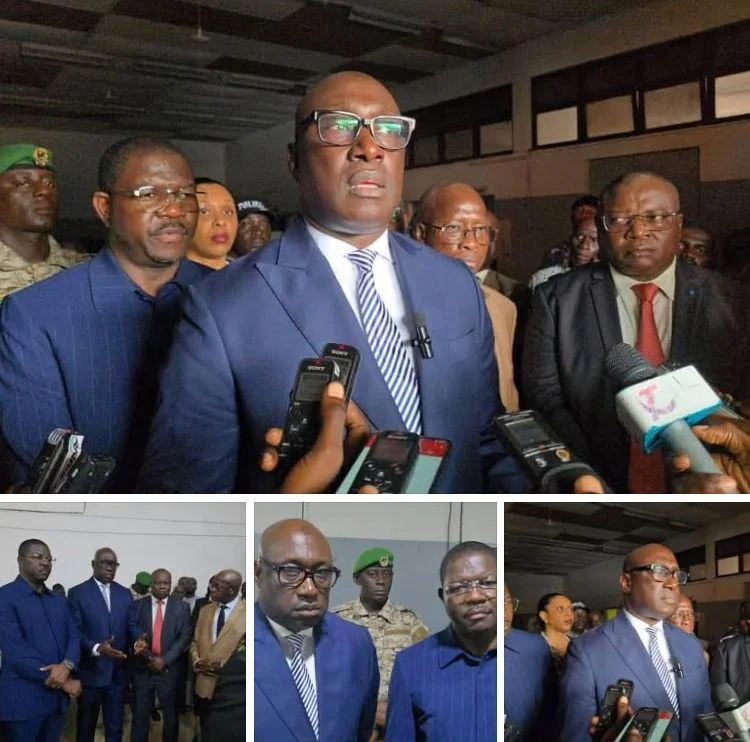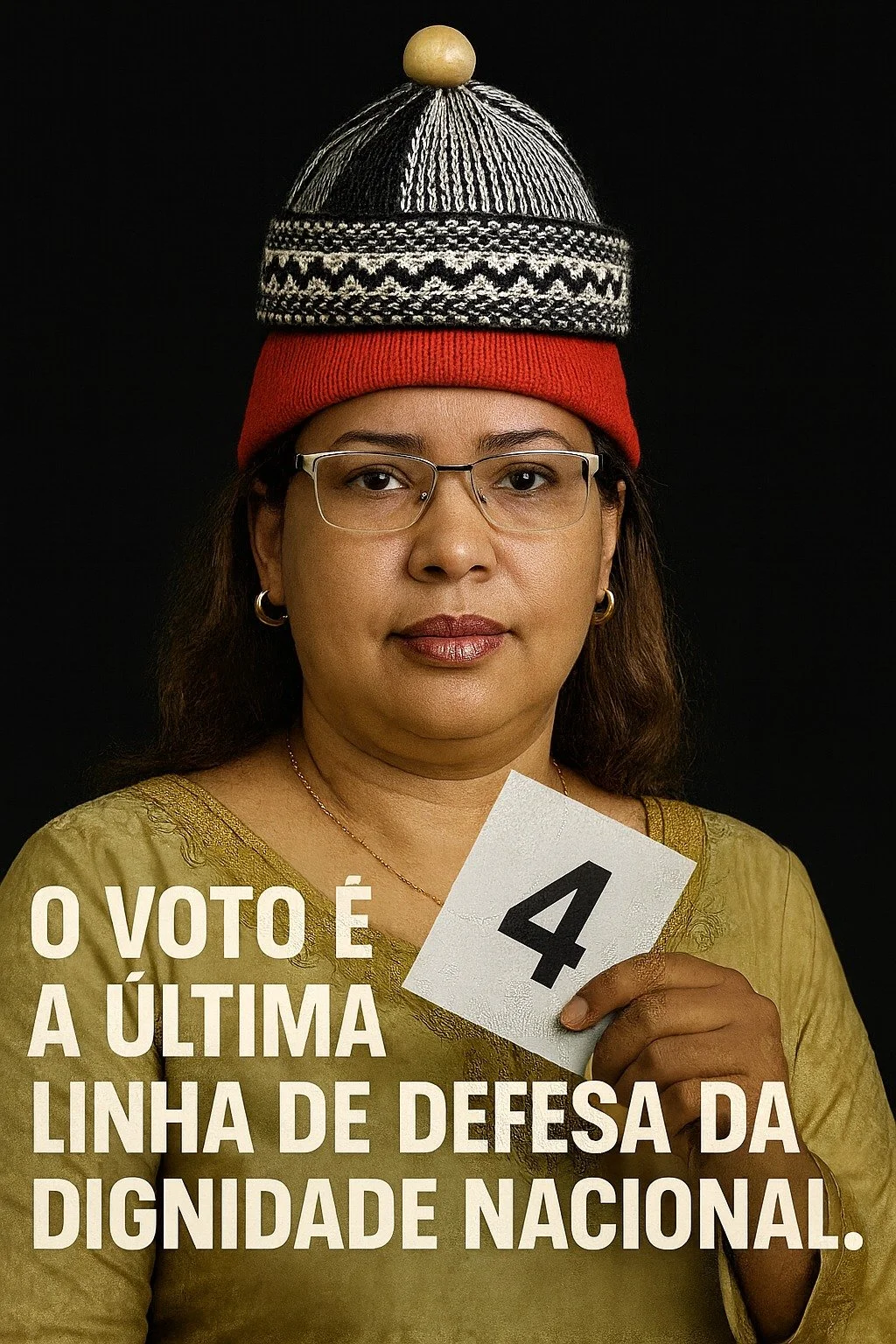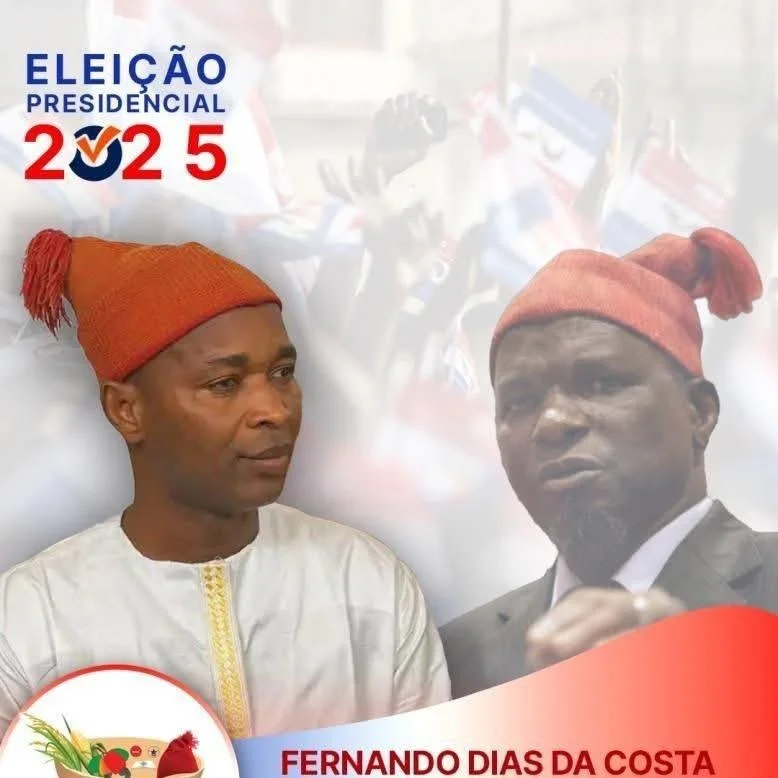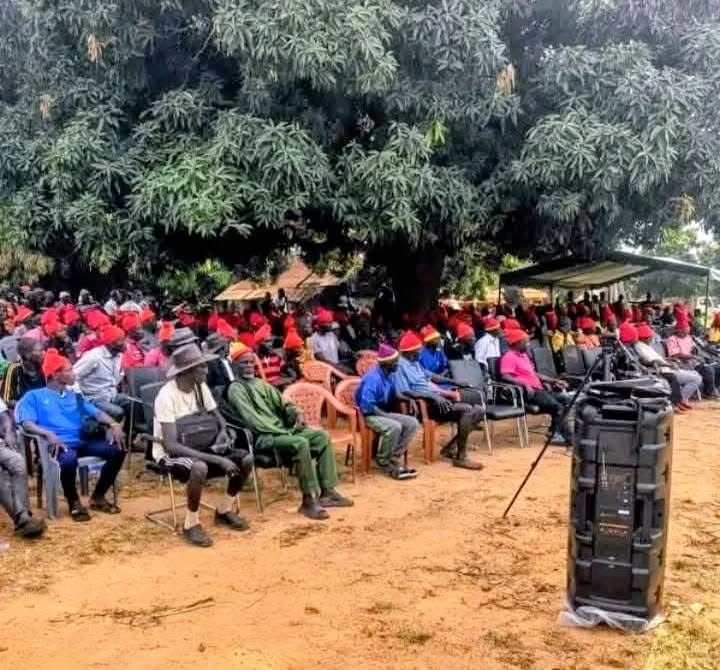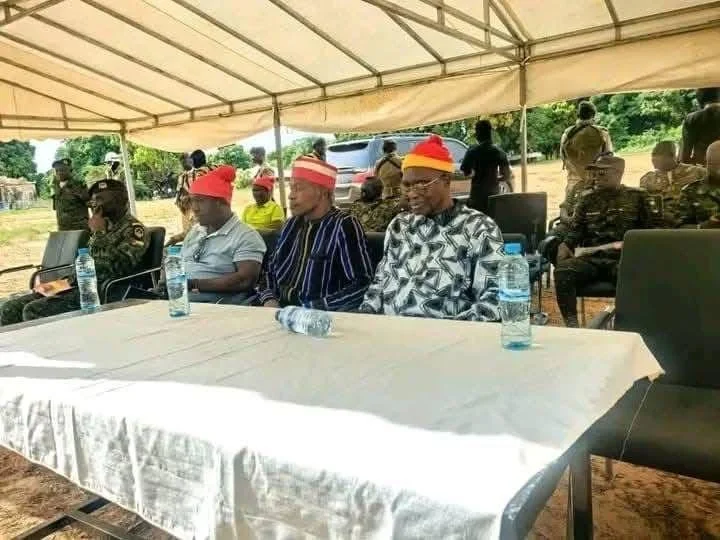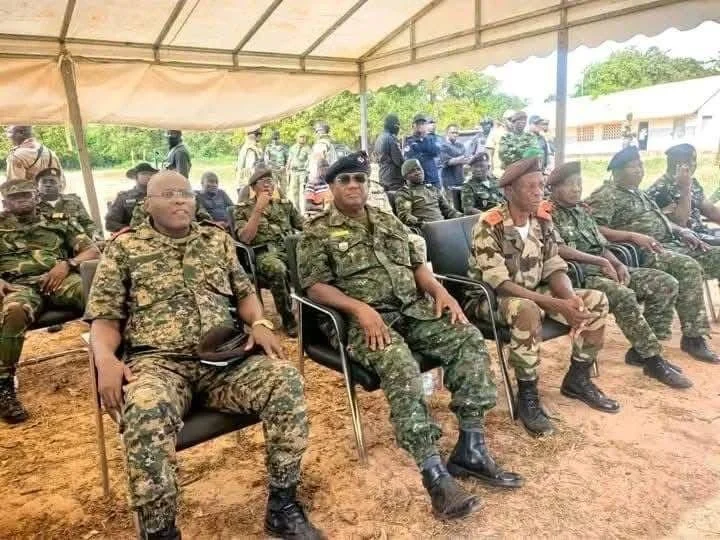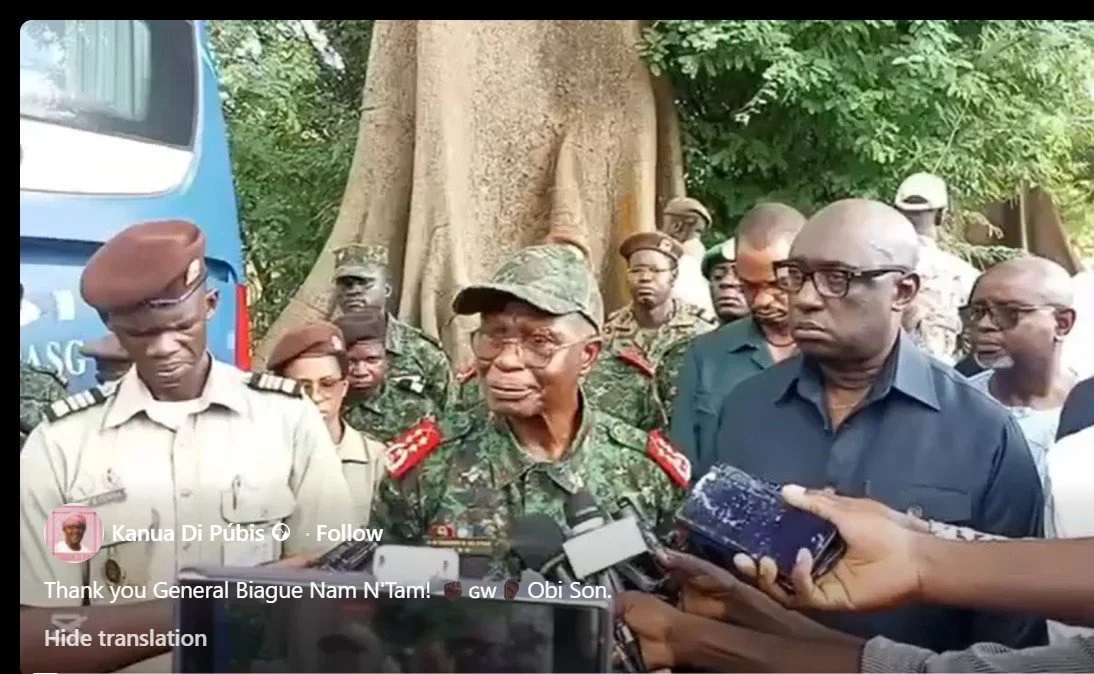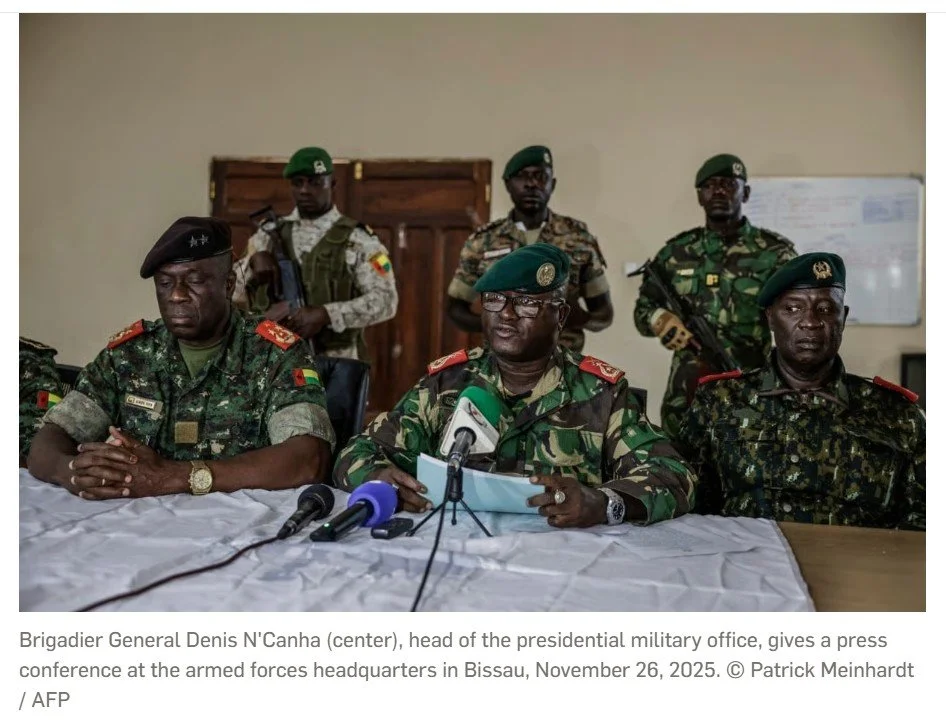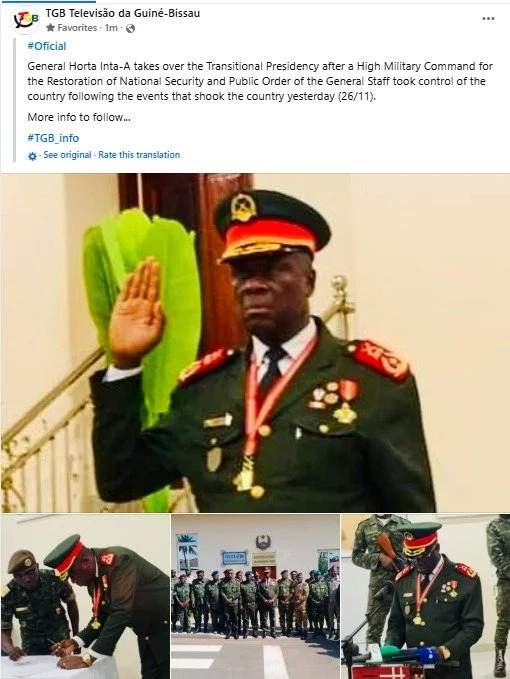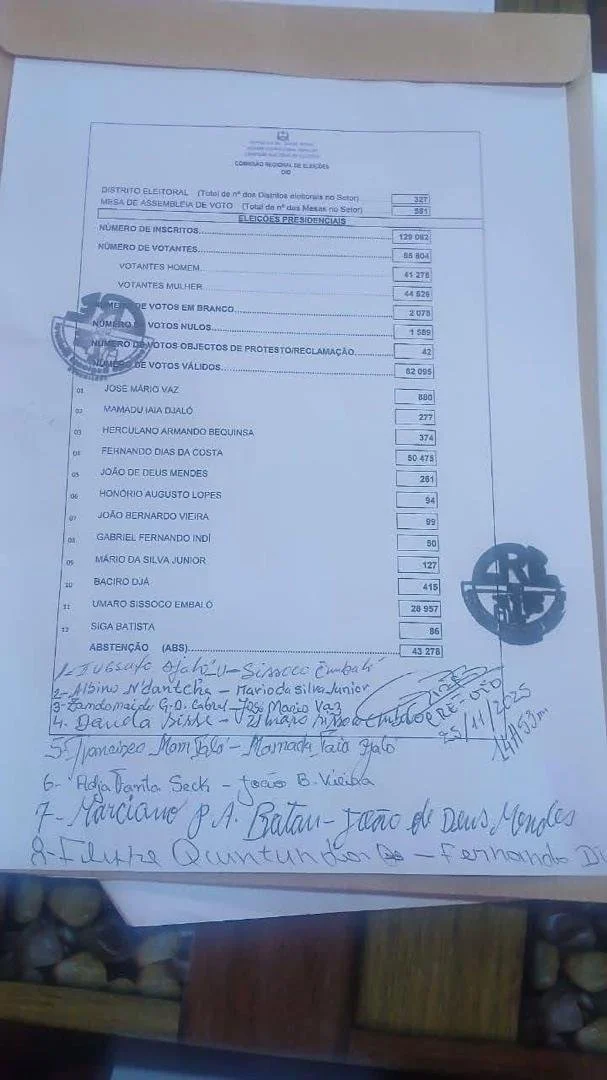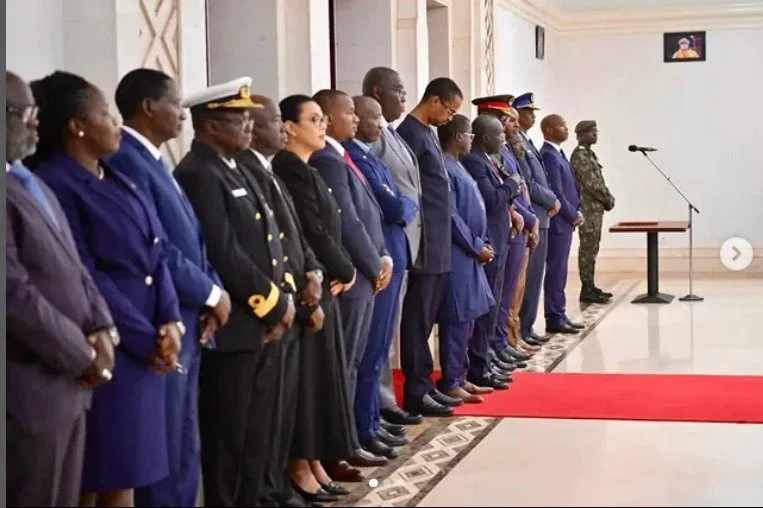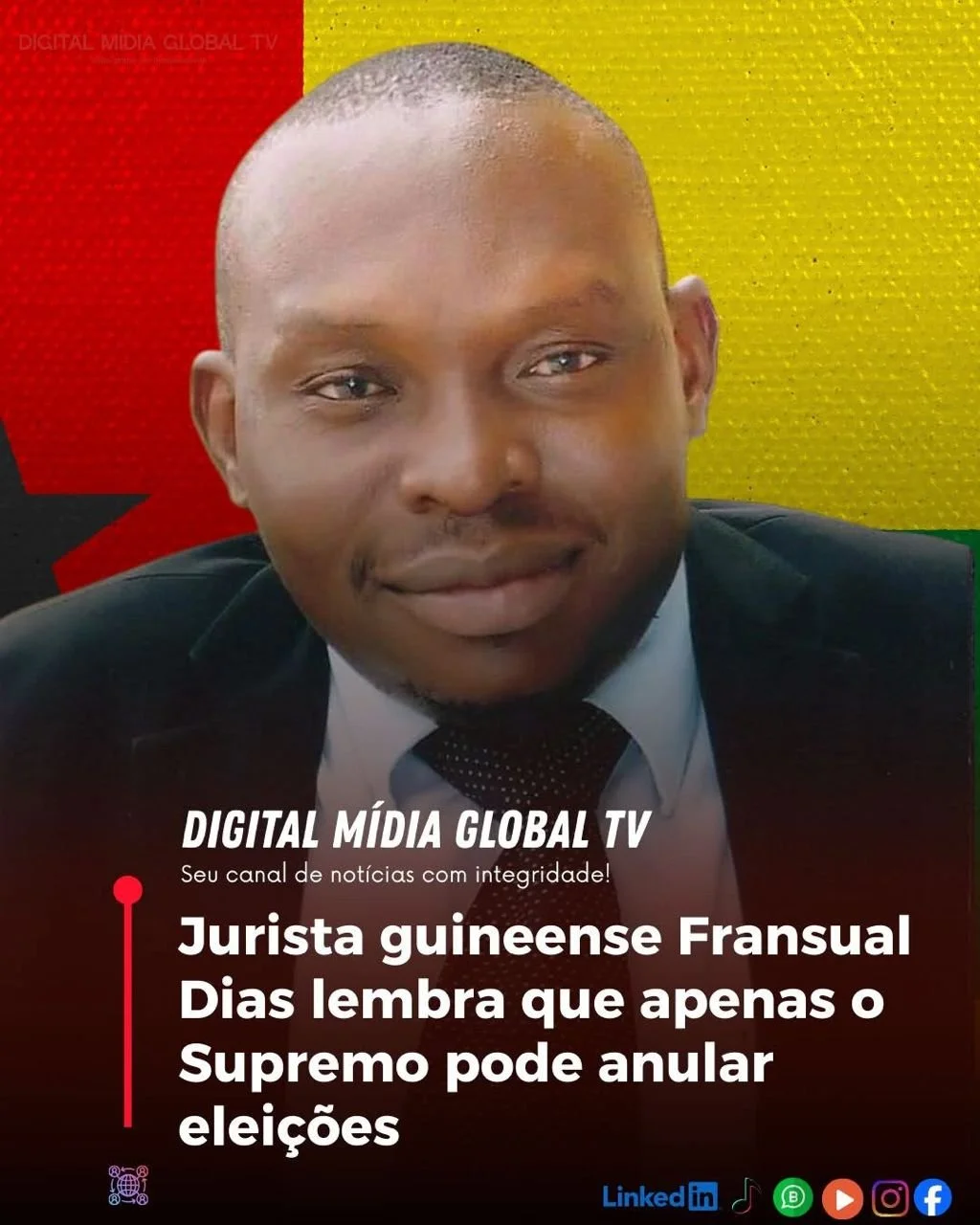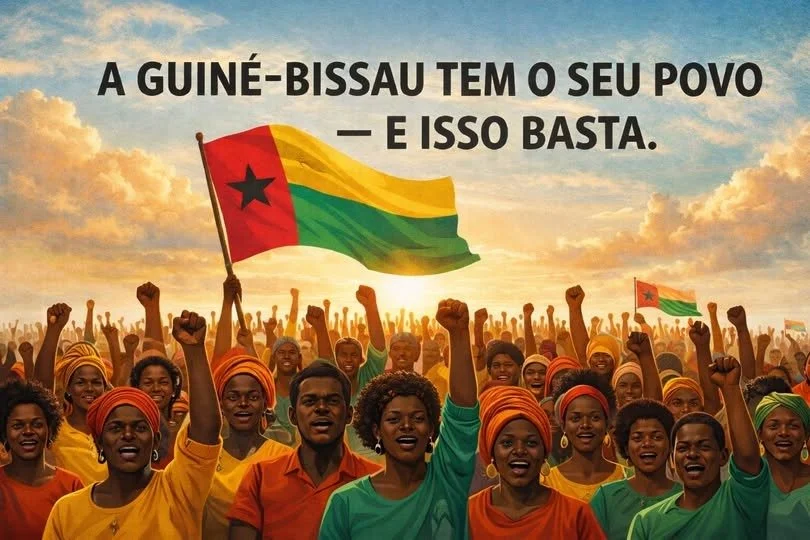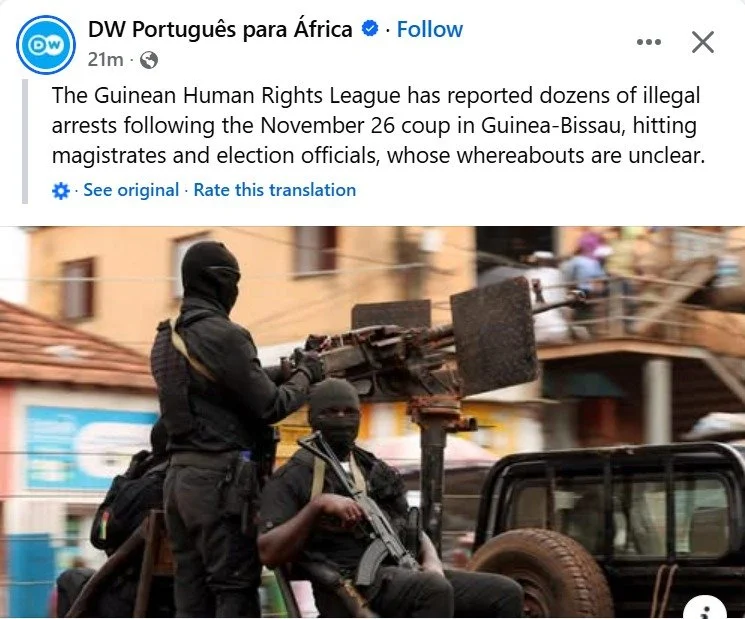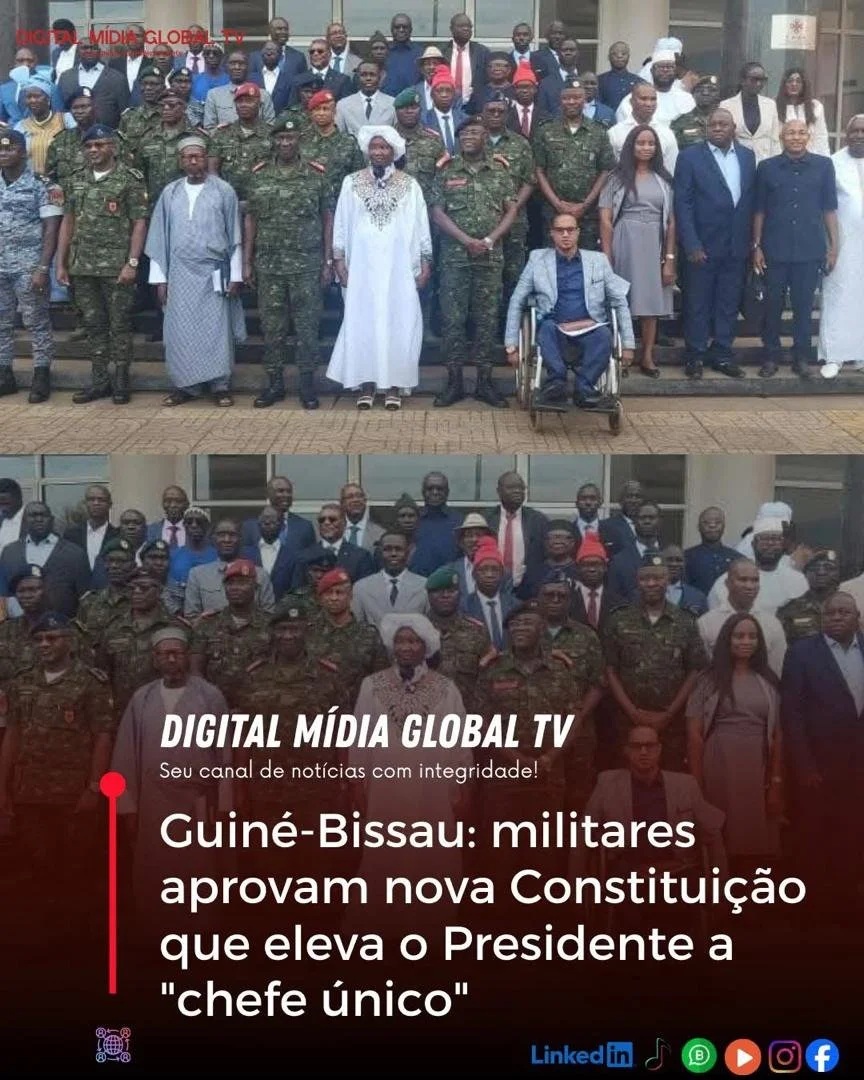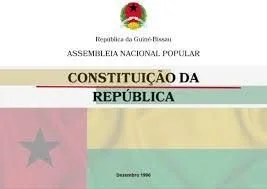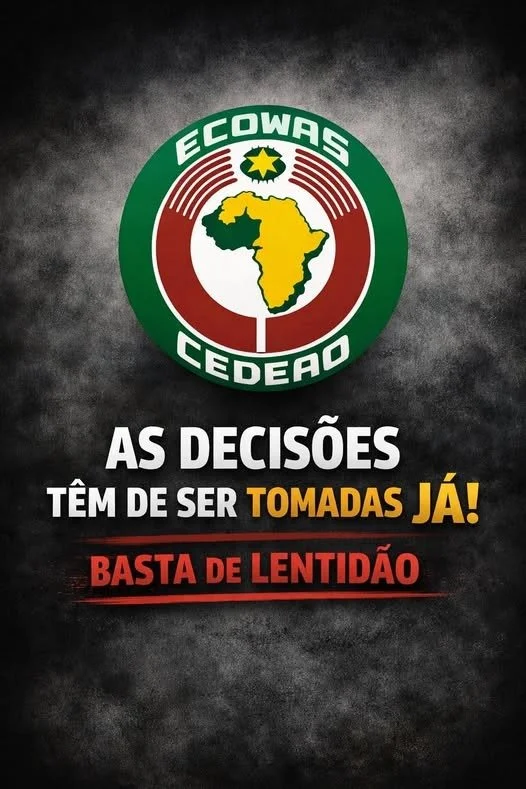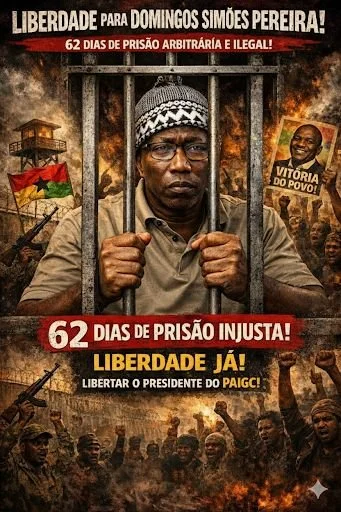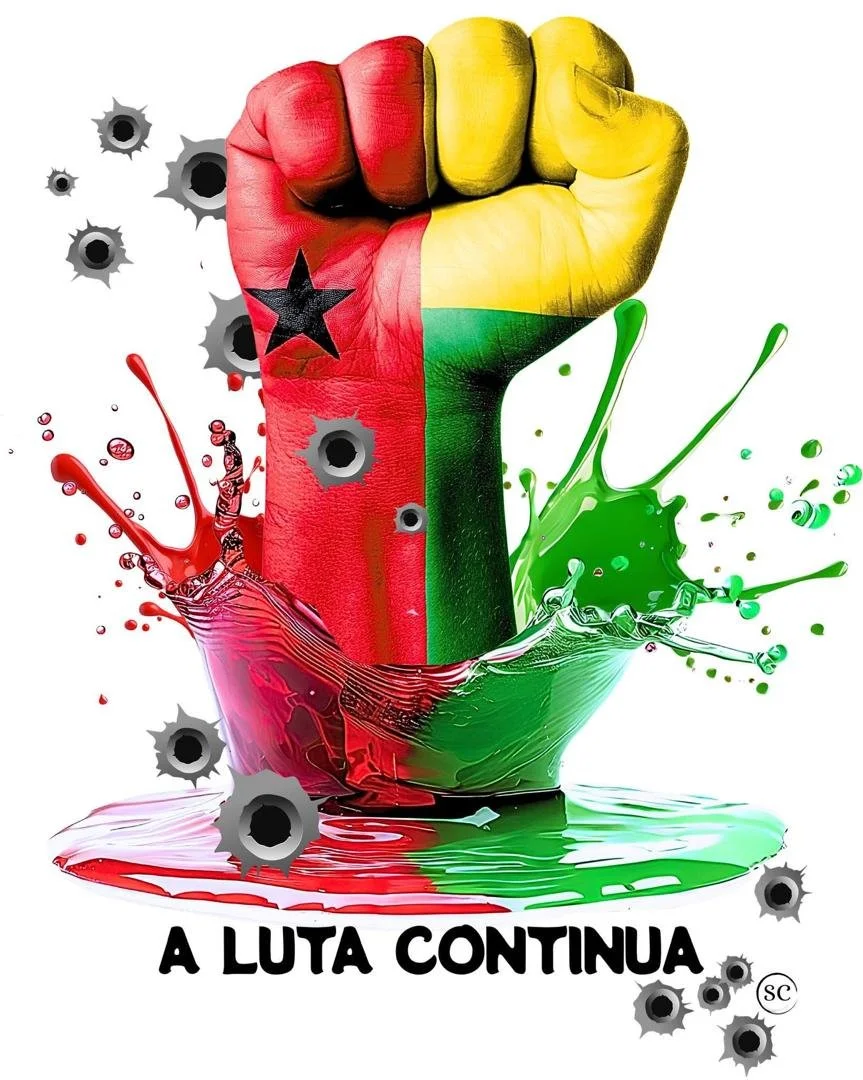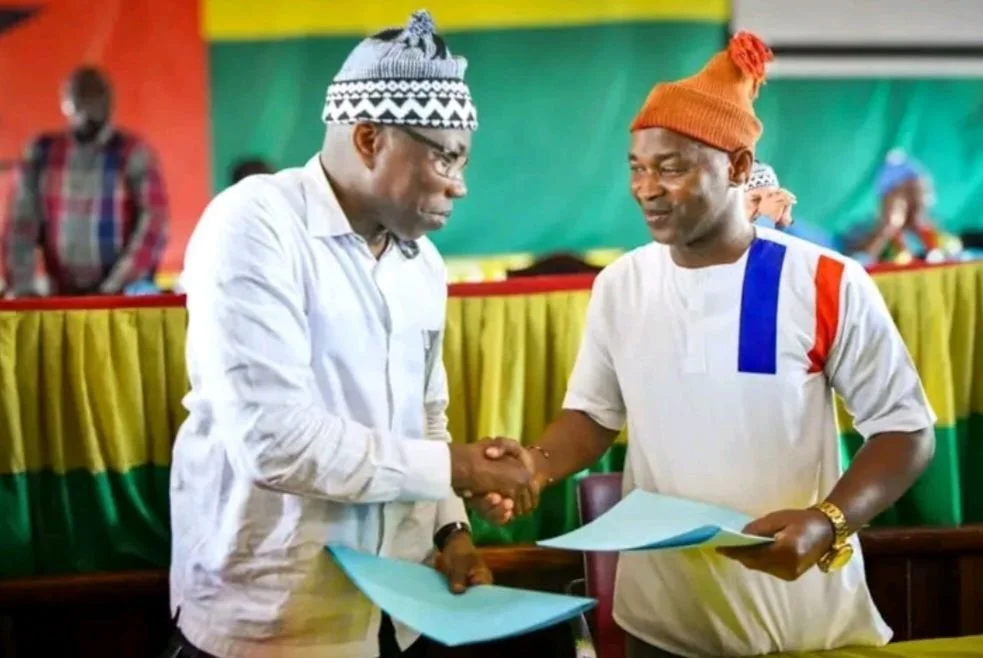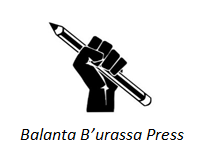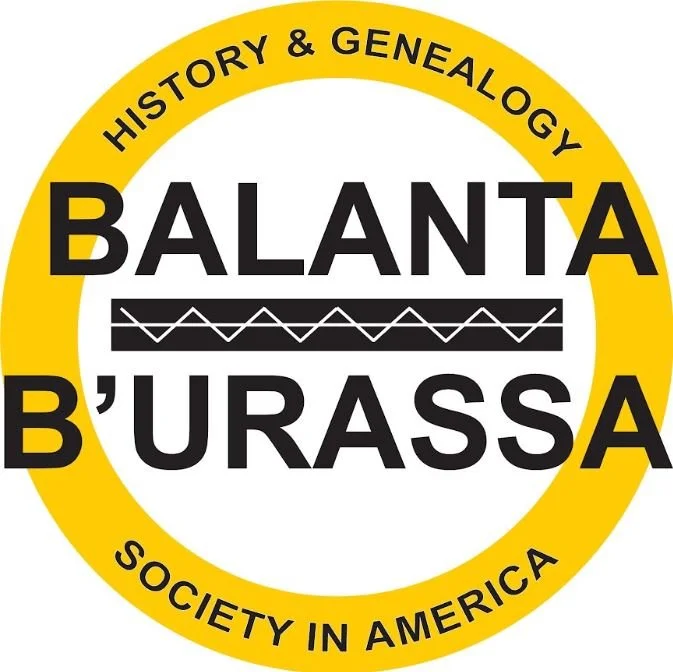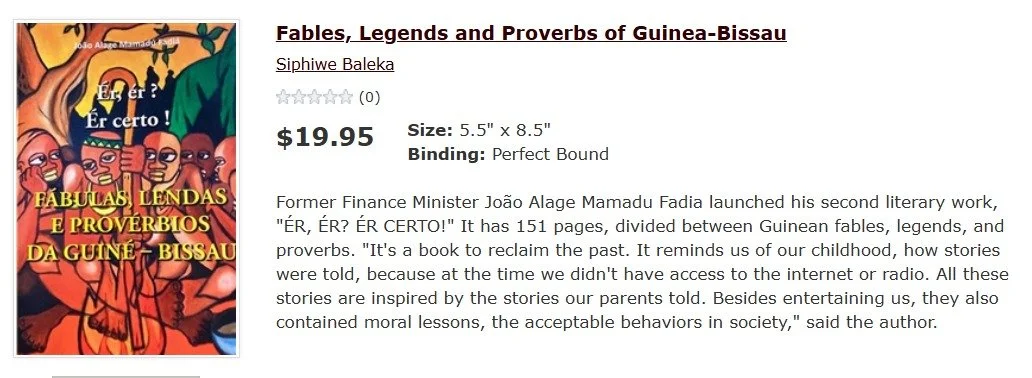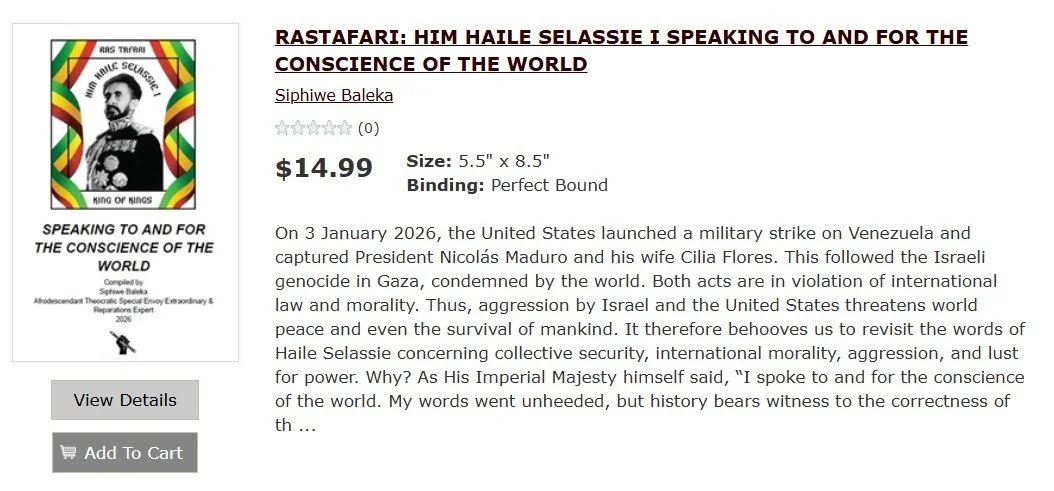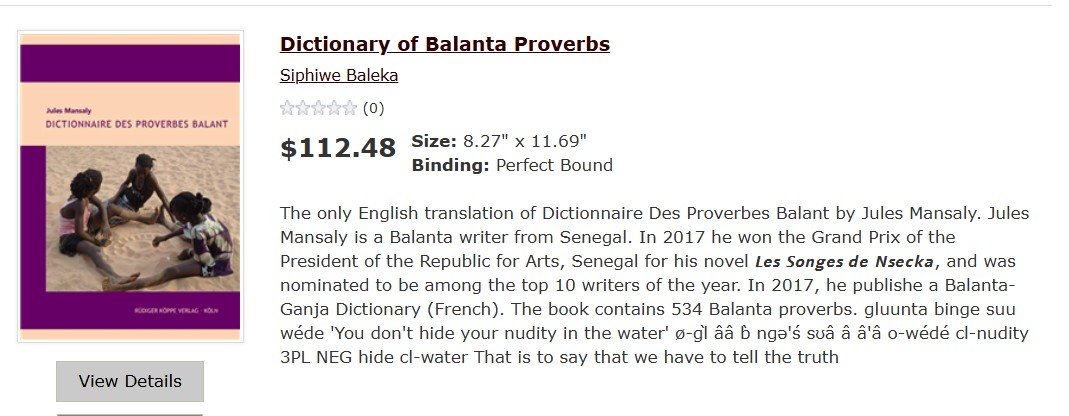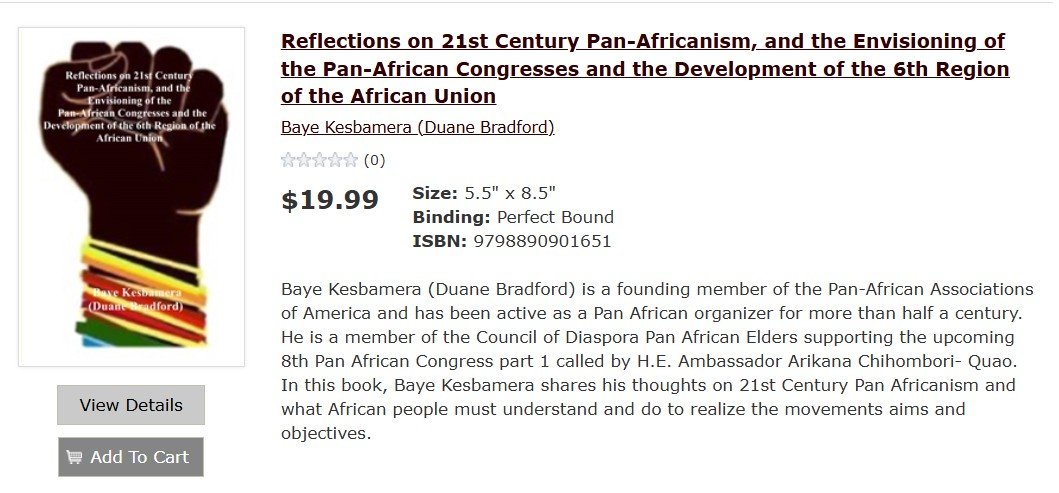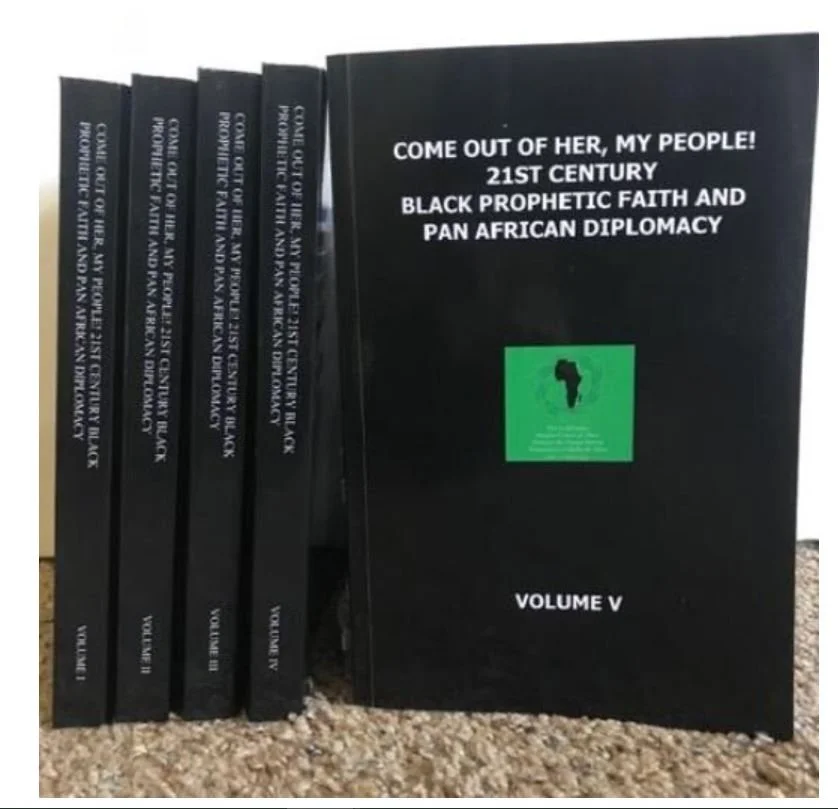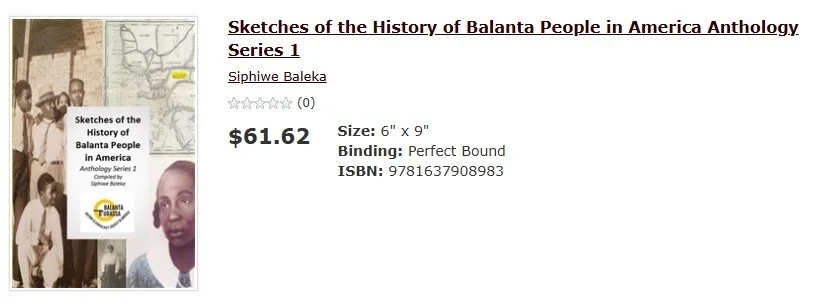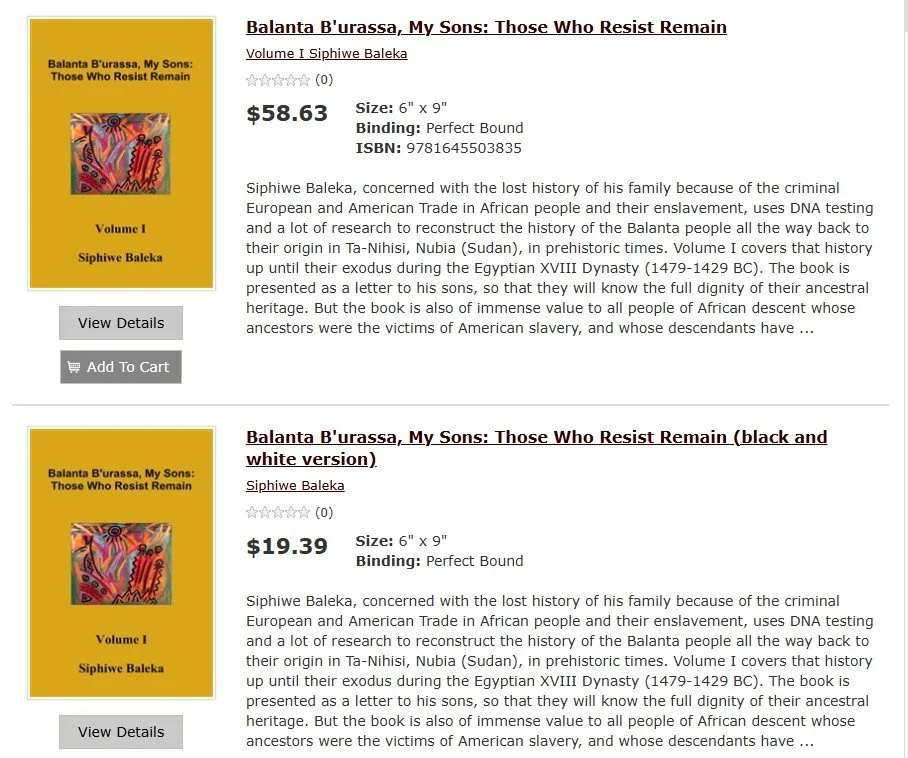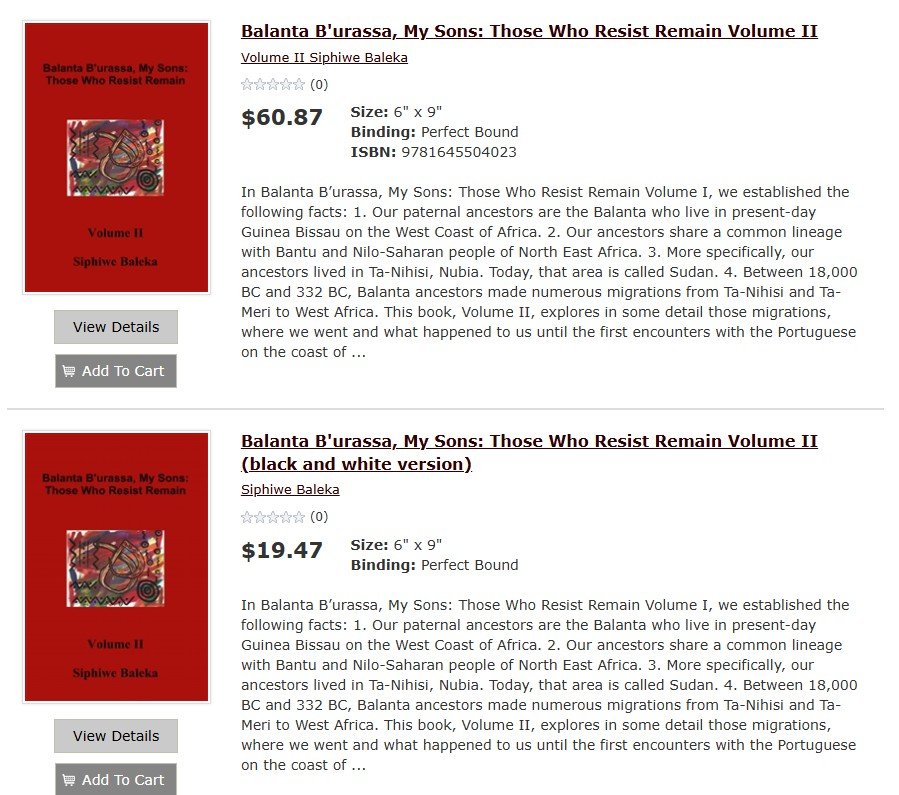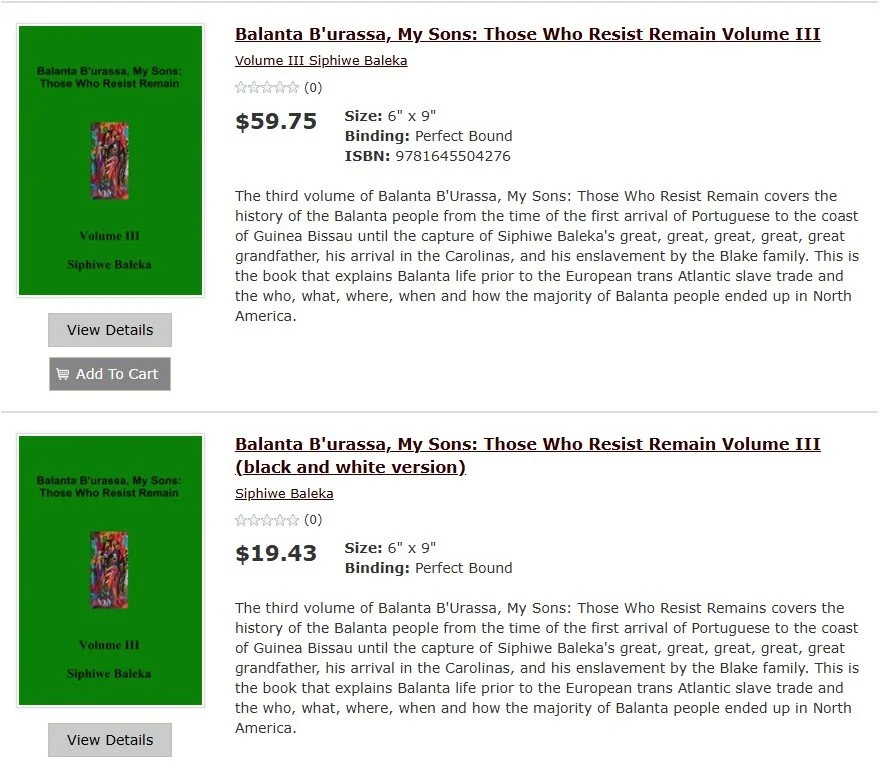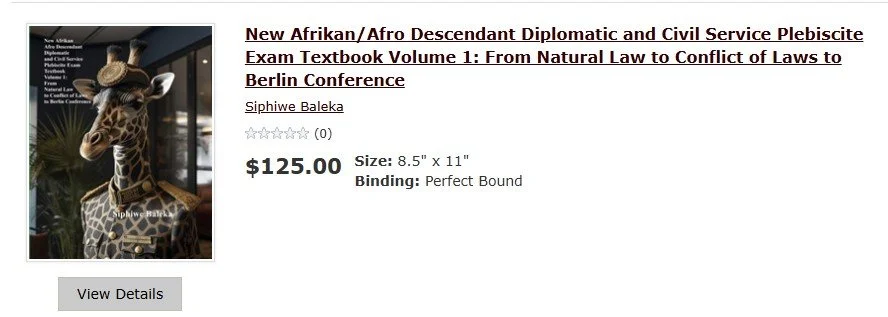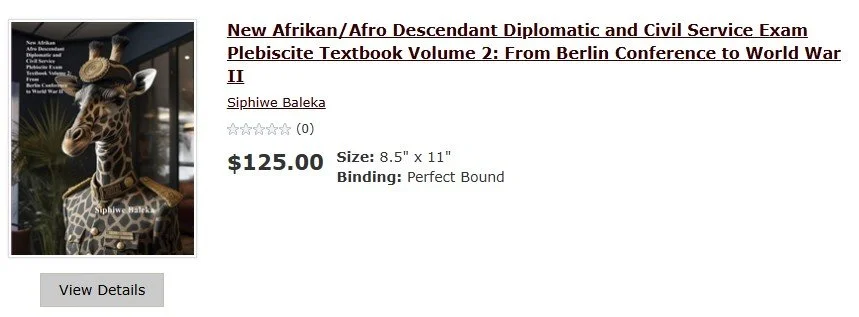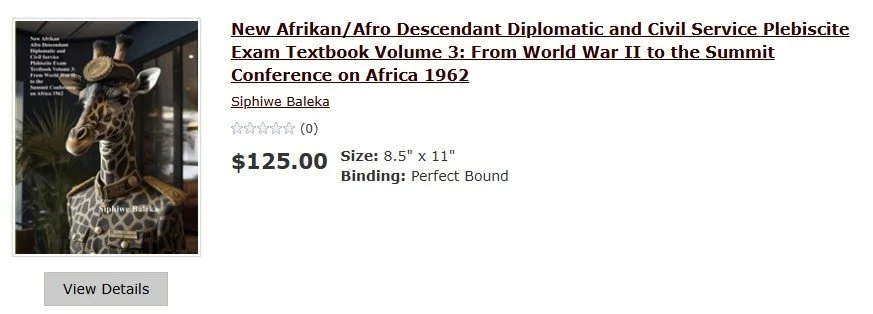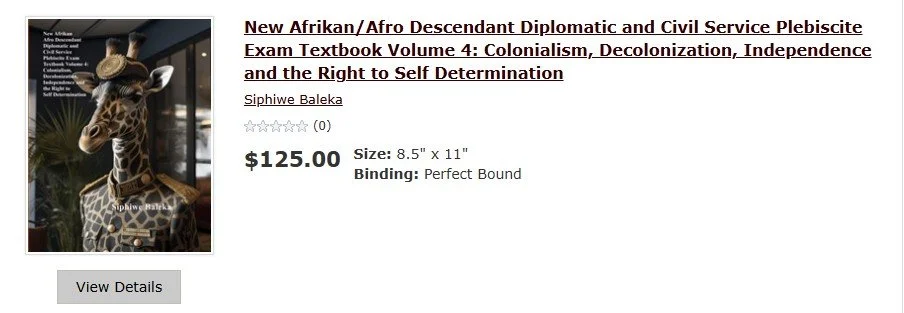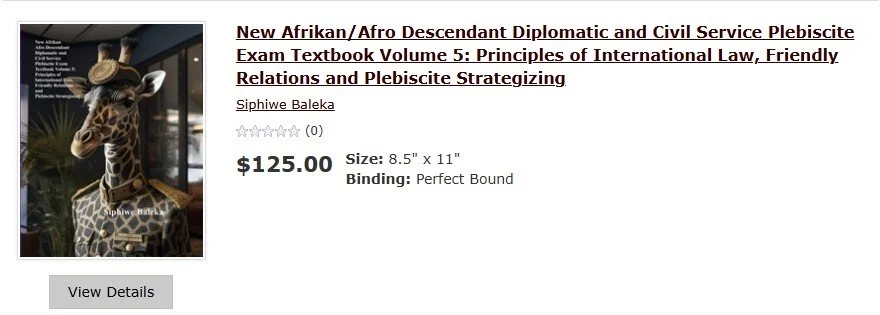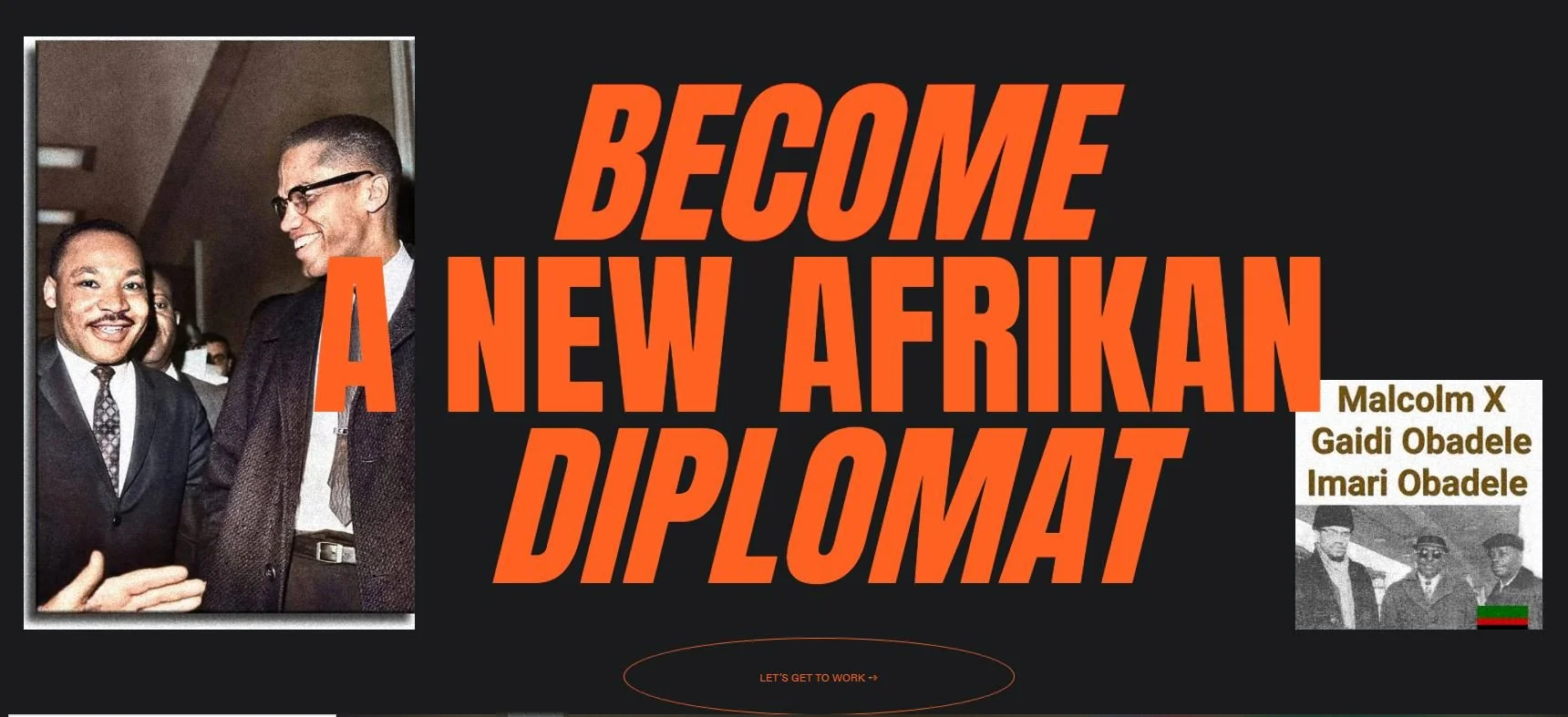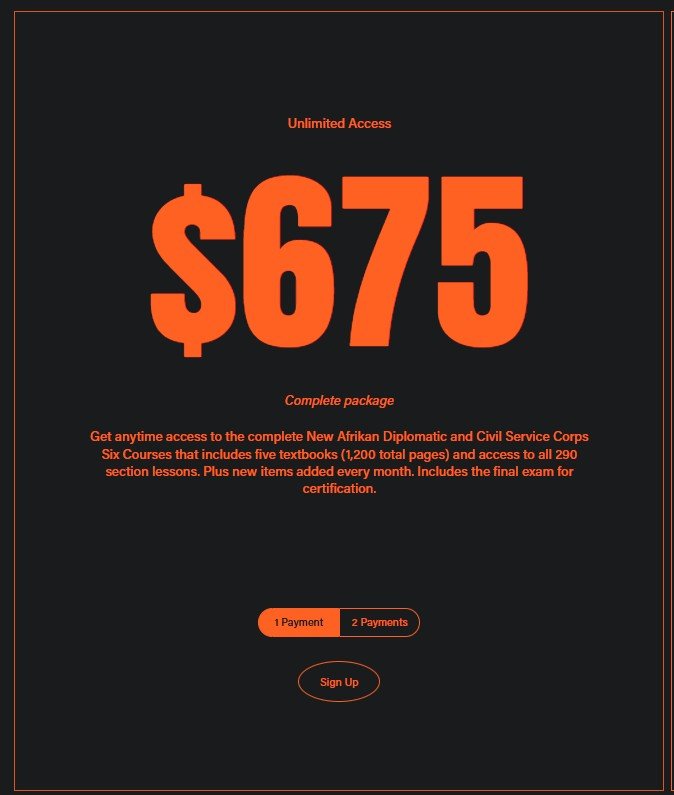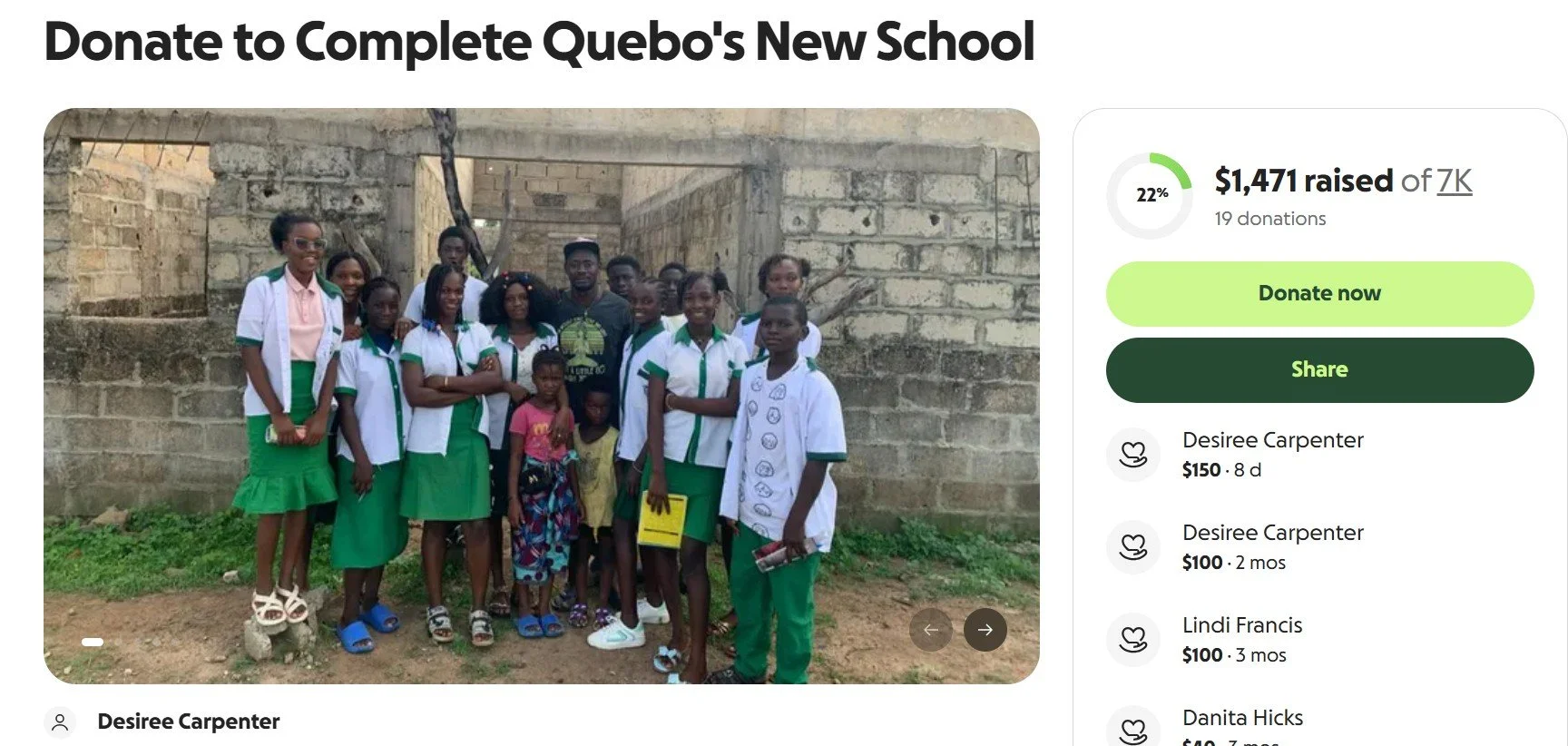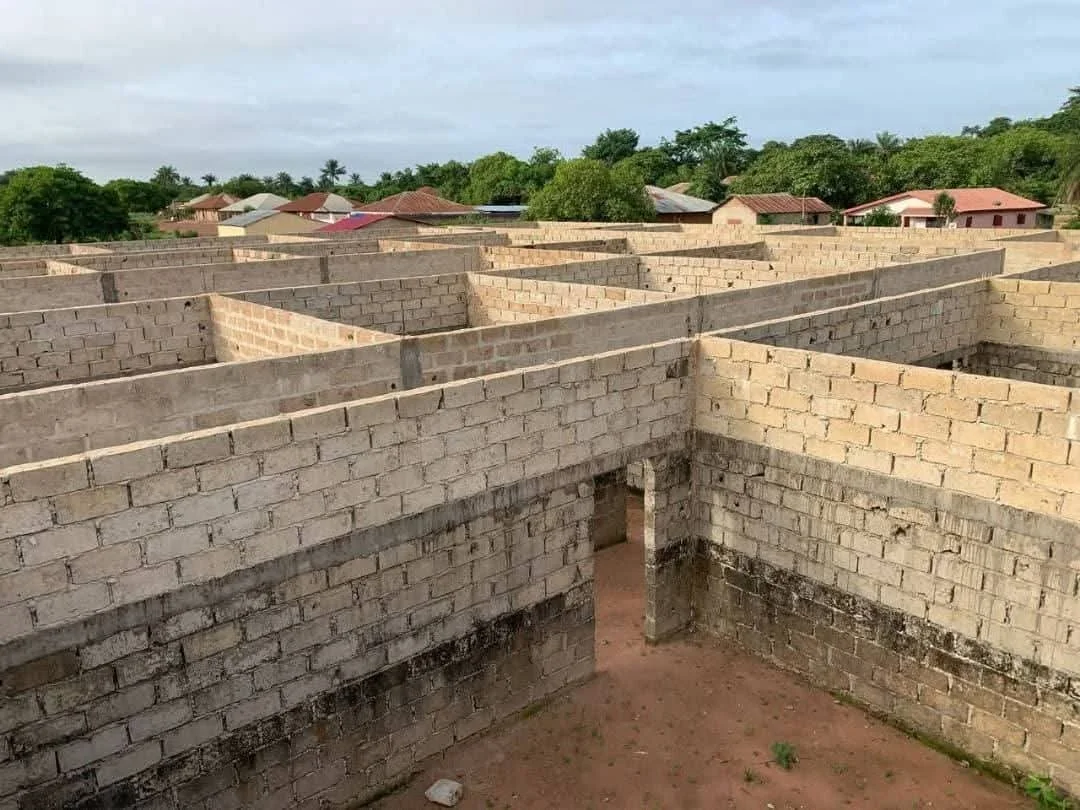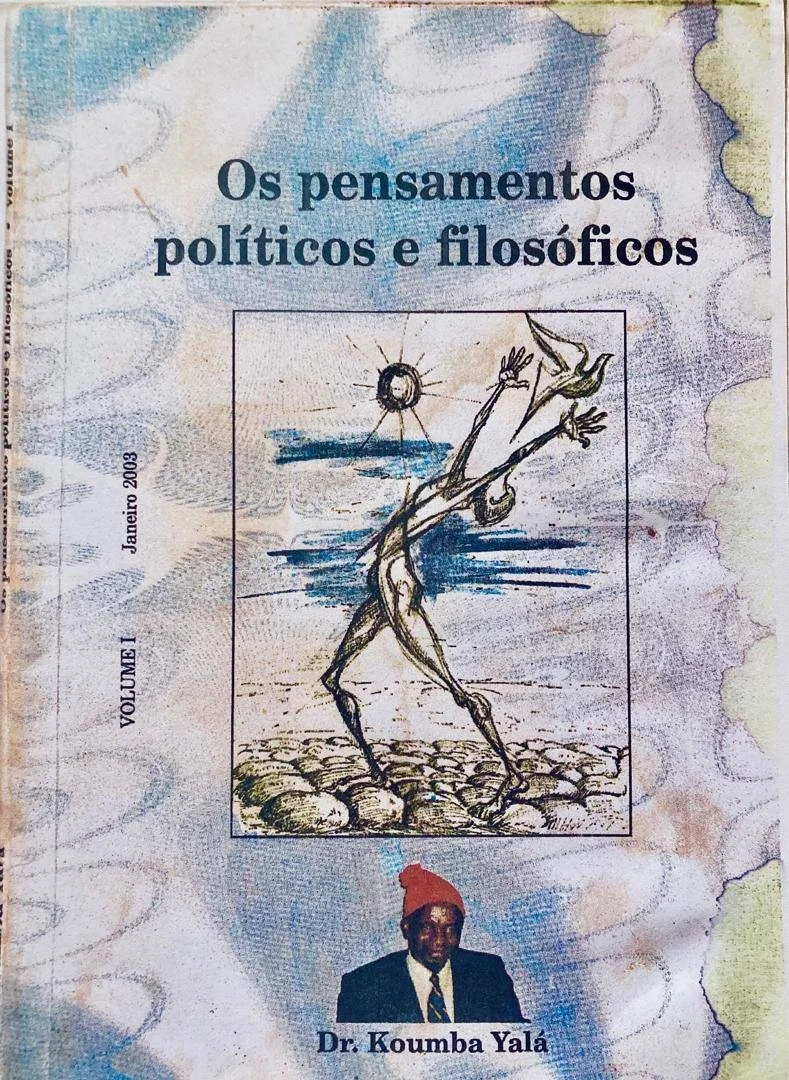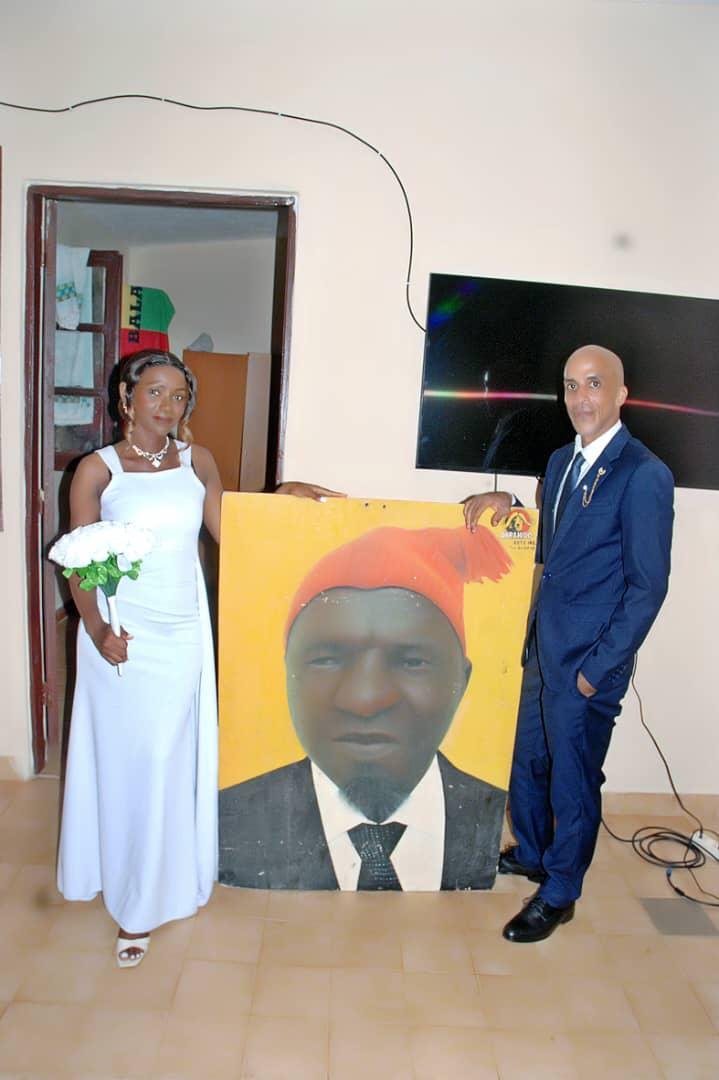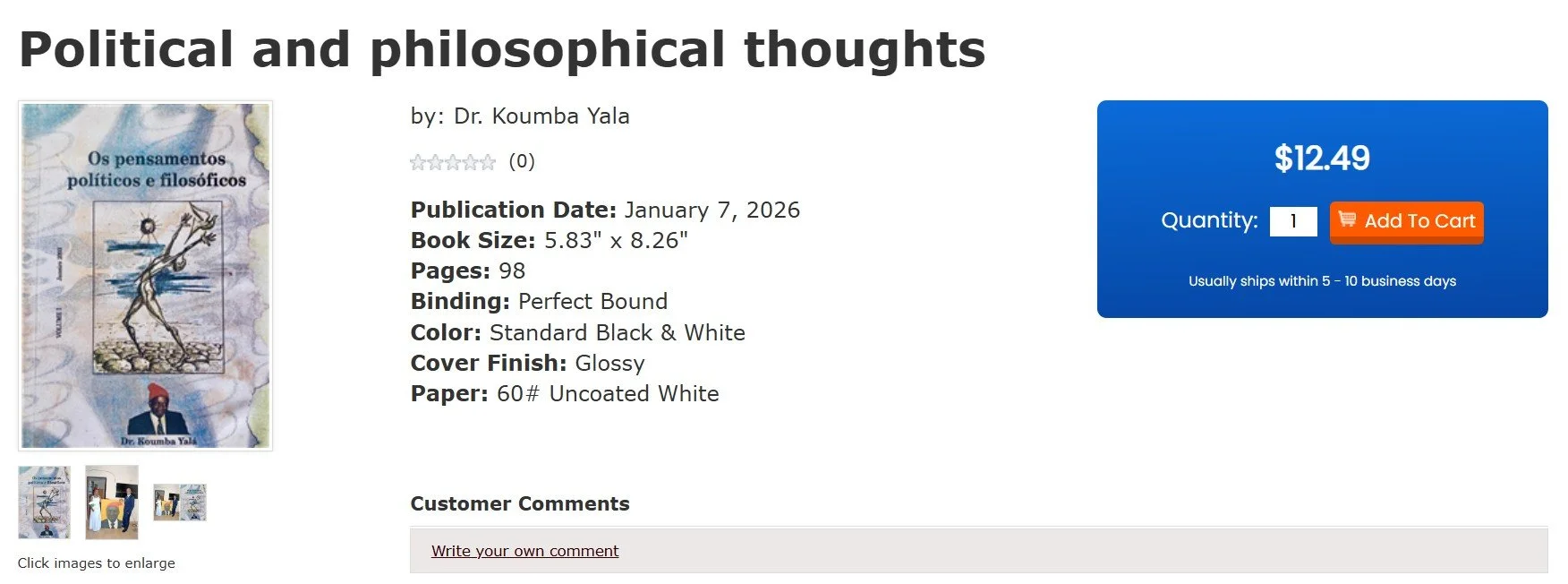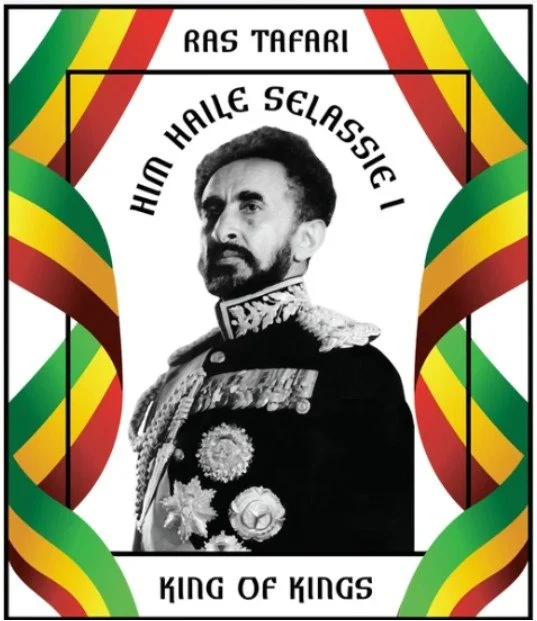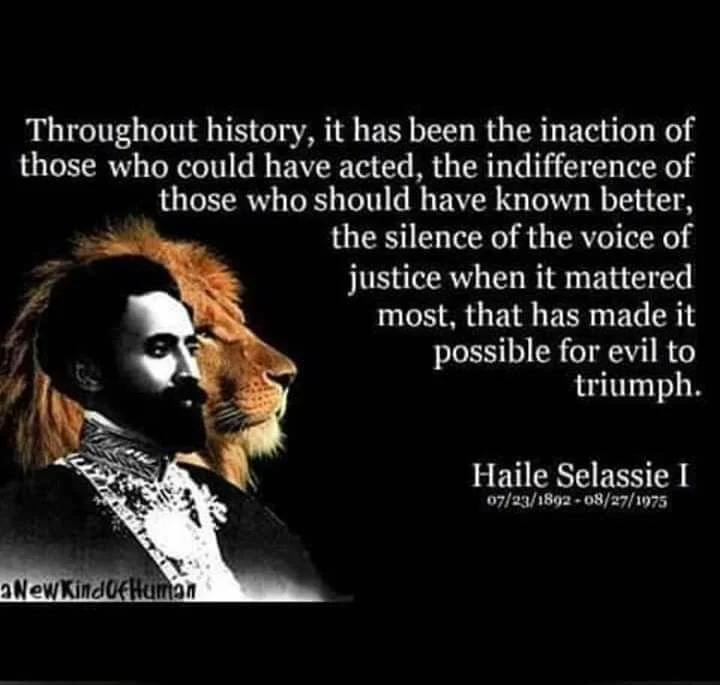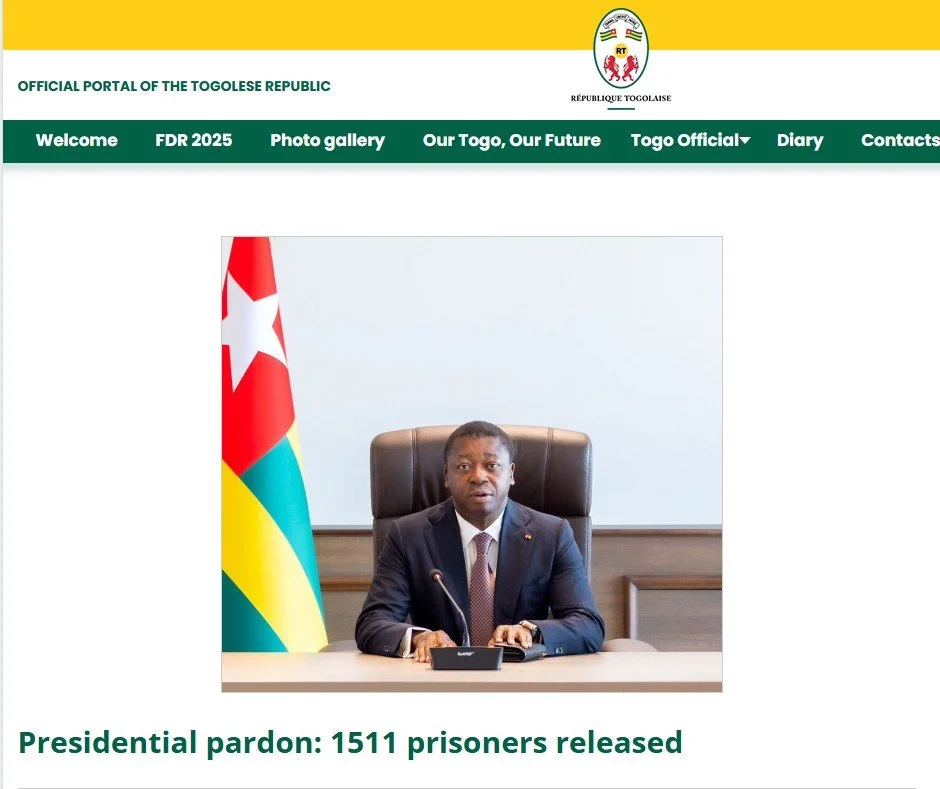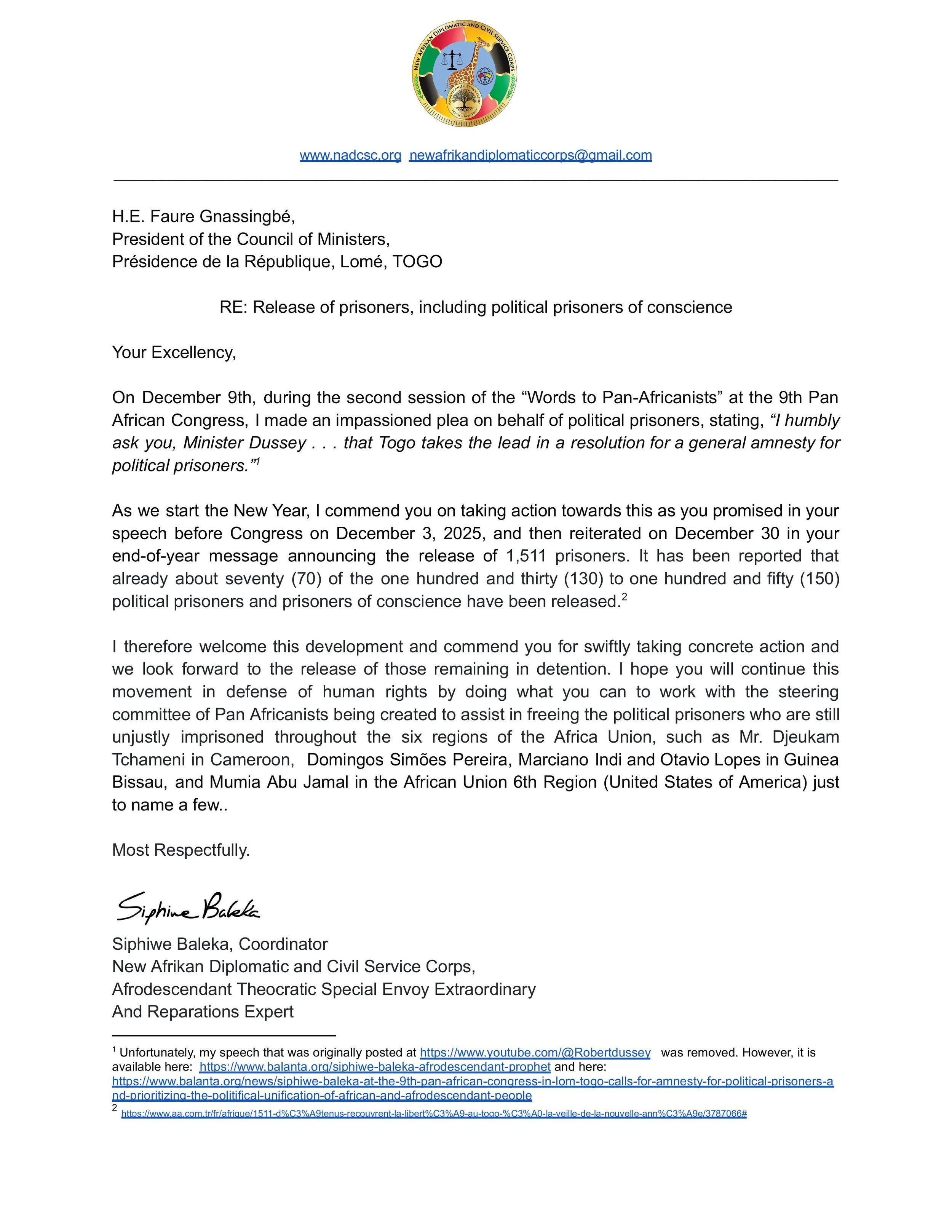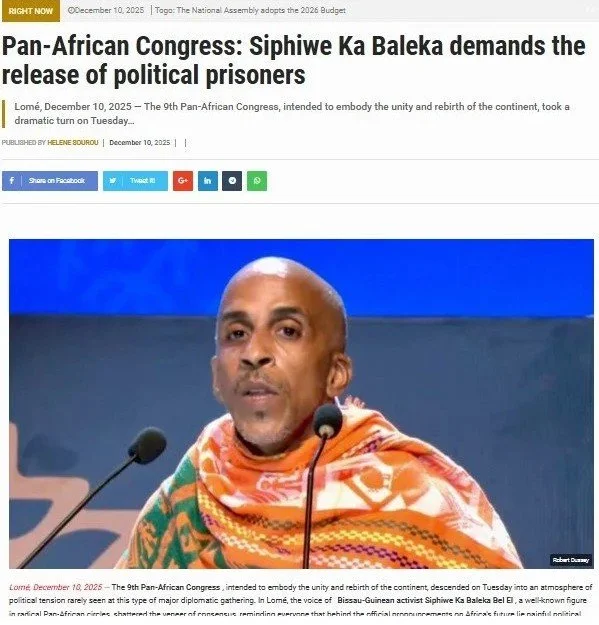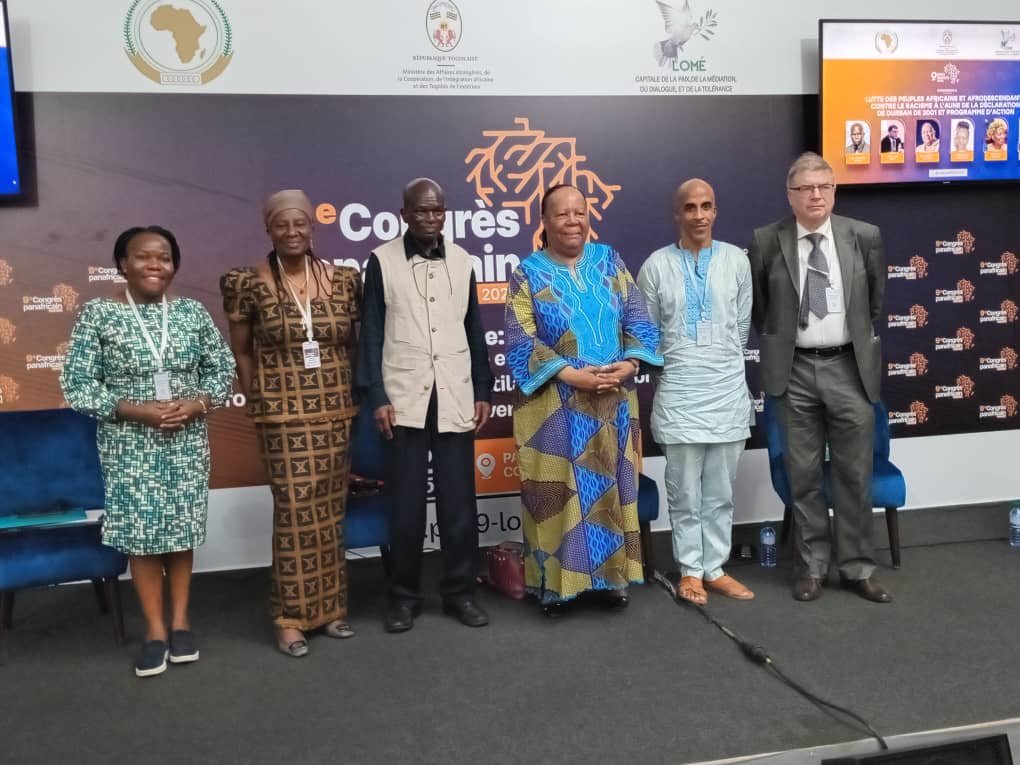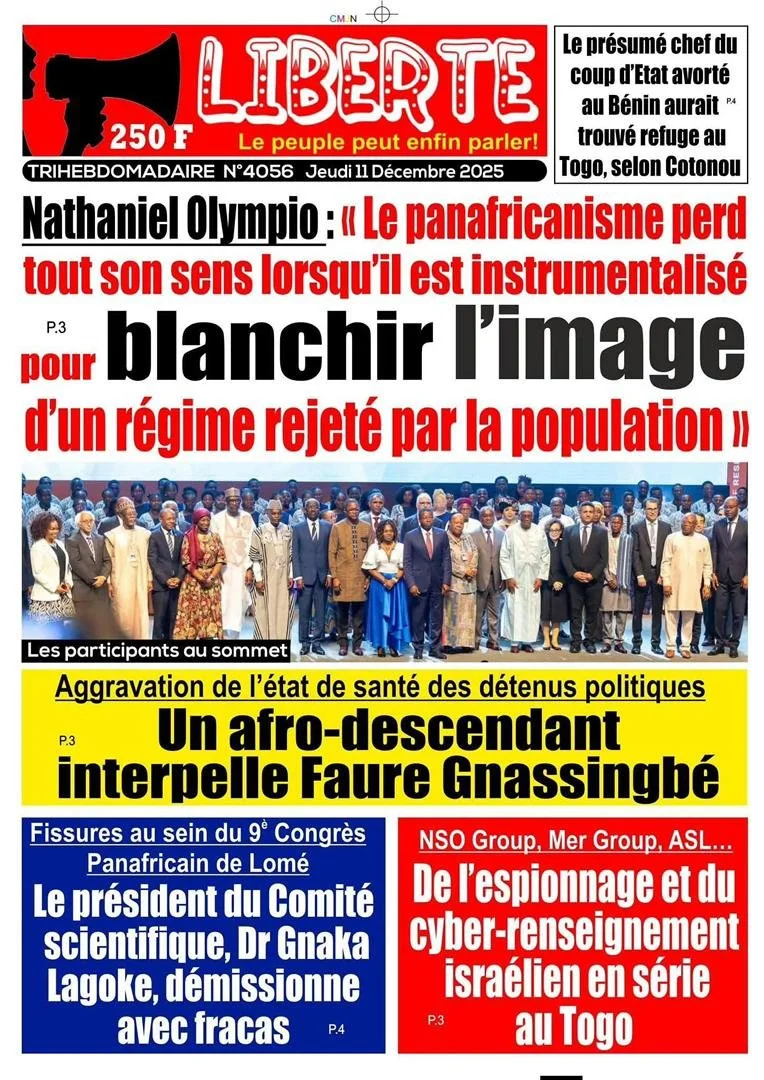-
January 2026
- Jan 31, 2026 ARCHIVE Jan 31, 2026
- Jan 31, 2026 UNDERSTANDING THE SITUATION IN GUINEA BISSAU AFTER THE NOVEMBER 2025 ELECTION CEREMONIAL COUP Jan 31, 2026
- Jan 22, 2026 Balanta Press New Releases Include Fables, Legends and Proverbs of Guinea-Bissau Jan 22, 2026
- Jan 19, 2026 New Book Published! Rastafari: Speaking To And For The Conscious of the World Jan 19, 2026
- Jan 17, 2026 Preparing for the Coming Situation in Guinea Bissau as IMF and World Bank Cut Off Funding - the Dafana Institute/QuitaCare Quebo School Project in the Southern Tombali Region Jan 17, 2026
- Jan 16, 2026 Balanta Society in America Republishes Dr. Kumba Yala's Book, Political and Philosophical Thoughts Volume 1, to Commemorate the 26th Anniversary of His Historic Presidential Election Jan 16, 2026
- Jan 8, 2026 A DIVINE WARNING TO PRESIDENTS BENJAMIN NETANYAHA (ISRAEL) AND DONALD TRUMP (USA): RECALLING THE KING OF KING AND LORD OF LORDS INSTRUCTIONS CONCERNING THE PRINCIPLE OF COLLECTIVE SECURITY Jan 8, 2026
- Jan 2, 2026 Siphiwe Baleka Congratulates H.E. Faure Gnassingbé, President of Togo, for Releasing Political Prisoners after the 9th Pan African Congress Jan 2, 2026
-
December 2025
- Dec 20, 2025 AFRICAN COMMISSION ON HUMAN AND PEOPLES' RIGHTS ADOPTS SIPHIWE BALEKA'S RECOMMENDATIONS IN RESOLUTION ON AFRICAN UNION THEME OF THE YEAR - REPARATIONS Dec 20, 2025
- Dec 13, 2025 The State Capture Of Pan Africanism Is A Fait Accompli: Shenanigans At The 9th PAC of Lomé - The Manner In Which It Was Organized Is Its Fundamental Flaw Dec 13, 2025
- Dec 10, 2025 Siphiwe Baleka Presents African Unity Equation in Commission 6 of the 9th Pan African Congress in Lomé, Togo Dec 10, 2025
- Dec 10, 2025 Siphiwe Baleka at the 9th Pan African Congress in Lomé, Togo: Calls for Amnesty for Political Prisoners and Prioritizing the Political Unification of African and Afrodescendant People Dec 10, 2025
-
November 2025
- Nov 28, 2025 URGENT ACTION – Imminent Military Trial & Arbitrary Detention of Mr. Djeukam TCHAMENI (Cameroon) Nov 28, 2025
- Nov 18, 2025 NEW! Afrodescendant Theocratic Special Envoy Extraordinary and Reparations Expert at the 9th Pan African Congress in Lomé, Togo December 8-12: Make Your Recommendations for the Working Commissions Nov 18, 2025
- Nov 18, 2025 9th Pan African Congress of Lomé - Input for Commission 8: “AFRICAN AND PAN-AFRICAN STUDIES, DECOLONIZATION OF KNOWLEDGE, AND PROMOTION OF PAN-AFRICANISM” Nov 18, 2025
- Nov 18, 2025 9th Pan African Congress of Lomé - Input for Commission 7: “ROLE AND PLACE OF WOMEN IN THE PAN-AFRICAN MOVEMENT” Nov 18, 2025
- Nov 18, 2025 9th Pan African Congress of Lomé - Input for Commission 6: “FIGHT OF AFRICAN AND AFRO-DESCENDANTS PEOPLES AGAINST RACISM IN THE CONTEXT OF DURBAN DECLARATION OF 2001 AND PROGRAMME OF ACTION” Nov 18, 2025
- Nov 17, 2025 9th Pan African Congress of Lomé - Input for Commission 5: "REPARATIONS AND RESTITUTION OF AFRICAN CULTURAL PROPERTY" Nov 17, 2025
- Nov 17, 2025 9th Pan African Congress of Lomé - Input for Commission 4: "DECOLONIZATION OF THE MIND AND SELF REINVENTION" Nov 17, 2025
- Nov 17, 2025 9th Pan African Congress of Lomé - Input for Commission 3: "RESOURCES MOBILIZATION AND SELF-CENTERED DEVELOPMENT" Nov 17, 2025
- Nov 17, 2025 9th Pan African Congress of Lomé - Input for Commission 2: "REFORM OF MULTILATERAL INSTITUTIONS: THE ROLE AND PLACE OF AFRICA" Nov 17, 2025
- Nov 17, 2025 9th Pan African Congress of Lomé - Input for Commission 1: "AFRICA IN THE 21ST CENTURY AND A NEW VISION OF PAN-AFRICANISM" Nov 17, 2025
- Nov 14, 2025 The African Union and CARICOM are Killing the Reparations Movement! Siphiwe Baleka and former International Court of Justice (ICJ) Judge Patrick Robinson Speak Out Nov 14, 2025
- Nov 14, 2025 Siphiwe Baleka Presentation on Reparations & the Vatican at the II Seminário Internacional Pró Reparações in Brazil Nov 14, 2025
- Nov 13, 2025 Afrodescendants of Sierra Leonean Origin Petition Julius Maada Bio for recognition of their Right to Return - Join Afrodescendants of Guinea Bissau, Cameroon, Côte d'Ivoire and Burkina Faso Origin Nov 13, 2025
- Nov 12, 2025 “I Want My Gambian Passport In My Hands” – Afrodescendants Revive Citizenship Campaign in Gambia Nov 12, 2025
- Nov 7, 2025 Siphiwe Baleka's Input to the the Committee on the Elimination of Racial Discrimination (CERD) on the first draft of a General Recommendation on reparations Nov 7, 2025
-
October 2025
- Oct 31, 2025 GUINEA BISSAU GRANTS CITIZENSHIP TO EIGHT MORE AFRODESCENDANTS Oct 31, 2025
- Oct 28, 2025 Siphiwe Baleka Champions Afrodescendants' Right of Return and Holds Vatican Accountable for Reparations for Ethnocide @ the 85th Ordinary Session of the African Commission on Human and Peoples' Rights Oct 28, 2025
- Oct 21, 2025 Siphiwe Baleka and Sânebickté Juliana Yala Nhanca Wedding Ceremony at São Francisco de Assis de Antula, Guinea Bissau Oct 21, 2025
- Oct 14, 2025 Afrodescendants Right of Return Champion Urges Republic of Guinea Bissau Council of Ministers to Approve Twenty-Nine More Citizenships Oct 14, 2025
- Oct 11, 2025 Afrodescendants of Burkinabé Origin Petition President Ibrahim Traoré For Citizenship Under Their Right of Return Oct 11, 2025
- Oct 1, 2025 The Republic of Guinea Bissau to Conduct Civil Marriage Ceremony on the 172nd Anniversary of the Emancipation and First Free Marriage of the Baleka Family in America Oct 1, 2025
- September 2025
-
August 2025
- Aug 29, 2025 TRYING TO UNDERSTAND WHO ARE THE JIHADISTS IN BURKINA FASO, NIGER AND MALI AND WHY THEY ARE WAGING WAR IN THE ALLIANCE OF SAHEL STATES: A PRELIMINARY INVESTIGATION BY THE SPECIAL ENVOY TO BURKINA FASO Aug 29, 2025
- Aug 27, 2025 WILL THE DECADE OF REPARATIONS RESULT IN THE FOLLY OF THE AU-LED REPARATIONS ELITE CAPTURE? WHY CITIZENSHIP IS THE HEART OF THE PROCESS & THE 1ST PRIORITY IS TO TAKE THE VATICAN TO THE ICJ AND ICC Aug 27, 2025
- Aug 15, 2025 MESSAGE TO 250 MILLION AFRODESCENDANTS: OUR RIGHT TO RETURN TO AFRICA, REPARATIONS, THE UN, THE AU, THE AES, BURKINA FASO, PRESIDENT IBRAHIM TRAORE & THE STATUS OF PAN AFRICANISM Aug 15, 2025
- Aug 3, 2025 RBG +126 DELEGATION STARTS VISIT IN BURKINA FASO, VISITS FRIENDS OF PRESIDENT IBRAHIM TRAORE IN THE WEST (FPITW) HEADQUARTERS Aug 3, 2025
-
July 2025
- Jul 26, 2025 Special Envoy to Burkina Faso Siphiwe Baleka Discusses The Global African Struggle Against US Imperialism, Colonialism and Neo-Colonialism on Time for an Awakening with Brother Elliott Jul 26, 2025
- Jul 15, 2025 NEW! CITIZENSHIP UPDATE FOR GUINEA BISSAU, BURKINA FASO AND BENIN Jul 15, 2025
- Jul 10, 2025 Next Steps Following Historic Mission of the Friends of President Ibrahim Traoré in the West Delegation Jul 10, 2025
- Jul 2, 2025 BLACK INDEPENDENCE DAY LIVE INTERNATIONAL BROADCAST JULY 4 Jul 2, 2025
- Jul 2, 2025 Honoring the Father of the United Nations Permanent Forum on People of African Descent (PFPAD): Silis Muhammad and His Interventions On Behalf of Afrodescendant Self Determination Jul 2, 2025
-
June 2025
- Jun 27, 2025 Friends of President Ibrahim Traoré in the West Delegation Meets with the President of the Commission for the Alliance of Sahel States Jun 27, 2025
- Jun 26, 2025 Friends of President Ibrahim Traoré in the West Delegation Begins Successful Mission in Burkina Faso Jun 26, 2025
- Jun 16, 2025 BLACK SUMMER 2025: DECLARATION OF SELF-DETERMINATION FOR NEW AFRIKAN AND AFRODESCENDANT PEOPLES Jun 16, 2025
- Jun 11, 2025 Another Member of the Balanta Society in America Returns to Guinea Bissau and Receives Passport Jun 11, 2025
- Jun 10, 2025 NCOBRA International Affairs Commission Hosts Workshop on REPARATIONS, DECOLONIZATION AND SELF DETERMINATION: SPOTLIGHT ON THE VIRGIN ISLANDS, BONAIRE AND ST MAARTE Jun 10, 2025
- Jun 6, 2025 What Role for the Afro Descendants in the African Union's Commission for International Law (AUCIL) and the Proposed Legal Reference Group? The Case of the Republic of New Afrika Jun 6, 2025
-
May 2025
- May 30, 2025 Pan African Treaty of the Sixth Region African Diaspora: Burkina Faso Collective Note Naming Siphiwe Baleka Special Envoy May 30, 2025
- May 29, 2025 AU ECOSOCC DIASPORA CONSULTATIONS CONTINUE TO DISAPPOINT AFRODESCENDANTS IN THE AU 6TH REGION May 29, 2025
- May 18, 2025 Afro Descendants Receive Their Passports in Guinea Bissau; African Commission on Human and Peoples' Rights Commends President of Guinea Bissau for Recognizing Afro Descendants' Right to Return May 18, 2025
- May 10, 2025 Afrodescendents’ DNA Testing, Right of Return and Plebiscites Claims Presented at the 83rd Ordinary Session of the African Commission on Human and Peoples' Rights May 10, 2025
-
April 2025
- Apr 30, 2025 REPUBLIC OF NEW AFRIKA MINISTER OF FOREIGN AFFAIRS DELIVERS LETTER TO U.S. GENERAL MICHAEL LANGLEY AT THE UNITED STATES LIASON OFFICE OF THE AMERICAN EMBASSY IN GUINEA BISSAU. Apr 30, 2025
- Apr 25, 2025 SEND THE PEOPLE'S REPRESENTATIVE TO THE AFRICAN COMMISSION ON HUMAN AND PEOPLES' RIGHTS AND TO THE VATICAN TO FIGHT FOR REPARATIONS Apr 25, 2025
- Apr 22, 2025 THE NEW NARRATIVE FOR THE AFRICAN UNION'S THEMED YEAR "REPARATIONS FOR AFRICANS AND PEOPLE OF AFRICAN DESCENT THROUGH REPARATIONS" Apr 22, 2025
- Apr 20, 2025 Rastafari, Repatriation and Citizenship Case Study in Tanzania: Mzee Saburi Omega, the Face of The Right To Return During the African Union's Themed Year "Reparations". Apr 20, 2025
- Apr 19, 2025 Exciting News: Pan African Treaty of the Sixth Region African Diaspora is FINALISED! Apr 19, 2025
- Apr 18, 2025 Discussing Decolonization and liberation with Russ Christopher, activist and freedom fighter in the U.S. Virgin Islands Apr 18, 2025
- Apr 9, 2025 Making A Reparations Claim Under the Geneva Convention for the Crime of Ethnocide Resulting from Enslavement Apr 9, 2025
-
March 2025
- Mar 22, 2025 Siphiwe Baleka Recommends Groundbreaking DNA Testing, Lineage Restoration, Repatriation and Self Governing Territories to Illinois' African Descent-Citizens Reparations Commission Mar 22, 2025
- Mar 19, 2025 EIN Presswire Refuses to Distribute Press Release about Plebiscite for Reparations for Afro Descendants Mar 19, 2025
- Mar 19, 2025 WHERE TO HOST A PAN AFRICAN CONGRESS? THE WAY FORWARD Mar 19, 2025
- Mar 17, 2025 REVISITING THE CONFERENCE ON THE PAN-AFRICANIST MOVEMENT IN AFRICA TODAY: SIPHIWE BALEKA DISCUSSES THE DIVISIONS IN THE MOVEMENT Mar 17, 2025
- Mar 17, 2025 Decade of Return to Guinea Bissau May 10-19, 2025 Mar 17, 2025
- Mar 12, 2025 AFRICAN DIASPORA 6TH REGION SANKOFA UBUNTU: THE RIGHT-NOW UNIFICATION MOMENT Mar 12, 2025
- Mar 12, 2025 AFRICAN DIASPORA 6TH REGION UBUNTU COALITION FOR ENGAGING IN THE AU THEME OF THE YEAR Mar 12, 2025
-
February 2025
- Feb 28, 2025 A Response to Tadesse Simie Metekia's article, AU ‘Year of Reparations’ should look to the future and the past Feb 28, 2025
- Feb 20, 2025 AU ECOSOCC and the African Diaspora 6th Region: Reflections on My Crusade While Returning from the 38th Ordinary Session of the Assembly of Heads of States and Governments of the African Union Feb 20, 2025
- Feb 6, 2025 GUINEA BISSAU GRANTS CITIZENSHIP TO TEN MORE AFRO DESCENDANTS Feb 6, 2025
-
January 2025
- Jan 20, 2025 SIPHIWE BALEKA SPEAKS ABOUT THE ONGOING LEGACY OF THE BERLIN CONFERENCE AT THE COOPERATIVE REPAIR EVENT Jan 20, 2025
- Jan 16, 2025 GUINEA BISSAU GRANTS CITIZENSHIP TO AFRICAN DIASPORA Jan 16, 2025
-
December 2024
- Dec 12, 2024 Bureaucrats, Gatekeepers and the Attempt to Sabotage the African Diaspora 6th Region Elections Dec 12, 2024
- Dec 1, 2024 African Diaspora Town Hall Meeting With Former Special Advisor to AU-ECOSOCC Ms. Evelyn Joe - "Variance between AU Member States' and AU's Definition of the Diaspora" Dec 1, 2024
-
November 2024
- Nov 17, 2024 TOWN HALL MEETING SUCCESSFULLY LAUNCHES ELECTIONS PROCESS FOR AFRICAN DIASPORA REPRESENTATIVES TO THE AU-ECOSOCC 4TH GENERAL ASSEMBLY Nov 17, 2024
- Nov 12, 2024 ELECTING THE AFRICAN DIASPORA/AU 6TH REGION REPRESENTATIVES FOR THE AFRICAN UNION ECONOMIC SOCIAL AND CULTRAL COUNCIL (AU-ECOSOCC) Nov 12, 2024
- Nov 8, 2024 PGRNA MINISTRY OF FOREIGN AFFAIRS MESSAGE TO BLACK PEOPLE IN AMERICA FOLLOWING THE ELECTION OF DONALD TRUMP TO THE OFFICE OF THE PRESIDENCY OF THE UNITED STATES OF AMERICA Nov 8, 2024
-
October 2024
- Oct 22, 2024 CONSULTATIVE MEETING HELD WITH CHAIR OF WORKING GROUP ON INDIGENOUS POPULATIONS AND MINORITIES IN AFRICA Oct 22, 2024
- Oct 21, 2024 BALANTA SOCIETY PRESIDENT ADVOCATES FOR AFRICAN DIASPORA RIGHT OF RETURN AT 81ST SESSION OF THE AFRICAN COMMISSION FOR HUMAN AND PEOPLES’ RIGHTS Oct 21, 2024
- Oct 6, 2024 Haitian Leader Jimmy "Barbecue" Chérizier speaks with the Minister of Foreign Affairs of the Provisional Government of the Republic of New Afrika Oct 6, 2024
-
September 2024
- Sep 29, 2024 NCOBRA Internation Affairs Commission Quarterly Zoom: PGRNA Minister of Foreign Affairs and BBHAGSIA President Discusses The Role of the African Union and Reparations Sep 29, 2024
- Sep 20, 2024 Balanta Basketball Star From America Plays First Game in Guinea Bissau Sep 20, 2024
- Sep 1, 2024 BBHAGSIA Member Joshua Roberts gets five year residency in Guinea Bissau Sep 1, 2024
-
August 2024
- Aug 13, 2024 FIDDLER AND CHICKEN GEORGE THEN AND NOW: CAN THE AFRICAN AMERICAN CELEBRITY CHANGE THE GAME? Aug 13, 2024
-
July 2024
- Jul 20, 2024 BALANTA LEADERS SPEAK ON THE HISTORY AND IMPORTANCE OF NEW AFRIKAN FOREIGN RELATIONS Jul 20, 2024
- Jul 12, 2024 The Republic of New Afrika Returns to the African Union for Diaspora Day Jul 12, 2024
-
June 2024
- Jun 21, 2024 Balanta Leaders Present at Juneteenth Commemoration Highlighting the Need for Reparatory Justice Jun 21, 2024
- Jun 14, 2024 Republic of New Afrika Minister of Foreign Affairs on RealTalk: History as a Weapon for Black Liberation, Black Power Media Network podcast Jun 14, 2024
- Jun 9, 2024 The Correctness of Shifting from the European "Slave Trade" to the African "War Crimes" Narrative: Notes on José Lingna Nafafé's New Book on the 1684 Mendonça (Kongo) Reparations Case at the Vatican Jun 9, 2024
-
May 2024
- May 29, 2024 ARE BLACK PEOPLE IN AMERICA STILL PRISONERS OF WAR IF THEY HAVE VOTED? May 29, 2024
- May 27, 2024 WORLD AQUATICS AND THE GUINEA BISSAU NATIONAL OLYMPIC COMMITTEE: FRAUD, THEFT, DISCRIMINATION & CORRUPTION - ILLEGAL PAYMENTS!!!! May 27, 2024
- May 27, 2024 PGRNA Minister of Foreign Affairs Siphiwe Baleka discussed the UN Permanent Forum and the Request for an Advisory Opinion from the ICJ on the 𝑹𝒆𝒑𝒂𝒓𝒂𝒕𝒊𝒐𝒏𝒔 𝑵𝒐𝒘 podcast May 27, 2024
- May 19, 2024 The Minister of Foreign Affairs of the Provisional Government of the Republic of New Afrika addressed the Afrodescendant Nation National Reparations Convention in Washington, D.C. May 19, 2024
- May 9, 2024 Republic of New Afrika Minister of Foreign Affairs Siphiwe Baleka Concludes Successful Diplomacy Tour in Ougadougu, Burkina Faso May 9, 2024
-
April 2024
- Apr 27, 2024 IS THE UN PERMANENT FORUM ON PEOPLE OF AFRICAN DESCENT THE LATEST REFINEMENT OF SCIENTIFIC COLONIALISM? Apr 27, 2024
- Apr 27, 2024 Republic of New Afrika: Overview of National Security Apr 27, 2024
- Apr 27, 2024 Analysis by the Republic of New Afrika of Legal Issues Requiring an Advisory Opinion from the International Court of Justice Apr 27, 2024
- Apr 26, 2024 THE POLITICAL-LEGAL HISTORY OF THE REPUBLIC OF NEW AFRIKA AND THE WAR WAGED AGAINST IT BY THE UNITED STATES OF AMERICA Apr 26, 2024
- Apr 26, 2024 Provisional Government of the Republic of New Afrika Statement to the Permanent Forum on People of African Descent Apr 26, 2024
- Apr 14, 2024 EARTH DAY 53: WITCHCRAFT, THE NEW AFRIKAN THREAT TO US NATIONAL SECURITY AND THE MERCY OF DESTINY Apr 14, 2024
-
March 2024
- Mar 25, 2024 BBHAGSIA Dafana Institute Quebo Project Update Mar 25, 2024
- Mar 16, 2024 DEFENDING THE INTERIM PROVISIONAL GOVERNMENT OF THE REPUBLIC OF NEW AFRIKA DURING THE SPECIAL ELECTION Mar 16, 2024
- Mar 11, 2024 The United Nations Permanent Forum of People of African Descent (PFPAD) 3rd Forum Denies Sponsorship for AfroDescendant Activist Requesting Advisory Opinion from the ICJ Mar 11, 2024
-
February 2024
- Feb 26, 2024 Provisional Government of the Republic of New Afrika Advises African Union Legal Reference Group Feb 26, 2024
- Feb 9, 2024 A Balanta Homecoming: Abebenan Visits Tchokmon Village In Guinea Bissau Feb 9, 2024
- Feb 3, 2024 The Interim Provisional Government of the Republic of New Afrika Applies to Renew Observer Status at the African Union Feb 3, 2024
-
January 2024
- Jan 25, 2024 ISLAMIC FUNDAMENTALIST TERRORISM COMES TO BALANTA PEOPLE IN TINKA VILLAGE, BISSORA SECTOR, OIO REGION, NORTHERN GUINEA BISSAU Jan 25, 2024
- Jan 4, 2024 A Matter of War: Imari Obadele, Our Enslavement in the 13 Colonies and the United States, the Republic of New Afrika and Reparations Jan 4, 2024
- Jan 1, 2024 Plebiscite Workshop at the New Afrikan People's Convention, December 30, 2023 Jan 1, 2024
- Jan 1, 2024 WILL 2024 BE THE YEAR OF PAN AFRICAN ORGANIZATIONAL UNITY?: THE UNFINISHED BUSINESS OF THE PAN AFRICAN CONGRESS Jan 1, 2024
-
December 2023
- Dec 16, 2023 Siphiwe Baleka and Kamm Howard: Notes on Reparations & Plebiscite Strategy Dec 16, 2023
-
November 2023
- Nov 28, 2023 STOP CALLING IT A SLAVE TRADE: YOUR ANCESTORS WERE PRISONERS OF WAR! NKECHI TAIFA REFLECTS ON THE TEACHINGS OF IMARI OBADELE Nov 28, 2023
- Nov 23, 2023 Balanta Society Report from the Accra Reparations Conference, November 14-17, 2023 Nov 23, 2023
- Nov 22, 2023 Input on the Request for an Advisory Opinion from the International Court of Justice on the Status of Afro Descendants Under the Geneva Convention Nov 22, 2023
- Nov 15, 2023 WHO IS AN AFRICAN EXPERT ON REPARATIONS? Nov 15, 2023
- Nov 4, 2023 What Real Reparations Looks Like: A Visit to the Balanta Village in Rucuto, Guinea Bissau Nov 4, 2023
-
October 2023
- Oct 17, 2023 United States Confronted About State-Sanctioned Ethnocide Against Balanta People at the United Nations Oct 17, 2023
- Oct 10, 2023 A Letter Urging PFPAD President Epsy Campbell Bar to Immediately Fulfill the Mandate Given by Civil Society to Request an Advisory Opinion from the International Court of Justice Oct 10, 2023
-
September 2023
- Sep 26, 2023 ILLINOIS STATE REPRESENTATIVE CAROL AMMONS AND BBHAGSIA PRESIDENT SIPHIWE BALEKA DISCUSS AFRICAN AMERICAN PRISONER OF WAR STATUS, ETHNOCIDE AND THE PLEBISCITE FOR SELF DETERMINATION Sep 26, 2023
- Sep 25, 2023 BBHAGSIA President Siphiwe Baleka Presents at the Future Black America Conference, September 19 Sep 25, 2023
- Sep 7, 2023 Nkechi Taifa's Human Rights and Justice Podcast: Episode 52 Featuring Siphiwe Baleka Sep 7, 2023
- Sep 7, 2023 Decade of Return to Guinea Bissau Coordinator Siphiwe Baleka meets with the New Minister of Tourism, Faustino Mamadu Saliu Jaló Sep 7, 2023
- Sep 2, 2023 Siphiwe Baleka, President of the Guinea Bissau Swimming Federation meets with the new Minister of Justice and Human Rights, Mr. Albino Gomes Sep 2, 2023
- August 2023
-
July 2023
- Jul 28, 2023 Endorse the N’COBRA Health Commission Millions for Mutulu: The Dr. Mutulu Shakur Public Health Peoples Campaign Jul 28, 2023
- Jul 28, 2023 Tanya, Susana & the Djola (aka Felupe) Essangai: A Story for the Lineage Restoration Council of Guinea Bissau Jul 28, 2023
- Jul 25, 2023 PFPAD President Epsy Campbell Barr’s Official Response to the Mandate Requesting an ICJ Advisory Opinion. Jul 25, 2023
- Jul 21, 2023 UPDATE: Siphiwe Baleka to Address U.S. State Department on Balanta in America Self Determination and Right to Return to Guinea Bissau Jul 21, 2023
- Jul 20, 2023 READ THE PETITION CHARGING THE UNITED STATES WITH ETHNOCIDE THAT WAS DISMISSED BY THE INTER AMERICAN COMMISSION ON HUMAN RIGHTS Jul 20, 2023
- Jul 16, 2023 “Petty Theft” or “Special Op”? Office of Reparations Activist Burglarised, Laptops Stolen Jul 16, 2023
-
June 2023
- Jun 28, 2023 PFPAD President Epsy Campbell Bar Agrees to sign a Request for an Advisory Opinion from the International Court of Justice on the Status of Afro Descendants Enslaved in the Americas. Jun 28, 2023
- Jun 26, 2023 ENDORSE THE 8TH PAN AFRICAN CONGRESS PART 1 TO BE HELD LATER THIS YEAR IN HARARE, ZIMBABWE Jun 26, 2023
- Jun 22, 2023 Siphiwe Baleka to Address U.S. State Department on Balanta in America Self Determination and Right to Return to Guinea Bissau Jun 22, 2023
- Jun 20, 2023 JUNETEENTH: THE LINCOLN ADMINISTRATION'S RECOGNITION OF NEW AFRIKAN RIGHTS UNDER NATURAL AND INTERNATIONAL LAW, THE 14TH AMENDMENT FRAUD & THE UNFINISHED BUSINESS OF MALCOLM X AND IMARI OBADELE Jun 20, 2023
- Jun 19, 2023 Balanta Basketball Star from America Arrives in Guinea Bissau during the Decade of Return Jun 19, 2023
- Jun 15, 2023 8PAC1 Conversations: Reparations Reverend Kwame Kamau and Siphiwe Baleka discuss Pan Africanism, Lineage Restoration and PFPAD Jun 15, 2023
- Jun 10, 2023 Direct and Certain Causal Nexus: Reparatory Justice for Quantifiable Harms and The Importance of the PFPAD Mandate to Request an Advisory Opinion from the International Court of Justice (ICJ) Jun 10, 2023
- Jun 8, 2023 1st Meeting of the Lineage Restoration Council of Guinea Bissau Jun 8, 2023
- Jun 8, 2023 Will Siphiwe Baleka and the Guinea Bissau Swimming Federation be Blocked from the Olympics Again? Jun 8, 2023
- Jun 2, 2023 AN OPEN LETTER TO EPSY CAMPBELL BARR IMMEDIATELY FOLLOWING THE CLOSE OF THE 2ND SESSION OF THE PERMANENT FORUM ON PEOPLE OF AFRICAN DESCENT Jun 2, 2023
- Jun 2, 2023 Webinar: I made $100 in my first month posting on the Backroom social media platform - the "Black Facebook". Here's how I did it. Saturday, June 10 at 1:00 pm CST Jun 2, 2023
-
May 2023
- May 31, 2023 Justin Hansford's Remarks at the Opening of the Permanent Forum on People of African Descent (PFPAD) May 31, 2023
- May 30, 2023 Statement to the 2nd Session of PFPAD: Mandate to Request an Advisory Opinion from the ICJ May 30, 2023
- May 29, 2023 8PAC1 Conversations: Curtis Murphy on the Fihankra Repatriation and CIA Sabotage May 29, 2023
- May 28, 2023 The Unfinished Business of Malcolm X and Imari Obadele: Taking Our Claim to the International Court of Justice May 28, 2023
- May 25, 2023 ILLINOIS PASSES HR292 RESOLUTION TO PROVIDE DNA TESTING AND REPARATIONS FOR VOLUNTARY REPATRIATION TO ANCESTRAL HOMELANDS IN AFRICA - HIGHLIGHTS BALANTAS FROM AMERICA May 25, 2023
- May 1, 2023 MoAC Biss – Art and Culture Exhibition of Guinea-Bissau May 2023 May 1, 2023
- May 1, 2023 Balanta Society Statement to the 32nd Session of the Working Group of Experts on People of African Descent Economic Empowerment of People of African Descent Geneva, Switzerland, May 1-5, 2023 May 1, 2023
-
April 2023
- Apr 27, 2023 Siphiwe Baleka to Present at International Congress entitled “OTHER READINGS ABOUT AMÍLCAR CABRAL” at the University of Lisbon, April 27 and 28th Apr 27, 2023
- Apr 26, 2023 Human Rights and Justice with host Nkechi Taifa: Episode 34 - "Reparations Utilizing International Instruments with Siphiwe Balenta" Apr 26, 2023
- Apr 17, 2023 Global Afrikan Strategic Reparatory Justice Efforts at the PFPAD, ICJ, and AU - The Board As Seen By Siphiwe Baleka Apr 17, 2023
- Apr 13, 2023 WEWO! Nqpadn Kbonh Issue #1 Apr 13, 2023
- Apr 4, 2023 Prince Theophilus Tatsitsa Gha and Siphiwe Baleka Discuss the Decade of Return Initiative in Cameroon Apr 4, 2023
-
March 2023
- Mar 31, 2023 Don't Be Fooled! The Vatican's Statement on the Doctrine of Discovery is Wordplay! Mar 31, 2023
- Mar 26, 2023 Introducing Alante Daniel Nabicamba Mar 26, 2023
- Mar 25, 2023 5th Preparatory Meeting for the 8th Pan African Congress Part 1: Definition of the Diaspora Mar 25, 2023
- Mar 19, 2023 Supporting the 8th Pan African Congress Part 1: Letters to Africans at Home and Abroad from the Council of Pan African Diaspora Elders Mar 19, 2023
- Mar 9, 2023 Council of Pan African Diaspora Elders forms to support the 8th Pan African Congress Part 1 to be held in Harare, Zimbabwe Mar 9, 2023
- Mar 8, 2023 BBHAGSIA President Siphiwe Baleka Presents "Ethnocide: Genocide's Twin Sister" at the 9th Annual Genocide and Human Rights Research Conference Mar 8, 2023
- Mar 5, 2023 Taking the Afro Descendants Case to the International Court of Justice: A Peoples' Mandate Issued to the Permanent Forum on People of African Descent Mar 5, 2023
-
February 2023
- Feb 14, 2023 Letter to Pan Africanists Concerning the Upcoming Pan African Congress in Harare, Zimbabwe Later This Year Feb 14, 2023
- Feb 13, 2023 From the 8th Pan African Congress in 2014 to the 8th Pan African Congress in 2023 Feb 13, 2023
- Feb 9, 2023 Will there be an African Diaspora regional headquarters for the African Union 6th Region? Upcoming Pan African Congress to make a proposal Feb 9, 2023
- Feb 9, 2023 African Diaspora Ambassadors for the African Union 6th Region: Upcoming Pan African Congress to Make Proposal Feb 9, 2023
- Feb 8, 2023 Upcoming Pan African Congress in Harare, Zimbabwe Will Propose a Comprehensive African Union Citizenship Policy for the African Diaspora Feb 8, 2023
-
January 2023
- Jan 22, 2023 Call for Inputs for United Nations Visit to the United States of America 24 April – 5 May 2023 Jan 22, 2023
- Jan 18, 2023 Balanta Society in America President Siphiwe Baleka Discusses the Durban Declaration at Forum on the 7th National Day of Racial Healing Jan 18, 2023
- Jan 15, 2023 Peanuts, Cashews, Mono-Mercantilism, and Soil Erosion in Guinea Bissau: Amilcar Cabral and George Washington Carver Jan 15, 2023
-
December 2022
- Dec 26, 2022 UN Working Group of Experts on People of African Descent Intervenes in Mumia Abu Jamal's Case Dec 26, 2022
- Dec 20, 2022 Guinea Bissau Citizenship Update: Important Meeting With Conservador dos Registros Centrais (Keeper of Central Records) Dec 20, 2022
- Dec 19, 2022 Strategic Reparations Litigation: Transgenerational Epigenetic Effects, Ethnocide and Prisoner of War Claims - A Look at Cases Against France and the United States Dec 19, 2022
- Dec 14, 2022 Baba Dr. Wade Ifágbemì Sàngódáre Nobles and Siphiwe Baleka Discuss Transgenerational Epigentic Effects (TGEE) of Slavery and Divine Energy Made Manifest (DEMM) Dec 14, 2022
- Dec 12, 2022 NCOBRA's Statement to the Permanent Forum on People of African Descent Dec 12, 2022
- Dec 8, 2022 New! Guinea Bissau Citizenship Update Dec 8, 2022
- Dec 6, 2022 Siphiwe Baleka Statement to the 1st Session of the UN Permanent Forum on People of African Descent Dec 6, 2022
- Dec 1, 2022 THE PERMANENT FORUM ON PEOPLE OF AFRICAN DESCENT, THE DURBAN DECLARATION, REPATRIATION AND PLEBISCITE FOR SELF DETERMINATION Dec 1, 2022
-
November 2022
- Nov 29, 2022 2022 Decade of Return Naming Ceremony in Guinea Bissau for Members of the Balanta B'urassa History & Genealogy Society in America Nov 29, 2022
- Nov 17, 2022 The Indignity of an African Traveling to Geneva, Switzerland for the Launch of the Permanent Forum of People of African Descent at the United Nations Nov 17, 2022
- Nov 13, 2022 WILL CAMEROON SEIZE THE MOMENT TO GIVE CITIZENSHIP TO PEOPLE OF CAMEROONIAN ORIGIN IN THE DIASPORA UNDER A DECADE OF RETURN TO CAMEROON INITIATIVE Nov 13, 2022
- Nov 6, 2022 Decade of Return to Cameroon: Report on the African Roots and Heritage Foundation and our Meeting with the Cameroon Ministry of External Affairs Nov 6, 2022
- Nov 5, 2022 THE NEW AFRIKAN THOUGHT CONFERENCE IN YAOUNDE, CAMEROON HOSTED BY THE INTERNATIONAL RESEARCH AND DOCUMENTATION CENTER ON AFRICAN TRADITIONS AND LANGUAGES (CERDOTOLA) Nov 5, 2022
-
October 2022
- Oct 26, 2022 New Afrikan Consciousness vs. New African Thought: Mysticism in the Age of Artificial Intelligence Oct 26, 2022
- Oct 15, 2022 NEW AFRIKAN INDEPENDENCE MOVEMENT AND HUMAN RIGHTS: Statement to the 20th session of the UN Intergovernmental Working Group on the Effective Implementation of the Durban Declaration Oct 15, 2022
- September 2022
-
August 2022
- Aug 27, 2022 MY CONVERSATION WITH MALCOLM X Aug 27, 2022
- Aug 20, 2022 BBHAGSIA Founder Siphiwe Baleka discusses neo-colonialism, organizing, global soil extinction and revolutionary Pan Africanism with Omowale Afrika on the "Going Off Topic" Podcast Aug 20, 2022
- Aug 20, 2022 What Direction Reparations? - Article from the NCOBRA 33rd Annual Convention Aug 20, 2022
- Aug 8, 2022 BBHAGSIA Celebrates Inaugural Dr. Mutulu Shakur Community Health Day With 4 Minute Fit Program Aug 8, 2022
- July 2022
-
June 2022
- Jun 24, 2022 TOWARDS A PLEBISCITE FOR SELF DETERMINATION OF THE AFRO DESCENDANT COLONY IN THE UNITED STATES: AN IMARI OBADELE READER AND STRATEGIC PLAN Jun 24, 2022
- Jun 15, 2022 UNDERSTANDING THE SPORTS LANDSCAPE IN GUINEA BISSAU AND A PLAN TO FIX IT Jun 15, 2022
- Jun 13, 2022 RUMO A UMA POLÍTICA DE DIREITO DE RETORNO E CIDADANIA PARA OS DESCENDENTES DE PESSOAS RETIRADAS DE TERRITÓRIOS DA ÁFRICA DURANTE O TRÁFICO TRANSATLÂNTICO E ESCRAVIDÃO DE POVOS AFRICANOS Jun 13, 2022
- Jun 9, 2022 TOWARDS A RIGHT TO RETURN & CITIZENSHIP POLICY FOR DESCENDENTS OF PEOPLE TAKEN FROM TERRITORIES IN AFRICA DURING THE TRANSATLANTIC TRAFFICKING AND ENSLAVEMENT OF AFRICAN PEOPLE Jun 9, 2022
- Jun 7, 2022 INTERNATIONAL SUPPORT FOR GUINEA BISSAU’S SWIMMERS: 1ST "DASH FOR CASH" EVENT AND ELITE TEAM SELECTION Jun 7, 2022
- Jun 2, 2022 NATAÇÃO, DINHEIRO E DESIGUALDADE GLOBAL: UMA COMPARAÇÃO DO APOIO DADO À FEDERAÇÃO DE NATAÇÃO DA GUINÉ BISSAU E À FEDERAÇÃO DE NATAÇÃO DA UCRÂNIA Jun 2, 2022
- Jun 2, 2022 SWIMMING, MONEY AND GLOBAL INEQUALITY: A COMPARISON OF SUPPORT GIVEN TO THE GUINEA BISSAU SWIMMING FEDERATION AND THE UKRAINE SWIMMING FEDERATION Jun 2, 2022
- Jun 2, 2022 AT LOOK AT THE STRUGGLE TO BRING COMPETITIVE SWIMMING TO GUINEA BISSAU Jun 2, 2022
-
May 2022
- May 22, 2022 CURRENT STATUS OF GUINEA BISSAU: A REVIEW OF RELEVANT STATISTICS May 22, 2022
- May 6, 2022 BBHAGSIA Founder Siphiwe Baleka Promoting the Global #savesoil movement in Guinea Bissau May 6, 2022
-
April 2022
- Apr 20, 2022 BBHAGSIA President Siphiwe Baleka Joins Launch of the Impact Hub Candidate Bissau Apr 20, 2022
- Apr 2, 2022 Team SDGB Celebrates Birthday of Guinea Bissau Swimming Federation Interim President Siphiwe Baleka Apr 2, 2022
-
March 2022
- Mar 25, 2022 Decade of Return to Guinea Bissau November 22-29, 2022 Mar 25, 2022
- Mar 8, 2022 Balanta History & Genealogy Society in America Launches T-Shirt Collection Featuring The Teachings of Amilcar Cabral Mar 8, 2022
-
February 2022
- Feb 6, 2022 RIGHT TO RETURN ALLIANCE SKILLS SURVEY Feb 6, 2022
- Feb 6, 2022 FIRST 50-METER OLYMPIC SWIM TRAINING FACILITY BUILT IN GUINEA BISSAU Feb 6, 2022
- January 2022
-
November 2021
- Nov 18, 2021 BBHAGSIA President Discusses the COVID Agenda on Discussions of Truth Podcast Nov 18, 2021
- Nov 8, 2021 Nbuntul a Kraase: Balanta Stories Now Available for First Time Translated into English Nov 8, 2021
- Nov 2, 2021 BanFaaba and BBHAGSIA Presidents Attend African Union Workshop on Transformational Leadership Across Africa Nov 2, 2021
-
October 2021
- Oct 23, 2021 Federação de Natação da Guiné-Bissau e Ban-Faaba comemoram o Dia Mundial da Natação Oct 23, 2021
- Oct 23, 2021 Guinea Bissau Swim Federation and Ban-Faaba Celebrate World Swim Day Oct 23, 2021
- Oct 20, 2021 Setting an Example for Afrodescendant Athletes From America: Siphiwe Baleka Represents Guinea Bissau at the 14th African Swimming Championships Oct 20, 2021
- Oct 14, 2021 O presidente do BanFaaba, Mario Ceesay, e o coordenador da Década de Retorno, Siphiwe Baleka, se encontram com H.E. Dra. Erieka Bennett, Fundadora e Chefe da Missão, Diáspora Fórum Africano Oct 14, 2021
- Oct 14, 2021 BanFaaba President Mario Ceesay and Decade of Return Coordinator Siphiwe Baleka Meet with H.E. Dr. Erieka Bennett, Founder and Head of Mission, Diaspora African Forum Oct 14, 2021
- Oct 13, 2021 MOTION TO THE AFRICAN UNION EXECUTIVE COUNCIL 39th EXTRAORDINARY SESSION DRAFTED BY BBHAGSIA PRESIDENT AND SUBMITTED TO THE AU ECOSOCC SECRETARIAT THROUGH THE ZAMBIAN MINISTER OF FOREIGN AFFAIRS Oct 13, 2021
- Oct 2, 2021 BBHAGSIA Member Joshua Roberts Playing Professional Basketball and Lighting It Up at the Armenia Cup. Oct 2, 2021
-
September 2021
- Sep 22, 2021 Consulting a B'sika and Discovering Unche, My Ancestral Village in Guinea Bissau Sep 22, 2021
- Sep 15, 2021 BAN-FAABA USA Donates Medical Supplies to Village in Encheia, Guinea Bissau Sep 15, 2021
- Sep 9, 2021 THE CALL TO ORGANIZE BALANTA PEOPLE WORLDWIDE: BRASSA MADA N’SAN KEHENLLI BAM’FABA – MESSAGE #4 Sep 9, 2021
-
July 2021
- Jul 21, 2021 A Bumpy Road to the Olympics - Training in Guinea Bissau Jul 21, 2021
- Jul 18, 2021 Decade of Return to Guinea Bissau November 23-30, 2021 Jul 18, 2021
-
June 2021
- Jun 22, 2021 ANNOUNCEMENT FROM THE GOVERNMENT OF GUINEA BISSAU TO AFRODESCENDANTS IN THE UNITED STATES CONCERNING THE DECADE OF RETURN Jun 22, 2021
- Jun 11, 2021 Guinea Bissau Begins Granting Citizenship to Afrodescendants from the United States Jun 11, 2021
- Jun 2, 2021 Afrodescendant Steering Committee Questionnaire for Organizational Leaders Jun 2, 2021
-
May 2021
- May 27, 2021 Decade of Return To Guinea Bissau 2023 May 27, 2021
-
April 2021
- Apr 26, 2021 Learning from Neely Fuller Jr. About Your Status as A Prisoner of War Under the System of White Supremacy Apr 26, 2021
- Apr 19, 2021 Afrodescendant Steering Committee Self Determination Survey Apr 19, 2021
- Apr 17, 2021 UPDATED: Africa Day 2021 Decade of Return to Guinea Bissau, May 11-14, and June 8-11, 2021 Apr 17, 2021
- Apr 14, 2021 WOMEN'S HISTORY MONTH FEATURING BALANTA WOMEN: NICOLE VADEN Apr 14, 2021
- Apr 14, 2021 Learning From The Leaders The Personal Cost of African Liberation: Responsibility, Racial Re-Education, Spiritual Re-Conversion, and Class Suicide for a Holy Order of Commitment Apr 14, 2021
- Apr 7, 2021 WOMEN'S HISTORY MONTH FEATURING BALANTA WOMEN: TRIMECHIAH LYNETTE ROGERS Apr 7, 2021
- Apr 1, 2021 Women's History Month Featuring Balanta Women: Spectra Amanuri Apr 1, 2021
-
March 2021
- Mar 23, 2021 Balanta Kentohé Language Lessons Series 3 Now Available Mar 23, 2021
- Mar 21, 2021 Women's History Month Featuring Balanta Women: Jazzy Ellis Mar 21, 2021
- Mar 9, 2021 Women's History Month Featuring Balanta Women: Melanie "Duturna" Young Mar 9, 2021
- Mar 3, 2021 Will Guinea Bissau's "Decade of Return Initiative" Be the Next Big Boon For This Small African Nation? Mar 3, 2021
-
February 2021
- Feb 23, 2021 Guinea Bissau Officially Welcomes Descendants for Decade of Return Events in May and June Feb 23, 2021
- Feb 17, 2021 Editorial: A Stolen Legacy? - A Critical examination of Barak Obama Post Presidency, and his enduring impact on the collective Black Consciousness Feb 17, 2021
- Feb 12, 2021 BBHAGSIA Member Kamm Howard to Give Testimony at Reparations Hearing Feb 12, 2021
-
January 2021
- Jan 30, 2021 Guinea Bissau: Mbontol Fnhénhe (A Love Poem) Jan 30, 2021
- Jan 25, 2021 Afrodescendants' Response to President Biden's Executive Order On Advancing Racial Equity and Support for Underserved Communities Through the Federal Government Jan 25, 2021
- Jan 19, 2021 Siphiwe Baleka interviewd on NBC Access Daily, Friday January 15, 2021 Jan 19, 2021
- Jan 16, 2021 BBHAGSIA to Renovate Headquarters and Provide Olympic Training Center for Guinea Bissau Olympic Swim Team Jan 16, 2021
- Jan 15, 2021 Africa Day 2021 Decade of Return to Guinea Bissau, May 12-15, and June 7-10, 2021 Jan 15, 2021
- Jan 14, 2021 Naming Ceremony for Nine Members of the Balanta B'urassa History and Genealogy Society in America Jan 14, 2021
- Jan 12, 2021 Nqpadn kbonh (I have returned) Update for BBHAGSIA Members Sunday, January 17th at 5 pm CST Jan 12, 2021
-
December 2020
- Dec 10, 2020 STATEMENT ON BEHALF OF THE AFRODESCENDANT NATION WHO ARE DESCENDANTS OF AFRICANS ENSLAVED IN THE UNITED STATES (DAEUS) ON THE 72ND HUMAN RIGHTS DAY Dec 10, 2020
- Dec 9, 2020 BBHAGSIA President Presentation to the 1st Africa Diaspora Summit, Nairobi Kenya Dec 9, 2020
- Dec 7, 2020 BBHAGSIA Winter Celebration, Sunday, December 13 at 6:00 PM CST Dec 7, 2020
- Dec 4, 2020 BBHAGSIA President Siphiwe Baleka on the cover of Sports Illustrated Dec 4, 2020
-
November 2020
- Nov 23, 2020 BBHAGSIA President Addresses the Working Group of Experts on People of African Descent at the United Nations Nov 23, 2020
- Nov 22, 2020 BBHAGSIA President Conversation with the Pendo Center for Human Rights and Self-Determination Nov 22, 2020
- Nov 18, 2020 BBHAGSIA President attends session: Anti-Black racism and police brutality: HRDs’ expectations from the UNHRC Nov 18, 2020
- Nov 14, 2020 BBHAGSIA PRESIDENT ATTENDS SESSION OF THE AFRICAN PEER REVIEW MECHANISM (APRM) OF THE AFRICAN UNION Nov 14, 2020
-
October 2020
- Oct 15, 2020 Conversation Reparations With NCOBRA: Reparations thru Lineage Restoration Oct 15, 2020
- Oct 14, 2020 FIHANKRA CONTROVERSY: A CAUTIONARY TALE ABOUT REPATRIATION TO AFRICA AND DEVELOPMENT MODELS BASED ON BLACK CAPITALISM Oct 14, 2020
- Oct 14, 2020 BBHAGSIA 1st Annual Meeting Oct 14, 2020
- Oct 12, 2020 Gold and Oil: Petrodollars and the United States Attacks in Libya, Somalia, Sudan, Mali, Iraq, Syria, Lebanon and Iran; Understanding Obama’s AFRICOM Betrayal of African People Oct 12, 2020
- Oct 2, 2020 UNDERSTANDING THE ILLUSION OF DEMOCRACY, ESPECIALLY IN THE UNITED STATES Oct 2, 2020
-
September 2020
- Sep 24, 2020 BALANTA RESPONSE TO THE UNITED STATES SECRETARY OF STATE MIKE POMPEO ON THE 47TH GUINEA BISSAU INDEPENDENCE DAY Sep 24, 2020
- Sep 24, 2020 BALANTA POET SIMONE ROBERTS: WHO AM I? Sep 24, 2020
- Sep 24, 2020 Gambia Balanta Student Association Sep 24, 2020
- Sep 9, 2020 The Success of Reverend Charles Colcock Jones' Plan to Prevent Negro Insurrection: Christian Mental Slavery & The Family of Jacob Blake Sep 9, 2020
-
August 2020
- Aug 24, 2020 STATEMENT ON THE SHOOTING OF JACOB BLAKE III, A BALANTA DESCENDANT, IN THE UNITED STATES Aug 24, 2020
- Aug 17, 2020 REPARATIONS: A REMINDER FROM 18 YEARS AGO. . . . Aug 17, 2020
- Aug 8, 2020 SPECIAL SCREENING OF FUNDI: THE STORY OF ELLA BAKER SUNDAY AT 6:00 PM CST Aug 8, 2020
- Aug 7, 2020 AU 6th Region Diaspora Initiative: History and Current Status with the AU 6th Region Education Campaign Director Aug 7, 2020
-
July 2020
- Jul 27, 2020 LINEAGE RESTORATION MOVEMENT Jul 27, 2020
- Jul 22, 2020 CLASH OF CULTURES: EXPLAINING THE RACIAL WEALTH GAP TO MY WIFE Jul 22, 2020
- Jul 6, 2020 INTERPRETING THE 14TH AMENDMENT: A CONVERSATION WITH A VETERAN OF THE BLACK LIBERATION LEGAL STRUGGLE Jul 6, 2020
-
June 2020
- Jun 28, 2020 Balanta B'urassa Founders Day: Celebrating Those Who Resist, August 1, 2020 Chicago, IL Jun 28, 2020
- Jun 27, 2020 Balanta Society in America Continues Food Distribution in Guinea Bissau Jun 27, 2020
- Jun 11, 2020 INTEGRATION (ELECTORAL POLITICS) VS. NATIONALISM (SELF DEFENSE) VS. REVOLUTION (BY ANY MEANS NECESSARY): UNDERSTANDING THE ART OF COOPTING BLACK LIBERATION Jun 11, 2020
- Jun 6, 2020 UNDERSTANDING MY BALANTA FATHER: A NEW INTERPRETATION OF THOSE WHO RESIST IN AMERICA Jun 6, 2020
- Jun 5, 2020 REPORT: BALANTA SOCIETY IN AMERICA AND BAM'FABA DISTRIBUTE FOOD IN SINTCHAM, TANDE AND SAMODJE VILLAGES IN NORTHERN GUINEA BISSAU Jun 5, 2020
- Jun 1, 2020 EXPLAINING TO MY COLORLESS (WHITE) FRIENDS THE SOLUTION TO THE AMERICAN PROBLEM AND ENDING THE CIVIL WAR THAT WAS ESCALATED BY THE MURDER OF GEORGE FLOYD Jun 1, 2020
-
May 2020
- May 30, 2020 INSTRUCTIONS FOR THE PROTECTION OF THE BLACK COMMUNITY AND PROTESTERS IN THE WAKE OF THE MURDER BY TORTURE OF GEORGE FLOYD. May 30, 2020
- May 27, 2020 REVISITING THE BLACK LIBERATION ARMY'S MESSAGE TO THE BLACK MOVEMENT IN RESPONSE TO THE KILLING OF GEORGE FLOYD May 27, 2020
- May 25, 2020 VIEWPOINTS OF THE ORIGINAL AMERICAN DESCENDANTS OF SLAVES (ADOS) May 25, 2020
- May 24, 2020 THOUGHTS ON THE FUTURE OF BALANTA EDUCATION: DEVELOPING CONSCIOUSNESS IN THE AGE OF ARTIFICIAL INTELLIGENCE May 24, 2020
- May 22, 2020 THE CALL TO ORGANIZE BALANTA PEOPLE WORLDWIDE: BRASSA MADA N’SAN KEHENLLI BAM’FABA – MESSAGE #3 May 22, 2020
- May 18, 2020 BALANTA SOCIETY IN AMERICA SENDS EMERGENCY FOOD AID TO TCHOKMON VILLAGE May 18, 2020
- May 2, 2020 WHERE ARE THE REVOLUTIONARIES?: MALCOLM X AND THE COVID-19 PANDEMIC AS A WEAPON AGAINST THE PLUTONOMY OF THE BEFERA OF WHITE SUPREMACY, CAPITALISM AND IMPERIALISM May 2, 2020
-
April 2020
- Apr 27, 2020 Black Nationalism in America - Cultural, Religious, Economic, Revolutionary: The Need for a Black United Front Apr 27, 2020
- Apr 26, 2020 LEARNING THE LESSONS OF HISTORY: SLAVE SONGS, REPATRIATION, INSURRECTION, INTEGRATION, NATIONALISM & THE ORIGINAL #ADOS MOVEMENT FROM 1792 TO 1861 Apr 26, 2020
- Apr 25, 2020 UNITED NATIONS SPONSORED PLEBISCITE FOR SELF-DETERMINATION FOR DESCENDANTS OF PEOPLE WHO SURVIVED THE CRIMINAL AND GENOCIDAL MIDDLE PASSAGE TO THE COLONIES THAT BECAME THE UNITED STATES OF AMERICA Apr 25, 2020
- Apr 18, 2020 Dr. Nana Kwame Leroy Frazier’s Visit to The Gambia, Senegal, and Guinea-Bissau Apr 18, 2020
- Apr 12, 2020 DON'T LET THEM STARVE: AN APPEAL FOR EMERGENCY FOOD AID FOR THE PEOPLE OF GUINEA BISSAU Apr 12, 2020
- Apr 8, 2020 THE IMPORTANCE OF NARRATIVES: BASIC PRINCIPLES OF BALANTA ANCESTORS' ANCIENT SPIRITUALITY APPLIED TO MY DECISION TO ATTEND YALE UNIVERSITY IN 1989 Apr 8, 2020
-
March 2020
- Mar 24, 2020 THE COVID 19 CHRONOLOGY THEY AREN'T SHOWING YOU: PROPAGANDA AND DENIAL ABOUT THE SOURCE OF THE PANDEMIC Mar 24, 2020
-
February 2020
- Feb 29, 2020 Guinea Bissau Invites Olympic Legend Jackie Joyner Kersee to Her Ancestral Homeland for Launch of the Decade of Return Initiative Feb 29, 2020
- Feb 27, 2020 Mental Slavery of Christianity: Its Origin, Development and The Challenge of Cognitive Dissonance to the African Ancestry Movement From the Point of View of Neuroscience and Behavior Change Feb 27, 2020
- Feb 5, 2020 En Route To Balantaland Feb 5, 2020
- Feb 2, 2020 Sunday Conference Call Feb 2, 2020
- January 2020
-
November 2019
- Nov 11, 2019 THE ESSENTIAL ISSUE IS COMPELLING FORCE: REPARATIONS AND #ADOS Nov 11, 2019
- Nov 2, 2019 CRITICAL AFRICAN ANCESTRY STUDIES & BALANTA LITERATURE: A REVIEW OF 13 BARS OF IRON BY MALIK K. YARBOROUGH Nov 2, 2019
-
October 2019
- Oct 31, 2019 THE IMPORTANCE OF NARRATIVES AND CULTURAL HOLIDAYS: BALANTA MAN VS. HALLOWEEN Oct 31, 2019
- Oct 16, 2019 Return to Khuti Part 2: The Mesintu and Anu Ancestors of the Balanta Oct 16, 2019
- Oct 10, 2019 SOME BASIC PRINCIPLES OF BALANTA ANCESTORS' ANCIENT SPIRITUALITY APPLIED TO MY VISIT TO EGYPT AND MY MARRIAGE: A CASE STUDY ON MY SECOND ANNIVERSARY Oct 10, 2019
- Oct 3, 2019 Siphiwe Baleka’s Sorcery Dominates 1st International Masters Swimming Championships Oct 3, 2019
- Oct 1, 2019 Return to Khuti: The Great Pyramid and Balanta Oct 1, 2019
-
September 2019
- Sep 23, 2019 ON QUESTIONS OF RACE, ETHNICITY AND NATIONALITY Sep 23, 2019
- Sep 20, 2019 Reflection and citizenship (article reposted from Facebook by Nafanda Cidadão Camais) Sep 20, 2019
- Sep 19, 2019 A Swimmer's Race: https://myswimpro.com/blog/2019/08/06/a-swimmers-race/ Sep 19, 2019
UNDERSTANDING THE SITUATION IN GUINEA BISSAU AFTER THE NOVEMBER 2025 ELECTION CEREMONIAL COUP
On January 30, The Economic Community of West African States (ECOWAS) has revealed that the Military High Command has announced the creation of an inclusive Transitional Government, with the assignment of three ministerial folders to the PAIGC and another three to the political group led by Fernando Dias da Costa, as well as the appointment of ten representatives from the two political groups for the National Transitional Council. In a statement dated 30 January, ECOWAS welcomed the measures taken by the transitional authorities, considering them as important steps towards promoting an inclusive political environment and returning to constitutional order in the country.
That same night after 65 days of detention in the cells of the Second Police Squadron of the Public Order (POP), in Bissau, Domingos Simones Pereira (DSP) was released. Hours after his release, after more than two months in detention, Fernando Dias also left the Nigerian Embassy, returning to his residence
The President of Sierra Leone is the acting leader of ECOWAS. The release of detained politicians is part of a package of demands the West African organization made to the Military High Command for the return to constitutional normality in Guinea-Bissau.
The 68th Ordinary Session of the Authority of Heads of State and Government of ECOWAS was held on December 14, 2025, in Abuja, Nigeria, and focused on regional security, political stability, and economic integration. Chaired by Sierra Leone's President Julius Maada Bio, the summit addressed the coup in Guinea Bissau.
ECOWAS initially demanded that the National Electoral Commission be allowed to proceed with declaring the results of the November 23, 2025, elections, which observers deemed free and transparent.
THIS IS THE FUNDAMENTAL, NON-NEGOTIABLE MORAL AND LEGAL IMPERATIVE since the election was pronounced free and fair by the following observer missions:
African Union (AU): Deployed a short-term mission led by former Mozambican President Filipe Jacinto Nyusi. Concluded that the election day complied with international standards and AU principles for democratic elections. In its preliminary statement, it noted strong civic engagement and the absence of a boycott despite a "tense" pre-electoral environment. Post-coup, the AU "deplored" the military's actions and called for the immediate restoration of constitutional order.
Economic Community of West African States (ECOWAS): Deployed a mission led by Ambassador Issifu Baba Braimah Kamara. ECOWAS continues to exert high-level diplomatic pressure on the transitional government. Reported a "calm, orderly, and transparent" voting process. It commended the professionalism of polling staff and the timely availability of materials. Following the coup, ECOWAS officially rejected the transitional military authority and has maintained "strong diplomatic pressure" for the new December 6, 2026, election date
Community of Portuguese Language Countries (CPLP): Present during the 2025 electoral process and post-election assessments. Concluded that the elections were "free, fair, and transparent". Following the coup, the CPLP suspended Guinea-Bissau from the organization and withdrew its presidency, reaffirming its intent to monitor the transition toward the new 2026 polls.
g7+ (Coalition of Conflict-Affected States): Deployed a mission led by the Solomon Islands to observe the 2025 polls. Observed that the elections were proceeding well until the military intervention. The mission was forced to delay its departure from Bissau for two days due to border closures and a state of emergency declared by the military.
West African Elders Forum (WAEF): Issued joint statements with the AU and ECOWAS regarding the 2025 electoral situation. Issued a joint statement with the AU and ECOWAS expressing "deep concern" over the arrest of top electoral officials. They urged the armed forces to release detainees to allow the original electoral process to conclude, though this was ultimately superseded by the transitional government's new timeline.
ROJAE-CPLP: The Network of Jurisdictional and Electoral Administration Bodies of the CPLP participated in high-level coordination.
Carmelita Pires, former Minister of Justice (2007-2009) says there is no point in talking about a "popular revolution" because "the people have no weapons" to confront the military, authors of the November 26, 2025 coup d'état. “They are acting violently against the population. It's difficult to find a solution at this level. The truth is that we are facing a total collapse of democracy and popular legitimacy," states the former minister. “We are facing the collapse of our State, which has been usurped once again by a military power without any credibility. "
**********************************************************************************************
Thus, for the sake of people outside of Guinea Bissau and unfamiliar with the recent political history, it would do well to review the following which reveals a concise yet thorough political history including Guinea Bissasu’s original sin and corrupted political DNA that has given birth to the crisis today:
On January 23, 1973, Amílcar Cabral, founder of PAIGC and principal architect of the national liberation struggle, was murdered outside Cabral's home in Conakry after he returned from a reception at the Polish embassy. There were deep internal tensions between the predominantly mulatto leadership (including Cabral, who was of Cape Verdean origin) and the largely black mainland Guinea-Bissau cadre. The most prominent theory is that the Portuguese colonial government and its secret police (PIDE) influenced PAIGC rivals to "decapitate" the movement, hoping to install a leadership more agreeable to Lisbon. However, Cabral also faced serious though sporadic opposition from his military commanders, who chafed under his curbs on military activity in Portuguese Guinea and the continuing subordination of military to political aims. But this infighting never seemed to get beyond control until, just before the assassination, a bitter dispute reportedly erupted between black mainlanders supporting Cabral, a Cape Verdian, and mulattos opposed to him. Cabral’s assassins intended to replace the Cape Verdean leadership with a "black" government from the mainland. Disgruntled former naval commander and PAIGC rival Inocêncio Kani, together with another member of PAIGC acting under the influence of Portuguese intelligence, shot Cabral with a machine-gun that sounded in the night and tore a hole in his gut. Kani and his associates reportedly intended to arrest Cabral and hand him over to Portuguese authorities, but they shot him when he resisted. Cabral’s death did not stop the fight, but it strengthened the resolve of the people. Following the murder, 94 people were found guilty of direct involvement, complicity, or suspected complicity. Inocêncio Kani, the naval commander who fired the fatal shots, was executed in March 1973 along with at least ten other high-ranking conspirators. Most of these were summary executions carried out while the movement was still operating from its headquarters in Conakry, Guinea. The PAIGC summarily executed approximately one hundred officers and soldiers accused of involvement in the conspiracy. Months later, Guinea-Bissau would declare independence after which a larger, more widespread wave of executions occurred. An estimated 7,447 African soldiers who had fought for the Portuguese Army against the PAIGC (often called commandos Africanos or fuzileiros). were executed by the PAIGC after the war ended. These executions were driven by a desire to consolidate power and punish those viewed as traitors who had served the colonial "Estado Novo" regime. The executions in 1973 were partly a response to deep-seated ethnic and regional tensions within the PAIGC. Many fighters from the Guinea-Bissau mainland (largely from the Balanta ethnic group) felt sidelined. They resented being led by Cape Verdeans, whom they sometimes viewed in a similar light to the white colonialists due to their higher education levels and prominent roles in the colonial administration. The swift executions served to stabilize the party and ensure that Cabral's half-brother, Luís Cabral, could successfully take over leadership and guide the nation. The failure to resolve the underlying tensions between Guineans and Cape Verdeans eventually led to the 1980 military coup.
Following independence in 1973, the country operated under a centralized, military-backed system. The government was heavily influenced by the armed forces, with significant military uprisings affecting leadership. Power was consolidated under President João Bernardo "Nino" Vieira, who took power in a 1980 coup. A military council controlled the state until 1984. The 1984 Constitution enshrined the leading role of the PAIGC which held exclusive legal status as the sole ruling party, controlling all state institutions until legal reforms in the late 1980s, driven by economic stagnation and international pressure, initiated a transition toward pluralism. Under pressure for reforms, the government began to allow for political liberalisation in 1989–1990, setting the stage for the formal introduction of multi-party democracy in May 1991.
With the adoption of universally accepted democratic values based on political and economic liberalism, on January 14, 1992, Dr. Kumba Yala, along with Carlos Sousa, Mario Pires, N’Bunh Necada, Jose Pina, Pedro Bacar Mane, and Mario Augusto Pereira founded the Social Renewal Party (Partido da Renovação Social, PRS) in Guinea-Bissau. In the 1994 legislative elections, the PRS registered in only nine of the twenty-nine nominal constituencies, obtained twelve seats out of the 102 existing in the National People's Assembly. However, the Party's greatest historical achievement was the passage to the second round in the presidential elections, where PRS candidate, Dr. Koumba Yalá, in a highly competitive election, without material and financial resources, managed to come in second place with 48%. Two thousand nine hundred and ninety four days later after the founding of the PRS, on January 16, 2000. Dr. Kumba Yala was elected to the Presidency by 72% of the vote in the second round, a feat never before achieved in all of West Africa by any opposition candidate. [Siphiwe note: full disclosure - I married Kumba Yala’s daughter on October 10, 2025]
The Balanta, the country's largest ethnic group (making up approximately 30% of the population) which felt marginalized from political power after independence, emerged as a primary political force through Yala's Party for Social Renewal (PRS). Yala himself frequently wore the kussundé (red woolly hat), a symbol of initiated elders in Balanta culture, to solidify his identity as a leader of the group. Shortly after taking office, Yala allegedly appointed Balanta individuals to 35 out of 37 sector presidency positions across the country. Key national positions and numerous director generalships were held by Balanta members, leading to accusations of open favoritism. Yala's administration represented the first time since the 1980 coup that the Balanta re-emerged as the dominant national political force.
The military, historically dominated by the Balanta since the war for independence, became even more deeply entwined with the presidency during this era. The majority of the army’s "top brass" were Balanta, creating a strong but volatile link between Yala and the armed forces reinforcing the perception of the army as an ethnic interest group rather than a national institution. The use of military support to resolve political disputes (such as the 2000 clash with General Ansumane Mané) established a pattern of armed intervention that remains a primary driver of instability as of early 2026.
In September 2001, President Yala dismissed four senior Supreme Court judges, including the President and Vice-President of the court, via presidential decree. Under the 1999 Constitution, judges must be appointed by a Higher Council of Magistrates; the president's role is limited to swearing them in. He later ordered the arrest of several of these judges. For this, President Kumba Yala was accused of repeatedly violating the 1999 Constitution of Guinea-Bissau, particularly concerning the separation of powers and judicial independence. He was accused of overriding court orders, such as when he reportedly ordered suspects back to prison after a judge had granted them bail in early 2001. Parliamentarians protested Yala’s refusal to sign a constitutional amendment, passed by the Assembly over a year earlier, that would have limited presidential powers. Parliament passed a vote of note confidence against President Yala. Rather than handing over power to a coalition as the constitution required, President Yala responded by dissolving parliament in November 2002. He accused the legislature of "subversion" and incompetence. While he had the power to dissolve parliament, he failed to hold required early elections within the constitutional 90-day window, instead ruling by decree for nine months in which elections were delayed four times. The National Electoral Commission announced on September 12, 2003, that it could not complete voter registration in time for the latest proposed election date of October 12, 2003. Soldiers and civil servants had gone unpaid for several months, leading to widespread military discontent. Despite the shared ethnic background, it was eventually the Balanta-dominated military—led by Correia Seabra, the army chief of staff, that formed a military junta — the "Military Committee for the Restoration of Constitutional and Democratic Order"— to take control. President Yala was detained and placed under house arrest in a bloodless coup on 14 September 2003 led by General Veríssimo Correia Seabra. Thousands of citizens reportedly marched in the streets of Bissau in support of the coup. The public reaction was described as one of "relief" due to the stagnant economy and near-bankrupt state of the government. Leaders of major political parties, who had been marginalized after Yala dissolved parliament in 2002, formally backed the coup after the military promised a swift return to constitutional rule. They collaborated with the military to form a transitional government. A civilian-led transitional government was established later in September 2003, with businessman Henrique Rosa as interim president and Artur Sanhá as prime minister. Many civil society groups and religious leaders, including the Roman Catholic Bishop of Bissau, José Camnate, participated in the transition process. Bishop Camnate led a committee to determine the leadership of the interim civilian government. While organizations like the UN, African Union (AU), and ECOWAS initially condemned the unconstitutional seizure of power, they eventually accepted the transition as a necessary intervention to prevent total collapse. President Yala himself eventually supported the transition by formally resigning on September 17, 2003, and urging his followers to support the new national unity government to avoid further conflict. He signed a political agreement that prohibited him from participating in politics for five years. Despite the prohibition, Yala was released from house arrest in March 2004 and went on to participate in elections, with his Party for Social Renewal (PRS) winning 35 out of 100 seats in the 2004 legislative elections. In October 2004, General Seabra, who led the coup, was killed during a separate, unrelated army revolt. The transition ended with the 2005 presidential election, which saw the return of former president João Bernardo "Nino" Vieira to power.
The 2003 coup did not stabilize the country; rather, it continued a cycle of political turmoil that led to the 2009 assassination of President Vieira and another military coup in 2012.
After being ousted in 1999 and living in exile in Portugal for six years, Vieira returned as a "soldier of peace," and independent candidate to win a second-round runoff in July 2005 with approximately 52% of the vote against Malam Bacai Sanhá of the PAIGC. His victory was secured through a tactical alliance with former rival and former President Kumba Yalá, whose party supported him in the runoff after Yalá finished third in the first-round vote. Despite Vieira being a former PAIGC leader, the party officially opposed his 2005 return. After his victory, PAIGC leader Carlos Gomes Júnior initially refused to recognize him as president. The party fractured into two factions: one loyal to Gomes Júnior and a dissident group of 14 parliamentarians who supported Vieira, enabling him to dismiss Prime Minister Carlos Gomes Júnior and appoint a loyalist Prime Minister, Aristides Gomes, in late 2005. In March 2007, the PUSD joined the PAIGC and PRS in a "government of consensus" characterized as a “stability pact.” This rare triple alliance issued a vote of no confidence against Vieira’s hand-picked Prime Minister, forcing the appointment of a consensus candidate, Martinho Ndafa Kabi. President Viera’s tenure was characterized by constant threats from the armed forces. Vieira survived an attack on his residence by dissident soldiers in November 2008 and subsequently created a 400-strong presidential bodyguard. In 2008, after parliament tried to extend its mandate, Vieira dissolved the Assembly, creating further tension in the country. During this period, Latin American drug cartels began using Guinea-Bissau as a transit point for cocaine destined for Europe. Critics, including Kumba Yalá, accused Vieira of personal involvement in this trafficking which exacerbated corruption and deepened the rift between the presidency and the military. In 2008, the PAIGC won a massive legislative majority, forcing Vieira to once again appoint Carlos Gomes Júnior as Prime Minister just months before his assassination. On March 2, 2009, hours after the army chief of staff, General Batista Tagme Na Waie—a known rival of Vieira—was killed in a bomb blast, soldiers stormed the presidential palace and murdered Vieira in apparent retaliation. Following his death, National Assembly Speaker Raimundo Pereira was sworn in as interim president to oversee new elections that were held in July, 2009.
Malam Bacai Sanhá of the PAIGC won the special election in July 2009 and was sworn in on September 8, 2009. He was initially seen as a stabilizing figure capable of mediating between political and military factions.Sanhá pledged to investigate the assassinations of Vieira and General Tagme Na Waie while combating the growing drug trafficking trade. Despite Sanhá’s efforts, the military continued to assert dominance over civilian authorities. In April 2010, soldiers led by General Antonio Indjai detained Prime Minister Carlos Gomes Júnior and General José Zamora Induta. Sanhá was forced to accept Indjai as the new Army Chief of Staff to maintain a fragile peace. In 2011, the government invited an Angolan military contingent to assist in security sector reforms. The Bissau-Guinean military viewed this as a threat to their autonomy and a personal guard for Prime Minister Gomes Júnior. By December, while Sanhá was hospitalized in Paris, a faction led by Navy Chief José Américo Bubo Na Tchuto launched an unsuccessful coup attempt against the Prime Minister and General Indjai. President Sanhá died in office from illness in January 2012, triggering a constitutional crisis. Prime Minister Carlos Gomes Júnior emerged as the frontrunner in the subsequent presidential election, winning 49% of the first-round vote in March 2012.
On April 12, 2012, just two weeks before a presidential run-off election between PAIGC candidate Carlos Gomes Júnior (PAIGC) and Kumba Yalá (PRS), the military staged a coup The military arrested both candidates and the interim president, effectively cancelling the vote. The coup halted a presidential run-off election. The military justified the coup by alleging a secret deal between the deposed government and Angola regarding the presence of foreign troops (MISSANG). A military junta initially took control, later establishing a transitional government led by Manuel Serifo Nhamadjo (a non-partisan politician) as acting President and Rui Duarte Barros as Prime Minister. This transition was originally planned for one year but extended due to delays, with key PAIGC figures excluded from the initial transitional setup. The coup resulted in international isolation, the suspension of the country from the African Union (AU) and ECOWAS, and a transitional government that struggled with legitimacy and economic collapse. [Siphiwe note: So here is the playbook with all the elements that we see with today’s illegal Military High Command in 2025/6. We are facing a system, a pathology of power deployed by evil forces with wicked intentions against the people. There is nothing new in 2026 - the Guinean people have suffered this already.]The 2014 election was forced not by national consensus, but by strong international pressure from ECOWAS, the UN, and the EU to return to constitutional order, alongside the threat of bankruptcy due to the loss of foreign aid, especially from The World Bank and the African Development Bank, which withdrew aid following the coup. The country faced severe economic decline, characterized by a slump in cashew nut prices (the main export), unpaid government salaries, and increased vulnerability to drug trafficking. The army, led by Chief of Staff António Indjai, remained a powerful, dominant actor, with persistent fears that they might disrupt the electoral process if their interests were threatened. The April 13, 2014 elections were eventually held in a "tense" atmosphere but were relatively peaceful. Thirteen candidates contested the presidency. The main contenders were José Mário Vaz (PAIGC) and Nuno Gomes Nabiam (supported by the military-backed camp). Former President Kumba Yalá, one of the intended 2012 run-off candidates, died just weeks before the 2014 polls. Guinea-Bissau returned to constitutional order in 2014 with the election of José Mário Vaz as president.
Vaz won the 2014 presidential election as the PAIGC’s candidate but fell out with the party after he dismissed his Prime Minister Domingos Simões Pereira, leader of the PAIGC, in August 2015. The "semi-presidential" system of Guinea-Bissau created ambiguity over the division of power between the President and the Prime Minister. Both men were members of the ruling PAIGC party, but Pereira was the party's president, while Vaz was its candidate for the national presidency. This created a dual-power dynamic within the party and the state. President Vaz publicly accused Pereira's government of a lack of transparency and corruption, specifically citing €85 million (approx. $94 million) in unaccounted-for development aid money. A major flashpoint was the appointment of a new Armed Forces Chief of Staff. Vaz also opposed the return to the country of a former army chief whom Pereira's government supported. Vaz argued that Pereira was hindering justice and overstepping his authority by not consulting the presidency on major executive decisions. Analysts and observers often described the rift as a deep-seated personal rivalry between the two men rather than a purely ideological disagreement. Pereira was widely viewed by the international community as a charismatic reformer, while Vaz was seen as representing a more traditional, "rent-seeking" political guard. On August 12, 2015, President Vaz dismissed Pereira and his entire cabinet, claiming a "government reshuffle" was insufficient to resolve their "serious institutional crisis". This act triggered a political stalemate that lasted for years, as the PAIGC-dominated parliament refused to recognize any prime minister appointed by Vaz who was not Pereira. On 8 September 2015, the Supreme Court ruled Djá’s appointment unconstitutional. The crisis then assumed a scale that necessitated ECOWAS’s intervention that resulted in the Conakry Accord. Additionally, Initial criminal proceedings were opened against the Minister of Economy and Finance concerning a bank bailout of approximately 34 billion CFA francs. Pereira was implicated as the Prime Minister who allegedly authorized the funds. The Public Prosecutor initially closed the investigation via Ordinance No. 25/GLCCDE/2016, concluding there was no basis for further prosecution. The investigation was formally archived African Court Ruling, p. 5.
During his presidency (2014-2019), Vaz has worked with seven prime ministers – an indicator of the degree of political instability that characterises his administration: Domingos Simões Pereira (2014–20 August 2015); Baciro Djá (20 August–17 September 2015); Carlos Correia (17 September 2015–12 May 2016); Baciro Djá again (27 May–18 November 2016); Umaro Sissoco Embaló (18 November 2016–16 January 2018); Artur Da Silva (30 January–16 April 2018); Aristide Gomes (17 April 2018 to 2019).
Here we note that Embaló served in the Revolutionary Armed Forces of the People (FARP), undergoing training in countries including Belgium, Japan, South Africa,France, and Israel. He reached the rank of Brigadier General before retiring from active duty in 2012. Following his retirement, he was appointed State Minister in 2012 and served as an advisor to various government officials, specializing in African and Middle Eastern affairs. In 2016, Embaló entered politics, joining the PAGIC. Late in that year he was appointed prime minister by President Vaz by an executive decision that bypassed the ruling PAIGC party's choice. We must ask the question - why? When President Vaz appointed Embaló as PM in 2016, the PAIGC leadership refused to recognize him, passing a vote of distrust (112 votes to 11) against him on November 26, 2016. As a result, Embaló's cabinet, formed on December 13, 2016, could only rely on the support of the opposition Social Renovation Party (PRS) of the late former President Dr. Kumba Yala, meaning Embaló governed without a stable parliamentary majority, leading to political gridlock. Despite the instability, his government pursued some economic goals, including striking a deal with the U.S. oil major Chevron to explore offshore blocks and highlighting the country's mineral assets like bauxite and phosphate. However, critics argue social sectors like health and education were neglected, and the cocaine trade flourished during this period. The friction eventually extended to President Vaz, his initial ally. Disagreements arose over specific government appointments and demands. The disagreement surrounding the Finance and Interior Ministers was the primary catalyst for Umaro Sissoco Embaló’s resignation as Prime Minister on January 13, 2018. The conflict centered on a power struggle with President José Mário Vaz over control of these key cabinet positions. João Fadiá (Minister of Finance) was critical for managing the national budget and international aid. Botche Candé (Minister of the Interior): Candé was responsible for internal security and the police forces, making his position a focal point for executive control. The friction arose from President Vaz's interference in ministerial operations and his specific demands regarding these two portfolios. President Vaz reportedly sought direct influence over the Ministry of Finance and the Ministry of the Interior, which Embaló viewed as an infringement on his authority as head of government. The "demands" of Fadiá and Candé—supported or orchestrated by the President—became a condition for the government's survival. When Embaló refused to yield to the President’s requirements for these ministries, his position became untenable. Embaló left the party and formed the Madem G15 party with those who were formally expelled from the PAIGC in January 2016 for refusing to support the government's program in the National People's Assembly. Embalo also resigned as prime minister.
The shift away from the PAIGC (African Party for the Independence of Guinea and Cape Verde) led by Umaro Sissoco Embaló transformed Guinea-Bissau from a state dominated by a single liberation-era party into a highly volatile, fragmented system centered on executive power. The Madem G15 party was formed by 15 "dissident" PAIGC members who had supported former President José Mário Vaz in his standoff with the PAIGC leadership. In December 2015, these 15 members abstained from a critical vote on then-Prime Minister Carlos Correia's legislative agenda, effectively paralyzing the government. Madem G15 quickly became a formidable force, winning 27 seats in the 2019 legislative elections. This ended the PAIGC's decades-long dominance and created a persistent three-way split in parliament between the PAIGC, Madem G15, and the Social Renovation Party (PRS). This group provided the political machinery that propelled Umaro Sissoco Embaló to the presidency in 2020. Meanwhile, in Case No. 2/2018, the Attorney General of Guinea-Bissau leveled a series of serious criminal accusations against Domingos Simões Pereira relating to his time as Prime Minister (2014–2015). The case, often referred to as the "bank bailout case," centers on a 2015 financial operation valued at approximately 34 to 36 billion CFA francs (roughly $53–$64 million). The specific accusations include: Fraudulent Bank Bailout: Pereira is accused of instructing his Finance Minister to take out a loan from two commercial banks in Bissau to settle state debts owed to 99 private companies and individuals. The prosecution alleges this was a "fraudulent operation" because it was conducted without the required authorization from the National People's Assembly. The Attorney General's Office has officially cited 10 specific offenses in connection with this case: 5 counts of embezzlement (peculato); 2 counts of maladministration (administração danosa); 2 counts of abuse of power; 1 count of violating budget execution rules. The "34 Billion CFA" Claim: Prosecutors allege that this amount was essentially stolen or improperly diverted from state coffers, with some reports specifically mentioning the alleged theft of funds from the International Monetary Fund (IMF). Pereira and his legal team at Adeola Oyinlade & Co argue that the case is politically motivated. They point to previous judicial decisions—including a 2016 ordinance and a court ruling—that allegedly dismissed the charges due to insufficient evidence before the case was repeatedly reopened. In late 2018, a judge of the Bissau Regional Court dismissed the case. The court found that the evidence presented did not meet the legal threshold for a trial and that the actions taken during the bailout were executive policy decisions rather than criminal acts African Court Application, p. 7.
The personality clash between President Vaz and Domingos Simões Pereira could be inferred as the main reason that stalled the formation of a new government after the 10 March 2019 parliamentary elections. More than 761,000 Guinean voters were called to the polls on March 10 to elect a new parliament among the candidates presented by 21 political parties. Of the 761,676 registered voters 645,085 voters, or 85 percent of voters went to vote. According to some Guinean analysts, these elections were one of the most disputed in the country's history, but despite that, both the campaign and the balloting took place in the most tranquil, non-violent way. On 17 June 2019 President Vaz requested PAIGC’s nomination for the position of Prime Minister and the party submitted the name of its leader, Domingos Pereira. As Pereira remains the leader of the PAIGC, he would normally, in accordance with the statute of the party, be nominated as PM. President Vaz rejected this and asked the party for another nominee. The disputing parties held on to their positions prompting a second visit to Bissau by the ECOWAS Ministerial Monitoring Committee on 19 June 2019. Following Pereira’s dismissal, the president requested PAIGC to nominate a replacement, but the party presented Pereira again and insisted that in accordance with its statute, the party leader is to be appointed PM. The nomination was rejected by the president; instead, he appointed the third vice president of PAIGC, Baciro Djá, thus triggering a series of political crises, with PAIGC approaching the Supreme Court for adjudication. A new government was formed on 3 July 2019 with the exception of the appointment of a new Attorney-General which remained a source of dispute among the political stakeholders. There also remained disagreement over the constitution of the Bureau of Parliament.
On 26 October 2019 violent protests followed the dismissal of Prime Minister Aristides Gomes. President Vaz met with a senior military leader as rumors of a coup took hold. On 9 November 2019 President Vaz yielded to pressure from the West African regional organization ECOWAS and the African Union and reinstated his former prime minister. The newspaper Ultima Hora wrote, "Candidate Umaro Sissoco Embaló said on November 13, in the Varela sector, São Domingos sector that the Guinean military disregarded the orders of the President of the Republic, José Mário Vaz, when they refused to evict the legitimate Government, to allow control of the Government of the appointed and appointed Faustino Imbali @ Cotonu for the Head of State. For Umaro Sissoco Embaló, José Mário Vaz is a PR and Commander-in-Chief of the Armed Forces, so his orders should not be disrespected by anyone. Regarding the possibility of Domingos Simones Pereira winning the elections in the 1st round, Umaro Sissoco Embaló considered that the result could cause great instability in the country, fearing a new civil war. His mandate Marciano Barbeiro, high leader of MADEM-G15, went further by stating that "if DSP wins right in the first round it is certain that the military will enter a civil war."
Presidential elections were held in Guinea-Bissau on 24 November 2019. In the first round of voting Domingos Simões Pereira led the field, with 40.13% of the vote. Umaro Sissoco Embaló received 27.65% of the vote and Nuno Gomes Nabiam won 13.16%. Incumbent president José Mário Vaz finished fourth in the first round of voting with 12.41%, failing to progress to the runoff. As no candidate received a majority of the vote, a second round was held on 29 December. Umaro Sissoco Embaló won the presidential election runoff vote against Domingos Simões Pereira, 54% to 46%. [Siphiwe note: I visited Guinea Bissau from January 10th to January 17th. At that time, the mood in Guinea Bissau was that the PAIGC was responsible for a lot of the problems in Guinea Bissau and that Embaló’s election offered an opportunity for change. There was initially a feeling of optimism among most of the people I met. Sadly, this would prove not to be the case and I witnessed the course of events since.]
Simões Pereira disputed the results and filed a legal challenge with the Supreme Court of Justice on January 3, 2020. Pereira claimed the number of ballot papers cast in the two rounds exceeded the number of registered voters by approximately 30,000. The challenge specifically contested the methodology used to count and tabulate votes.The Court initially rejected the challenge on the grounds that Pereira should have first filed his complaints with the National Electoral Commission (CNE) before escalating the matter to the judiciary. The Supreme Court then sided with Pereira’s concerns, ordering the CNE to conduct a full audit and a repeated tabulation exercise. The PAIGC strongly objected when the CNE refused to comply with this judicial order. Despite the Court's orders, a protracted standoff ensued. The CNE repeated the tabulation in February 2020 but maintained Embaló as the winner. During the political standoff, the military provided strong backing to Embaló's faction. While the Supreme Court was processing Domingos Pereira's fraud allegations and ordered an audit of the results, the military's actions created a climate that pressured state institutions. The head of the armed forces, General Biaguê Na Ntan, publicly shifted the military's stance from neutrality to indirectly supporting Embaló, undermining the court's authority. The military presence around key government buildings and institutions demonstrated a clear alignment with Embaló, effectively ensuring he could assume and maintain power even without the official final legal declaration. While the legal dispute was still technically active, Embaló held an inauguration ceremony under military protection in late February 2020. Here is the origin of the constitutional crisis that Guinea Bissau is still suffering from. Rather than respect the culmination of the constitutional electoral process which would have given him an unimpeachable mandate and status, like an impatient child, Umaro Sissoco Embaló forced the issue and prematurely took the office of the Presidency, swearing himself into office on February 27, 2020 at a hotel in Bissau and consequently arming his opposition with legal invalidation. Present at the ceremony were members of parliament from the Movement for Democratic Alternation (MADEM-G15) and the Social Renewal Party (PRS), as well as several political figures from Guinea-Bissau. The international community was represented only by the ambassadors of Gambia and Senegal in Bissau. The entire event was monitored by security forces, as well as by members of ECOMIB, the Economic Community of West African States (ECOWAS) intervention forces, who ensure the safety of Guinean leaders. Also present at the ceremony was General António Indjai, former Chief of the General Staff of the Armed Forces, who is considered responsible for the 2012 coup d'état. Several politicians in Guinea-Bissau, including Prime Minister Aristides Gomes, accused Embaló of arranging a coup d'état, While Sissoco's inauguration ceremony was taking place, Prime Minister Aristides Gomes met at the Government Palace with representatives of the international community and ambassadors accredited to Guinea-Bissau to reiterate that Umaro Sissoco Embaló's symbolic inauguration would be a coup d'état. "On the orders of former President José Mário Vaz, the Presidential battalion occupied the perimeter of the Azalai Hotel to allow the illegal inauguration of a candidate in the elections at a time when the Supreme Court of Justice is awaiting a decision on the electoral dispute," read a post on Aristides Gomes' Facebook page. The outgoing President Vaz, however, stepped down to allow Embaló to take power. The president of the Guinean parliament, Cipriano Cassamá – who, according to the law, is responsible for swearing in the elected President – declined to participate in the ceremony convened by the vice-president of Parliament, Nuno Gomes Nabiam, claiming he was awaiting a decision from the Supreme Court of Justice (STJ). He resigned a day later citing death threats. The Supreme Court eventually recognized Embaló's victory on September 4, 2020, creating a six-month period of constitutional ambiguity. During this standoff, the Chief Justice of the Supreme Court, Mamadú Saido Baldé, fled the country citing death threats. It wasn’t until January 2023 that the PAIGC issued a statement officially acknowledging defeat in the 2019 race after exhausting all legal remedies.
In March 2020, military forces occupied government institutions, including the Supreme Court, to consolidate Embaló’s power. In May 2020, Embaló bypassed the traditional legislative process by establishing his own independent commission of five jurists to draft a new constitution. Critics noted this move deviated from Article 127 of the existing constitution, which mandates that constitutional reform initiatives belong solely to members of the National Assembly. The proposed draft sought to make the President the sole head of government, allowing him to appoint and dismiss the cabinet without parliamentary approval. The PAIGC argued that the existing semi-presidential system was a necessary safeguard established in 1993 to prevent the return of "omnipotent" presidents. Deputies from the PAIGC and their allies rejected the draft constitution proposed by Embaló’s commission, viewing it as an attempt to "concentrate power in his own hands" and remove essential checks and balances. Under the current law, any constitutional amendment requires a two-thirds majority (68 out of 102 seats) in the National People's Assembly. The PAIGC used its parliamentary block to consistently deny Embaló this majority. Domingos Pereira left for Portugal in May 2020. The Supreme Court eventually recognized Embaló's victory on September 4, 2020, creating a six-month period of constitutional ambiguity. During this standoff, the Chief Justice of the Supreme Court, Mamadú Saido Baldé, fled the country citing death threats. It was during this period, in December 2020, that the Attorney General's Office issued an international arrest warrant against Domingos Pereira related to Case No. 2/2018. Through “Parliamentary Immunity” - while not a judicial dismissal on merits - the case was effectively halted by the National People’s Assembly in 2021. The Attorney General requested the lifting of Pereira's parliamentary immunity to prosecute Case No. 02/2018, but the National People's Assembly voted to refuse the lifting of immunity, arguing the case was a settled matter and that the request was politically motivated. In August 2021, Embaló refused to extradite former military chief Antonio Indjai, who is wanted by the U.S. for drug trafficking. In late 2021, legal experts and opposition groups criticized the appointment of several new Supreme Court judges, alleging the process bypassed constitutional requirements to ensure a judiciary sympathetic to the presidency. This included, in December 2021, José Pedro Sambú, who was elected President of the Supreme Court. Before this, Sambú had served as the President of the National Electoral Commission (CNE) and had been the one to declare Embaló the winner of the 2019 election. His transition from the electoral body to the head of the judiciary was widely seen by the opposition as a move to install a loyalist at the top of the court system. On February 1, 2022, a violent, five-hour gun battle at the government palace killed 11 people in a failed coup attempt, which Embaló calls a "failed attack against democracy" linked to drug traffickers. Embaló accuses former Navy Chief Rear Admiral José Américo Bubo Na Tchuto, a known drug trafficker, of being behind the coup attempt. Popular perception, however, posited that Embaló himself was behind this “false” flag operation in order to give a pretext for security measures designed to protect him and increase his power. Not coincidentally, Embaló served as the Chairman of the Authority of Heads of State and Government of the Economic Community of West African States (ECOWAS) from 2022 to 2023. During this time, In May 2022, when his attempt to consolidate power through constitutional reform stalled, Embaló dissolved the PAIGC-dominated parliament citing "irreconcilable differences" and alleging another coup plot, a move critics termed a "constitutional coup" to sideline the opposition. When opposition parties attempted to challenge this move as unconstitutional, the reshaped Supreme Court did not intervene to block the decree, effectively allowing Embaló to govern by decree for over a year. In August 2022, Leaked audio recordings allege that members of Embaló’s government (Interior Minister and Attorney General) benefited from a 600kg cocaine seizure. Throughout 2021 and 2022, the judiciary—under increasing executive pressure—maintained "judicial supervision" over opposition leader Domingos Simões Pereira, barring him from traveling abroad and preventing him from effectively leading his party. Nevertheless, In June of 2023, the opposition-led coalition (PAI-Terra Ranka) won an absolute majority in legislative elections. However, Embaló systematically prevented them from forming a fully functioning government. On October 19, 2023, the Higher Council of the Judiciary (CSMJ)—the body responsible for judicial oversight—convened an extraordinary session to initiate disciplinary proceedings against José Pedro Sambú, the President of the Supreme Court and five other judges. He was accused of interference in a judicial process and obstruction of justice. As a result, the council provisionally suspended him from his duties. Following the suspension, Sambú attempted to retaliate by suspending the magistrates who had voted against him. In response, the Ministry of the Interior deployed security forces to surround his home and occupy the Supreme Court offices on October 31, 2023. Supreme Court President José Pedro Sambú resigned on November 6, 2023 after what was described as a "judicial coup". Though the exact names of the other five judges were often withheld by international reports due to safety concerns, their situation was part of a broader "moment of crisis in the judiciary" highlighted by the UN Special Rapporteur on the independence of judges and lawyers. The proceedings were viewed as a warning to the entire bench. By subjecting a third of the 19-judge electoral panel to disciplinary review simultaneously, the administration effectively chilled any judicial opposition to the dissolution of parliament in December 2023. Following Sambú's departure, Vice-President Lima António André took over as interim President. This shift was seen by pro-democracy groups as putting the court at Embaló's "disposal" and ensured that by the 2025 election cycle, the "captured" court would issue critical rulings in Embaló’s favor. On December 1, 2023, a phantom "coup attempt" was reported, characterized as a shootout between the National Guard (loyal to the opposition-controlled ministry) and Special Forces (Presidential Guard). On December 4, Embaló dissolved the opposition-controlled parliament (PAIGC) following the December 1 clash, calling it a "premise" for a coup and installed a "Government of Presidential Initiative." Critics and the PAIGC accuse Embaló of a "constitutional coup" and using security incidents to rule by decree and eliminate legislative checks. Pereira moved back to Portugal in December 2023 following President Umaro Sissoco Embaló's dissolution of the National People's Assembly cited concerns for his safety and persistent legal issues.
Throughout 2024, the country remained without a functioning legislature after Embaló dissolved the opposition-dominated National Assembly in December 2023 following an alleged coup attempt. In January 2024, President Embaló publicly branded journalists as "mouths for hire" who "damage the country's image" for interviewing political analysts. Press freedom groups raised alarms after at least 30 armed men raided the offices of state-owned television (TGB) and the state-owned radio station, Radiodifusão Nacional (RDN) in Bissau in early 2024 and Embaló issued threats against journalists amid heightened political tensions. For example, during a meeting with media representatives, Embaló stated that while journalists were free to criticize, he remarked that Guinea-Bissau was the only Lusophone country where a journalist could "insult the President and sleep peacefully," which was widely interpreted as a threat. Embaló reportedly ordered government officials to actively monitor radio broadcasts for "insulting content," further chilling independent reporting. These incidents followed earlier patterns where soldiers loyal to Embaló had previously stormed state broadcast premises and sacked directors for refusing to cover specific political events. The Committee to Protect Journalists (CPJ) issued a formal demand for Embaló to withdraw his threatening statements and called for a credible investigation into the armed raids. Reporters Without Borders (RSF): RSF condemned the atmosphere of censorship and warned that the media blackout violated the population's right to information. The national journalists' union (SINJOTECS) organized a high-profile boycott of all presidential activities in early 2024, citing a "pattern of hostility and disrespect" from the presidency. These early events set a precedent for further repression later in the year, with the Presidential security forces assaulting journalists, such as Ussumane Mané of Rádio Sol Mansi, for asking critical questions during presidential visits. In March 2024, Embaló visited Jerusalem and expressed strong support for Israel during the Gaza war, stating the people of Guinea-Bissau were "ready to help". In July 2024, Embaló met with President Xi Jinping in Beijing, where the two nations elevated their relationship to a "strategic partnership". Also in July, following a period of suspension, the Attorney General of Guinea-Bissau issued a new public notice on July 31, 2024, summoning Pereira for questioning in relation to the "bank bailout case" The Attorney General's Office argued the previous dismissals were procedural rather than final (res judicata), claiming that "new evidence" or the dissolution of parliament in late 2023 allowed for the case to be legally reopened in 2024. Pereira’s defense maintains that reopening a case dismissed multiple times for lack of evidence violates the principle of Non Bis In Idem (not being tried for the same crime twice). The summons was seen by Perieira as a maneuver to restrict his movement and political participation ahead of major elections and eventually led to Pereira filing an application THE MATTER OF DOMINGOS SIMÕES PEREIRA V. GUINEA BISSAU APPLICATION NO. 012/2024 before the African Court on Human and Peoples’ Rights on September 30. Pereira alleged violations of his rights to freedom of movement, a fair trial, participation in government, and work, alongside a failure by the state to guarantee judicial independence. In September 2024, Embaló unexpectedly announced he would not seek a second term in the presidential elections then scheduled for late 2025, reportedly following advice from his wife. Note that he later reversed this decision in early 2025. His administration collaborated with INTERPOL, including the deployment of an Incident Response Team (IRT) to investigate a major seizure of over 2 tonnes of cocaine found on a plane in the capital in late 2024. Embaló received several international decorations in 2024, including the Grand Officer of the Legion of Honour from France and the Order of Grand Star of Djibouti. In late 2024, a crisis emerged over when Embaló's five-year term ended. A major legal battle persisted throughout 2024 regarding the end of his mandate. The opposition argued it expired on February 27, 2025 (five years from his self-inauguration).
On February 3, 2025, the Supreme Court - now under a controversial Acting Chief Justice - issued a ruling stating Embaló's five-year term would end on September 4, 2025 (counting from the court’s 2020 confirmation date) rather than February 2025 (five years from his self-inauguration). This effectively granted him an additional seven months in office. Critics and opposition groups described the ruling as "contentious" and accused the Acting Chief Justice of being compromised to allow Embaló to stay in power beyond his constitutional limit. In the face of the crisis, ECOWAS and the United Nations Office for West Africa and the Sahel sent a mediation mission between February 21-28 which was interrupted after Embaló threatened to expel the mediators. In March 2025 Embaló announced his bid for a second term in the November 2025 elections. On May 16, 2025, Arafam Mané was elected as the new President of the Supreme Court to replace the retiring André. The opposition alleged that these leadership shifts were strategically timed to ensure the court would validate Embaló's controversial term extension and manage the disqualification of rivals for the November 2025 elections. This they did in September 2025, when the STJ barred the main opposition coalition, PAI–Terra Ranka, from participating in the November 2025 elections. The court cited a late submission of candidacy documents (72 hours past the deadline). The disqualification was issued by a "split bench" that some legal experts argued lacked a proper legal quorum. Dissenting judges noted that a pro-Embaló coalition (No Kumpu Guiné) was given extra time to rectify its own filing irregularities, while the same courtesy was denied to the PAIGC-led opposition. The opposition and analysts described these moves as a "democratic regression" and "undue influence" intended to clear the field for Embaló's re-election. Concerns regarding the impartiality of the Supreme Court of Justice (STJ) reached a peak during the 2025 election cycle, as opposition figures and civil society accused the court of becoming a "weaponized" tool for President Umaro Sissoco Embaló. The primary impartiality concerns alleged that the "legitimate" President of the STJ was forced out at gunpoint in late 2023 by presidential guard militias and replaced with a "puppet" loyal to Embaló. Shortly before the elections, the STJ barred several independent radio stations from a press conference regarding its electoral decisions, further fueling fears of a lack of transparency and judicial bias. The STJ played a decisive role in the 2025 election cycle by barring Embaló’s main rivals. In a ruling dated June 26, 2025, the African Court dismissed Pereira’s request for provisional measures in (such as immediately suspending the Attorney General’s notice) in THE MATTER OF DOMINGOS SIMÕES PEREIRA V. GUINEA BISSAU APPLICATION NO. 012/2024. The Court determined the applicant failed to prove "sufficient urgency or extreme gravity," noting he waited over a month after the summons was issued to file the request. Meanwhile, by August 2025 Reports from the Global Initiative Against Transnational Organized Crime (GI-TOC) indicated that cocaine trafficking was more profitable than ever, with some of Embaló’s presidential guards allegedly tied to known drug figures. On August 19, The Director-General of the National Press (INACEP), Leónico Pereira Tavares, ensured that the institution has technical and security capacity to produce electoral materials, such as electoral notebooks, ballots and synthesis ties, ensuring a 100% national process. After visiting INACEP, Prime Minister Braima Camará reaffirmed that the presidential and legislative elections will take place on the date, November 23, 2025, fully funded by the State of Guinea. According to the Minister of Finance, Ilídio Vieira Té, the CNE budget is around 4 billion CFA francs, which will be fully covered by the Government - reinforcing that the electoral process is an act of sovereignty.
The Director-General of the National Press (INACEP), Leónico Pereira Tavares, Prime Minister Braima Camará (front with glasses) and Minister of Finance, Ilídio Vieira Té (left with glasses) who the Military High Command would name the new Prime Minister on November 28.
22. Throughout 2025: human rights groups report increased arrests of opposition figures and civil society actors, accusing them of "spreading state-endangering information". On August 31, Guinea-Bissau’s Attorney General Fernando Gomes confirmed that the country’s Supreme Court is poised to move forward with the prosecution of Domingos Simões Pereira, the country’s main opposition figure, in a long-standing case involving 34 billion CFA francs. Gomes explained that the African Court of Human Rights had dismissed Pereira’s petition (Case No. 12/2024), which alleged violations of his political rights and sought compensation from the state. The court’s decision effectively cleared the way for Guinea-Bissau’s Supreme Court to proceed with Case No. 02/2018, in which Pereira is a central figure. The announcement comes less than three months before the presidential election, raising concerns about the political implications of the case. On September 4th the day the STJ ruled that Embaló’s presidential term ended, the PAI-Terra Ranka and API-Cabas Garandi coalitions called for a national standstill, declaring that Embaló was no longer president of the Republic. For the opposition, staying in power would be tantamount to a coup d'état. The government, then led by Rui Duarte Barros, responded with threats to take "appropriate measures" against those adhering to paralysis. Domingos Pereira returned to Bissau on September 19, 2025, after nine months abroad, to submit his candidacy for the 2025 presidential election. By October 2025 the army announced the arrest of several officers for a supposed plot to subvert constitutional order just weeks before the presidential vote. The Bar Association of Guinea-Bissau (OAGB) marked October 12, the National Day of Justice with a critical assessment of the current state of the sector, warning of “a sharp decline” in the administration of justice in the country, more than half a century after independence. Bastonario Pedro Correia stated that the Order considers that the Guinean judicial system is in a deep crisis, absolutely "paralyzed and powerless" to respond to the challenges of consolidating a true democratic rule of law, denouncing the lack of independence of magistrates, the inaccessibility of justice to the common citizen and the subordination of the judiciary to political power. On October 14, the People's Palace in Brazzaville served as the setting for a high-stakes meeting between Denis Sassou Nguesso and Umaro Sissoco Embaló. Beyond protocol, the two heads of state explored the potential for a still largely untapped security partnership between the Republic of Congo and Guinea-Bissau. According to a Congolese diplomatic advisor, "the time has come to translate political excellence into operational synergies, from intelligence to naval logistics." The announced creation of joint working groups, which will have a six-month mandate, demonstrates the president's commitment to establishing this cooperation over the long term and integrating it into the Congolese Military Programming Law for 2022-2026. . . . On the land front, the Higher Military School of Likouala will welcome its first contingent from Guinea-Bissau in 2026 for a section leader training program focused on counter-insurgency and civil-military operations. . . .The framework agreement signed in January 2022 on the free movement of diplomats paved the way for more in-depth industrial discussions. The Congolese Ministry of Strategic Industries is counting on a joint venture with the Bissau naval base to assemble composite fast boats for river vessels. At the same time, the Congolese National Petroleum Company (SNPC) is considering co-developing, with the Guinea-Bissau Geological Survey, hardened seismic sensors usable for both prospecting and detecting improvised explosive devices. These projects, still in the concept stage, would benefit from cross-financing from the Development Bank of Central African States (BCEAO) and the West African Development Bank (WAEB), a sign of the economic complementarity touted by the two heads of state. . . . By 2027, Brazzaville and Bissau aim to present a joint position at the African Union Summit on Maritime Security. Their diplomatic teams also intend to advocate for a joint CEMAC-ECOWAS mandate for peacekeeping operations, leveraging Guinea-Bissau's dual geographical status. According to political scientist José Mangovo, this arrangement "allows Congo to project its influence towards the Western Atlantic while Bissau gains structured access to Central African military command structures." At the end of their meeting, Denis Sassou Nguesso and Umaro Sissoco Embaló emphasized the importance of follow-up: the initial reports from the working groups will be presented at a joint commission meeting to be held in Oyo next spring, a way of consolidating a security alliance that has become essential in the Gulf of Guinea." That same day, October 14, 2025, PAIGC leader Domingos Simões Pereira was personally barred from running in the upcoming elections. In response, the PAIGC threw its support behind Fernando Dias, an independent candidate who happened to be a leader and “political son” of Dr. Kumba Yala and his PRS. The STJ barred three major independent radio stations from attending its press conference intended to "clarify" the court's reasons for disqualifying the opposition. This move was widely condemned as an attempt to avoid public scrutiny of its controversial decisions. These judicial actions led the opposition and civil society to label the situation an "institutional coup," which eventually served as a justification for the military action. Reports then emerged during the November 2025 election cycle that Embaló attempted to fire judges of the Constitutional Court (the body certifying results) after independent opposition candidates took a significant lead.
On November 1, Carmelita Pires, Former Minister of Justice (2007-2009) published the following warning entitled: "CIRCUMSTANCE ALLIANCE:
“In the political, legal, social and economic context of Guinea-Bissau, nothing surprises anymore. But, it all hurts. Desperate of cause, and already in extremism, some politicians excluded by the Supreme Court of Justice from the legislatures, and other presidential candidates with fragile support, have decided to resort to PAI-Terra Ranka and PAIGC (the political force that had the previous absolute majority and was arbitrarily removed from these elections, so as their candidate for president). But in politics, everything born of despair bears the stamp of incoherence. Alliances made out of necessity and not conviction, on the eve of the start of the campaign, will hardly bring stability or justice. They do not restore the CONSTITUTIONAL ORDER, nor do they represent the INTEREST OF THE PEOPLE. Just reflect the confusion and the void of solutions the country has plunged into. Guinean politics has become a FRICTED MIRROR. We know the role each played until we arrived here. We know who they are. Everyone reflects, nobody recognizes themselves. So, they'll have to give us something else to convince us of the goodness of these circumstantial alliances. {Siphiwe note: that goodness was Fernando Dias, who Ms. Pires herself later joined forces to support] As if that wasn't enough, the military returns to the spotlight, in yet another press conference denouncing "a new coup". All of this, after legitimizing fear with new kidnappings and arbitrary arrests of senior military officials. I ask myself, and I ask you: how far are we going to let this go? What is the solution, after all, when all the paths seem to be blocked by arbitrariness and calculation? Maybe the path does not come from UP, but DOWN. Perhaps the only way out is the peaceful organization of the people: with women, young people and the diaspora taking over the moral and political reconstruction of the country. Because those who destroyed trust cannot be the same to restore it.
Today, more than ever, Guinea-Bissau needs consciousness, clarity and collective courage. And we, who still believe, have a duty not to be silent.
Hope didn't die in Guinea-Bissau. Jus wait that the people wake up”.
Carmelita Pires. In May 2020 President, Umaro Sissoco Embaló announced that she had been appointed to join the five person constitutional review committee led by Carlos Joaquim Vamain. Ms. Pires, who holds a law degree from the University of Coimbra and a master's degree in legal and political sciences from the University of Lisbon and, since 2016, serves as the President of the Women's Organization of the Party for Social Renewal (PRS), declined, arguing that according to the current Constitution of Guinea-Bissau, the power to initiate and manage constitutional reform belongs exclusively to the National People's Assembly (the parliament), not the Presidency and emphasized that a constitutional review must be a national, inclusive process rather than one dictated by a single political office.
23. Before the start of the election campaign, Major General Mamadu Ture Kuruma, also known as N'Krumah, publicly declared his support for Sissoco Embaló, shocking public opinion, since the military should remain aloof from politics. The situation became even more complicated when General Biagué Na N'tam met in Cumeré with elders of the Balanta ethnic group for the same purpose, clarifying that no soldier is arrested without plausible reasons and alleging that some soldiers from that ethnic group intended to stage a coup against him. The Balanta elders reacted vehemently, stating that they were ready to defend the honor of their children and their ethnic group.
Voting took place on November 23, 2025. Both Embaló and Dias declared victory before official tallies were released, with reports suggesting Dias held a narrow lead, sparking a crisis. Sometime after this, according to information obtained by Confidentiel Afrique, outgoing President Umaro Sissoco Embaló held two meetings (one at the General Staff of the Armed Forces, ending around 2 p.m., followed by a so-called "confidential strategic redeployment" meeting held at the presidential palace in Bissau) attended by officers Biagué Nantan, Orta N'Ta (chief of staff to Umaro Sissoco Embaló), and Mamadou Nkrumah (deputy chief of staff). These meetings, which took place at breakneck speed, coincide with the "suspicious" stay in Bissau of Guinean General Sékouba Konaté, former interim president of the 2009-2010 transition.These meetings finalized the “power seizure project” which utilized militias trained by the Congolese special forces of Sassou N'Guesso a few months ago. On November 26, 2025, one day before election results were due, the army took control of Bissau. Heavy gunfire erupted near the Presidential Palace mid-day. Embaló was arrested in his office by the High Military Command led by Brigadier General Dinis Incanha.
Contacted by Jeune Afrique on Wednesday November 26th, Domingos Simões Pereira explained that he was “in a meeting with observers from the African Union, including [former Nigerian President] Goodluck Jonathan, when we were told there was gunfire in the city center.” He added that, according to information he subsequently received, soldiers attempted to enter the offices of the electoral commission “to force its president to read results declaring Umaro Sissoco Embaló the winner,” whereas, according to him, “Fernando Dias, the candidate we support, won in the first round.” According to exclusive information obtained by Confidentiel Afrique, ousted President Umaro Sissoco Emballo, using his two cell phones, spent all afternoon and late into the night making phone calls to several African palaces. Confidentiel Afrique reports that the most magnanimous to his request for exfiltration was Congolese President Denis Sassou Nguesso, who answered his call. [Siphiwe note: with whom he signed security agreements back on October 14.] President Sassou is desperately seeking a safe haven for Emballo. The strongman of Brazzaville has spoken with his Ivorian counterpart, Alassane Ouattara, to arrange for Emballo to be welcomed to Abidjan while awaiting his arrival in another country that will grant him political asylum. Other senior officials and opposition leaders, including Domingos Simões Pereira, were also detained and the election process was suspended. The military claimed they intervened to prevent a "bloodbath" between rival supporters citing a plot by politicians and "drug barons" to steal the election. Military leaders claimed they acted to "block operations that aimed to threaten our democracy" and to prevent the manipulation of election results. President-Elect Fernando Dias reported that armed men had come to arrest him at his campaign headquarters, leading him to escape and seek sanctuary due to threats against his life. The Nigerian government formally granted him asylum and protection within the embassy premises, a decision approved by President Bola Tinubu and communicated to the ECOWAS Commission in a letter dated November 30, 2025. On November 27, General Horta Inta-A Na Man (also referred to as Horta N’Tam) was sworn in as the transitional president for a one-year period. Reports also quickly emerged that the coup may have been "negotiated" or a "sham," as the military leaders are his own appointees and Embaló was released following ECOWAS-led negotiations and flew to Senegal.
24. In an Extraordinary Session of the Mediation and Security Council (CMS), held via video conferencing on November 27, the organization condemned the act with "greatest firmness" and demanded the return to constitutional order. The Summit, chaired by S. E. M. Julius Maada Bio, President of the Republic of Sierra Leone and Acting President of the Conference of Heads of State and Government of ECOWAS, resulted in a clear and concise final statement. Main Decisions and Demands of CMS: Immediate Condemnation And Suspension: The CMS has strongly condemned the coup d'état and rejected any illegal attempt to disrupt the post-election democratic process and to subvert the sovereign will of the Guinean people, who actively participated in the November 23, 2025 elections. In accordance with the Protocol on Democracy and Good Governance, ECOWAS suspended Guinea-Bissau from all its decision-making bodies until the “complete and effective restoration of the constitutional order.” Release of detained personalities: The immediate and unconditional release of all detained personalities is demanded, in particular President Umaro Sissoco EMBAL os, election officials and other political figures. Respect Popular Will and Election Results: CMS demands that the perpetrators of the coup respect the will of the people and allow the National Election Commission to publish the results of the November 23, 2025 elections. Safety Assurance and Return to Barracks: The perpetrators of the coup are responsible, individually and collectively, for the protection of the life and property of all citizens and residents, as well as for the safety and physical integrity of the detainees. They should ensure security and facilitate the evacuation of electoral staff and other international ECOWAS missions. The Guinea-Bissau Armed Forces are urged to return to barracks and “strictly adhere to their constitutional role”. Mediation and Stabilization Mission: The CMS has mandated the Acting President of the Conference to conduct a high-level mediation mission to Guinea-Bissau, composed by S. E. M. Faure GNASSINGBÉ (President of the Togolese Council), S. E. M. Jose Maria Pereira NEVES (President of Cape Verde) and S. E. M. Bassirou Diomaye FAYE (President of Senegal), accompanied by the Chairman of the ECOWAS Commission.Additionally, the ECOWAS Stabilization Support Mission in Guinea-Bissau (ESSMGB) has been ordered to continue its mission of protecting national institutions. Threat of Additional Sanctions: The CMS expressed its deep concern about the situation and reserved the right to use all options provided for in the ECOWAS Protocols on Democracy and Good Governance (2001) and on Sanctions (2012), including specific and targeted measures against any entity found guilty of disturbing the electoral and democratic process in the country. The meeting was attended by Heads of State and Government, including the Presidents of Cape Verde (Jose Maria Pereira Neves), Ghana (John Mahama), Liberia (Joseph N. Boakai), Nigeria (Bola Ahmed Tinubu) and Senegal (Bassirou Diomaye Faye) as well as the vice president of Côte d'Ivoire and ministers of foreign relations of other member countries. The ECOWAS Commission and the African Union, and the Special Representative of the Secretary-General of the United Nations, Dr. Leonardo Santos Simão, were also present. ECOWAS final statement underlines the organization's firm position on democracy and constitutional legality in West Africa.
25. On November 28, Former Nigerian President Goodluck Jonathan, who served as the head of the West African Elders Forum (WAEF) election observation mission during the November 2025 elections in Guinea-Bissau, questioned the authenticity of the military takeover, saying “This was not even a palace coup, It was a ceremonial coup conducted by the head of state himself. A military doesn’t take over governments and allow the sitting president that they overthrew to address press conferences and announce that he has been arrested.” While addressing journalists in Abuja shortly after returning from Guinea-Bissau, Jonathon called on ECOWAS and the African Union to immediately tally and publish the official results so the world knows the true winner. He argued that even if the military cannot be forced out immediately, the democratic will of the people must be documented. Jonathan explicitly demanded the release of President Elect Fernando Dias stating that “the election was concluded, tallying of results was almost concluded, in fact the results are known” and Dias had committed no offense and was being unjustly targeted. Finally, Jonathan lamented that these events signaled a return to the "dark days" of military interference in Guinea-Bissau, which he described as "totally unacceptable". Senegalese Prime Minister Ousmane Sonko joined the chorus of suspicion, telling lawmakers in his country: “What happened in Guinea-Bissau was a sham.”
“. . . . in fact the results are known”
- Former Nigerian President Goodluck Jonathan, who served as the head of the West African Elders Forum (WAEF) election observation mission during the November 2025 elections in Guinea-Bissau
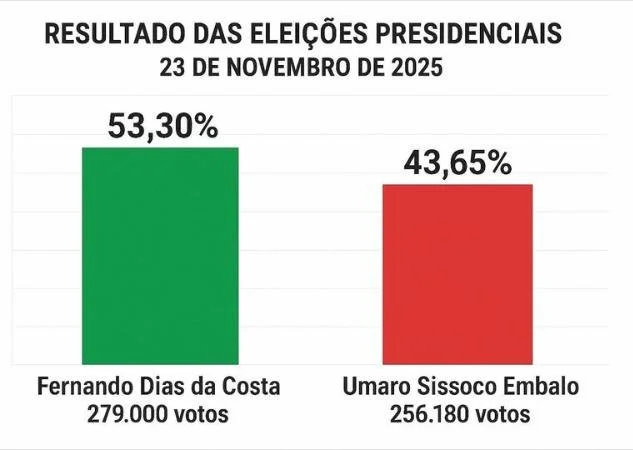
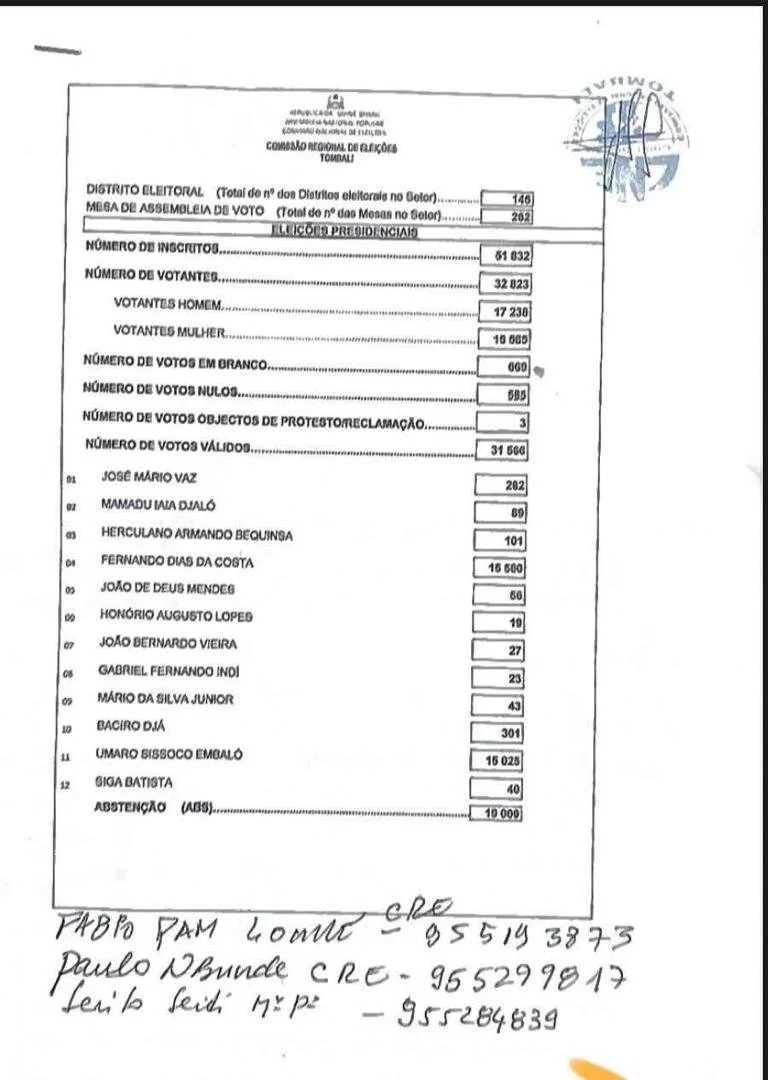
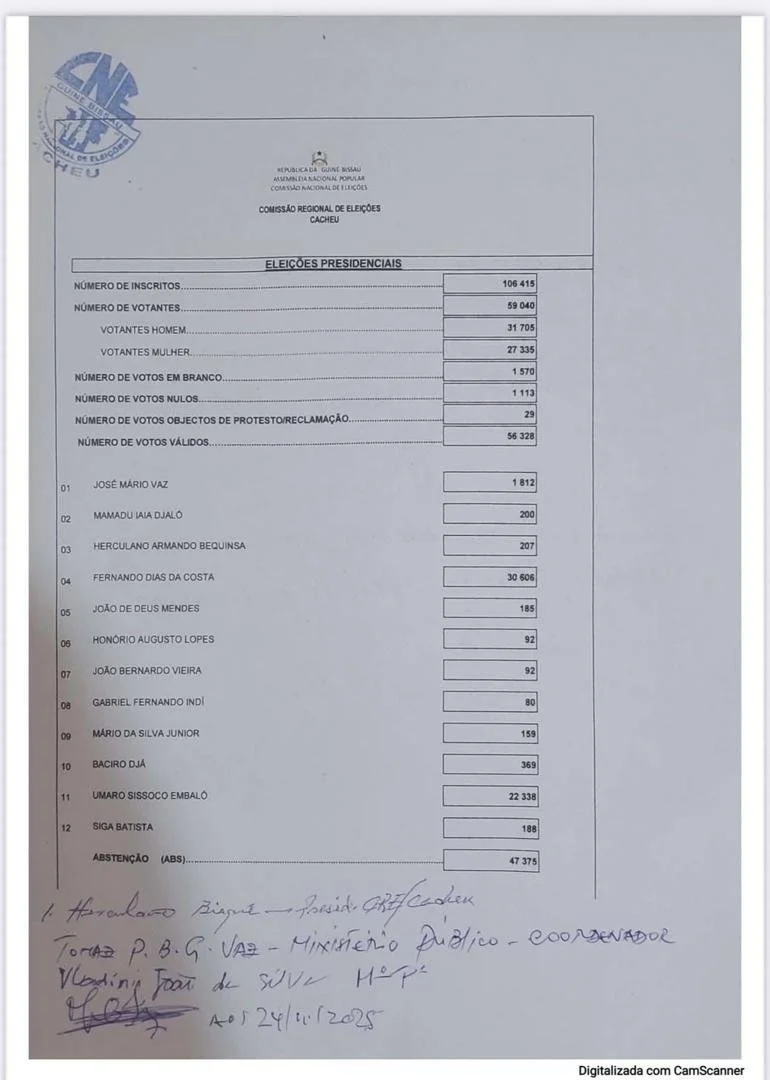
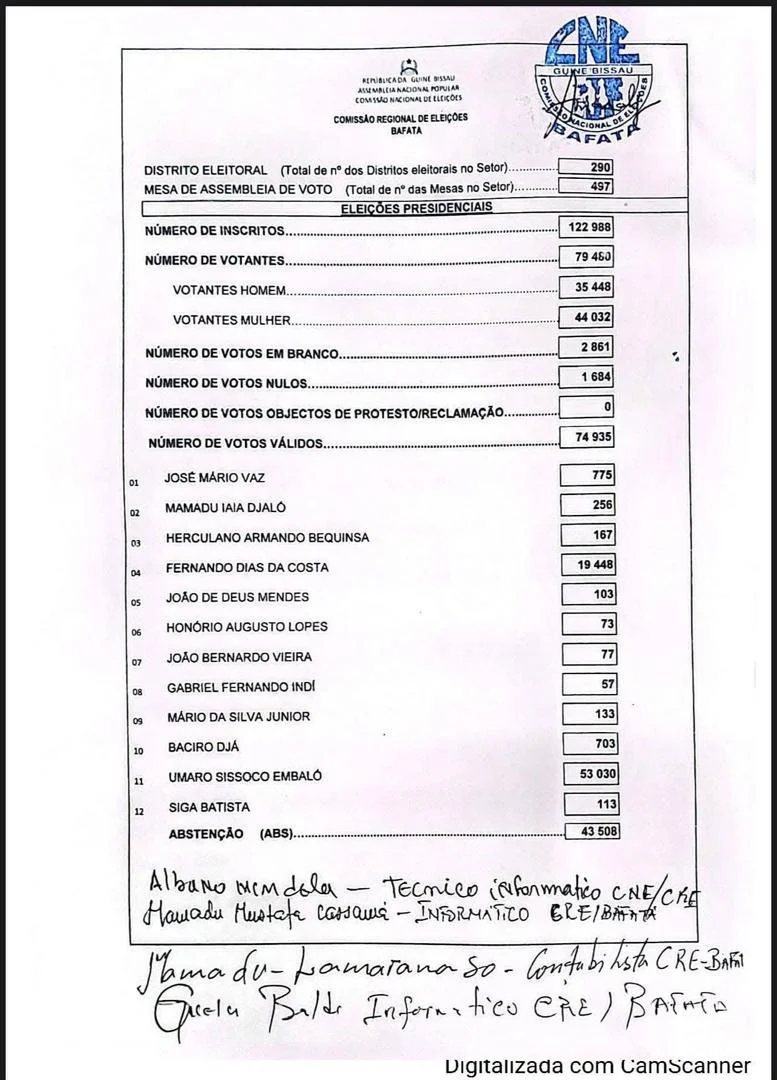
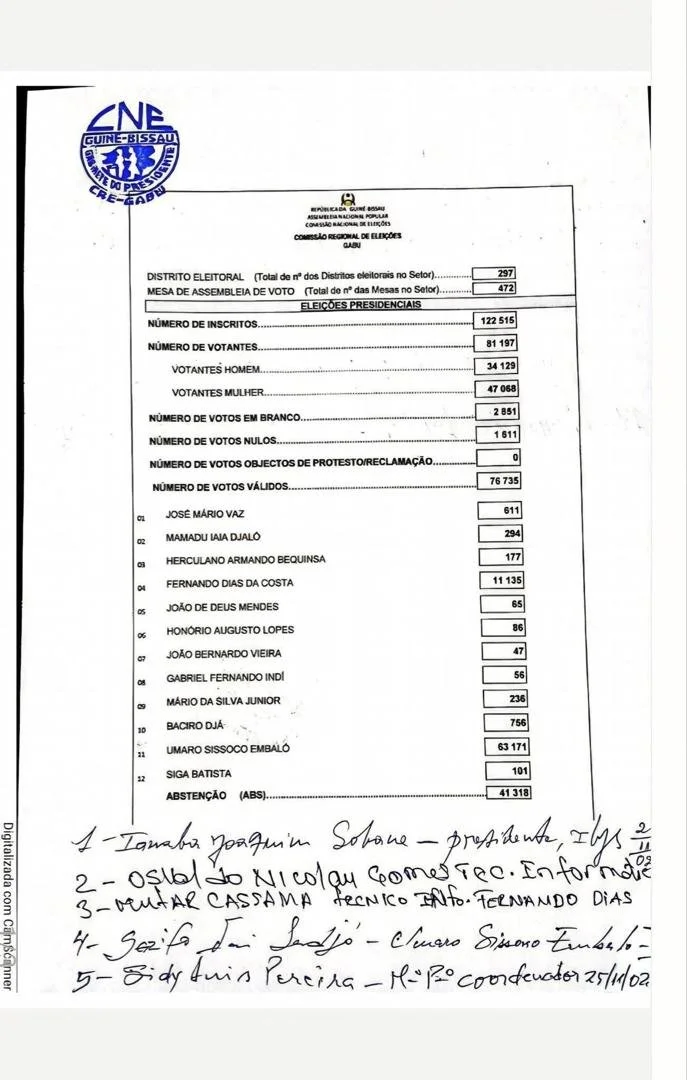
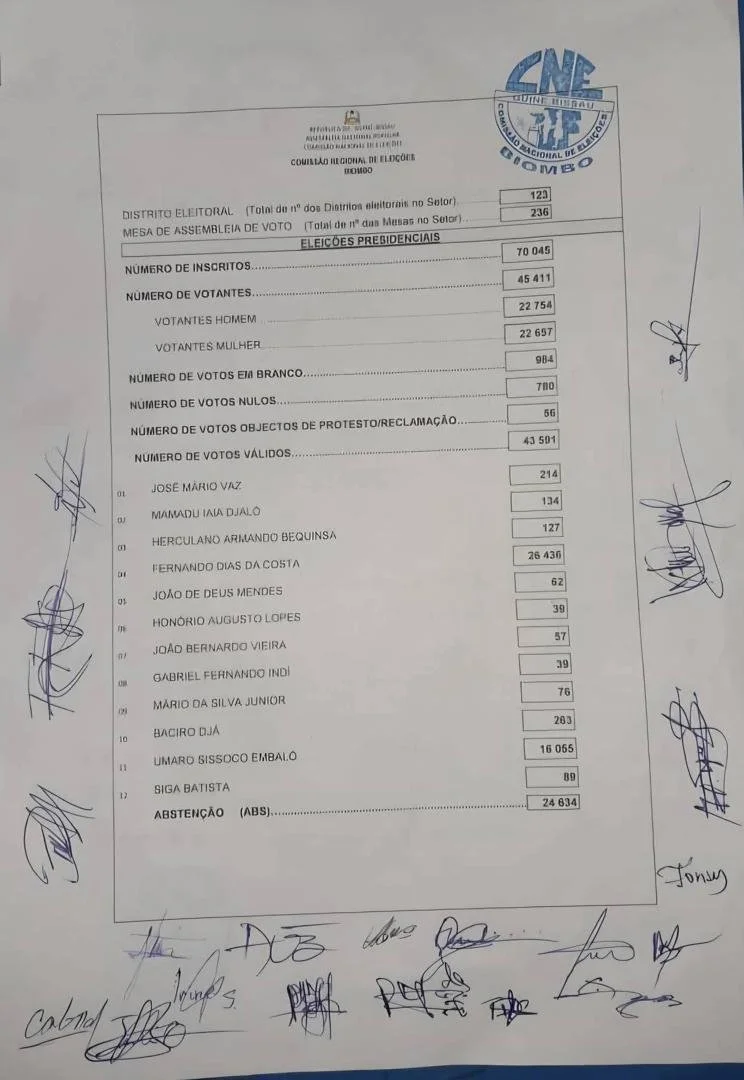
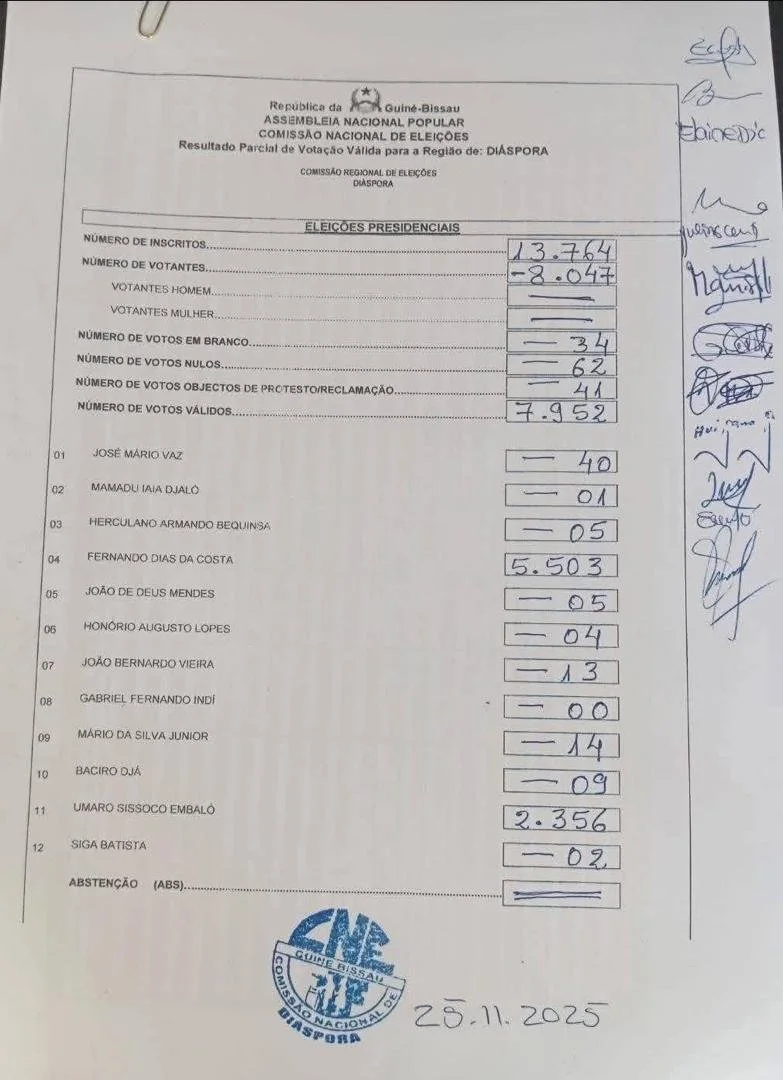
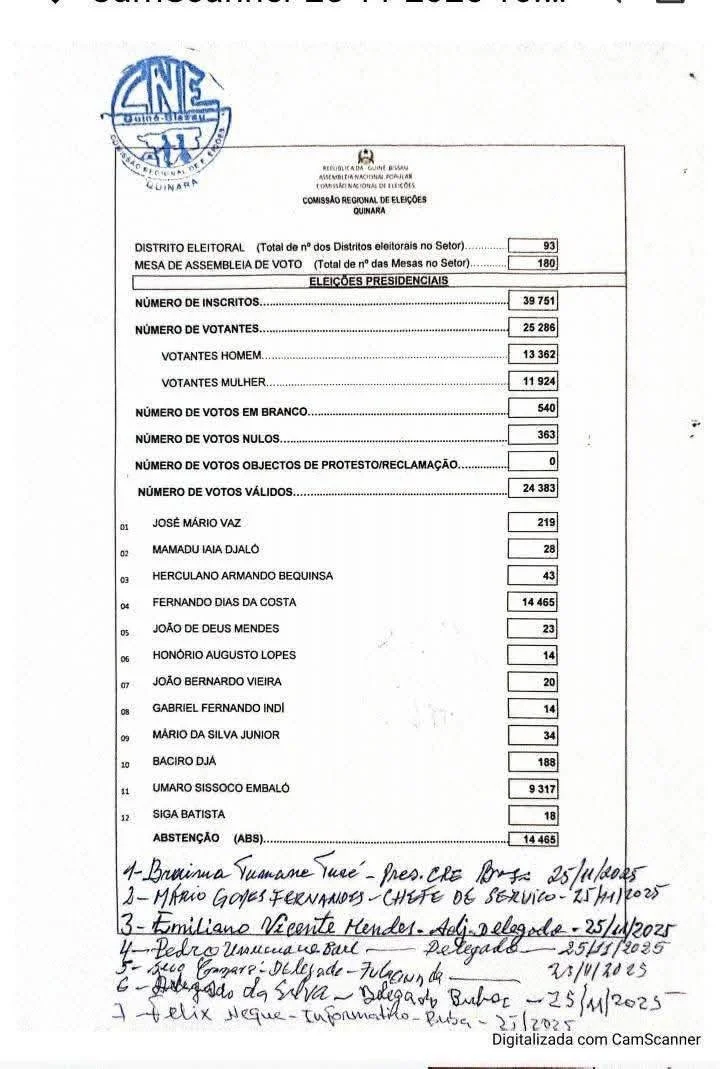
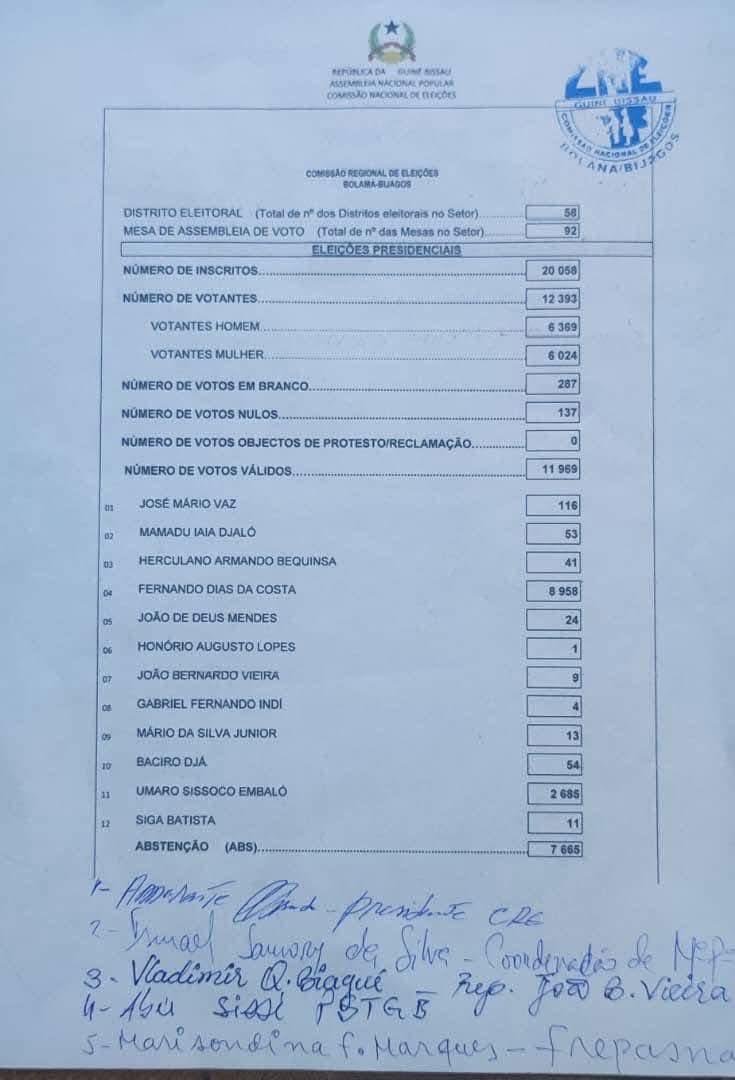
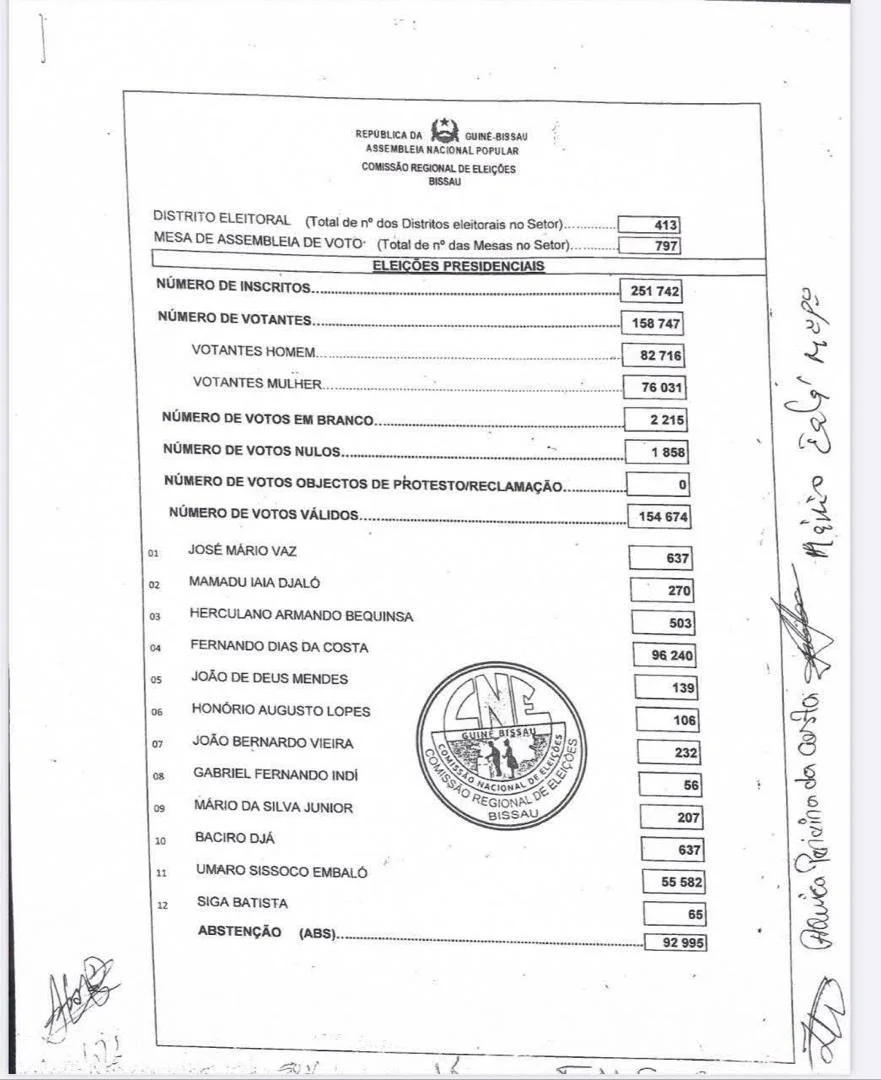
26. On November 29, Embaló relocated from Senegal to the Republic of the Congo. Reports mention that Embaló’s escape from Dakar was facilitated by former Guinean President Alpha Condé and Malian businessman Ousmane Yara, with the trio allegedly plotting from Brazzaville. According to Jeune Afrique, he left Dakar late Friday night, November 29, aboard a plane specially chartered by the Congolese presidency. He arrived in Brazzaville accompanied by about a dozen close associates: family members and close collaborators. The entourage was accommodated in a large hotel in the Congolese capital where it was reported by Confidentiel Afrique that his presence and "deceitful" and "unseemly" behavior reportedly irritated the inner circle of President Denis Sassou N'Guesso. His planned trip to Oyo was postponed, and some advisors to Sassou N'Guesso distanced themselves from him. Confidentiel Afrique reported that from his base in Brazzaville, Embaló was actively trying to pressure the National Electoral Commission in Bissau, specifically calling its head, N'pabi Cabi, multiple times to interfere with the publication of election results. Meanwhile, on November 29, The President of the Transitional Republic, Major-General Horta Inta-a, appointed the members of the new Transitional Government. The list includes 22 Ministers and 5 Secretaries of State, according to Presidential Decree No. 04/2025.
*********************************************************************************************
ALL ABOUT THE NEW GOVERNMENT IN GUINEA-BISSAU
Ministers: 1. João Bernardo Vieira – Minister of Foreign Affairs, International Cooperation and Communities; 2. Brigadier-General Mamasaliu Embaló – Minister of the Interior and Public Order; 3. Usna António Quadé - Minister of the Presidency of the Council of Ministers and Parliamentary Affairs.; 4. Carlos Pinto Pereira - Minister of Justice and Human Rights; 5. Mamadú Mudjetaba Djaló - Minister of Plan Economy and Regional Integration; 6. Major General Steve Lassana Manssaly - Minister of National Defense; 7. Carlos Nelson Sanó - Minister of Territorial Administration and Local Power; 8. Florentino Mendes Pereira - Minister of Transport, Telecommunications and Digital Economy; 9. José Carlos Esteves - Minister of Public Works, Housing and Urban Planning; 10. Celedonium Placido Vieira – Minister of Natural Resources; 11. Mário Muzante da Silva Loureiro - Minister of Energy; 12. Amadu Uri Guissé-Minister of Agriculture and Rural Development; 13. Virginia Maria da Cruz Godinho Pires Correia - Minister of Fisheries and Maritime Economy; 14. Mamadú Badji - Minister of National Education, Higher Education and Scientific Research; 15. Commodore Quinhin Nantote - Minister of Public Health; 16. Augusto Idrissa Embaló - Minister of Environment and Climate Action; 17. Assucénia Nesbi Emilia Seide Donate Clays - Minister of Public Administration, Labor and Social Security; 18. Juelma Cubala - Minister of Youth, Culture and Sports; 19. Jaimentino Co - Minister of Trade and Industry; 20. Catarina Raquel Mendonça Taborda - Minister of Tourism and Handicraft; 21. Abduramane Turé-Minister of Social Communications; 22. Khady Florence Dabo Correia - Minister of Women and Social Solidarity. SECRETARIES OF STATE: 1. Mamadú Baldé - Secretary of State for the Treasury; 2. Elísio Gomes Sá – Secretary of State for Budget and Fiscal Affairs; 3. Fatumata Jau - Secretary of State for International Cooperation and Communities; 4. Chief Commissioner Salvador Soares - Secretary of State for Public Order; 5. Rear Admiral Carlos Alfredo Mandughal - Secretary of State for Homeland Freedom Fights - Source: Presidency of the Republic of Guinea-Bissau - Office of Communications and Public Relations.
✅ The Prime Minister, Ilídio Vieira Té, former Minister of Finance and campaign manager of Embaló.
✅ Carlos Pinto Pereira, new Minister of Justice and Human Rights, was a member of the government and a friend of Embaló.
✅ General Mamasaliu Embaló, is the younger brother of Umaro Sissoco Embaló, who heads the Ministry of Interior and Public Order.
✅ One of Umaro Sissoco Embaló's faithful and loyal presidential guards , Stive Lassana Manssaly, who has been appointed to the National Defense.
✅ Mamadú Mudjetaba Djaló (Diallo) the greatest economist and long-time friend of Umaro Sissoco Embaló has been appointed in charge of Regional Economy, Plan and Integration.
✅ Mamadú Badji nicknamed the king maker of the Gabou region, a brother to Umaro Sissoco Embaló becomes Minister of National Education, Higher Education and Scientific Research.
✅ Augusto Idrissa Embaló (MBALLO), brother of Umaro Sissoco Embaló, has been appointed Minister of Environment and Climate Action.
✅ The five state secretariats are assigned to Mamadú Baldé.
✅ Fatumata Jau (Diao), in charge of International Cooperation and Communities.
All these ministers and state secretaries are relatives, friends or brothers of Umaro Sissoco Embaló.
*****************************************************************************************
By December 2, the National Electoral Commission (CNE) announced it could not publish the November election results because armed, hooded men had stormed its offices on November 26 and destroyed or stolen critical servers and tally sheets. Also on December 2, Marciano Indi was arrested on at Osvaldo Vieira International Airport in Bissau while attempting to travel to an ECOWAS parliamentary session in Nigeria. On December 3, following his double exfiltration to Dakar and Brazzaville, Embaló - whose presence was beginning to unsettle the inner circle of President Denis Sassou N'Guesso's shadow cabinet - went directly to Casablanca, not Rabat, at the behest of Macky Sall to stay in his luxurious house he built there a few years ago.. The ousted president arrived early Wednesday evening with his chamberlain, Câlifa Suares, also known as Casoca. Upon his arrival in Casablanca, the royal court "kindly provided him with the code of conduct" to be observed during his stay. On December 4, families claiming to be victims of torture, assassinations, and acts of political violence that occurred during Umaro Sissoco Embaló's political rule and in the context of the institutional and political crisis in the Republic of Guinea-Bissau filed a complaint with the Office of the Prosecutor of the International Criminal Court (ICC). On December 5, according to the newspaper EnQuête, a Moroccan businesswoman accused him of defrauding her of movable property worth over one billion CFA francs in the context of a business relationship, having failed to pay for several orders placed with her company. Several proceedings had been initiated in 2024 and 2025, but were blocked by his status as sitting President and his immunity from execution. The plaintiff's lawyers hope to be able to reopen the case following Embaló's overthrow and the loss of his presidential immunity. Following the 2025 coup, a communication blackout and "climate of terror" emerged with reports of masked men beating human rights activists and journalists. The military junta used live ammunition to disperse peaceful protests and shut down independent radio stations, significantly restricting freedom of expression. High-profile figures, including opposition leader Domingos Simões Pereira, remained forcibly detained and by early 2026, many were held incommunicado, prompting condemnation from the UN High Commissioner for Human Rights. On December 11, Amadu Tidjane Baldé, former President of the Court of Auditors and the newly appointed Attorney General of the Republic, announced that the National Election Commission (CNE) “has no technical conditions to disclose any results”. In response, Guinean lawyer Fransual Dias said that the new Attorney General of the Republic (PGR) of Guinea-Bissau is following “a previously prepared script” to lead to the annulment of the November 23 elections, underlining that the only entity competent to annul elections is the Supreme Court of Justice (STJ). According to Fransual Dias, the statements of the PGR "do not correspond to the truth", defending that the CNE is obliged by law to reconstruct the electoral process and therefore cannot talk about annulment. "The elimination of elections occurs only in cases of electoral fraud or in situations of violations of human rights, such as when the Armed Forces prevent citizens from voting," he explained. The lawyer still understands that the recent statements from the authorities make the objectives of the Military Command clearer. "If before it were only perceptions, now it is clear that this coup aims, first, to annul the elections, neutralize political opponents and, then, to organize an electoral process in which, eventually, Umaro Sissoco Embaló can agree on his own and form a monocratic parliament." Fransual Dias reinforces that the Attorney General of the Republic himself, as a prosecutor of democratic legality, has an obligation to open investigative processes, and "cannot act in a Levitical manner".
On December 12, the following was posted on social media:
“While the Guinean people do not show themselves determined to fight for their freedom, it is not ECOWAS and much less the international community that will do so in their place. Guineans conformism motivates both politicians and military to continue hijacking the country's destiny, delaying the dreams and future of young people. If there was intense popular outcry, the international community would have already paid more attention to the situation in Guinea-Bissau, but since the people are passive and conformist, hoping for a solution to come from abroad, then everything goes on as it is. This popular passivism can be understood by two facts, on the one hand, the high level of corruption of the Guinean politicians who, when they come to power, seek their own interests, forgetting the people and the country. They build luxury houses, buy cars and buy houses for their families to live in Europe; on the other hand, popular discontent and discouragement in the face of such political-military corruption, and also the low level of popular schooling, which makes them unable to know their rights and duties, as well as the mechanisms for defending them. In the face of such facts, political parties expect the people to go out to the streets to defend democracy, because power belongs to the people, but the people don't want to go out to their streets and put their chests in bullets, knowing that in the end who will benefit is the politician. Therefore, this is how political stability in Guinea-Bissau and development will never be achieved, while enduring this scenario between politicians, military and the people. Meanwhile, it takes as long as it takes, but the only one capable of putting an end to these abuses, both of the military, as well as politicians, is the Guinean people, when they realize that the power of the people is not only in the ballot boxes, but also in the protests when their choices are not are being respected and when decisions of politicians and military are not good for the country.”
On the night of December 12-13, Dinisia Reis Embalo, wife of Guinea Bissau's ousted president Umaro Sissoco Embaló, was arrested in Portugal as part of a cash smuggling and money laundering investigation. She arrived in Lisbon on a flight from Guinea Bissau with another passenger carrying nearly €5 million in cash, prompting an anonymous tip-off. The other passenger - identified him as businessman Tito Gomes Fernandes - was arrested on Sunday, and Embalo's charges are linked to the same probe. The flight carrying both individuals had originally been classified as military and had been due to continue to the southern Portuguese city of Beja. However, "subsequently it was verified by police that the nature of the flight and its destination were different. On December 14, Iancuba Djola N'Djai, Ph.D. (Fidju Matchu di CABRAL, Homeland Freedom Fighter, Political Scientist, Historian and Philosopher) published the following on social media:
“ECEC Decides Today, the People Decides Always:
A Cabralist Read of the Sissochoistic Crisis
Introduction
The day ECOWAS meets in Abuja at the highest level to discuss the political situation in Guinea-Bissau, the expectation of the Guinean people grows. But also grows prudence. Recent history teaches that external decisions, no matter how solemn, do not substitute the sovereign will of an organized people. It is in this context that Amílcar Cabral's maximum — "expecting the best, but preparing for the worst" — acquires an uncontrollable political and philosophical value, in the year it completes 60 years of existence. This political article proposes a Cabralist reading of the current Sissochoist self-coup crisis, affirming an essential truth: ECOWAS can decide today, but the people of Guinea-Bissau always decide.
Expecting the Best: Hope without Submission
Waiting for the best, in Amílcar Cabral's thinking, never meant waiting passively for solutions from outside. It means keeping alive hope in justice, in the replacement of constitutional legality, and in the respect for the popular will expressed in the ballot boxes. Today, to hope for the best is to wish that ECOWAS lives up to its founding principles, that it does not legitimize the consumed fact, that it doesn't normalize the military coup of 26 November 2025, nor the regime of repression, arbitrary arrests and political intimidation that followed it. But, as Cabral taught, the hope that is delivered is hope betrayed.
Prepare for the Worst: Historical Lucidity
The most demanding part of maximalism is the second: preparing for the worst. Cabral knew deeply the limits of international mediation when they move away from peoples and approach only the balance between states and regimes. In Guinea-Bissau, popular distrust towards ECOWAS does not arise from cynicism, but from accumulated experience: successive crises in which regional decisions have failed to protect democracy, the rule of law and popular sovereignty.
Preparing for the worst, today, means recognizing that:
* No external decision can replace internal mobilization;
* No final statement is worth more than the organization of the people;
* No summit decides the fate of a nation without your consent.
A Crítica Cabralista ao Legalismo Dependente
Amílcar Cabral has never defended a dependent legalism, nor the outsiderization of the political fight. On the contrary, he has always warned that freedom cannot be delegated. The Constitution does not stand itself. Democracy cannot survive without a people. Legality does not withstand when the power of guns over the power of the vote. Therefore, waiting for ECOWAS decisions without strengthening internal civic resistance would be to repeat mistakes of the past. International solidarity is important, but the key solution remains national and popular. "Arus dentru di kaleron ki ta kuznhadi." - Amílcar CABRAL
The People Always Decide.
If there is a central lesson of cabralist thinking that is being imposed right now, it is this: the people are the subject of history. Not Abuja, not any foreign capital, not any barracks.The people of Guinean have decided when to vote. You've made up your mind when you reject fear. You have decided when to continue demanding freedom, justice and dignity.The PAIGC militancy, democratic forces, supporters of the President-elect of the Republic, Dr. Fernando Dias da Costa, and all citizens committed to democracy must remain firm, organized and vigilant.
Conclusion
The ECOWAS decision, whatever it is, does not end the democratic fight in Guinea-Bissau. It may influence the context, but it doesn't determine historical output. As Amílcar Cabral taught, expecting the best is a duty; preparing for the worst is a responsibility. Today, more than ever, it is important to assert with political clarity and historical dignity: ECOWAS decides today. The people of Guinea-Bissau always decide.
On December 21, the following was posted on social media,
URGENT
By: Pan-African Citizen, Electoral Observer and Observer of the Elections in Guinea-Bissau - Carmelita Pires
DISTORTION OF A CRISIS: Why the Reality of Guinea-Bissau Cannot Be Reduced to a “Va-t’en-guerre”
Publish the election results. Declare the winner. Swear in the President. This is the command of the people.
With the utmost respect for the long and distinguished diplomatic experience of those who defend positions they would never accept for their own countries, I offer the following reflection in a constructive and respectful spirit, fully aware of the gravity of the moment and of the responsibilities borne by those who speak in the name of regional and international order.
The notion of va-t’en-guerre cannot reasonably be applied to a situation defined by the usurpation of power or by a coup d’état. When constitutional order is broken by force, we are not facing a political confrontation between comparable actors, nor a rhetorical escalation between opposing camps. We are facing an illegal rupture of democratic legitimacy. International law and diplomatic practice are unequivocal on this point.
If, as some of the very actors involved have themselves acknowledged and described, the facts indeed amount to an usurpation of power, then framing the situation as a va-t’en-guerre becomes conceptually and legally untenable. Such framing obscures the true nature of the crisis and risks placing on equal footing actors who are not equal. A coup is not an opinion. It is a fact, with clear legal and political consequences. Zero tolerance for coups or for the usurpation of power simply means zero tolerance.
Unless, of course, Your Excellency holds a different reading of the situation in Guinea-Bissau — in which case, as has rightly been observed, interpretations may diverge among Member States. Still, it must be stated clearly: such a reading would be isolated or, at best, a minority view. For the overwhelming majority of regional and international actors, the conclusion — or at least the perception — of what occurred in Bissau is virtually consensual. This has been stated by distinguished and respected former Heads of State who played a direct role in observing the electoral process. To argue otherwise is to place oneself outside that consensus and against an evident reality.
It is in this context that particular attention should be paid to the resolution adopted on 17 December 2025 by the European Union, dealing precisely with this country and this situation. Paradoxically, an organization that is neither sub-regional nor regional, nor even a neighbor of Guinea-Bissau, managed to adopt one of the clearest and most principled positions in defense of justice and the will of the Guinean people. That resolution provides a clear, authoritative and legally grounded characterization of the situation, leaving little room for semantic ambiguity, and can — and should — inform the reflections and decisions of all those genuinely committed to legality, stability and democratic principles.
This contribution is not intended to be polemical. Its sole purpose is to avoid misunderstandings and, above all, misinterpretations — particularly in public statements or interviews which, instead of clarifying and serving justice, end up opening space and giving oxygen to those acting outside the law: the coup-plotting military officers and power usurpers in Guinea-Bissau, who do not even attempt to conceal that they continue to act under the command of Mr. Umaro Sissoco Embaló.
Equally central is the issue of the so-called “transition.” The people of Guinea-Bissau overwhelmingly and categorically reject any transitional arrangement designed to legitimize an unconstitutional seizure of power. Such a “transition” is not perceived as a solution, but as a political artifice devoid of legal basis and democratic consent — and, ultimately, as a reward for those who resorted to arms to interrupt the normal conclusion of a legitimate electoral process.
Invoking a supposed “subsidiarity of subsidiarity” to justify selective interventions — intervening in one country, such as Benin, while blocking action in another, such as Guinea-Bissau — finds no foundation whatsoever in international law, in established regional doctrine, or in any recognized form or style of diplomacy. Such a principle simply does not exist. The idea that an individual objection could confer a privileged status capable of overriding collective responsibility constitutes a dangerous distortion of the very concept of subsidiarity.
Finally, it must be stated without ambiguity: the best guarantee of security for Guinea-Bissau’s neighboring countries — for Guinea-Bissau itself, for its citizens, and for the entire region — lies in the rule of law. It does not lie in ambiguity, accommodation, or the normalization of illegality. It lies in a stable Guinea-Bissau, led by honest leaders freely chosen by the people, and supported by strong, functional and legitimate institutions.
There is no lasting regional security without democratic legitimacy.
There is no stability built on usurpation.
And there is no peace when the crisis — and reality — are misnamed or indeed distorted. GUINEA-BISSAU HAS ITS PEOPLE - AND THAT IS ENOUGH
My brothers and my sisters,
Fellow compatriots,
Umaro Sissoco Embaló, deposed today, only failed to manipulate and steal this presidential election because the people were vigilant, attentive and united.
It was this collective strength - this silent courage in the voting lines, this keen look on the streets of Bissau and at the most remote part of our tabancas, this unwavering determination - that saved our votes and prevented the popular will from being stolen.
Since he couldn't win through electoral fraud, he invented another one: a false "coup", which today THE WHOLE WORLD KNOWS was staged to justify his standing in power as yet another African dictator and to divert attention from the political failure he carries on his back.
Today, more than ever, Guinea-Bissau needs an awake people.
No dictatorship withstands mobilized people.
No illegitimate regime stands when the PEOPLE – especially the youth – stand up, say ENOUGH and act firmly.
I ask every citizen and every citizen, in Bissau, throughout the country and in our Diaspora: stay mobilized, informed and alert.
Democracy does not defend itself.
Until constitutional legality is not fully restored, our vigilance must be at full force.
As long as the sovereign will of the people is not respected, the President-elect, Fernando Dias, does not take office, our mobilization must continue.
As long as there is a single political prisoner at the hands of the deported regime, we cannot rest.
The fight for democracy is not over yet.
To the youth, the living force of our nation:
It is your energy, your boldness and your love for the future that will ensure that Guinea-Bissau will not be buried in silence.
EXPRESS YOUR REVOLUTION PEACEFULLY BUT LOUDLY!
Noise of conscience, dignity, citizenship.
Noise that awakens, that bothers the oppressors, but that honors the citizen and honors our beloved Homeland.
THE WORLD ONLY LISTENS TO THOSE WHO DON'T QUIET
The international community – the UN, African Union, ECEDAWAS, CPLP – will only stand with Guinea-Bissau if we ourselves maintain the civic pressure, dignity and resolve to stand firm in the face of fear, oppression and terror.
Our struggle is peaceful, but firm.
She is serene but she is determined
It is without violence, but never without courage.
Guinea-Bissau is not alone
Guinea-Bissau has its people.
And when a people decides to defend their freedom, NO LIES, NO GUNS AND NO DICTATOR CAN BEAT IT.
Carmelita Pires then offered her plan for the
RESTORATION OF CONSTITUTIONAL ORDER:
When the People Decide, the Constitution Imposes
There is no doubt, at the national or international level, about the outcome of the Presidential Elections. The victory of the candidate Fernando Dias da Costa is known, recognized and sustained by the public ties of the voting tables, a direct expression of popular sovereignty.
The world knows. The people know. The Constitution confirms it.
In the face of the illegal disruption of the electoral process, the forced suspension of the constitutional normality and the attempt to usurp the will of the people, it is imposed on the PRESIDENT OF THE DEMOCRATICALLY ELECTED REPUBLIC the constitutional, political and moral duty to ASSUME FULLY THE POWER entrusted to him by the sovereign vote of the people of Guinea-Bissau.
The Constitution does not provide for artificial holidays nor does it admit the suspension of popular sovereignty through force, intimidation or staging crises. Where there is valid election, there is mandate. Where there is a mandate, there is a duty.
Thus, in accordance with article 68. o, paragraph (c) of the Constitution of the Republic of Guinea-Bissau, requires His Excellency, Mr. President of the Republic, to address a SOLEMN MESSAGE TO THE NATION, declaring the restoration of constitutional order and normality, wherever he may be, under such conditions as possible, however conditioned, prevented or forced into exile. in domestic and foreign territory, including diplomatic space.
Here is a suggestion, for this purpose, in a structured formulation of the constitutional acts to be declared.
I. Validation of Presidential Mandate
proclamation of victory
Resumption of quality of President of the Republic
Constitutional oath
fixing the start date of functions
1. To be officially declared the WINNER OF THE PRESIDENTIAL ELECTIONS, for having been elected by universal, equal, direct, secret and free suffrage of the citizens censused voters, having obtained the absolute majority of the validly expressed votes, for a term of five years, in terms of articles 63. o and 64. the one of the Constitution of the Republic.
2. To declare himself PRESIDENT OF THE REPUBLIC OF GUINEA-BISSAU, Head of State, symbol of national unity, guarantees national independence, the Constitution and democratic legality, as well as Commander-in-Chief of the Armed Forces, as legitimate representative of the Republic, in terms of article 62. the one of the Constitution.
3. To take SOLEMN OATH, in your honor, to defend the Constitution and the laws, to safeguard national independence and unity and to devote fully your intelligence, abilities and energies to the service of the people of Guinea-Bissau, fulfilling with absolute fidelity the duties inherent to the high position to which you were elected, in terms of article 67 the one of the Constitution.
4. Declaring that the date of the present Address to the Nation constitutes the FORMAL BEGINNING OF THE EXERCISE OF ITS DUTY, considering oneself immediately invested in office upon the effective restoration of the constitutional order.
II. Establishment of the State Constitutional Authority
dissolution of the "High Military Command"
FARP supreme command
international guidance to the international community
Release of the political prisoners
re-establishment of ANP
5. To declare the IMMEDIATE DISSOLUTION AND EXTINCTION OF THE SO-CALLED "MILITARY HIGH COMMAND", as well as all its acts, decisions and structures, with retroactive effects, for setting up crimes of treason to the Fatherland, in terms of article 215. the Criminal Code, and a direct attack to the constitutional rules enshrined in articles 20. o and 21. the one of the Constitution.
6. Order all units, quarters and forces of the Armed Forces of the People's Revolutionary (FARP) to obey exclusively the orders of the President of the Republic, in his capacity as COMMANDER SUPREME OF THE ARMED FORCES, reaffirming the Republican, partisan and constitutional character of the FARP.
7. Formally direct all International Organizations, regional and bilateral partners not to recognize the mentioned “Military High Command” as a valid, legitimate or legal interlocutor of the State of Guinea-Bissau.
8. Order the IMMEDIATE AND UNCONDITIONAL RELEASE OF ALL POLITICAL PRISONERS, civilian and military detained in violation of the Constitution, law and fundamental rights.
9. To declare the IMMEDIATE RESTORATION OF THE NATIONAL POPULAR ASSEMBLY (ANP), having been unconstitutional and illegally dissolved, being this result of legitimate elections and endowed with absolute parliamentary majority, ordering the removal of any physical, administrative or military obstacles preventing its full functioning.
III. Restoration of Normal Operation of Institutions
convocation of ANP
new Government
judicial system
redefining the role of FARP
ad hoc court and accountability
10. To convene an EMERGENCY MEETING OF THE NATIONAL POPULAR ASSEMBLY, in accordance with article 68. or al. (d) of the Constitution with view to the full restoration of the constitutional order, including:
• Formal swearing-in of the elected President of the Republic;
• Approval of an emergency plan to restore constitutional normality;
• Formation of a new constitutional government;
• Assessment of the situation of the Supreme Court of Justice, the Prosecutor-General's Office of the Republic and the other judicial bodies;
Institutional redefinition of the role of the People's Revolutionary Armed Forces in the constitutional framework.
11. To determine to the National People's Assembly the establishment of an AD HOC TRIBUNAL, in constitutional terms, for the trial of the material and moral perpetrators of the coup, civilian and military, as well as their apologists, including:
• Crimes against the constitutional order;
• Economic crime and corruption;
• Instruction of processes for the freezing and recovery of financial assets and real estate located abroad, namely in Senegal, Morocco, Portugal, Spain, Luxembourg, Canada, Brazil and the United States.
IV. Guarantee Measures, Democratic Pressure and Financial Safeguard
peaceful civil disobedience
clearance to ECOWAS
financial block to scammers
12. To declare that, if the sovereign decisions of the President-elect are not obeyed, will be ordered PEACEFUL CIVIL DISOBEDIENCE, instructing public officials to suspend their duties and calling on the population not to cooperate with insurgent acts contrary to the popular will expressed at the polls.
13. Formally authorize ECOWAS, in the framework of its collective security treaties and mechanisms, to resort to the use of force, if necessary, to ensure compliance with the sovereign decisions of the democratically elected President of the Republic and to permanently remove the scammers from the Palace of the Republic, military institutions and from any point of national territory.
14. Direct all International and regional Financial Institutions, including the ECAO and UEMOA bodies, not to recognize any acts, signatures or decisions of the so-called Finance Minister of the fraudsters, prohibiting him from moving State accounts, representing Guinea-Bissau or participating in international meetings, namely the meeting scheduled for January 29 in Cotonou.
This Message to the Nation is not an act of breaking, but an act of allegiance to the Constitution, the popular vote and the democratic history of Guinea-Bissau. The elected president does not create power: ASSUME THE POWER GIVEN TO HIM BY THE PEOPLE.
To the democratically elected President of the Republic, be certain that no illegitimate force is superior to popular sovereignty. The mandate you have received is not just a right – it is a historic responsibility. To exercise is to protect the people. Silence is to abandon him.
To the people of Guinea-Bissau, there is a word of encouragement and confidence: THE CONSTITUTION IS ON OUR SIDE, the vote was not in vain and the legality will eventually prevail. The civic courage demonstrated at the polls is now the basis of national restoration.
History teaches us that decisive moments do not choose perfect circumstances. Choose leaders who don't back down and people who don't quit.
Guinea-Bissau stood up for the vote.
The Constitution requires this vote to govern.
And the future begins when legality is assumed, without fear and without delays.
On December 23, Lawyer Saïd Larifou, legal representative of the President-elect of Guinea-Bissau, Fernando Dias da Costa, sent a formal notification to the Central Bank of West African States (ECOWA) and the ECOWAS Commission, warning of the breach of the constitutional order in the country. That same day, two elements of the law enforcement who summoned an order from the First Public Order Police Squad (POP) shut down the House of Law, where the Guinean League for Human Rights (LGDH) operates a space shared by a consortium of civil society organisations, Staff were sent to the streets. The decision to close the doors of the House of Law was taken hours after a group of gunmen stormed the institution and beat up two Guinean Rights League technicians, following a vigil by the organisation, which called for the release of politicians and military personnel detained by the current transitional authorities. On December 28, the lawyer and political analyst Augusto Nansambé was detained at the Second Police Squad (POP) in Bissau. A well-known critic of the current transitional authorities, was arrested two days after criticizing certain military officials of the Balanta ethnic, to which he also belongs, accusing them of assuming "reprehensible conduct", which according to him, shames that ethnic group. It was through a long text published on Facebook, on December 26, 2025, that the lawyer exposed what was in his soul, in an allusion to the November 26 coup. On December 31, Luís Bedam, assistant on the Matadouro–Quelelé–Bor line, was allegedly beaten to death. Sergeant Carlitos Luís Imbaná and Soldier Abene Albino Sambé, were indicted for the crime of murder.
Following the 2025 coup, a communication blackout and "climate of terror" emerged, with reports of masked men beating human rights activists and journalists. The military junta used live ammunition to disperse peaceful protests and shut down independent radio stations, significantly restricting freedom of expression. High-profile figures, including opposition leader Domingos Simões Pereira, remained forcibly detained and by early 2026, many were held incommunicado, prompting condemnation from the UN High Commissioner for Human Rights.
27. As of January 2026, the country is under the control of a military junta led by Major-General Horta Inta-A, who serves as transitional president. On January 6, Lawyer Saïd Larifou, legal representative of the President-elect of Guinea-Bissau, Fernando Dias da Costa sent a formal notification to the legal service of Chevron Corporation, formally notifying the American multinational agency of the obligation to suspend without delay any payment, royalties, transfer of funds or financial transactions - including those scheduled starting on January 8, 2026 - for the benefit of said authorities or any entity placed under their direct or indirect control. Meanwhile, on the same day the popular people of Bor held a public demonstration that ended in prison,with police throwing tear gas and gunshots in the air to disperse the crowd. Despite the incident, protesters promise to go back to the streets until justice is served. Additionally, the trial of Rear Admiral Jose Américo Bubo Na Tchuto, was adjourned on January 8, by the Superior Military Court, following errors attributed to the General Staff of the Armed Forces. According to the Court, the adjournment was due to the absence of witnesses, a situation caused by incorrect information and failures of communication by the General Staff, who failed to comply with the statement of the trial dates correctly. The next day, January 9, the Military High Command for the Restoration of National Security and Public Order announced the immediate ban of unauthorized press conferences and public statements, claiming that such initiatives endanger peace, social cohesion and national stability. In a press release No. 05, in the possession of Radio Jovem, the transitional authorities accused political figures and some organized groups of promoting clandestine encounters aimed at inciting violence and disrespecting the prohibitions provided for in the "Charter of Political Transition", as well as resolutions issued by the Military Command. According to the document, these practices are considered "serious confrontation with national stability" and are being closely monitored by the military authorities, who ensure monitoring the situation throughout the national territory. The Military High Command warns that anyone or entity challenging the established public order will be severely reprimanded, in terms of the law in force, emphasizing that there will be no tolerance for acts that jeopardize the collective safety. The Youth Association for the Promotion and Defense of Human Rights (AJPDH), responded by expressing its deepest repudiation and concern to Press Release No. 05, AJPDH deems unacceptable the restriction on the freedom of the press which implies the explicit prohibition of press conferences or unauthorized public statements constitutes a direct violation of freedom of expression and the right to information, pillars of any fair society. The announcement that any dissonant voice will be "severely reprimanded" creates an atmosphere of fear and repression that in no way contributes to the social cohesion invoked by the Command itself. Also on January 9, the law firm Adeola Oyinlade & Co filed a new application before the ECOWAS Community Court of Justice (Suit No: EWC/CCJ/APP/05/26) seeking Domingos Pereira’s immediate release and a declaration that his continued detention without due process is unlawful. The ECOWAS mission to Bissau, led by Sierra Leone’s President Julius Maada Bio and Senegal’s President Bassirou Diomaye Faye to engage with military authorities, took place on Saturday, January 10. The mission aimed to discuss transition timelines and the release of detainees. The two leaders met the military authorities who took power, and also visited key opposition figures. On January 13, the National Transitional Council adopted a draft constitutional revision, shifting Guinea-Bissau from a parliamentary regime to a presidential system.The new framework significantly strengthens executive powers, making the President the head of government and leader of the executive branch, [Siphiwe note: we must remember that this was Embaló’s original objective back In May 2020, when he bypassed the traditional legislative process by establishing his own independent commission of five jurists to draft a new constitution.]
the following was immediately posted on social media:
THE LEGAL AND POLITICAL INVALIDITY OF THE CONSTITUTIONAL CHANGE IMPOSED BY CONSTITUTIONARY "GENERALS" AND THE DELIGHTFUL CHALLENGE TO THE CEDECAO
I. USURPATION OF CONSTITUENT POWER AND ABSOLUTE ABSENCE OF POPULAR MANDATE
The amendment of the Constitution carried out in a flash by "generals" who rose to power through a coup is an usurpation of the constituent power and is legally invalid ab initio.
Constituent power — whether originated or derivative — emanates exclusively from the sovereign people and can only be exercised by legitimate representatives for popular mandate, in the framework of a democratic process.
Military authorities taking power by force of arms HOLD NO LEGITIMACY to redefine or enforce the constitutional order manu militari. In doing so, you are not exercising constituent power: you are exercising a SERIOUS USURPATION OF POPULAR SOVEREIGNMENT.
II. BREAK OF THE CONSTITUTIONAL ORDER AND NULLIDITY OF THE SUBJECTIVE ACTS
Coup d'etat is, by definition, a breach of the constitutional legality. Once the Constitutional order is disrupted, all legislative acts that seek to “reform” or “overturn” the Constitution outside of its legitimate mechanisms are legally null and void.
In public law the principle EX INIURIA JUS NON ORITUR applies: illegal does not give birth to law. Thus, a constitutional change arising from an illegal act DOES NOT PRODUCE VALID LEGAL EFFECTS, even if coated with formal or symbolic language.
III. LACK OF VALID CONSTITUTIONAL PROCEDURE
Even in the context of institutional normality, the constitutional revision requires stringent procedures: legitimate legislative bodies, qualified quorums, public debate, deliberative deadlines and judicial control.
The imposition of constitutional amendments by military decree, without a legitimate Parliament, without popular consultation and without judicial control, turns the Constitution into an INSTRUMENT OF COERCION, and not into a founding legal-political pact of the State.
IV. MILITARIZATION OF CIVIL POWER AND MATERIAL UNCONSTITUTIONALITY
The Constitution exists to subordinate the Armed Forces to civilian power, protect fundamental rights and prevent the capture of the State by armed means.
When “generals” rewrite the Constitution to legitimize a coup, extend their stay in power, or shield themselves from legal liability, they commit a material violation of the very idea of constitutionalism.
A text imposed by the military to serve military interests no longer be a Constitution and becomes an INTERNAL OCCUPATION REGULATION.
V. DIRECT AND DELUSIVE CHALLENGE TO THE CEDEAS
The constitutional change imposed by the “generals” is not just an internal act of usurpation: it is also a frontal and deliberate challenge to the political, legal and regulatory authority of ECOWAS.
By proceeding with this maneuver during and after regional diplomatic initiatives, the scammers look for:
* drain the regional mediation;
* create consumed facts;
* signify that they do not recognize the regulatory authority of ECOWAS.
This is a conscious effort to discredit the regional organization, weaken its coup-prevention mechanisms and undermine the principle of constitutional intolerance to unconstitutional government changes.
VI. DISAUTHORIZATION OF HIGH LEVEL MISSION OF PRESIDENTS BIO AND DIOMAYE FAYE
The aforementioned constitutional change equally represents a direct front to the recent high-level ECOWAS mission, led by President Julius Maada Bio of Sierra Leone and President Bassirou Diomaye Faye of Senegal.
When advancing unilaterally with constitutional changes, the "generals":
* politically disauthorize regional envoys;
* empty the content of ongoing negotiations;
* They project the image of an ECOWAS unable to enforce its own protocols.
Such an attitude compromises not only the specific mission, but the future credibility of regional preventive diplomacy.
VII. THE "CONSTITUTIONAL REFORM" AS AN INSTRUMENT OF POLITICAL BLACKMAIL
There is strong indications that this CONSTITUTIONAL “PSEUDO-ALTERATION” will be used as a currency of exchange in future negotiations, in a factual logic: the scammers create a new illegitimate legal framework to subsequently “negotiate” concessions, deadlines or partial recognition.
This practice is particularly dangerous, as it encourages the normalization of the coup as a method of renegotiating the constitutional order, corrupting the foundations of the rule of law in the region.
VIII. INTERNATIONAL & REGIONAL LAW OFFENSE
The actions of the "generals" violate:
* the Charter of the United Nations (peoples' self-determination);
* the African Charter of Democracy,Elections and Governance;
* the ECOWAS Protocols on Democracy and Good Governance.
International practice is clear: constitutions or revisions imposed by fraudulent regimes DO NOT GENERATE LEGALITY OR LASTING RECOGNITION.
IX. CONCLUSION
The constitutional change imposed by usurping "generals":
* lacks popular mandate;
* violates the constitutional procedure;
* militarize the civil power;
* openly challenges ECEDAO;
* discredit high-level regional missions;
* aims to create instruments of political blackmail.
Yes, therefore, LEGALLY USELESS, POLITICALLY ILLEGIT AND INTERNATIONALLY UNSUSTAINABLE.
It is therefore recommended not to waste time analyzing or evaluating an action that, from the point of view of law, is NULL AND LEGALLY INEXISTENT.
Signature :
International lawyer and constitutionalist of Lusophonia
On January 22, 2026, the military government issued a decree setting new legislative and presidential elections for December 6, 2026. The transitional charter explicitly prohibits current interim leaders, including the transitional president and prime minister, from running in the upcoming 2026 elections to maintain perceived neutrality. Political party activities remain largely suspended, and key opposition figures, including Pereira, remain in detention or exile as of late January 2026. A Gathering of Citizens of Guinea-Bissau promptly sent the following:
Open Letter to ECOWAS
The Economic Community of West African States (ECOWAS) was clear in its decisions on Guinea-Bissau: it rejected the military transition plan, demanded the immediate restoration of the constitutional order, the liberation of all political leaders and the creation of a short, civilian-led transition with a government truly inclusive. It also warned the enforcement of sanctions if these demands were not met. Unfortunately, the Military High Command has ignored all of these decisions. The most influential politician in the country remains detained, the winner of the last election remains a refugee at the Nigerian Embassy and other political leaders remain in refugee, for lack of minimum security guarantees. There is no inclusive government.The country continues under the same regime that was in force during Umaro Sissoco Embaló's mandate, directly contradicting ECOWAS guidelines and excluding relevant political and social forces from the transitional process. Even worse, elections were announced for December 6th, in total alignment with the military transition plan that ECOWAS itself rejected. An electoral process organized in these conditions will not be free, nor fair, nor credible. It will only serve to legitimize a regime imposed by force. The transition required by ECOWAS should be civilian, not military. Any solution that keeps the military at the center of political power violates the democratic principles of the region. Facing this situation, a clear position is mandatory. Slowness and ambiguity only strengthens the constitutional breakdown. ECOWAS must act firmly, applying serious and coherent sanctions, or risk being seen as an accomplice, by default, in consolidating a fraudulent regime. Democracy in Guinea-Bissau, and the credibility of ECOWAS while ensuring constitutional order in West Africa, are at stake.
On January 26, the Transitional Prime Minister, Ilídio Vieira Té, stated that the Military High Command has already ordered the release of all prisoners under his custody. The governor also clarified that the case of Domingos Simões Pereira (DSP) "is not and has not been under military control", being "a matter of the exclusive responsibility of the competent courts". The position was disclosed in a note from the Prime Minister's Press Office, which reports the meeting held on Monday, January 26, between Ilídio Vieira Té and a delegation of PAIGC veterans, accompanied by leaders from other political groups. The meeting, facilitated by Joana Cobde Nhanca, leader of the Social Democratic Movement, aimed to promote peace, national reconciliation and political stability in this transition period. According to The Democrat, this was the second meeting between the Prime Minister and PAIGC veterans — the first occurred on January 16 — both held in Premature, with the presence of various political personalities. Among the participants were Joana Cobde Nhanca, Manuel dos Santos (Manecas), Ana Maria Soares and Iaia Maria Turé. Also in attendance was the former leader of the Guinea-Bissau Resistance (RGB), Salvador Tchongo, accompanied by an unidentified person. According to the official note, the Prime Minister reiterated that all political leaders have the responsibility to contribute to national understanding and fair and accountable commitments. Ilídio Vieira Té assured the government's "full availability for a constructive dialogue that serves national interests" and informed that it will convey the concerns of veterans to the President of the Transitional Republic and the Military High Command. The governor also appealed for serenity and warned of the negative impact of social networks on social cohesion, emphasizing that "freedom of expression should not be mistaken for debauchery". He also criticized "irresponsible attacks" which, according to him, "only denigrate the image of the country", highlighting signs of positive development in relation to the recent past. On the same day, after 30 days in detention, Augusto Nansambé was released while Guinean economist Carlos Lopes was awarded with the Amílcar Cabral prize by the University of Cape Verde (UniCV) and affirmed that the arrest of Domingos Simones Pereira, leader of PAIGC, and others, in Guinea-Bissau, is an "illegality" that "must be questioned in any international forum". "I hope his release and the other political prisoners in Guinea-Bissau happens as soon as possible," he told the news agency Lusa, in the city of Praia. Such arrest and "a moral confrontation, for dealing not only an illegality, but also a deprivation of liberty" without justification, "not even at the official level." On January 27, Mamadou António published the article, Captured Diplomacy: The Urgent Reconstruction of Guinea-Bissau's Diplomatic Service
“Guinea-Bissau is currently experiencing one of the darkest phases in its institutional history. What is underway is not merely a political crisis, but a systematic process of state capture. One of the sectors most severely affected by this degradation is national diplomacy—once a pillar of prestige and professionalism—now transformed, in many cases, into an informal extension of power networks associated with the regime and the obscure interests that sustain it, allegedly ranging from the trafficking of diplomatic passports and drugs to all types of influence peddling, including vote buying. Over the past six years, Guinea-Bissau's diplomacy has been systematically and deliberately dismantled as a career service. In its place, political appointments, cronyism, informants, influence operatives, and unofficial agents of Umaro Sissoco Embaló's regime have proliferated. The result is devastating: a discredited foreign policy, subordinated to personal interests and detached from the national interest. It is important to be clear: not all ambassadors from Guinea-Bissau are servants of the regime. Fortunately, there are still worthy diplomats, career professionals, and patriots committed to the State. However, it is no coincidence that the strategic diplomatic posts—Lisbon, Paris, Brussels, the United Nations, Washington, and the representation to the African Union—are today largely occupied by figures close to, complicit with, or politically aligned with the current usurpers of power because they themselves, allegedly, are also usurpers. This fact helps explain unacceptable behaviors on the diplomatic front, such as the refusal of the representative in Lisbon, Artur Silva, to receive a formal letter—a gesture that violates basic norms of international protocol. Paris is currently represented by a loyal ally of the regime, a long-time agent. Brussels and the European Union are represented by one of Umaro Sissoco Embaló's closest accomplices.
At the United Nations, the situation is even more serious. The Guinean representation is occupied not only by one of Sissoco's and the regime's closest allies and loyalists associated with drug trafficking, but also by individuals who publicly claim family ties and other identity links with the USS itself. There are recurring and serious allegations that diplomats linked to this circuit travel with suitcases of money and other valuables for the purposes of money laundering, transporting jewelry, and, in some frequent cases, even involvement in drug trafficking schemes. Even while awaiting independent judicial investigation, these accusations are serious enough to compromise the country's international credibility. In Washington, the political proximity to the regime raises profound questions about the institutional neutrality of the representation. And in the case of the African Union, the situation takes on an even more sensitive strategic character. Addis Ababa is not just any post. Due to its continental political centrality, the African Union should be represented by career diplomats with proven technical competence, moral integrity, and institutional loyalty to the Guinean state—not by political agents associated with former minister Susi Barbosa and, through intermediaries, informants of Umaro Sissoco Embaló himself. This reality is not a matter of chance. It is a conscious strategy: replacing highly competent professional diplomats with loyal political agents in an attempt to control narratives, silence international denunciations, and protect illegitimate interests, such as the sale of diplomatic passports, among others. A captured diplomacy is a weakened state. Without independent diplomats, trained and committed to the Republic, Guinea-Bissau loses its voice, credibility, and real capacity to defend its sovereign interests. The reconstruction of the Guinean diplomatic service has therefore become a national priority. It will be necessary to rebuild, practically from scratch, a diplomatic corps based on merit, training, career advancement, public ethics, and institutional loyalty—not on loyalty to individuals, political clans, or informal power networks. Guinea-Bissau once had a respected diplomatic corps. It had representatives who defended the country with honor, competence, and dignity. This legacy needs to be recovered. The country doesn't need political informants abroad. It needs diplomats. It doesn't need embassies transformed into propaganda centers for the regime. It needs missions that represent the Guinean people and the Republic. The struggle for democracy in Guinea-Bissau necessarily also involves liberating its foreign policy from authoritarian control. Without professional diplomacy, there is no real sovereignty. Without civil servants, there is no Republic. It's time to say enough is enough.”
On January 28 Secretary of State of the Public Order Salvador Soares of The Transitional Government announced that it will launch, from next February 1, on the roads of the country, the "stop operation", for seizure of undocumented vehicles. The Secretary of State of the Public Order Salvador Soares, who says that tolerance for "non-compliance" is zero, opening the door to more violations of human rights, the right to privacy and security of possessions. David Sanhá, spokesperson for the drivers of the region, expressed concern about the measure and appealed to the Executive to consider the charges and penalties stipulated within the stipulated time limit, taking into account the poor economic and financial situation that affects the professionals in the field. On January 29, Senegal's Foreign Minister Cheikh Niang arrived in Bissau as a "special envoy" of Senegalese President Bassirou Diomaye Faye while the president of the Syndicate of Journalists and Technicians of Social Communication (SINJOTECS), Indira Correia Baldé, said that the security of journalists is under threat in the country. Additionally, the Civil Society Pact urgently requested Don Lampra Cá, Bishop the Diocese of Bissau to intervene to protect "the life and physical integrity" of social activist Vicario Balanta, leader of the Dust of Earth movement. Nevertheless, The Transitional President, Horta Inta-a, signed and published a Presidential Decree announcing his own promotion to the General of the Army, following a proposal from the Government. The Presidential Decree explains that the proposal of the Transitional Government is based, among other things, on the "high performance" of Horta Inta-a in exercising the high functions of Head of State, as well as his "determining role" as a factor in national unity and defense of democracy. On January 30, The Economic Community of West African States (ECOWAS) has revealed that the Military High Command has announced the creation of an inclusive Transitional Government, with the assignment of three ministerial folders to the PAIGC and another three to the political group led by Fernando Dias da Costa, as well as the appointment of ten representatives from the two political groups for the National Transitional Council. In a statement dated 30 January, ECOWAS welcomed the measures taken by the transitional authorities, considering them as important steps towards promoting an inclusive political environment and returning to constitutional order in the country. Meanwhile, the executive director of the NGO Tiniguena, Miguel de Barros stated that it is fundamental for the Guinean State to rethink the oil prospection project off the Bijagos and that it is necessary that the State make the exact information public, identifying areas where oil is intended to be produced. That night, after 65 days of detention in the cells of the Second Police Squadron of the Public Order (POP), in Bissau, Domingos Simones Pereira (DSP) was released. Hours after his release, after more than two months in detention, Fernando Dias also left the Nigerian Embassy, returning to his residence, in the Misira neighborhood, in Bissau. According to a statement by their lawyers "The release is a positive sign, which we welcome with prudence and a sense of responsibility," adding that "it marks an important step, however, without allowing, at this stage, to speak of a definite victory." The lawyers demand constitutional legality and effective respect for fundamental freedoms in Guinea-Bissau, and encourage regional and international partners to continue their follow-up efforts. The Special Envoy of the President of Senegal, who accompanied Eng. Domingos Simões Pereira to his home, said that a step that creates conditions for the next phase, inclusive dialogue for resolving the current political-military crisis in the country, has been completed. A group of members of the PAIGC Central Committee, self-declared Thought Group, appealed to party veterans to take the leadership of the political formation until the next congress. According to Aladje Seco Sano, spokesperson of the Think Group, the collective created about two months ago has already been in contact with some veterans, in order to raise awareness about taking over the leadership of the party until a new congress is held. “PAIGC cannot go ahead without a direction. It is urgent to rescue the party from the situation it is in," Seco Sano declared, emphasizing that the party needs stability and strong leadership at this time of political uncertainty and stated that "the party cannot be led by someone who is in house arrest". On the other hand, Seco Sano praised the behavior of the Military Command, stating that his performance "has allowed to maintain order in the country" after the coup d'état. But Nair Pereira writes, “First, political fear. Domingos Simões Pereira is not just a party leader, he is a figure with a real social base, international recognition and capacity for mobilization. Holding him back is a way to neutralize him without confronting him politically. It is not strength, it is fear. Next comes the logic of bullying. By prolonging retention, the military sends a clear message to all political class and society: no one is out of reach. It's not just about DSP, it's about creating a climate of restraint and silence. There's also the internal calculation. Within the armed forces itself there is no fully unified line. Prolonging the situation can serve to save time, manage external pressures, align internal positions, and avoid decisions that could further divide the military apparatus. Another important point is the instrumentalization of justice and "legality". Keeping someone in limbo, neither formally charged nor truly free, is a classic tactic in force regimes. Looks like control, but avoids assuming clear responsibilities. And finally the international pressure. Paradoxically, it both limits and prolongs the problem. The military knows they can't go too far, but they also test how far they can stretch the rope without facing serious consequences. In short, what's behind is not a sophisticated strategy; it's a mixture of fear, improvisation, and a will for control. When power stops convincing, it attempts to paralyze. And when it paralyzes, it reveals fragility, not strength. The power assailants don't want Domingo Simones Pereira in prison. They want him out of politics anyway. If you’re at home, quiet and politically neutral, better for them. Thus, they get rid of the political cost of keeping him detained and, at the same time, wash their hands of anything that might happen to him. Domestic freedom from DSP is just an illusion. The real goal is simple: get him out of the political game without assuming responsibility.”
“What the Guinean people want is announcement of the results of the elections. Swindler has no right to demand or propose anything.” - Balanta Professor of International Relations Beto Infande
THE PROBLEM OF GOVERNANCE IS A SPIRITUAL ONE
In the image above, there is a diagram with three triangles, the top triange in the shape of a pyramid represents
𝐃𝐢𝐯𝐢𝐧𝐞 𝐂𝐨𝐧𝐬𝐜𝐢𝐨𝐮𝐬𝐧𝐞𝐬𝐬 or in the Kemetic Tradition,
the "𝐀𝐮𝐬𝐚𝐫" Man with faculties represented by spheres
1- 𝑶𝒎𝒏𝒊𝒑𝒓𝒆𝒔𝒆𝒏𝒄𝒆;
2 - 𝑶𝒎𝒏𝒊𝒔𝒄𝒊𝒆𝒏𝒄𝒆; and
3 - 𝑶𝒎𝒏𝒊𝒑𝒐𝒕𝒆𝒏𝒄𝒆.
In the Bible stories, Jesus Christ was such an Ausar Man.
For Rastafari, HIM Haile Selassie I is such an Ausar Man. In fact, Emperor Haile Selassie is who his titles say he is, “King of Kings, Lord of Lords, Conquering Lion of Judah” and thus was sent to earth and humanity in this time in order that an Ausar Man could take the reigns of control and demonstrate God in Man Ruling the Earth in order to prevent man from destroying himself in World War I and World War II and in the current crisis of “might makes right” as displayed by both big nations (USA, Israel) and small nations (Guinea Bissau) alike.
The inverted middle triangle represents the "𝐀𝐛" Man. He posses the faculties of
sphere 4 - 𝐭𝐫𝐮𝐭𝐡 𝐚𝐧𝐝 𝐣𝐨𝐲 (derived from its connection to sphere 2 Omniscience;
sphere 5 - 𝐝𝐢𝐬𝐜𝐢𝐩𝐥𝐢𝐧𝐞 (derived from its relationship to sphere 3 Omnipotence; and
sphere 6 - 𝐭𝐡𝐞 𝐰𝐢𝐥𝐥 which is the faculty of freedom to choose.
Finally, there is the bottom triangle of the "𝐒𝐚𝐡𝐮" Man who posses the faculties of
sphere 7 - 𝐢𝐦𝐚𝐠𝐢𝐧𝐚𝐭𝐢𝐨𝐧;
sphere 8 - the 𝐢𝐧𝐭𝐞𝐥𝐥𝐞𝐜𝐭; and
sphere 9 - the 𝐩𝐡𝐲𝐬𝐢𝐜𝐚𝐥 𝐛𝐨𝐝𝐲.
"The Story of Ausar is to the Kamitic people and tradition what the Old Testament is to the Jews and the Bible is to the Christians. It is the master text of the Ausarian religion, which dominated the spiritual life throughout ancient history. It is the key to understanding the philosophy and way of life . . . of all major religious books." - Ra Un Nefer Amen.
Every person uses his/her "will" (sphere 6) either to utilize the faculties of truth/joy and discipline to become one with the 𝐀𝐮𝐬𝐚𝐫 (𝐃𝐢𝐯𝐢𝐧𝐞 𝐂𝐨𝐧𝐬𝐜𝐢𝐨𝐮𝐬𝐧𝐞𝐬𝐬) and thereby realize one's divine nature or "God in Man" OR one will use his/her will to indulge one's animal nature by using the faculties of the intellect and imagination in order to satisfy one's personality (ego) for the sake of pleasure and remain a 𝐒𝐚𝐡𝐮 𝐌𝐚𝐧.
The Story of Ausar tells how the Ausar Man was spreading the Divine Teachings on Earth and his brother Set became jealous (i.e. the animal spirit or "emotions" took control and guided his behavior instead of Divine Consciousness) and murdered his brother Ausar. Set has been ruling ever since. But Ausar's wife Auset gave birth to a Son named Heru who with the help of guidance from his father through dreams (ancestor spirit and Divine consciousness), Heru wars against Set for dominion on Earth.
In other words, man must sacrifice his animal spirit (Sahu Man) and his human spirit (Ab Man) in order to become Divine (Ausar Man).
This is the struggle of good (Heru, the man guided by Divine Consciousness and ancestral help) vs. evil (Set, the spirit of deception, division, aggression and lies) taking place within the individual.
This is manifested in society when Set uses deception and force to deceive the Sahu Man and the government is controlled by such deceived agents of the evil Set who do not display the wisdom and behaviors of the Ausar Man who rules not by force and lies but by truth and justice, balancing the needs of ALL in society through the falculties of omnipresence, omniscience and omnipotence.
When Amilcar Cabral, representing the Ausar Man in Guinea Bissau, was murdered by his own brothers representing Set and Sahu men in Guinea Bissau, the story of Ausar, the struggle of Good vs Evil, was enacted. That struggle is being played out today.
Only when government is emptied of Sahu men and replaced by Ab men with proven track record of a lifetime of cultivating and being guided by Divine Consciousness and thus becoming Ausar men, will justice and peace be achieved not just in Guinea Bissau, but throughout the earth.
THE WAR BETWEEN GOOD AND EVIL TAKING PLACE RIGHT NOW
Excerpt from 𝐌𝐞𝐭𝐮 𝐍𝐞𝐭𝐞𝐫 𝐕𝐨𝐥𝐮𝐦𝐞 𝟐: 𝐀𝐧𝐮𝐤 𝐀𝐮𝐬𝐚𝐫 𝐓𝐡𝐞 𝐊𝐚𝐦𝐢𝐭𝐢𝐜 𝐈𝐧𝐢𝐭𝐢𝐚𝐭𝐢𝐨𝐧 𝐒𝐲𝐬𝐭𝐞𝐦 by Ra Un Nefer Amen
"𝑻𝒐 𝒅𝒆𝒇𝒆𝒂𝒕 𝒆𝒗𝒊𝒍 (Set) 𝒊𝒏 𝒔𝒐𝒄𝒊𝒆𝒕𝒚 𝒘𝒆 𝒎𝒖𝒔𝒕 𝒅𝒆𝒇𝒆𝒂𝒕 𝒊𝒕 𝒊𝒏 𝒕𝒉𝒆 𝒊𝒏𝒅𝒊𝒗𝒊𝒅𝒖𝒂𝒍. We must remember that Set's power comes from deceiving the 𝐒𝐚𝐡𝐮 𝐌𝐚𝐧 (the man guided only by his selfish animal nature rather than Divine Consciousness) who makes up the majority in the world. He is to be uplifted through the initation program outlined here: https://www.balanta.org/.../anu-spirituality-salvation...
We must also reiterate the fact that before Set can be made to account to the Truth by which men live, 𝒉𝒆 𝒎𝒖𝒔𝒕 𝒃𝒆 𝒓𝒆𝒔𝒊𝒔𝒕𝒆𝒅 𝒃𝒚 𝒂𝒍𝒍 𝒎𝒆𝒂𝒏𝒔 𝒕𝒉𝒂𝒕 𝒂𝒓𝒆 𝒊𝒏 𝒉𝒂𝒓𝒎𝒐𝒏𝒚 𝒘𝒊𝒕𝒉 𝑫𝒊𝒗𝒊𝒏𝒆 𝑳𝒂𝒘 - thus the war between Set and Heru (he who seeks Divine Consciousness and to live by truth and justice). 𝐈𝐭 𝐢𝐬 𝐨𝐧𝐞 𝐨𝐟 𝐒𝐞𝐭'𝐬 𝐠𝐫𝐞𝐚𝐭𝐞𝐬𝐭 𝐚𝐜𝐭𝐬 𝐨𝐟 𝐝𝐞𝐜𝐞𝐩𝐭𝐢𝐨𝐧 𝐭𝐨 𝐮𝐬𝐞 𝐚𝐥𝐥 𝐟𝐨𝐫𝐦𝐬 𝐨𝐟 𝐚𝐠𝐠𝐫𝐞𝐬𝐬𝐢𝐨𝐧 𝐚𝐧𝐝 𝐝𝐢𝐯𝐢𝐬𝐢𝐯𝐞𝐧𝐞𝐬𝐬 (𝐝𝐢𝐯𝐢𝐝𝐞 𝐚𝐧𝐝 𝐜𝐨𝐧𝐪𝐮𝐞𝐫) 𝐭𝐨 𝐚𝐜𝐡𝐢𝐞𝐯𝐞 𝐡𝐢𝐬 𝐞𝐧𝐝𝐬, 𝐭𝐡𝐞𝐧 𝐝𝐞𝐧𝐨𝐮𝐧𝐜𝐞 𝐞𝐯𝐞𝐫𝐲𝐨𝐧𝐞 𝐰𝐡𝐨 𝐮𝐬𝐞𝐬 𝐬𝐮𝐜𝐡 𝐦𝐞𝐭𝐡𝐨𝐝𝐬 𝐭𝐨 𝐨𝐩𝐩𝐨𝐬𝐞 𝐡𝐢𝐬 𝐞𝐯𝐢𝐥. Ultimately, Set can only be fully defeated by bringing him to the court of justice - which is based on 𝒘𝒆𝒊𝒈𝒉𝒏𝒊𝒏𝒈 𝒉𝒊𝒔 𝒂𝒄𝒕𝒊𝒐𝒏𝒔 𝒂𝒈𝒂𝒊𝒏𝒔𝒕 𝒕𝒉𝒆 𝒍𝒂𝒘𝒔 𝒉𝒆 𝒉𝒂𝒔 𝒑𝒓𝒐𝒄𝒍𝒂𝒊𝒎𝒆𝒅. Given his nature and his agenda, he must break everyone of them. In the life of the individual, and freedom fighters, it means that she must always fight by means which do not run afoul of Divine Law. The story of Ausar (and the conflict between Good (Heru) and Evil (Set) shows that such means do not exclude violent means. Set will tell you in a second that his God has rained fire and brimstone on his enemies, and tell his enemies that they must resist non-violently. Of course, Sahu Man who hears, and does not see his way through life, falls for these deceptions."
Balanta Press New Releases Include Fables, Legends and Proverbs of Guinea-Bissau
***************************************************************************************
January 21, 2026, Bissau -
Fables, Legends and Proverbs of Guinea-Bissau
***Available for the first time, an Enlgish translation ***
A collection of 13 fables, 16 legends, 40 African proverbs and 69 Guinean proberbs. This book is outstanding for anyone who wants to begin to understand Guinean society and culture, and especially its Fula and Muslim sections.
Si baca nguli cucu di mango i pabia infiança kuma i na pudi tiral
(A person should recognize and do what they are truly capable of.)
Political and Philosophical Thoughts by President Dr. Kumba Yala
After a devastating civil war and the ousting of the former President, a new presidential election was held on January 16, 2000 and Dr. Kumba Yala was elected as President of the Republic of Guinea Bissau. Having won 73% of the votes - a feat never before achieved in all of West Africa by any opposition candidate. - he thus became one of the most important and most famous figures in the history of Guinea-Bissau. Kumba Yala then became a “hero” in the minds and hearts of Guineans (especially his Balanta people). The Balanta B’urassa History and Genealogy Society in America (BBHAGSIA) is therefore proud to re-publish Dr. Kumba Yala's book, Political and philosophical thoughts Volume 1, to Commemorate the 26th Anniversary of His Historic Presidential Election.
“What makes this re-publication of his book so special is that it is translated into Balanta, English and French, making it a very unique book indeed.”
- Siphiwe Baleka, President of BBHAGSIA
Other titles include:
All five volumes of
COME OUT OF HER, MY PEOPLE! 21ST CENTURY BLACK PROPHETIC FAITH AND PAN AFRICAN DIPLOMACY
Book Synopsis
When the World Trade Center was destroyed on September 11, 2001 – the same day that Ethiopians celebrate New Year’s Day – a few black men in America interpreted this event as the fulfillment of the biblical book of Revelations Chapter 18. Verses 4 and 5 commanded them to “Come out of her, my people, so that you will not share in her sins, that you will not receive any of her plagues; for her sins are piled up to heaven and God has remembered her crimes”. Obediently, Ras Nathaniel organized a mass Repatriation movement and led a diplomatic effort at the African Union on behalf of an estimated one million Rastafarians. There was just six years before the prophecy fulfilled for the Ethiopian Millennium which, on the western Gregorian calendar would begin on September 11, 2007.
_____________________________________________________________
In 1619, the first 20 Africans were brought to Jamestown, Virginia. They all had one common desire: return to their home in Africa. In every period since that time to the present, the most learned, respected and courageous of the Africans and their descendants concluded that they must either revolt against their enslavers or find some way to return to their home, the land which the Bible called “Ethiopia”. From this land a Universal Black King would be born with the titles King of Kings, Lord of Lords, Conquering Lion of Judah. Biblical prophets claimed that Princes would come out of her, that Ethiopia would stretch forth her hands, and her scattered, captive children would be brought home. In every period in American history, black men remained faithful to these scriptures and rejected America’s forced assimilation. Men like
George Liele, 1783
Prince Hall 1787
John Marrant 1791
Robert Alexander Young 1829
David Walker 1829
Martin Delaney 1836-1852
Henry Highland Garnett 1843
Edward Wilmott Blyden 1860’s
Bishop Henry McNeil Turner 1880
William Ellis 1903
Robert Athly Rogers, 1913-1924
Grover Redding, 1917
Clayton Adams (Charles Henry Holmes) 1917
Reverend James Morris Webb 1919-1925
Marcus Garvey 1919-1924
Malcolm X 1964
Ras Nathaniel adds his name to the list.
Come Out of Her My People! tells the story of how these biblical prophesies actually happened in the 20th Century and how the Black Exodus of Rastafari people ultimately failed. See: SANKOFA - HOW RAS NATHANIEL FIRST RETURNED TO AFRICA AND HOW HE EMERGED AS SIPHIWE BALEKA
All three volumes of
Balanta B'urassa, My Sons: Those Who Resist Remain
All five volumes of
New Afrikan/Afro Descendant Diplomatic and Civil Service Plebiscite Exam Textbook
PROJECT: UNDERSTANDING THE HISTORICAL BACKGROUND AND DOCTRINES OF THE INTERNATIONAL LEGAL SYTEM
LESSONS: TWENTY-FOUR (24) SECTIONS
WHAT WE’LL COVER: NATURAL LAW AND THE DEVELOPMENT OF INTERNATIONAL LAW IN PRE-KEMETIC AFRICAN SOCIETY; THE FUNDAMENTAL RIGHTS OF AFRICAN PEOPLE; DEVELOPMENT OF LAW IN EUROPE; THE CRIMINAL TRAFFICKING OF PEOPLE OF AFRICAN LINEAGE AND HERITAGE AS PRISONERS OF WAR; THE SCRAMBLE FOR AFRICA AND THE BERLIN CONFERENCE
PROJECT: FOUNDATIONAL KNOWLEDGE CONCERNING COLONIZATION
LESSONS: SIXTY-0NE (61) SECTIONS
WHAT WE’LL COVER: FROM LAW OF NATIONS BASED ON TERRITORIAL SOVEREIGNTY TO THE MANDATE SYSTEM OF THE LEAGUE OF NATIONS AND NEW AFRIKAN CLAIMS; W.E.B. DUBOIS AND MARCUS GARVEY AT THE LEAGUE OF NATIONS
PROJECT: UNDERSTANDING THE CURRENT INTERNATIONAL LEGAL WORLD ORDER
LESSONS: FIFTY-FIVE (55) SECTIONS
WHAT WE’LL COVER: CHARTER OF THE UNITED NATIONS: REGARDING NON SELF GOVERNING TERRITORIES AND TRUSTEES; THE UNITED STATES AND THE ORIGIN OF THE TRUSTEE SYSTEM; RAYFORD LOGAN AND RALPHE BUNCHE; AFRICAN LIBERATION MOVEMENTS AND THE BLACK LIBERATION MOVEMENT IN THE UNITED STATES; THE RIGHT OF SELF DETERMINATION; THE FRENCH COLONIAL PACT AFTER INDEPENDENCE; THE ROLE OF H.I,.M HAILE SELASSIE I
PROJECT: UNDERSTANDING THE EVOLUTION, RISKS, BENEFITS, PROCEDURES AND STRATEGIES FOR ESTABLISHING NATIONAL SOVEREIGNTY PART 1
LESSONS: EIGHTY-FIVE (85) SECTIONS
WHAT WE’LL COVER: DOMESTIC COLONIALISM, QUEEN MOTHER AUDREY MOORE - THE BRIDGE FROM GARVEYISM TO COMMUNISM TO BLACK BELT TERRITORY TO NEW AFRIKAN INDEPENDENCE AND REPARATIONS; THE ORGANIZATION OF AFRICAN UNITY AND THE AFRICAN LIBERATION COMMITTEE; MALCOLM X; THE REVOLUTIONARY ACTION MOVEMENT; INTERNATIONAL COVENANT ON CIVIL AND POLITICAL RIGHTS AND DEVELOPING INTERNATIONAL LAW; IMPERIALIST WARFARE AGAINST AFRIKAN LIBERATION MOVEMENTS AND THE VIOLATION OF INTERNATIONAL LAWS
PROJECT: UNDERSTANDING THE EVOLUTION, RISKS, BENEFITS, PROCEDURES AND STRATEGIES FOR ESTABLISHING NATIONAL SOVEREIGNTY PART 2
LESSONS: SIXTY-FIVE (65) SECTIONS
WHAT WE’LL COVER: DECLARATION ON PRINCIPLES OF INTERNATIONAL LAW, FRIENDLY RELATIONS AND CO-OPERATION AMONG STATES IN ACCORDANCE WITH THE CHARTER OF THE UNITED NATIONS; RNA AND BLACK LIBERATION ARMY; THE UNITED STATES VS. IMARI OBADELE; AFRICAN LIBERATION MOVEMENTS; NATIONAL SECURITY COUNCIL MEMORANDUM 46; REPARATIONS; ETHNOCIDE; WHY AFRICAN AMERICANS ARE AN INTERNAL COLONY; THE LOGICAL ULTIMATUM
*****SPECIAL*****
Get all five New Afrikan/Afro Descendant Diplomatic and Civil Service Plebiscite Exam Textbooks when you enroll for the full onlive course. Includes all quizzes and certification exam.
New Book Published! Rastafari: Speaking To And For The Conscious of the World
Book Synopsis
On 3 January 2026, the United States launched a military strike on Venezuela and captured President Nicolás Maduro and his wife Cilia Flores. This followed the Israeli genocide in Gaza, condemned by the world. Both acts are in violation of international law and morality. Thus, aggression by Israel and the United States threatens world peace and even the survival of mankind. It therefore behooves us to revisit the words of Haile Selassie concerning collective security, international morality, aggression, and lust for power. Why? As His Imperial Majesty himself said,
“I spoke to and for the conscience of the world. My words went unheeded, but history bears witness to the correctness of the warning I gave in 1936.”
What will happen if Israel’s genocide and the United States aggression remains unchecked?
HIM HAILE SELASSI I WARNED US!!!!!!!!!!
There is no excuse for not knowing or taking action to stop the agressors.
RASTAFARI: HIM HAILE SELASSIE I SPEAKING TO AND FOR THE CONSCIENCE OF THE WORLD is a collection of exceprts of HIM Haile Selassie I Selected Speeches in which
25 speeches reference the phrase “collective security”
7 speechs reference the phrase “international morality”
2 speeches reference the phrase “lust for power”
46 speeches (136 references) of the word “aggressor” or “aggression”
H.I.M. Haile Selassie I (1892–1975) was one of the most decorated individuals in history, accumulating hundreds of honors, titles, and military ranks during his 58-year leadership. His international stature led to numerous high-ranking awards from world powers, including 20 honorary degrees between 1924 and 1972. Fifteen of the twenty degrees were in law, a field that speaks directly to Haile Selassie’s role as an architect of international justice and African sovereignty.
“What strikes me most profoundly is the diversity,” reflects Dr. Teddy Seyoum, an Ethiopian professor based in Oxford, who currently teaches at Westminster University in London. “These weren’t ceremonial gestures to a regional potentate. Universities across the ideological spectrum, from capitalist America to communist Czechoslovakia, recognised something exceptional in our Emperor’s leadership.”
H.I.M. Haile Selassie I was one of the most traveled heads of state in history, conducting numerous state and official visits across the globe to secure military aid, diplomatic recognition, and regional cooperation. some sources claim he visited as many as 167 countries in his lifetime. His Imerial Majesty maintained one of the most extensive diplomatic networks of the 20th century.
IF THERE IS ONE PERSON THE WORLD SHOULD BE LISTENING TO AT THIS MOMENT WHEN INTERNATIONAL LAW AND MORALITY IS ONCE AGAIN ON TRIAL AND THE FATE OF HUMANITY IS AT STAKE, IT IS HIM HAILE SELASSIE I.
For this reason, Siphiwe Baleka compiled the teachings of His Majesty regarding aggression and aggressor nations, the principle of collective security and international morality, in one easy CHRONOLOGICAL reference guide.
Below is the completed pdf of the book which is available for purshase here:
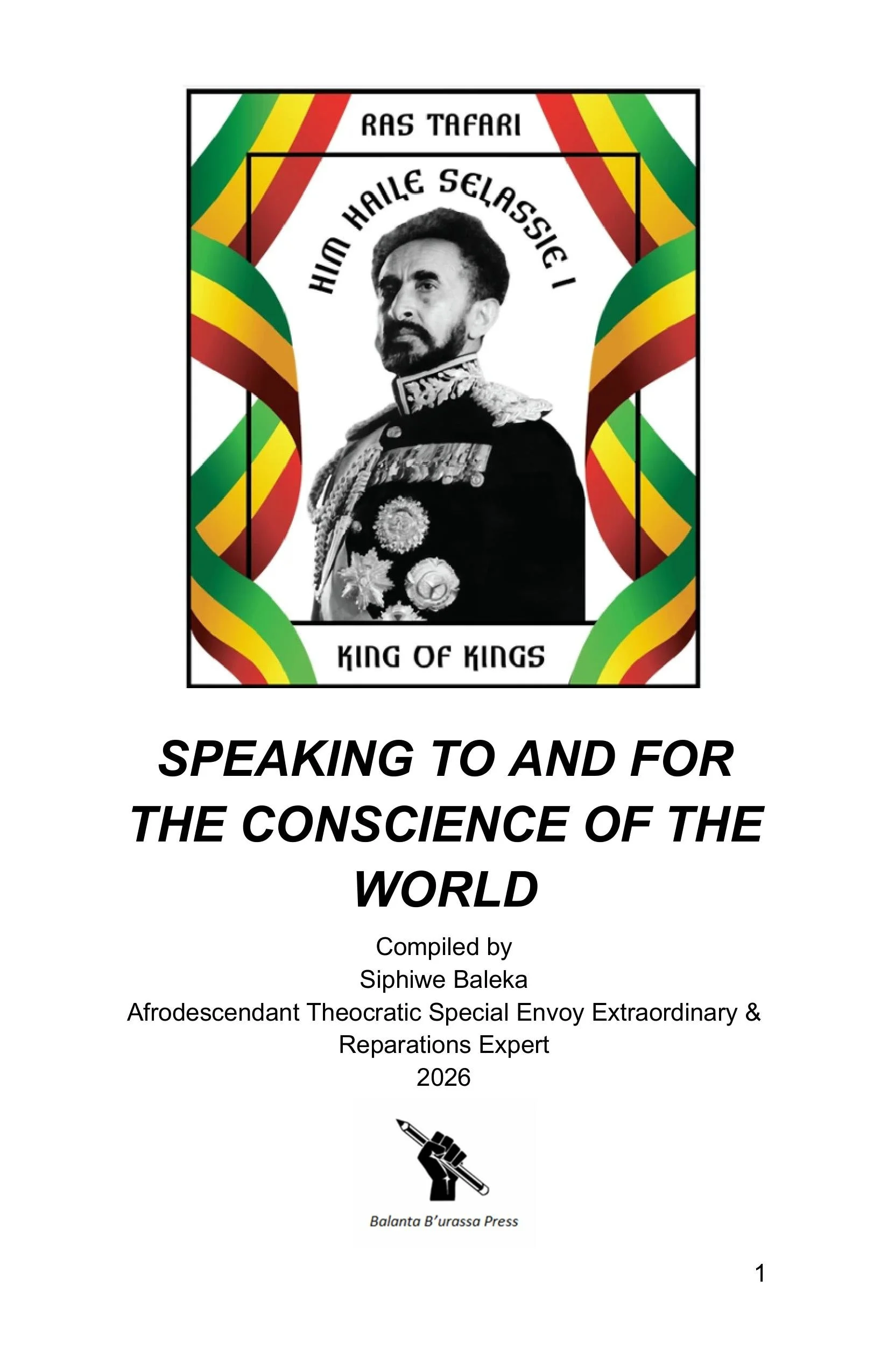
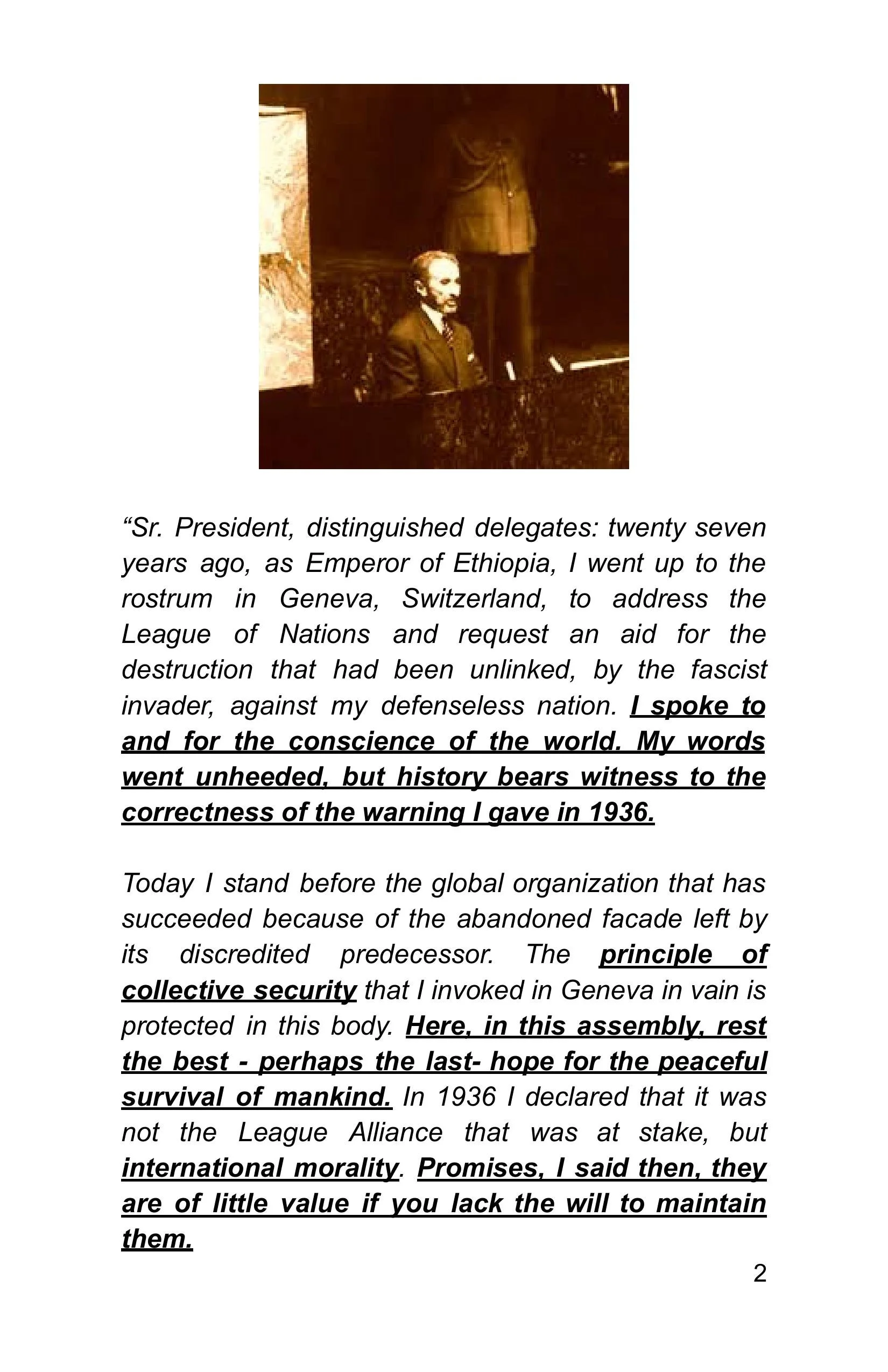
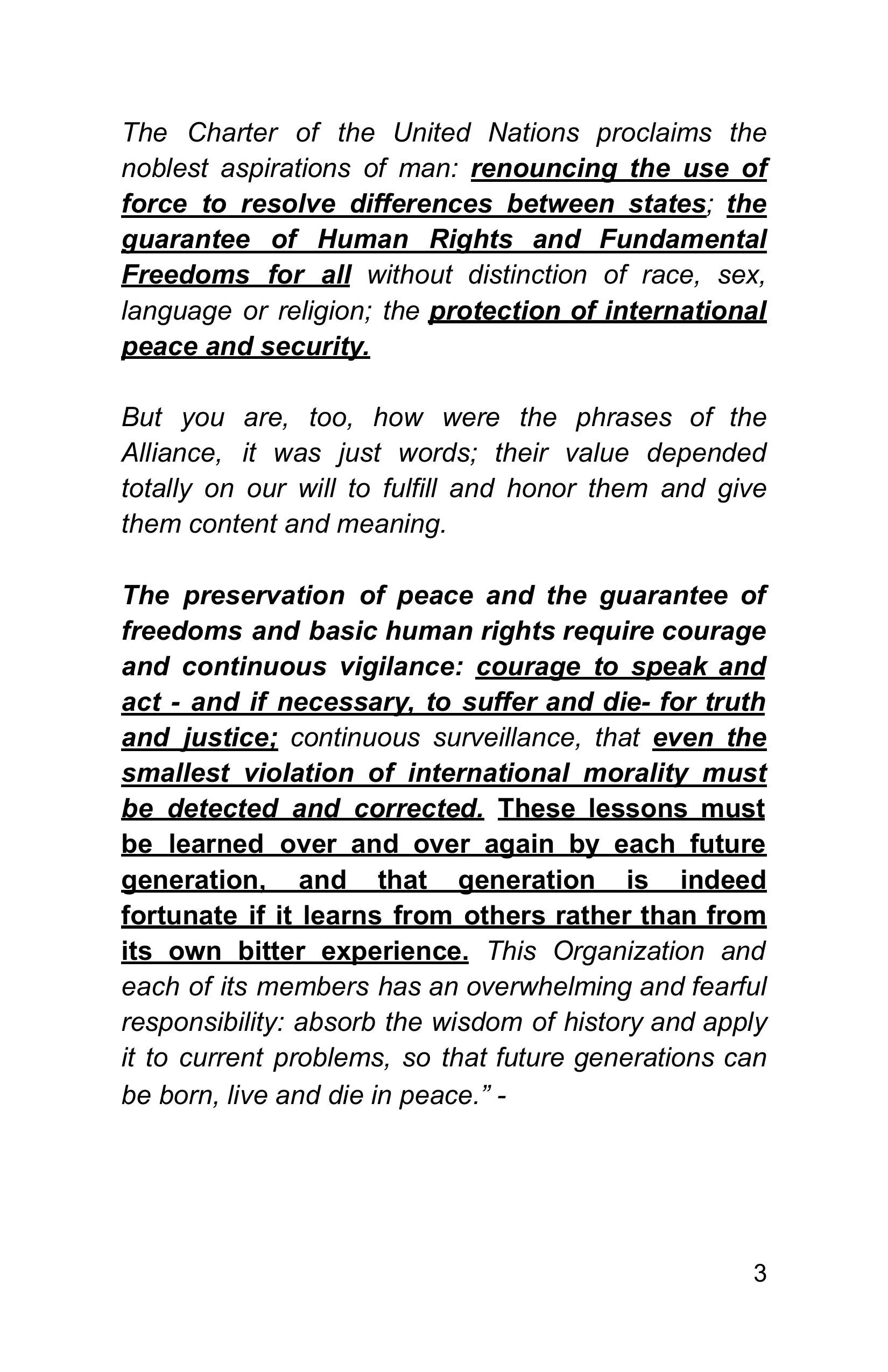
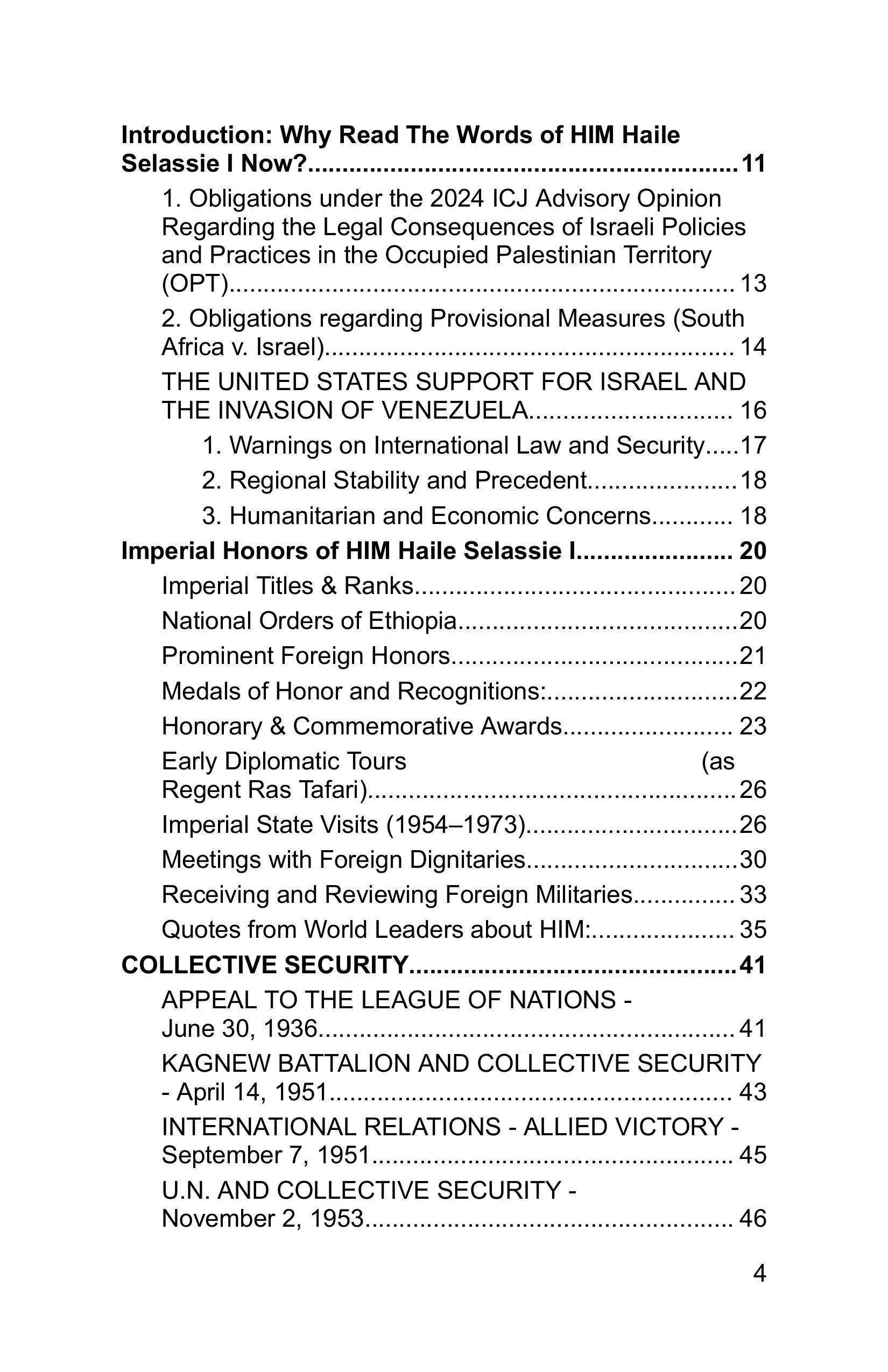
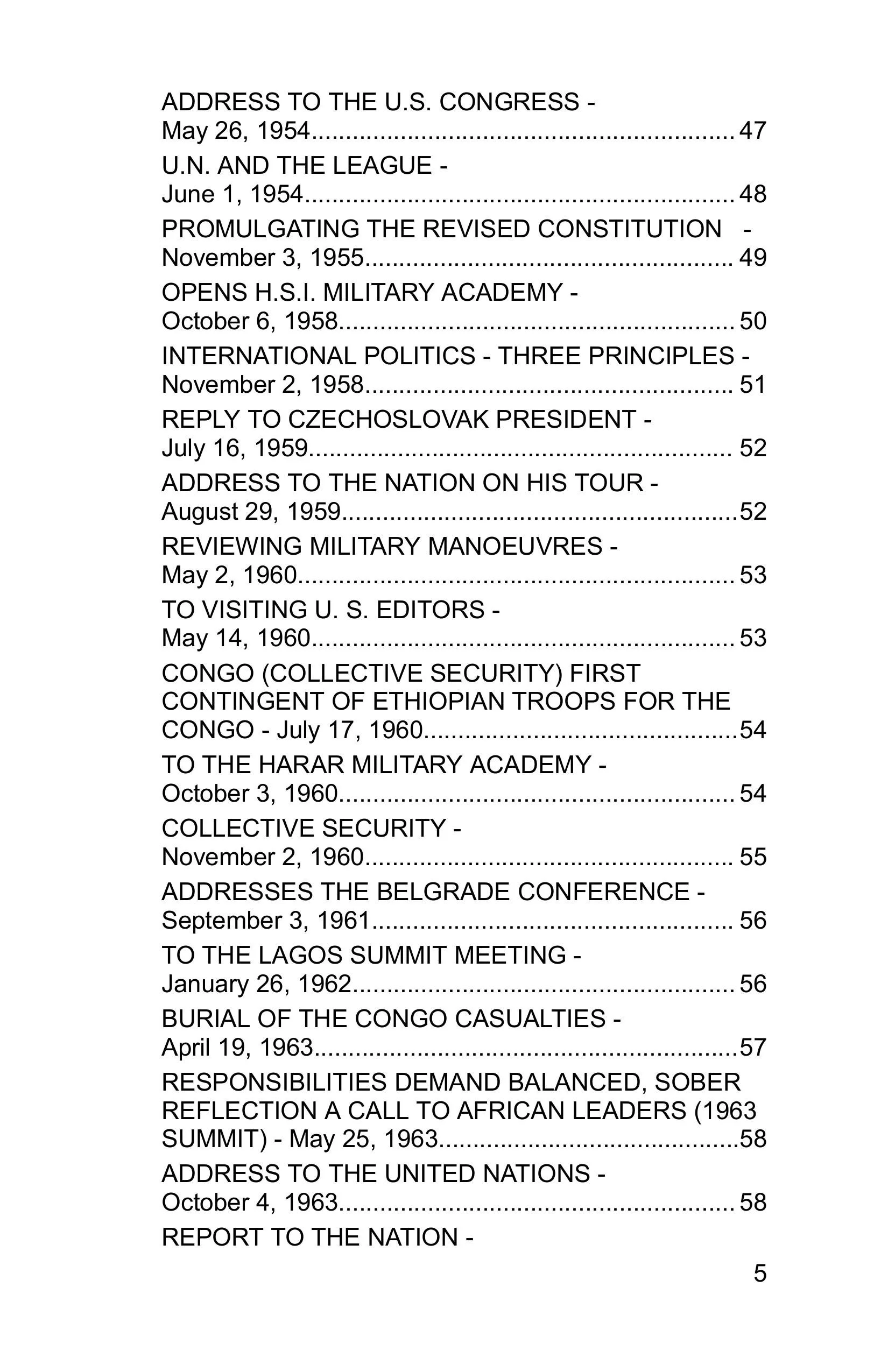
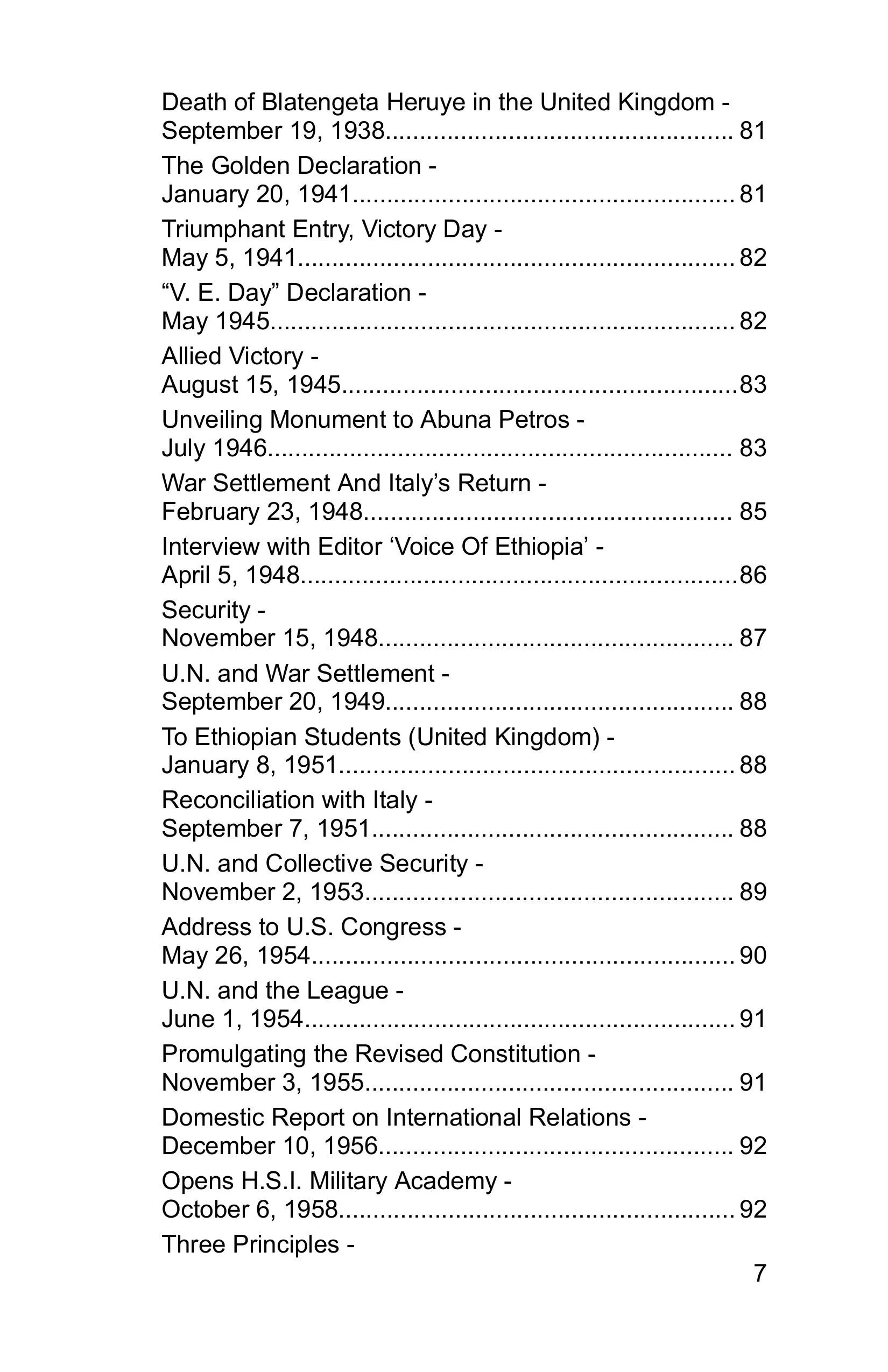

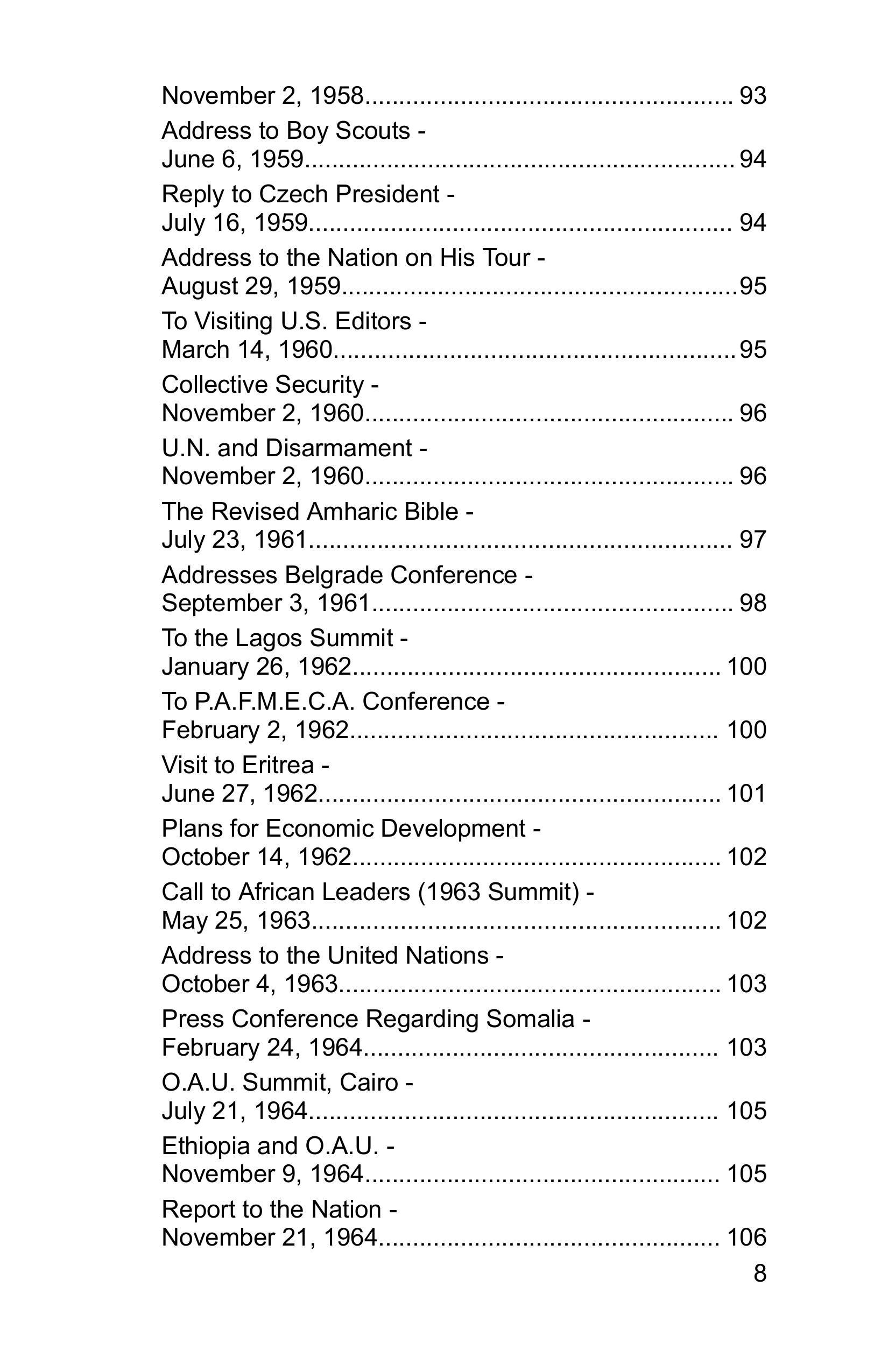
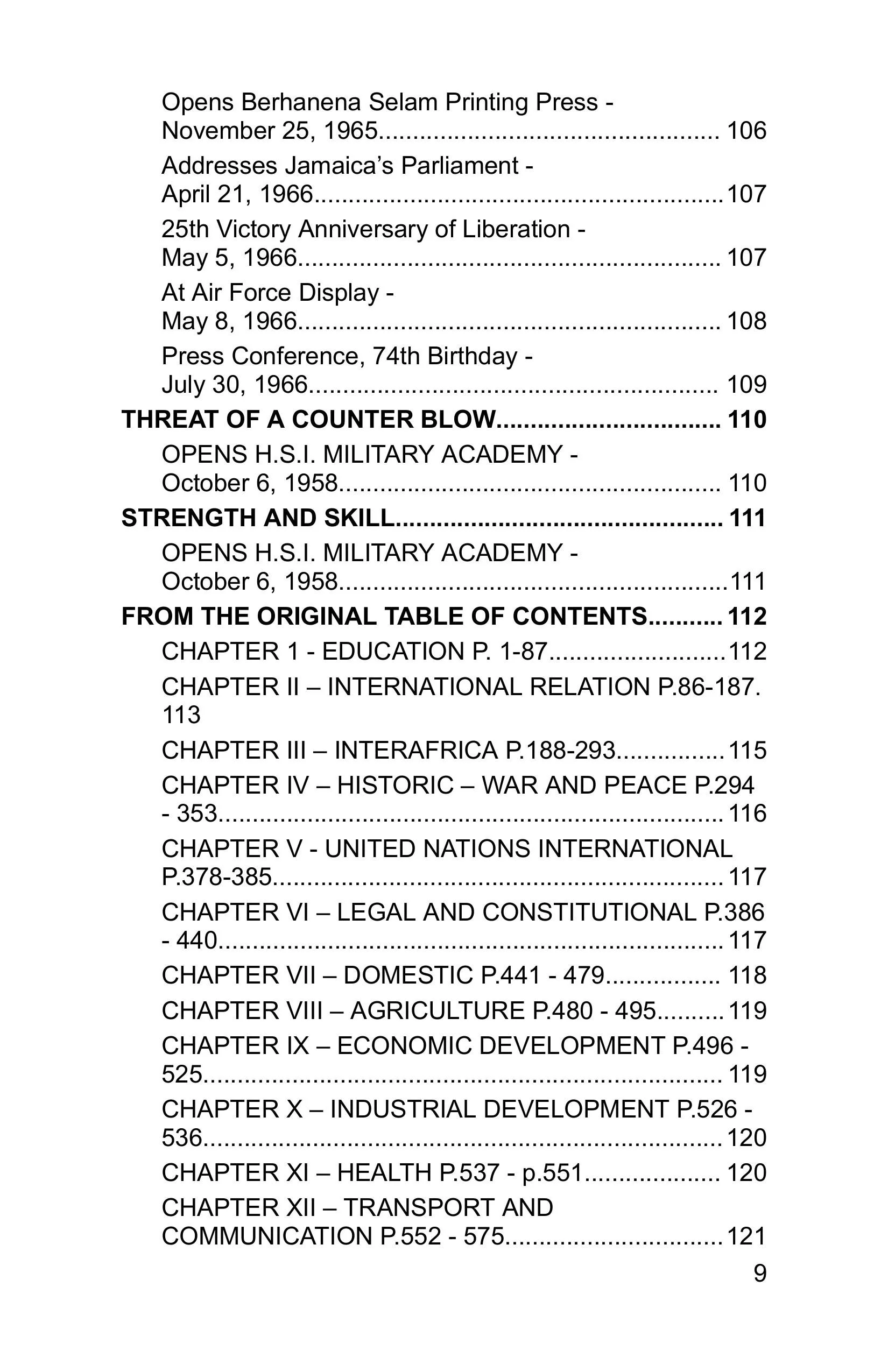
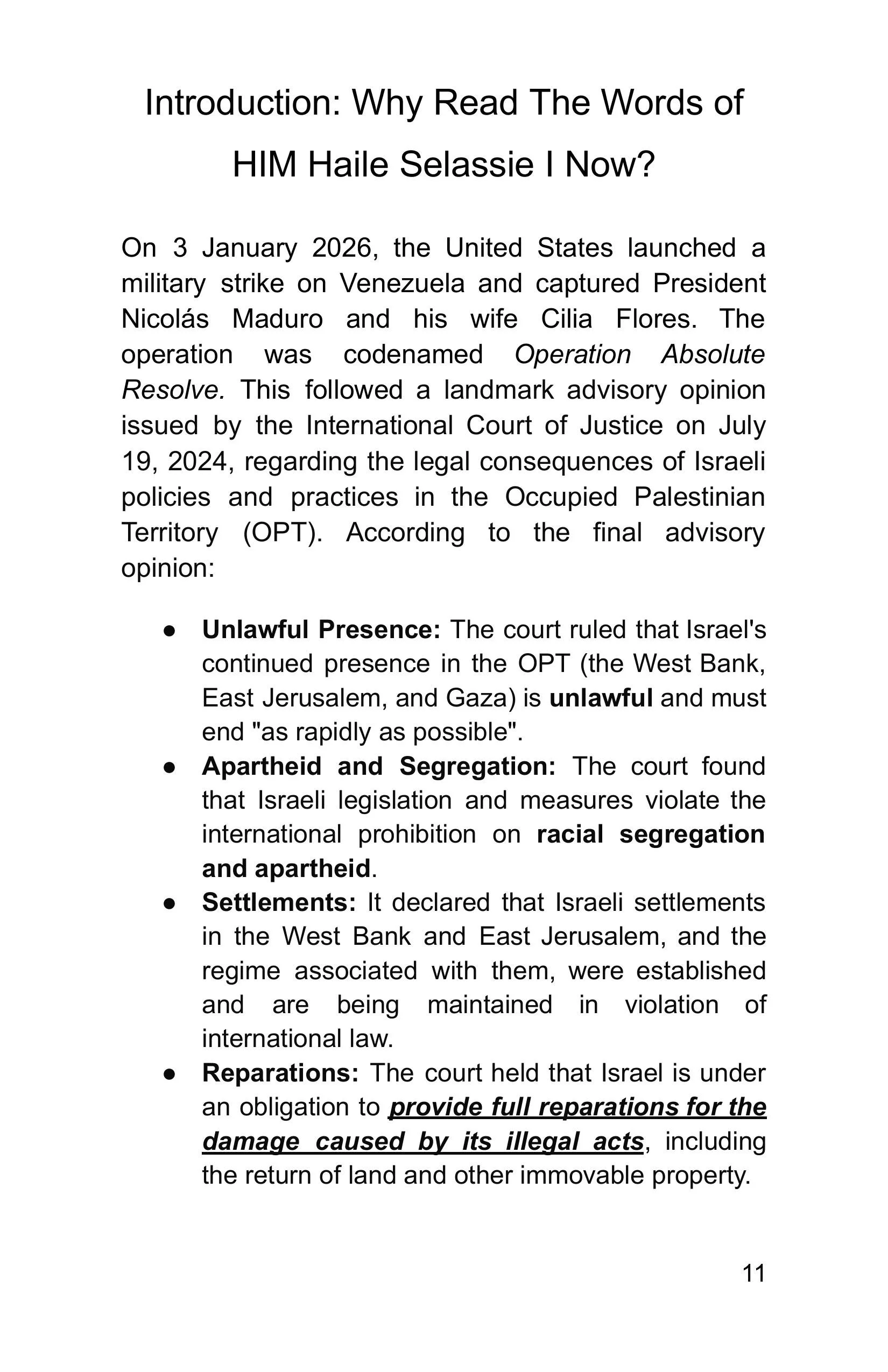
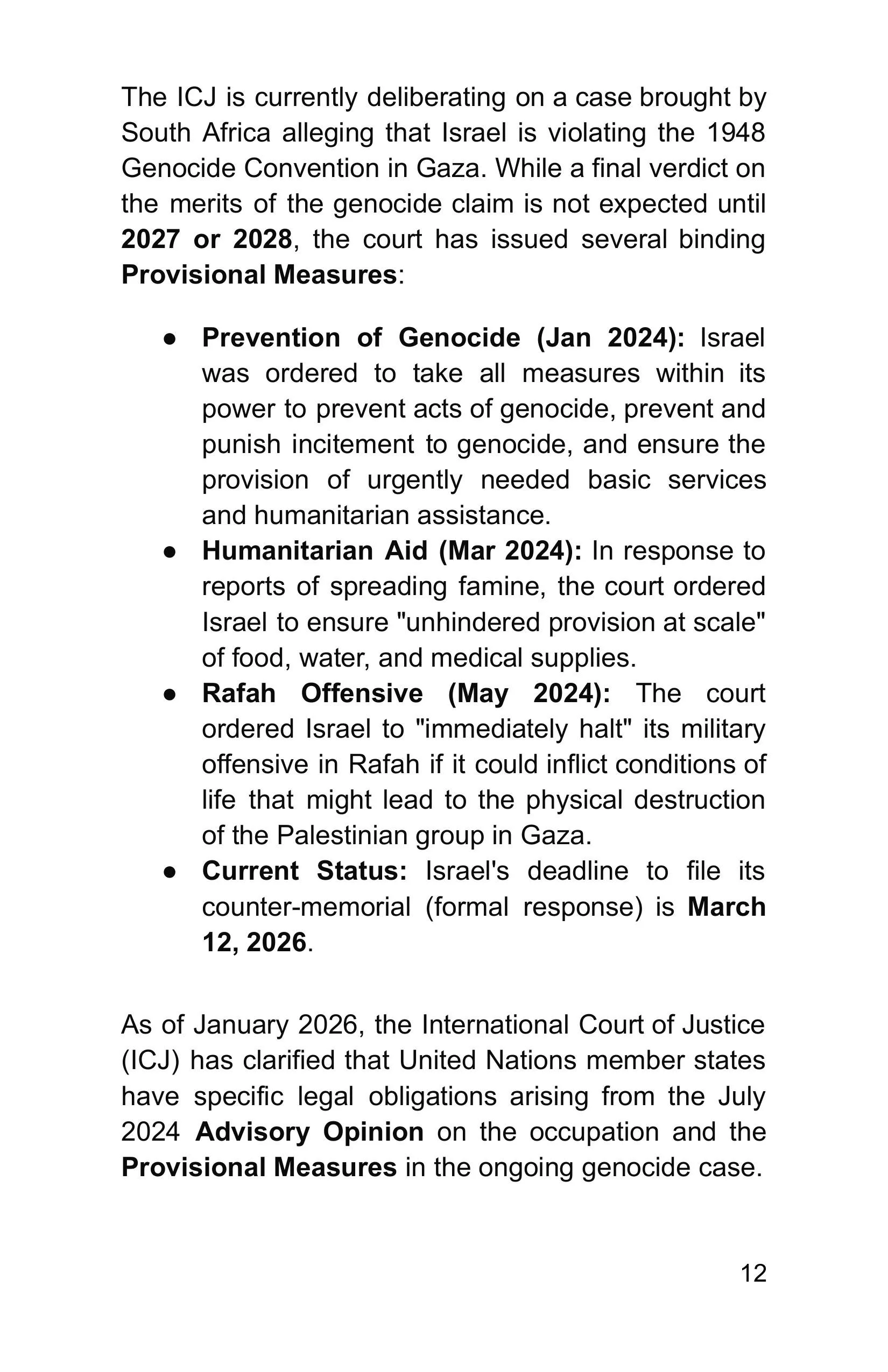
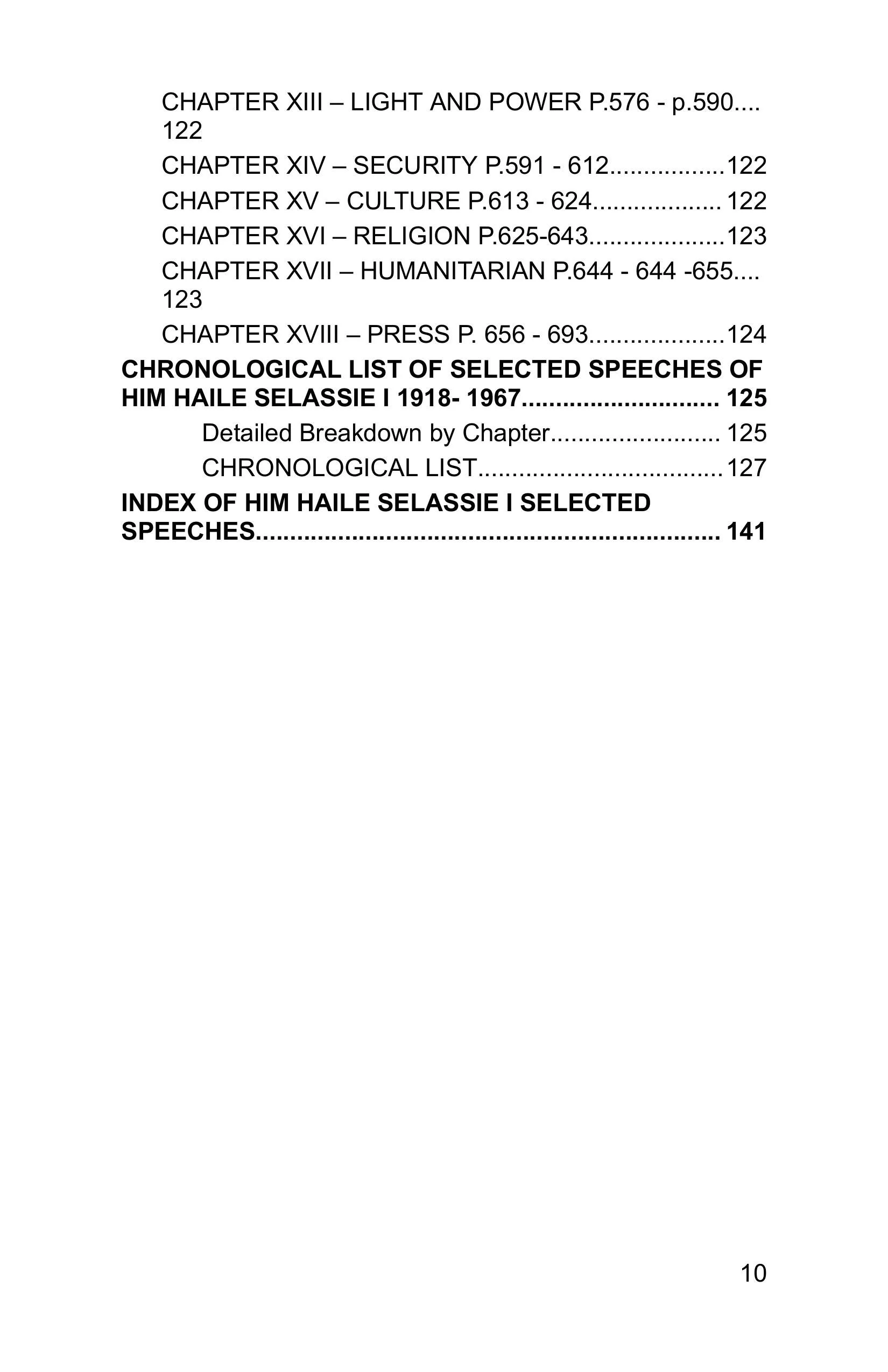
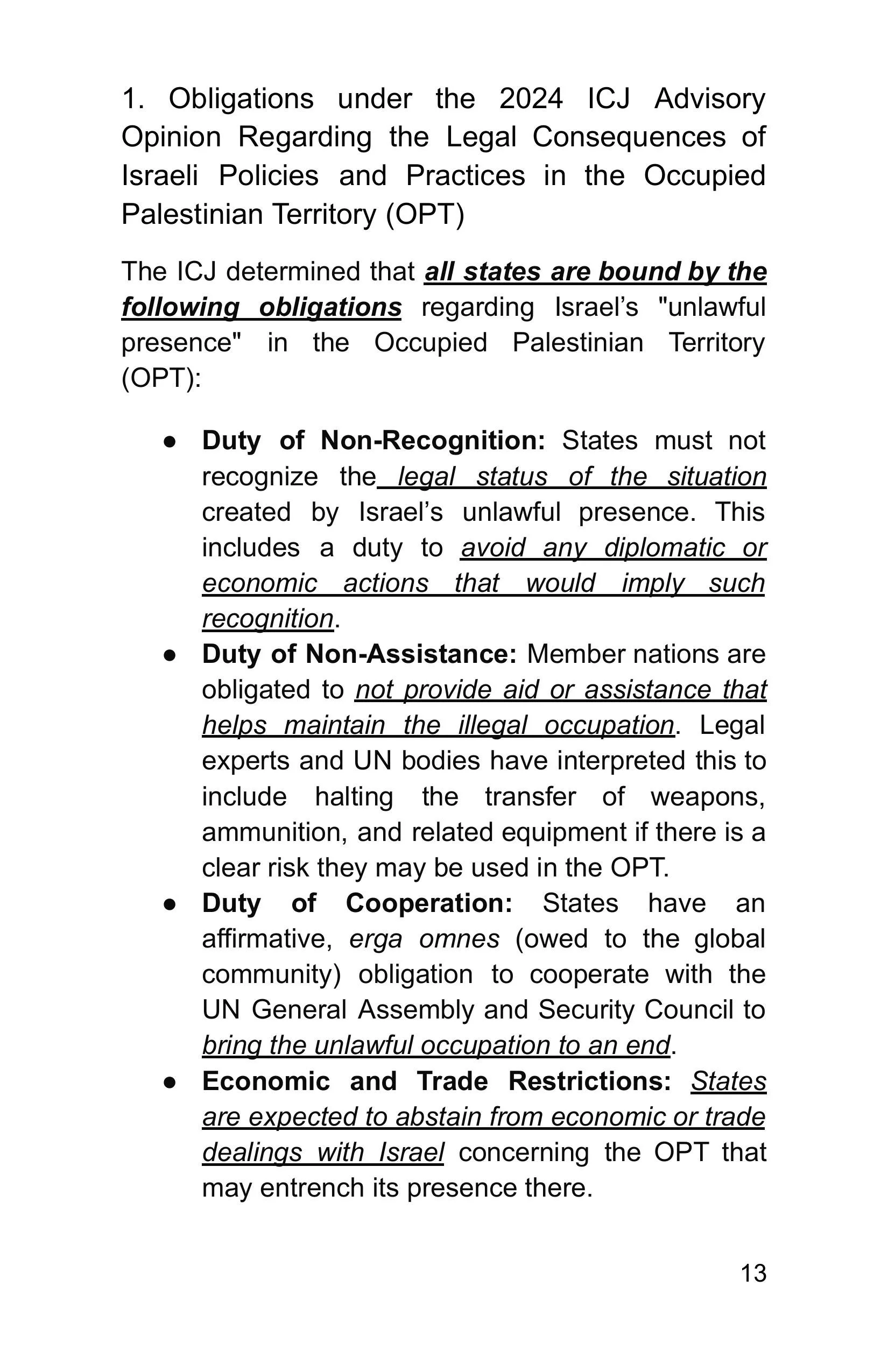
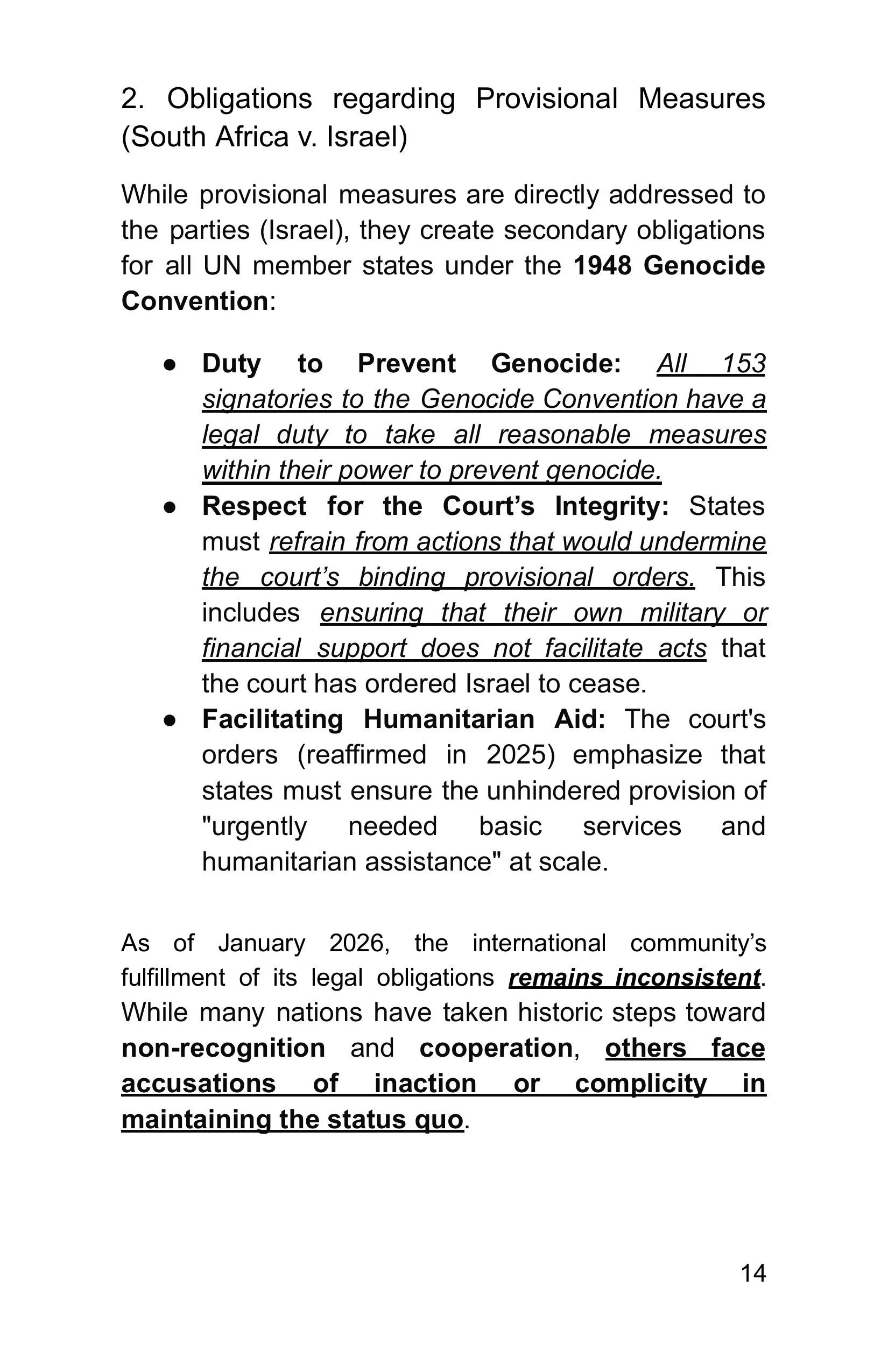
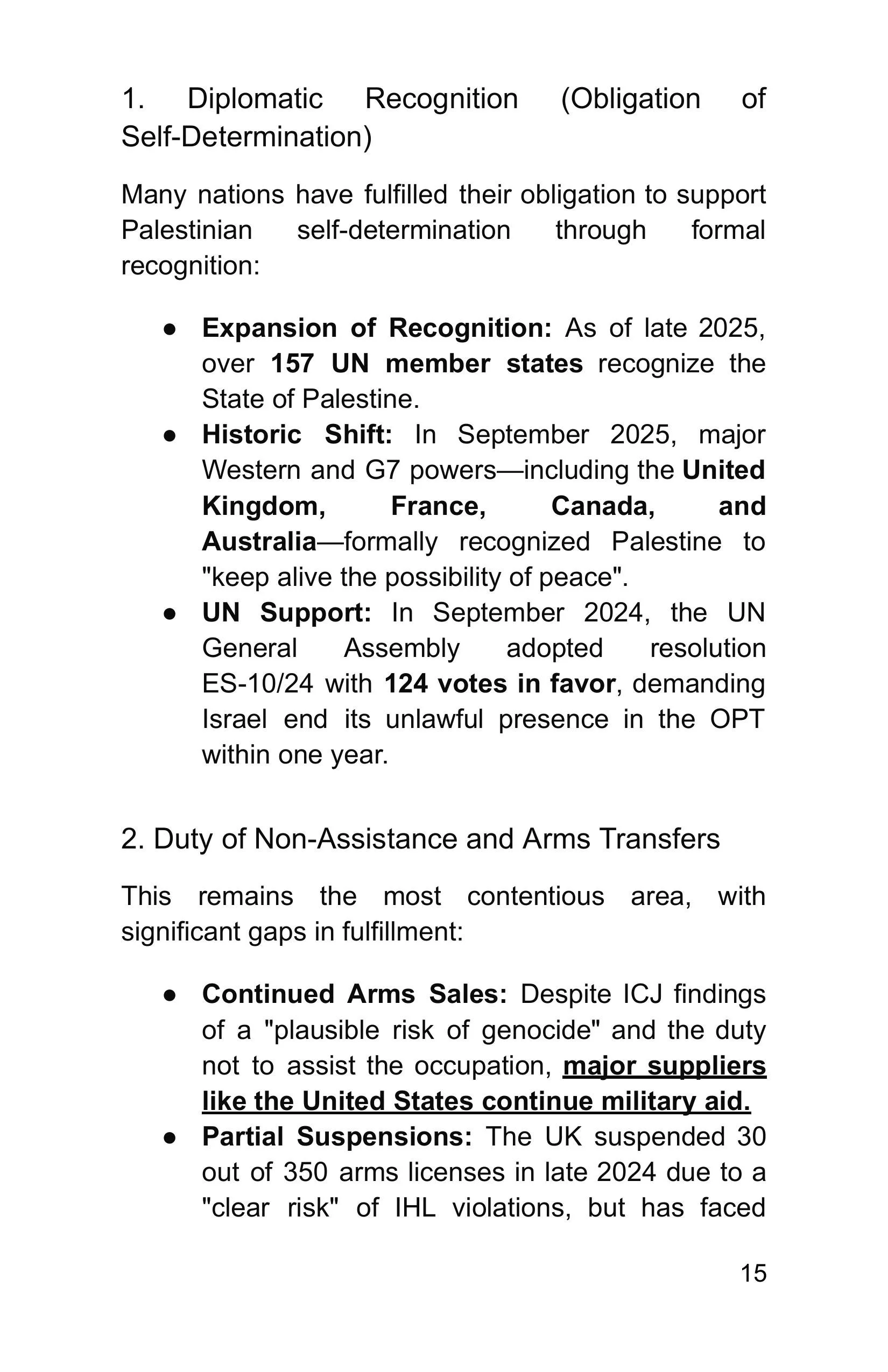
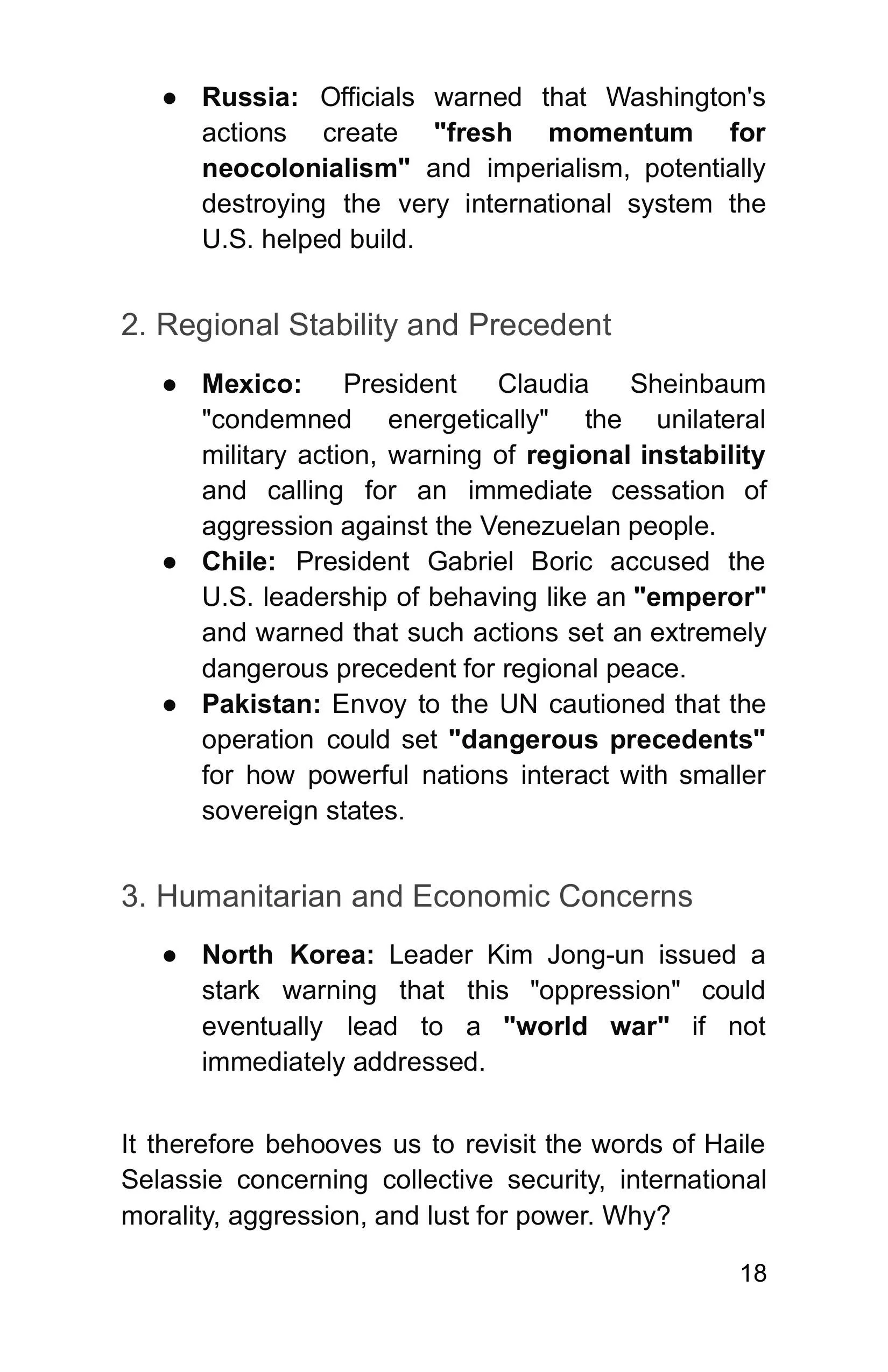
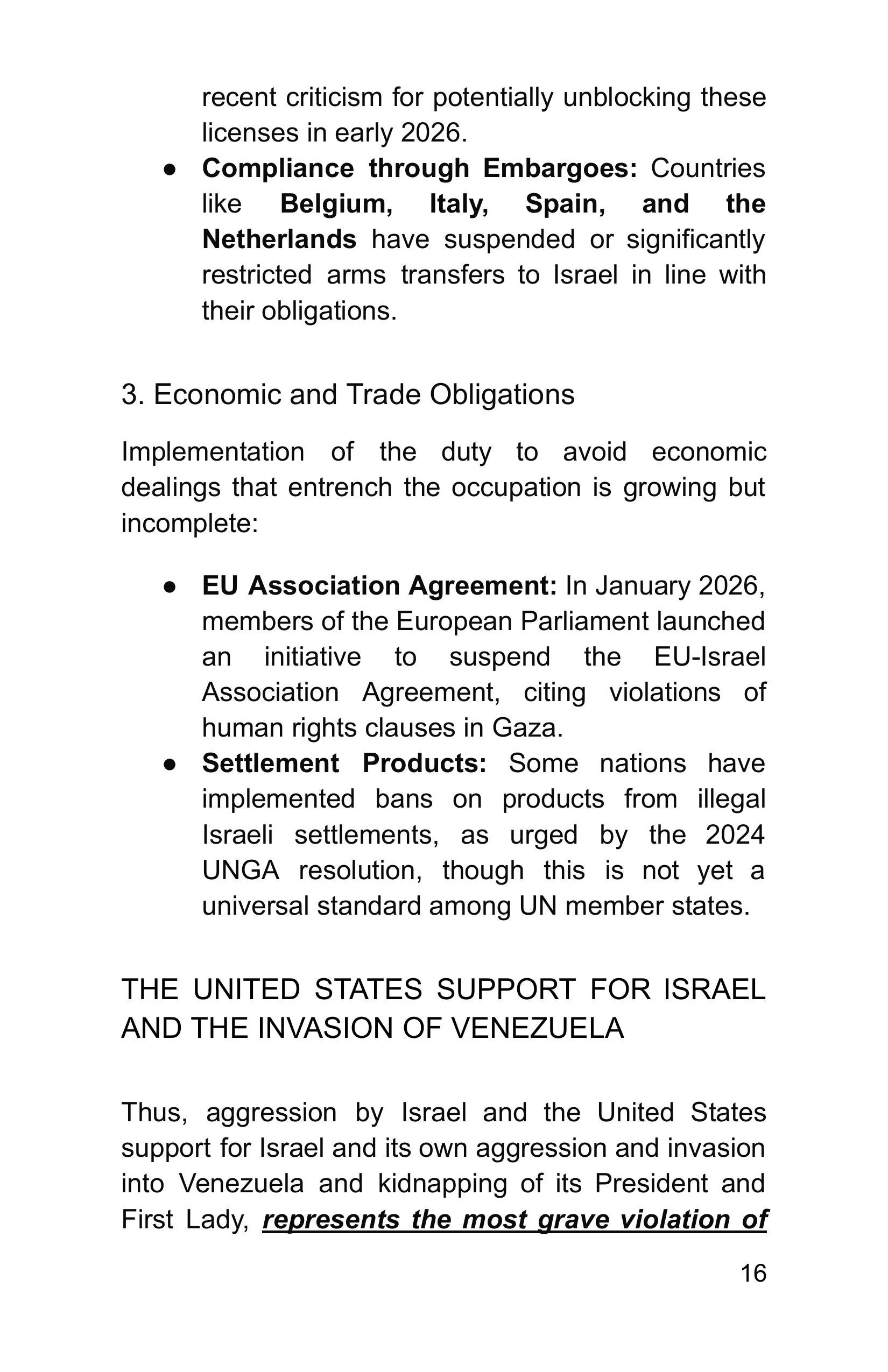
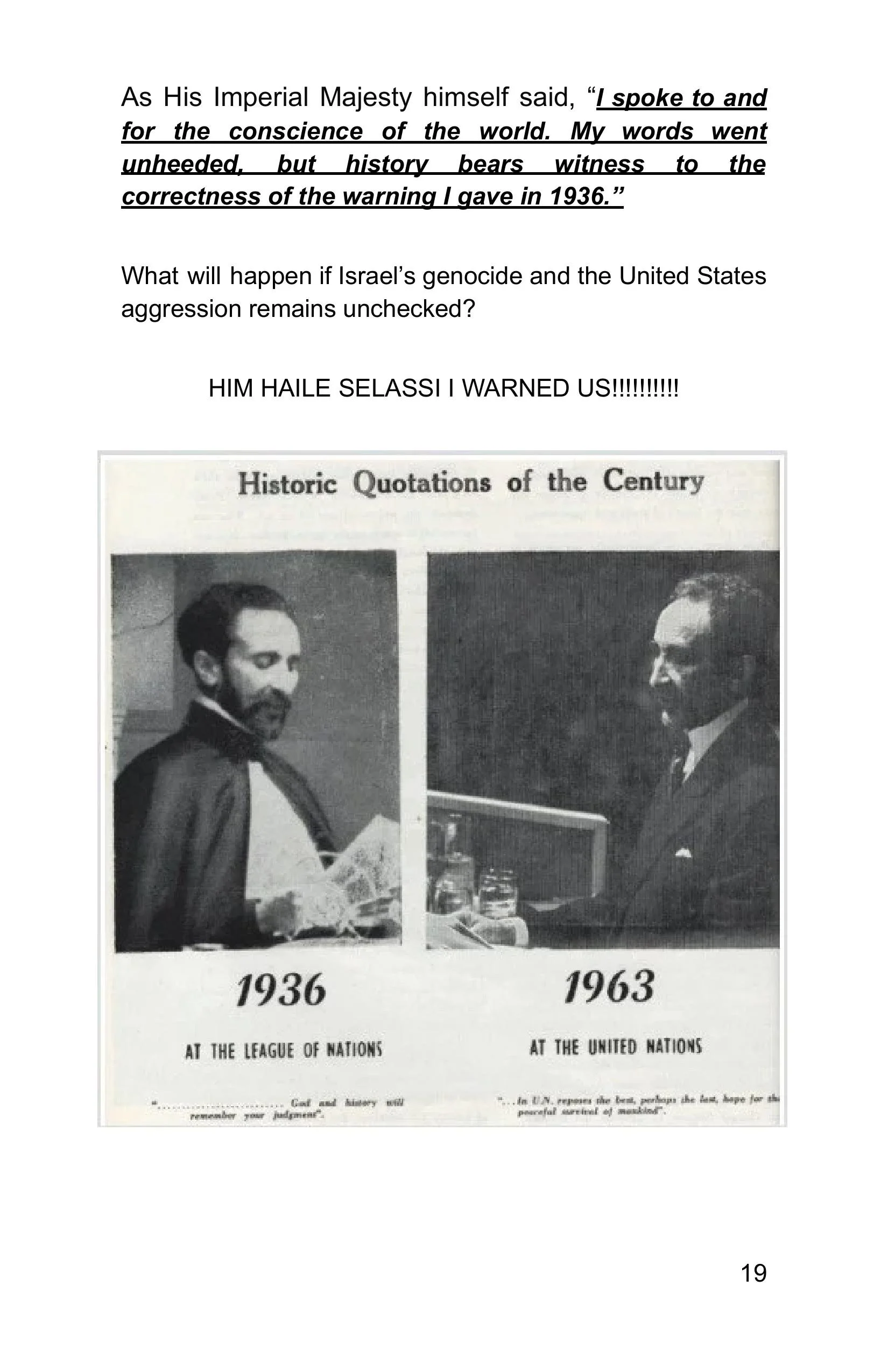
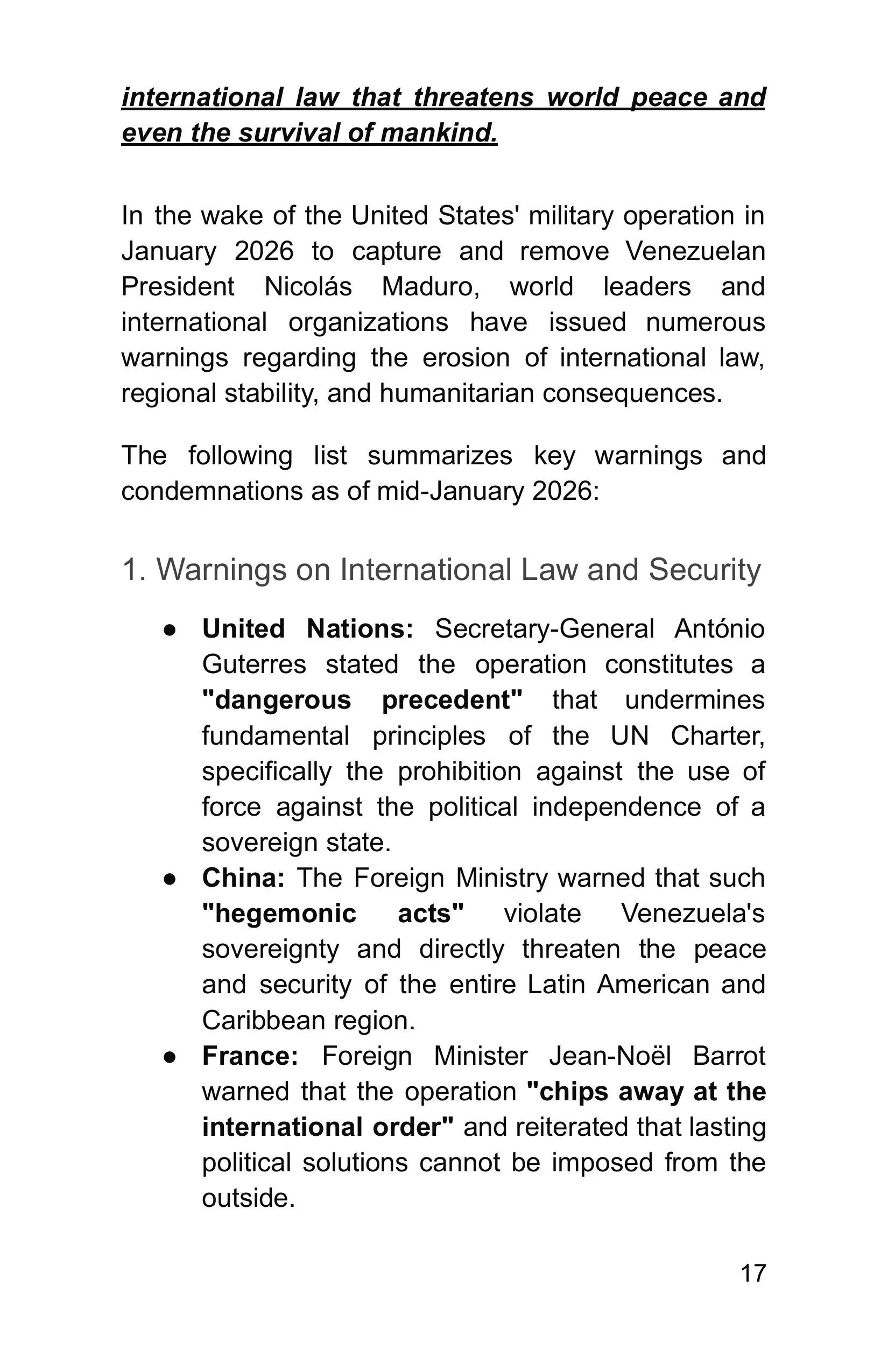
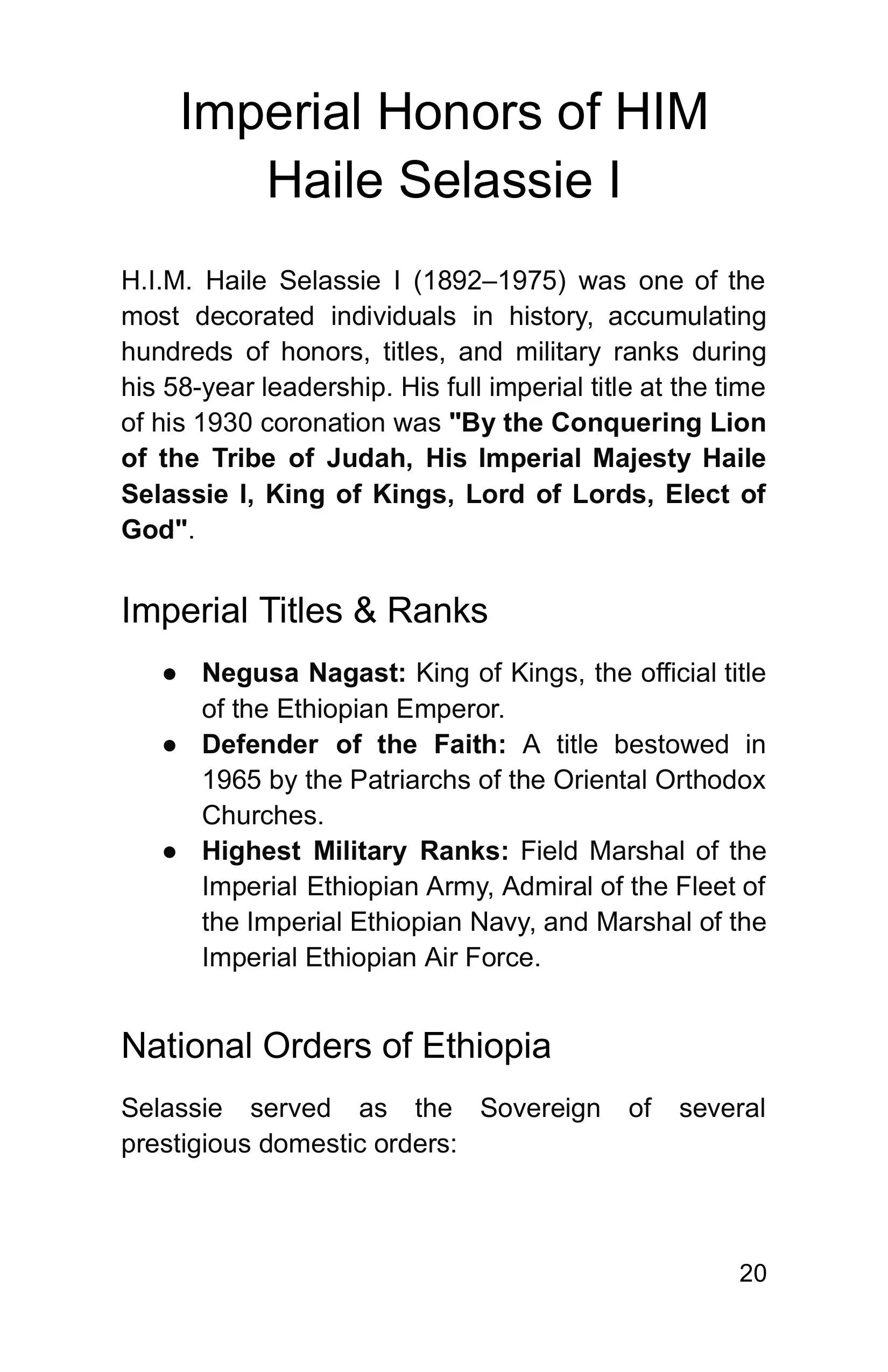
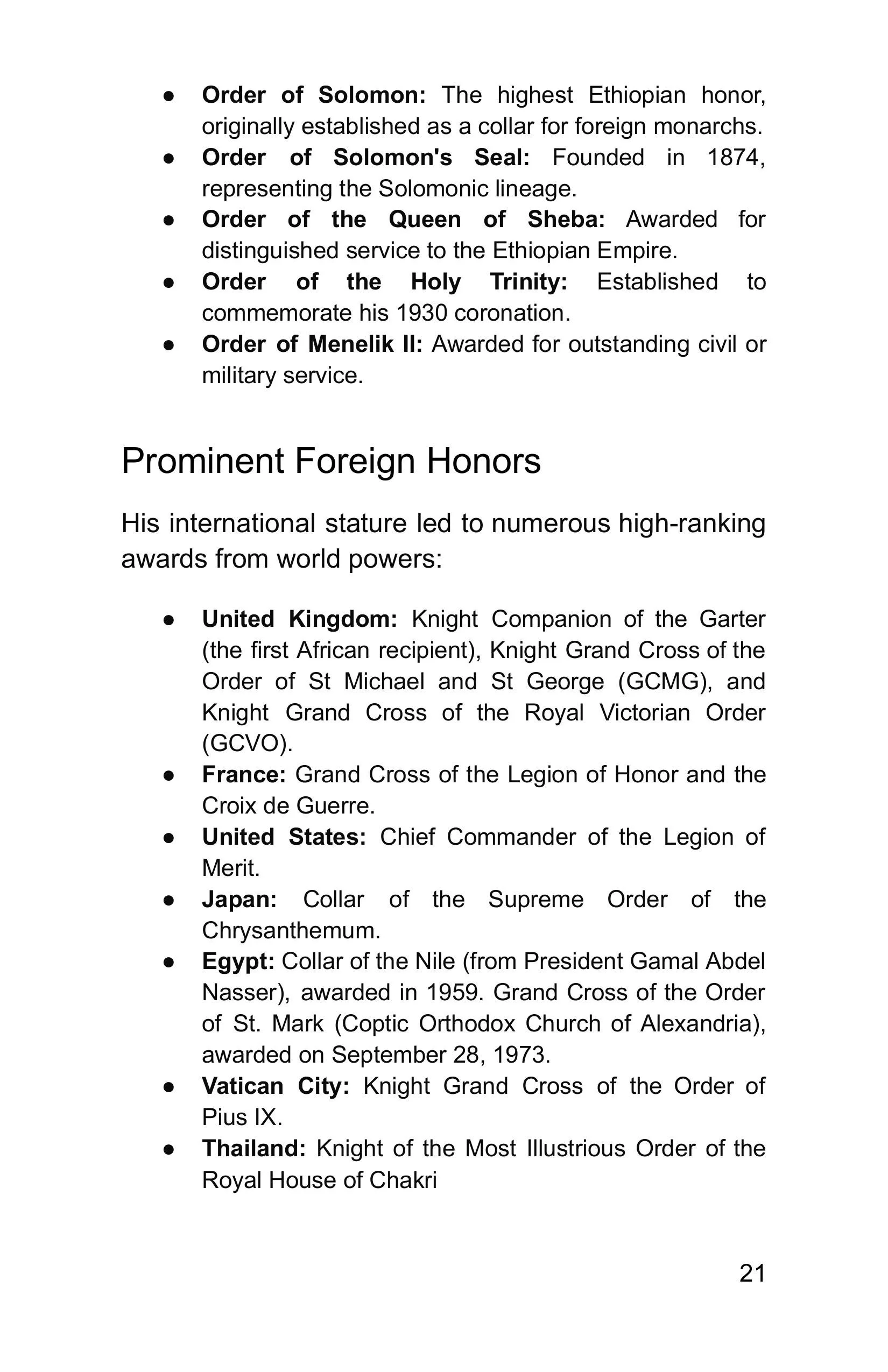
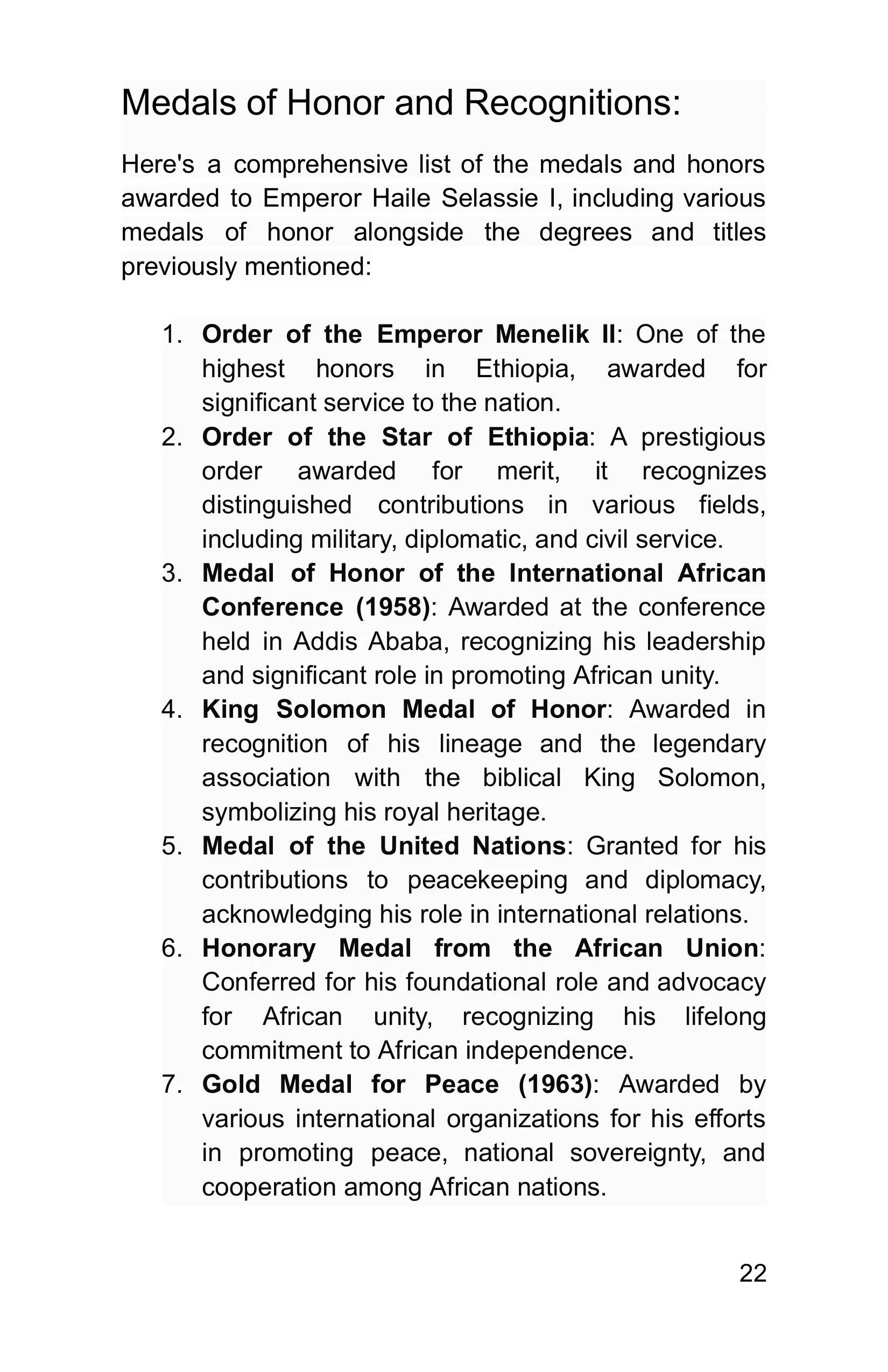
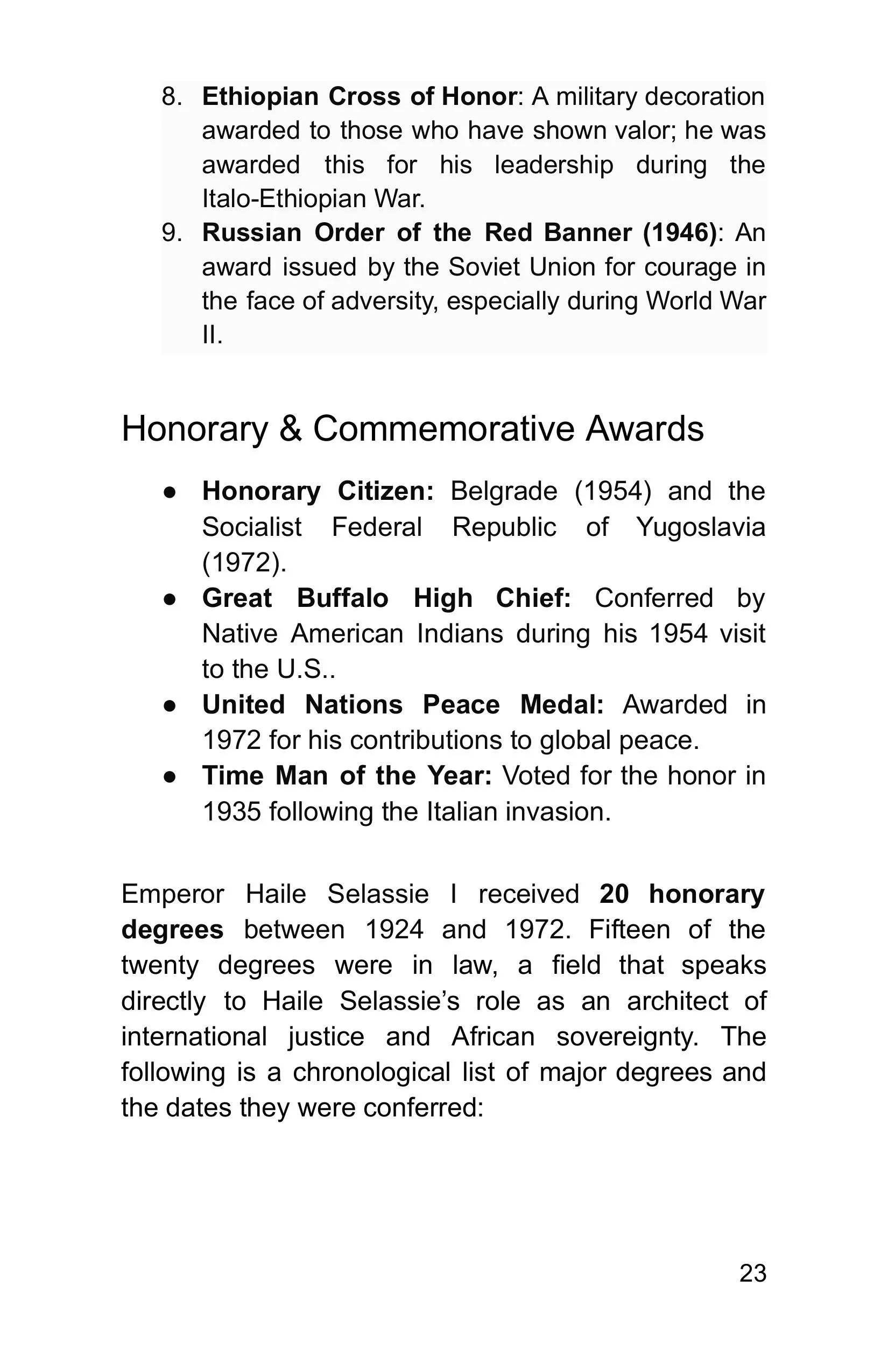
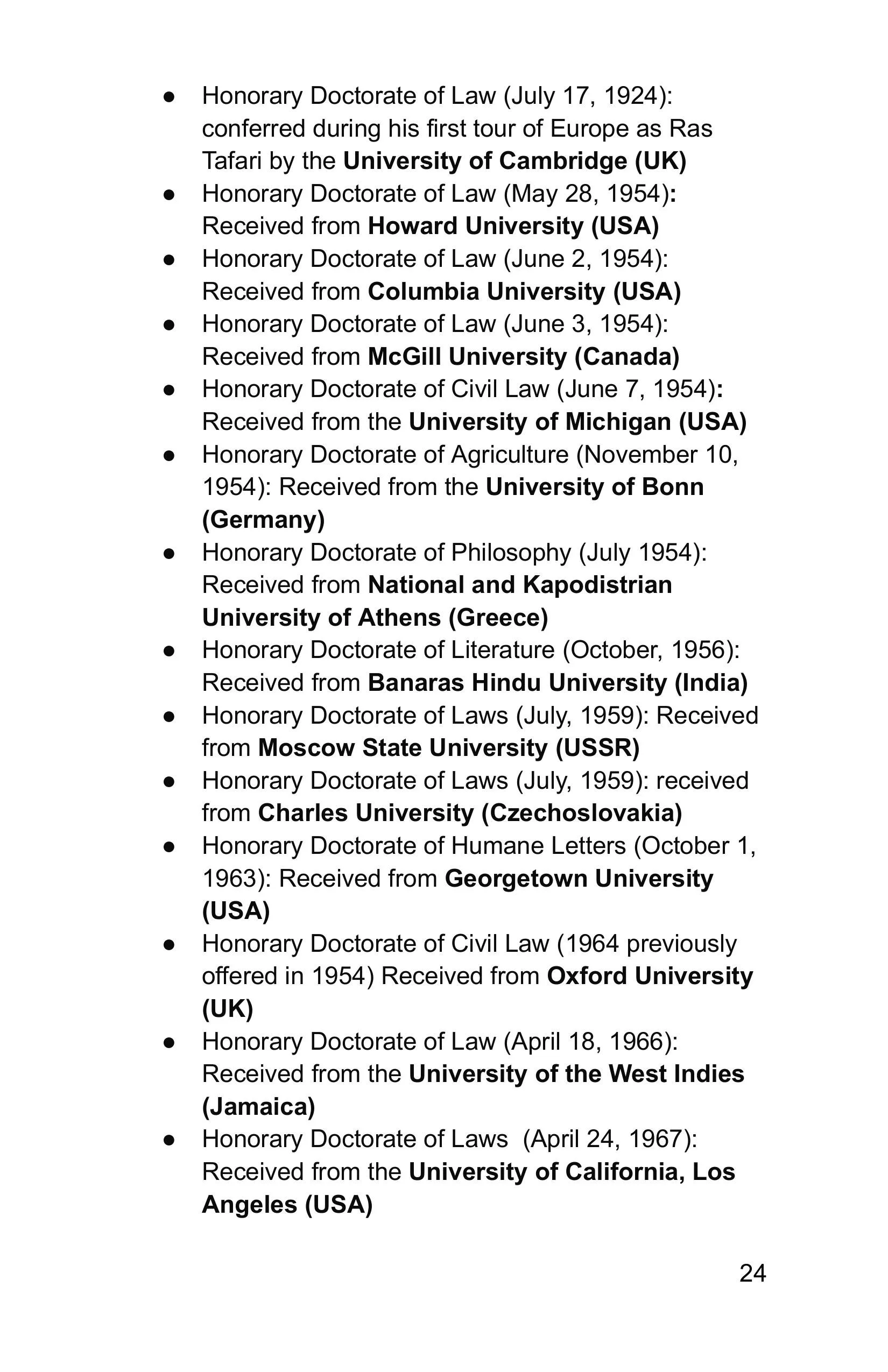
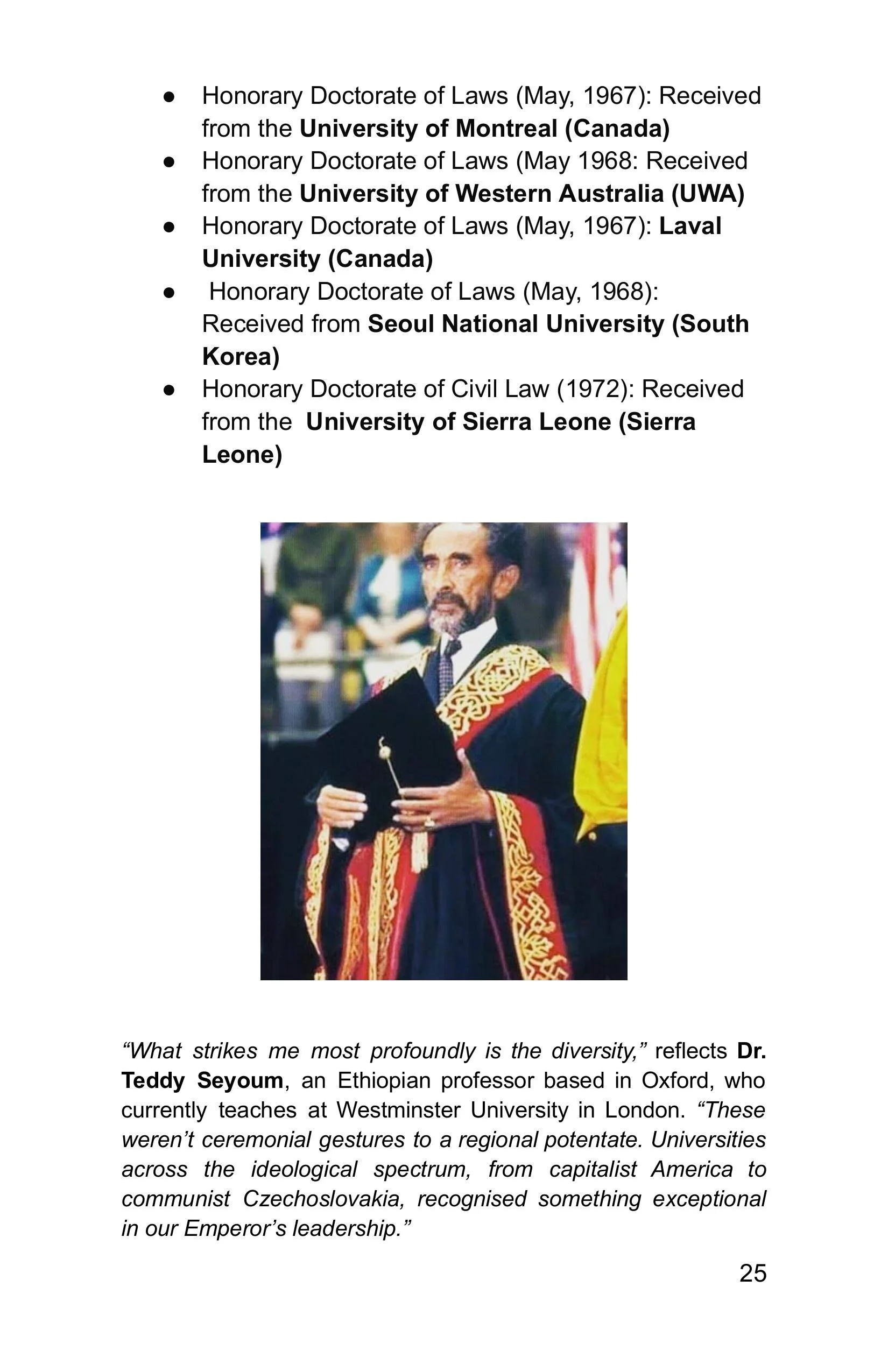
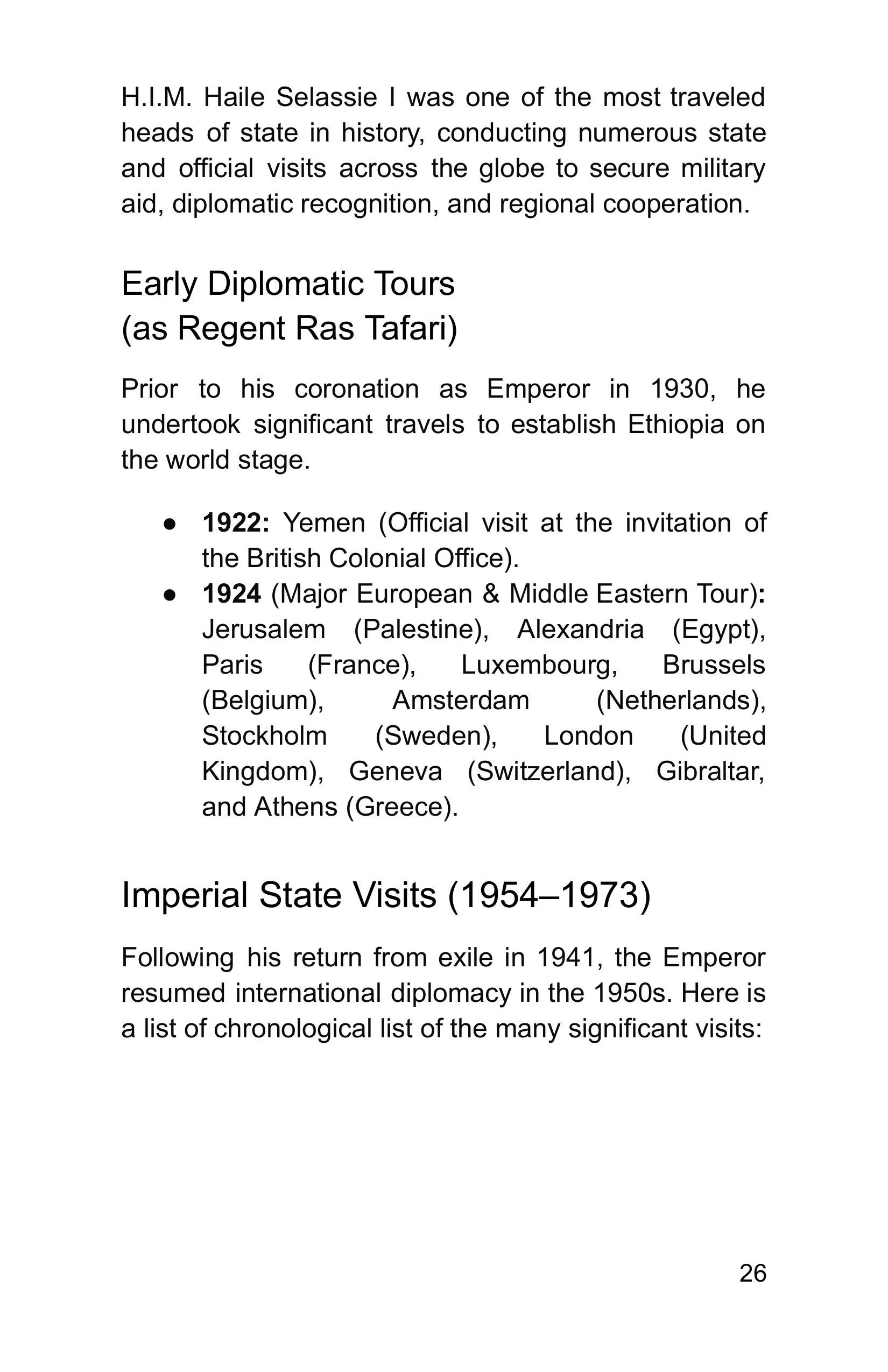
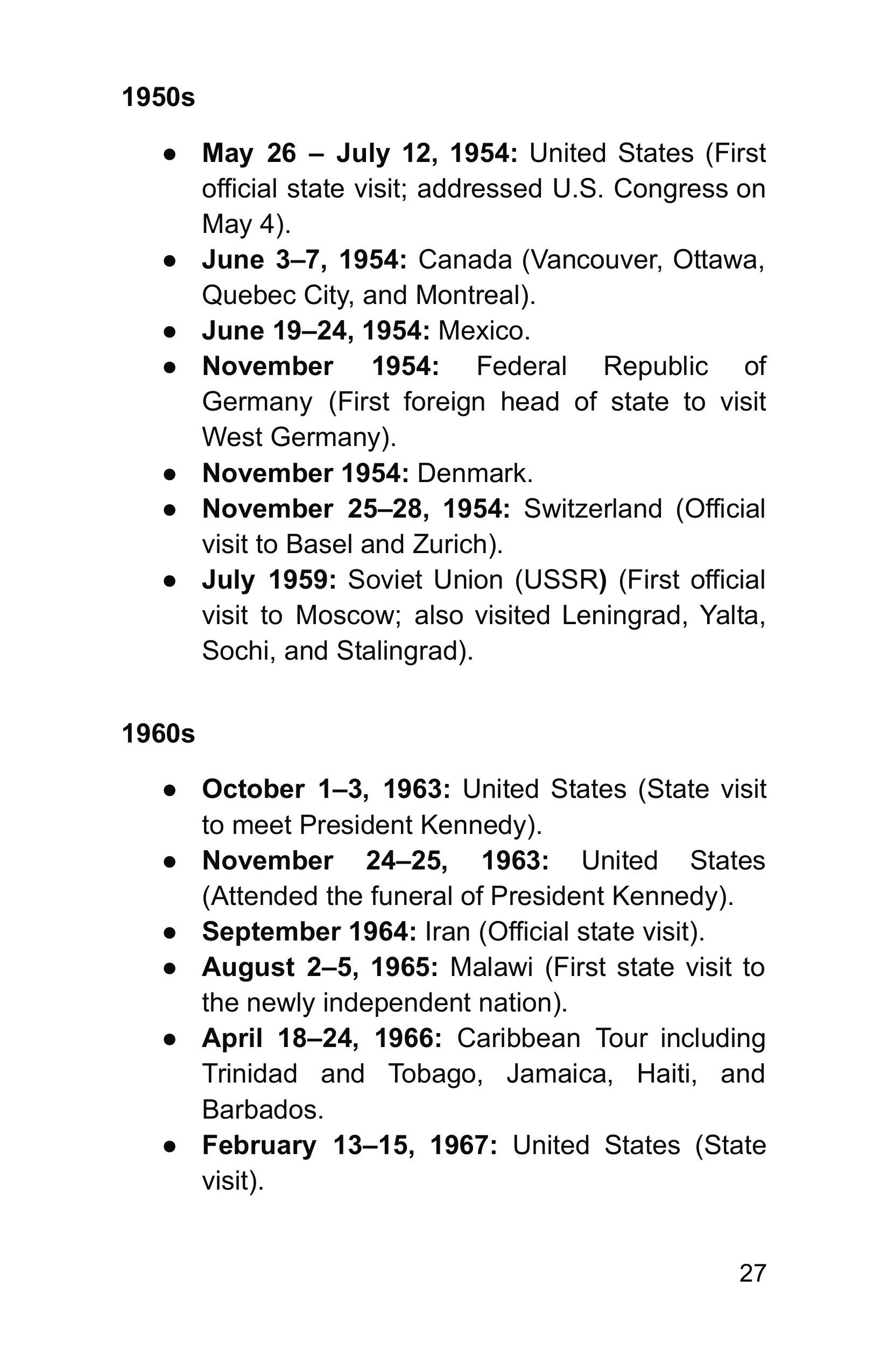
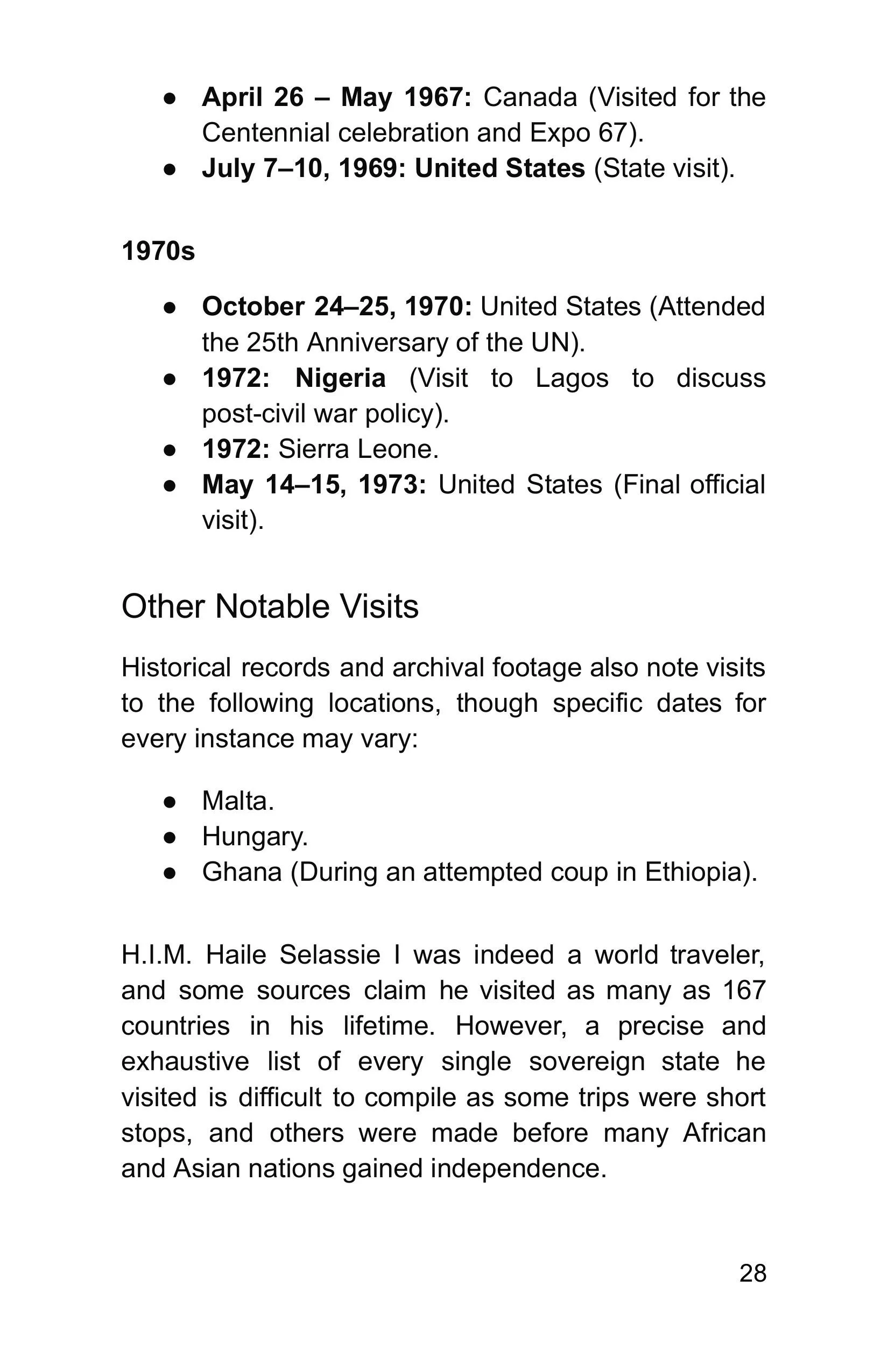
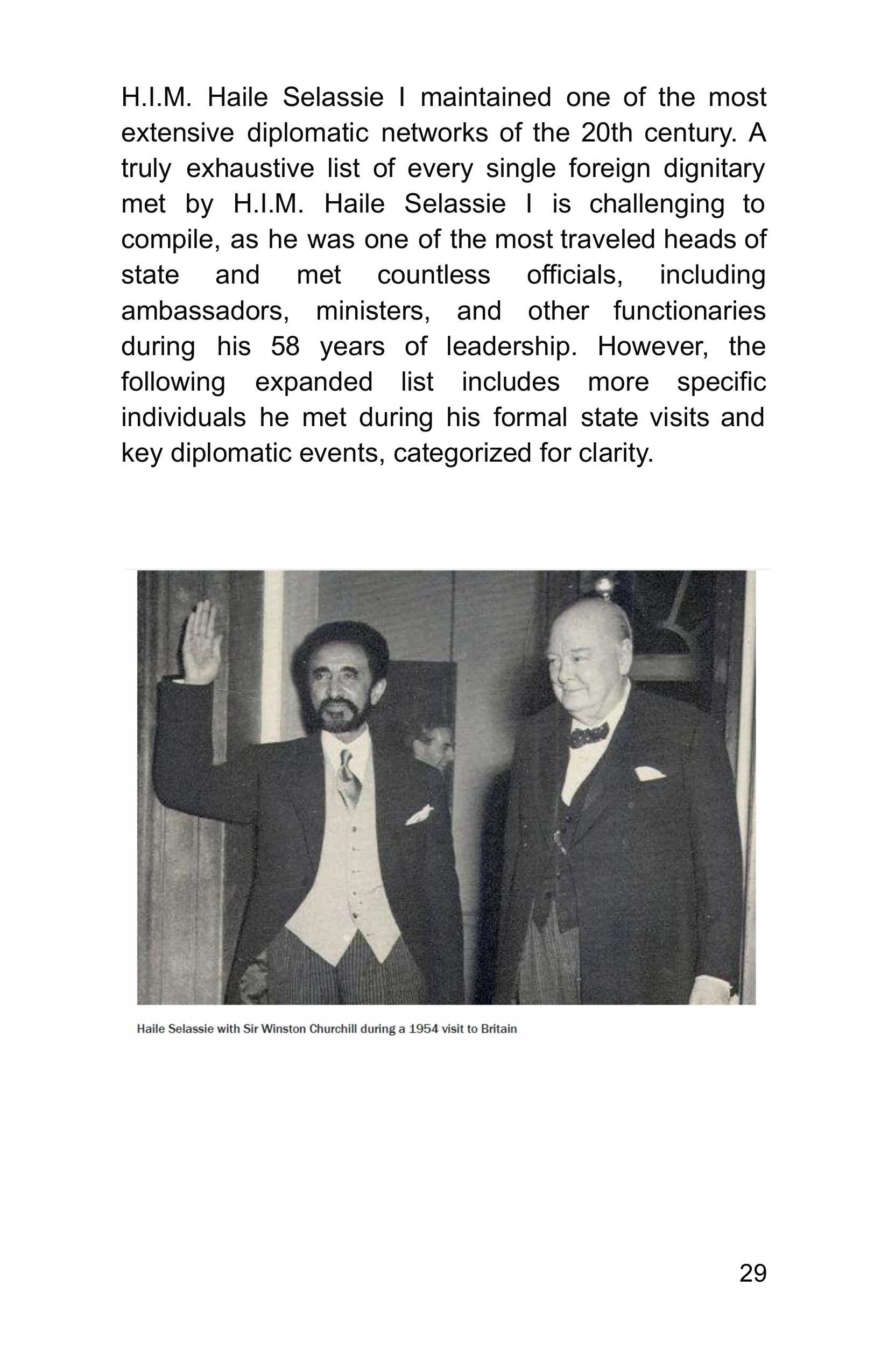
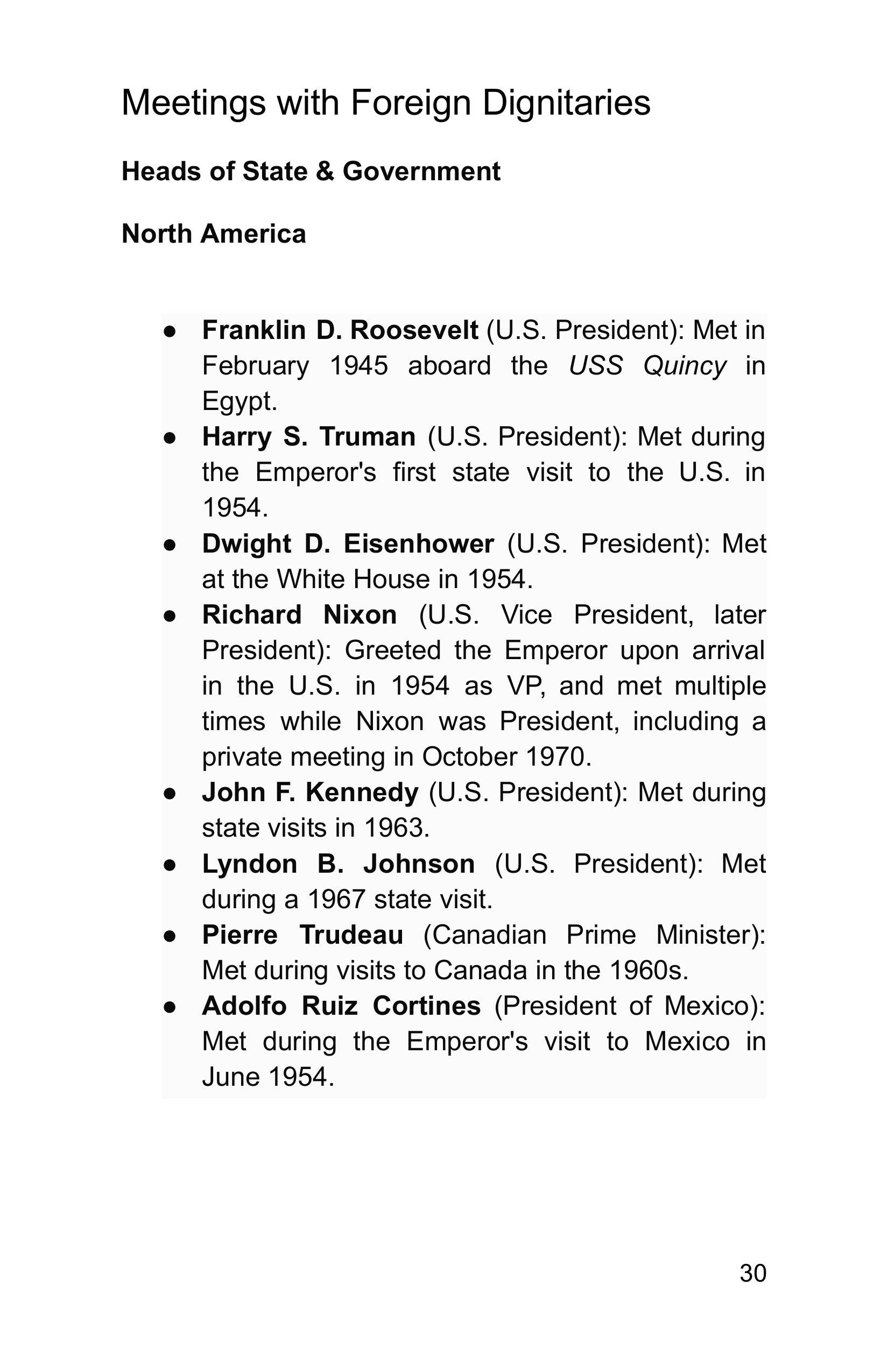
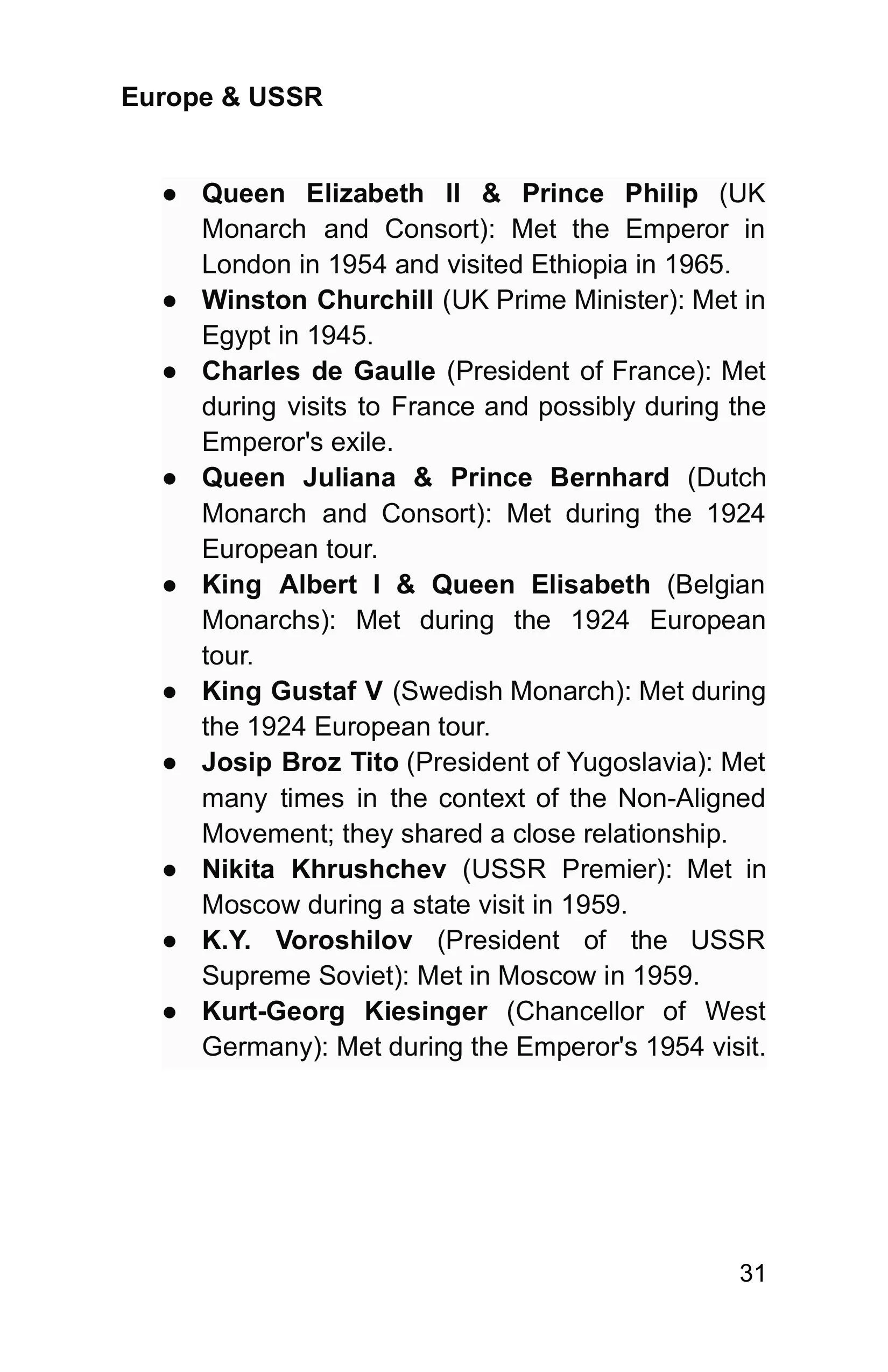
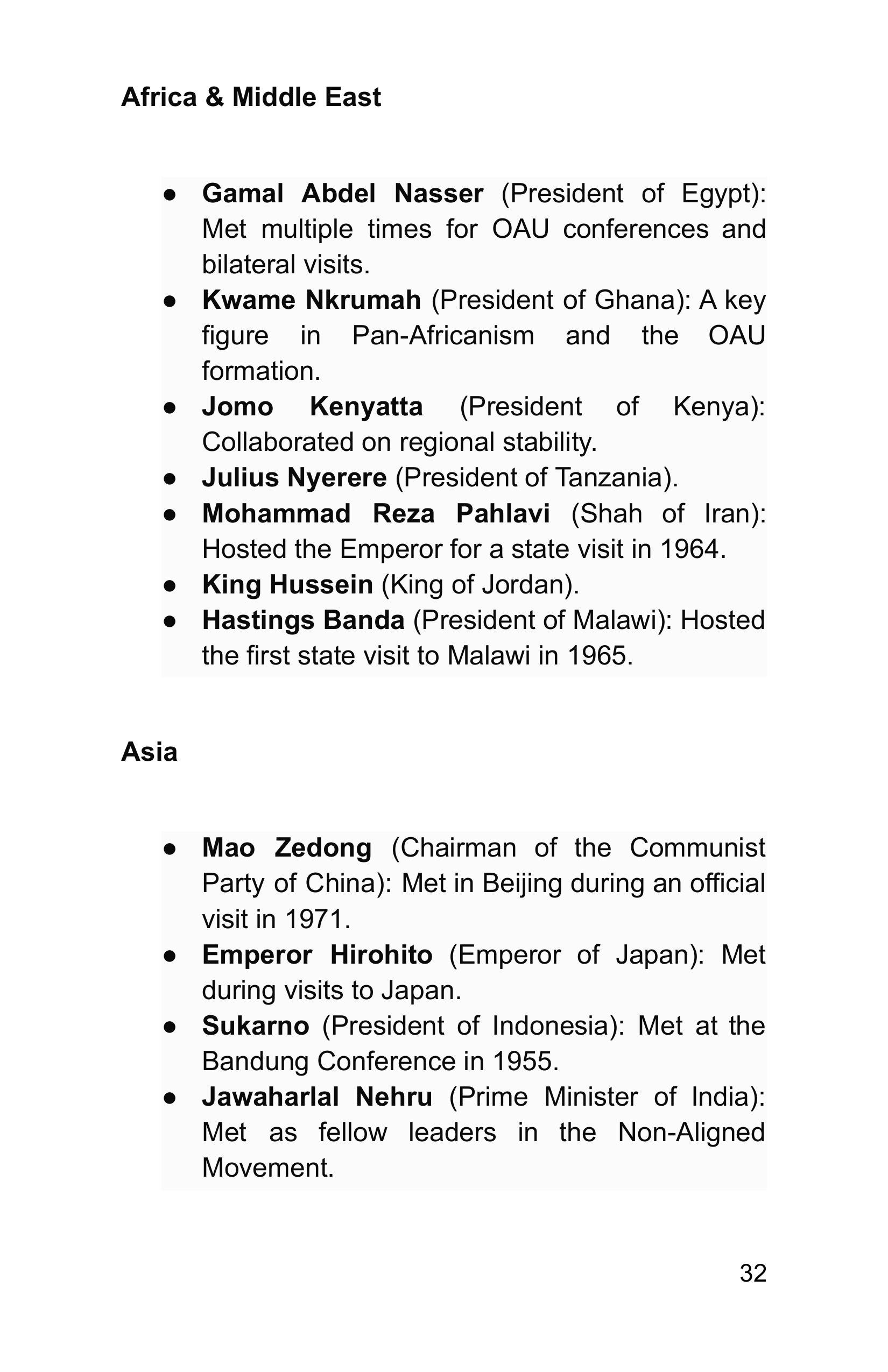
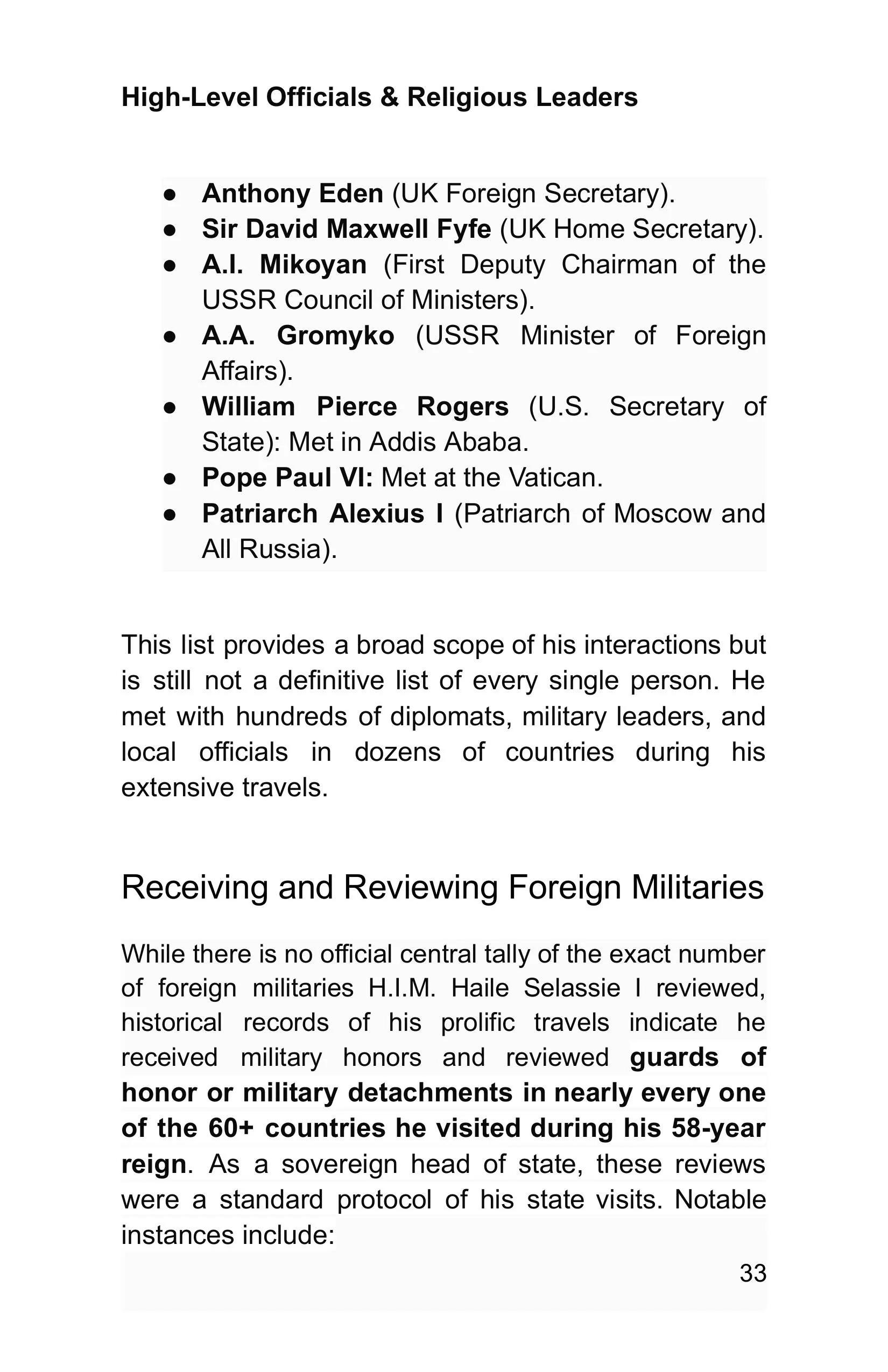
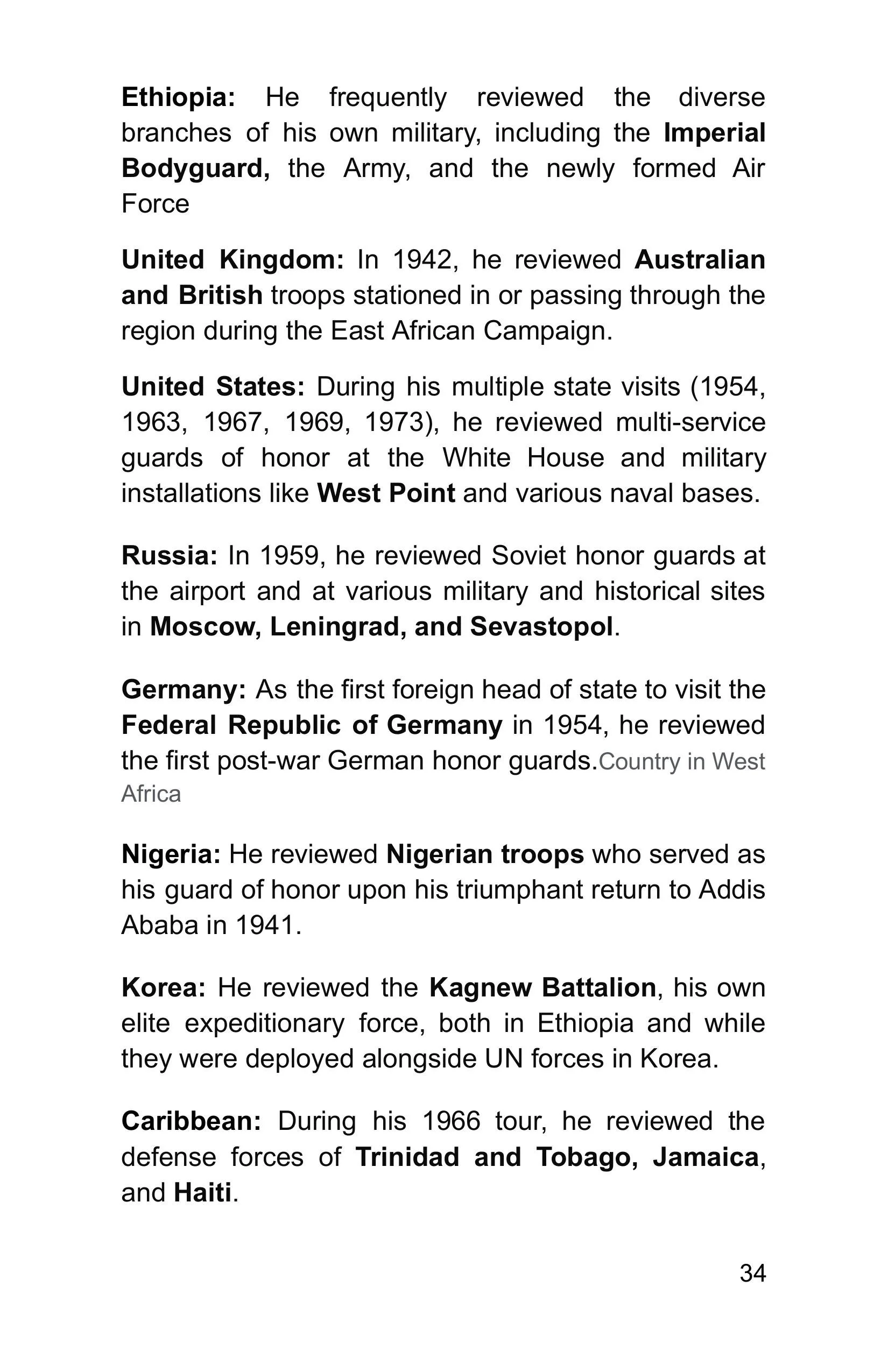
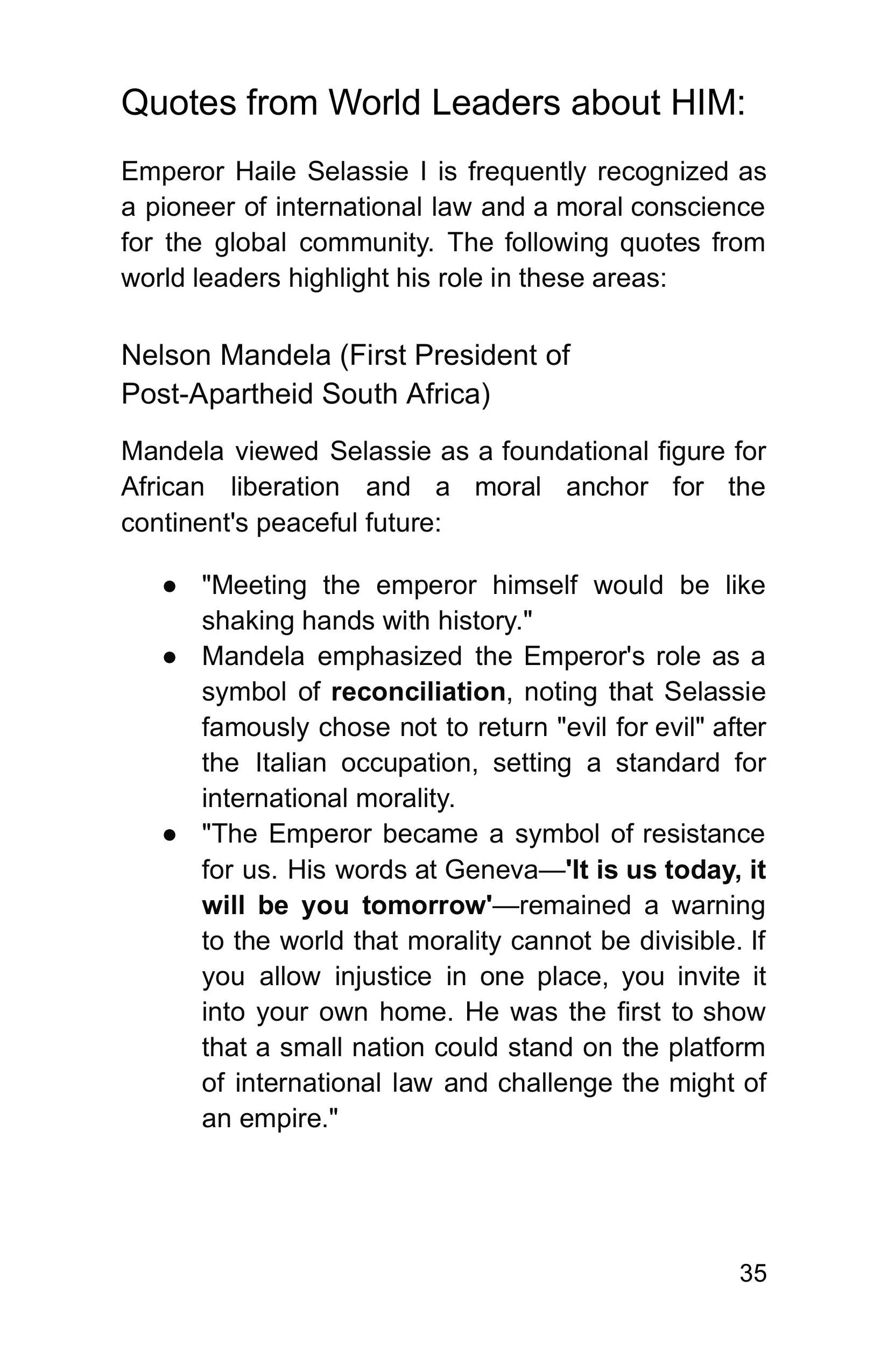
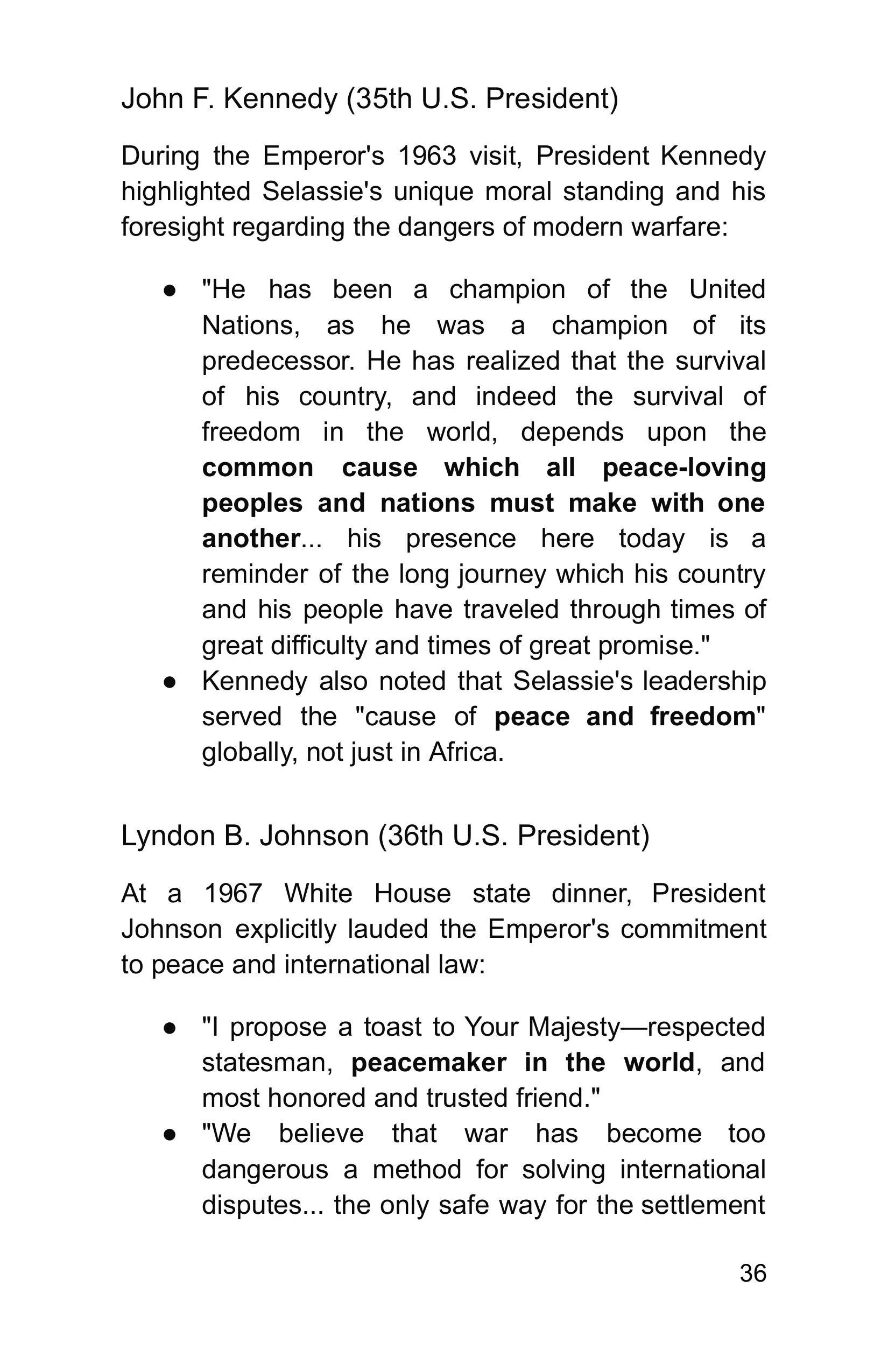
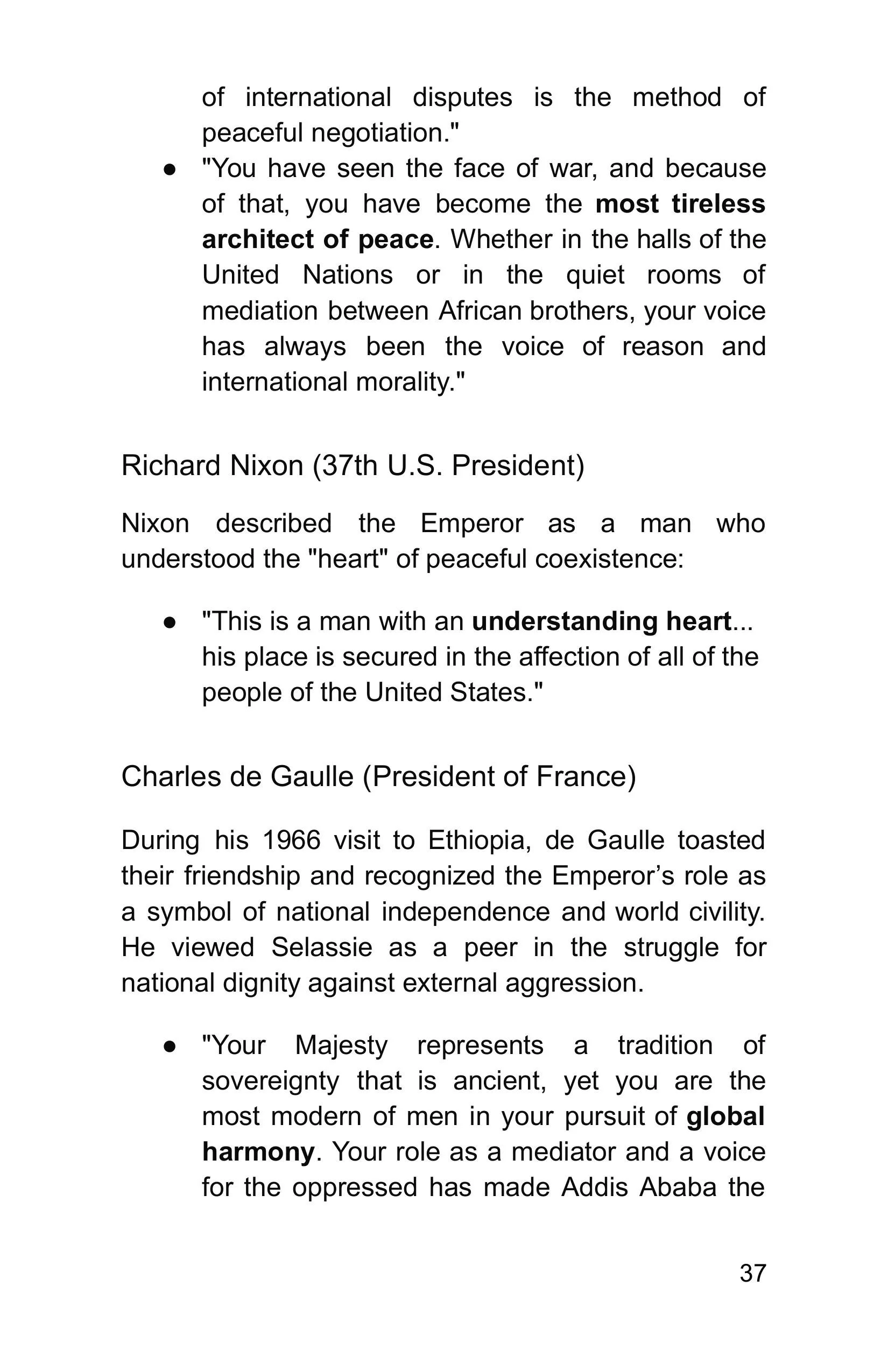
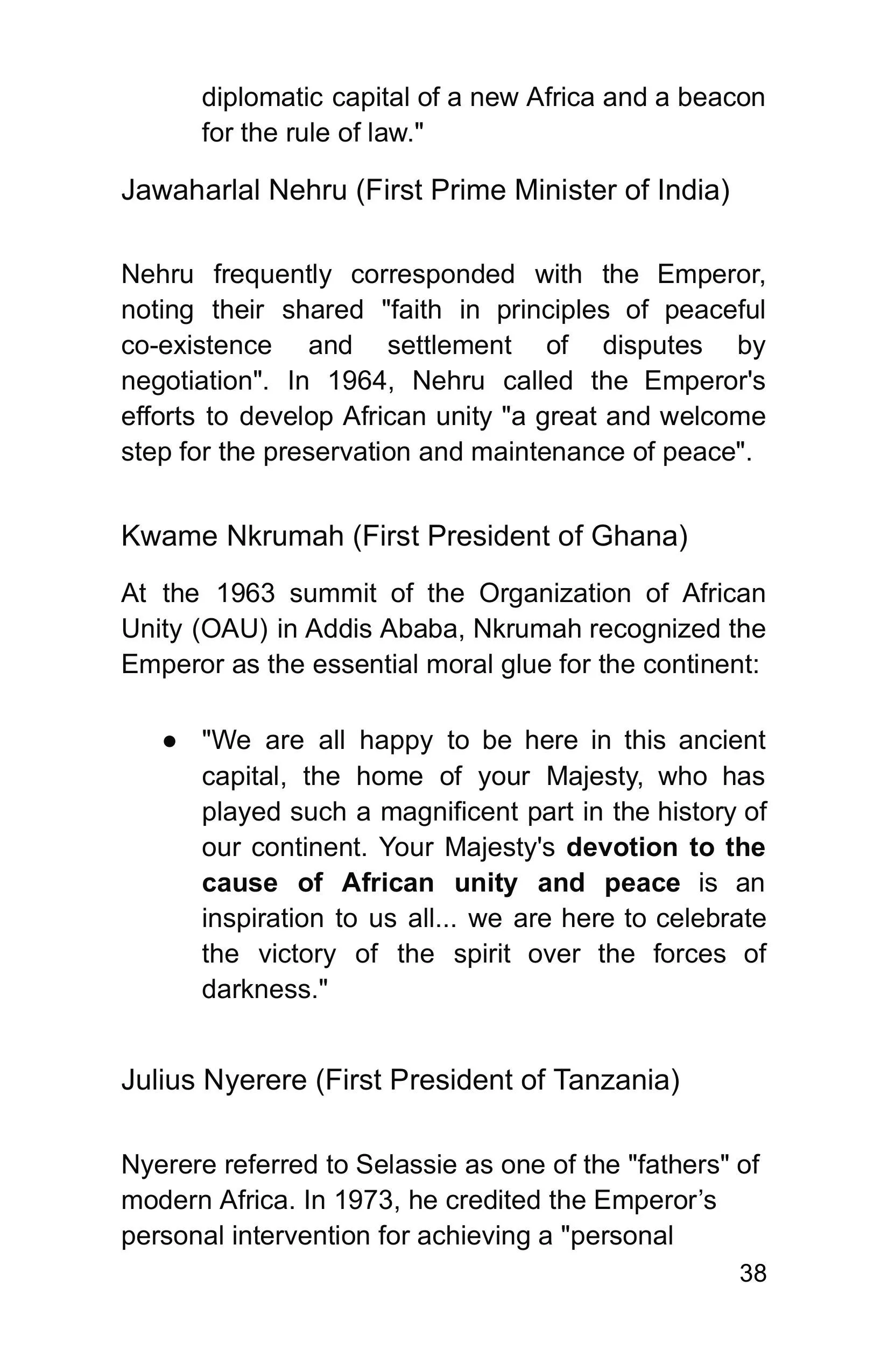
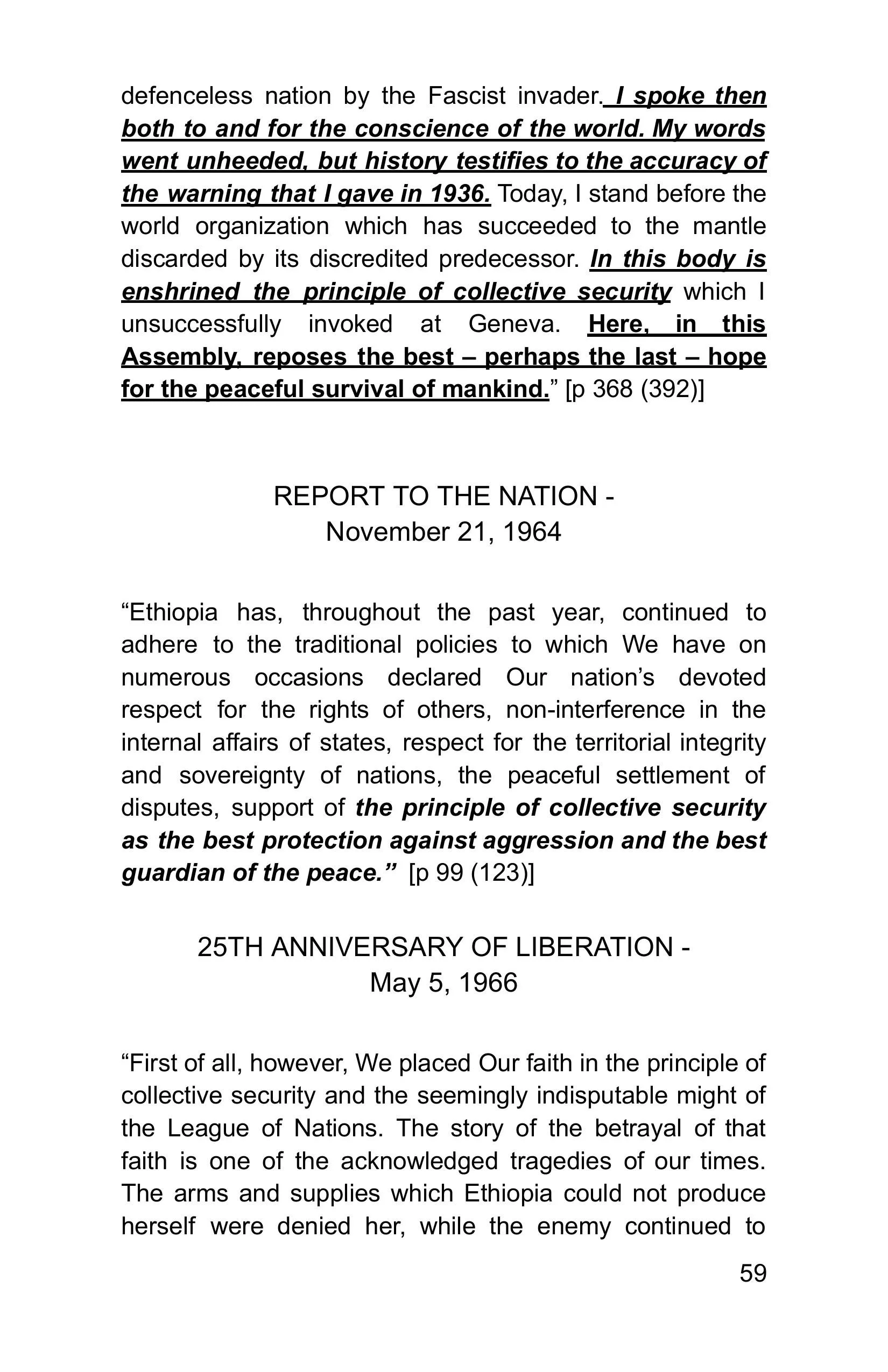
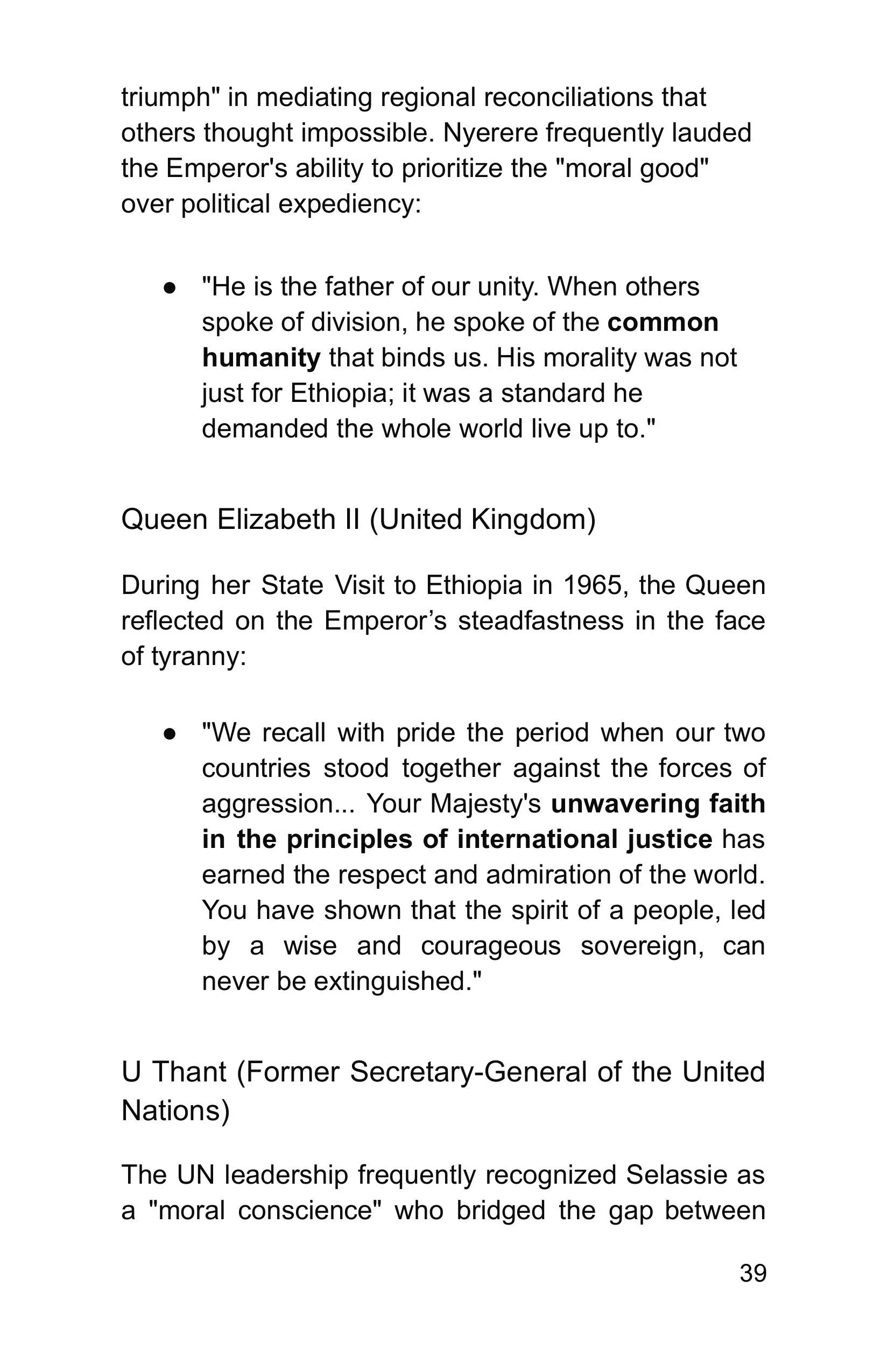
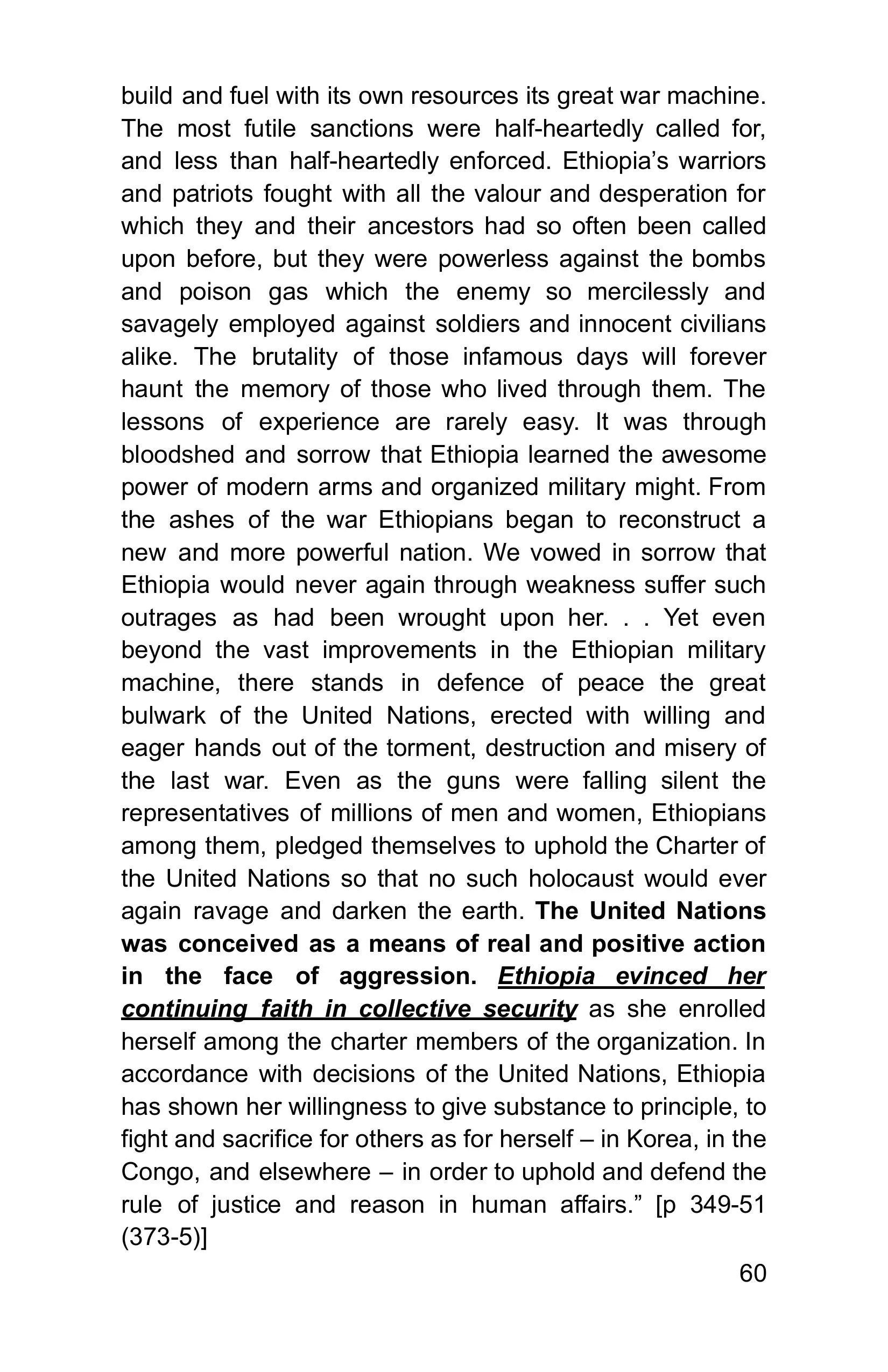
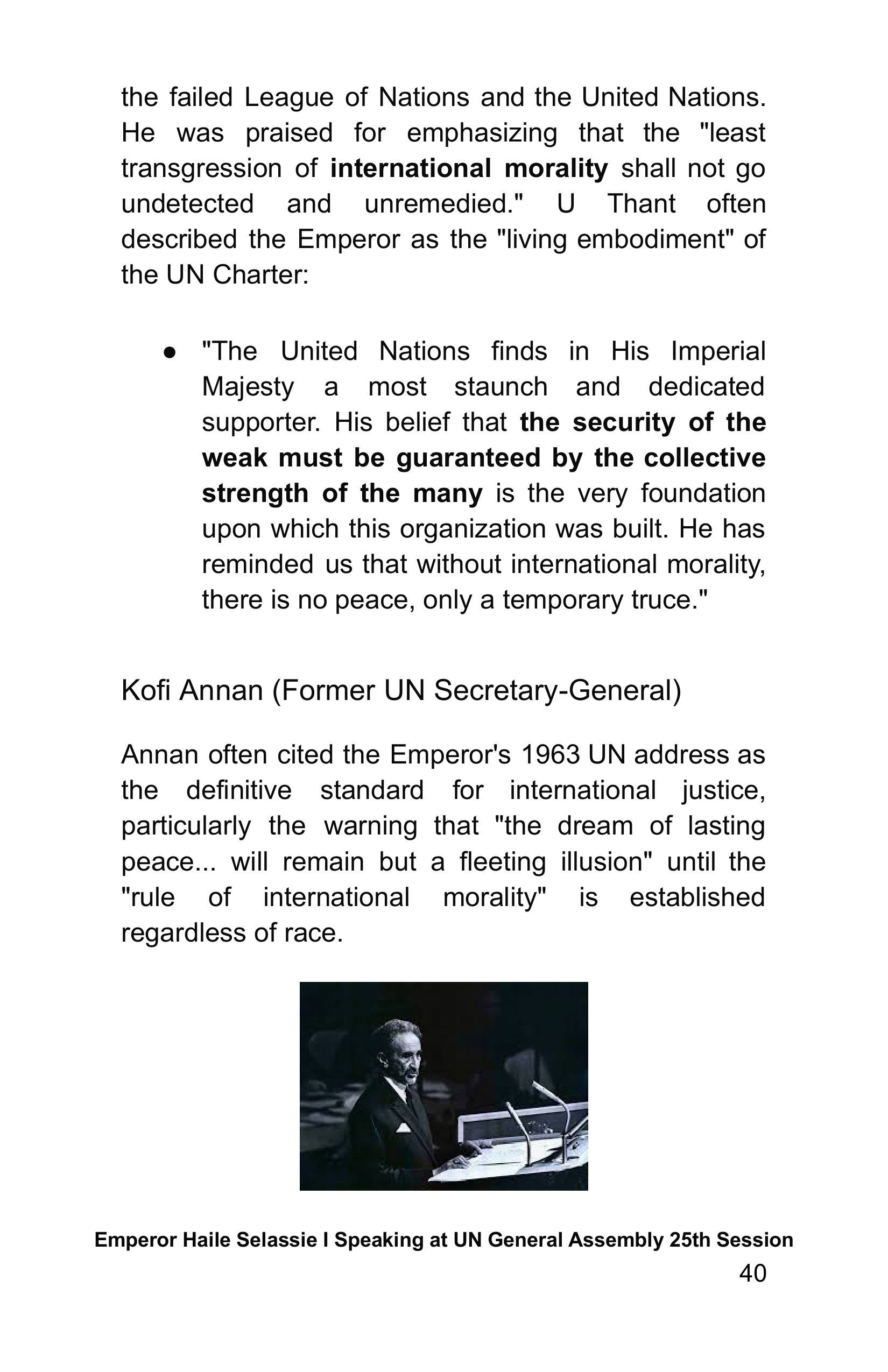
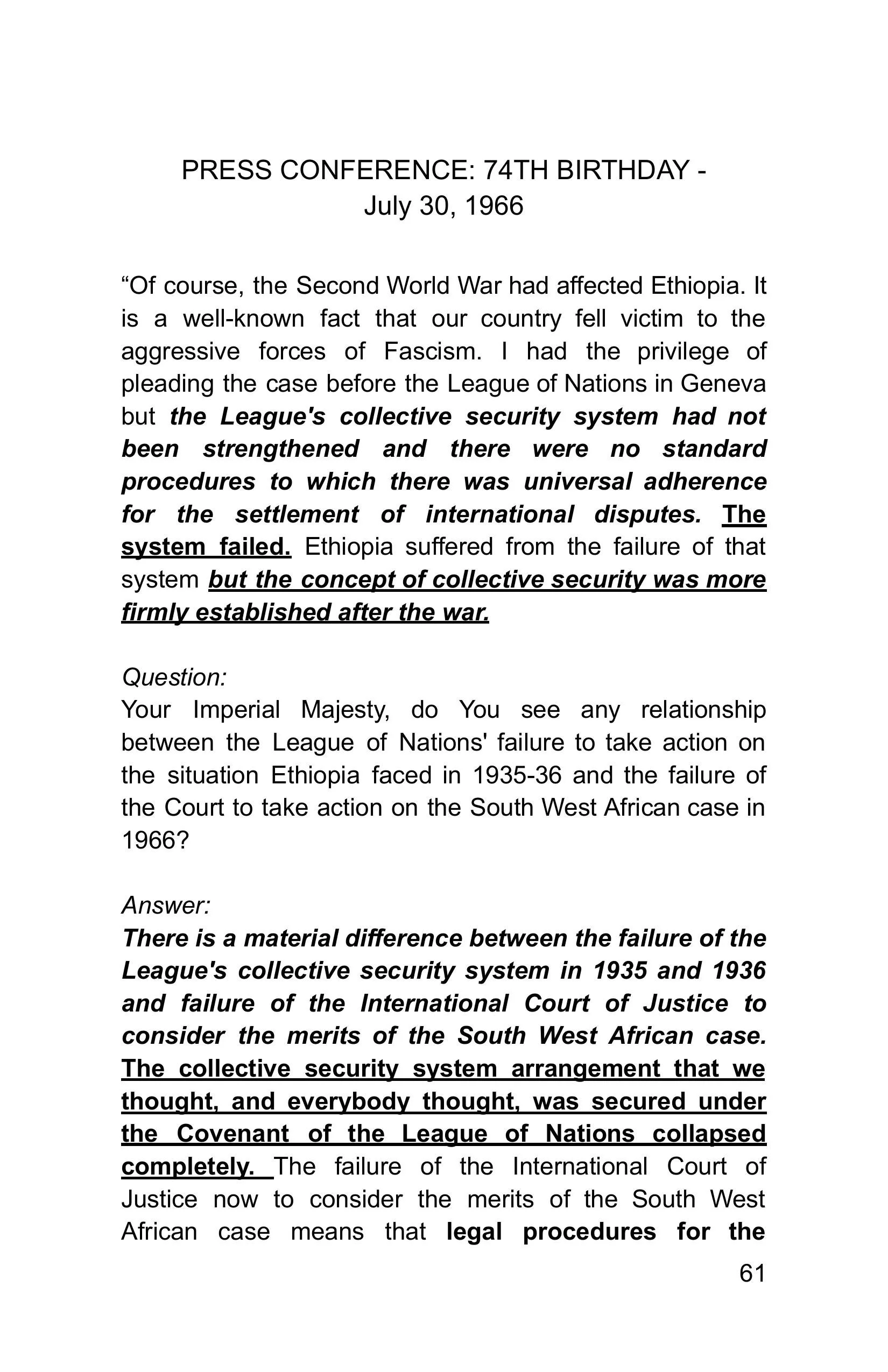
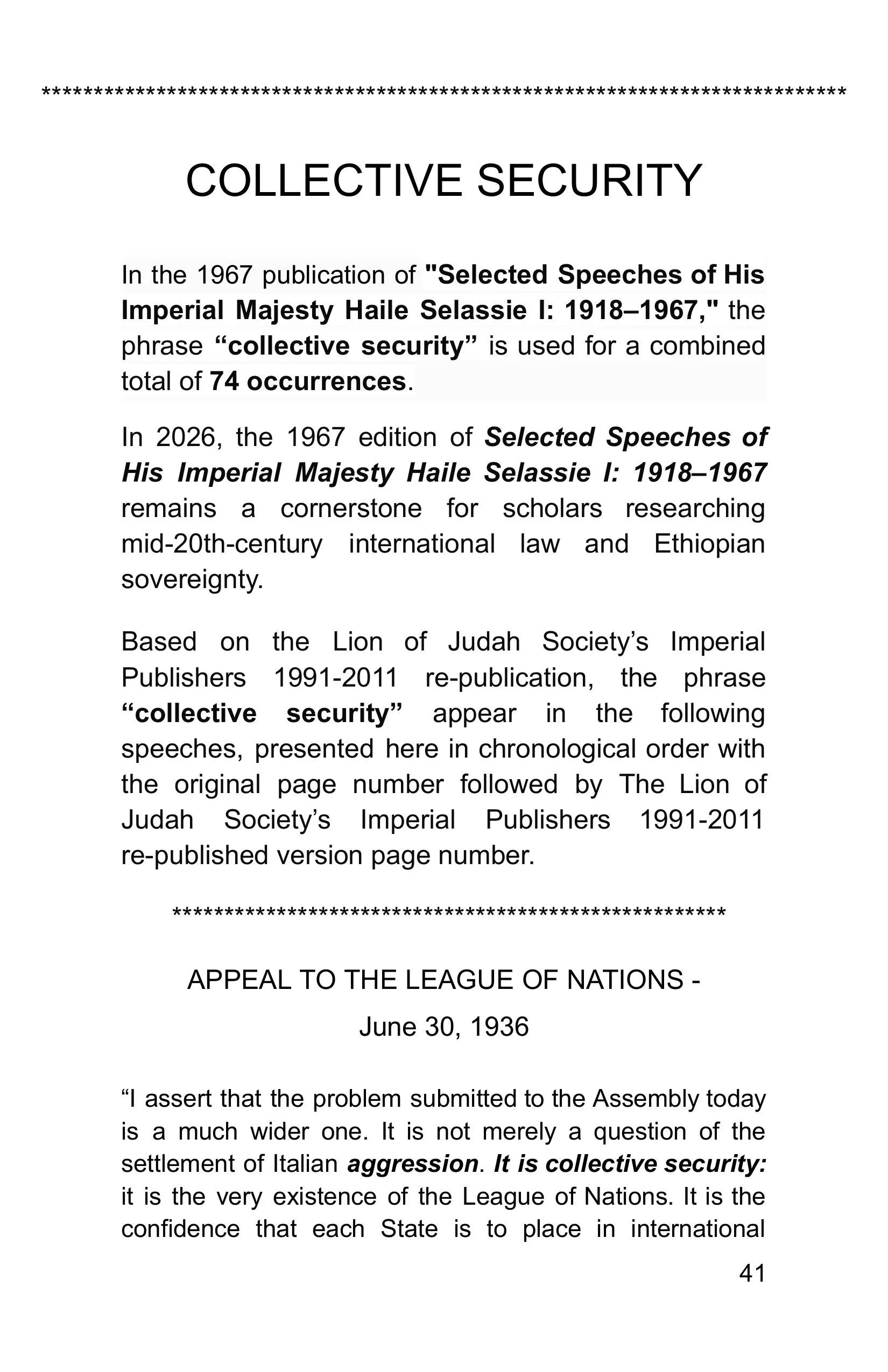
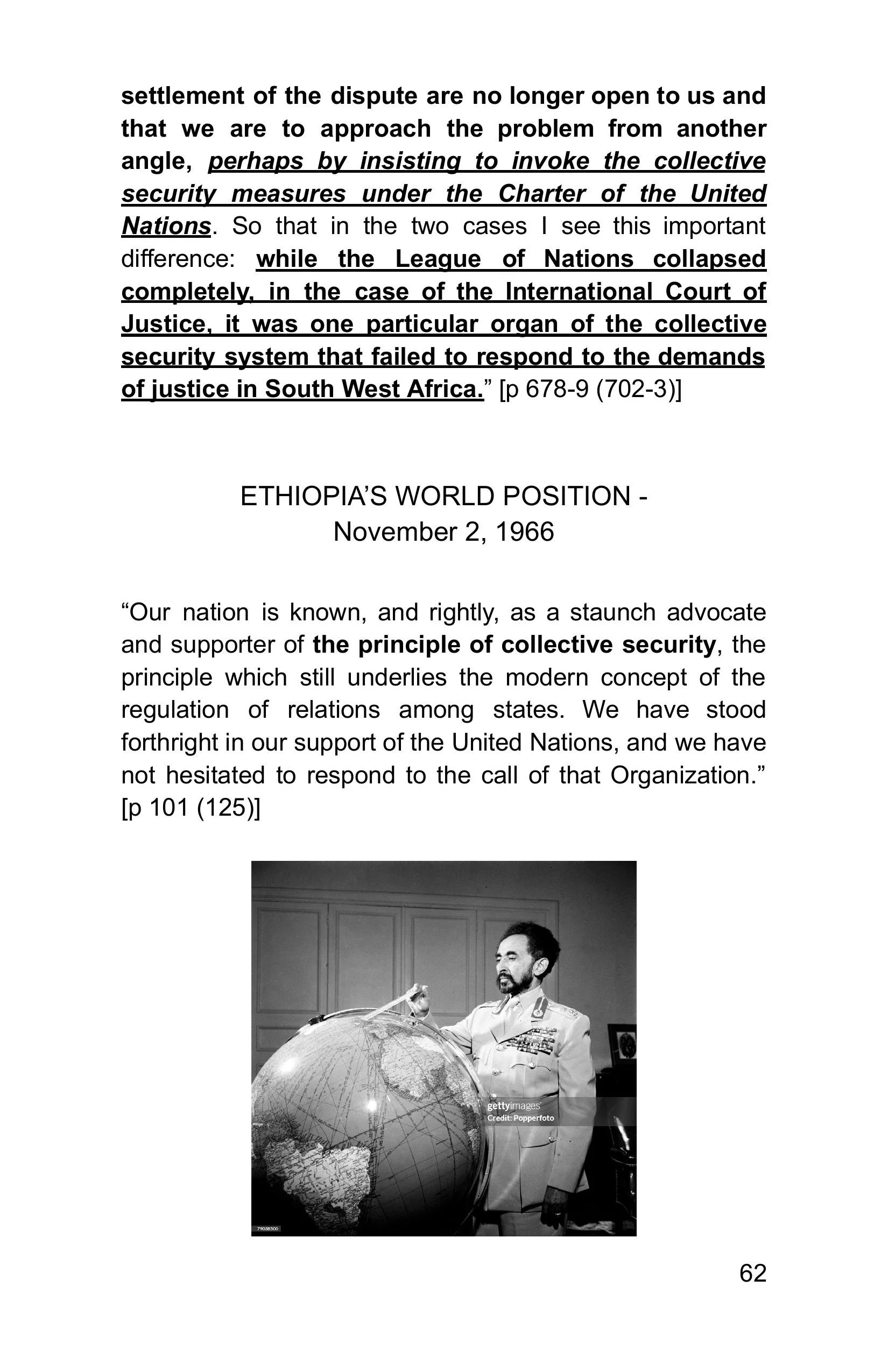
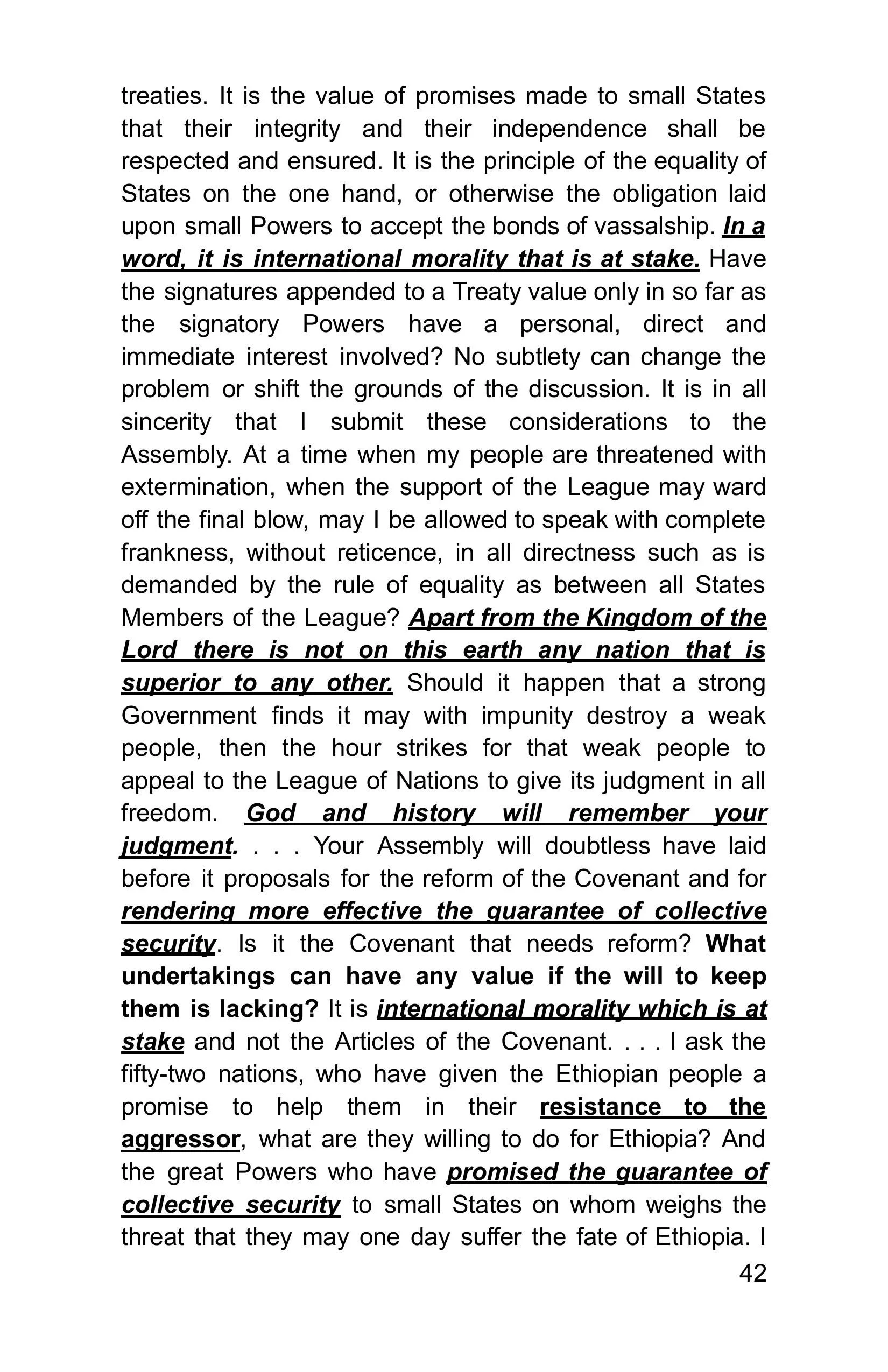
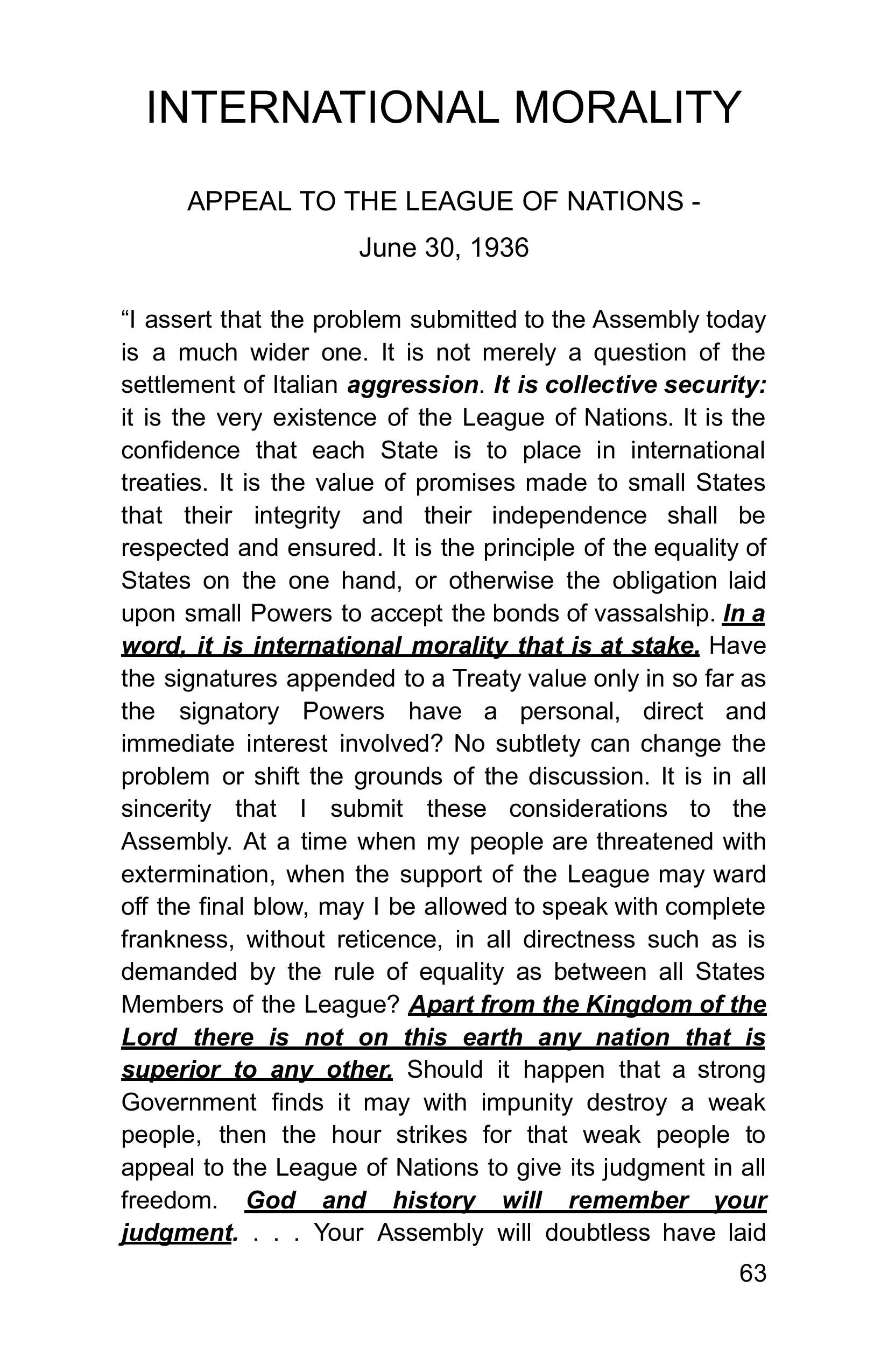
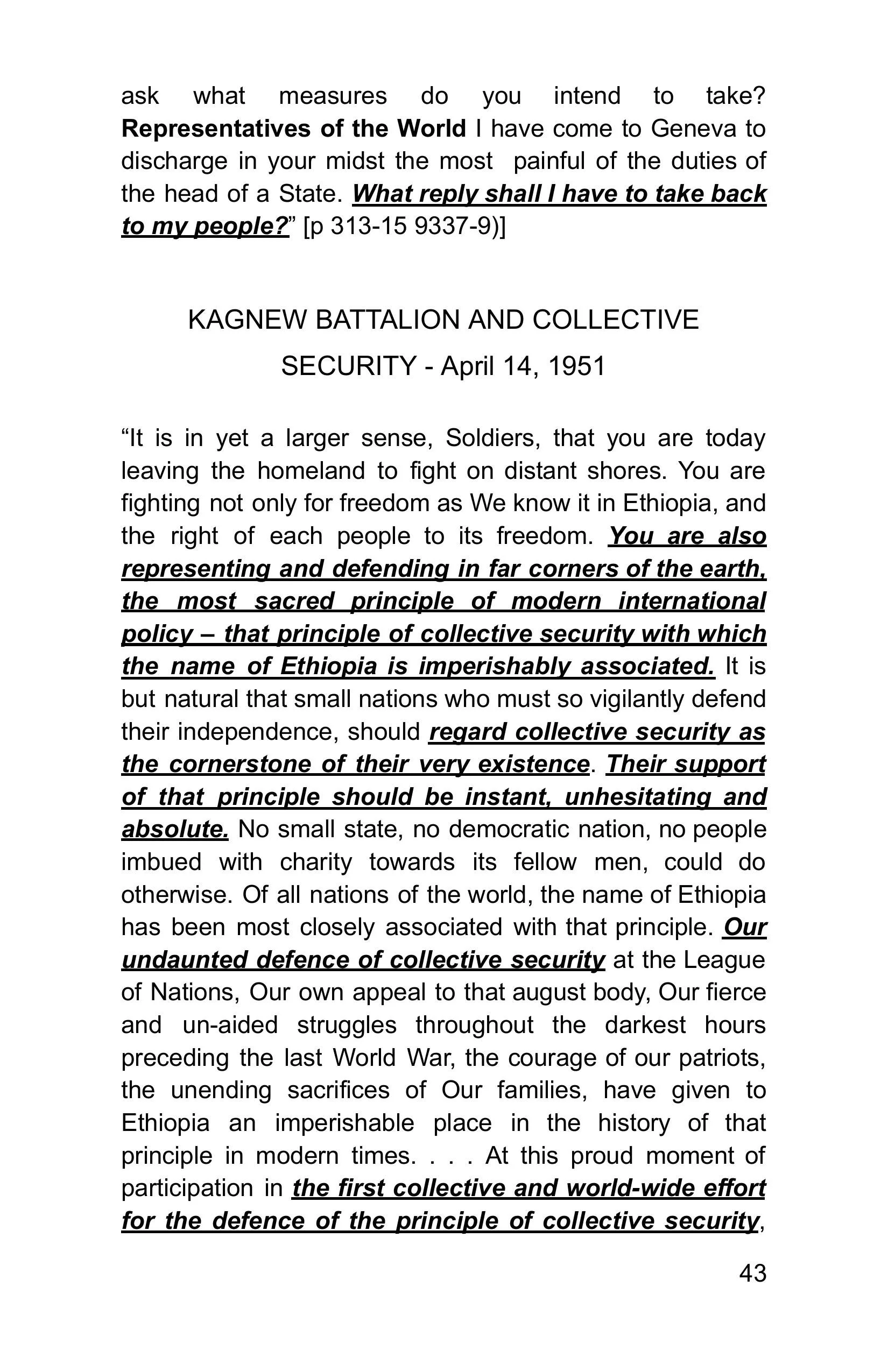
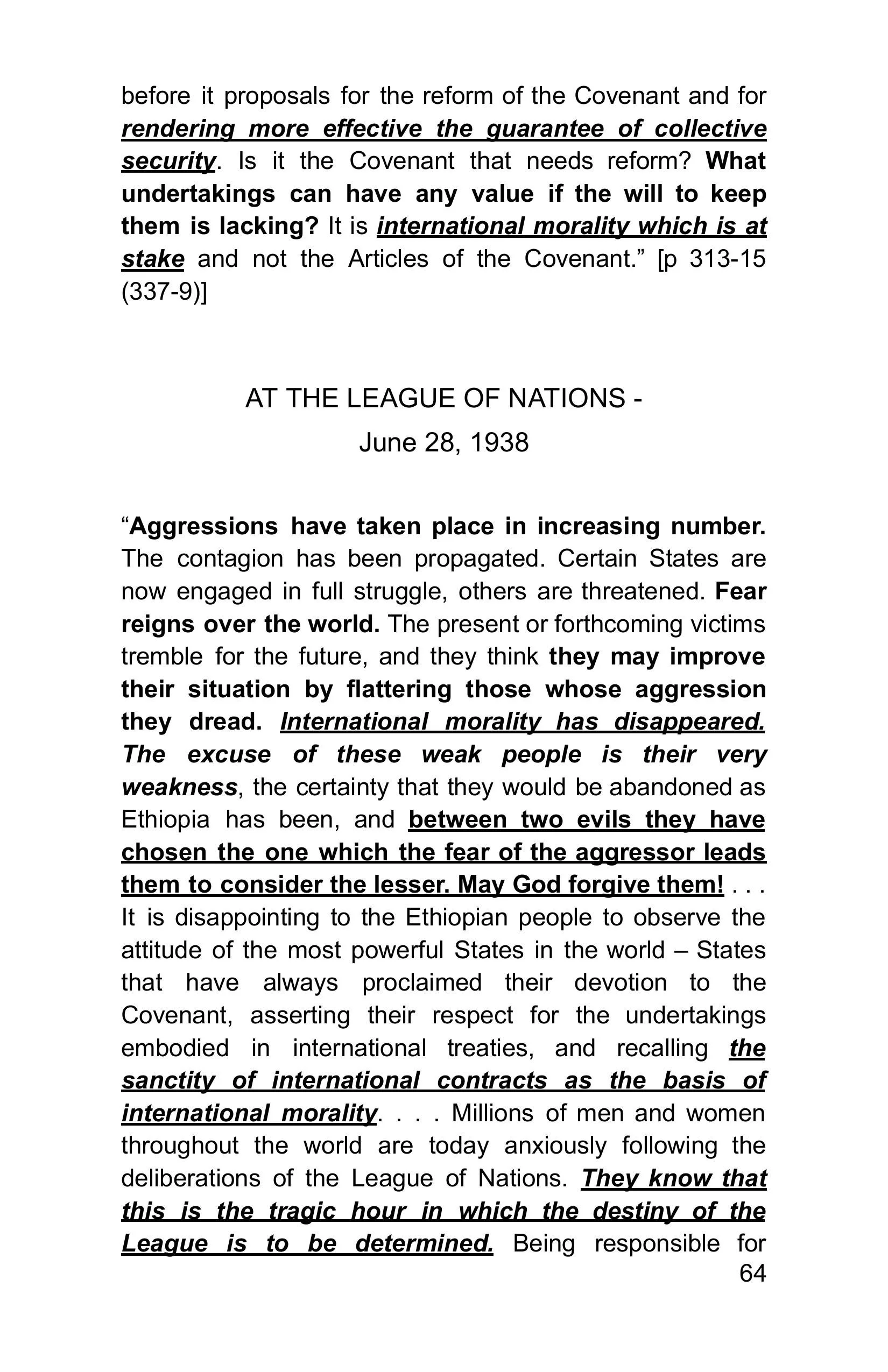
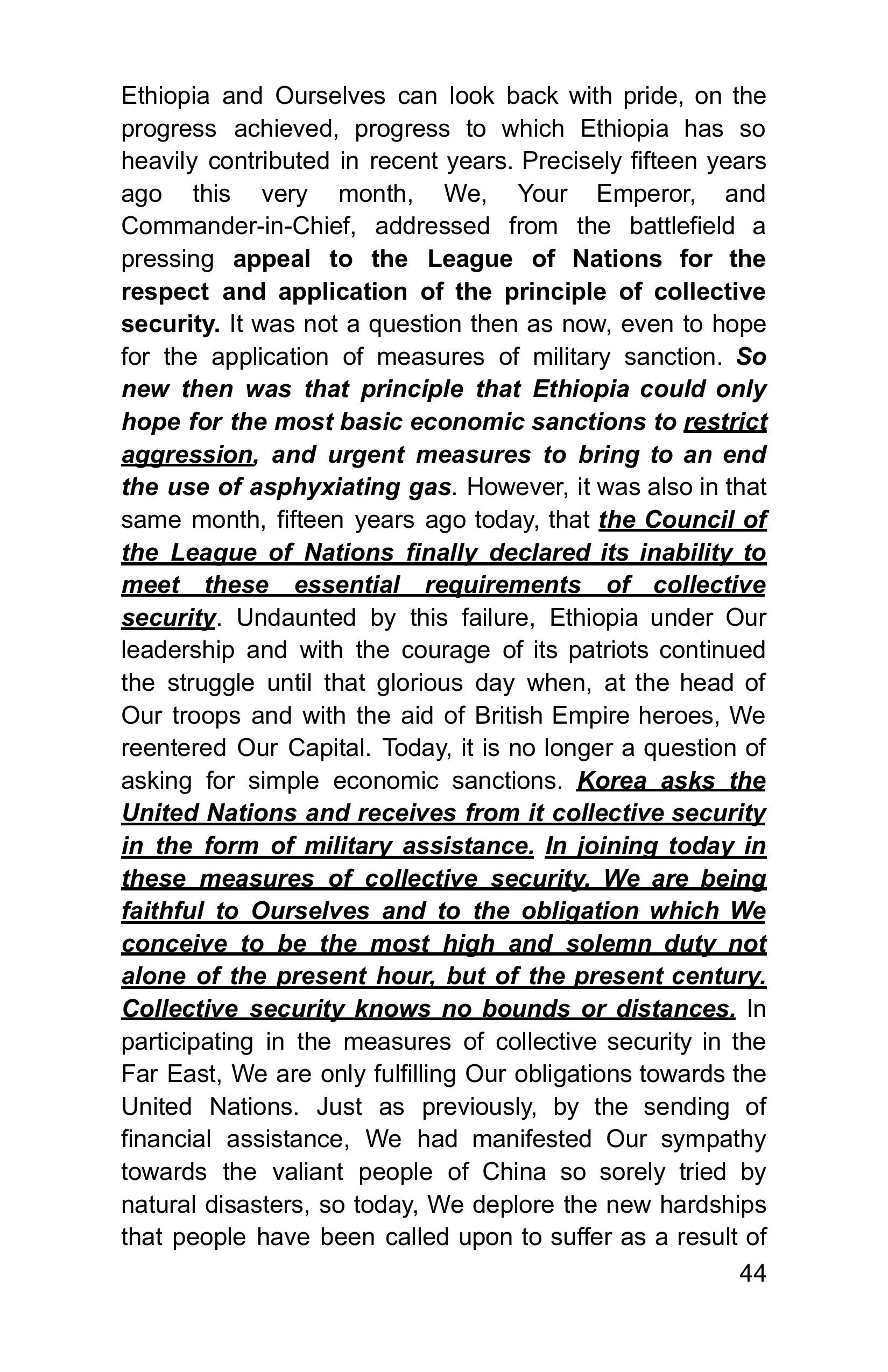
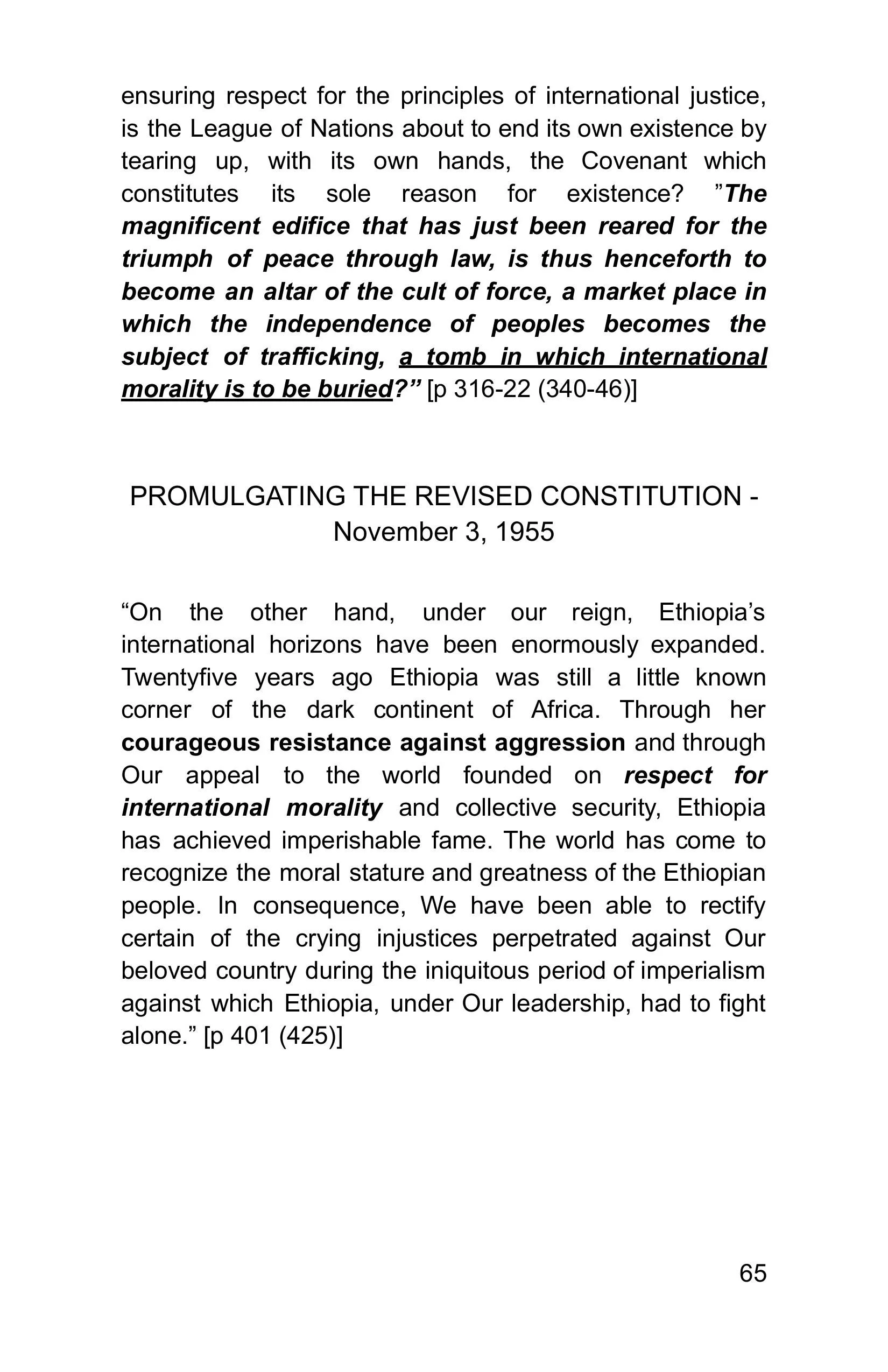
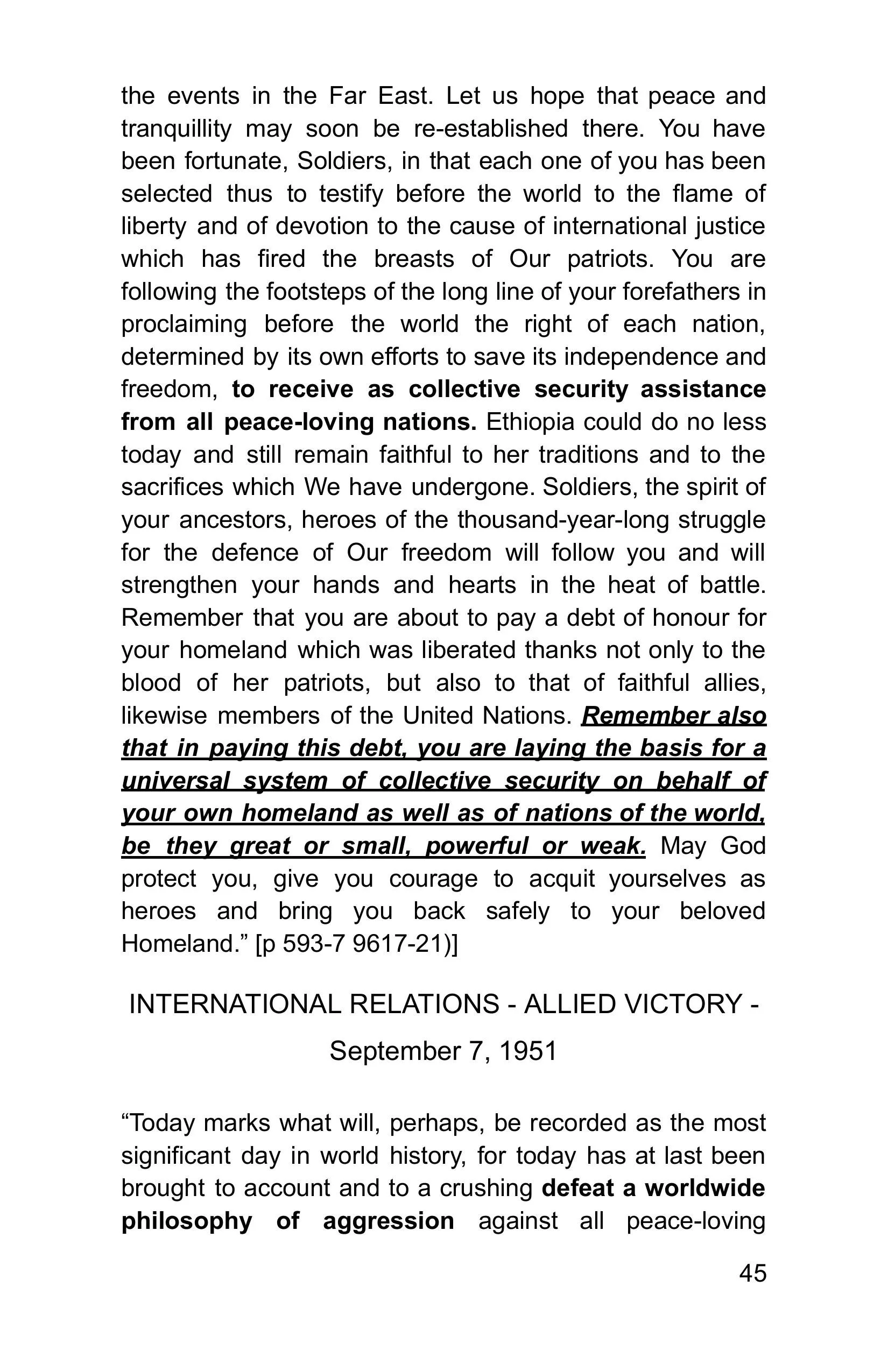
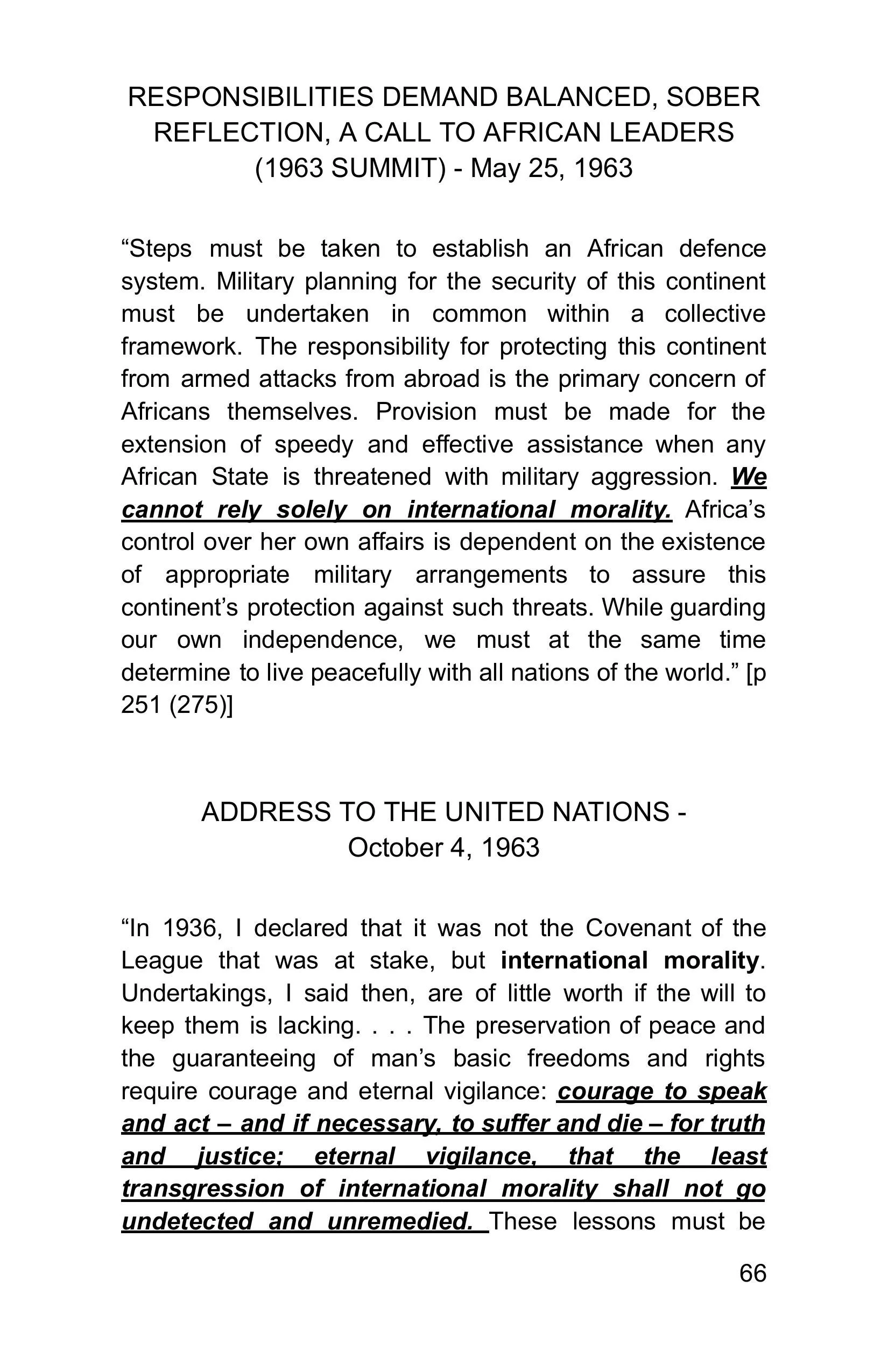
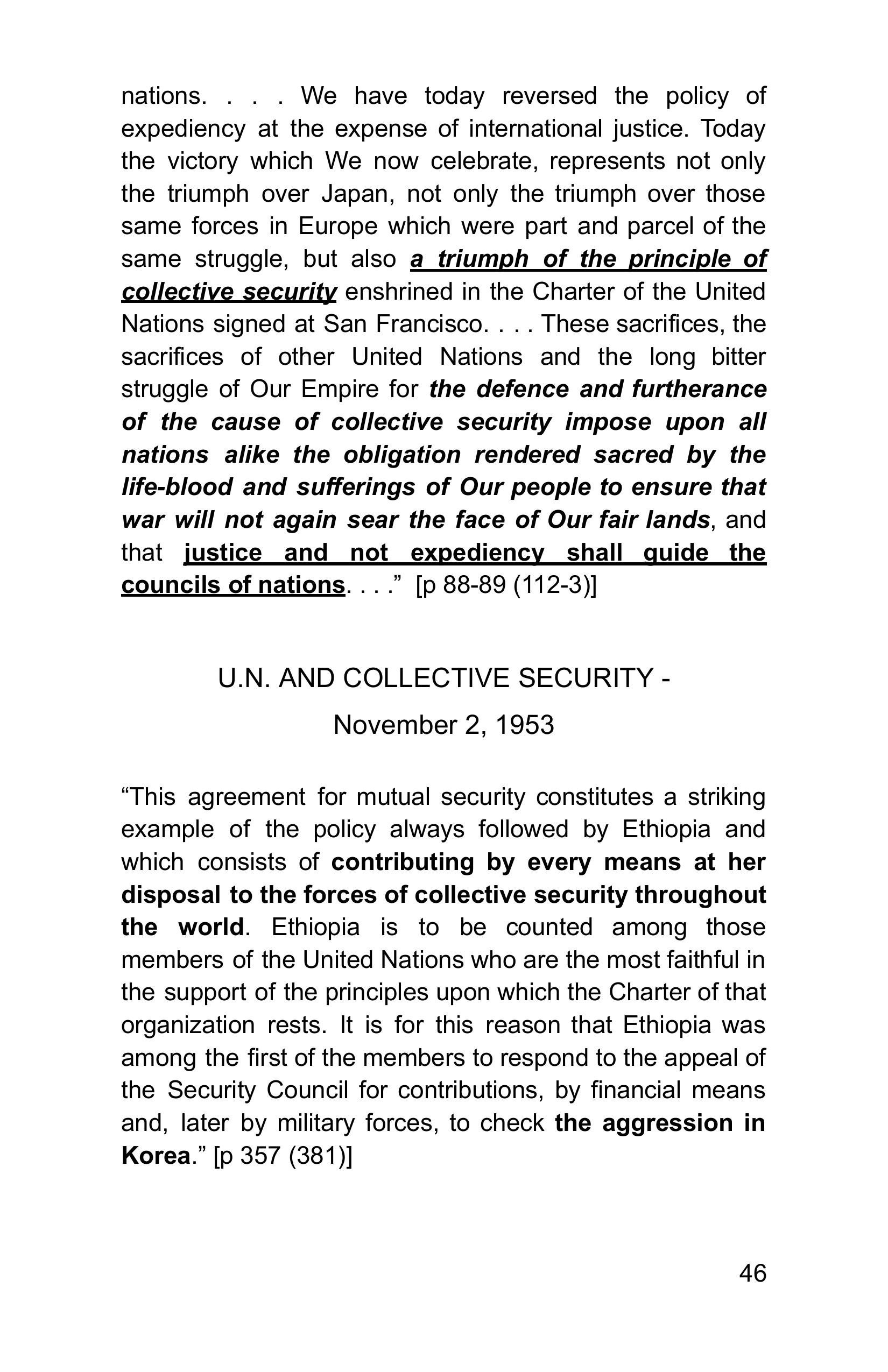
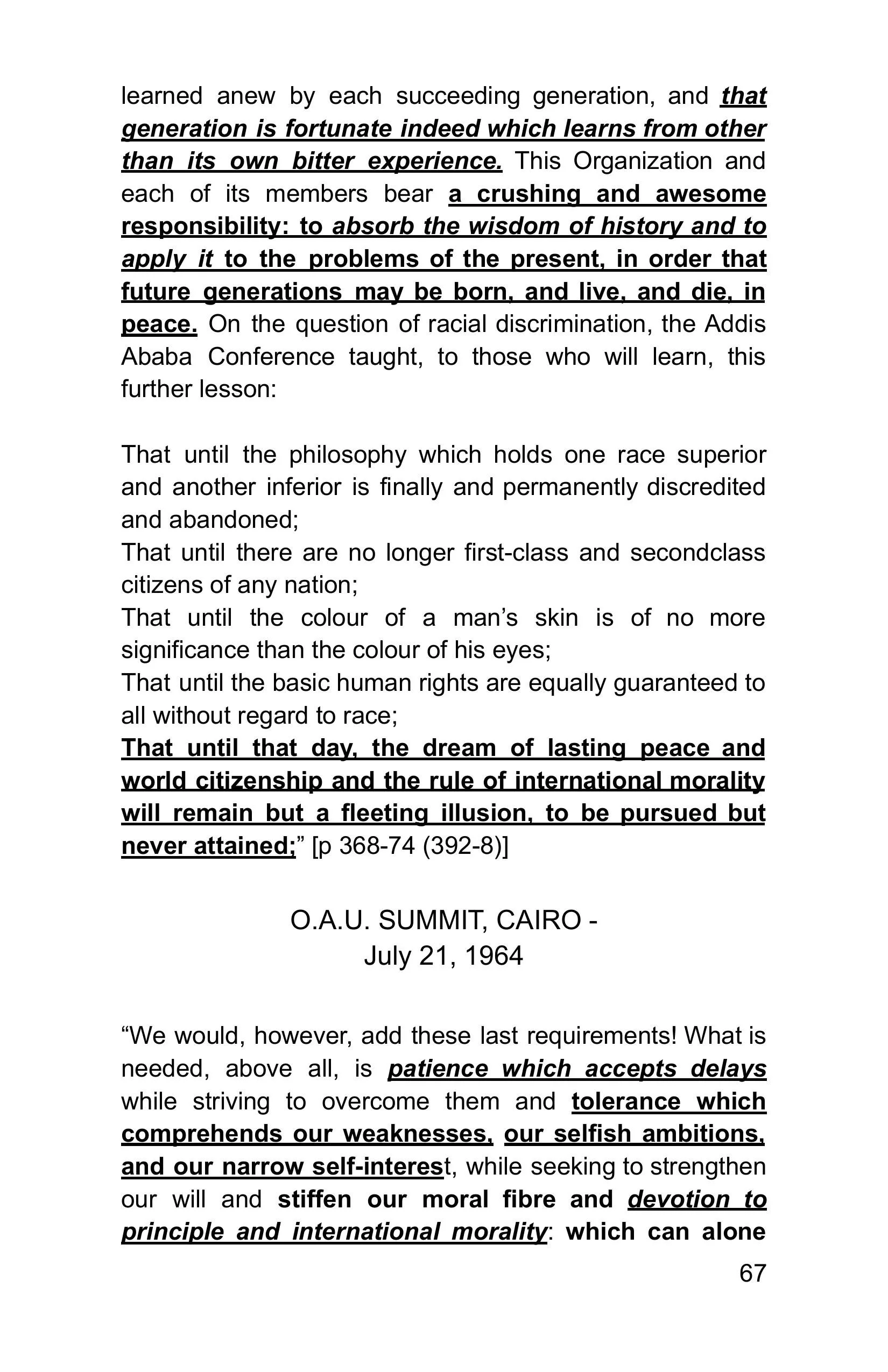
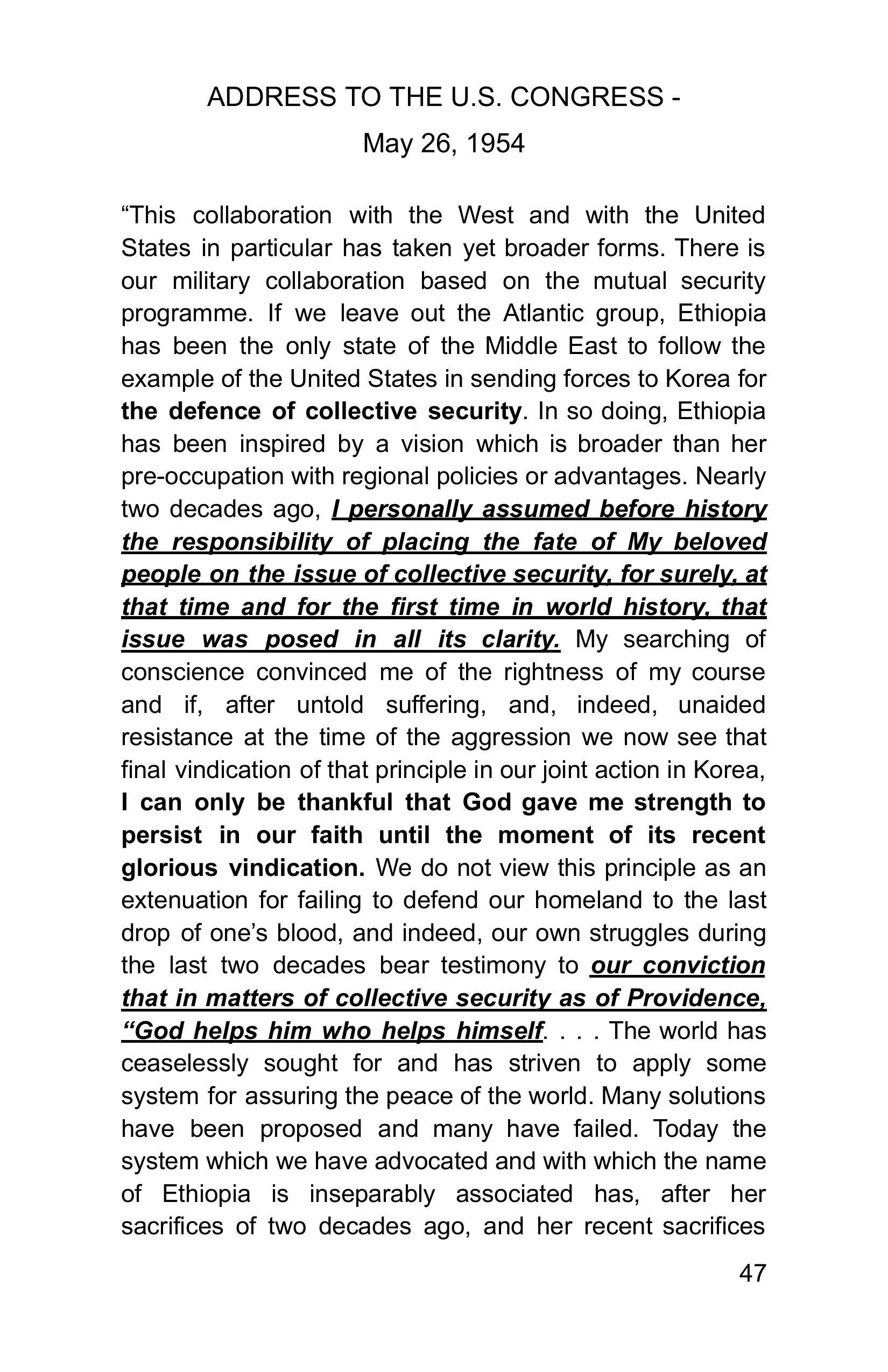
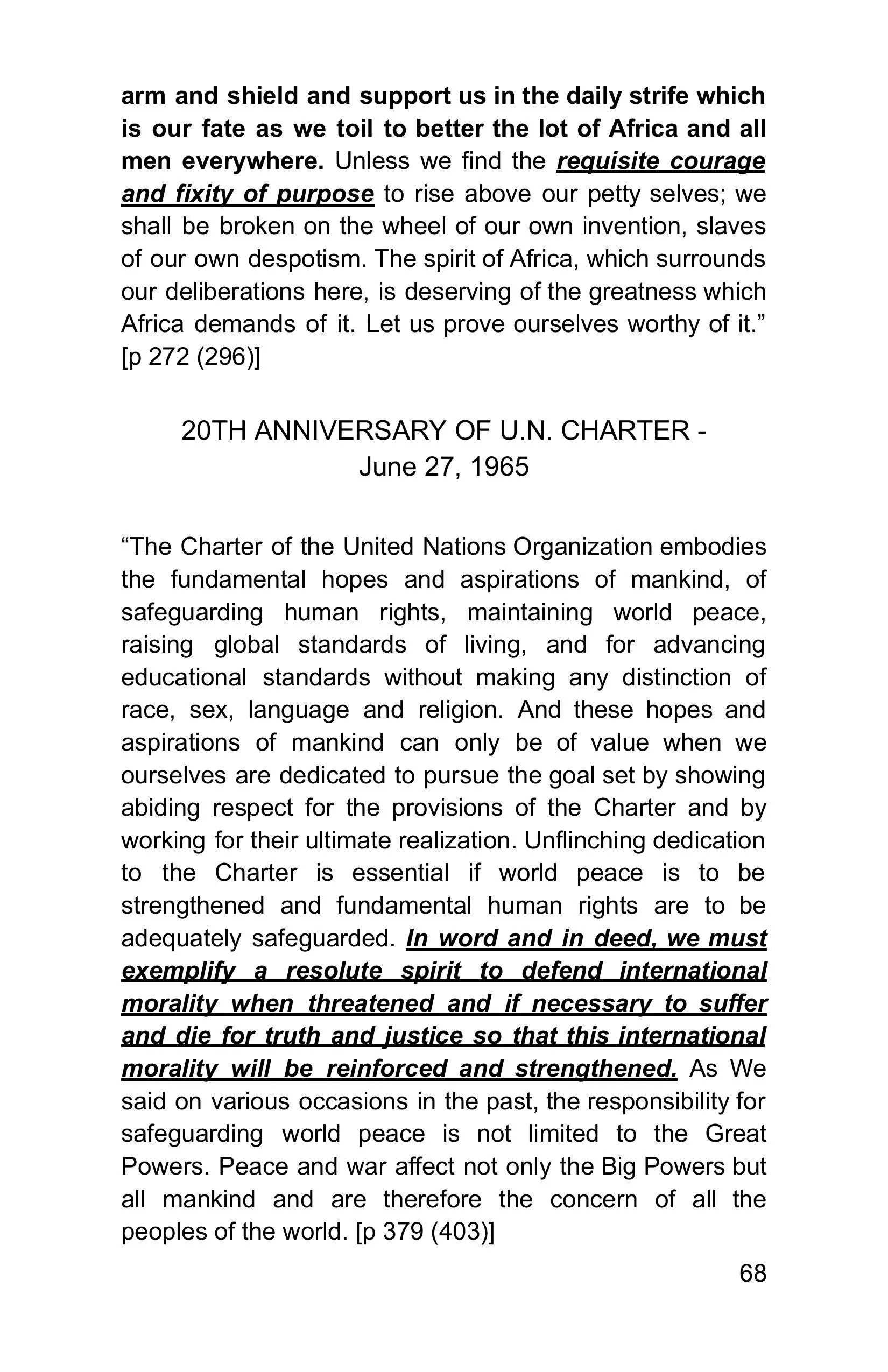
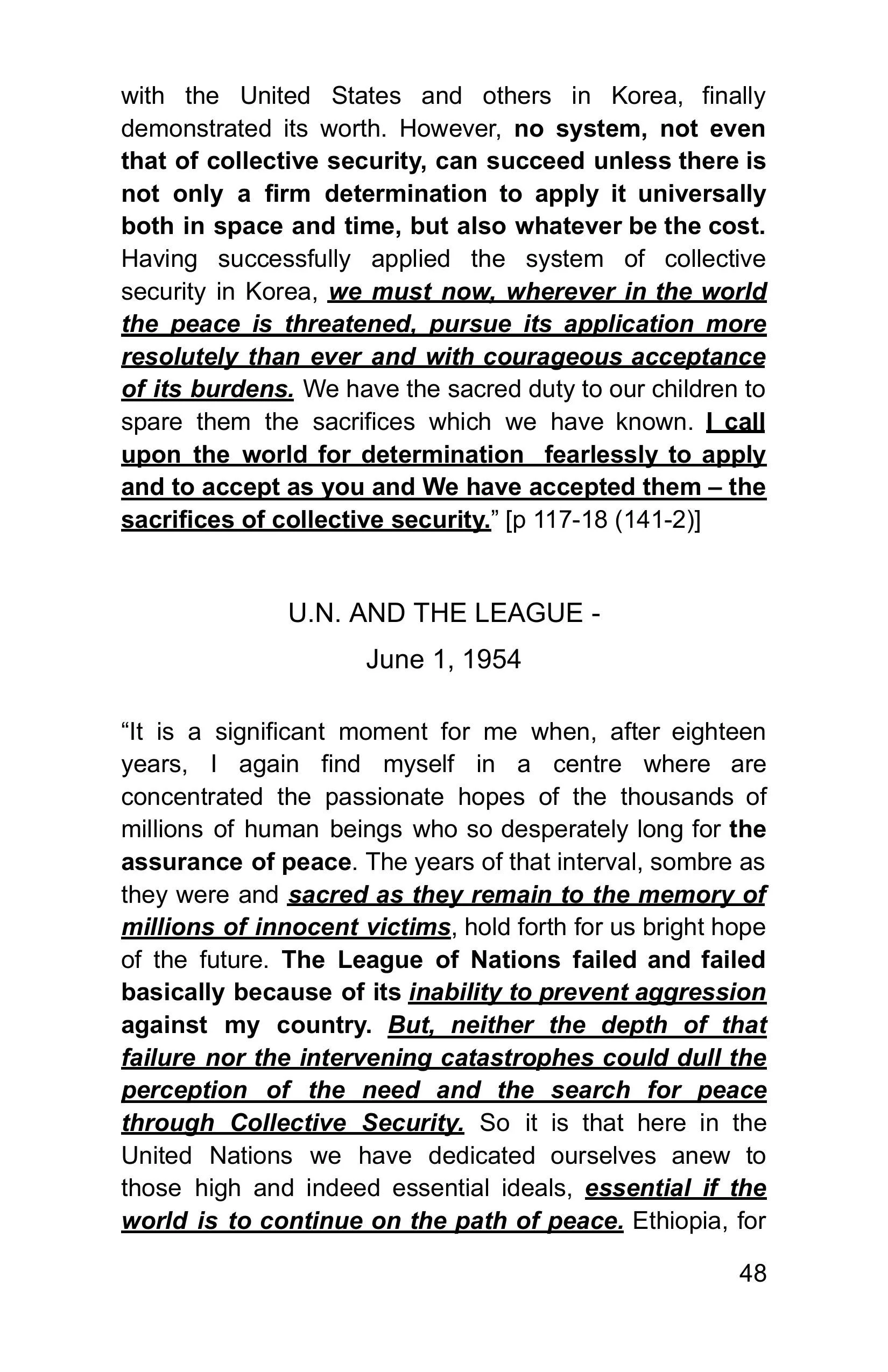
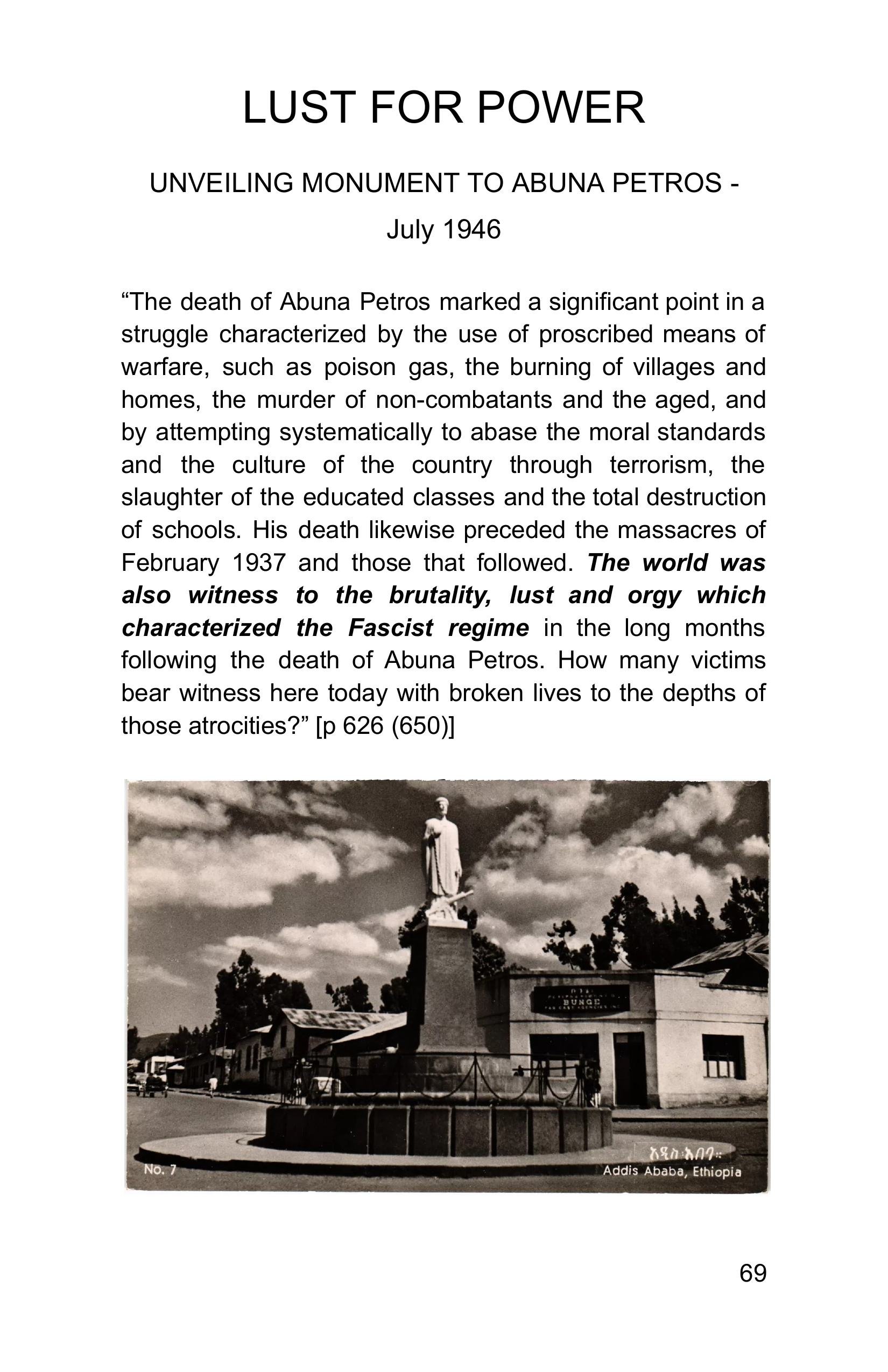
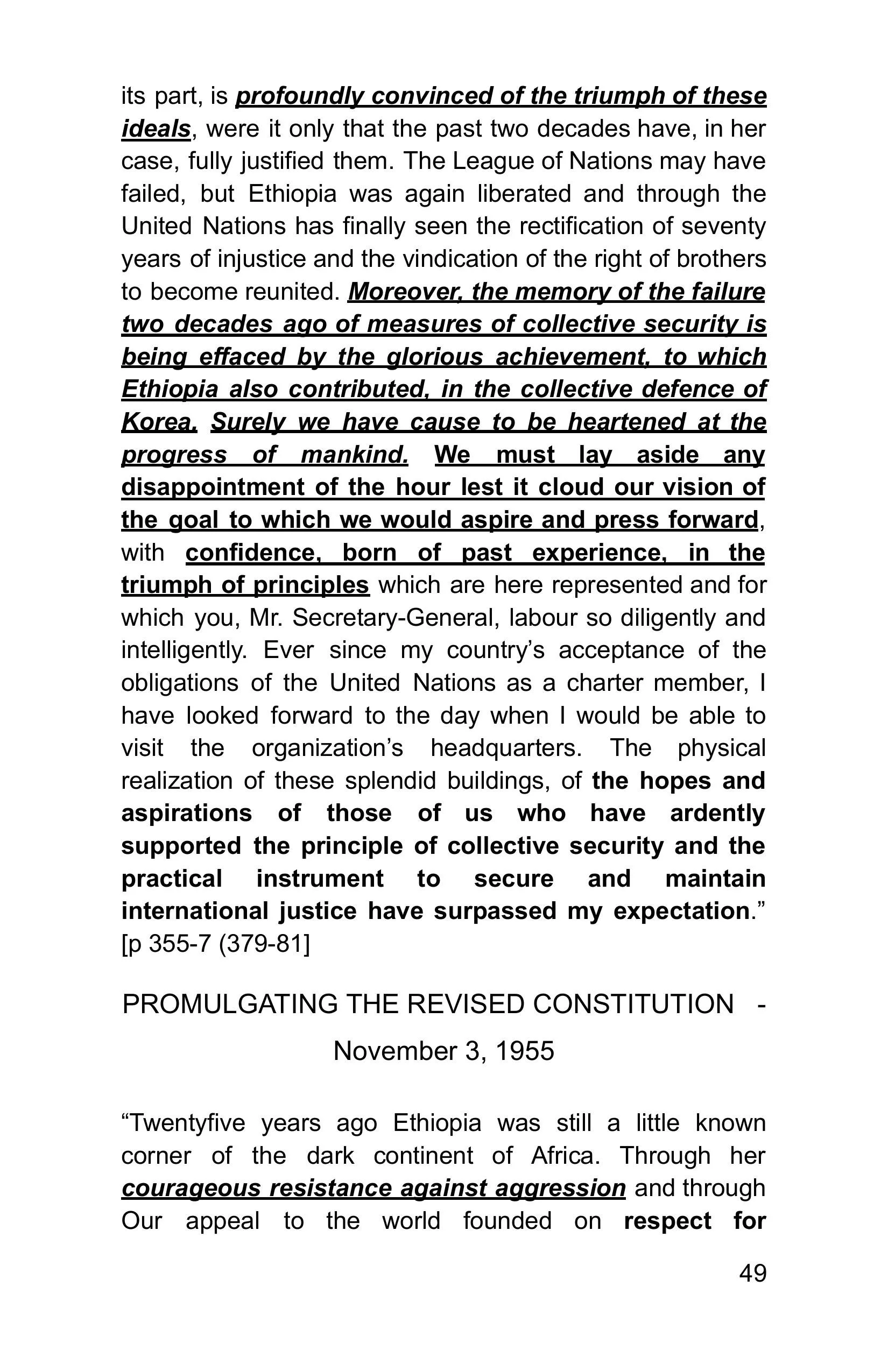
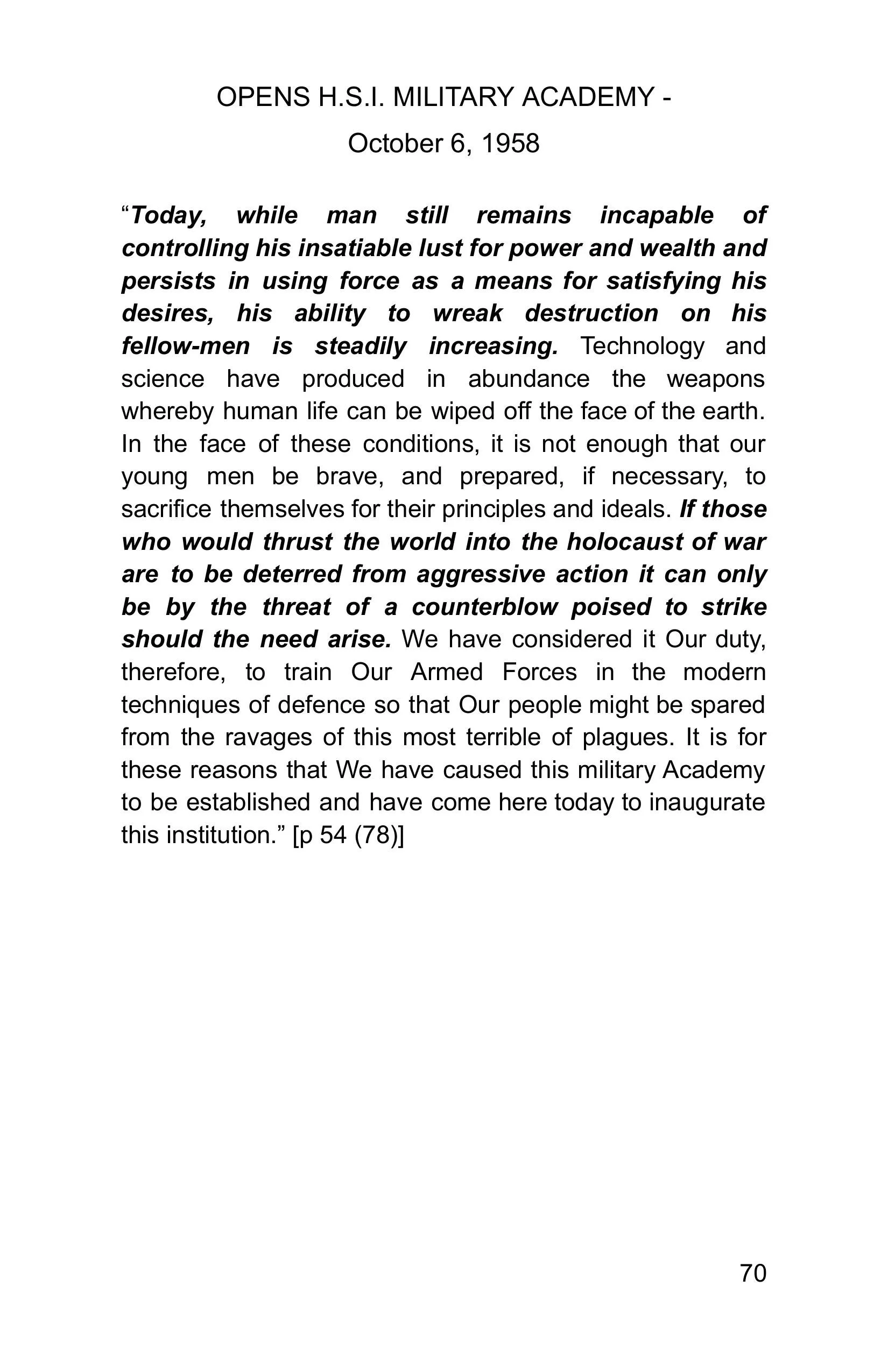
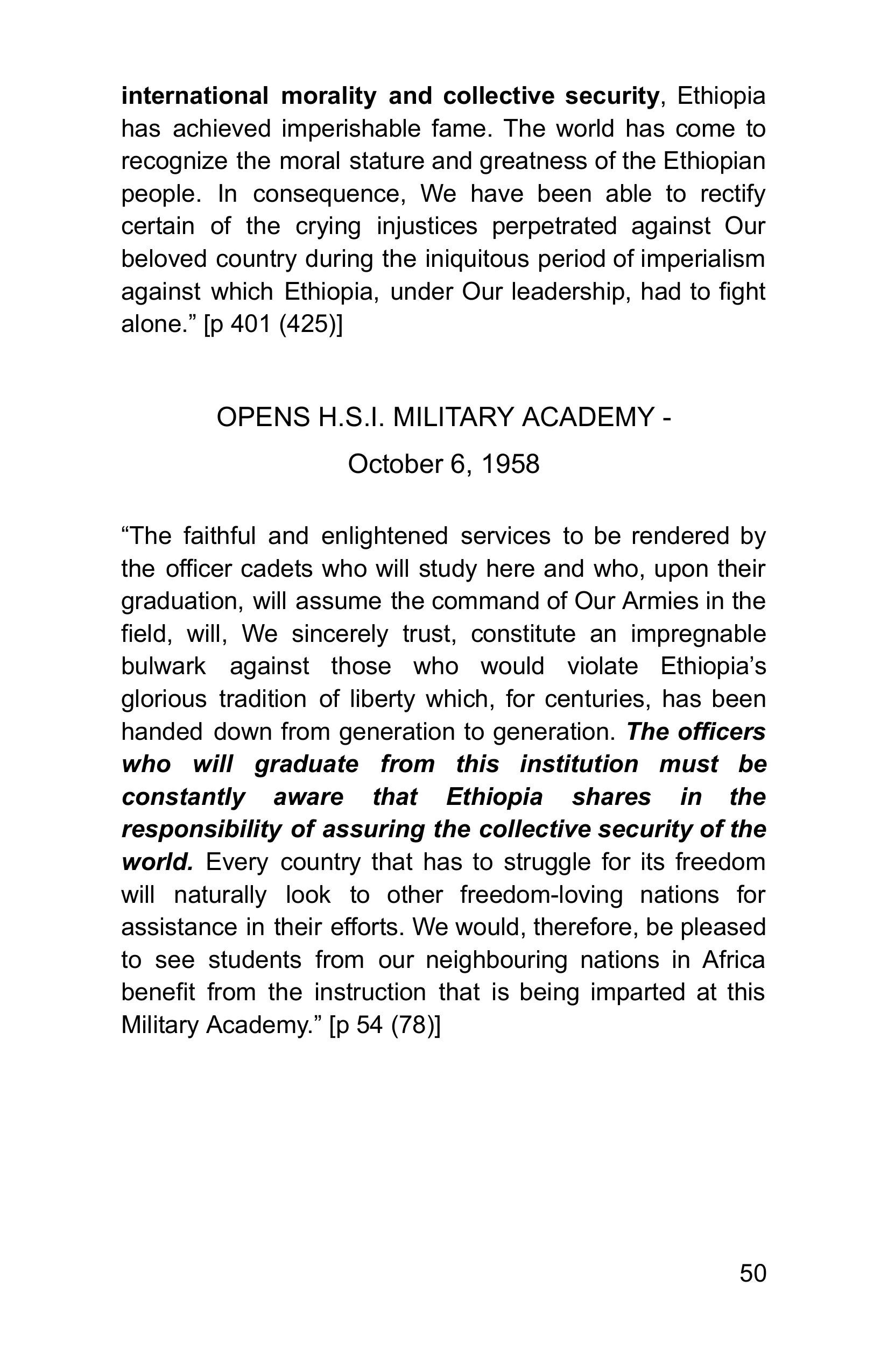
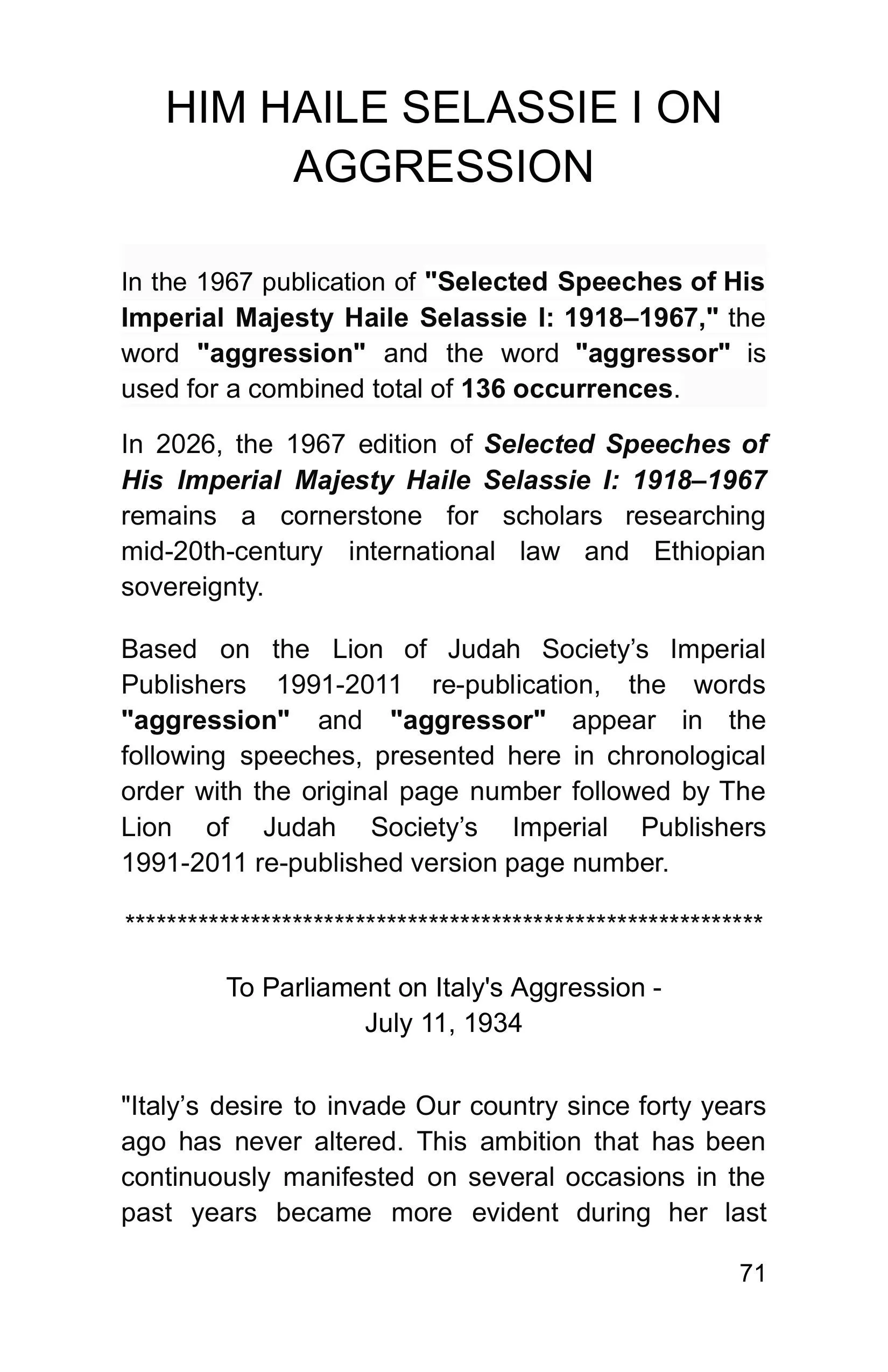
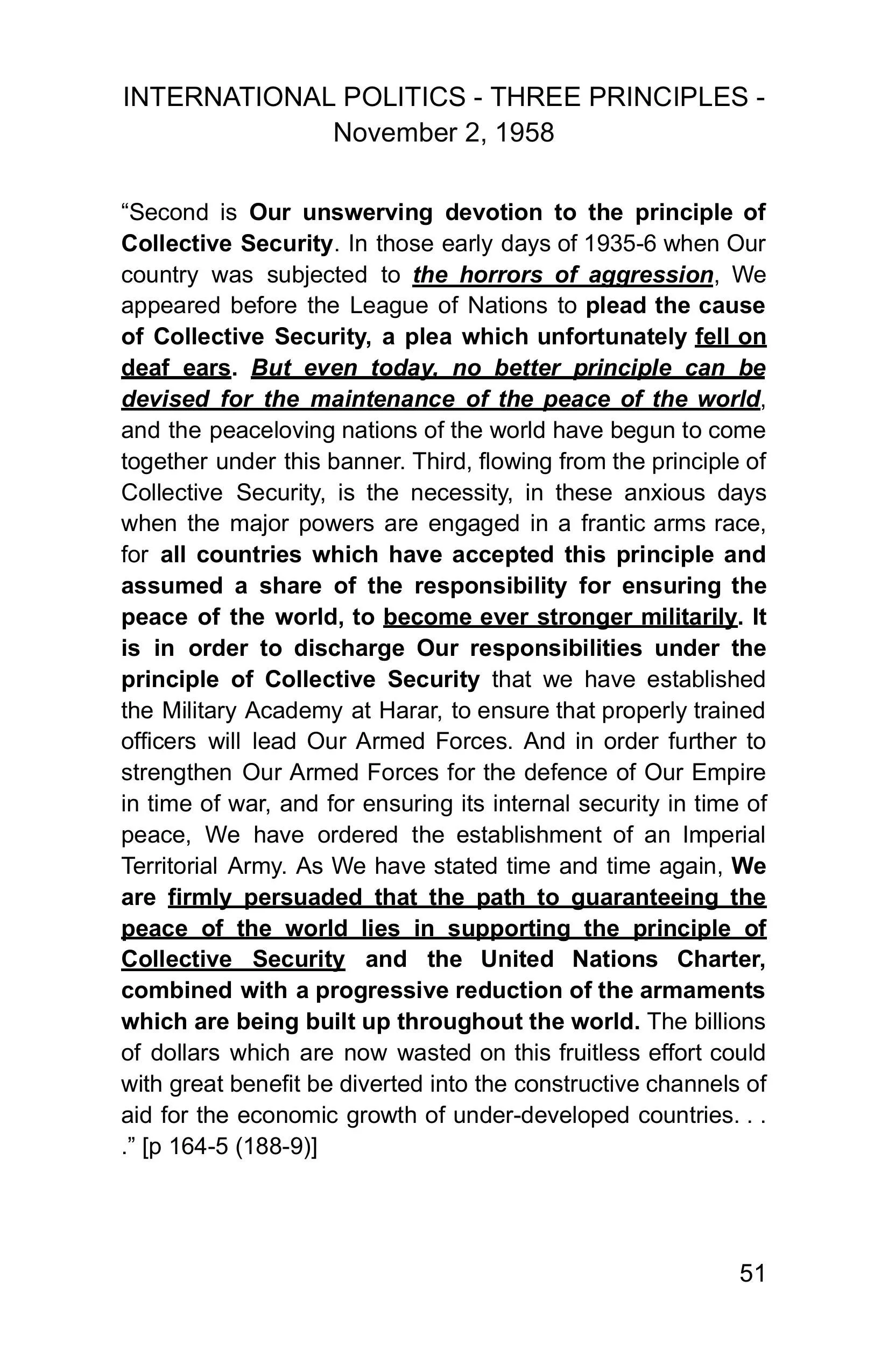
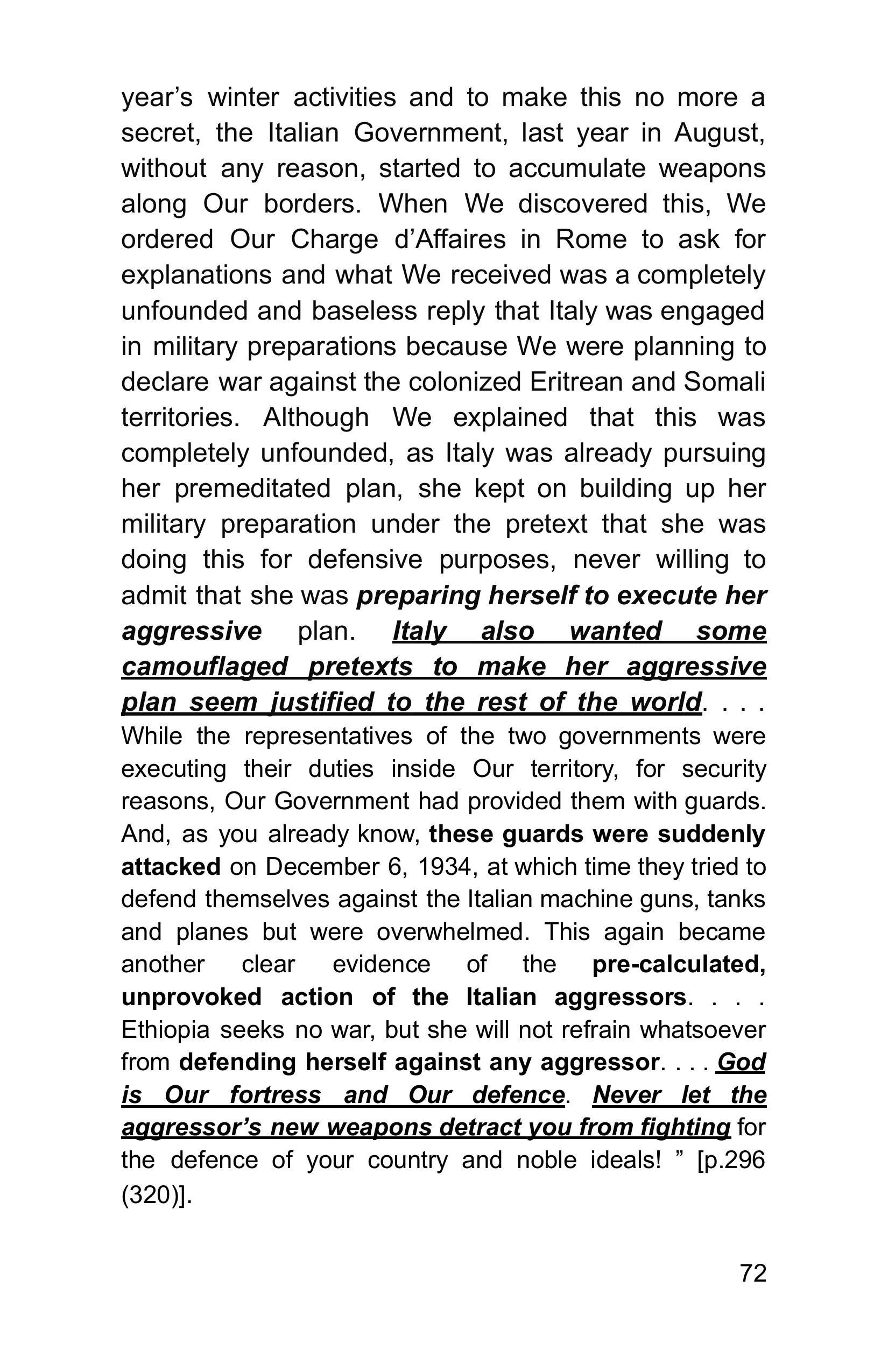
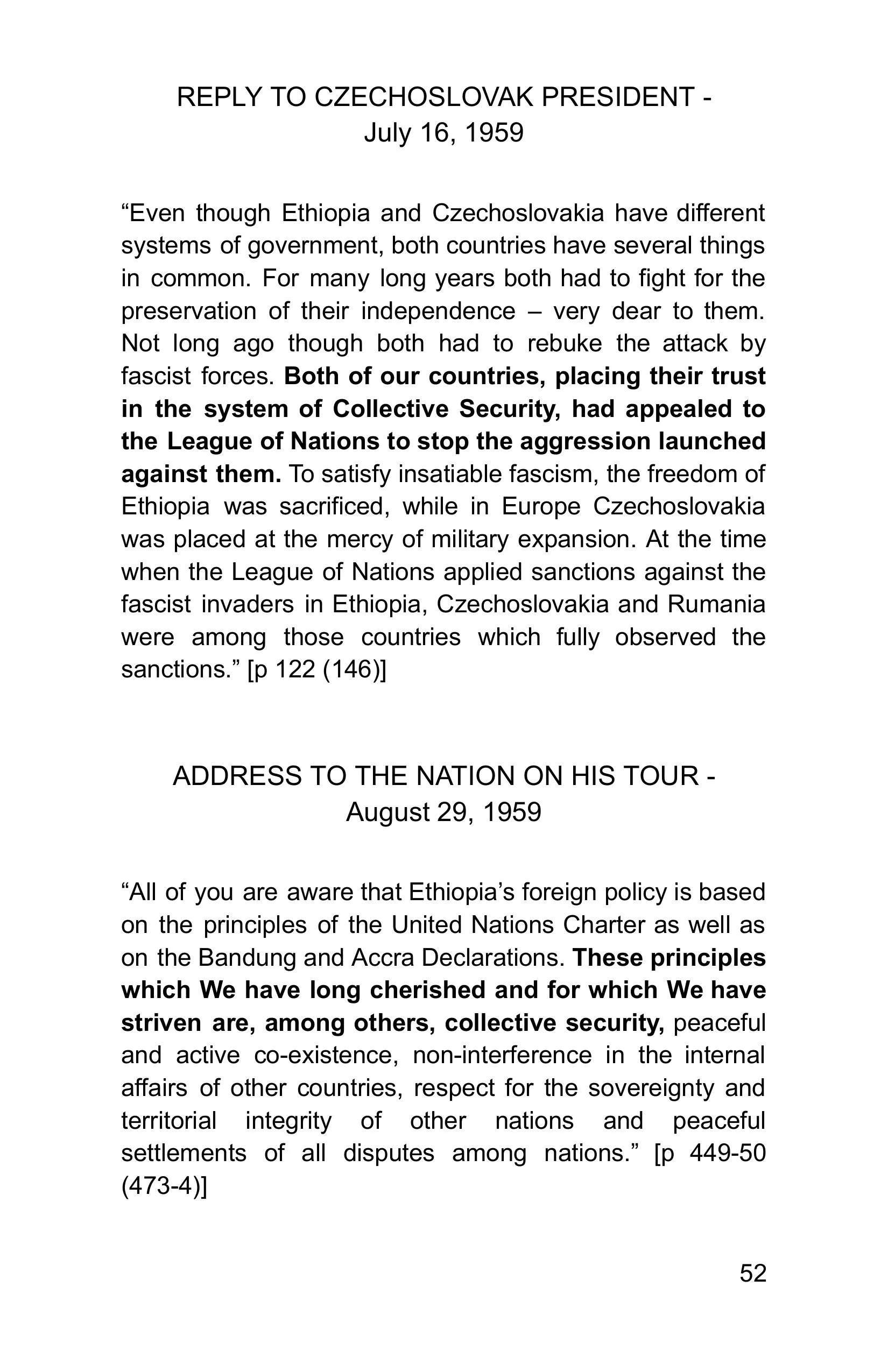
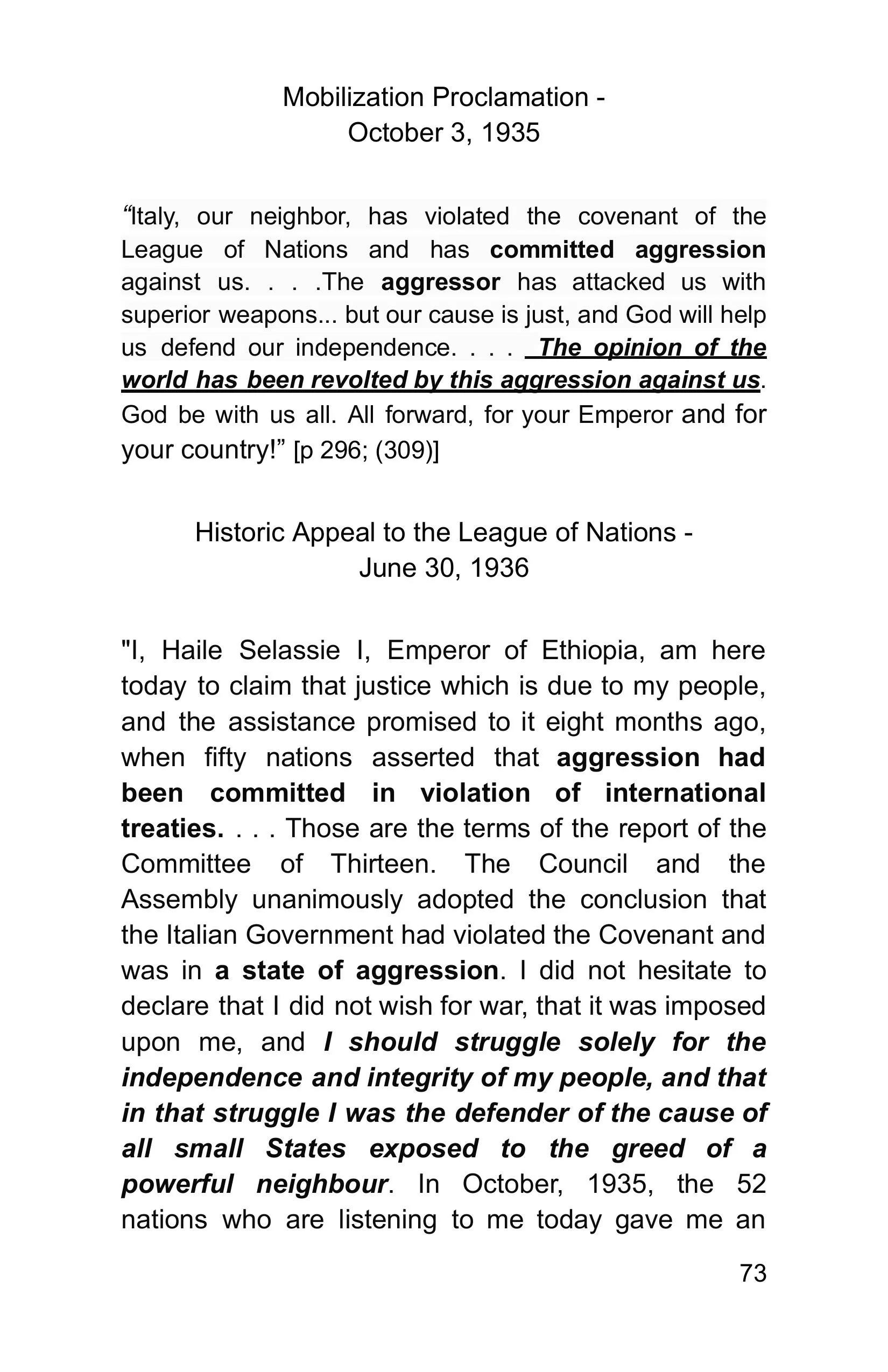
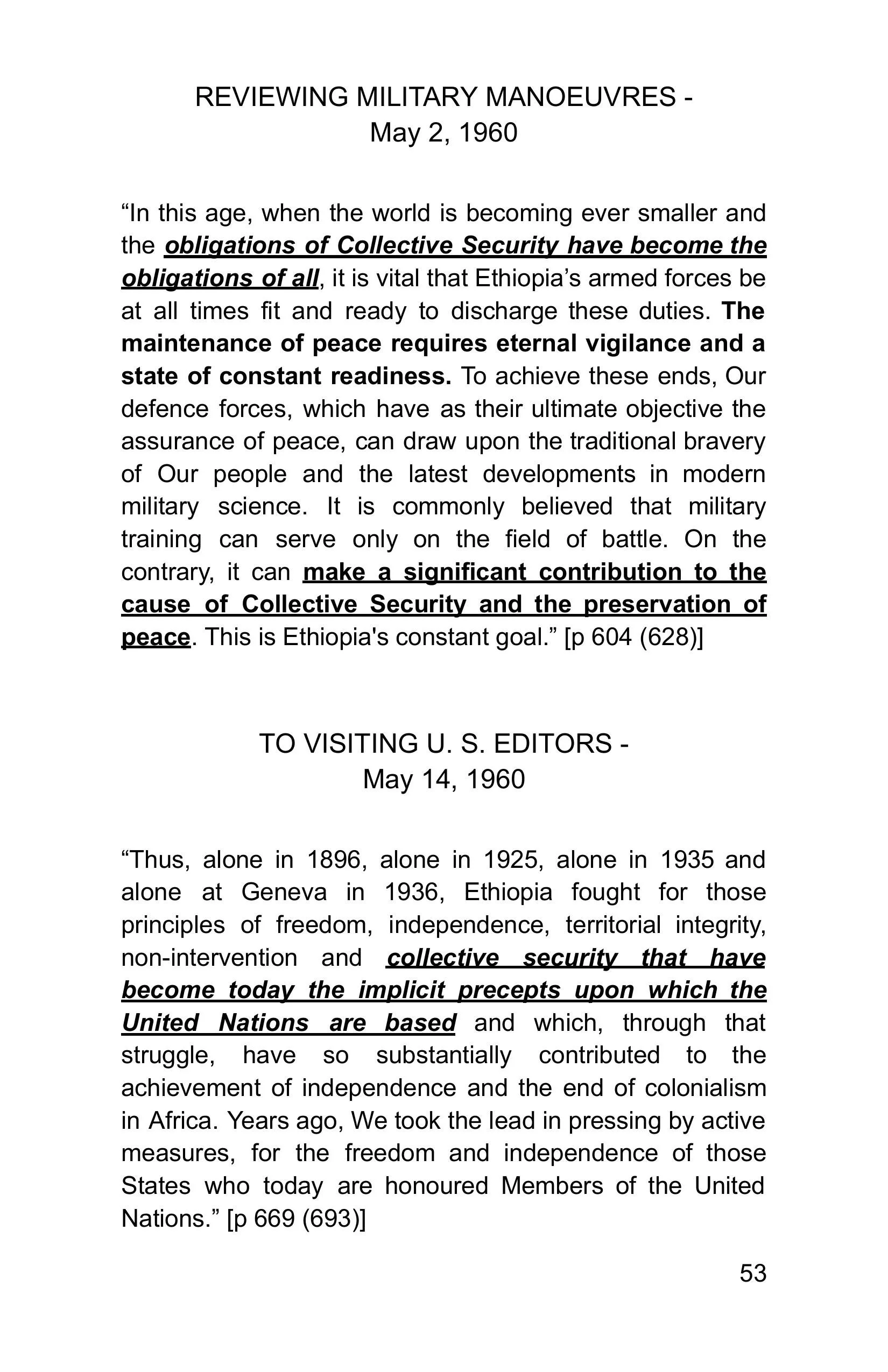
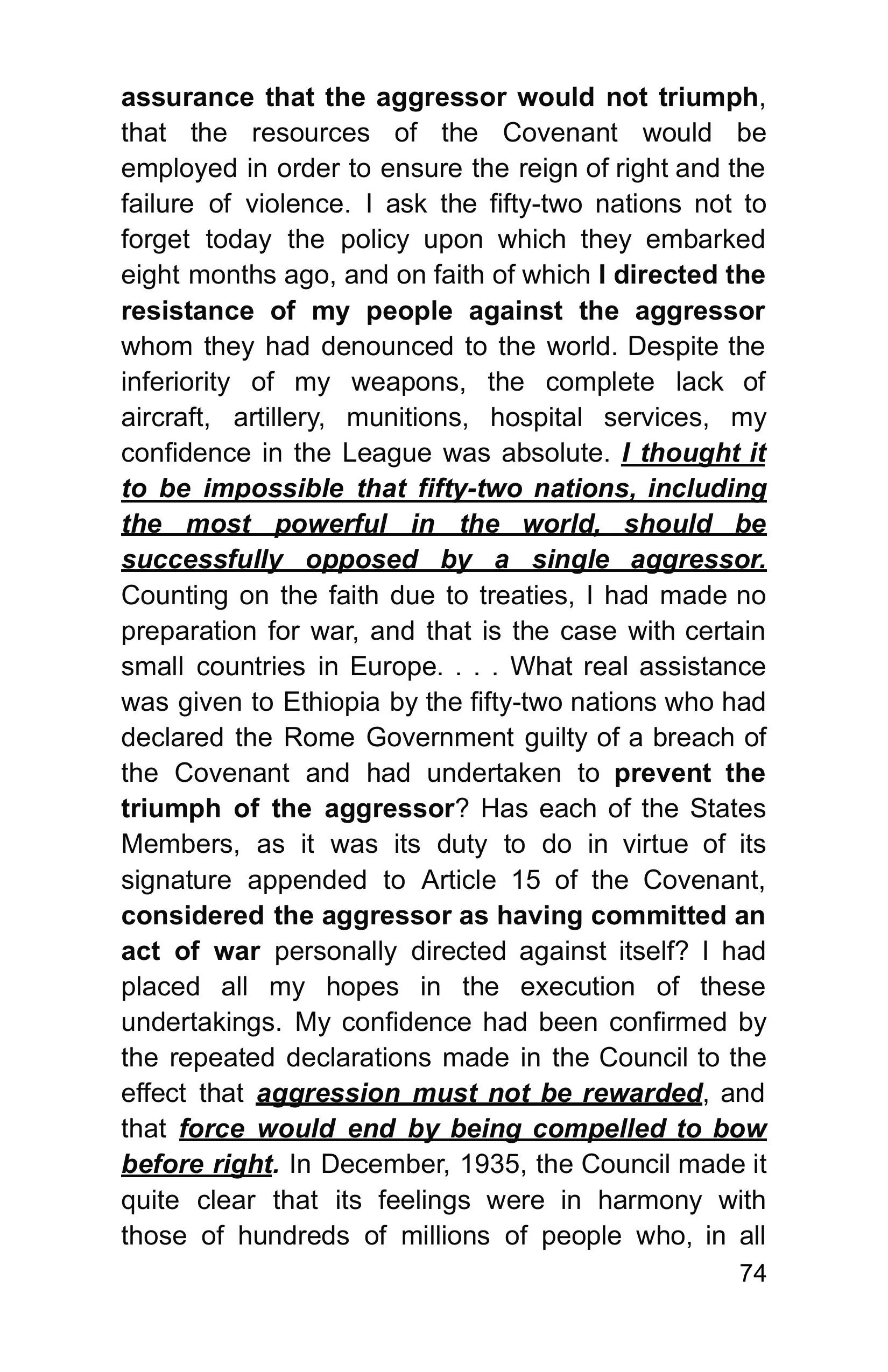
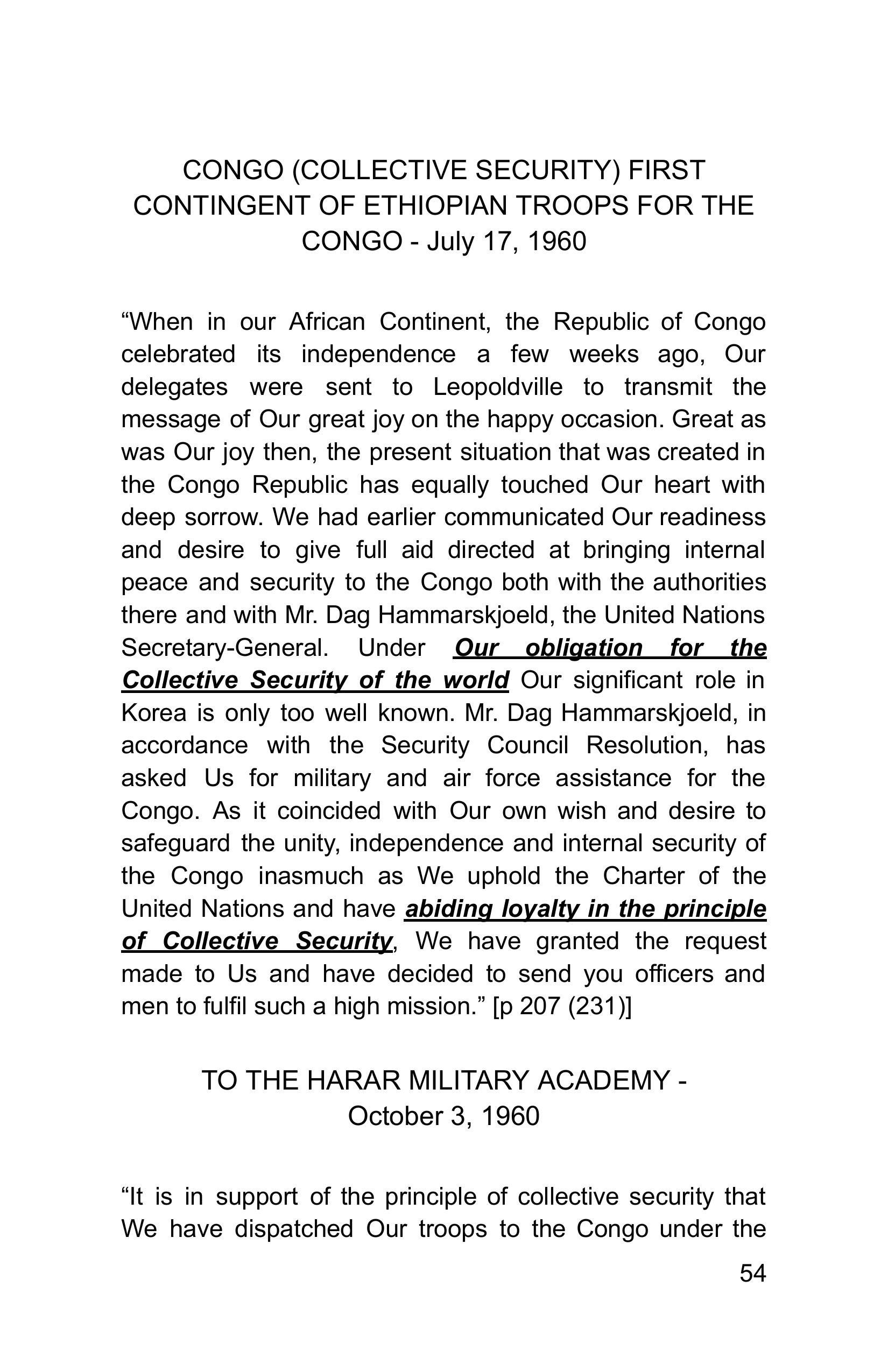
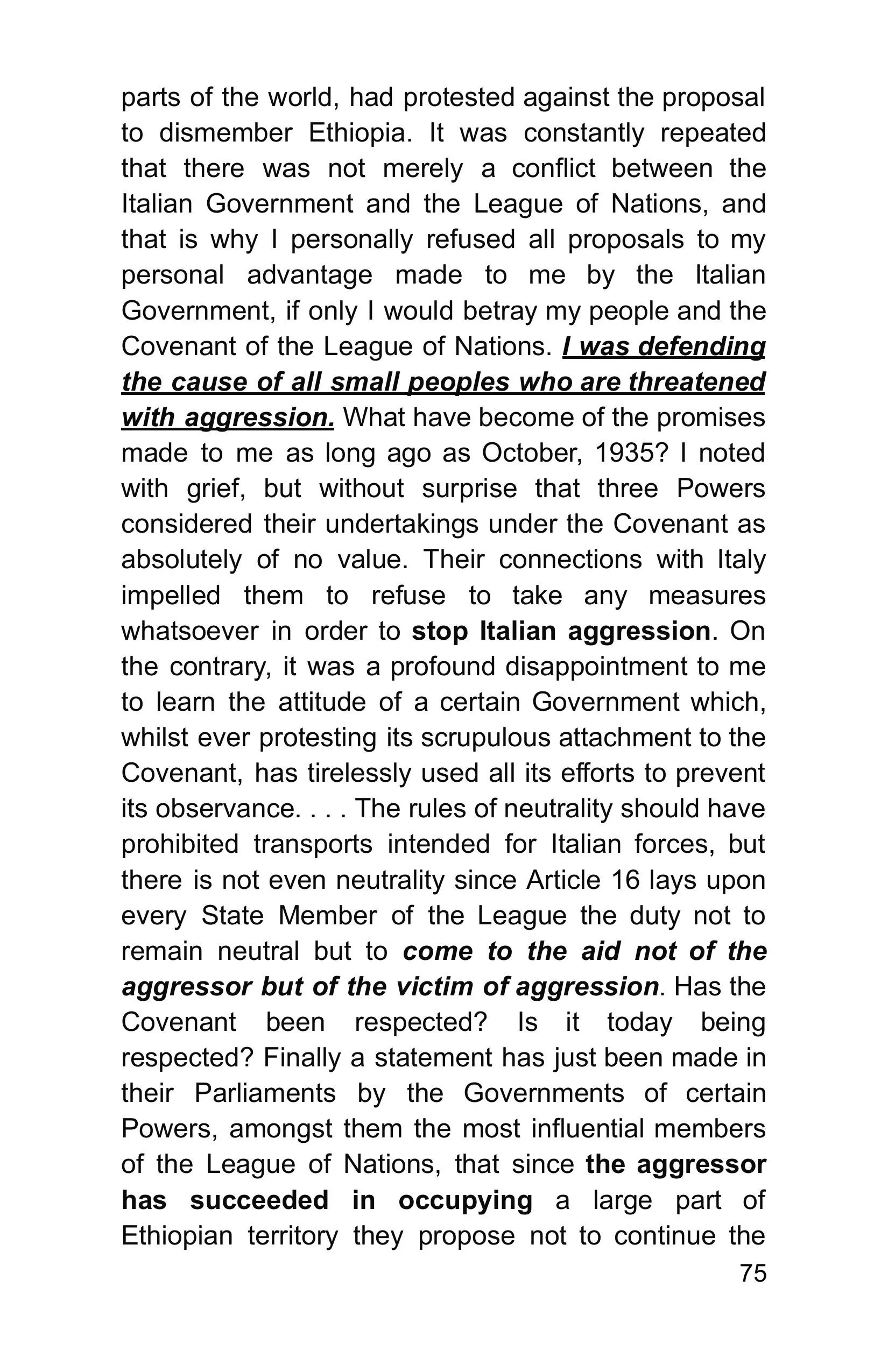
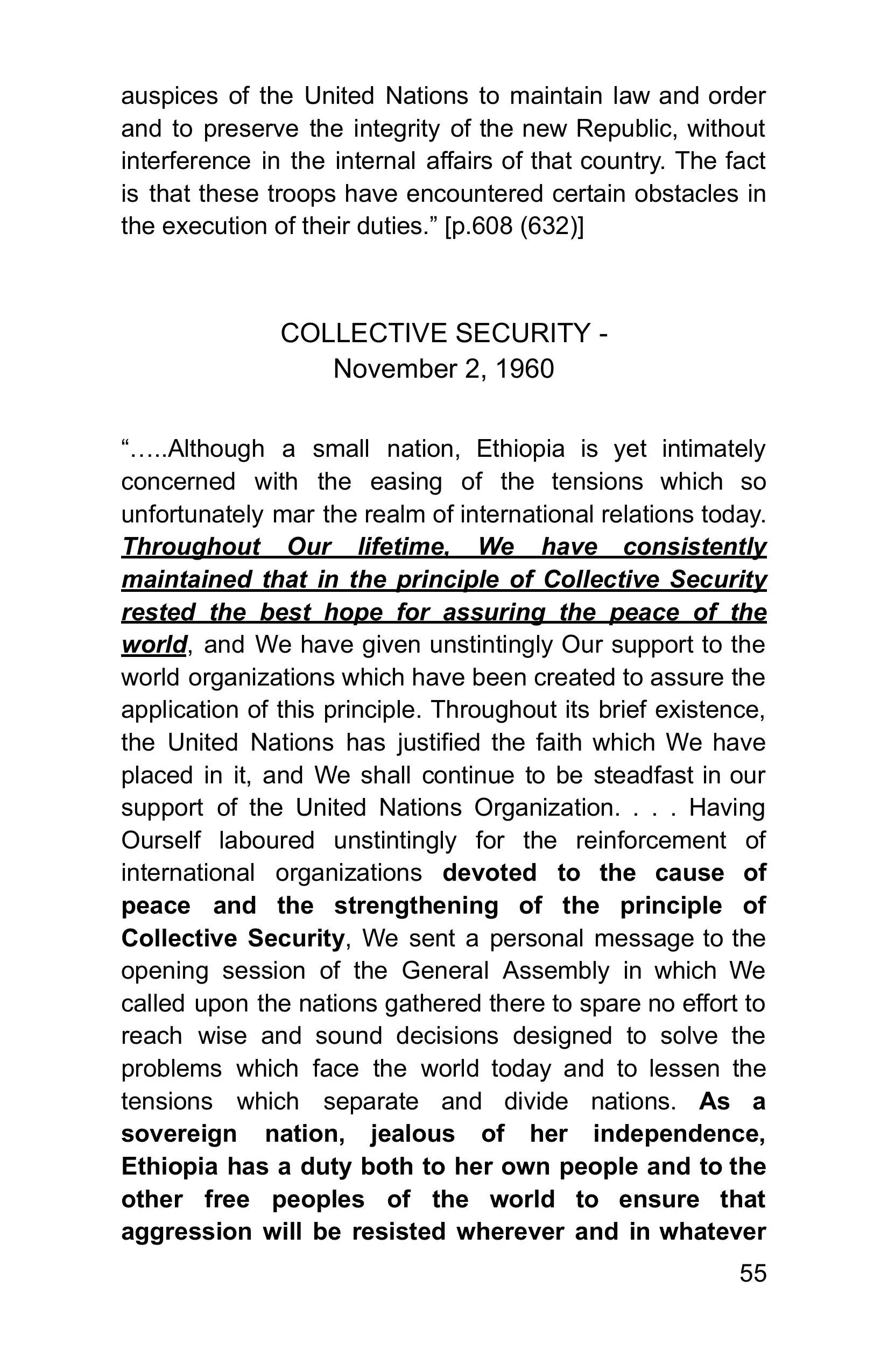
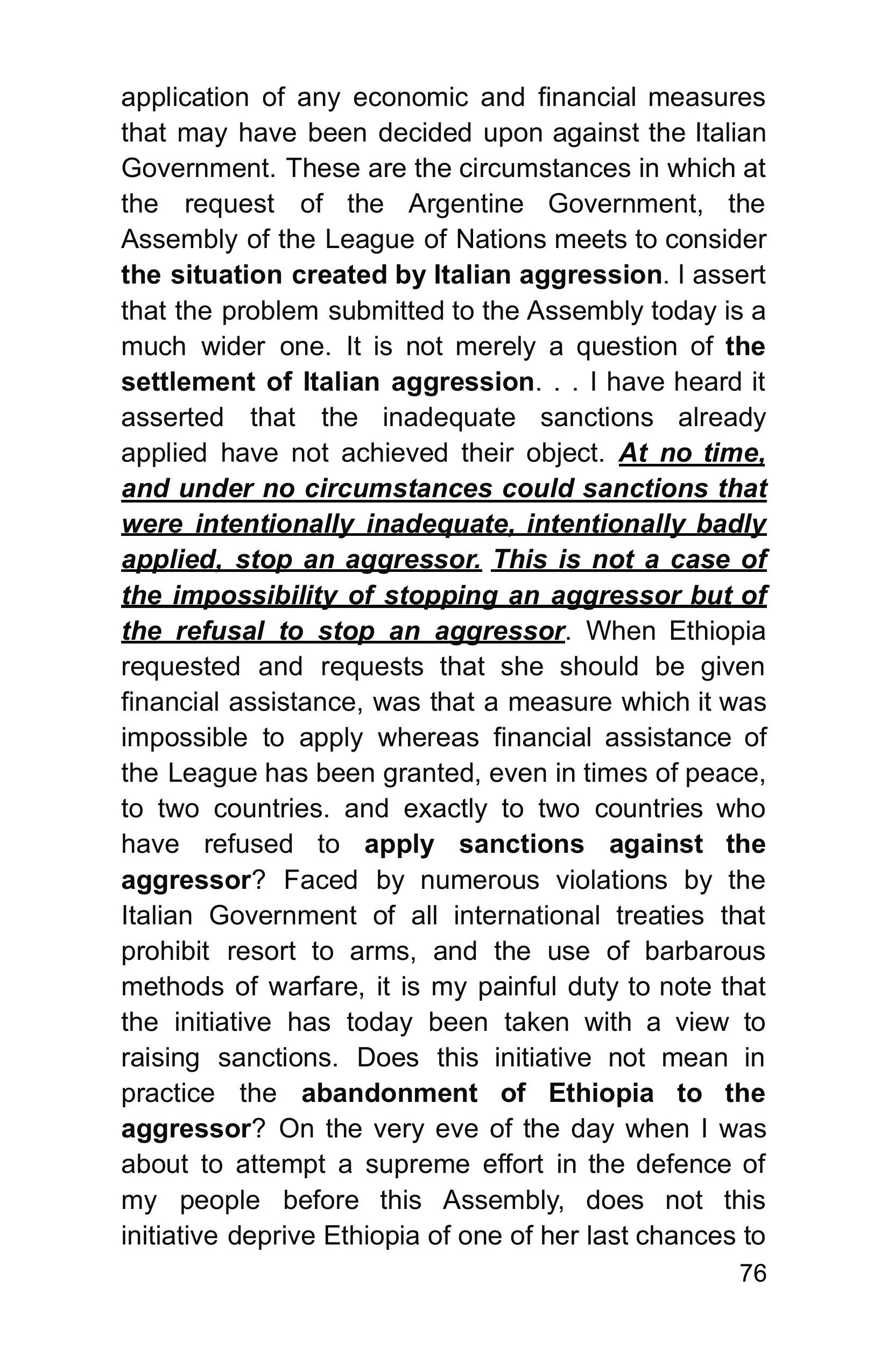
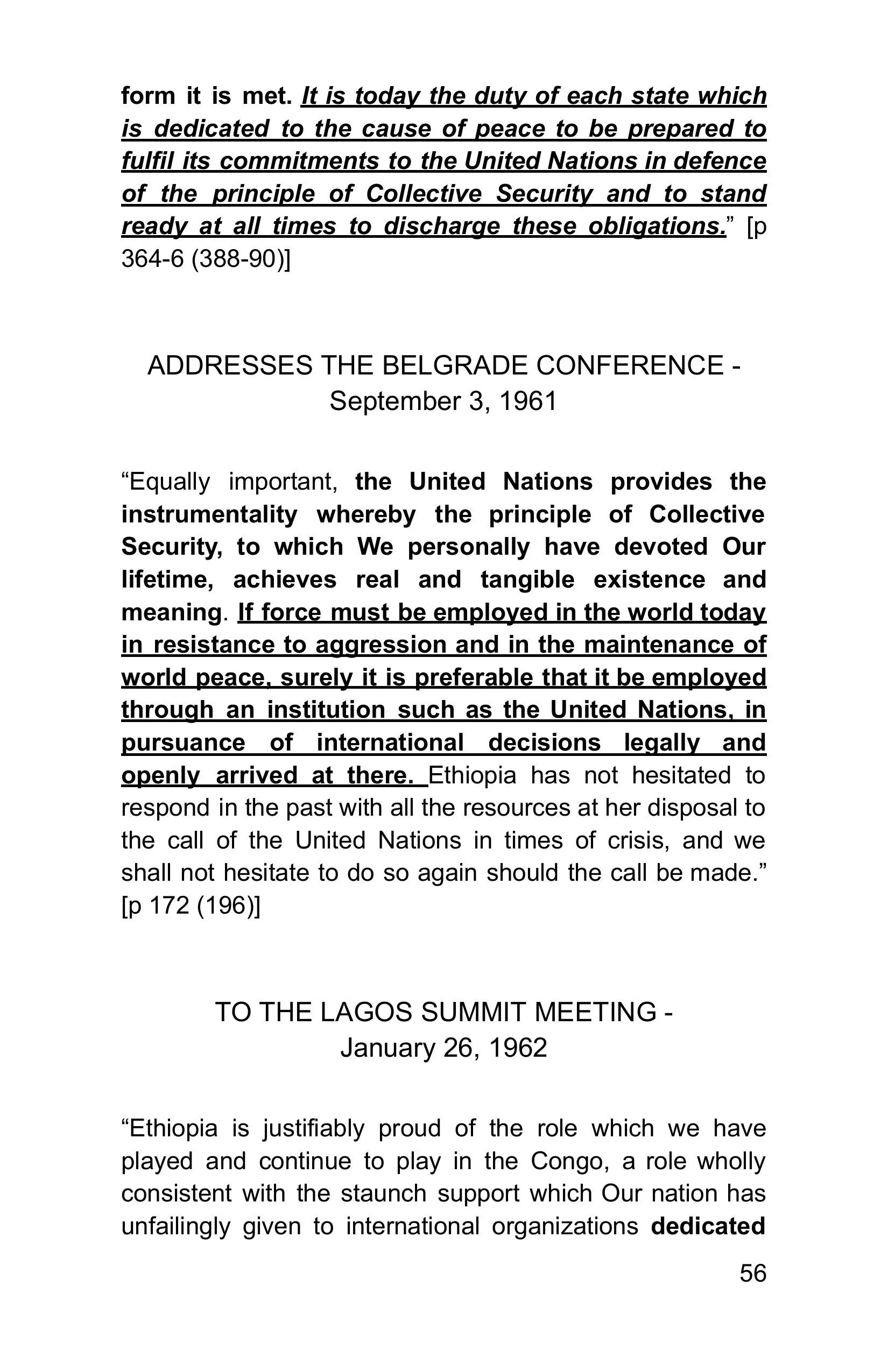
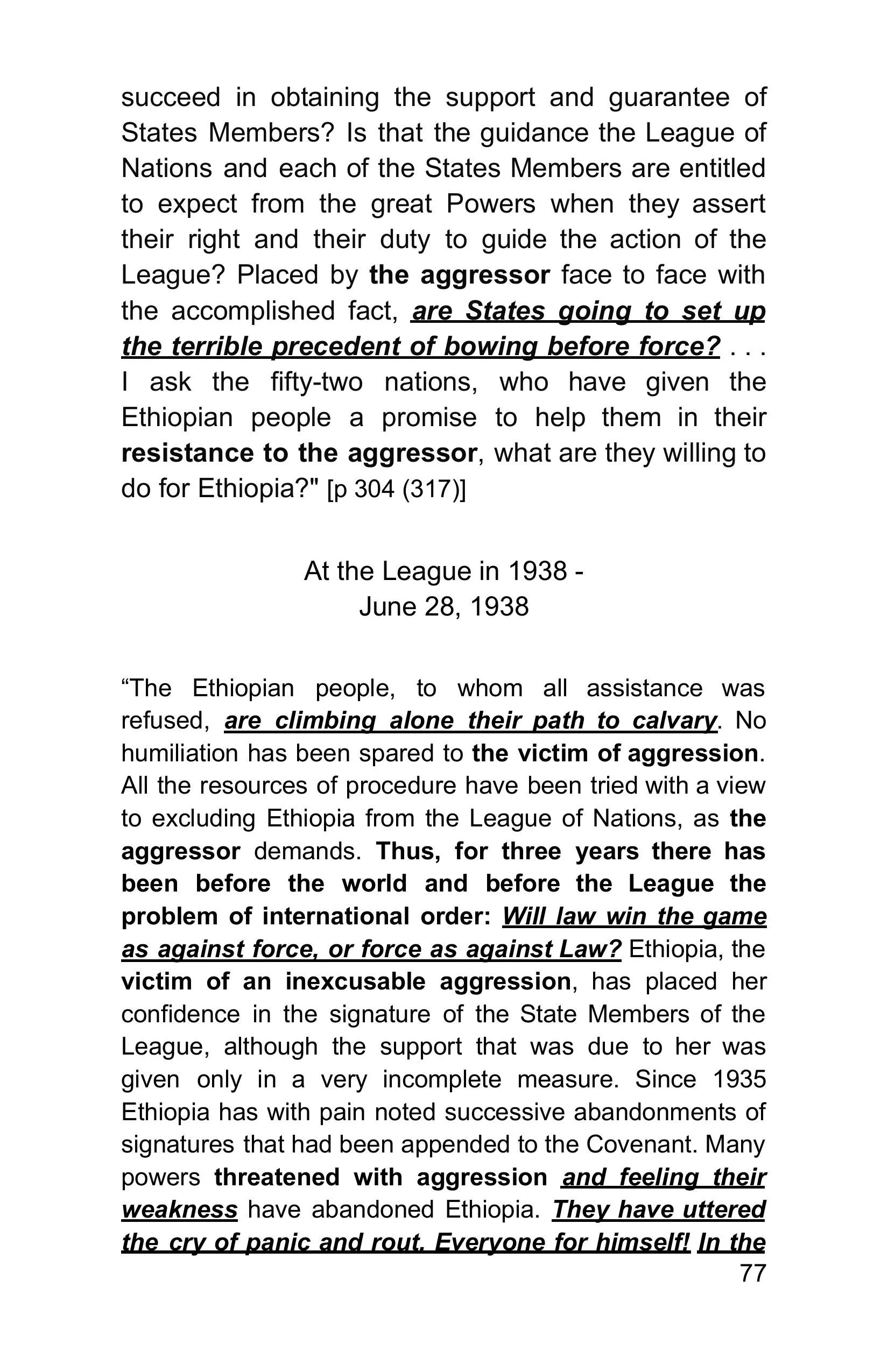
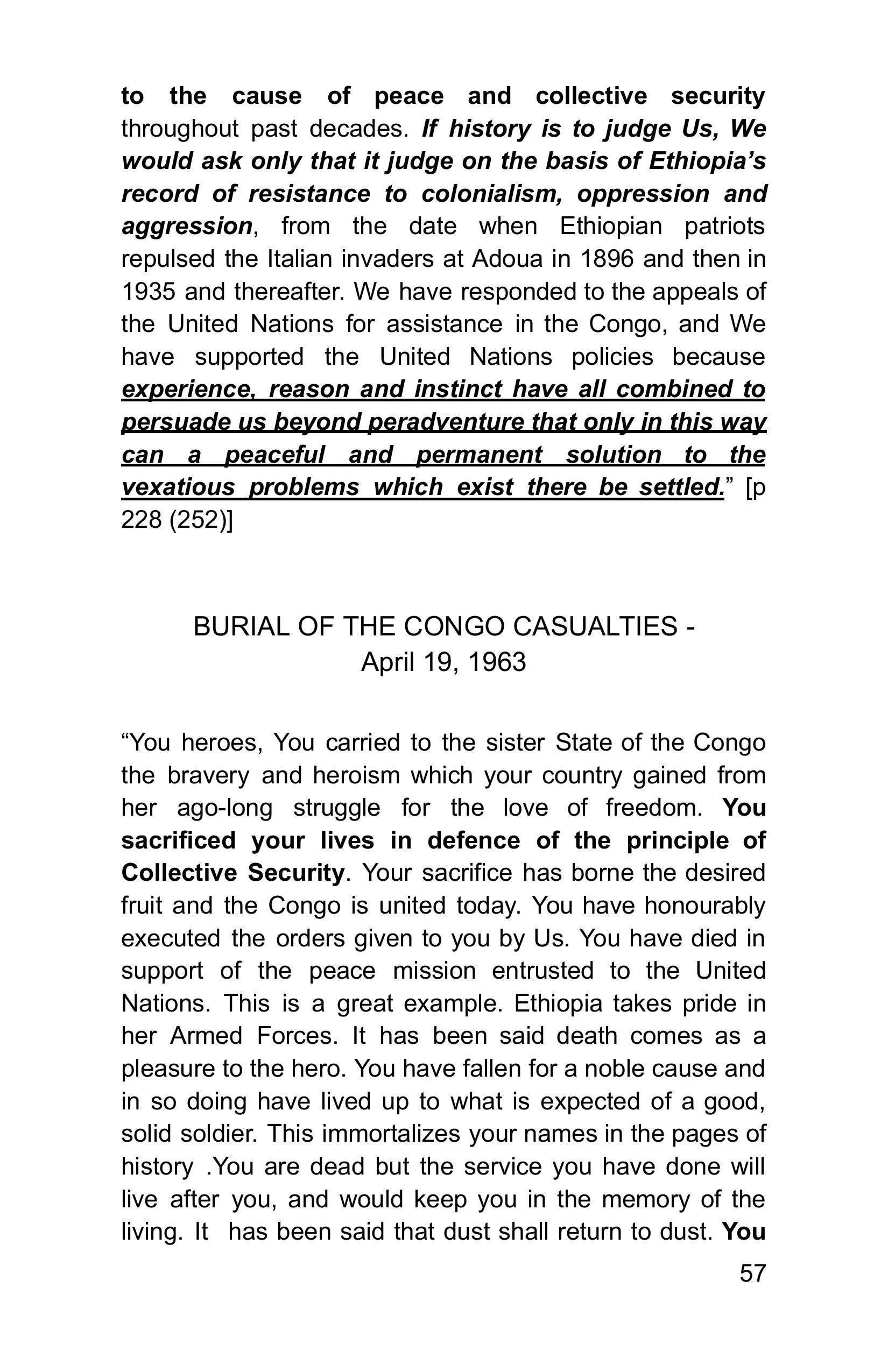
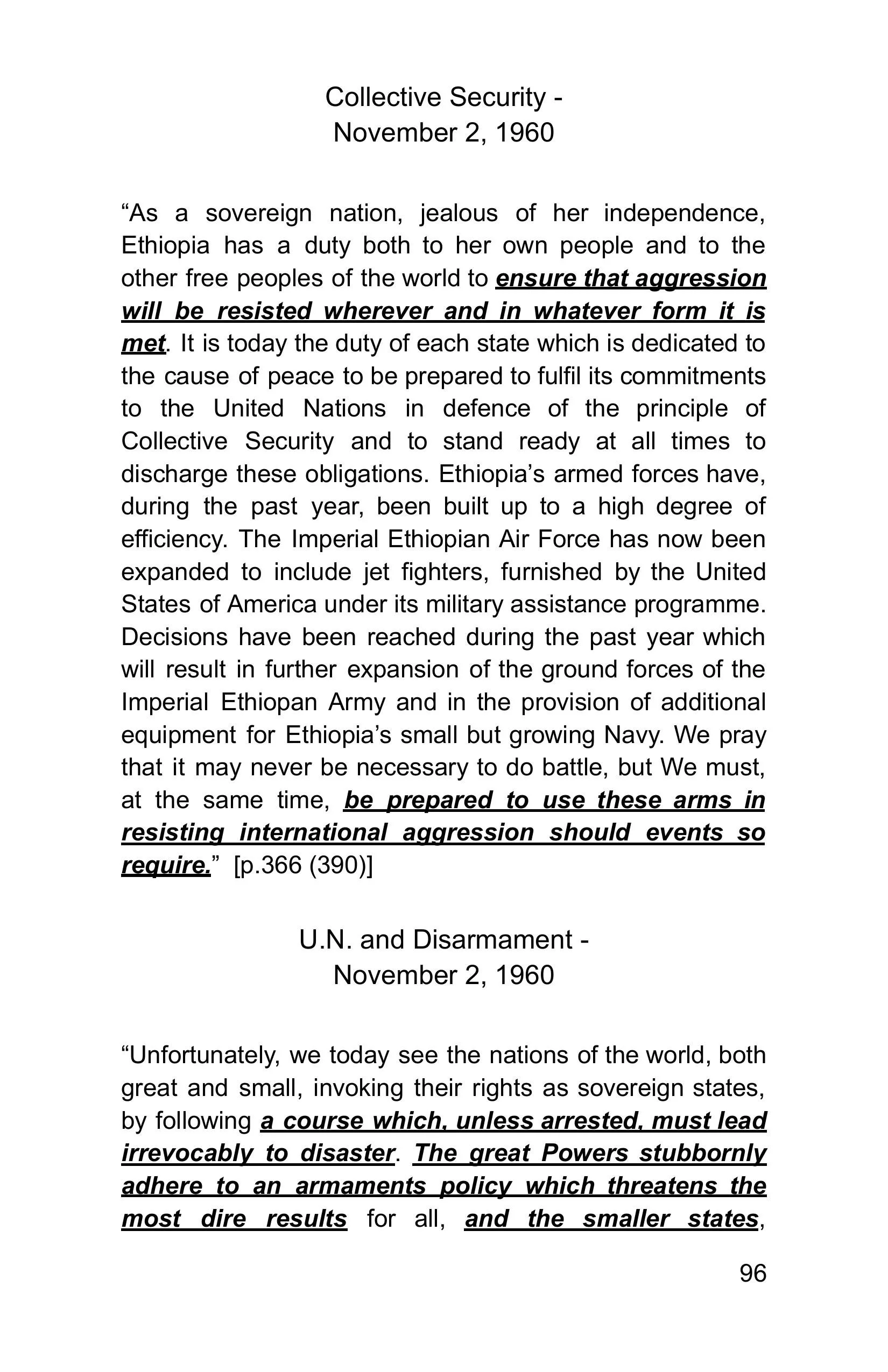

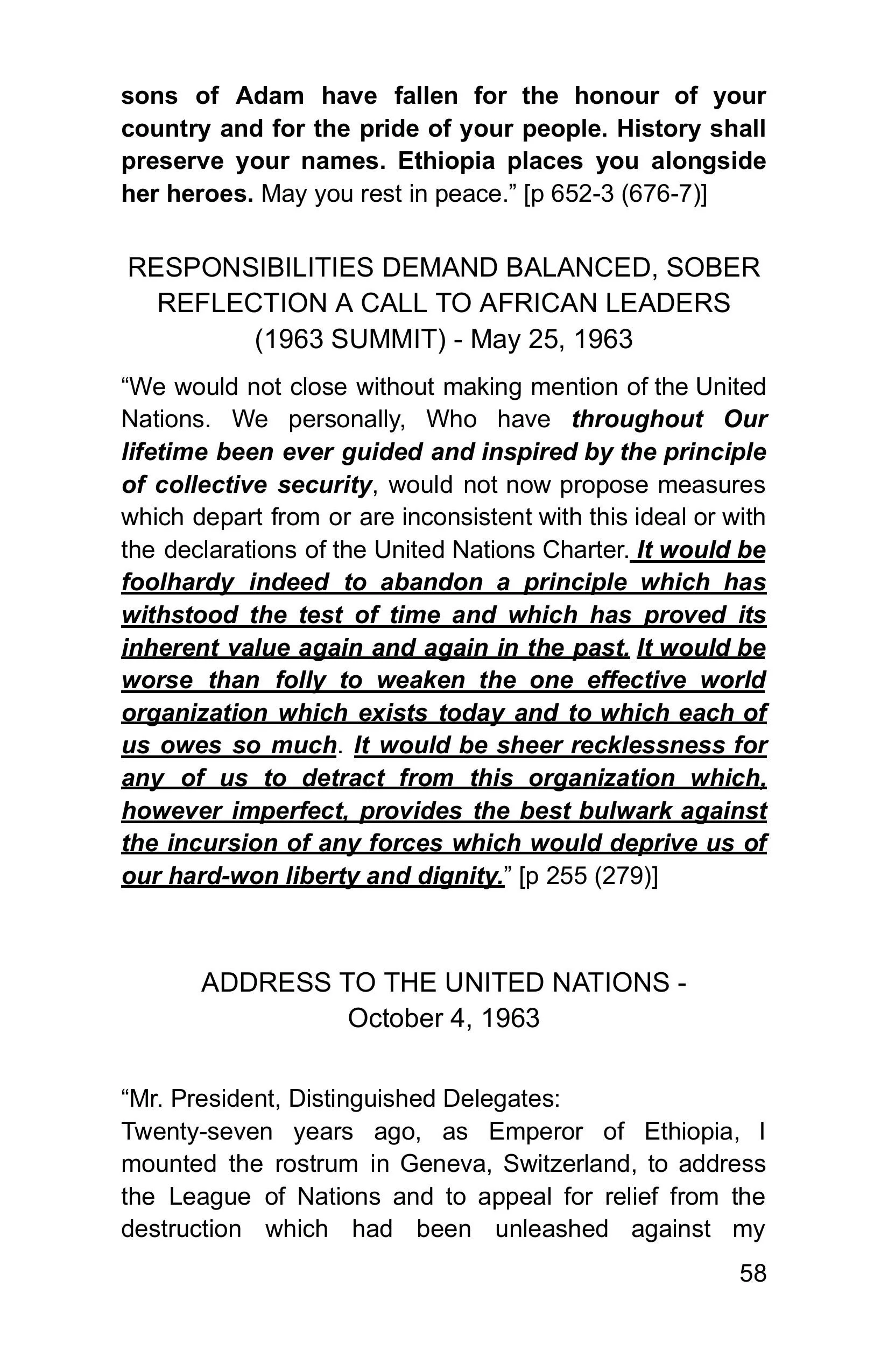
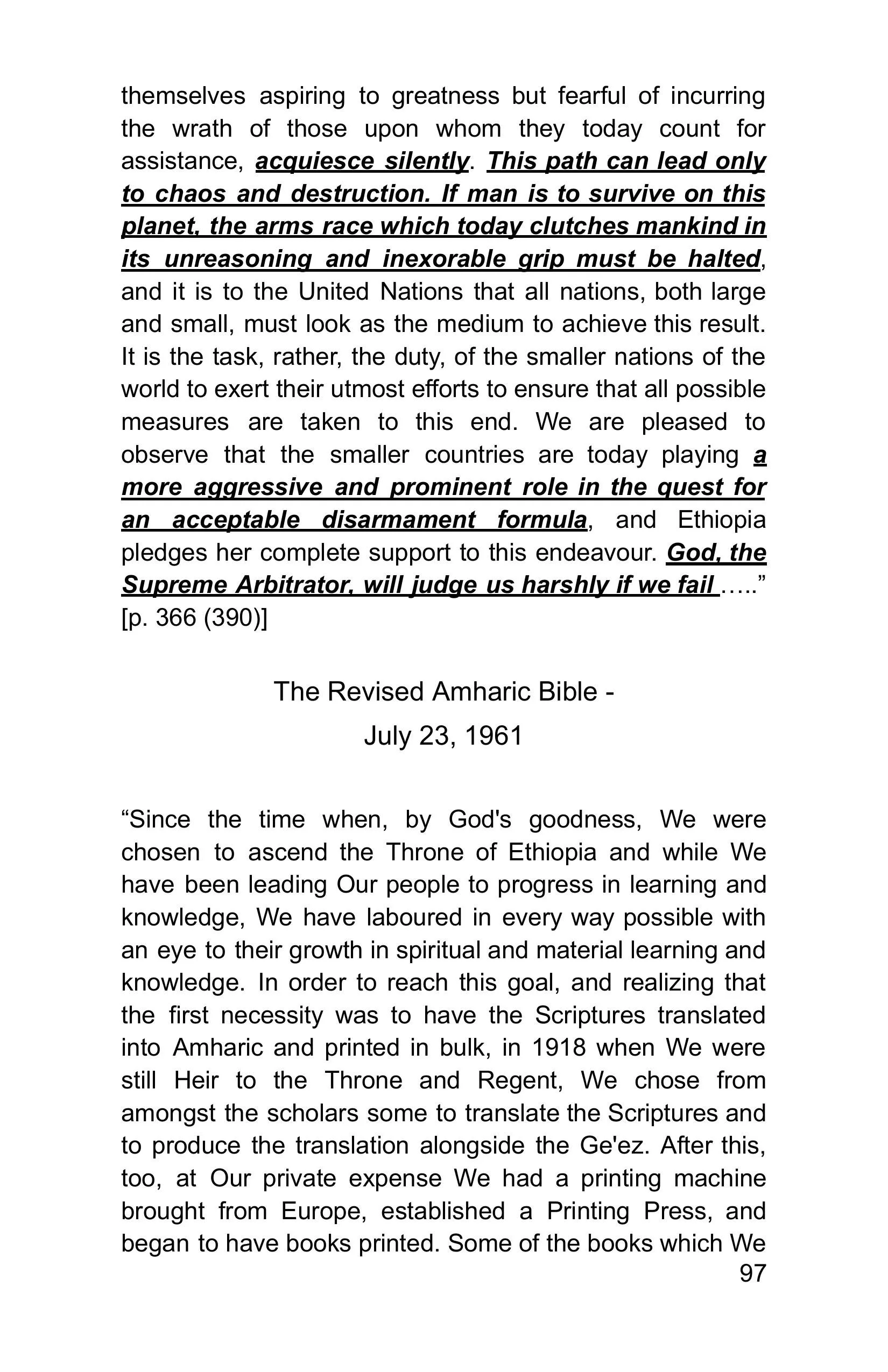
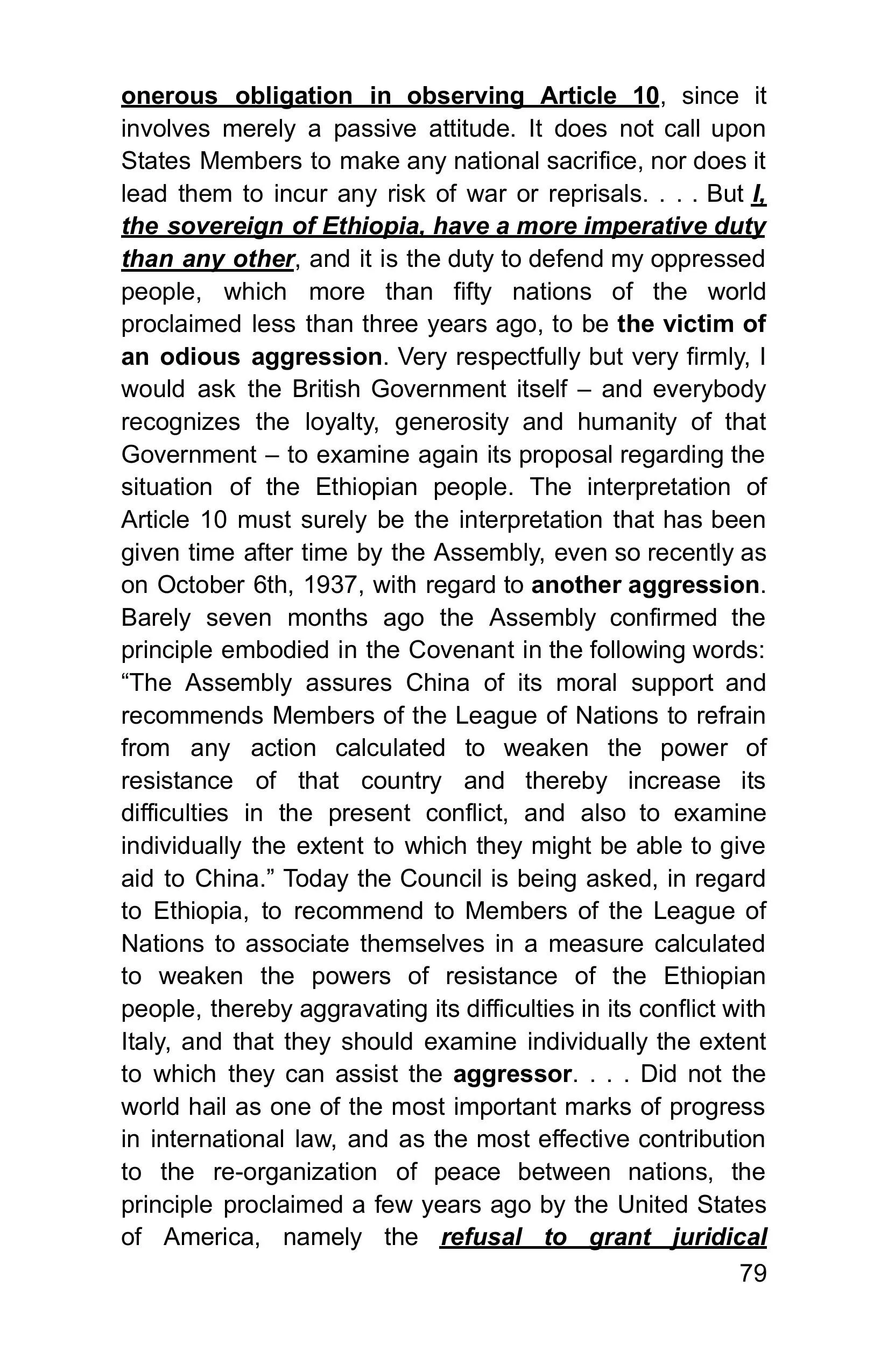
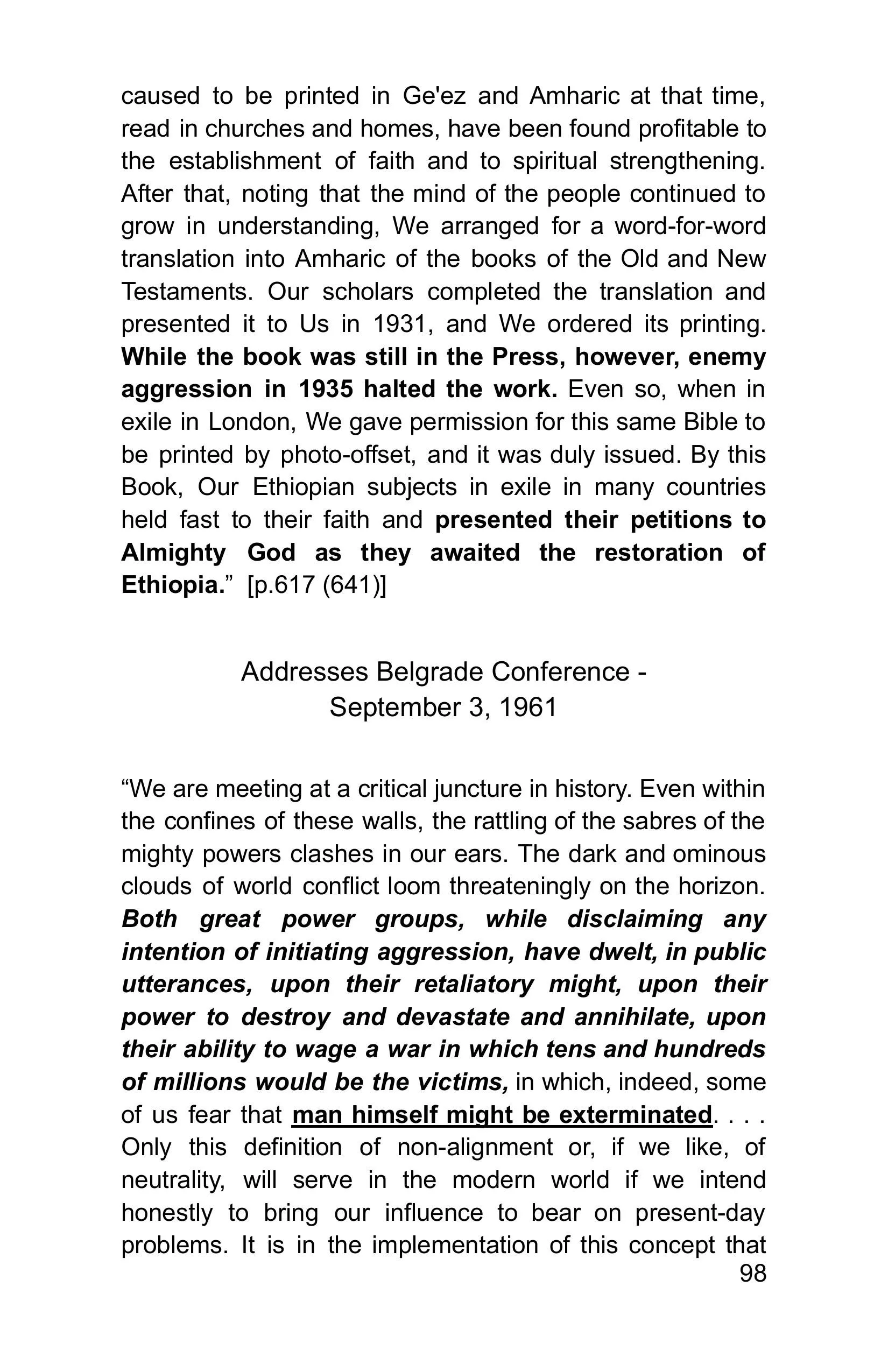
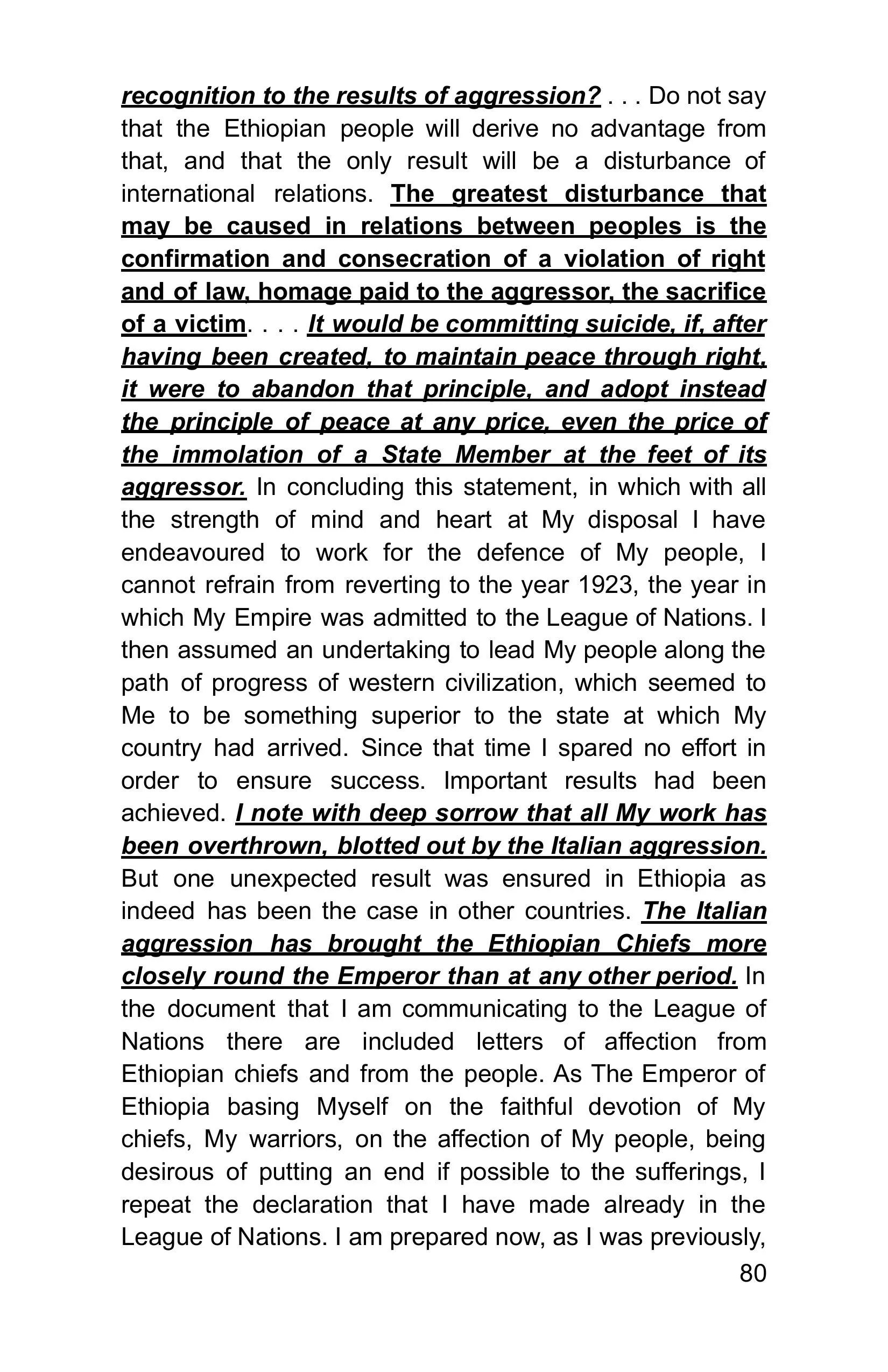
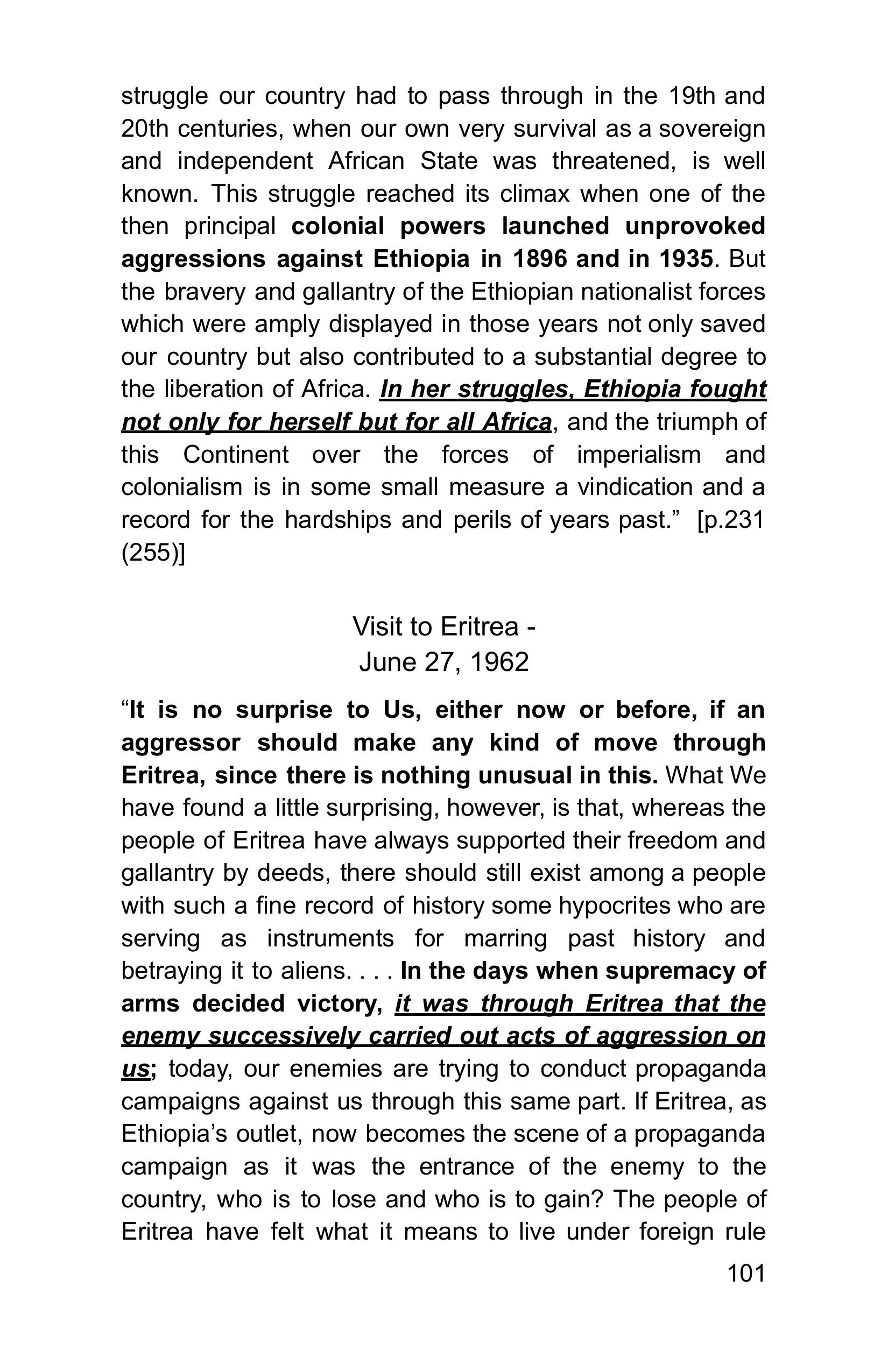
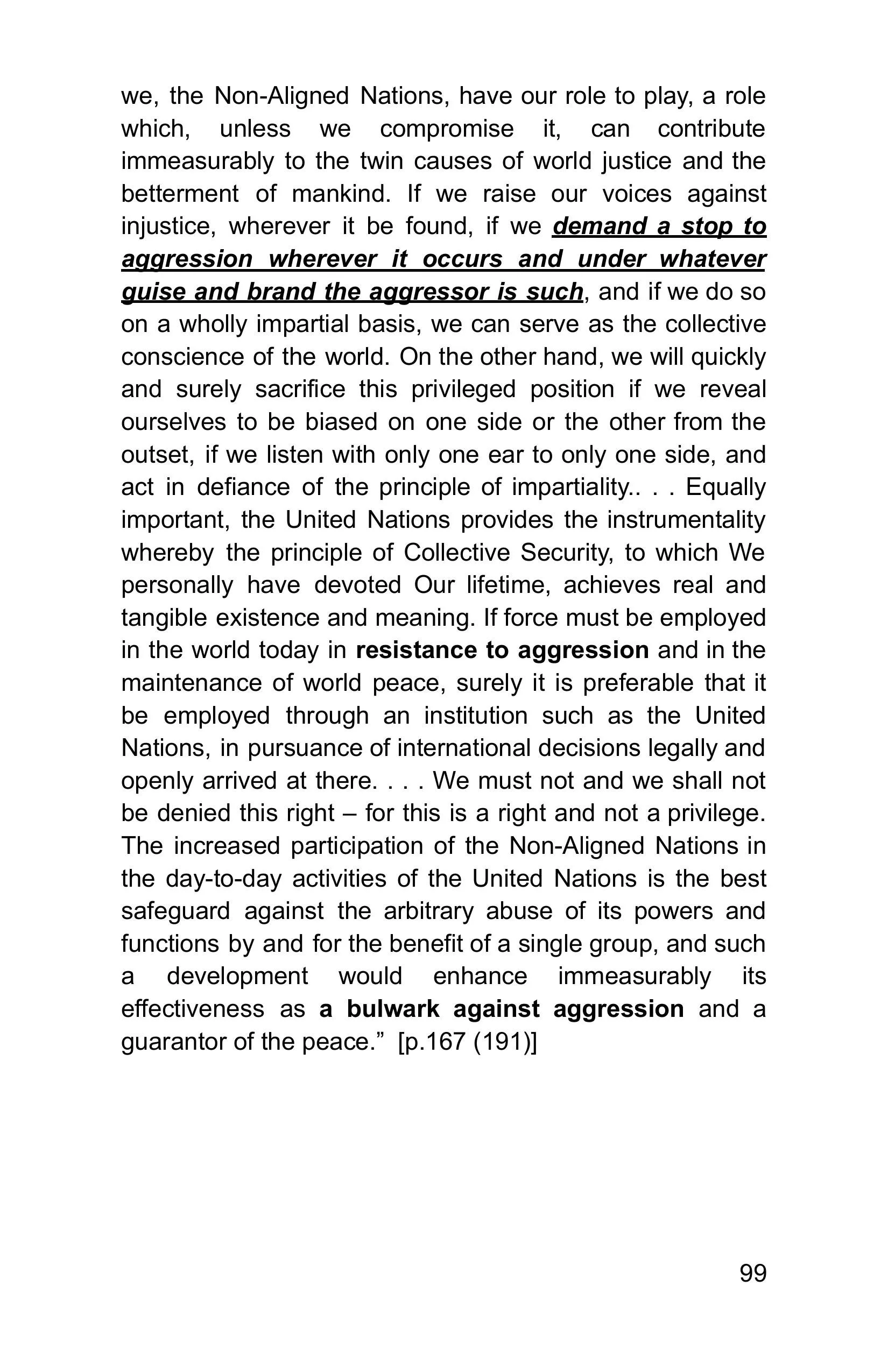
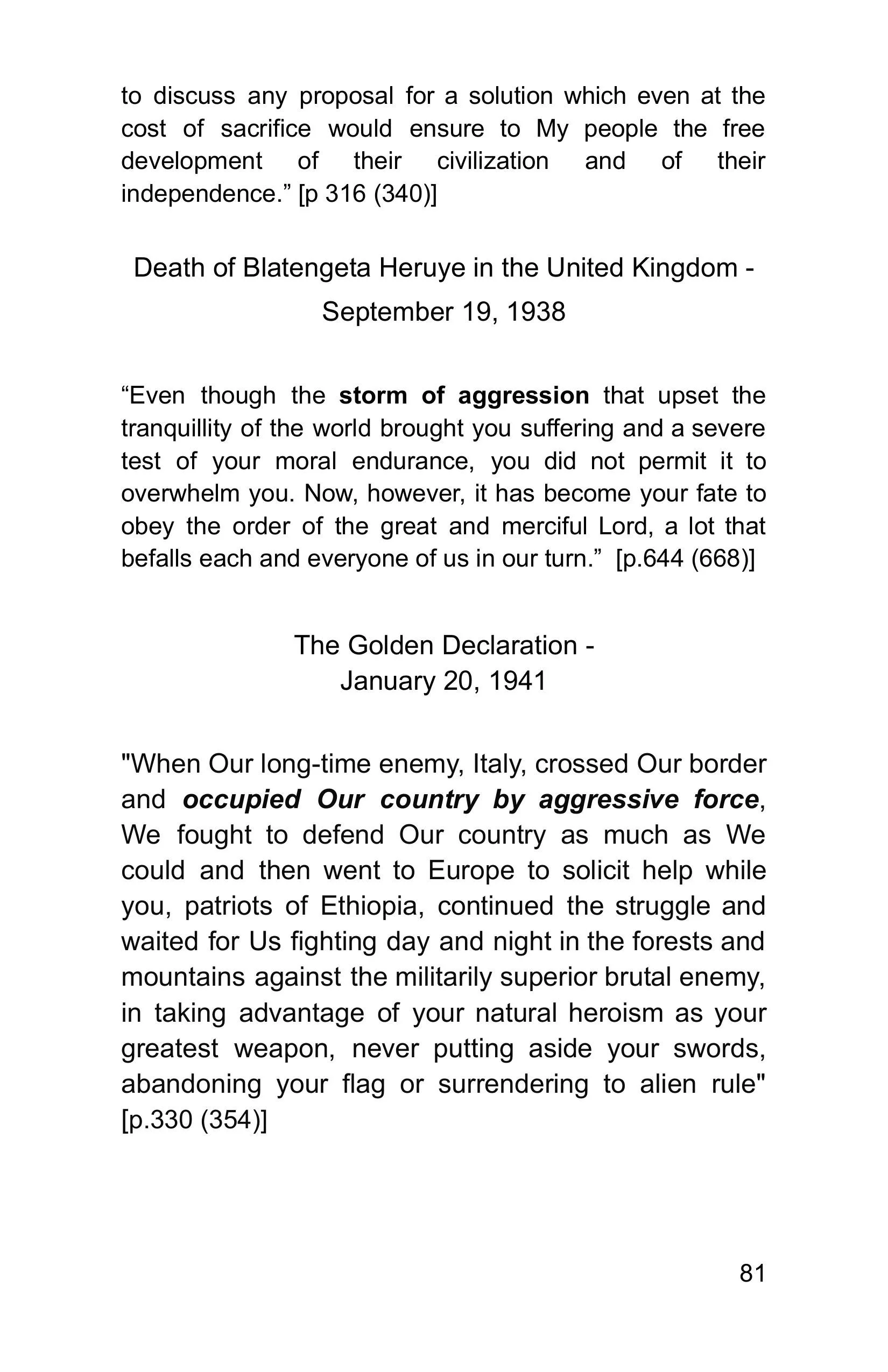
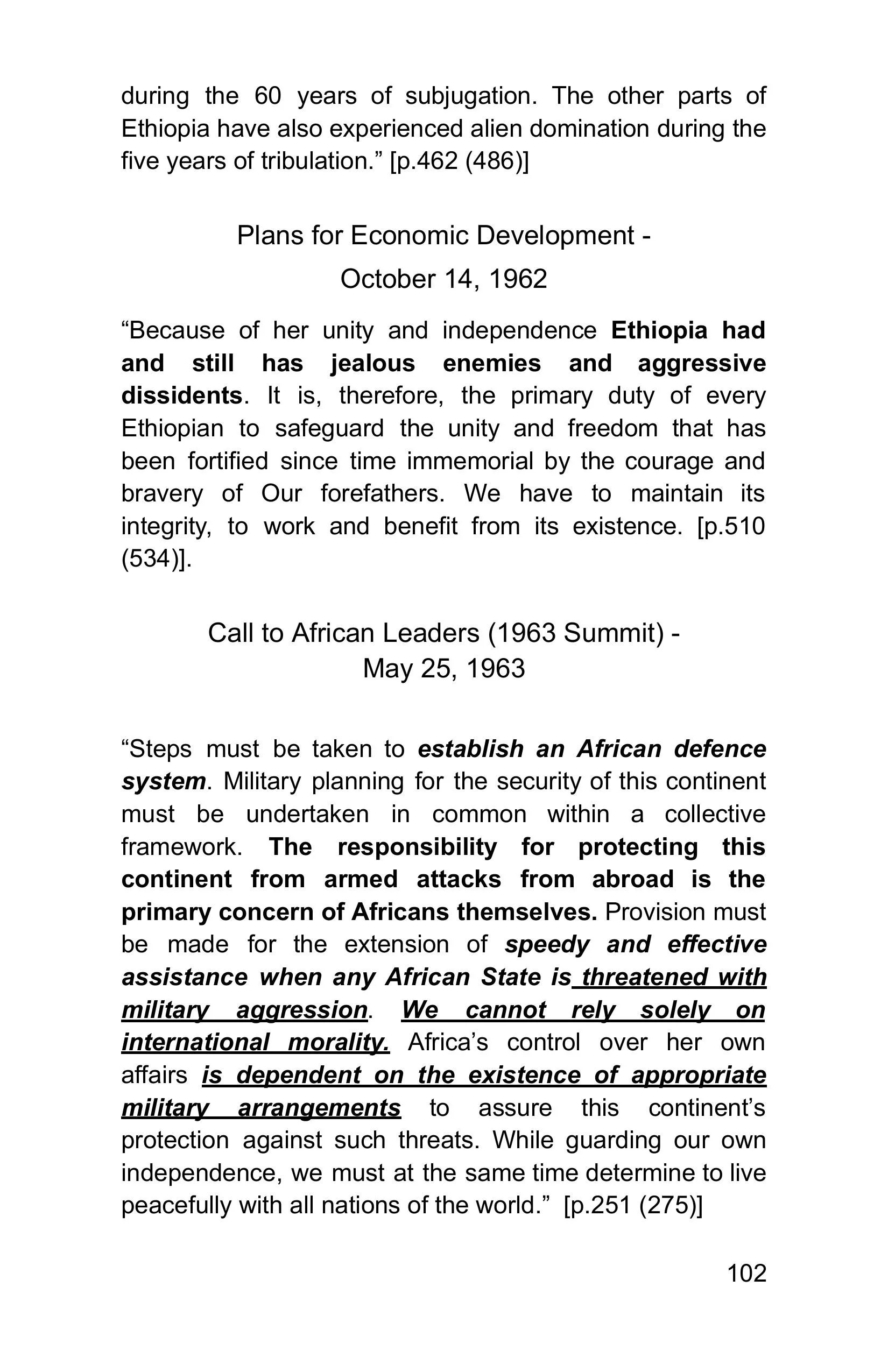
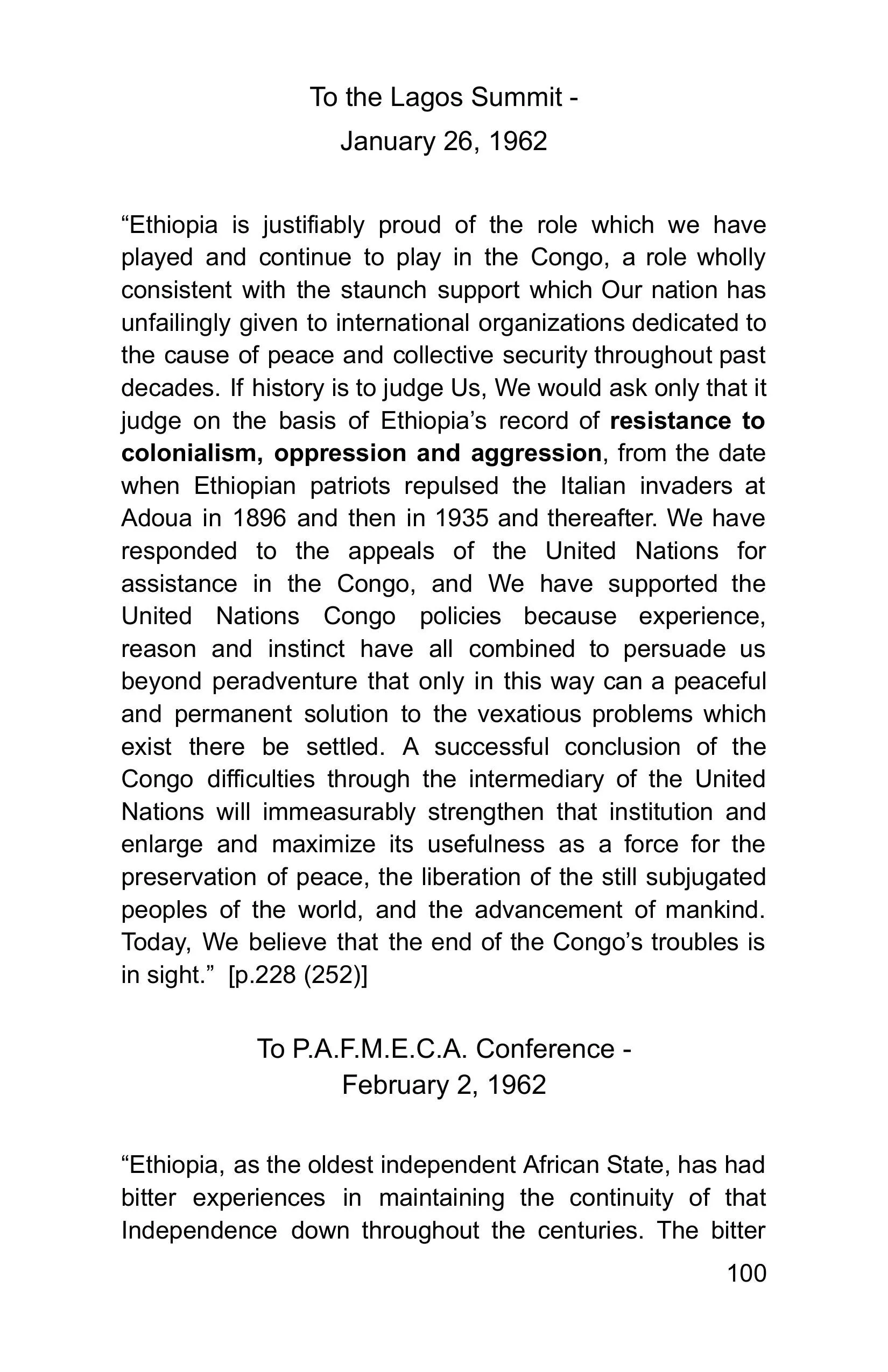
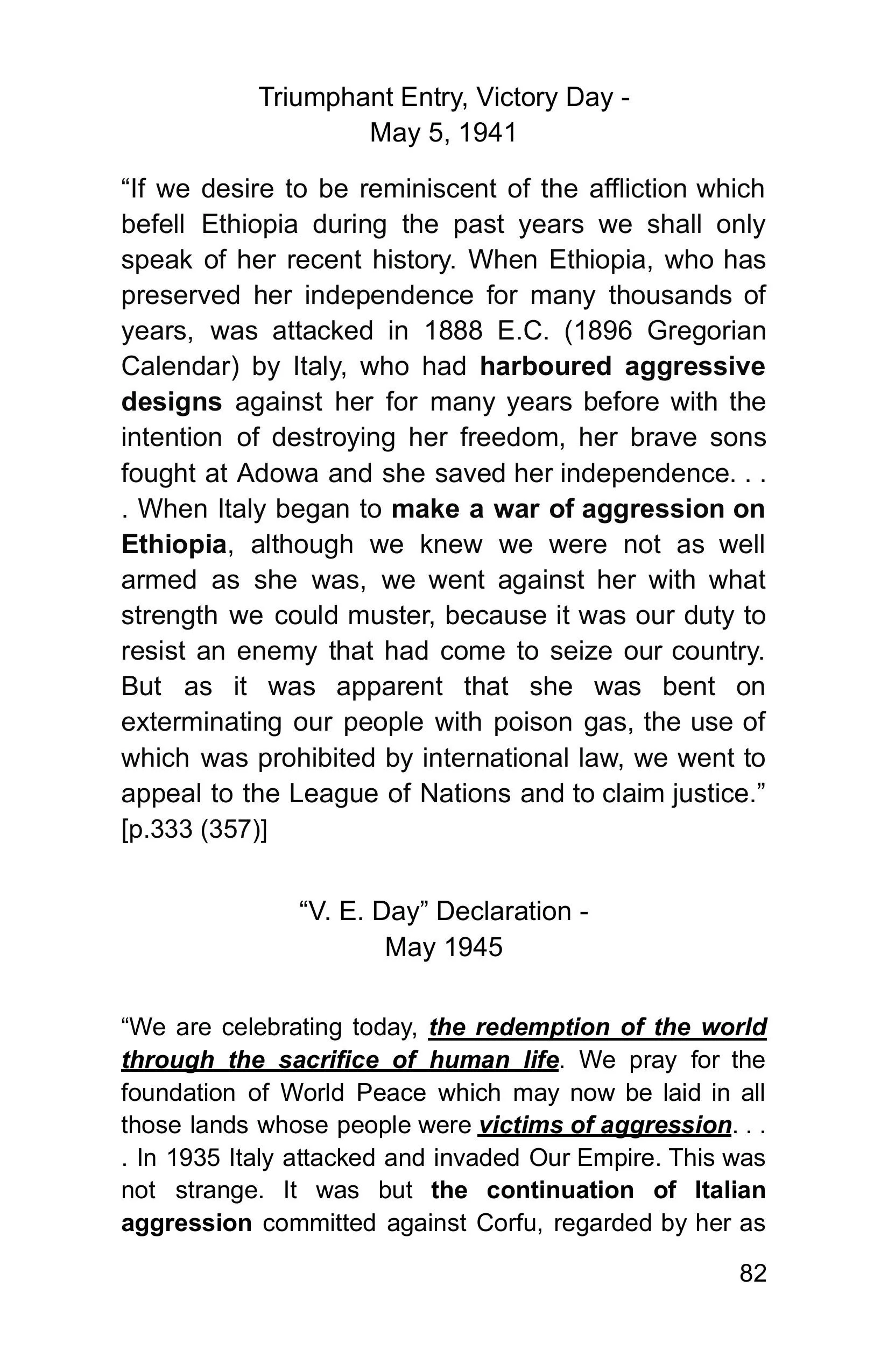
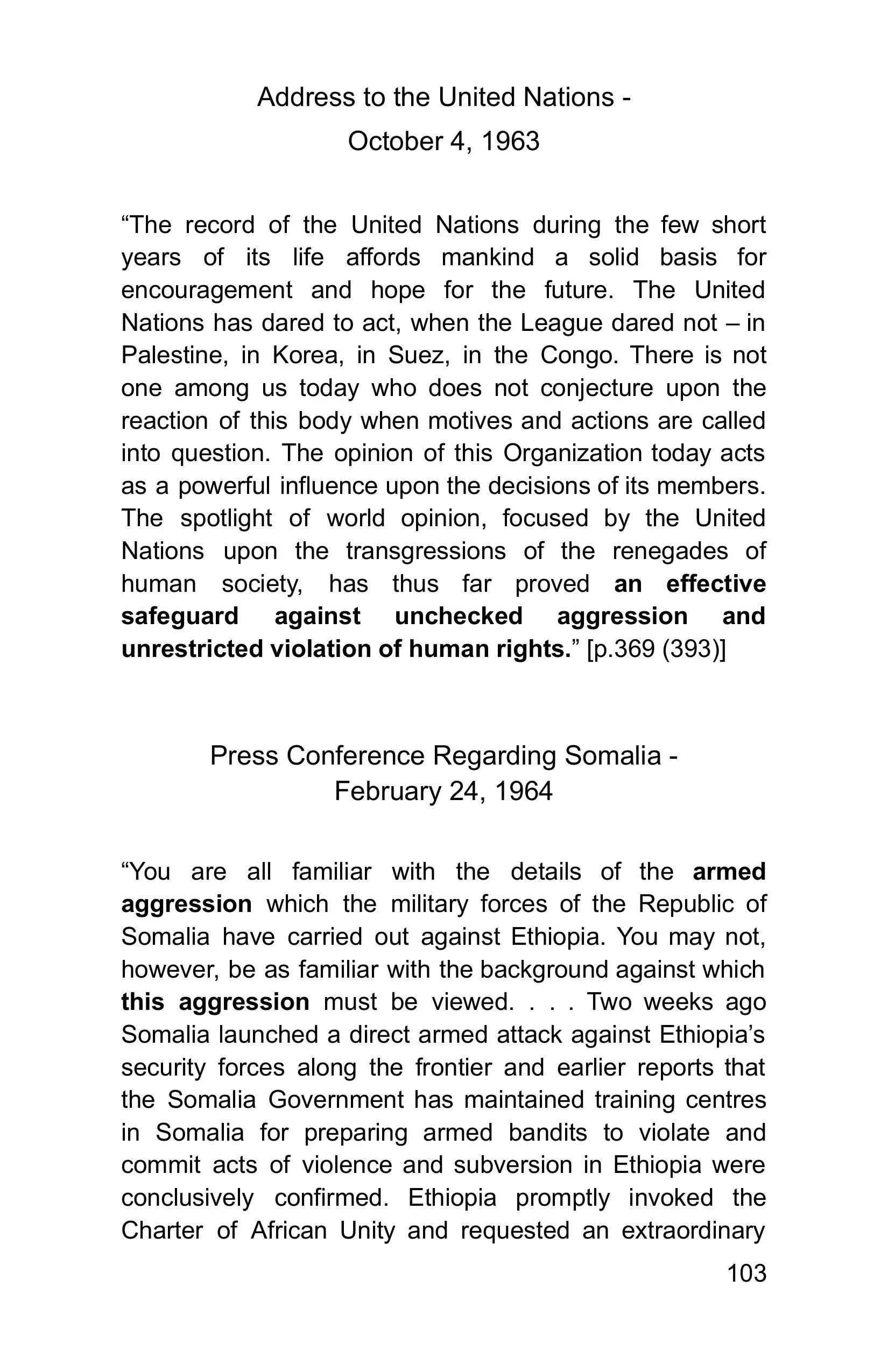
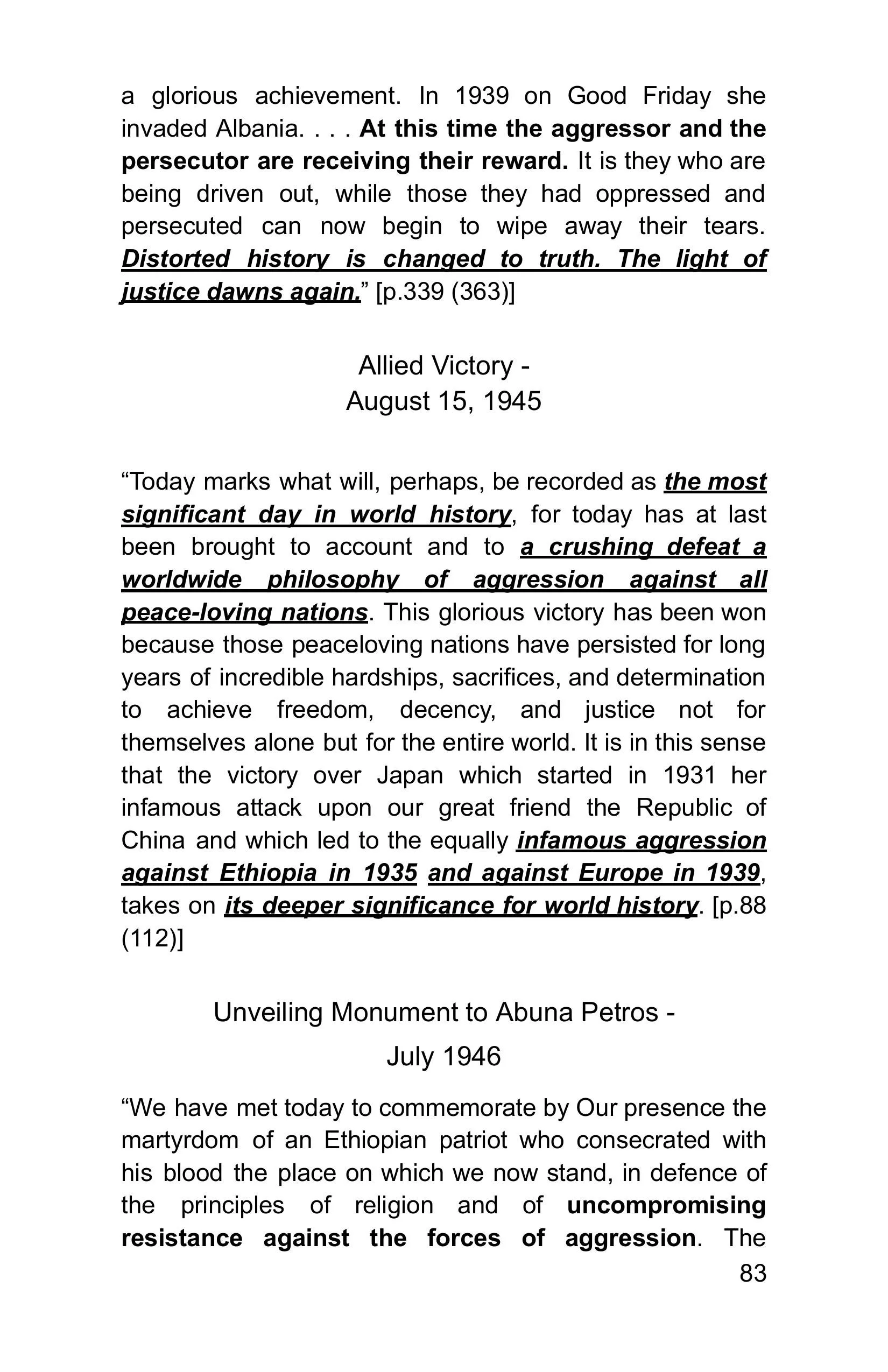
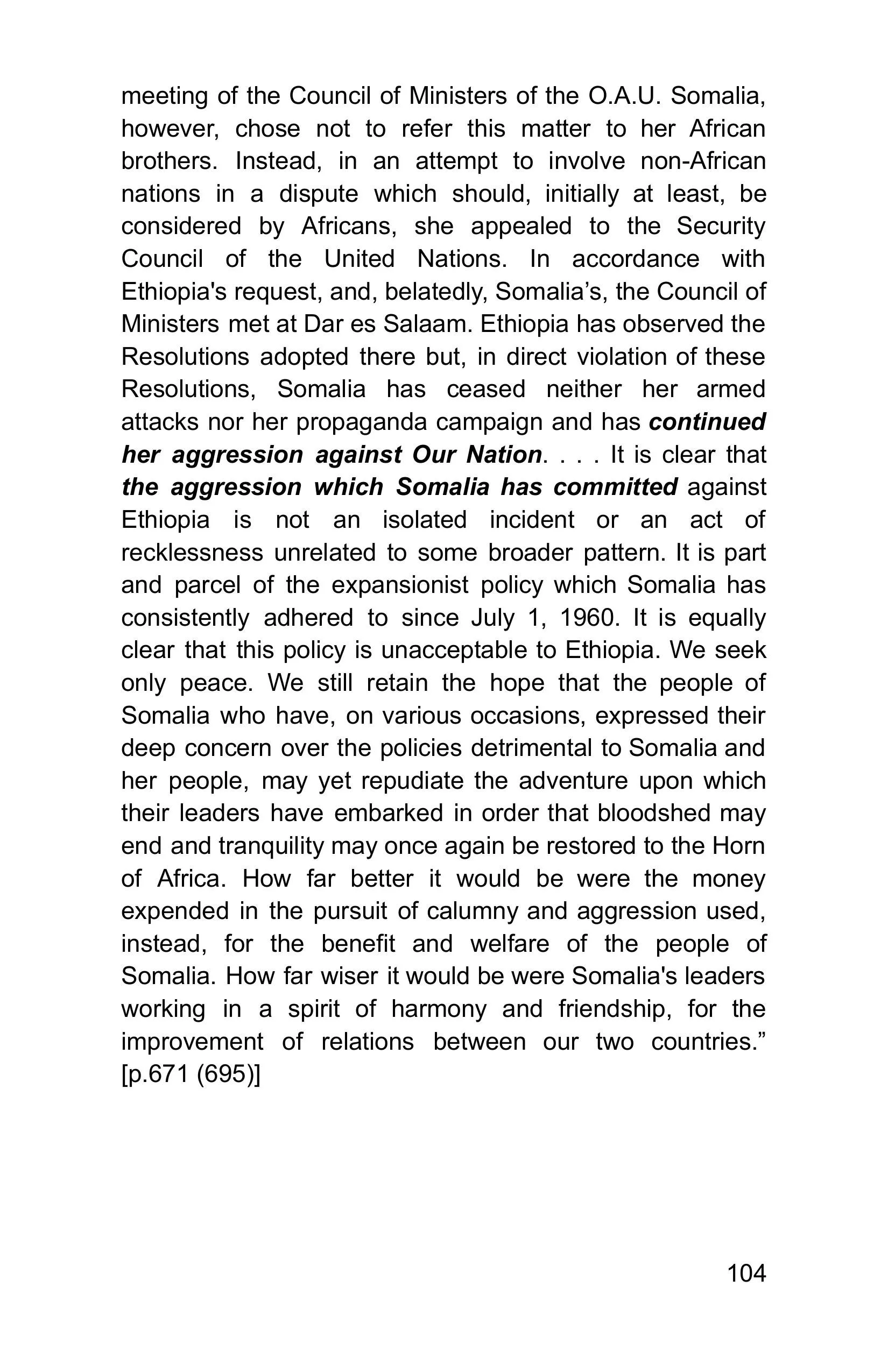
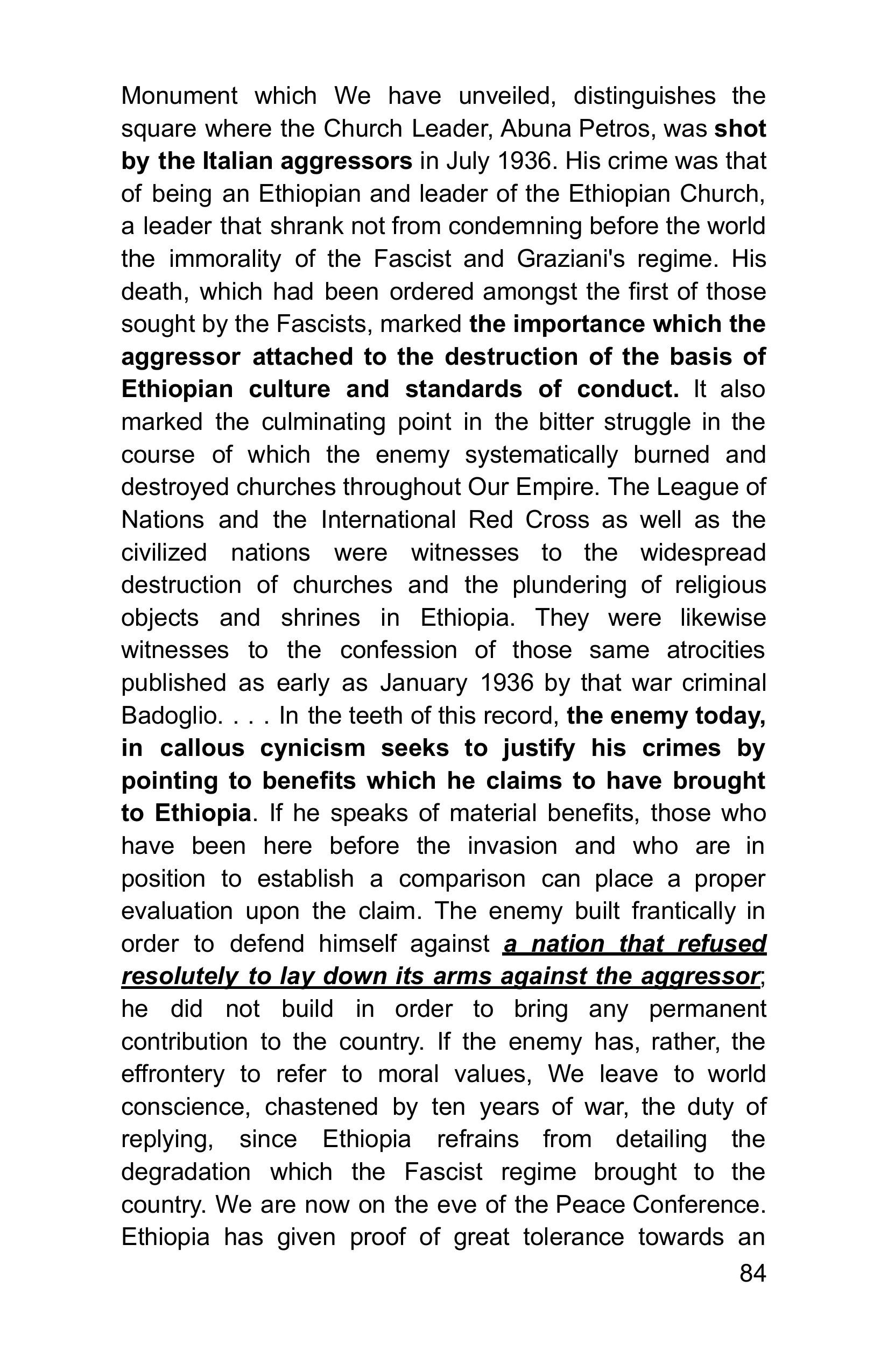
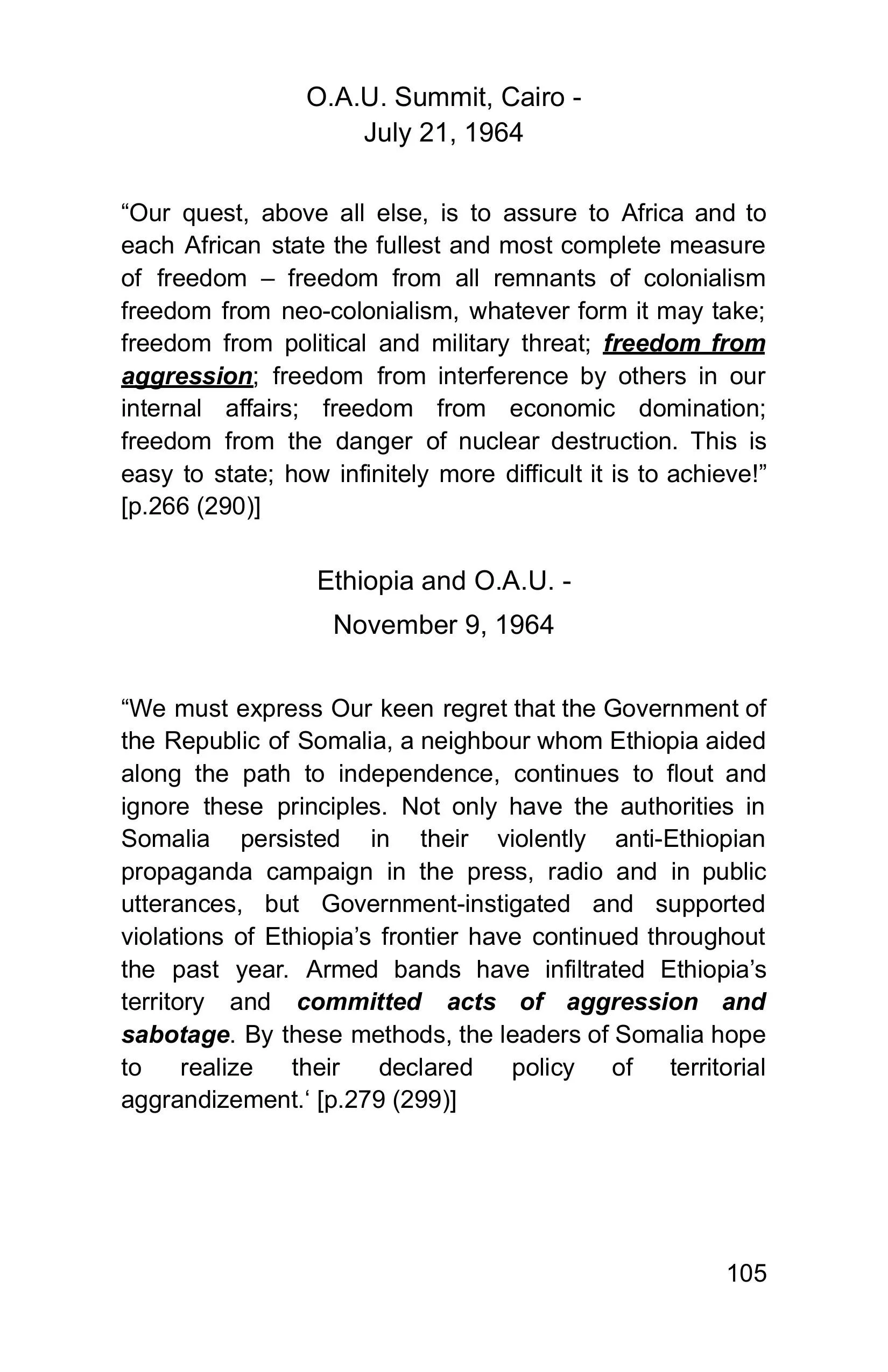
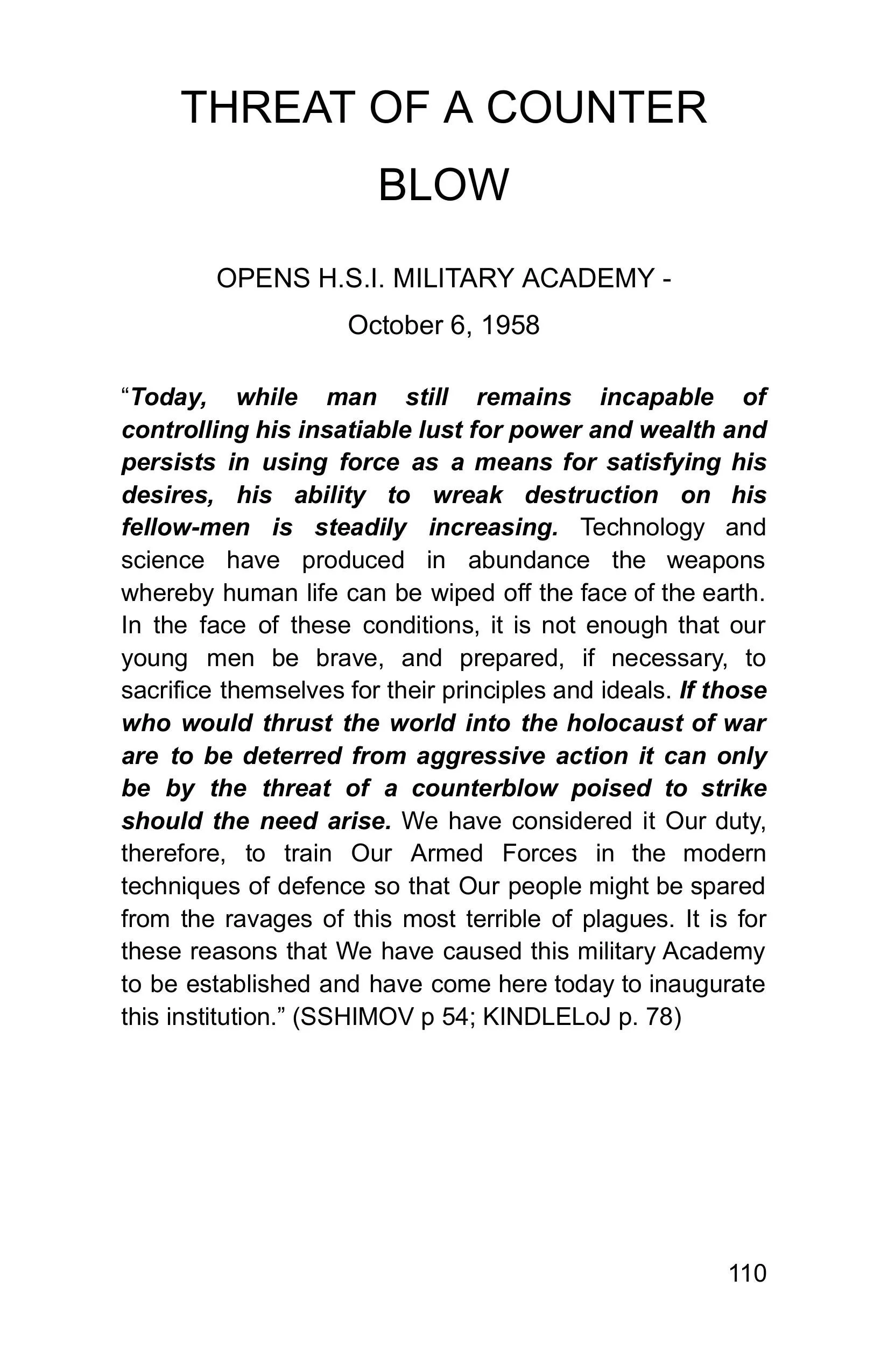
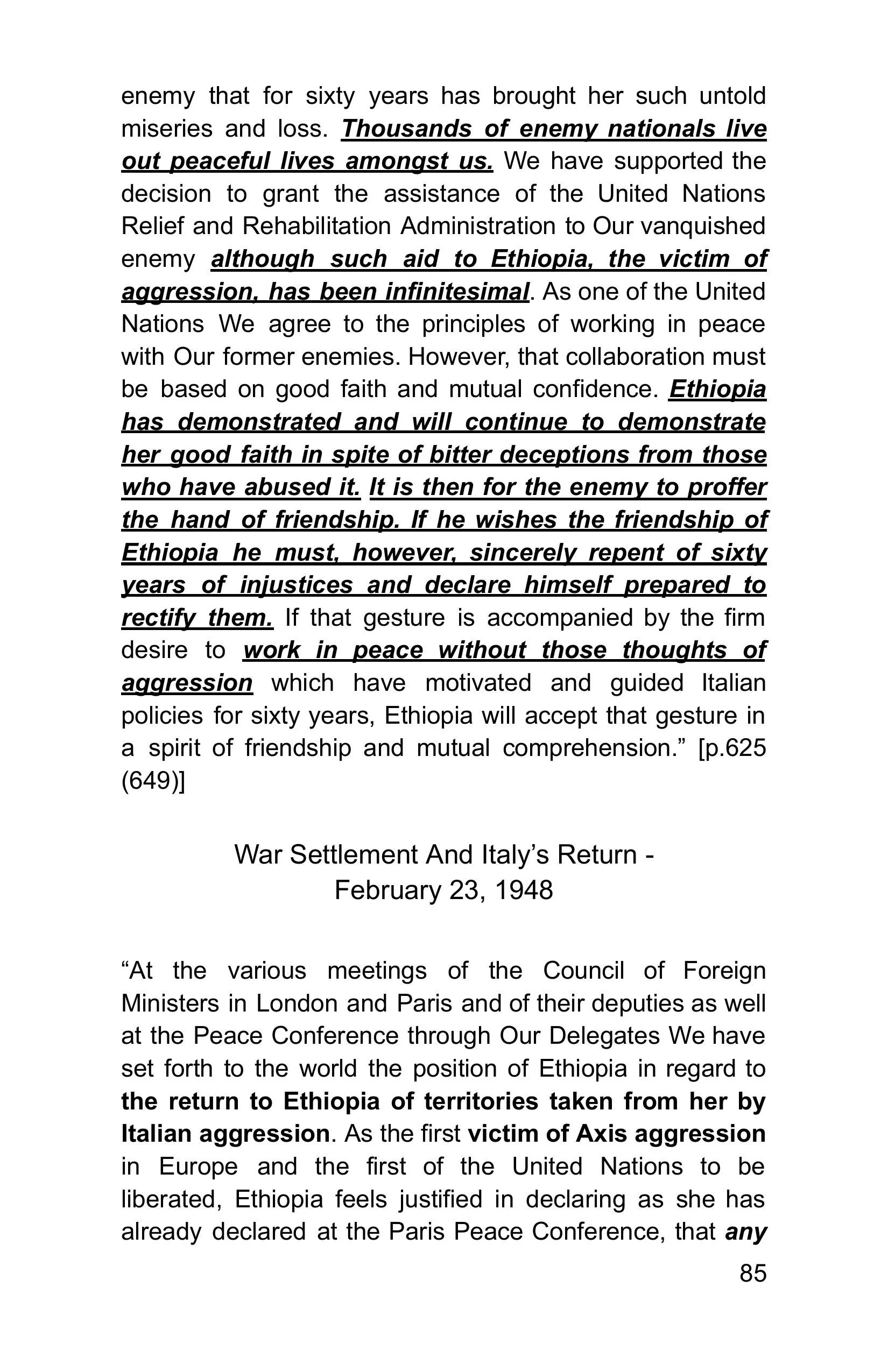
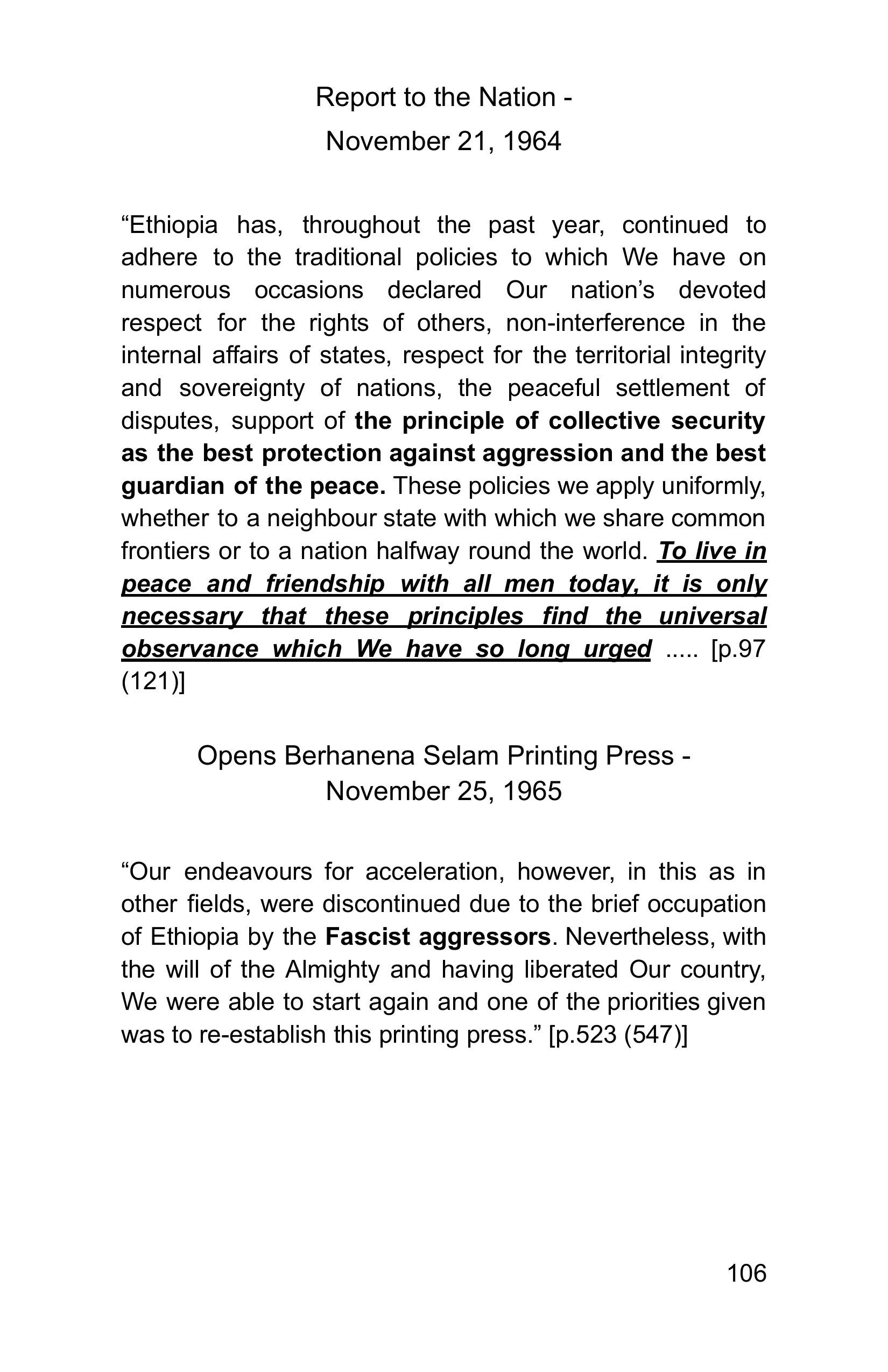
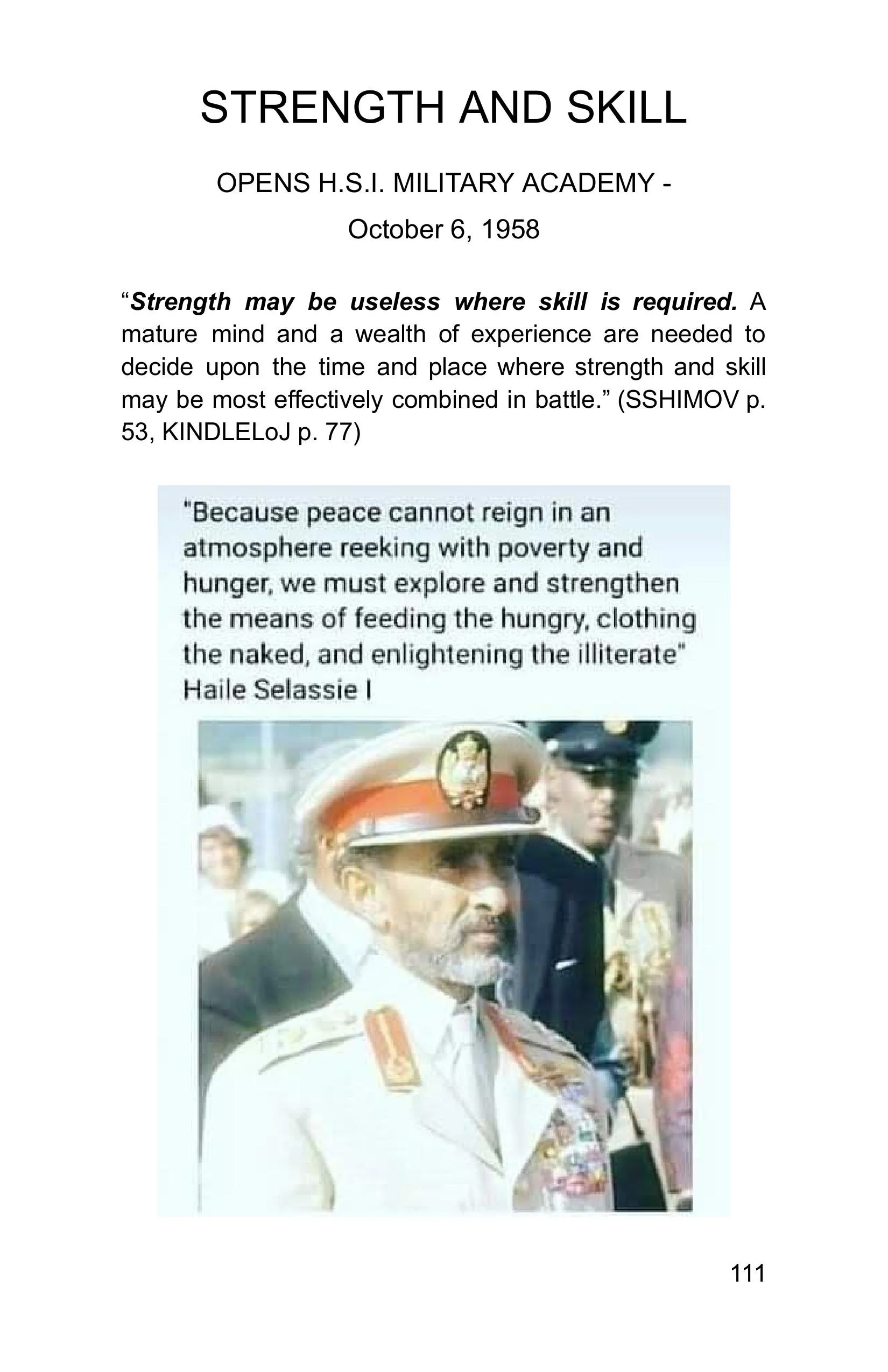
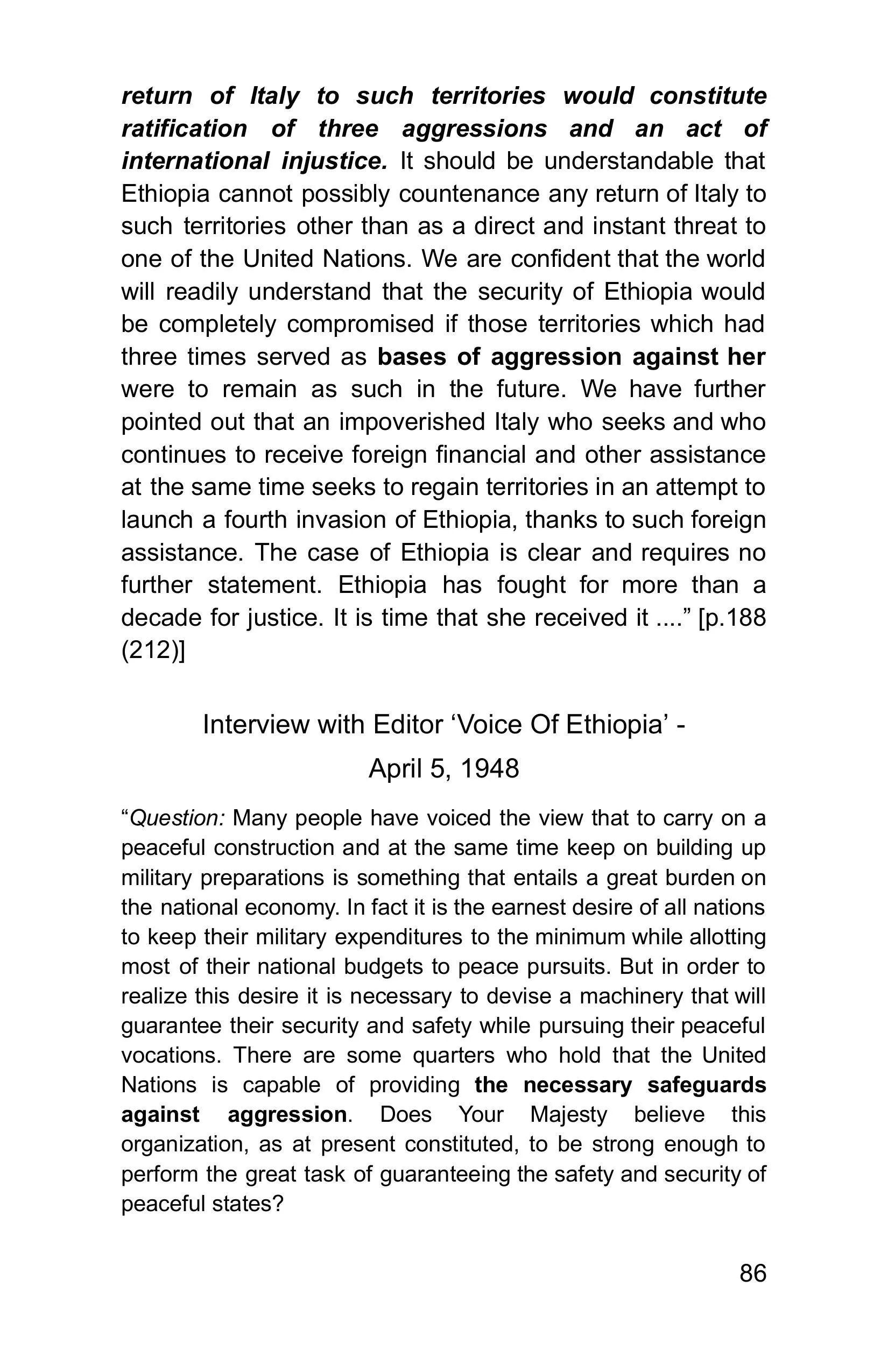
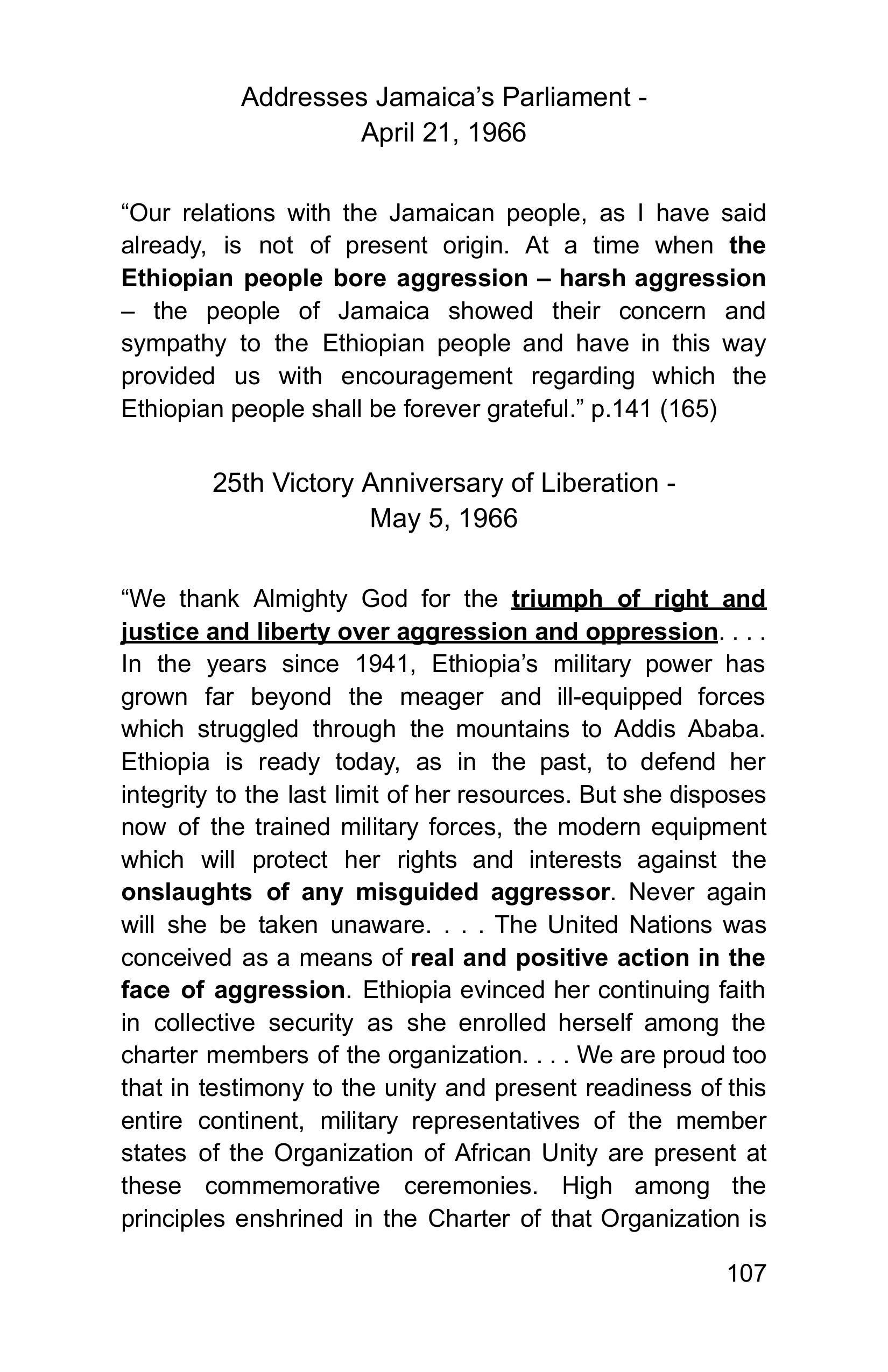
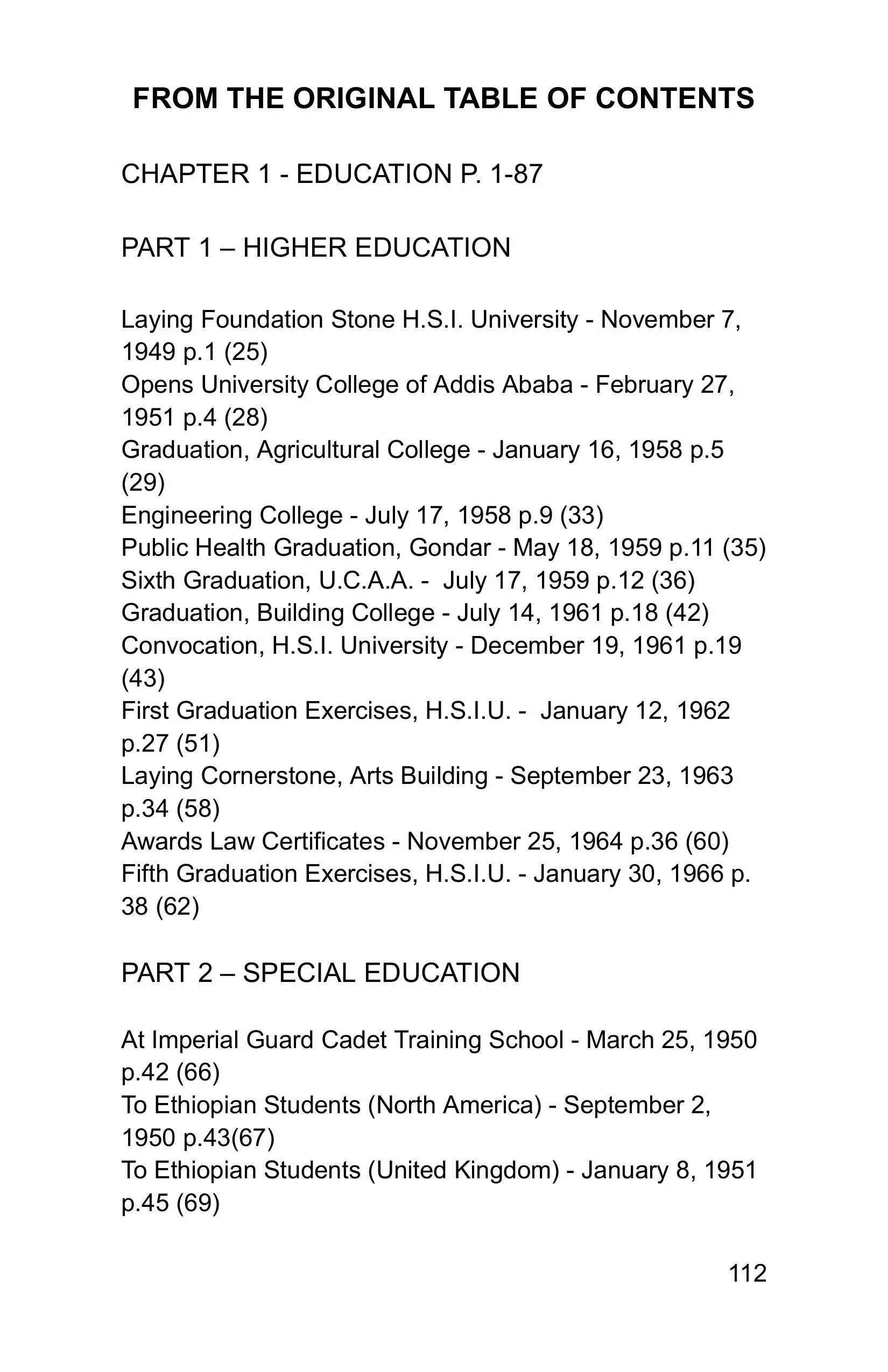
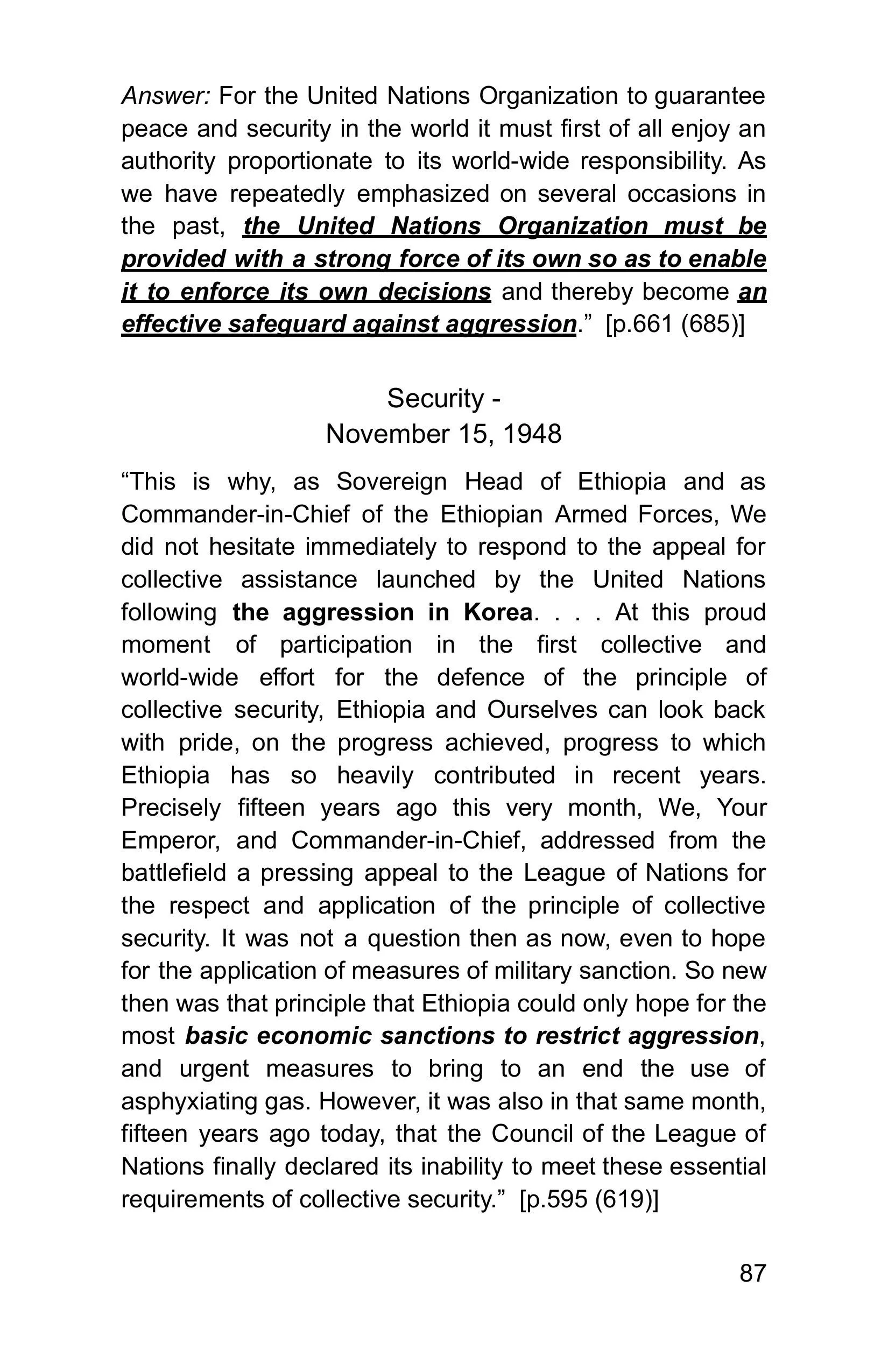
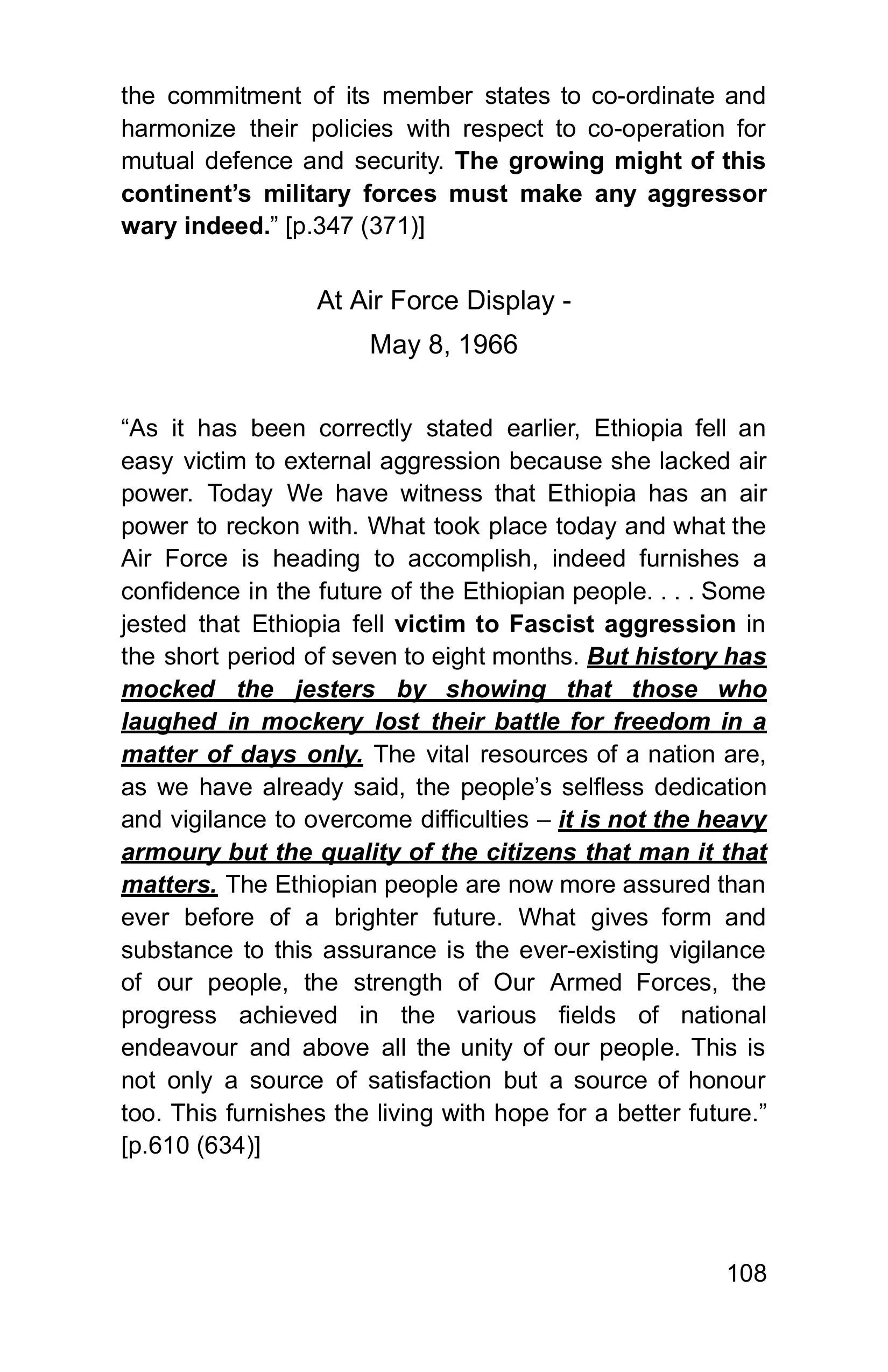
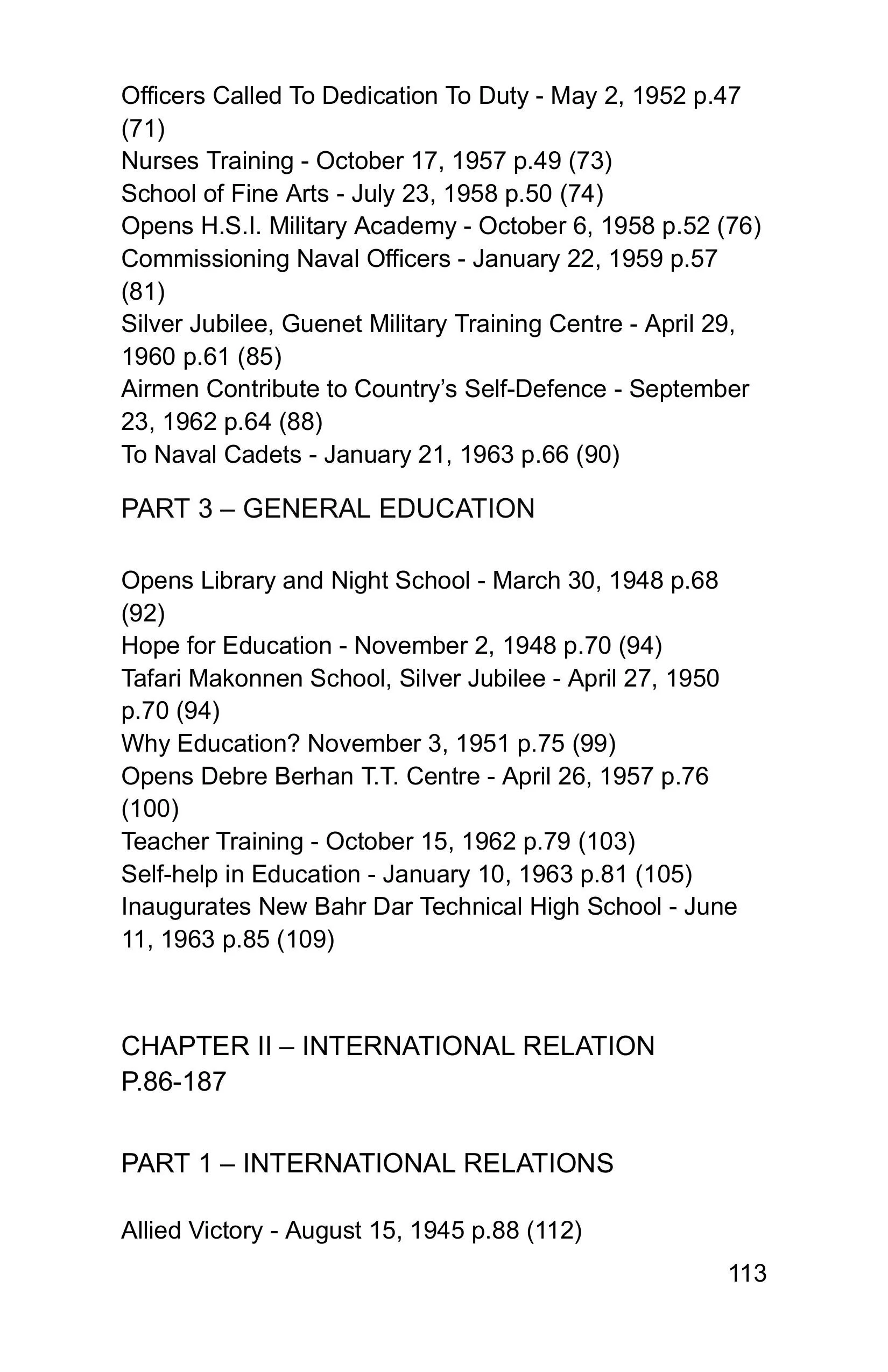
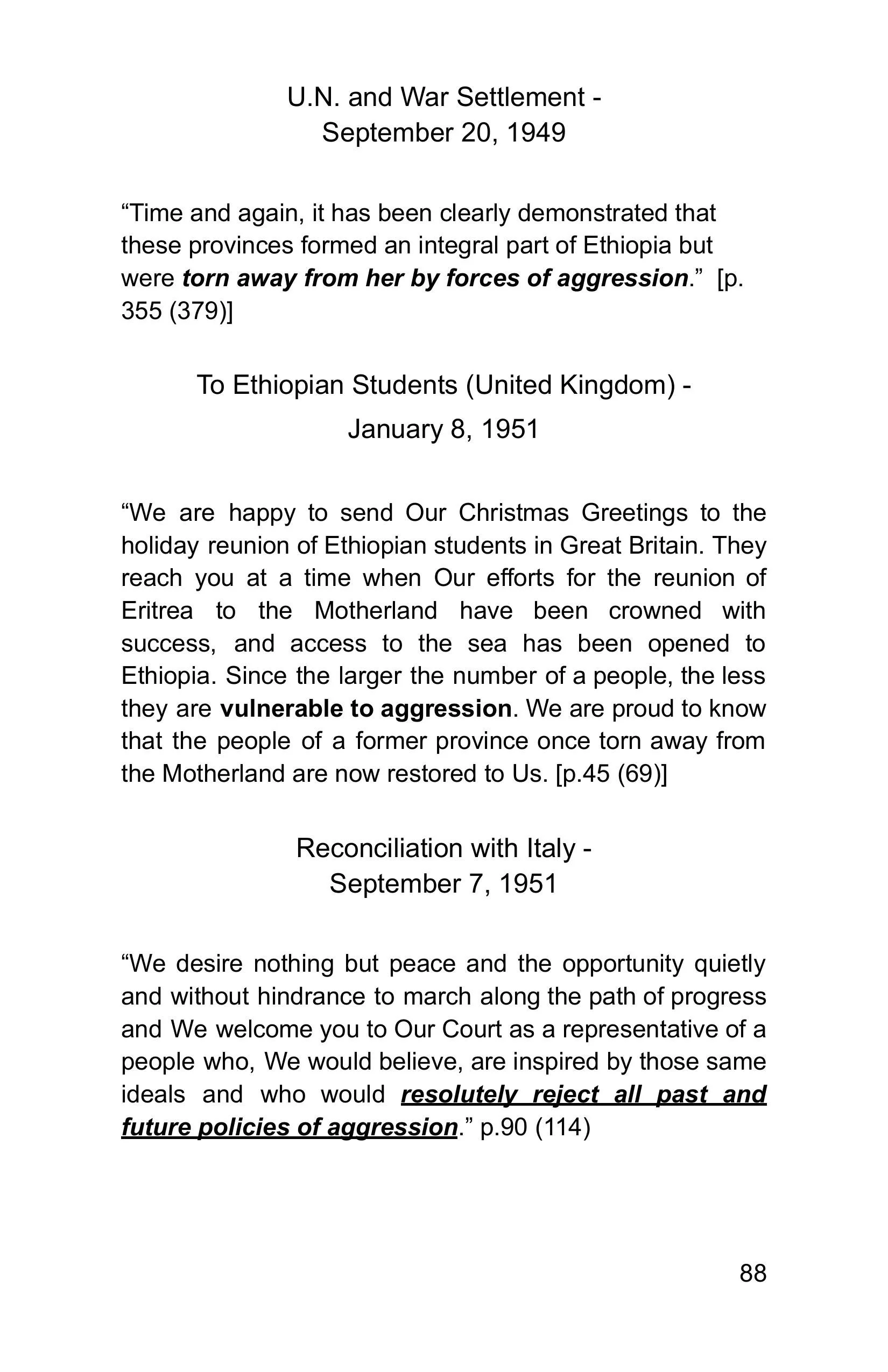
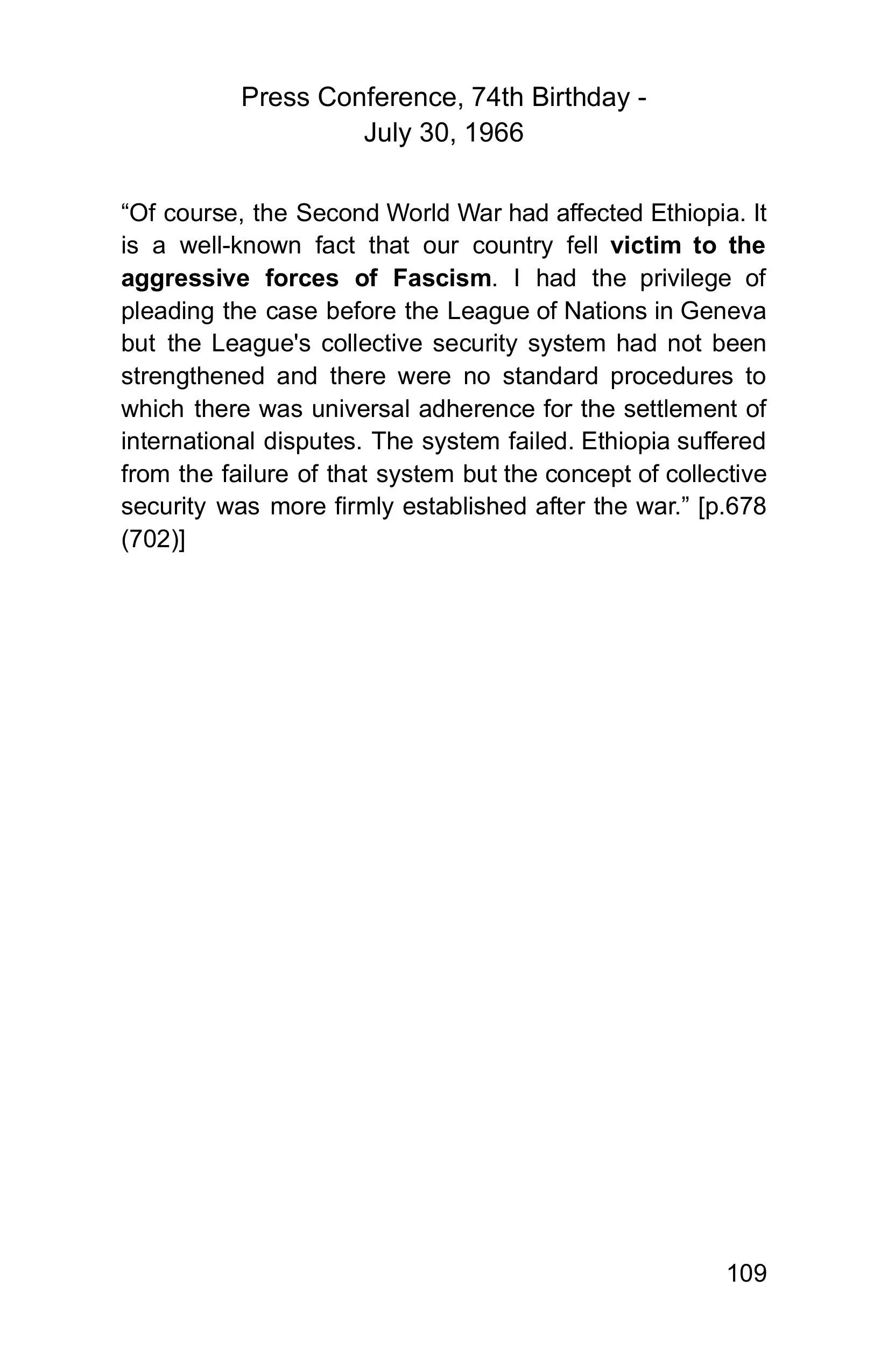
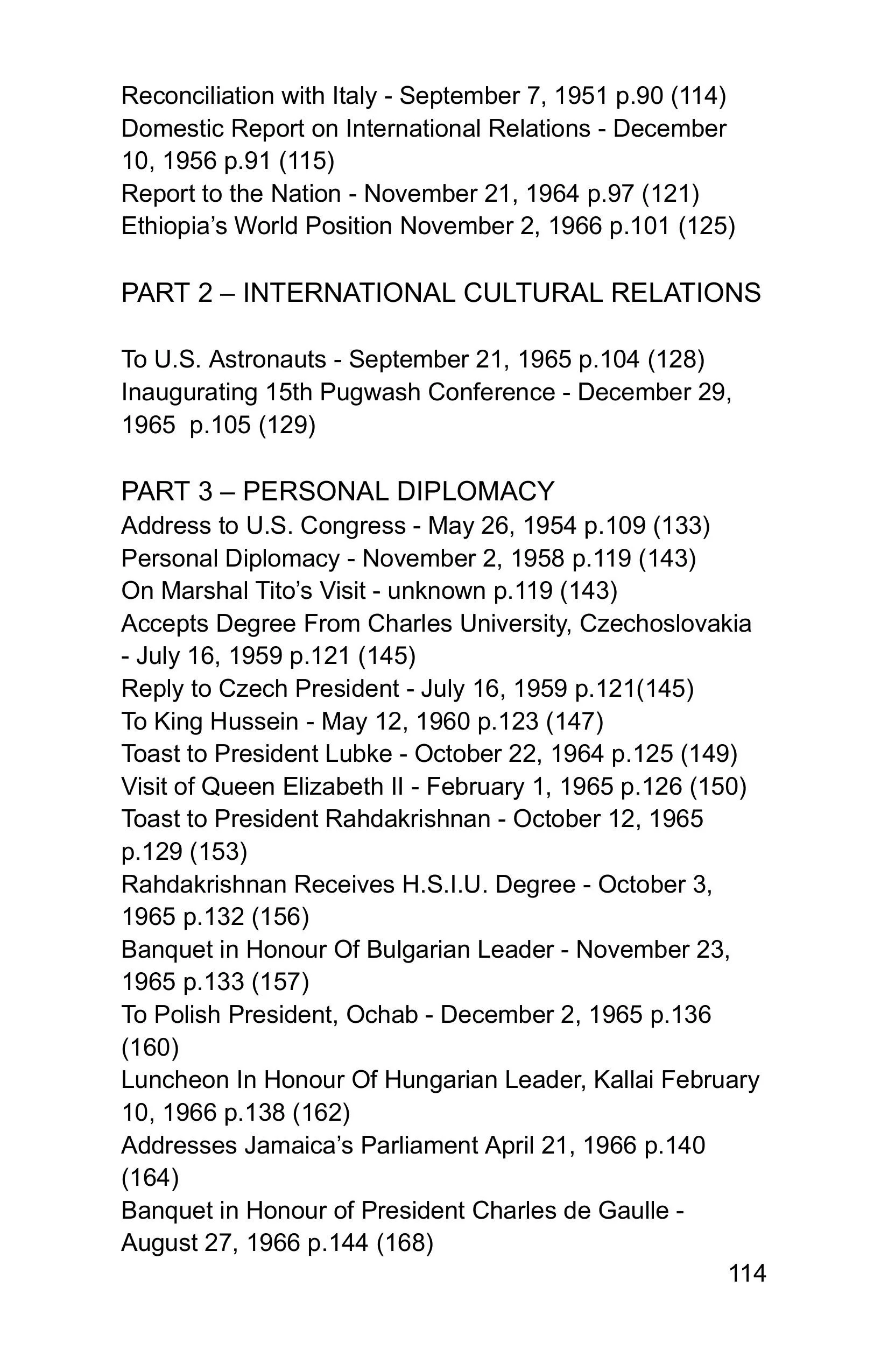
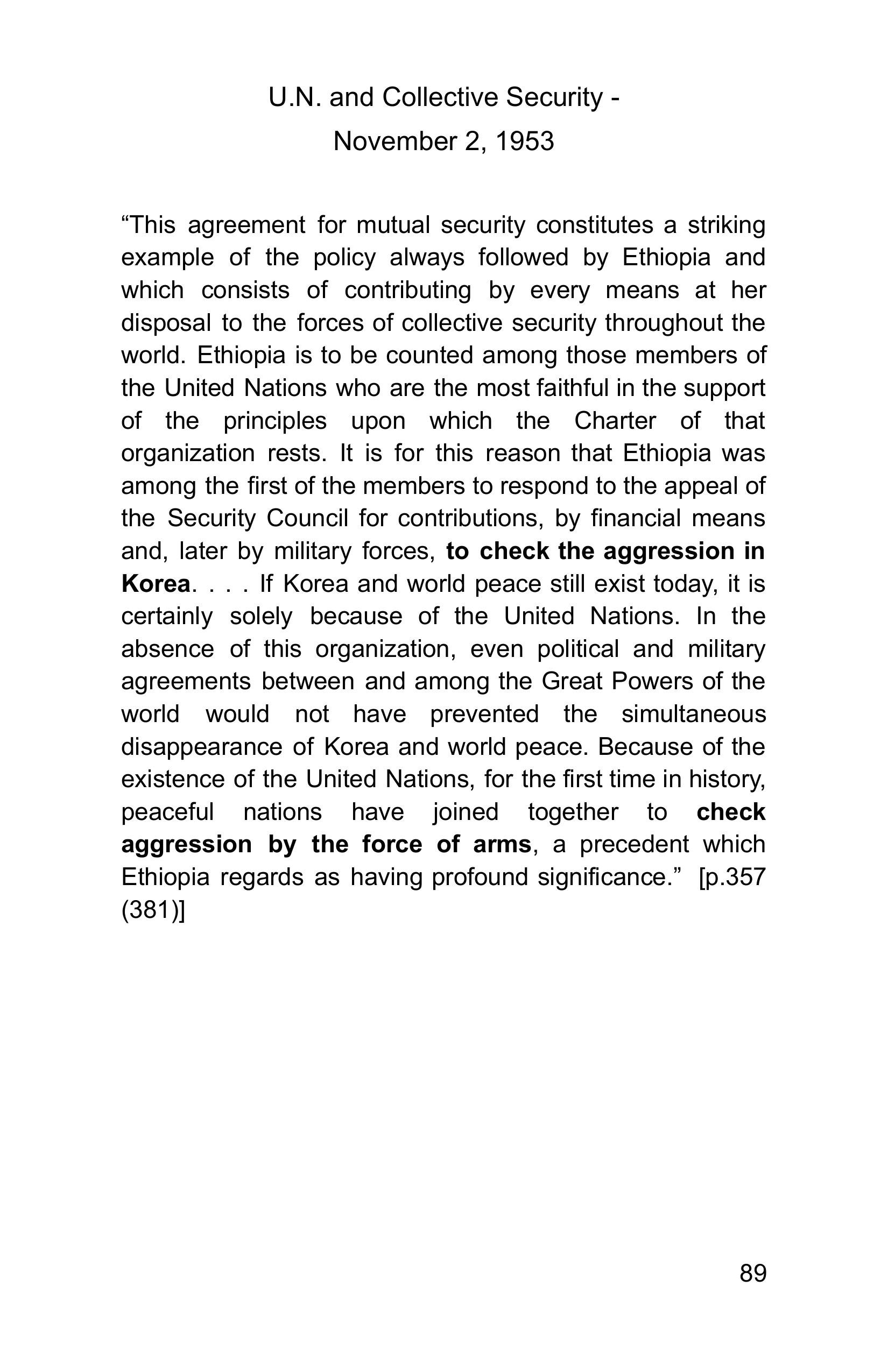
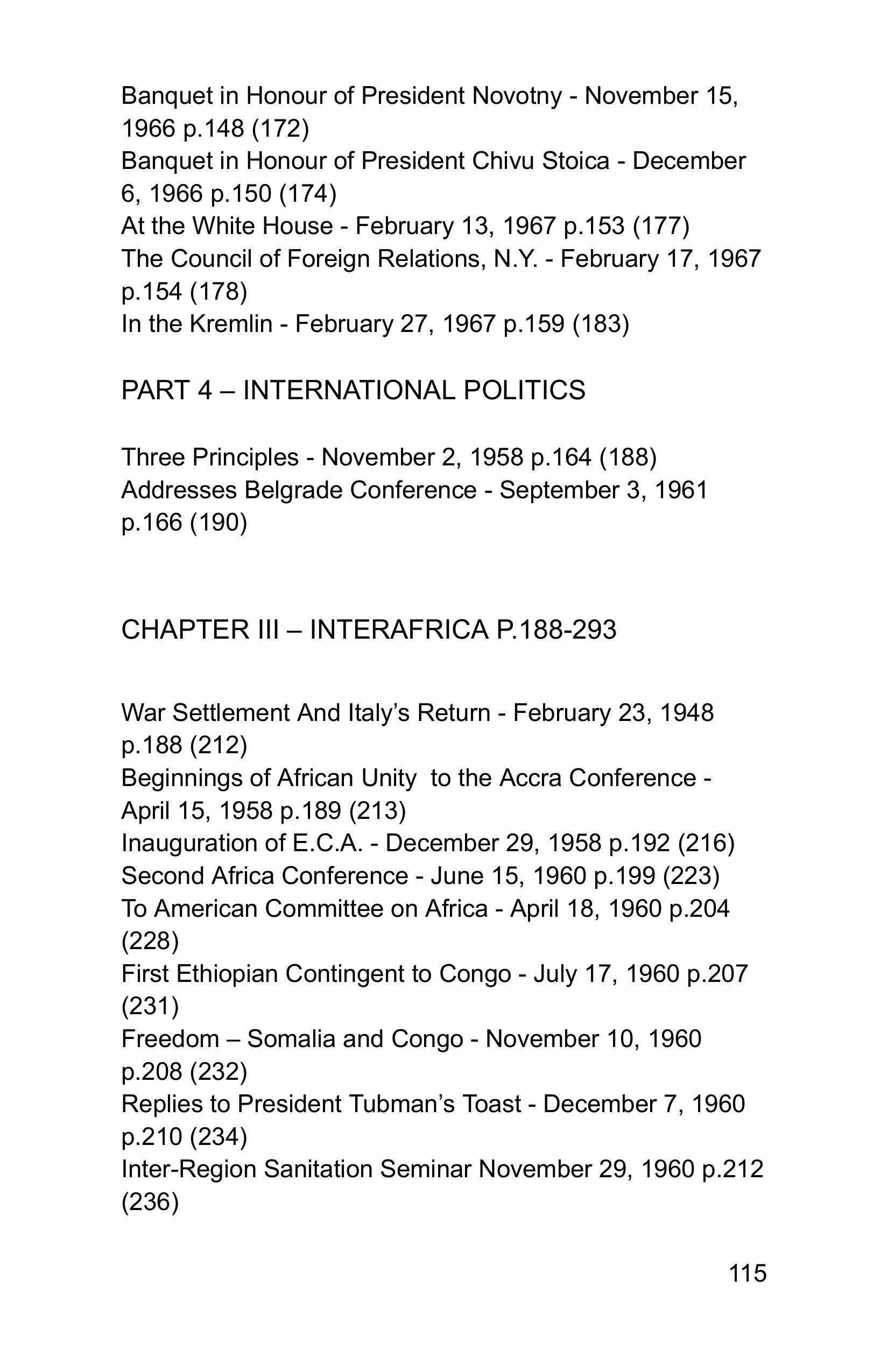

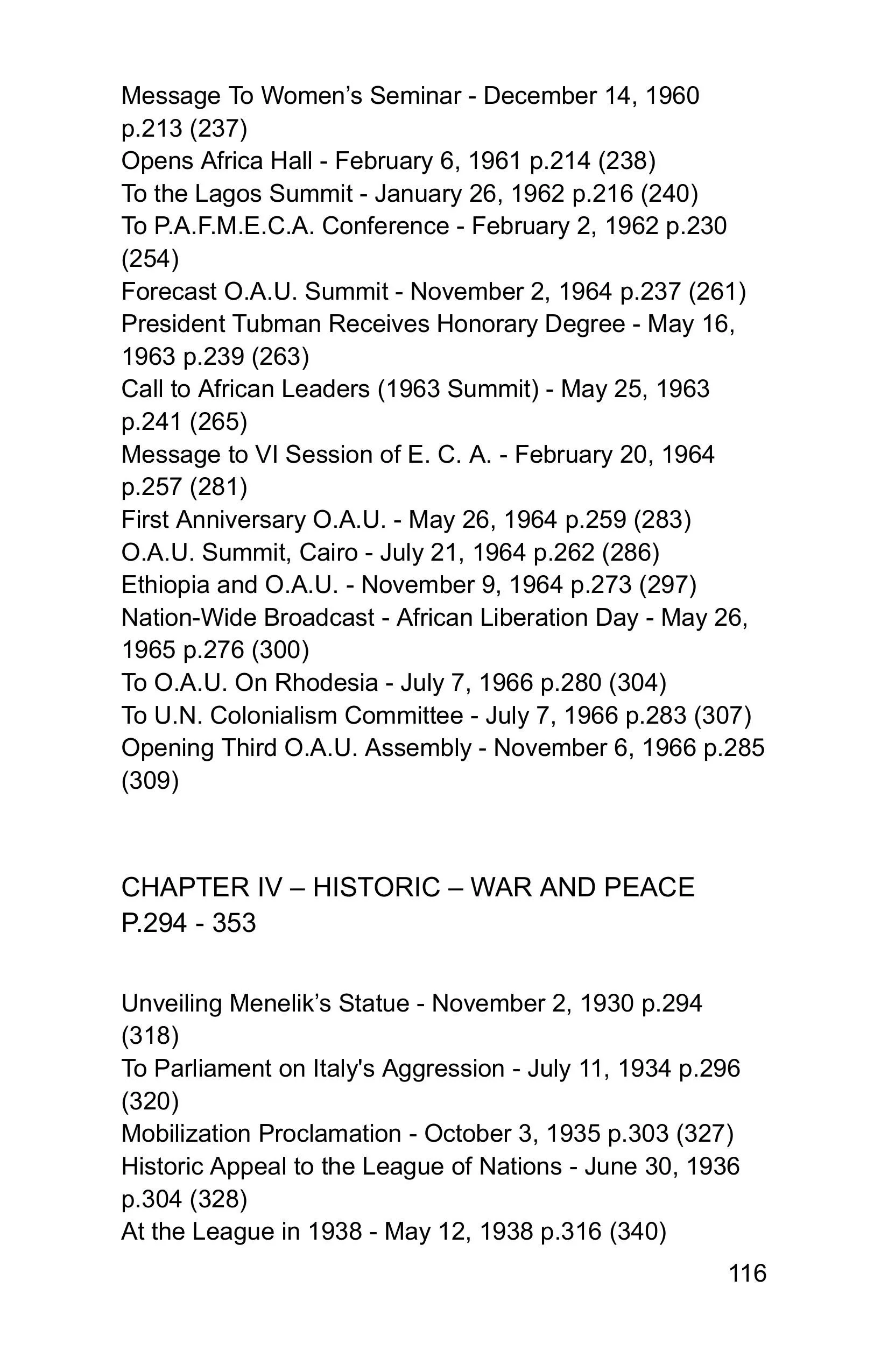
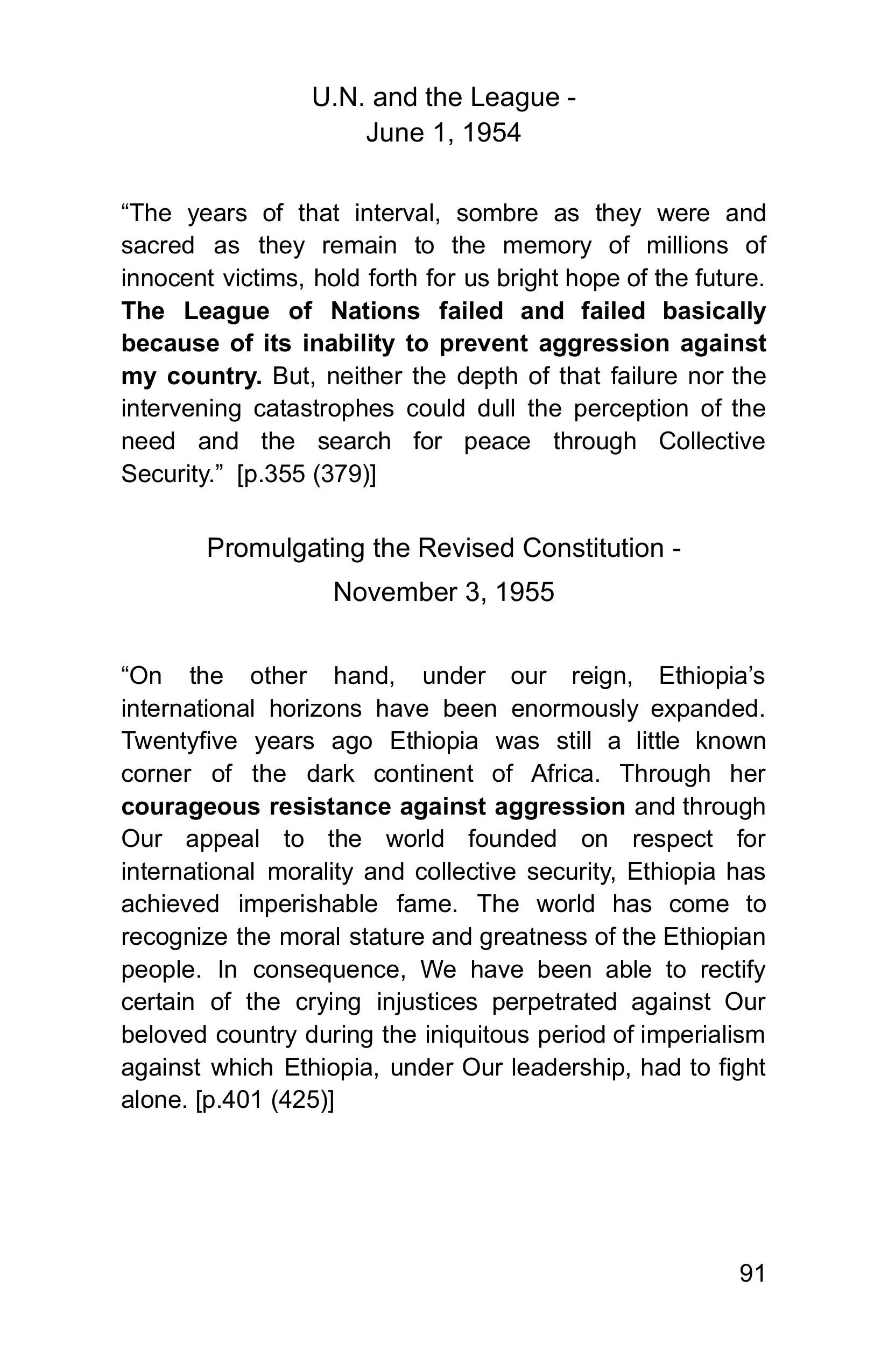
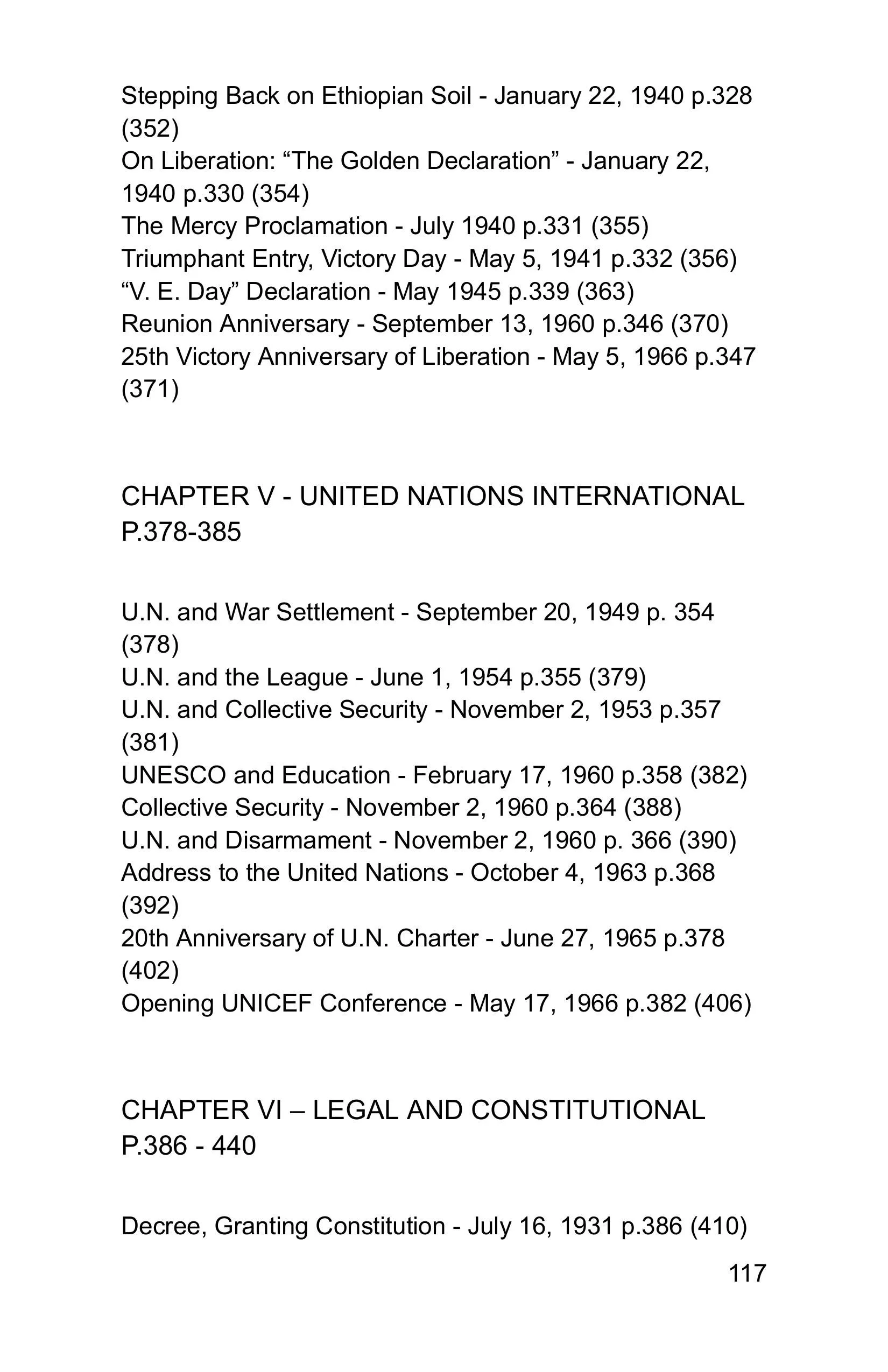
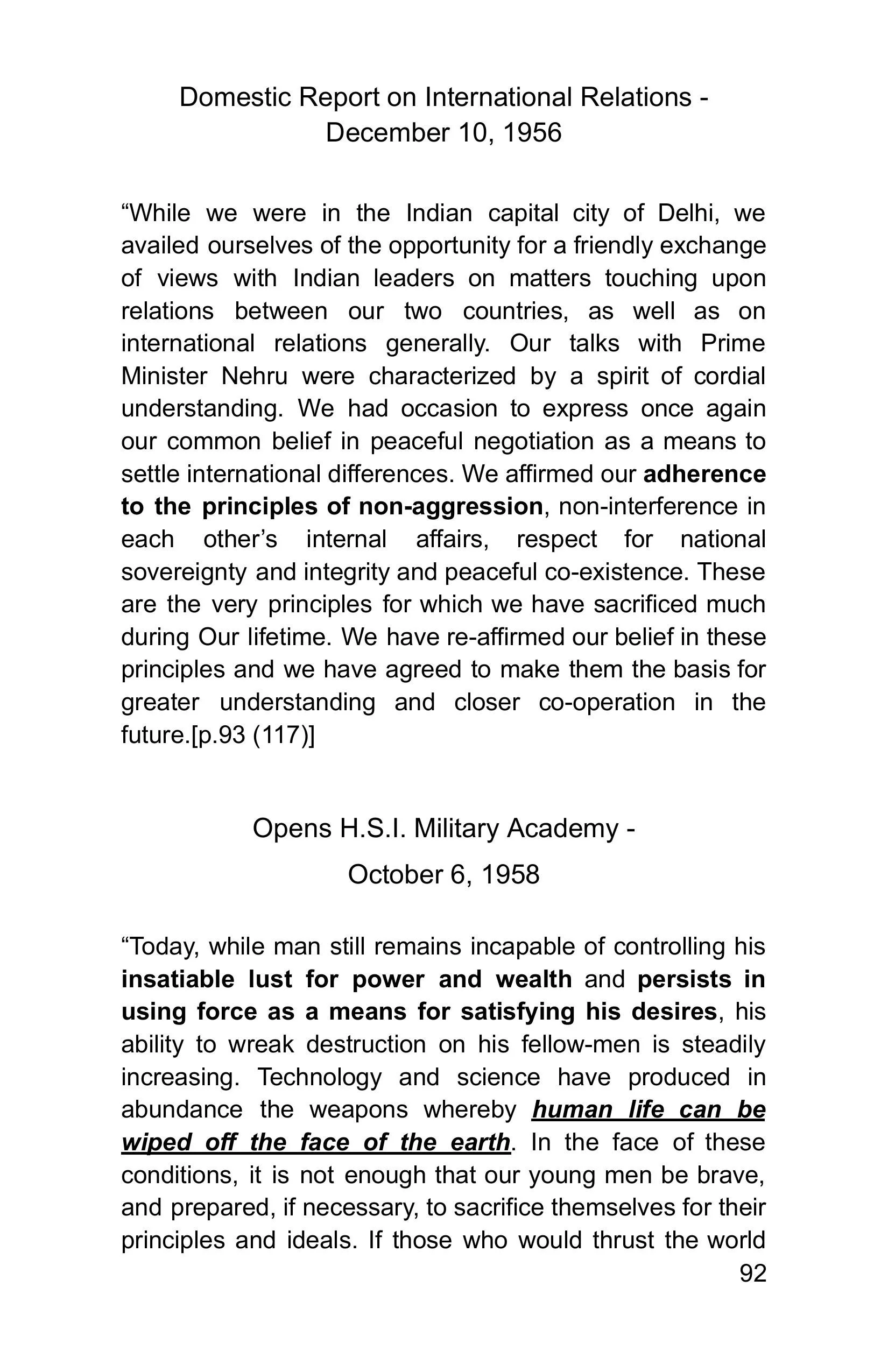
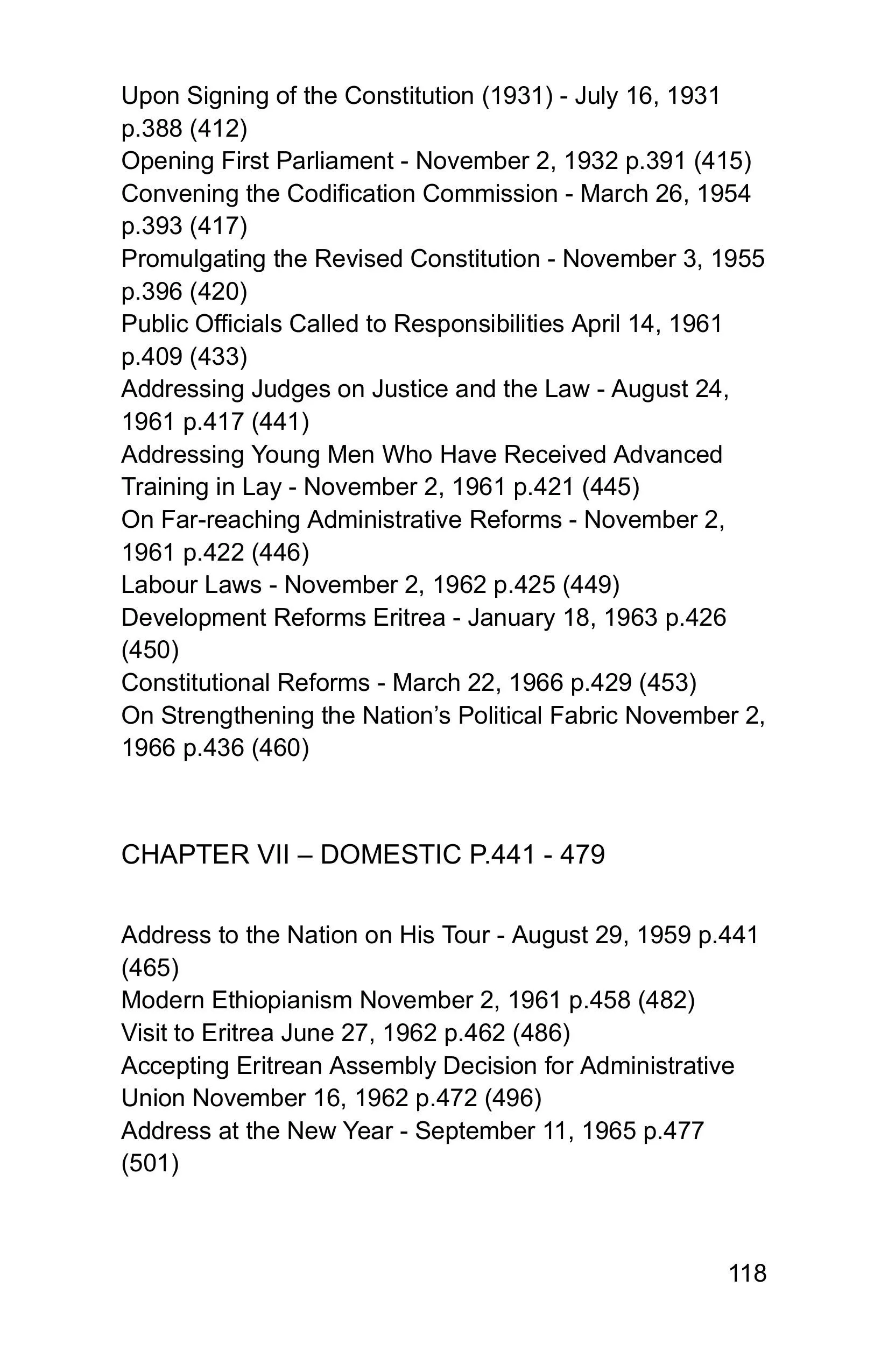
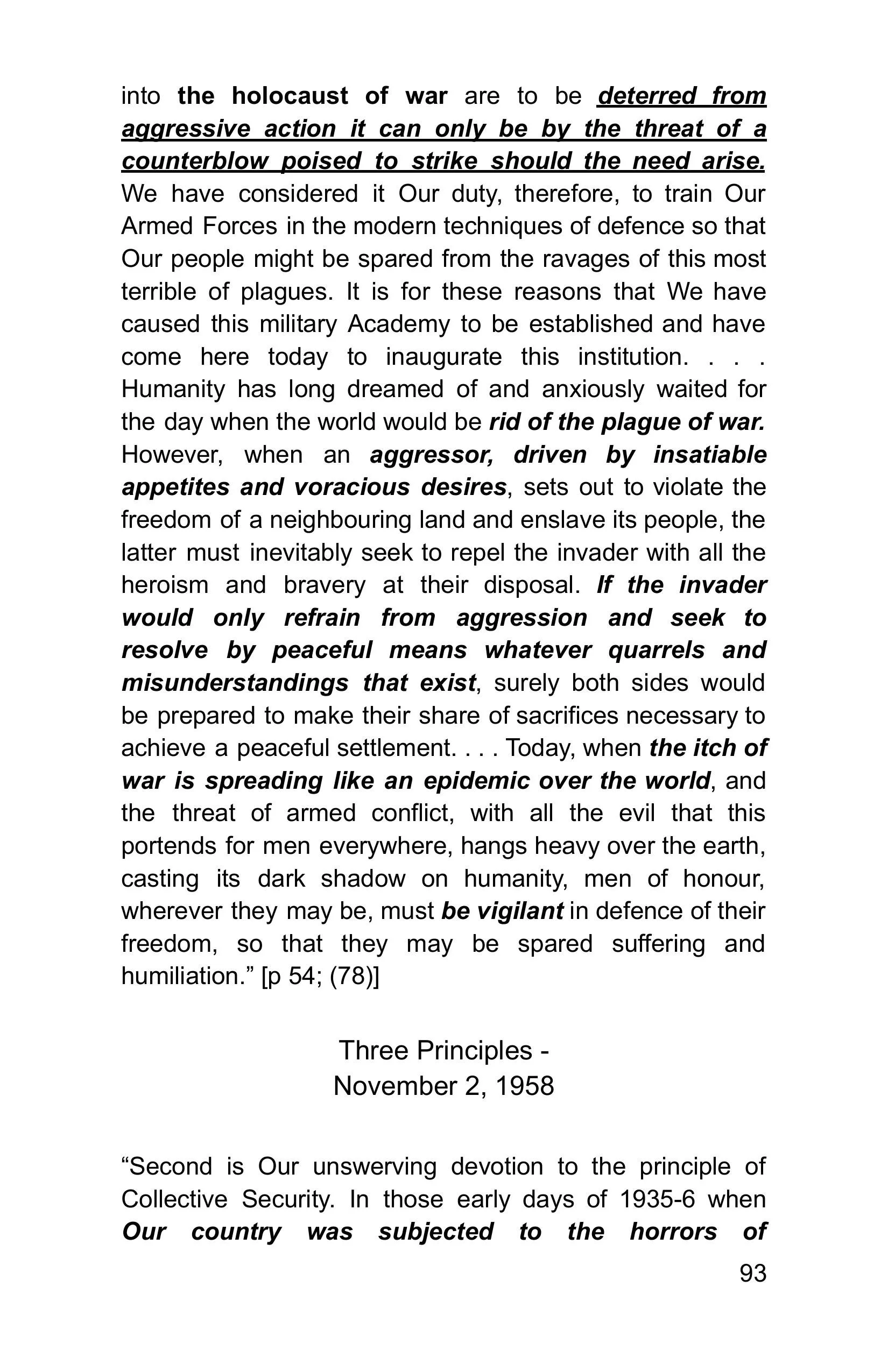

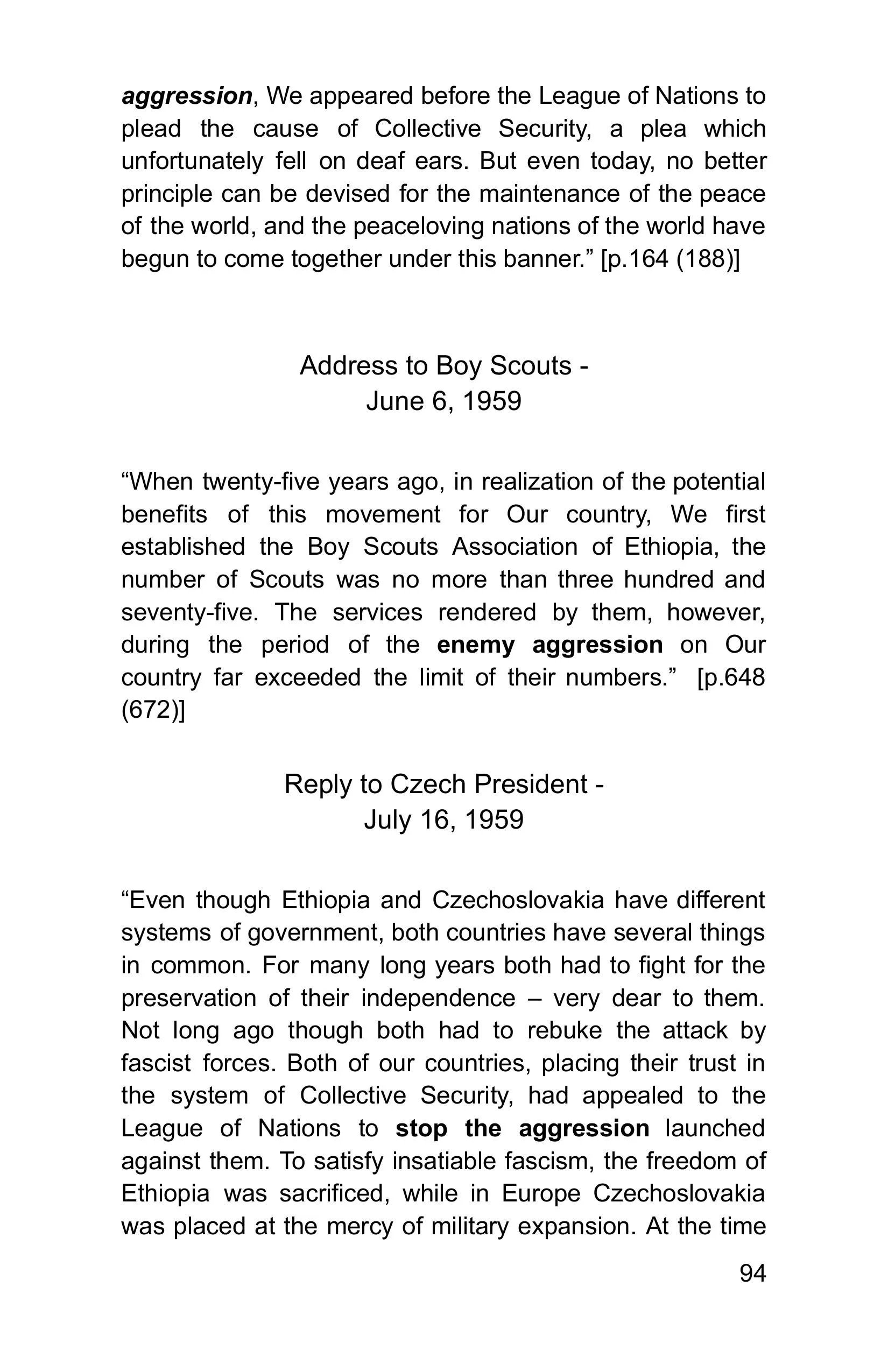
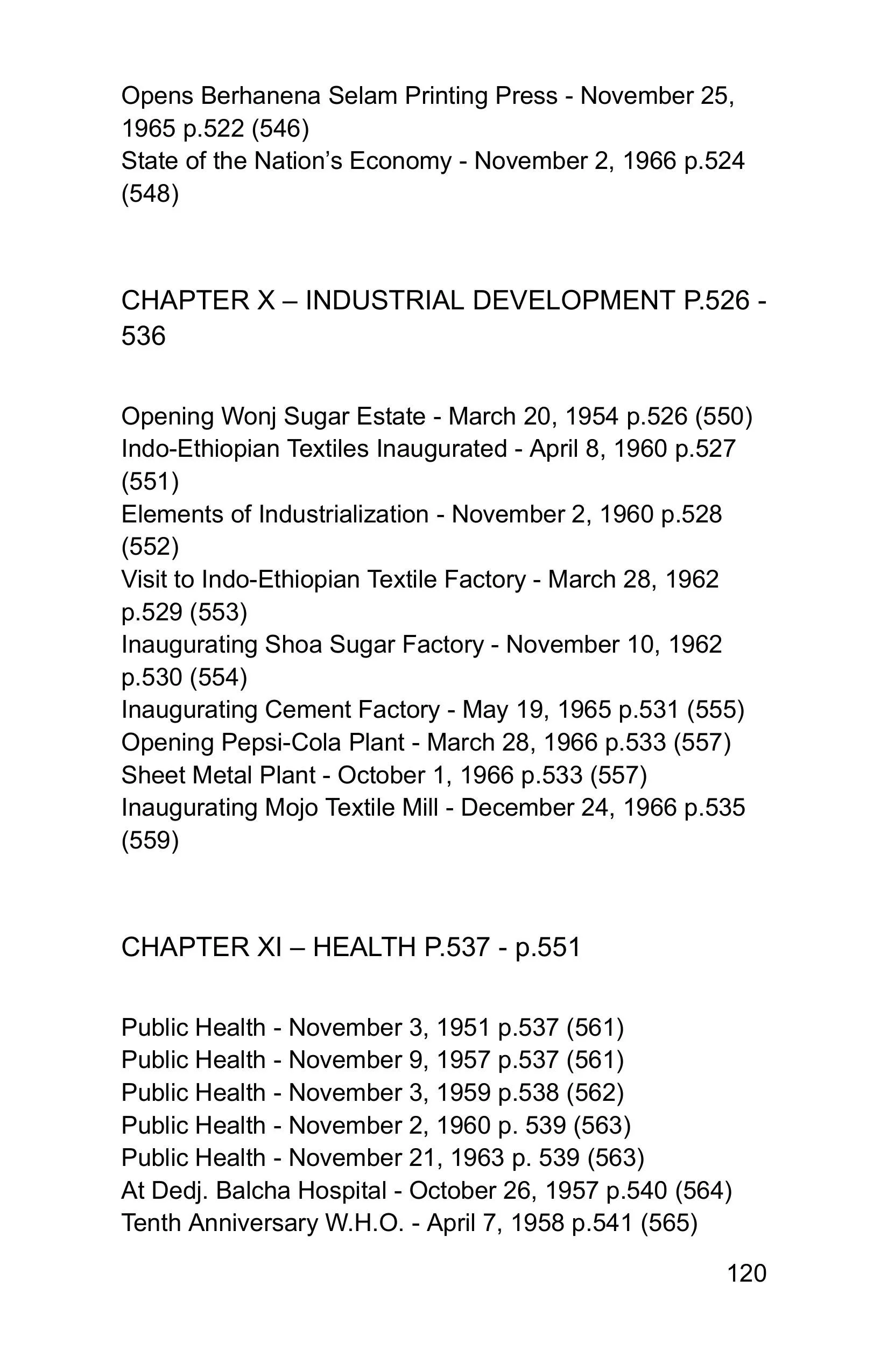
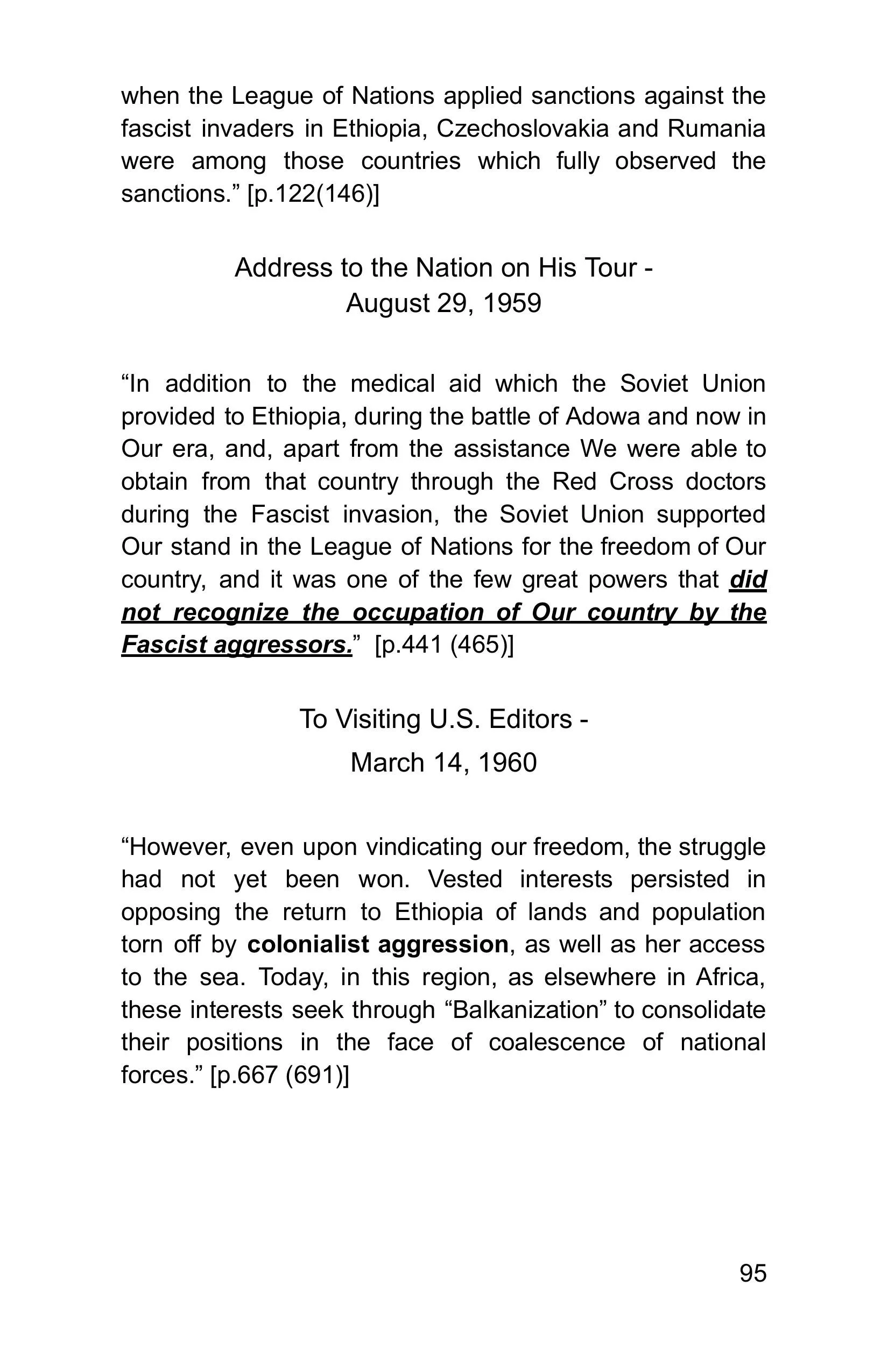
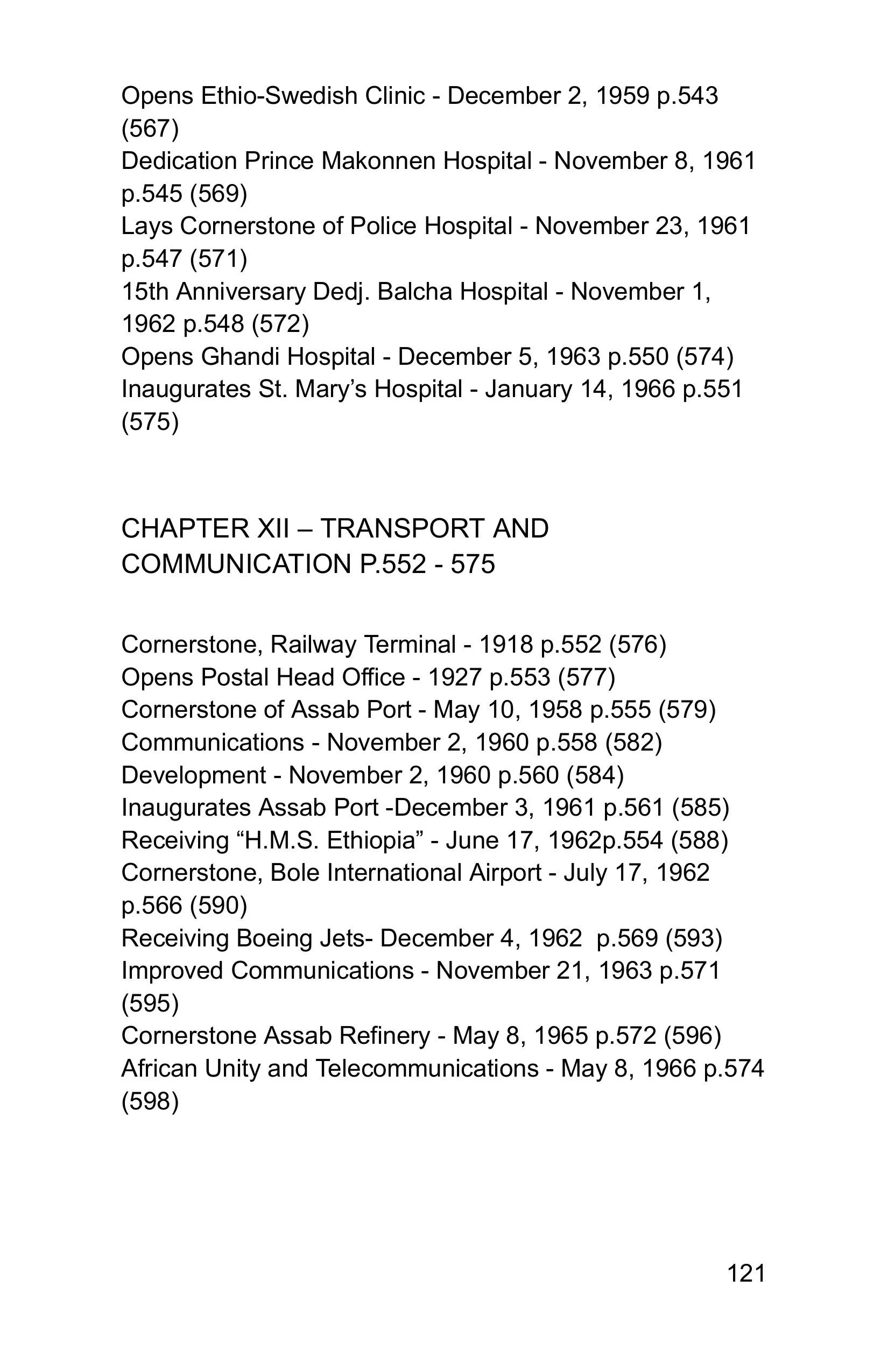
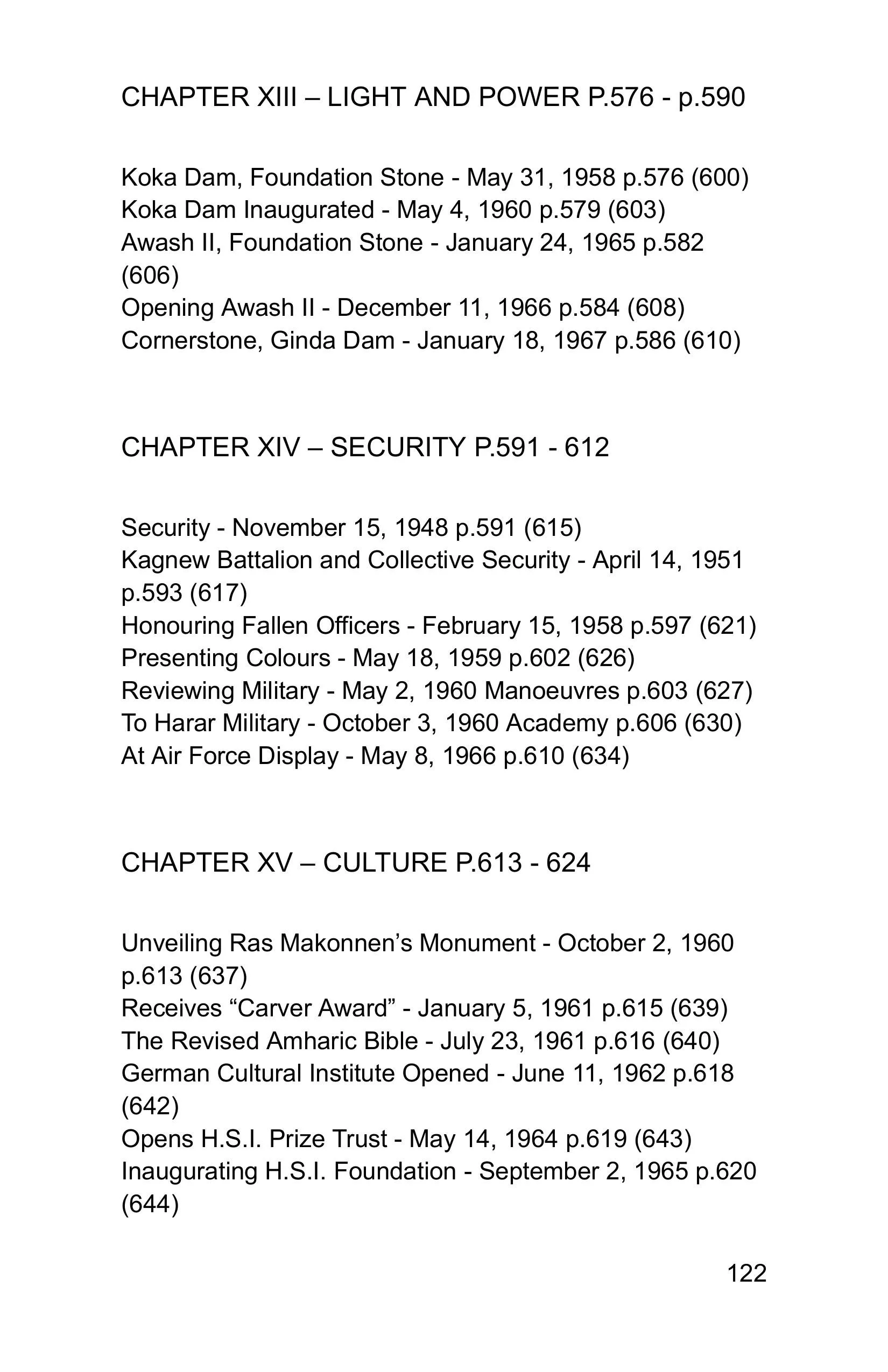
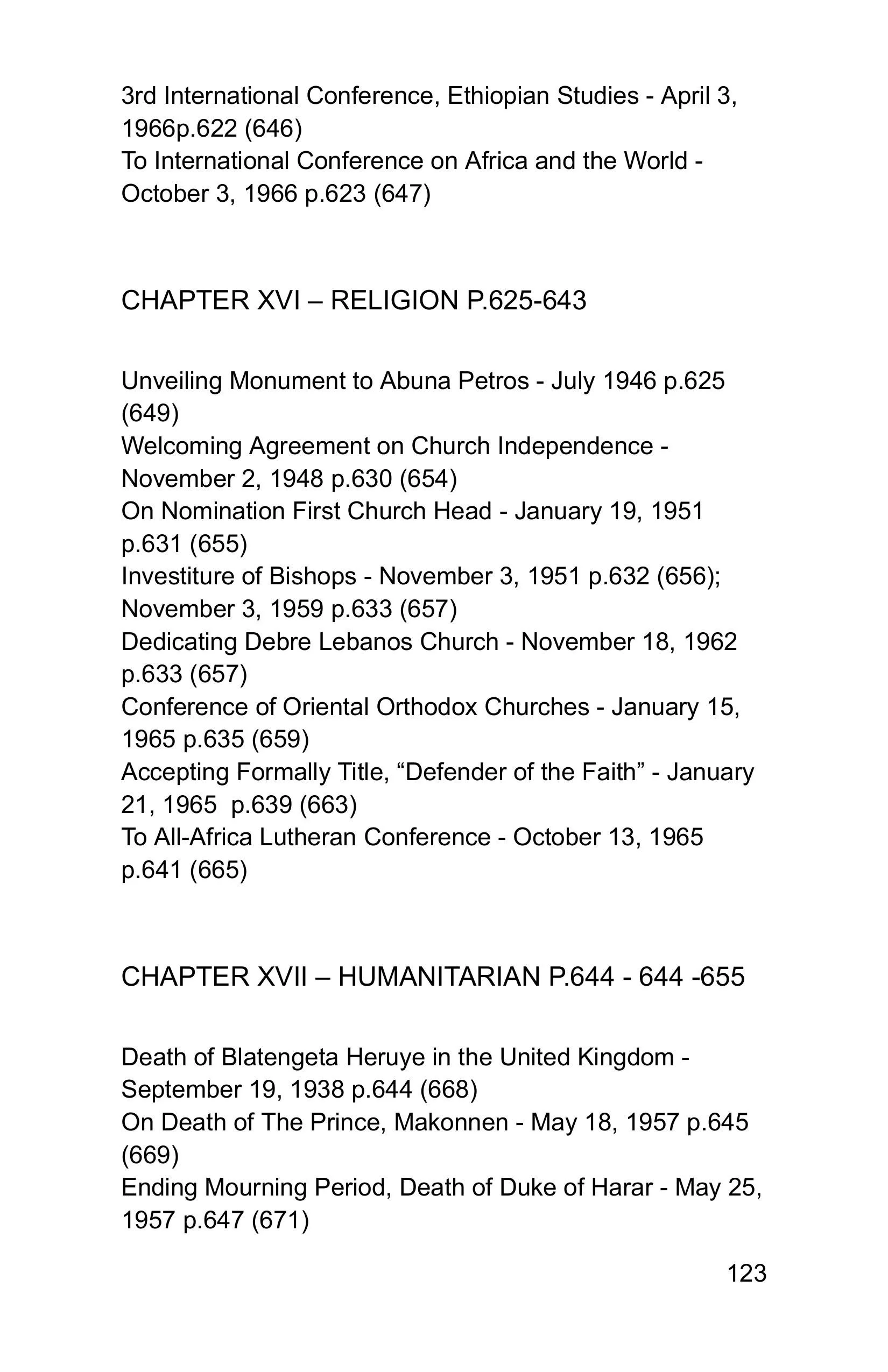
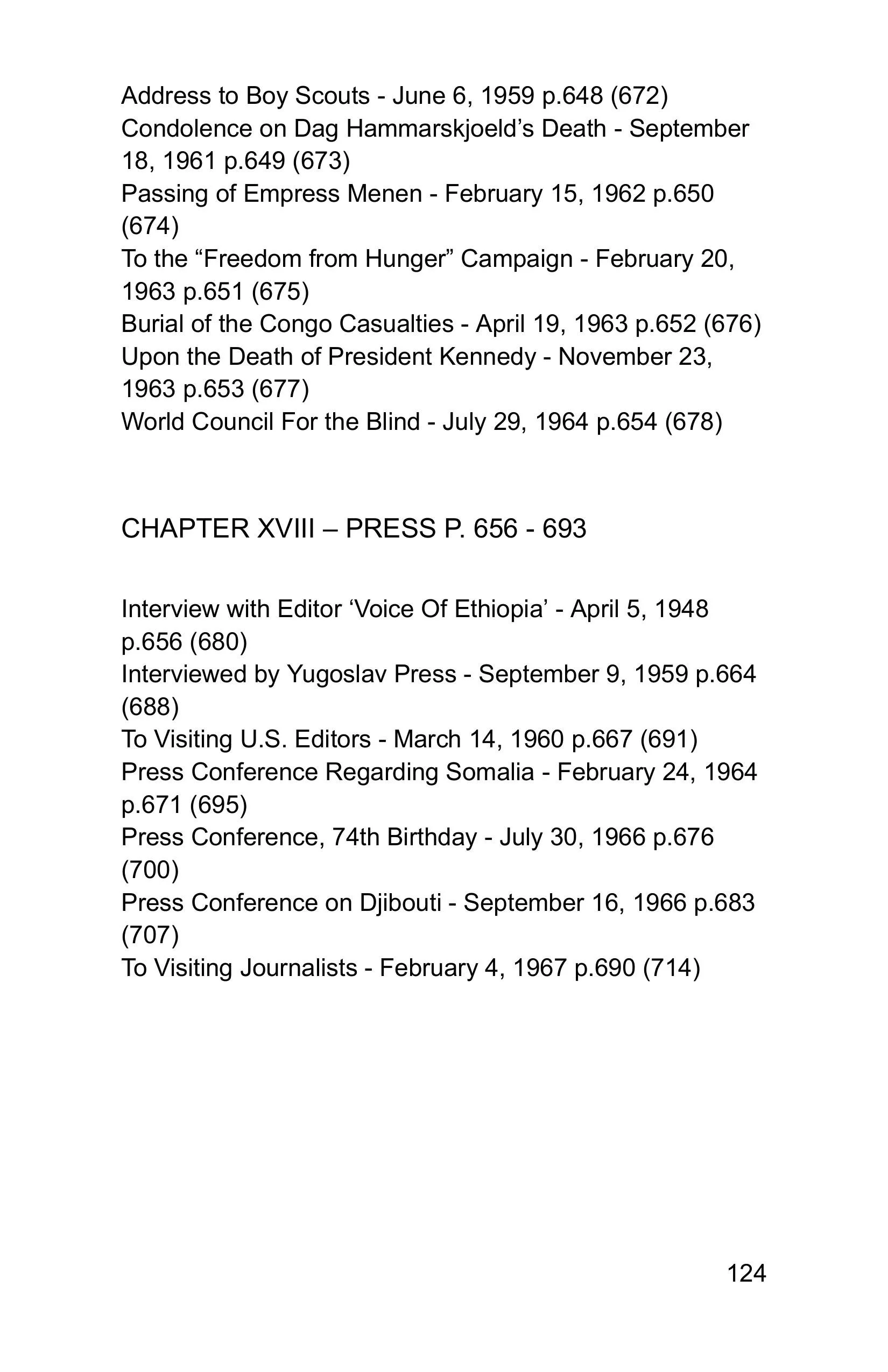
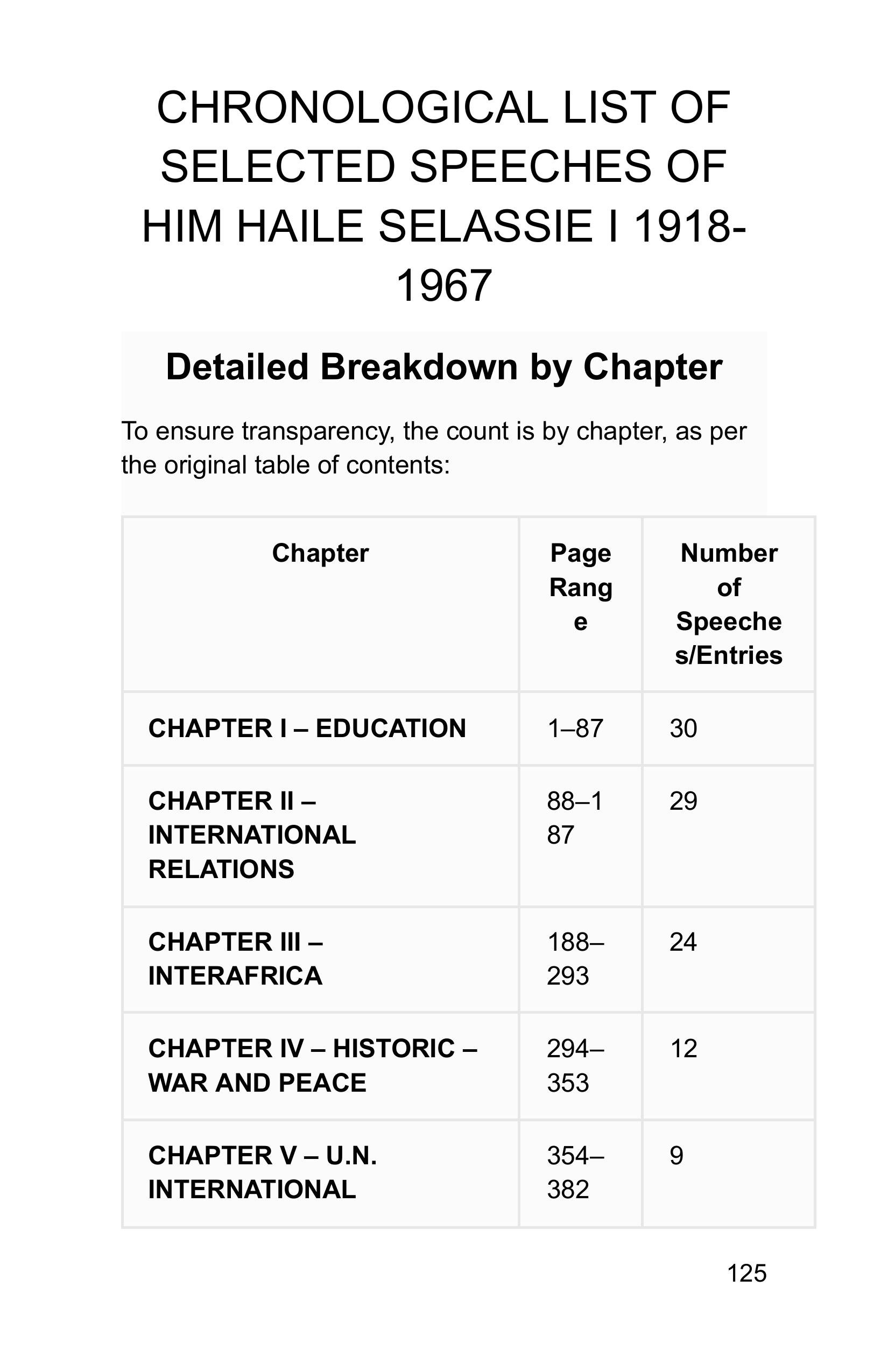
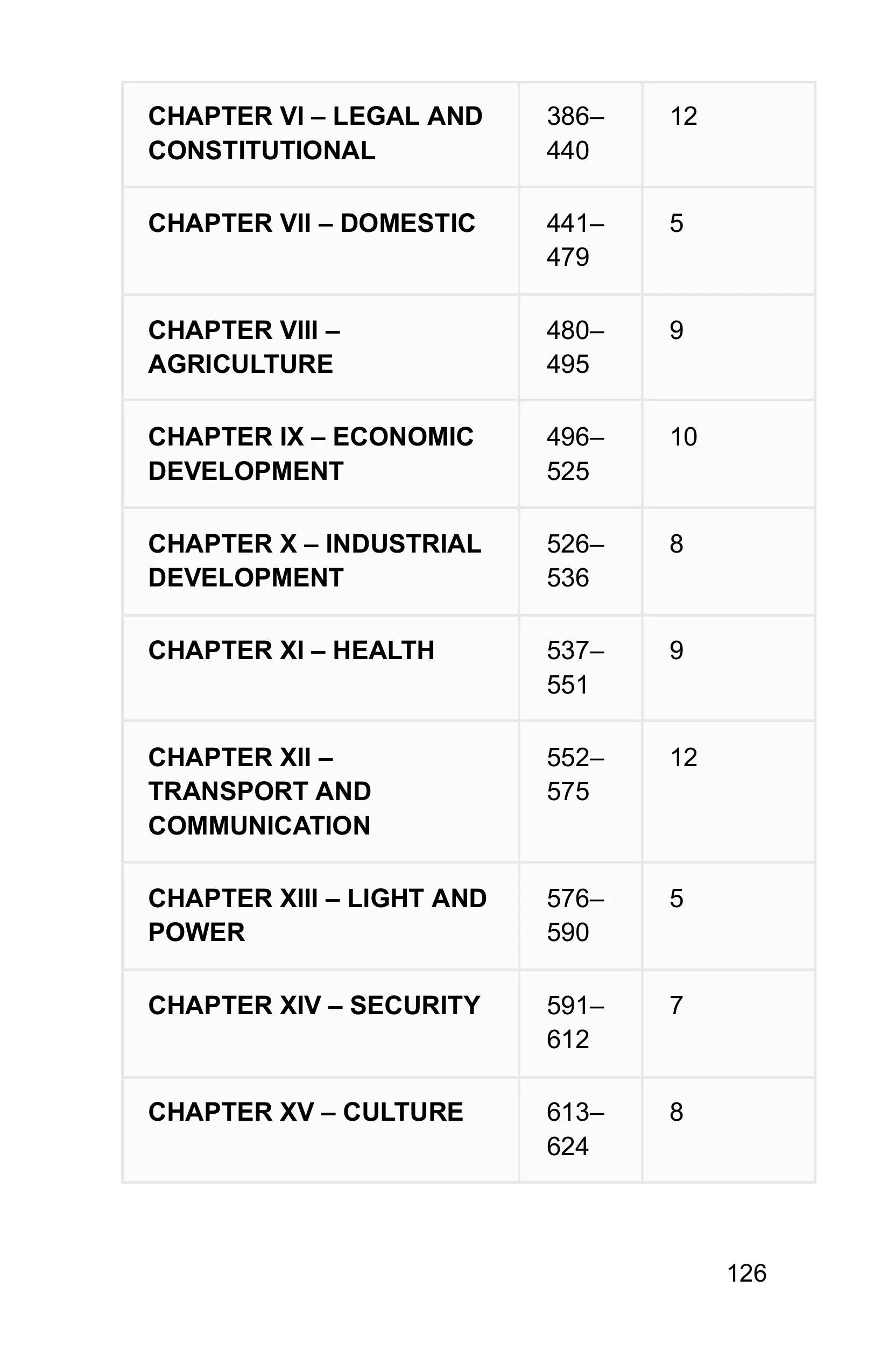
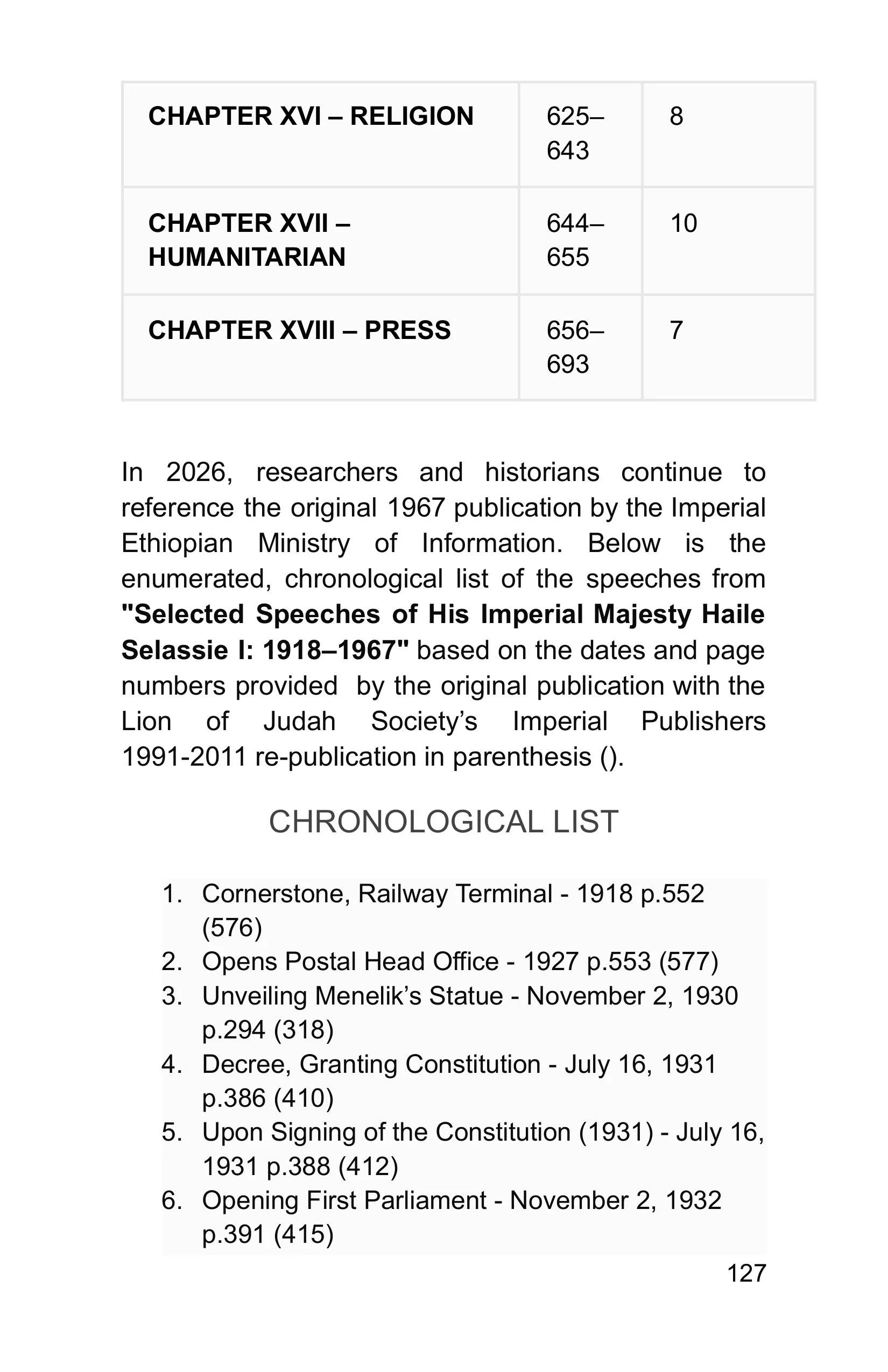

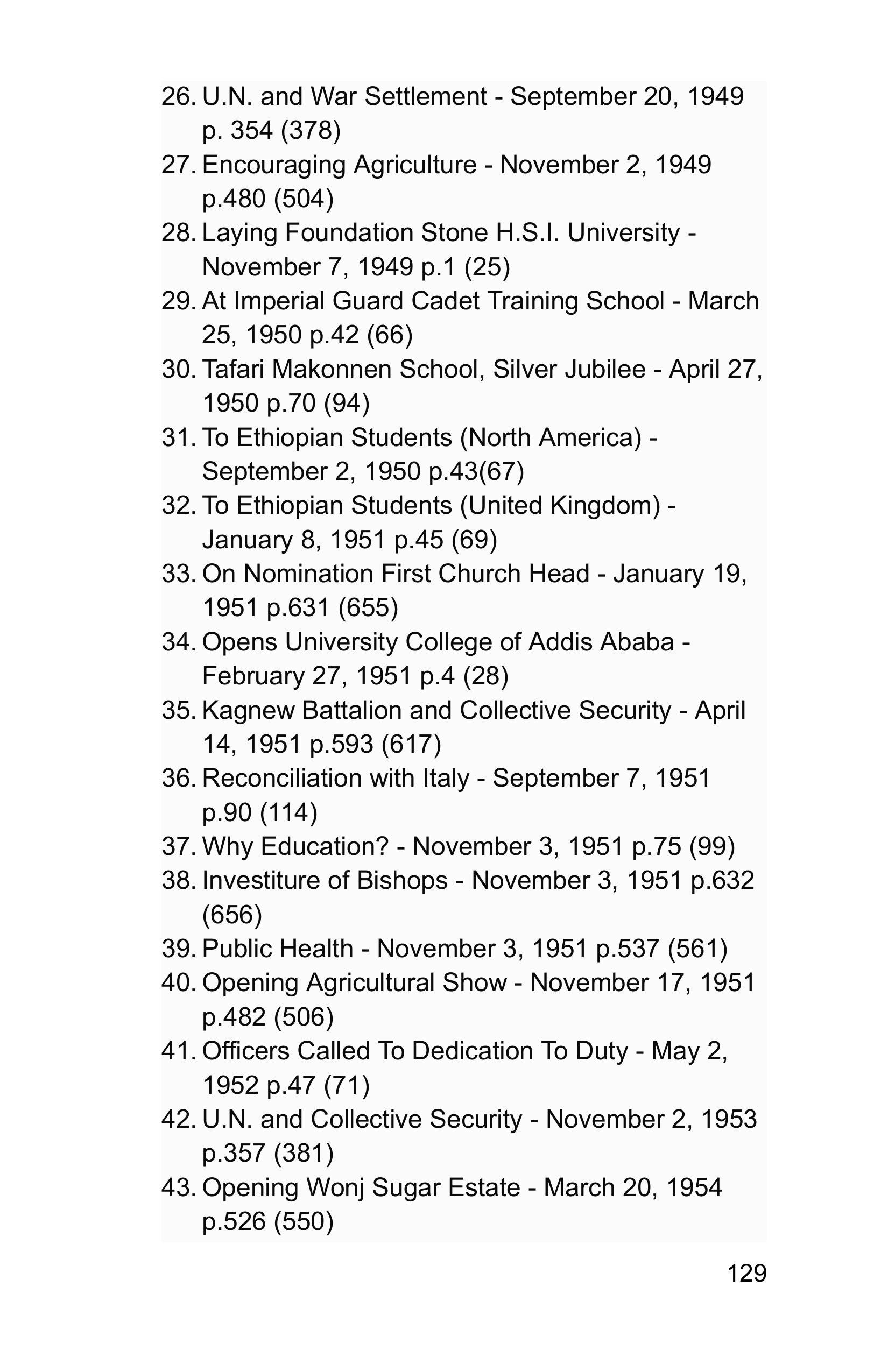
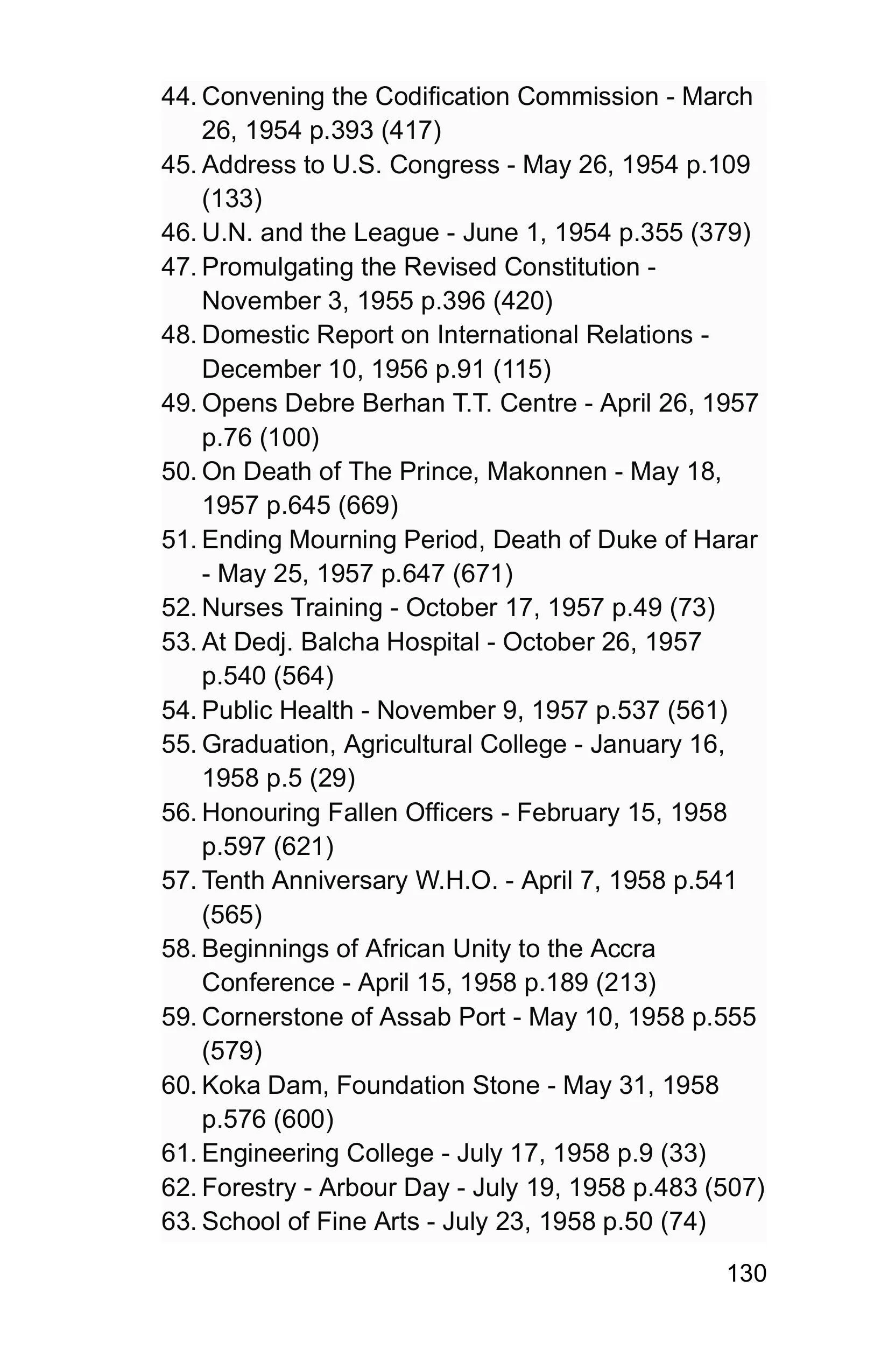
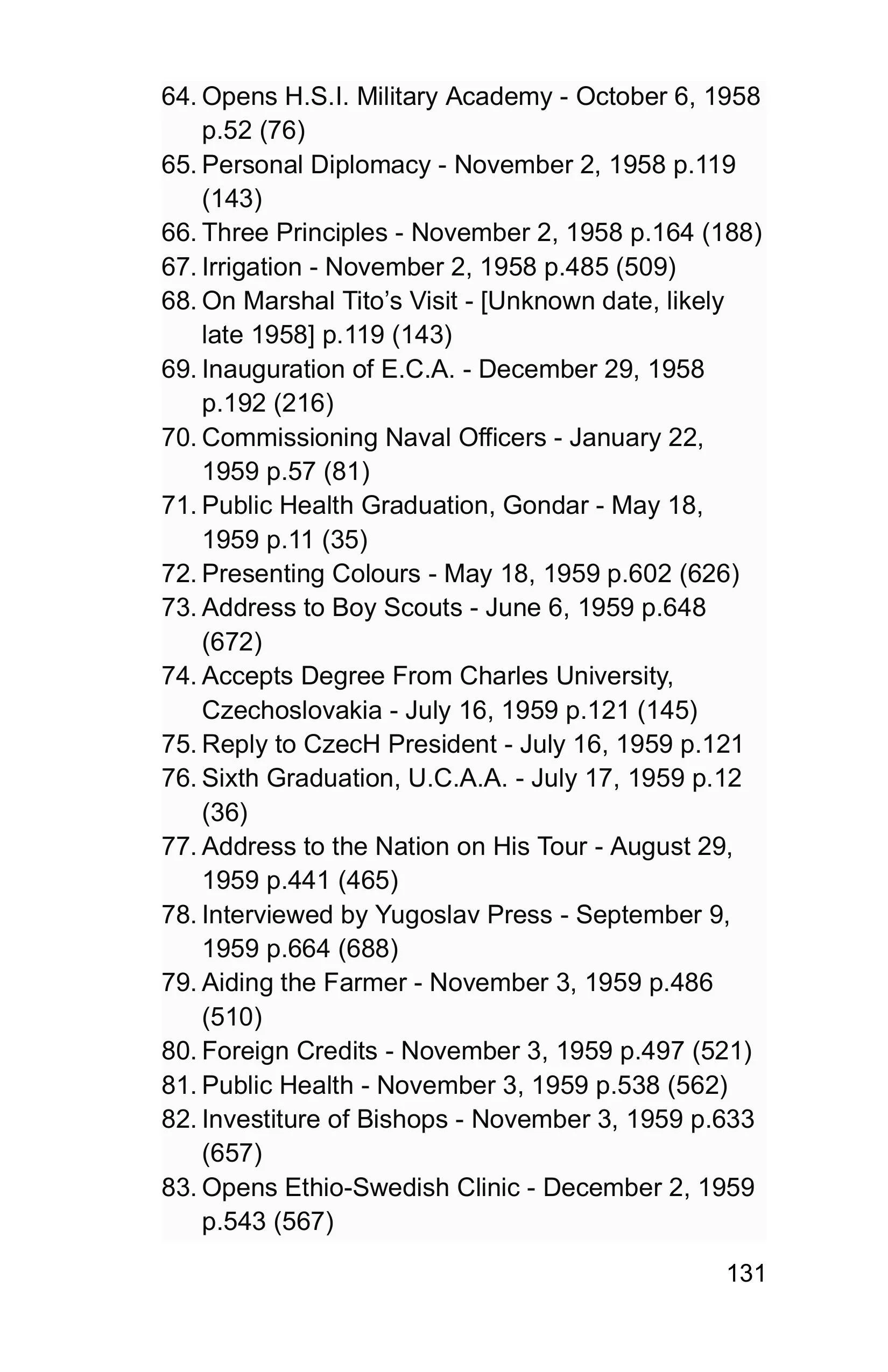
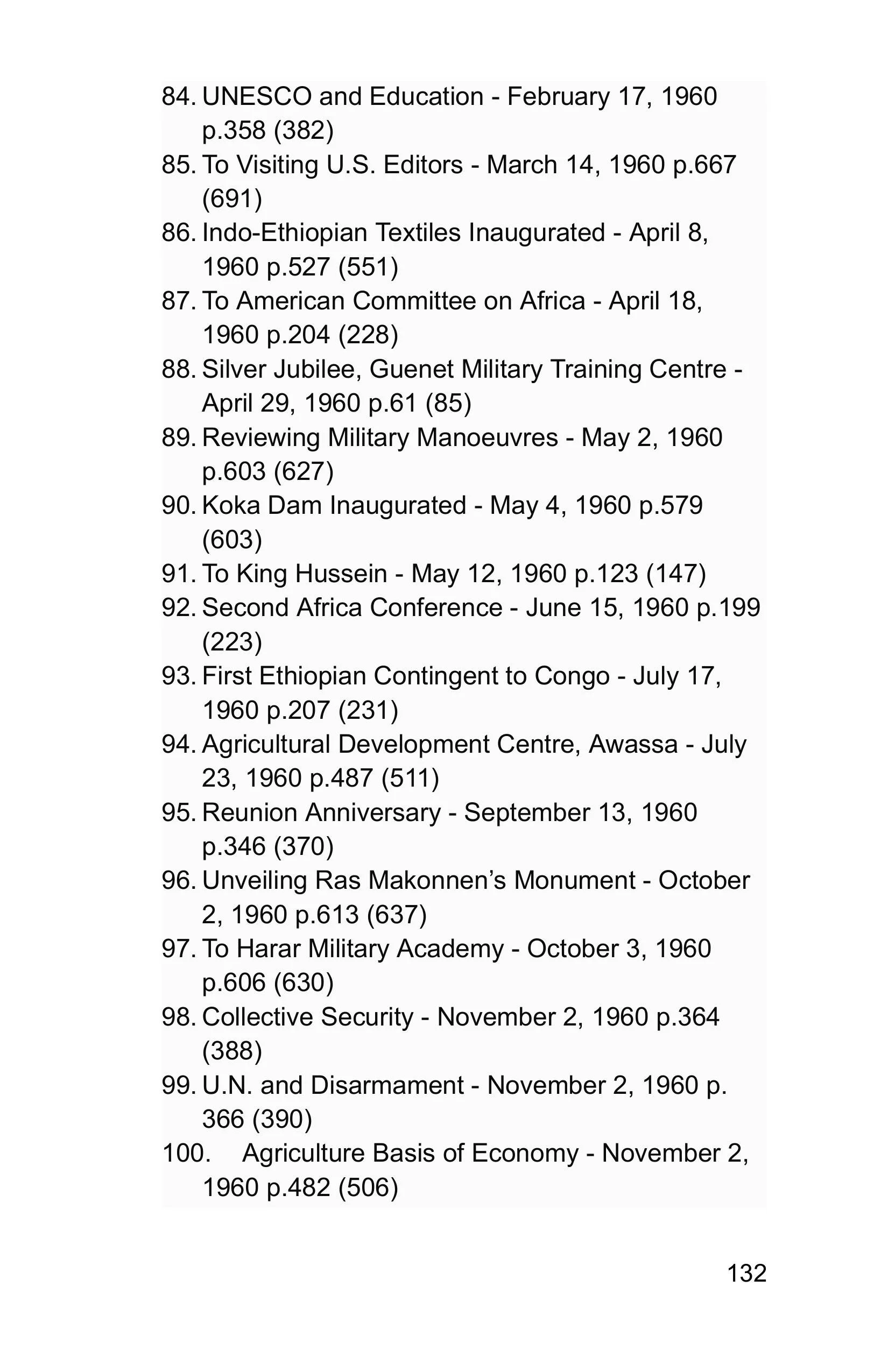
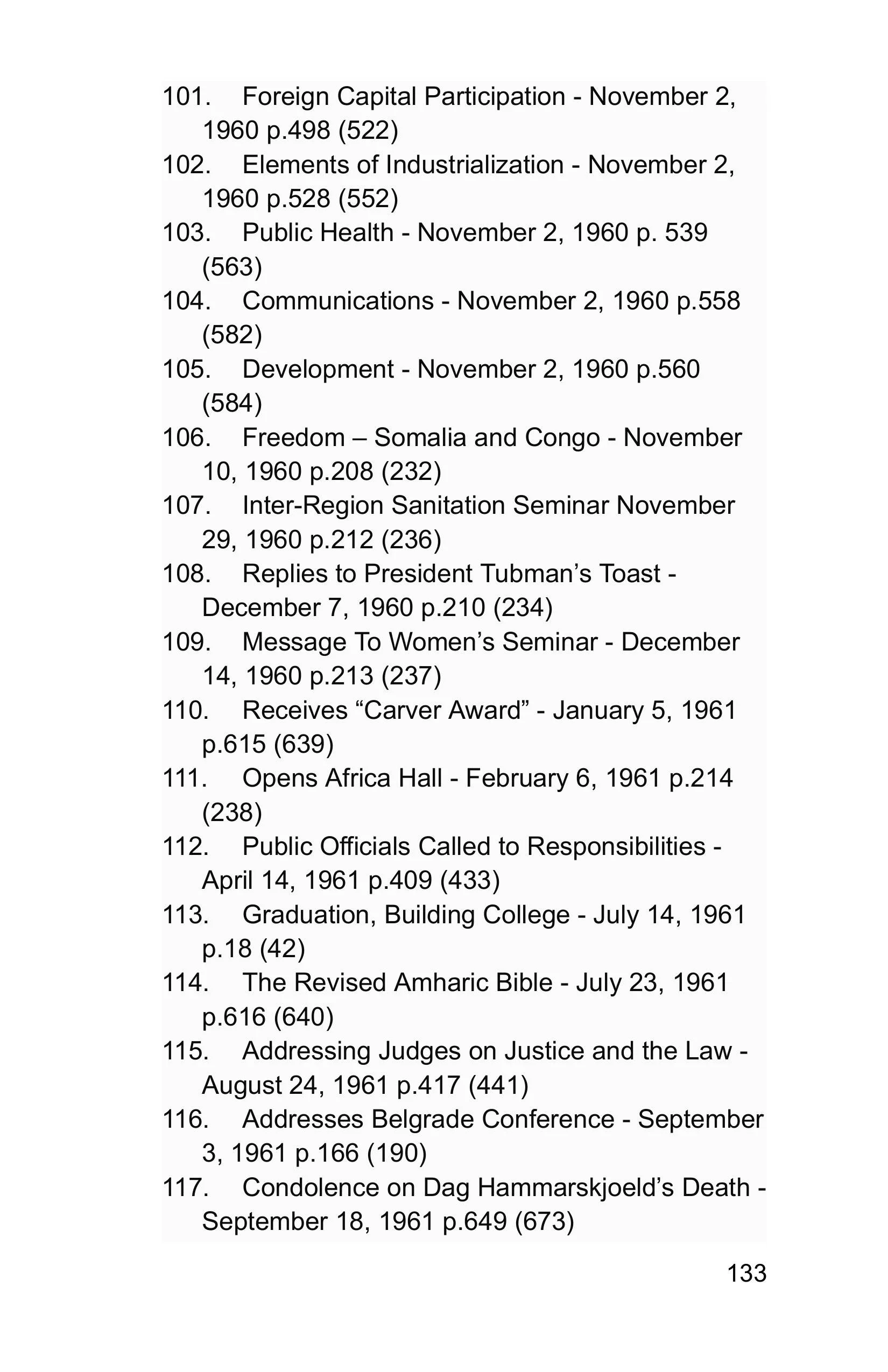
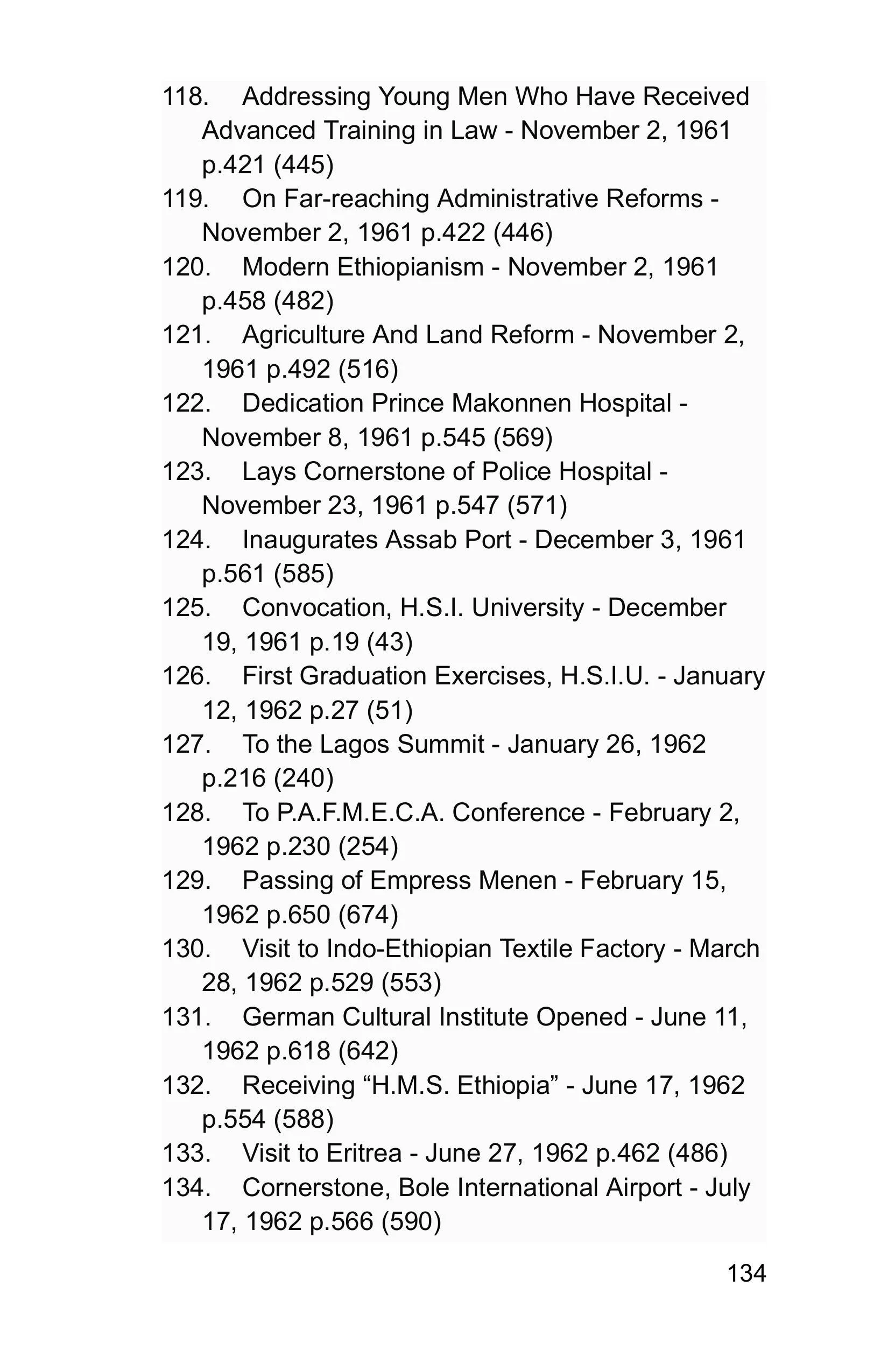
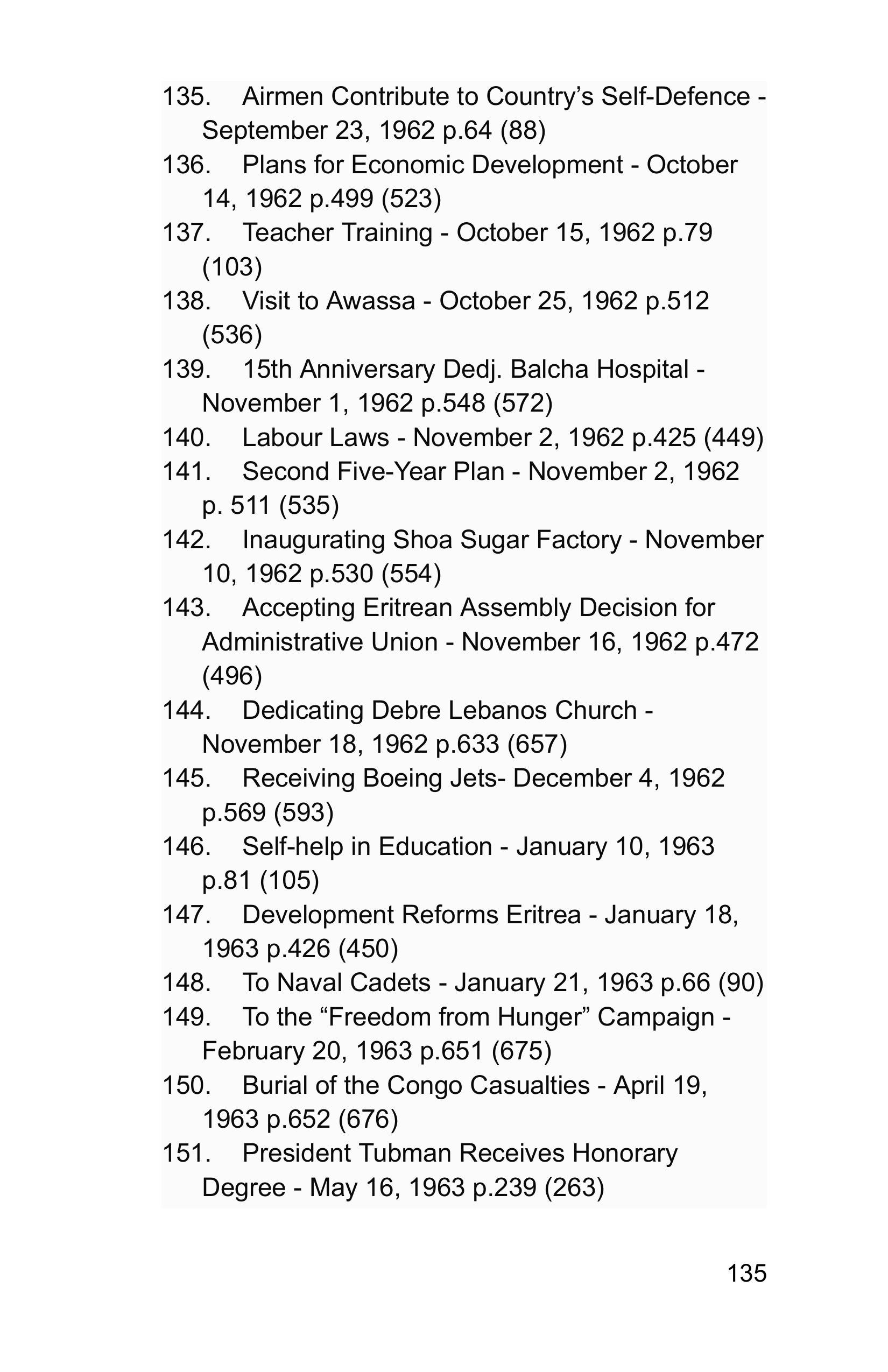
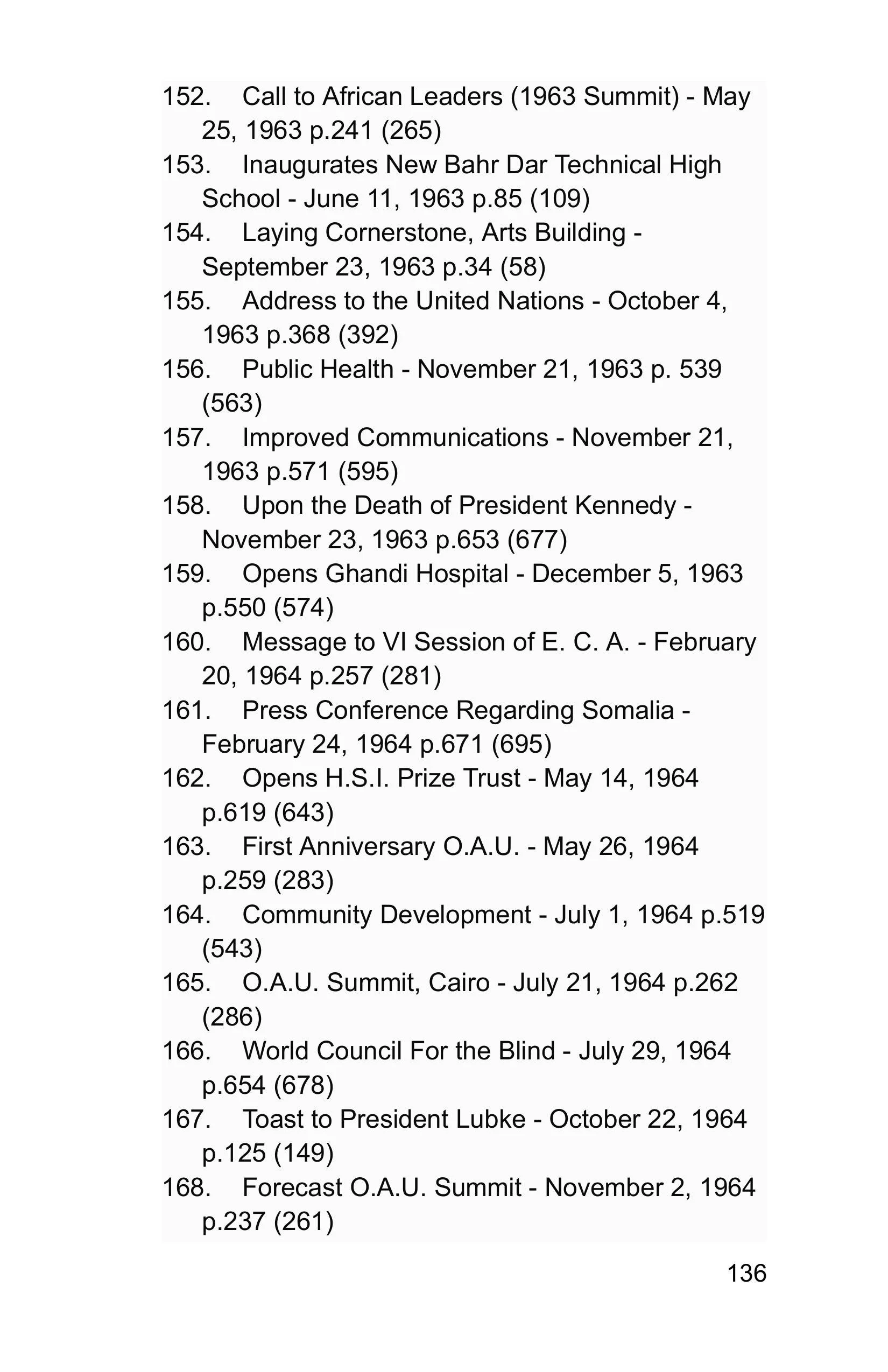
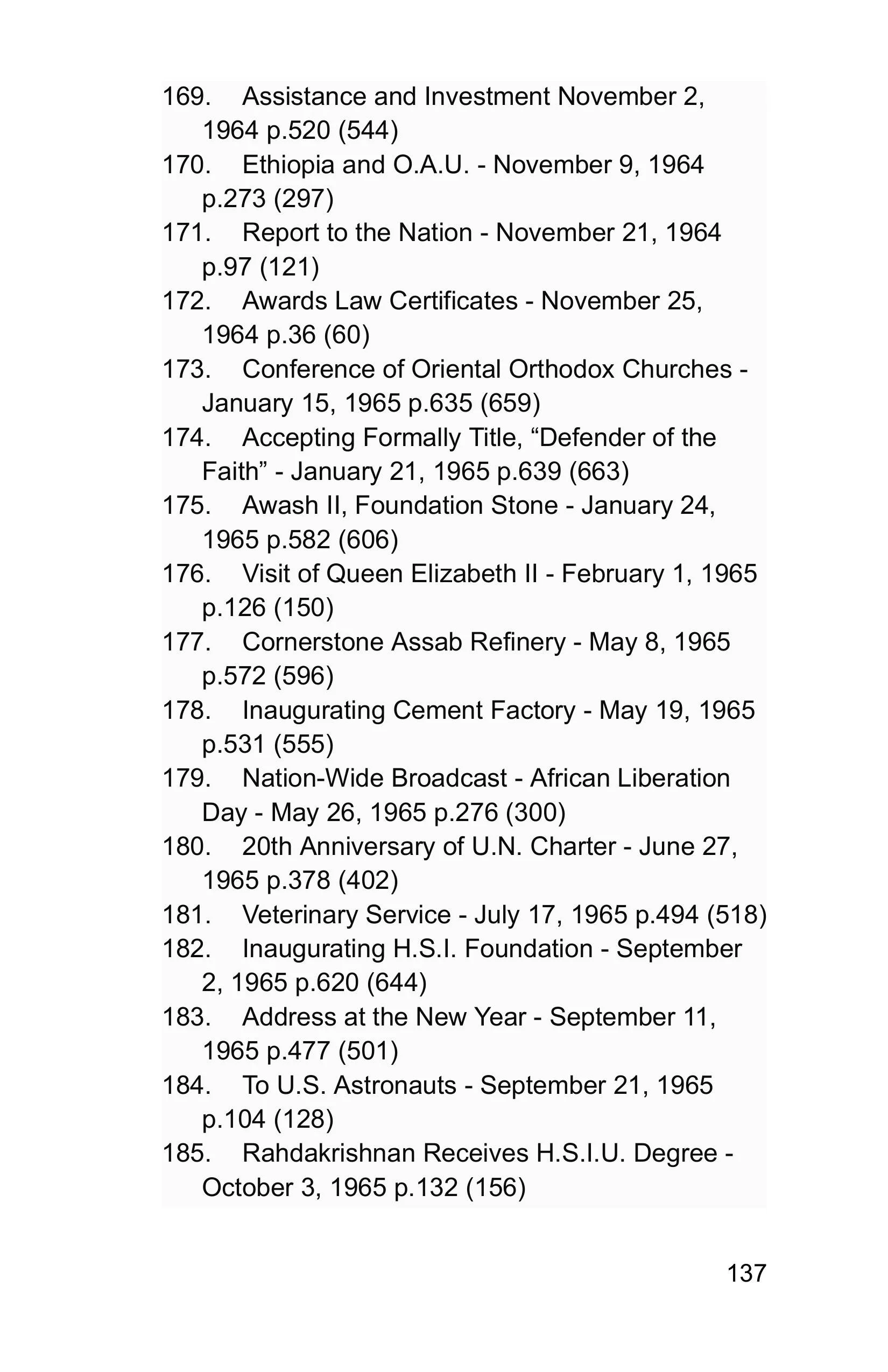
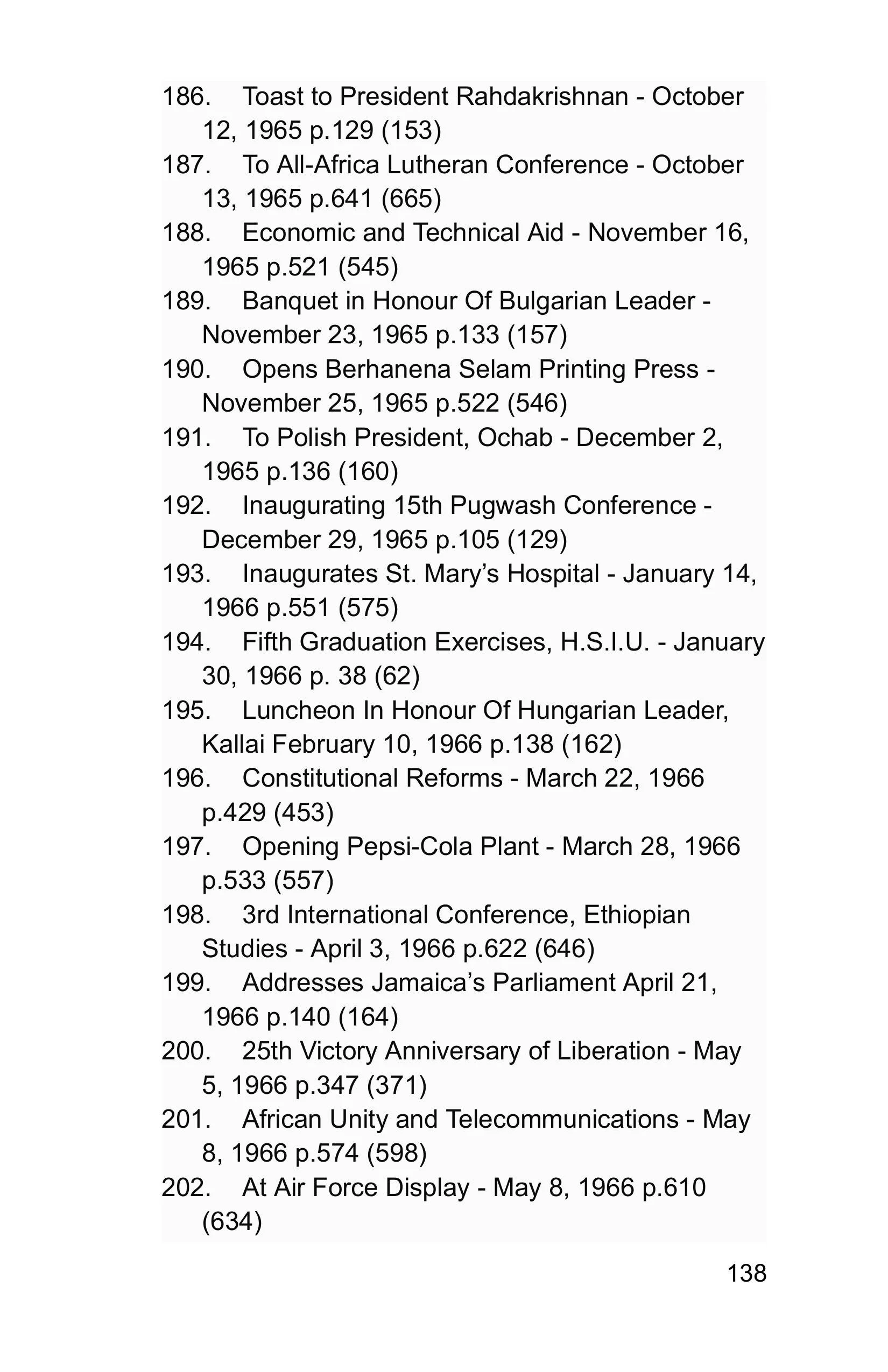
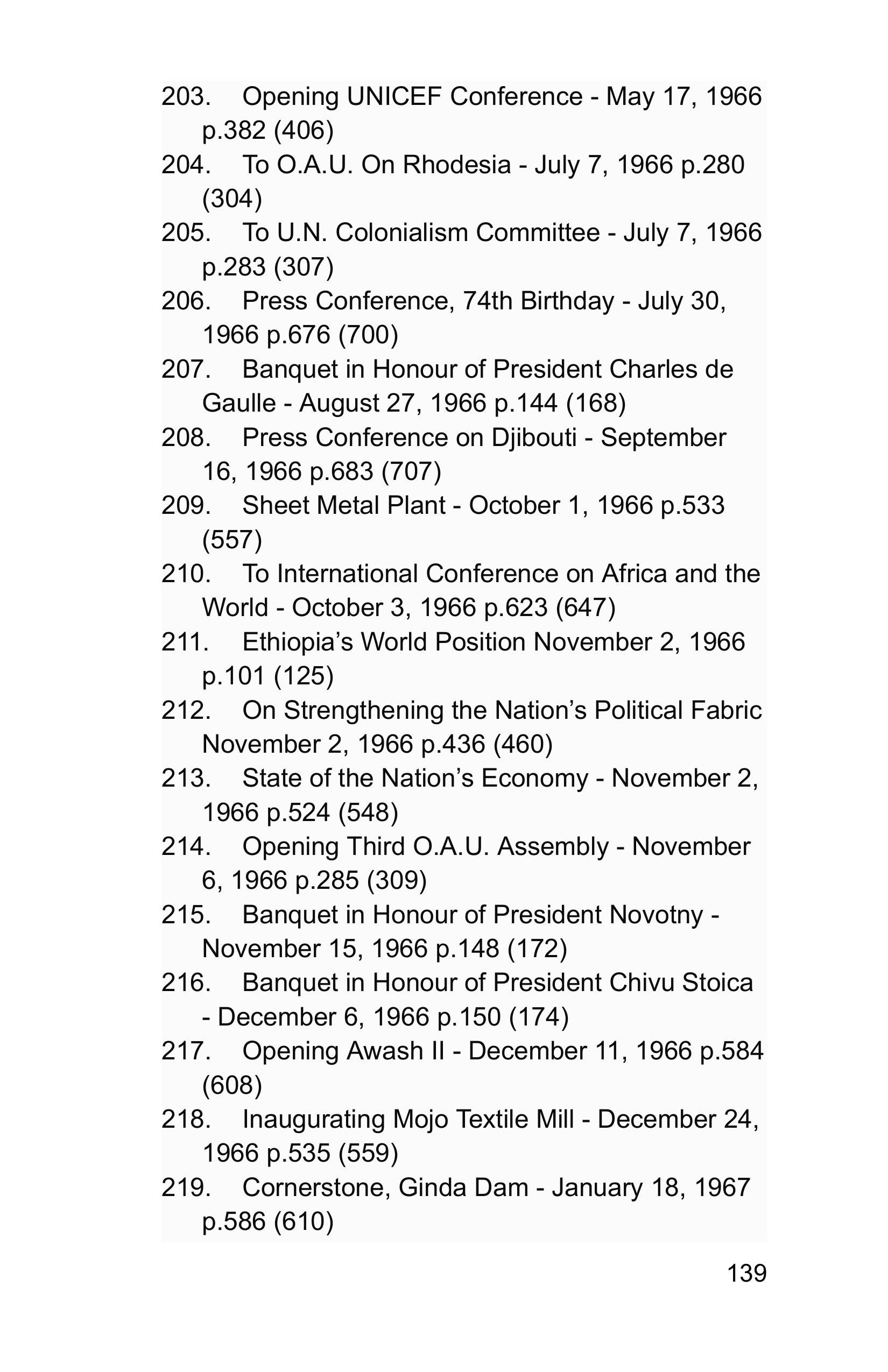
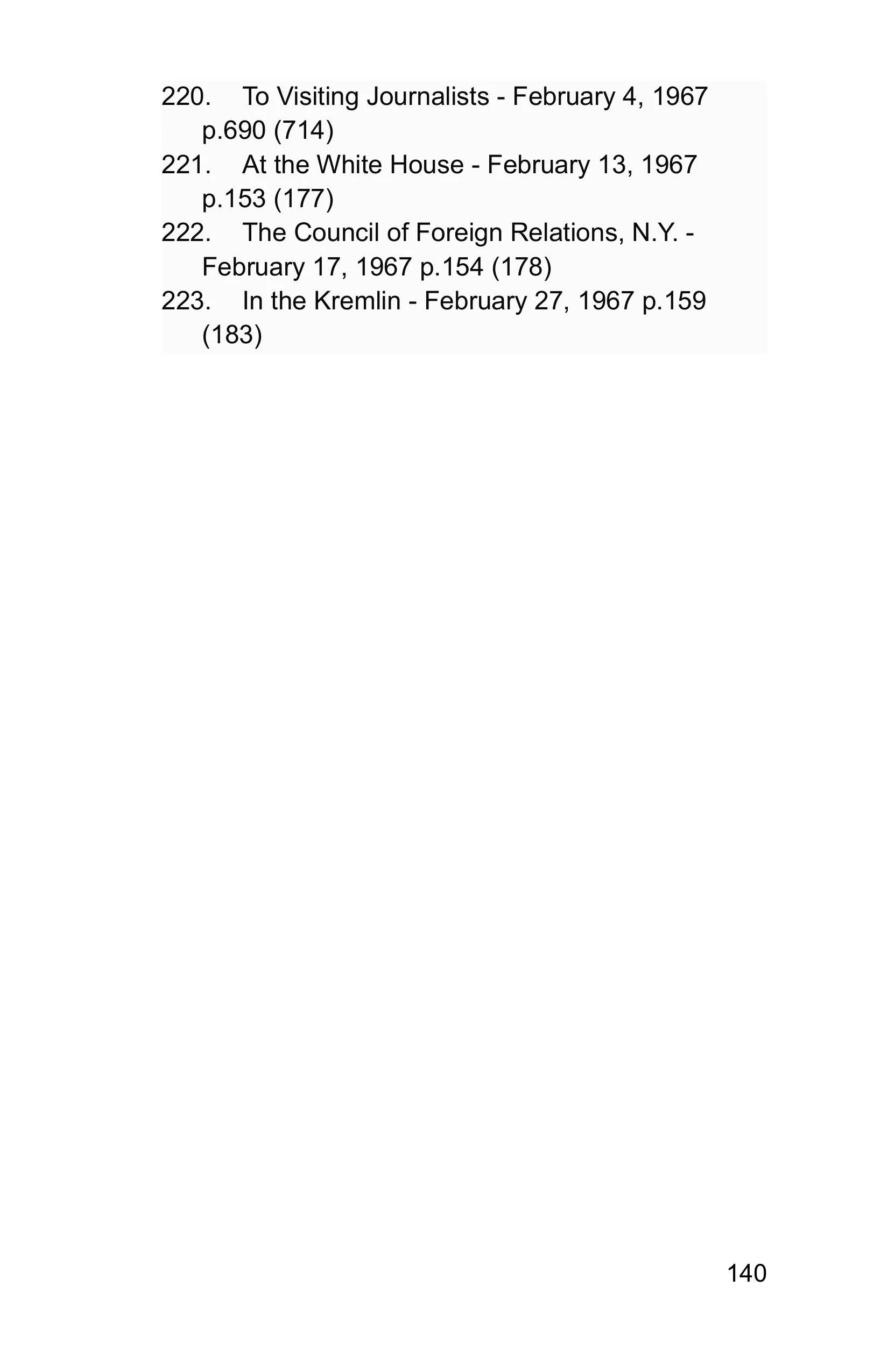
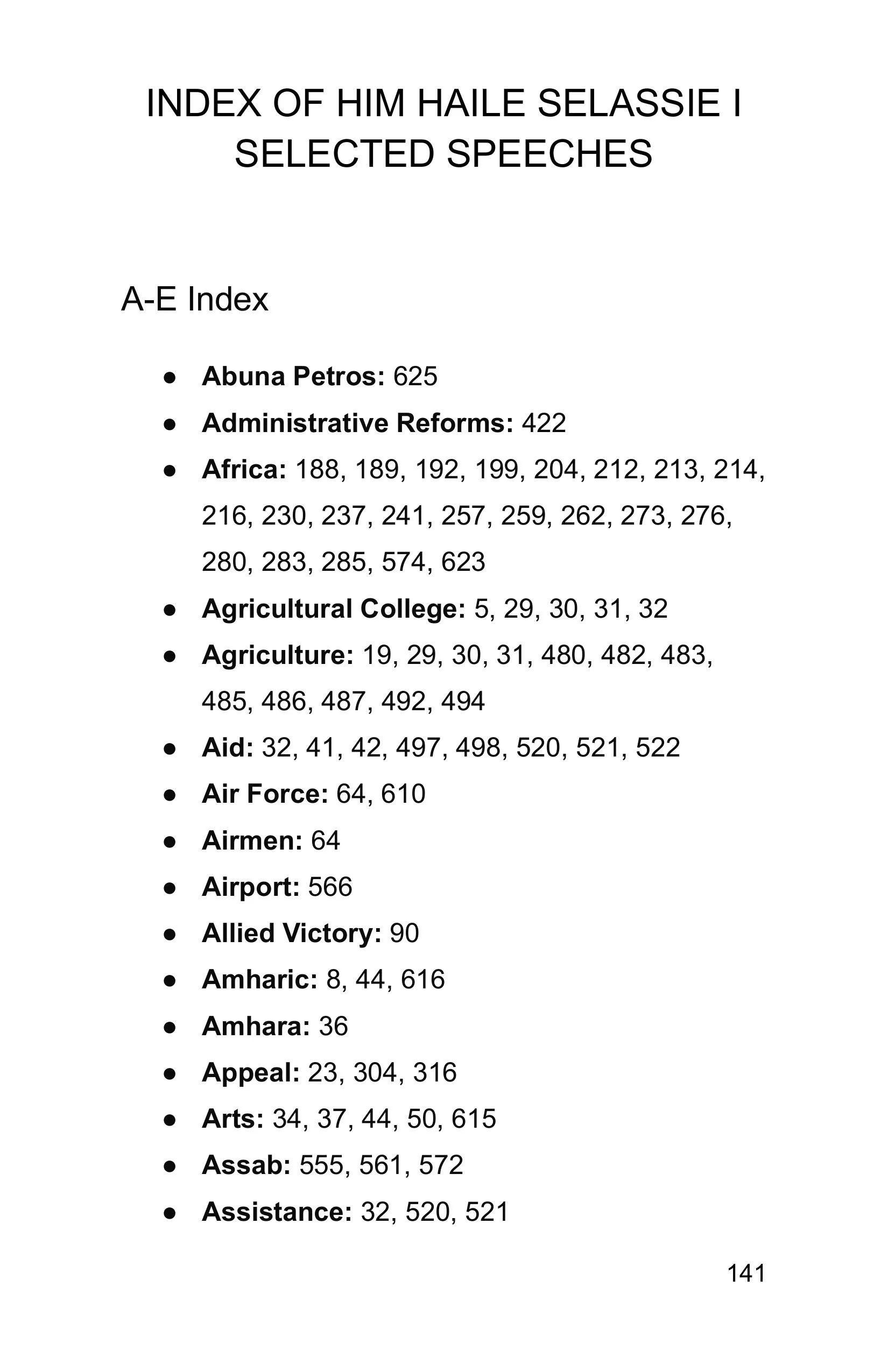
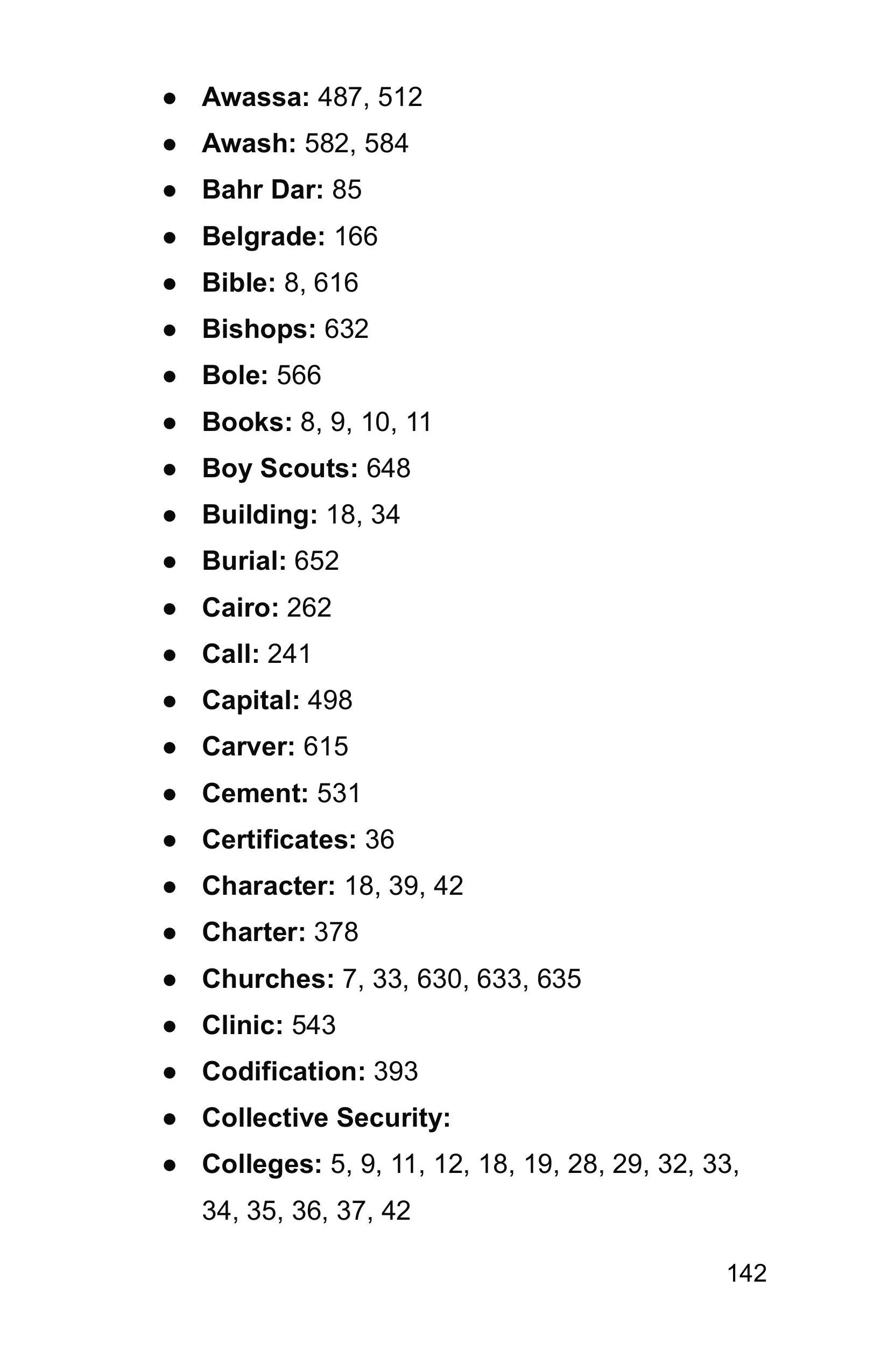
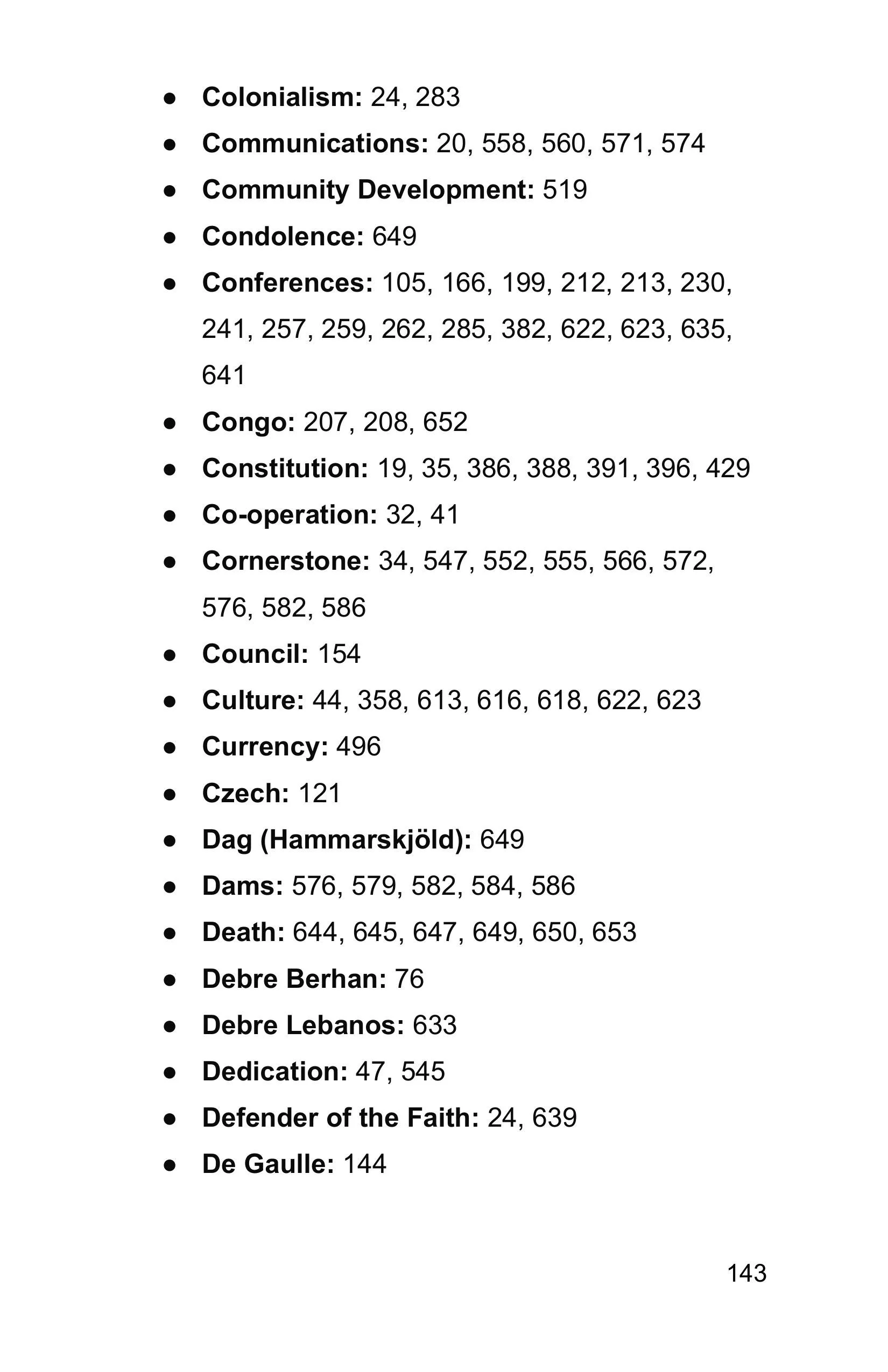
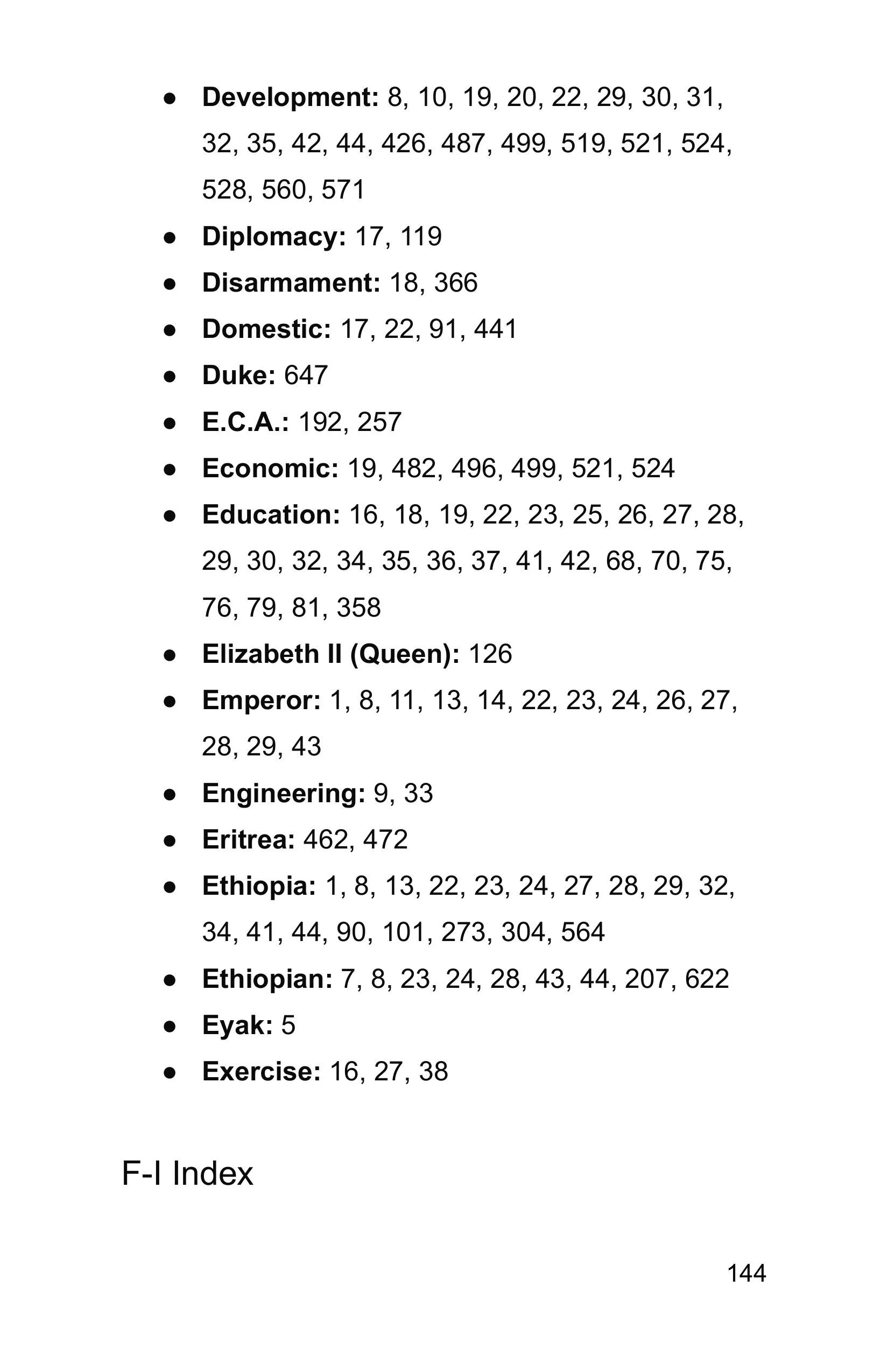
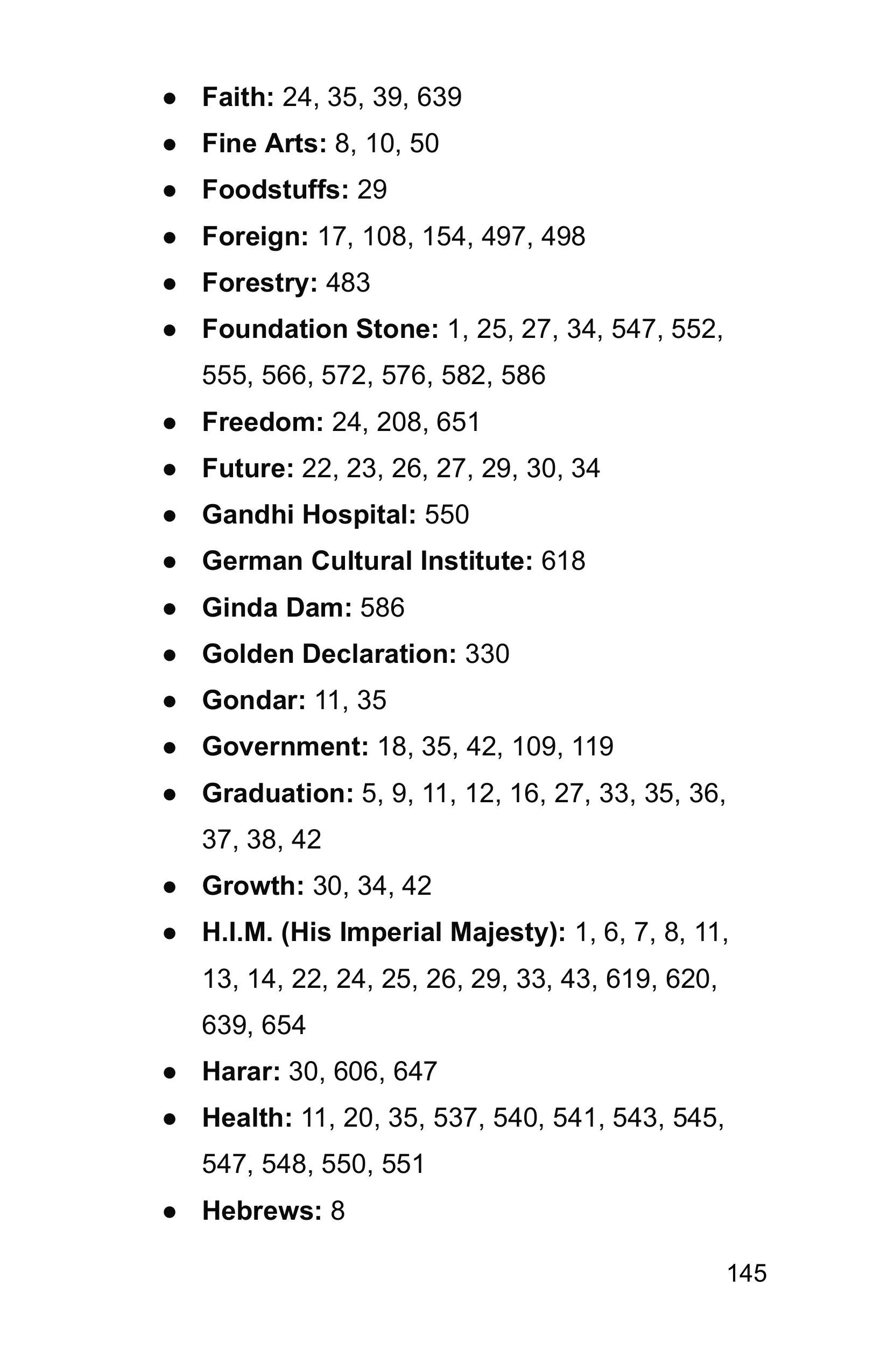
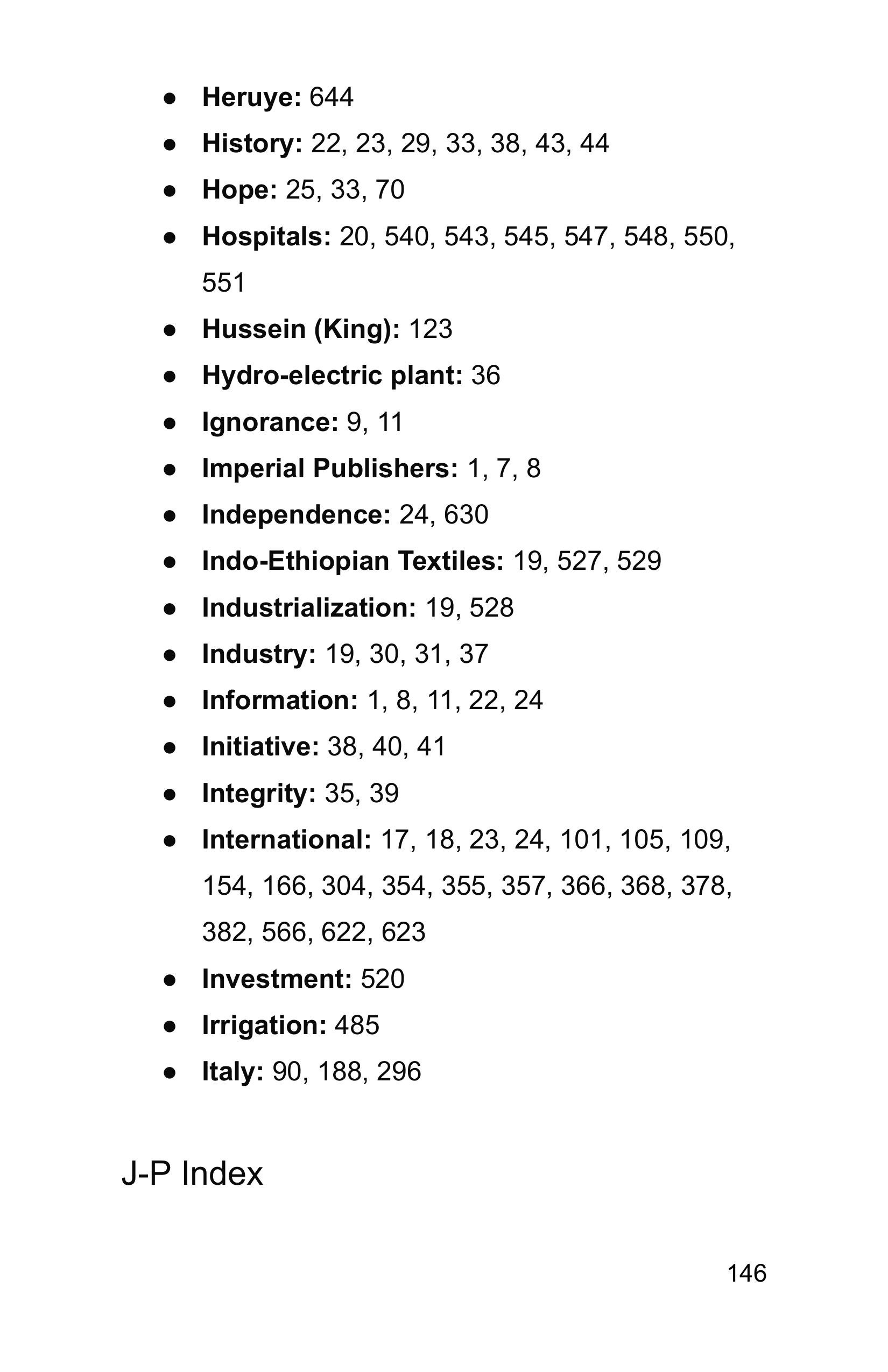
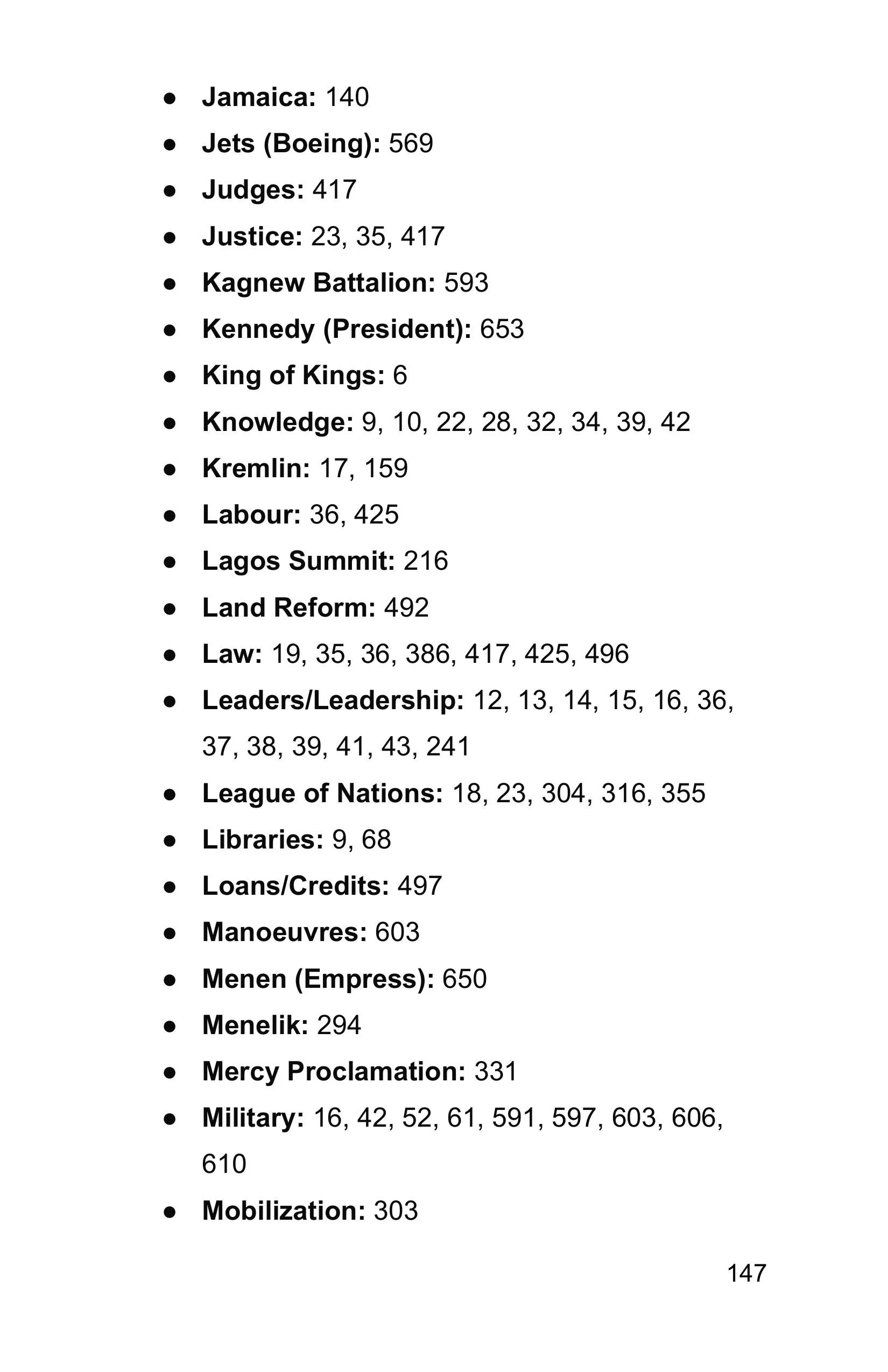
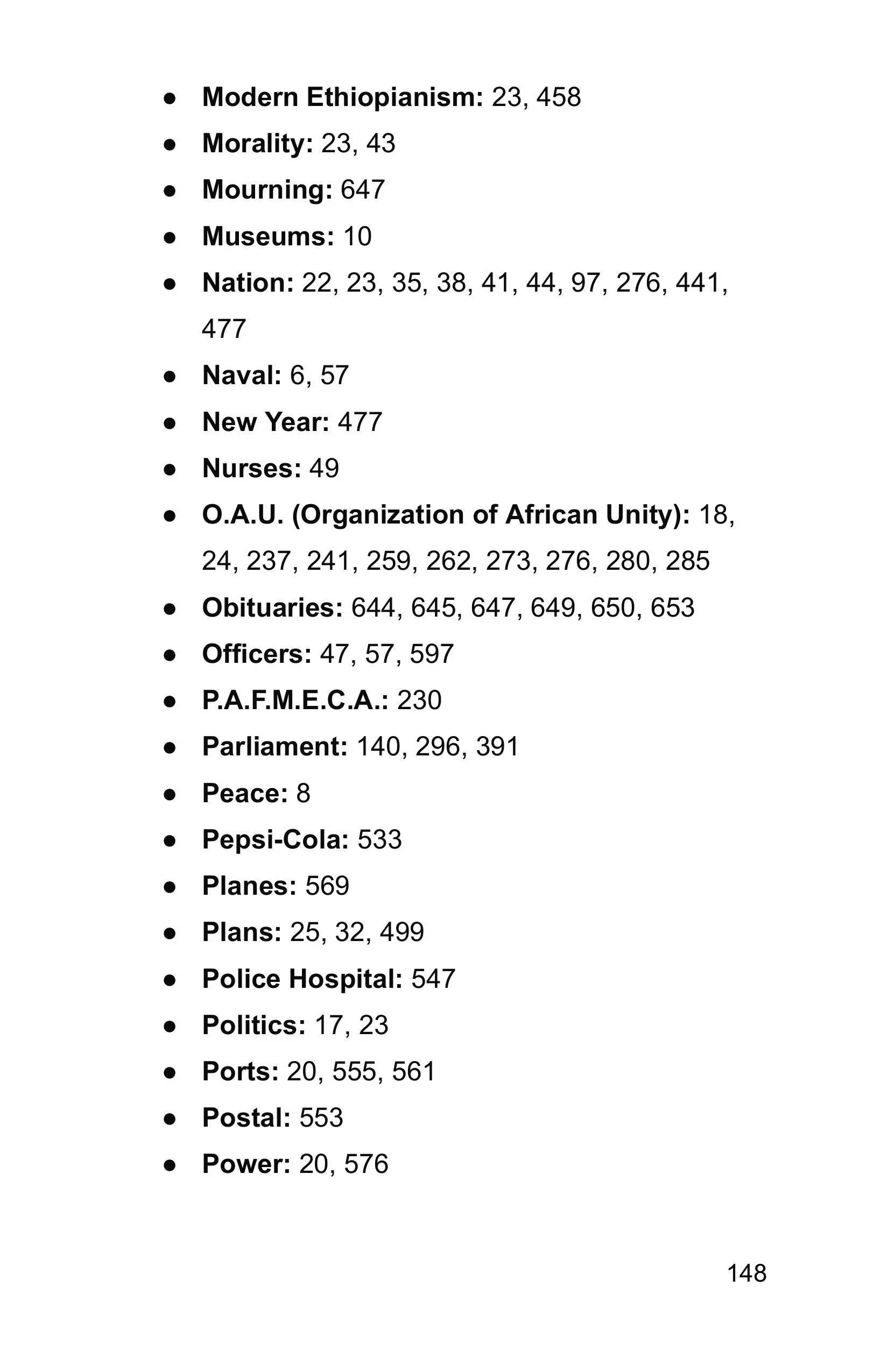
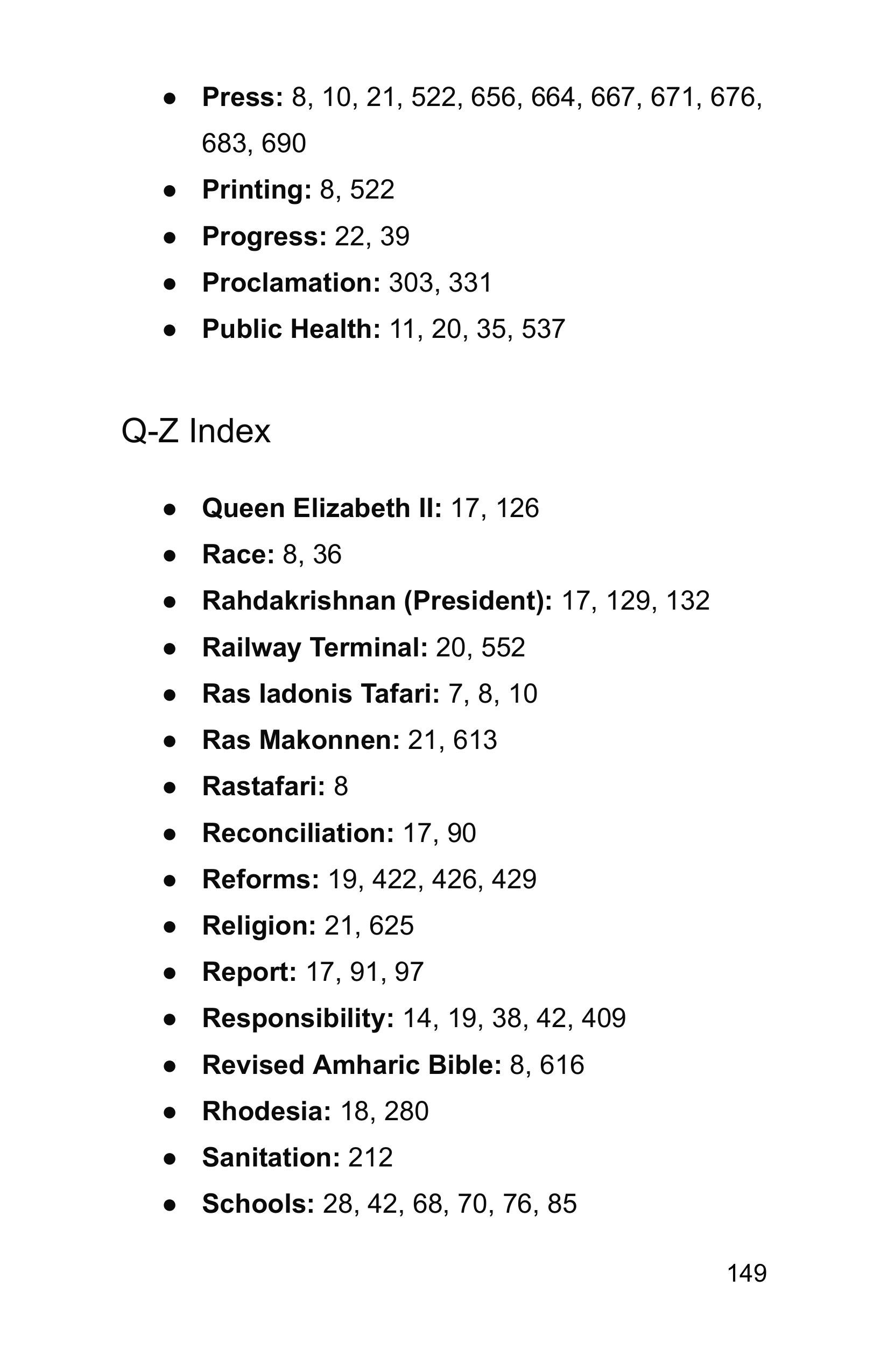
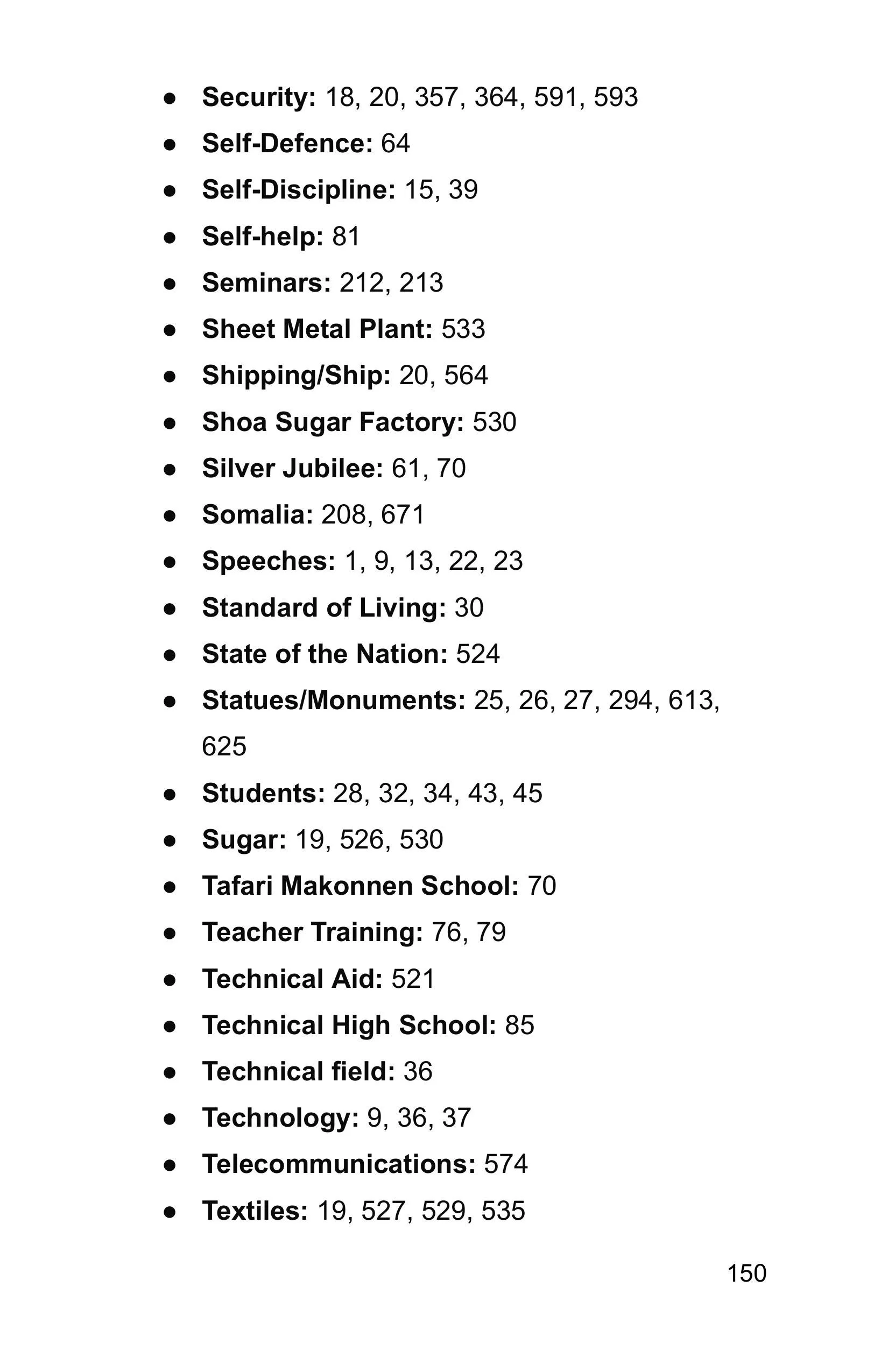
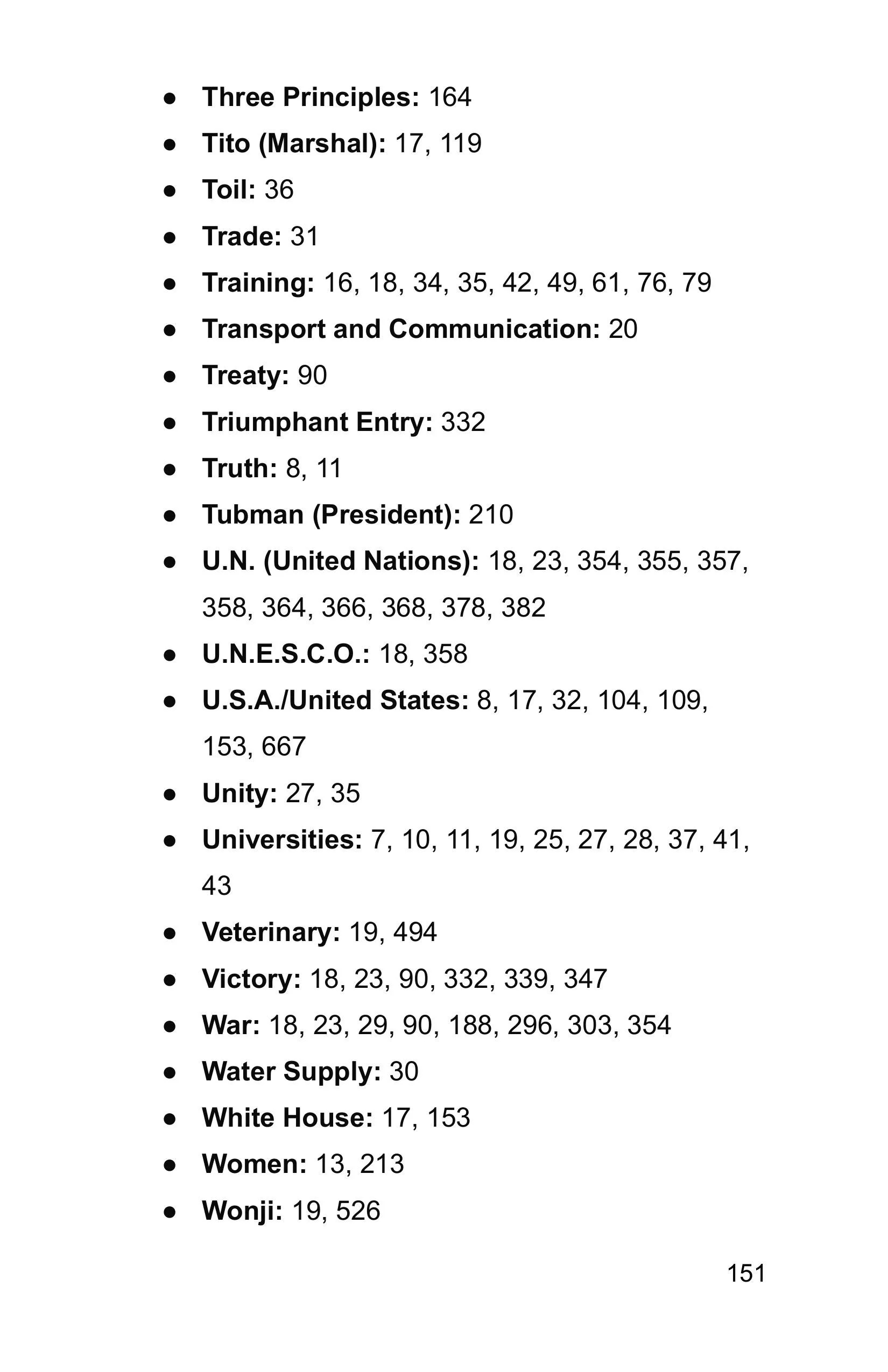
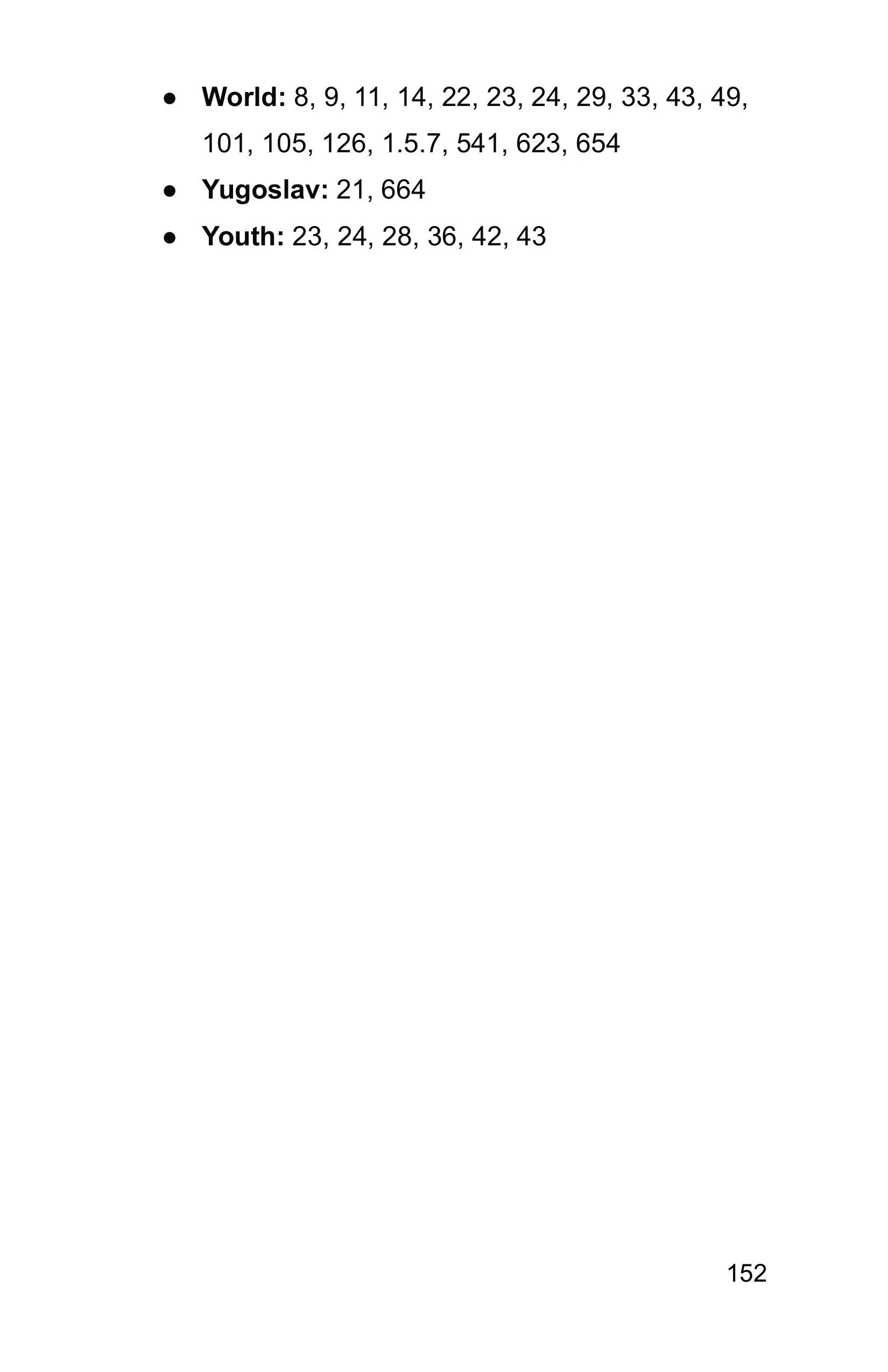
Preparing for the Coming Situation in Guinea Bissau as IMF and World Bank Cut Off Funding - the Dafana Institute/QuitaCare Quebo School Project in the Southern Tombali Region
CLICK TO DONATE: https://gofund.me/4df492781
Yesterday, on January 16, 2026, the International Monetary Fund (IMF) announced that it is "reassessing" its financial assistance program to the country, which could jeopardize the next disbursement of $3.2 million. This follows the World Bank which suspended all operations and financing to Guinea-Bissau this week. This is in response to the coup in which the illegal Military High Command seized power in order to stop President-Elect Fernando Diaz from being officially declared the winner and inaugurated as President. The illegal Military High Command suspended the Constitution and all institutions while kidnappings, illegal detention and brutalization against the peoples’ leaders continues.
With World Bank and IMF funds halted, along with other sanctions and consequences, the Guinea Bissau people are preparing for more hard times to come. Already salaries aren’t being paid, people are losing businesses and jobs, and both social and food insecurity is going to increase.
The Balanta B’urassa History and Genealogy Society (BBHAGSIA) is therefore redoubling its efforts for both emergency relief and long-term stability through its Dafana Institute - QuitaCare Quebo School Project in the southern Tombali Region.
BBHAGSIA member Felicia Brewington started the fundraising for the project on March 2, 2024. Sixty-two (62) donations totaling $17,184 (of the $25,000 goal) were received which allowed for three-quarters of the school’s construction to be completed. Mrs. Brewington was unable to continue the fundraising and the project came to a halt.
Another BBHAGSIA member, Desiree “N’namna” Carpenter resumed the fundraising on November 13, 2025 after her visit to Guinea Bissau. Another 19 donations totalling $1,471 were received making the total for the project $18,655
The Project Director, Daniel Nabicamba, called me this morning explaining that the Quebo Community is worried about the coming crisis situation. There is an urgent need for the remaining $6,345 to complete the roof. An additional $5000 is also needed to help the community weather the upcoming crisis situation.
I AM APPEALING TO ALL DESCENDANTS IN THE AFRICAN ANCESTRY COMMUNITY TO COME TOGETHER UNDER THE KWANZA PRINCIPLES OF UMOJA (UNITY), UJIMA (COLLECTIVE WORK AND RESPONSIBILITY) AND UJAMAA (COOPERATIVE ECONOMICS) TO BE A BLESSING TO THE QUEBO COMMUNITY IN ITS EFFORTS TO SOLVE ITS PROBLEMS.
There are 15,000 members in the AfricanAncestry.com Online Community (AAOC). If each person gave just $5, that's $75,000. All that is needed then to raise the $11,345 is just 15% of the AAOC to participate and contribute $5.
Let us once again, show the value of the African Union 6th Region’s ability to contribute to Africa’ Development, as AA Co-founder Gina Paige discussed in her speech at the 9th Pan African Congress in Lome, Togo and specifically mentioned the Balanta people.
This Quebo school fundraiser addresses both the immediate short term need as well as the long term food sovereignty and self-reliance goals since it is a primary school for both boys and girls. The school site will be made up of 12 classrooms, 2 faculty offices, and multiple laboratories for computers, science, and language. The school will have a performing arts center, a canteen, restrooms, and storage areas while serving as an agricultural development center.
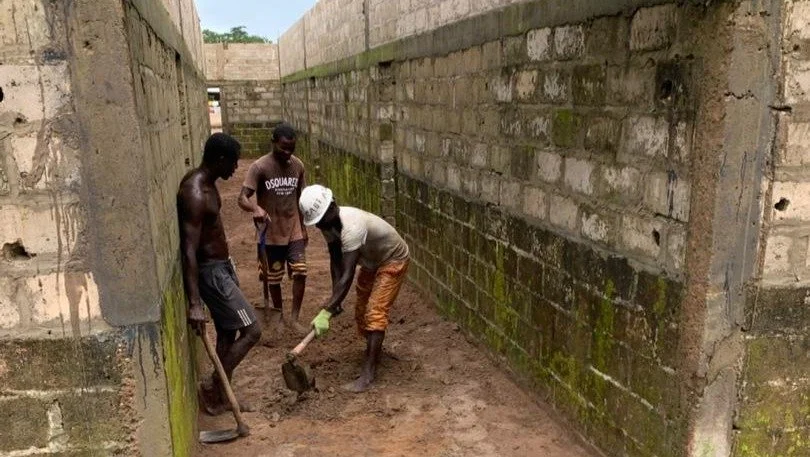
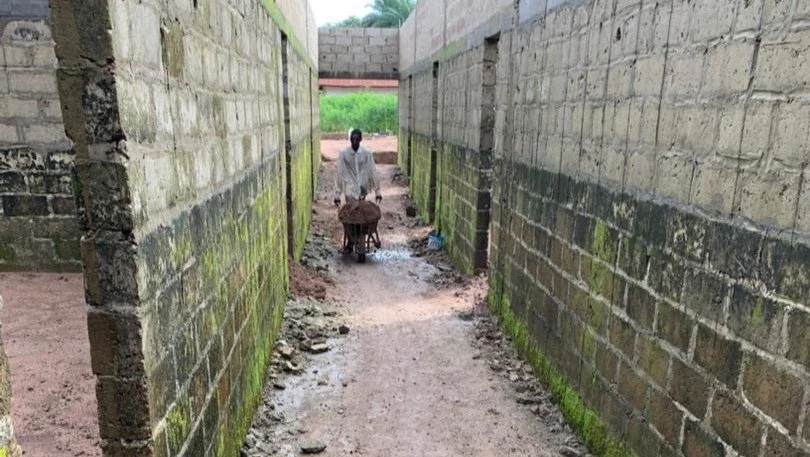
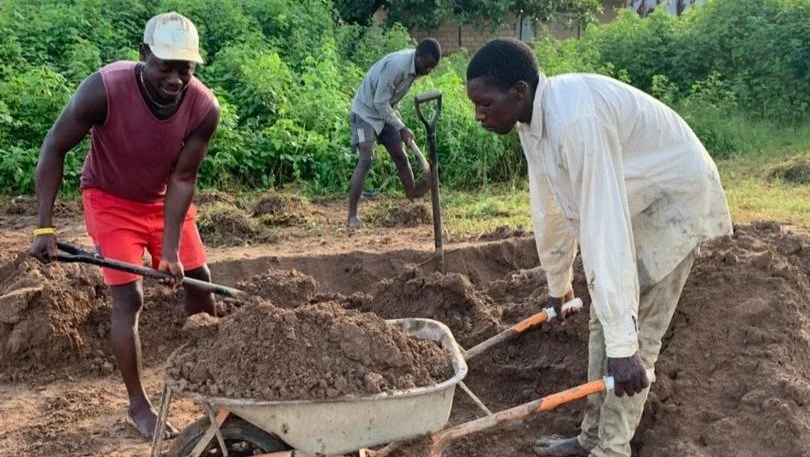
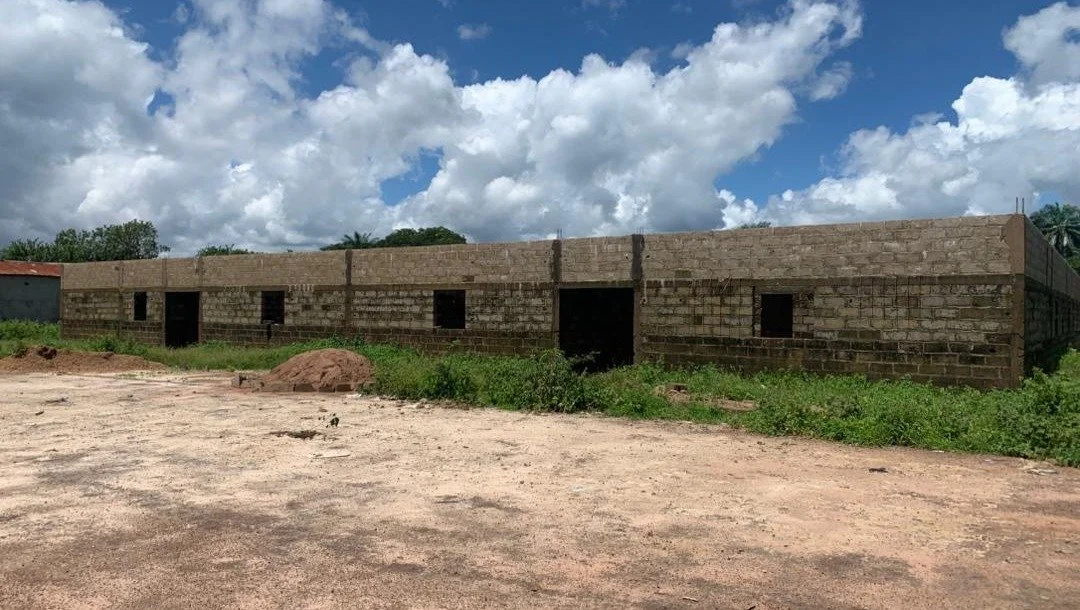
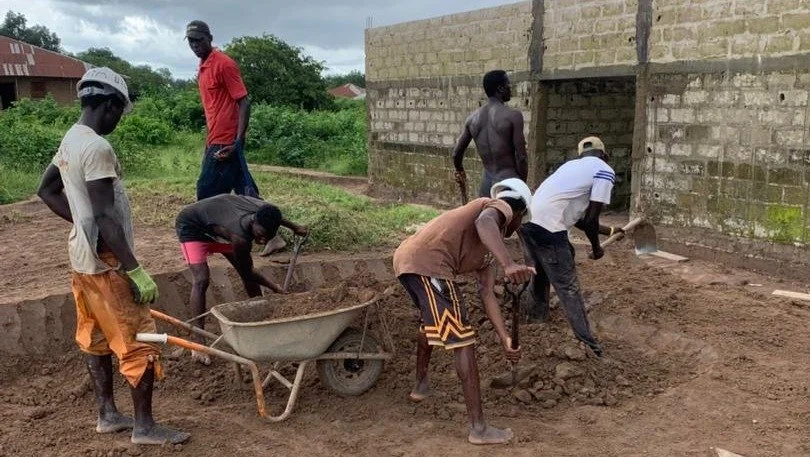
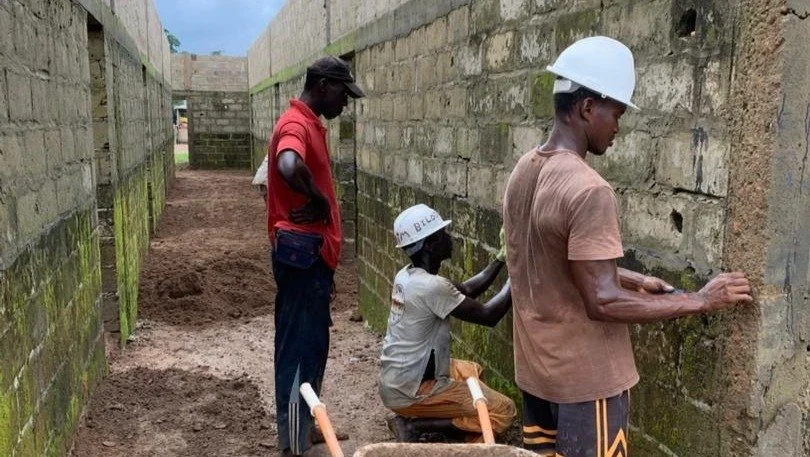
Walls are completed. Money needed now to complete the roof!!!
***********************************************************************************
To truly understand the context of the situation in Guinea Bissau, read my article CURRENT STATUS OF GUINEA BISSAU: A REVIEW OF RELEVANT STATISTICS discussing the economic and (under) development situation in Guinea Bissau. Since then I also published articles on the agricultural situation based on cashew mono-mercantilism; the ongoing soil erosion problem, the chronic food insecurity problems, and the sports landscape.
Balanta Society in America Republishes Dr. Kumba Yala's Book, Political and Philosophical Thoughts Volume 1, to Commemorate the 26th Anniversary of His Historic Presidential Election
Bissau, January 16 - Today marks the 26th Anniversary of the historic election of Dr. Kumba Yala to the Presidency of the Republic of Guinea Bissau.
After a devastating civil war and the ousting of the former President, a new presidential election was held on January 16, 2000 and Dr. Kumba Yala was elected as President of the Republic of Guinea Bissau. Having won 73% of the votes - a feat never before achieved in all of West Africa by any opposition candidate. - he thus became one of the most important and most famous figures in the history of Guinea-Bissau. Kumba Yala then became a “hero” in the minds and hearts of Guineans (especially his Balanta people). The Balanta B’urassa History and Genealogy Society in America (BBHAGSIA) is therefore proud to re-publish Dr. Kumba Yala's book, Political and philosophical thoughts Volume 1, to Commemorate the 26th Anniversary of His Historic Presidential Election.
“What makes this re-publication of his book so special is that it is translated into Balanta, English and French, making it a very unique book indeed.”
- Siphiwe Baleka, President of BBHAGSIA
Sample pages of the 92 Politicl and Philosophical Thoughts
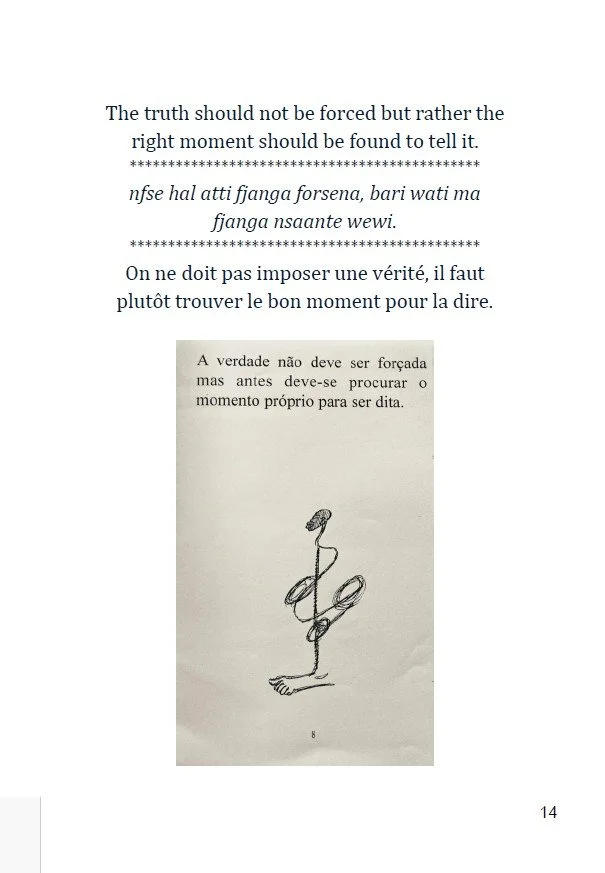
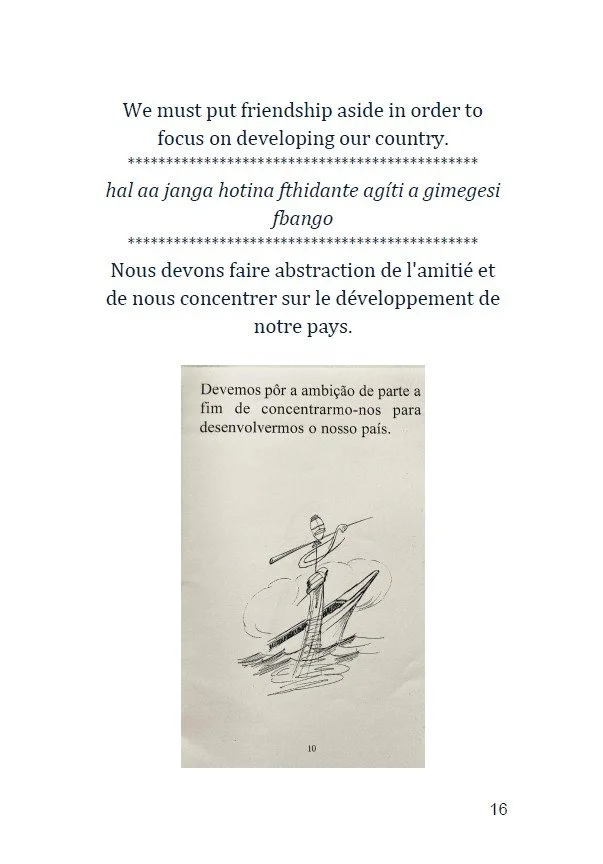
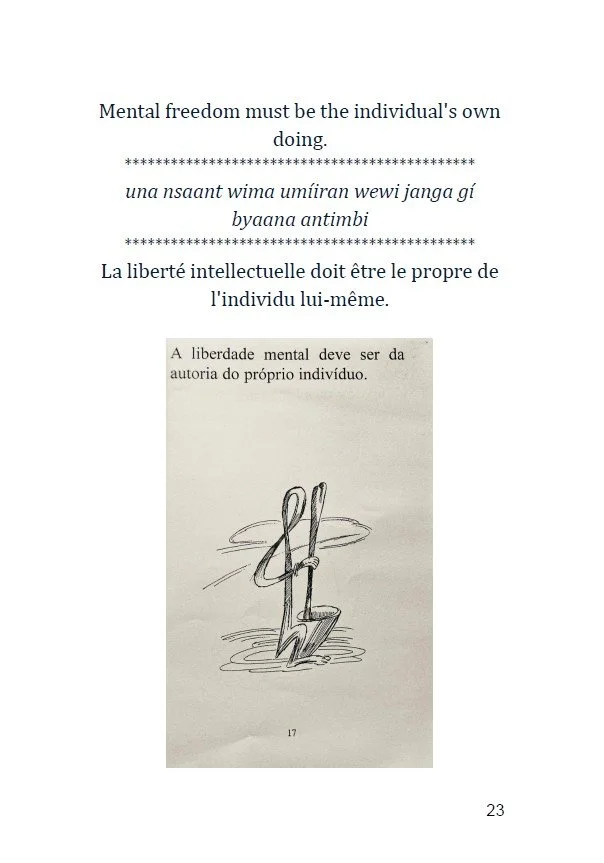
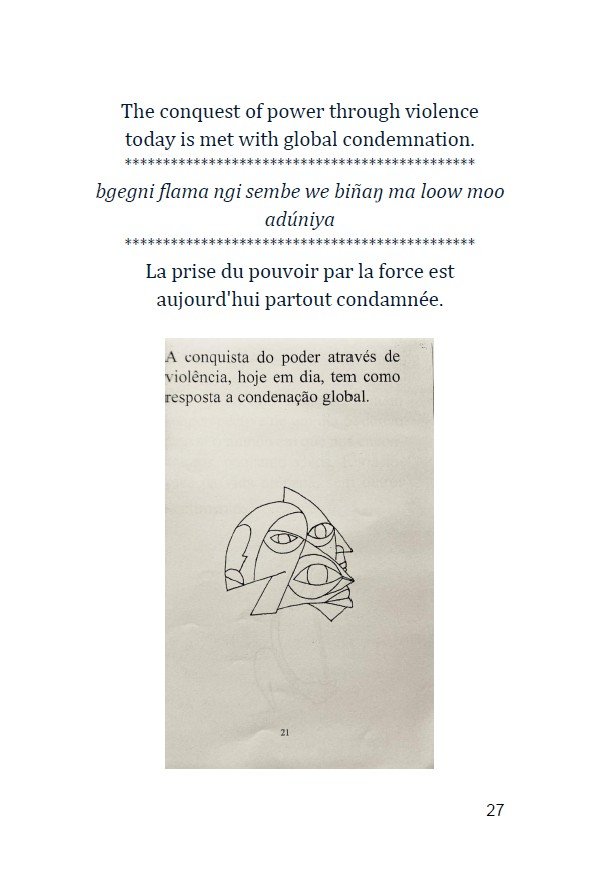
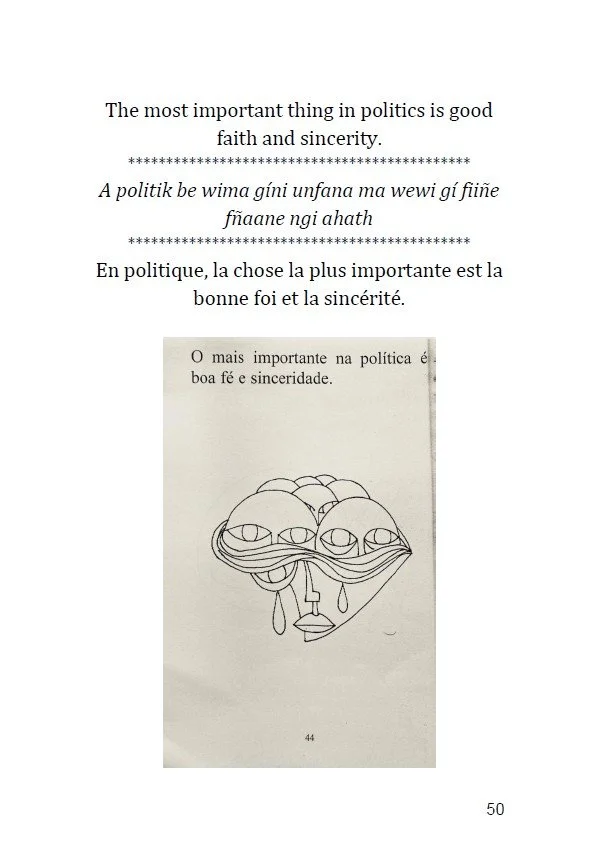
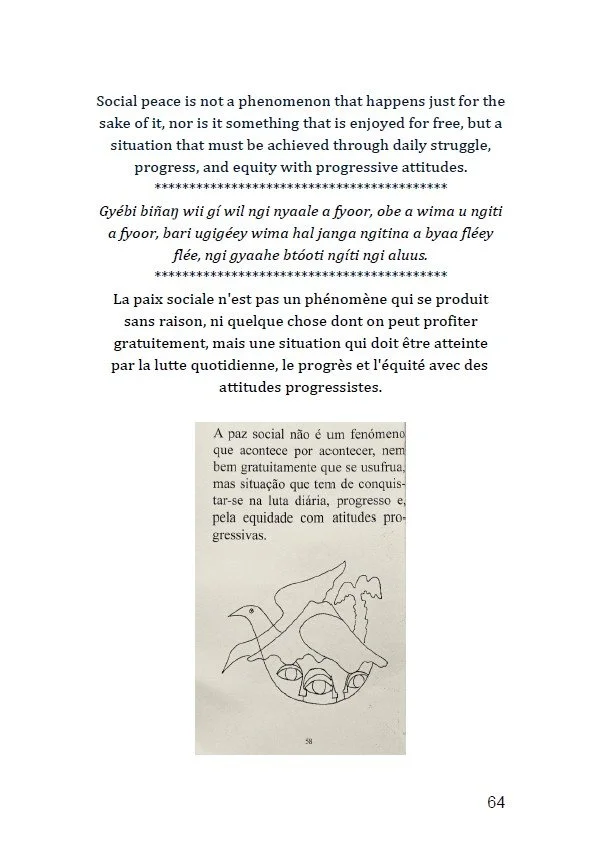
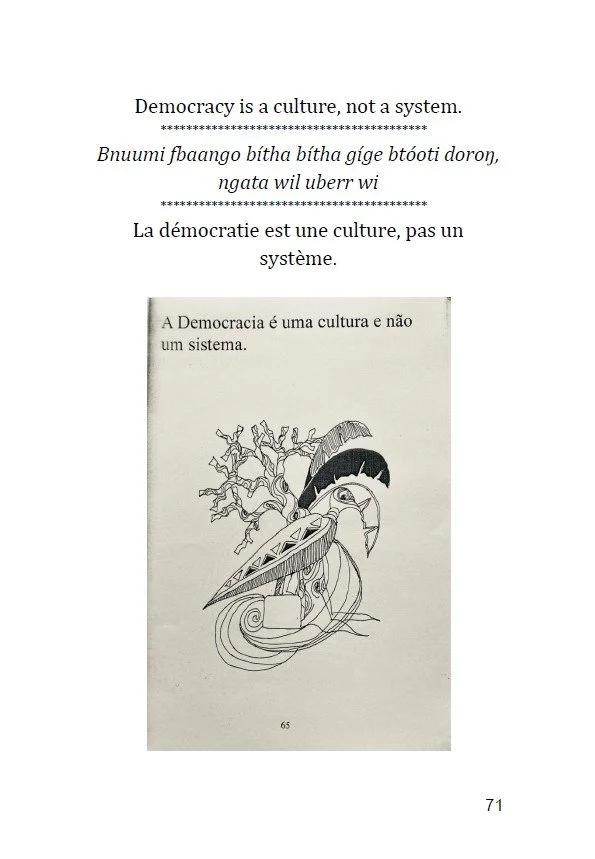
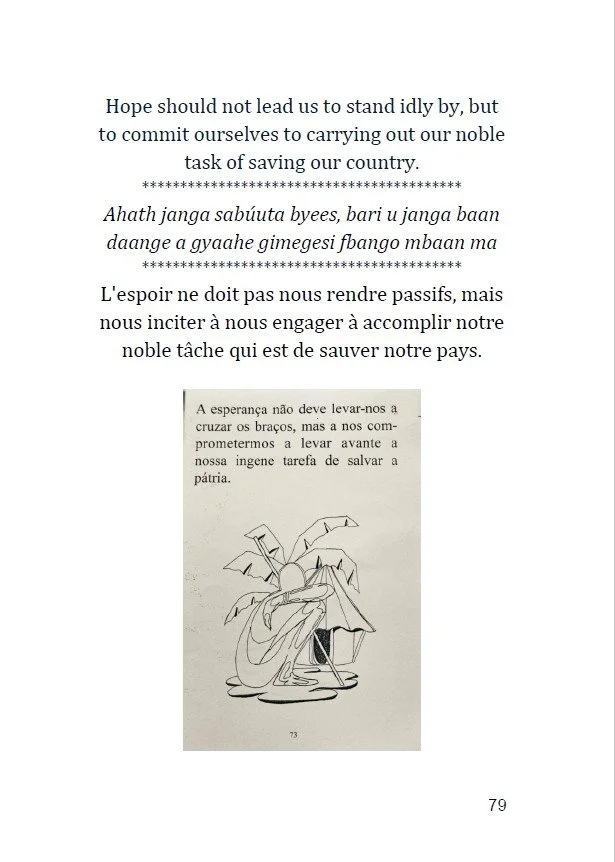
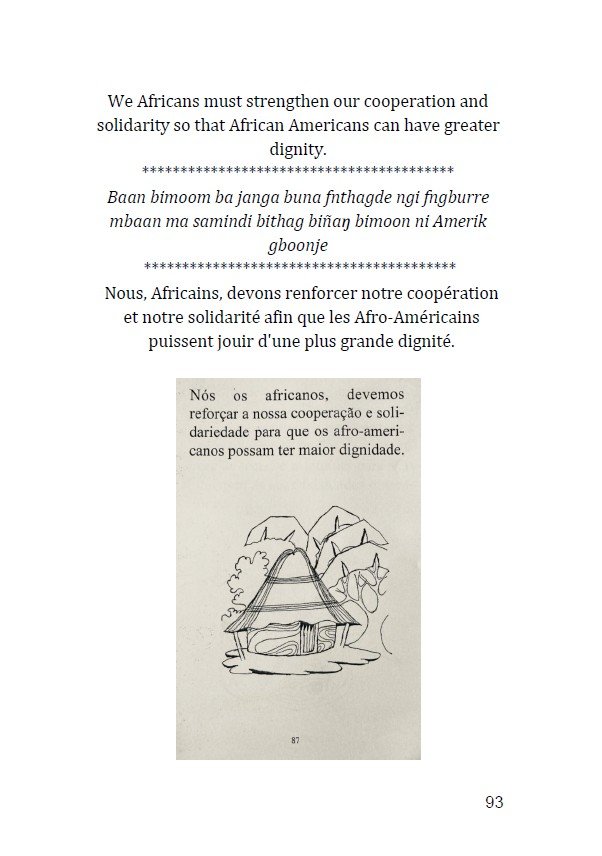
Excerpt from the book’s Forward:
“On October 10, 2025, We - Siphiwe Baleka and Sânebickté Yala Baleka - were married at the Ministry of Justice in Bissau, Guinea Bissau. From the beginning of our engagement, we knew we shared a mission to do something to honor the legacy of President Dr. Kumba Yala and his mission to promote the well-being of all Guineans. Telling the stories and history of the great Balanta people is also the mission of the Balanta B’urassa History and Genealogy Society in America (BBHAGSIA). Thus, We offer this Portuguese-English-Balanta-French translation of this brilliant, beautiful and eloquent small little book, Political and philosophical thoughts Volume 1 as the first fruits of our marriage and as a gift to the world, and specifically to the Balanta people who were taken into captivity in the Americas and are rediscovering their people and culture.
Siphiwe Baleka, President of BBHAGSIA and
Sânebickté Yala Baleka,
Bissau, October 15, 2025”
A DIVINE WARNING TO PRESIDENTS BENJAMIN NETANYAHA (ISRAEL) AND DONALD TRUMP (USA): RECALLING THE KING OF KING AND LORD OF LORDS INSTRUCTIONS CONCERNING THE PRINCIPLE OF COLLECTIVE SECURITY
ADDRESS TO THE UNITED NATIONS - October 4, 1963 3:00 PM
“Mr. President, Distinguished Delegates:
Twenty-seven years ago, as Emperor of Ethiopia, I mounted the rostrum in Geneva, Switzerland, to address the League of Nations and to appeal for relief from the destruction which had been unleashed against my defenceless nation by the Fascist invader. I spoke then both to and for the conscience of the world. My words went unheeded, but history testifies to the accuracy of the warning that I gave in 1936. Today, I stand before the world organization which has succeeded to the mantle discarded by its discredited predecessor. In this body is enshrined the principle of collective security which I unsuccessfully invoked at Geneva. Here, in this Assembly, reposes the best – perhaps the last – hope for the peaceful survival of mankind.” (SSHIM p 368; Kindle p. 392)
SPEAKING TO AND FOR THE CONSCIENCE OF THE WORLD
Compiled by
Siphiwe Baleka
Afrodescendant Theocratic Special Envoy Extraordinary & Reparations Expert
2026
Now that United States President Donald Trump, following Israel’s President Benjamin Netanyahu, has violeted the principle of collective security and made a mockery of international law and plunging the entire world into chaos through the use of naked force and aggression, like the prophets of old, I remind the world of
GOD’S INSTRUCTIONS TO MANKIND FOR PRESERVING PEACE AND THE FUTURE, EVEN THE VERY EXISTENCE, OF MANKIND
*****************************************************************************************************
(citations from Selected Speeches of His Imperial Majesty Haile Selassie I, 1918-1967, originally published by the Imperial Ethiopian Ministry of Information, 1967 and republished in a new edition by The Lion of Judah Society’s Imperial Publishers (1991-2011) www.lojsociety.org)
**************************************************************************************
COLLECTIVE SECURITY
References to collective security appear in the chapter on International Relations and the one on U.N. International within the provided text, primarily in the context of Ethiopia's experiences with the League of Nations and the United Nations (p. 18).
Specific references in the text and in related speeches include:
Chapter V – U.N. International: The phrase "U.N. and Collective Security" appears as a section title with corresponding page numbers.
Kagnew Battalion and Collective Security: Another section title mentions "Kagnew Battalion and Collective Security" in the Chapter XIV on Security.
Haile Selassie's League of Nations Appeal: The Emperor made an impassioned appeal to the League of Nations in 1936 where he addressed the principle of collective security, arguing that the League's failure to act against Italy's aggression put the entire principle and the League's existence at stake.
United Nations Address: In a 1963 address to the United Nations, he referred to the UN as the "best - perhaps the last - hope for the peaceful survival of mankind" and that it enshrined the principle of collective security that the League of Nations had discarded.
Korean War Context: He spoke about collective security in the context of sending the Ethiopian Kagnew Battalion to the Korean War, framing it as a duty to the UN and an act to redeem the principles of collective security.
Principle for Small Nations: He stated that small nations should regard collective security as the "cornerstone of their very existence" and support it instantly and absolutely.
APPEAL TO THE LEAGUE OF NATIONS - June 30, 1936
“I assert that the problem submitted to the Assembly today is a much wider one. It is not merely a question of the settlement of Italian aggression. It is collective security: it is the very existence of the League of Nations. It is the confidence that each State is to place in international treaties. It is the value of promises made to small States that their integrity and their independence shall be respected and ensured. It is the principle of the equality of States on the one hand, or otherwise the obligation laid upon small Powers to accept the bonds of vassalship. In a word, it is international morality that is at stake. Have the signatures appended to a Treaty value only in so far as the signatory Powers have a personal, direct and immediate interest involved? No subtlety can change the problem or shift the grounds of the discussion. It is in all sincerity that I submit these considerations to the Assembly. At a time when my people are threatened with extermination, when the support of the League may ward off the final blow, may I be allowed to speak with complete frankness, without reticence, in all directness such as is demanded by the rule of equality as between all States Members of the League? Apart from the Kingdom of the Lord there is not on this earth any nation that is superior to any other. Should it happen that a strong Government finds it may with impunity destroy a weak people, then the hour strikes for that weak people to appeal to the League of Nations to give its judgment in all freedom. God and history will remember your judgment. . . . Your Assembly will doubtless have laid before it proposals for the reform of the Covenant and for rendering more effective the guarantee of collective security. Is it the Covenant that needs reform? What undertakings can have any value if the will to keep them is lacking? It is international morality which is at stake and not the Articles of the Covenant. . . . I ask the fifty-two nations, who have given the Ethiopian people a promise to help them in their resistance to the aggressor, what are they willing to do for Ethiopia? And the great Powers who have promised the guarantee of collective security to small States on whom weighs the threat that they may one day suffer the fate of Ethiopia. I ask what measures do you intend to take? Representatives of the World I have come to Geneva to discharge in your midst the most painful of the duties of the head of a State. What reply shall I have to take back to my people?” (SSHIM p 313-15; Kindle p. 337-9)
KAGNEW BATTALION AND COLLECTIVE SECURITY - April 14, 1951
“It is in yet a larger sense, Soldiers, that you are today leaving the homeland to fight on distant shores. You are fighting not only for freedom as We know it in Ethiopia, and the right of each people to its freedom. You are also representing and defending in far corners of the earth, the most sacred principle of modern international policy – that principle of collective security with which the name of Ethiopia is imperishably associated. It is but natural that small nations who must so vigilantly defend their independence, should regard collective security as the cornerstone of their very existence. Their support of that principle should be instant, unhesitating and absolute. No small state, no democratic nation, no people imbued with charity towards its fellow men, could do otherwise. Of all nations of the world, the name of Ethiopia has been most closely associated with that principle. Our undaunted defence of collective security at the League of Nations, Our own appeal to that august body, Our fierce and un-aided struggles throughout the darkest hours preceding the last World War, the courage of our patriots, the unending sacrifices of Our families, have given to Ethiopia an imperishable place in the history of that principle in modern times. . . . At this proud moment of participation in the first collective and world-wide effort for the defence of the principle of collective security, Ethiopia and Ourselves can look back with pride, on the progress achieved, progress to which Ethiopia has so heavily contributed in recent years. Precisely fifteen years ago this very month, We, Your Emperor, and Commander-in-Chief, addressed from the battlefield a pressing appeal to the League of Nations for the respect and application of the principle of collective security. It was not a question then as now, even to hope for the application of measures of military sanction. So new then was that principle that Ethiopia could only hope for the most basic economic sanctions to restrict aggression, and urgent measures to bring to an end the use of asphyxiating gas. However, it was also in that same month, fifteen years ago today, that the Council of the League of Nations finally declared its inability to meet these essential requirements of collective security. Undaunted by this failure, Ethiopia under Our leadership and with the courage of its patriots continued the struggle until that glorious day when, at the head of Our troops and with the aid of British Empire heroes, We reentered Our Capital. Today, it is no longer a question of asking for simple economic sanctions. Korea asks the United Nations and receives from it collective security in the form of military assistance. In joining today in these measures of collective security, We are being faithful to Ourselves and to the obligation which We conceive to be the most high and solemn duty not alone of the present hour, but of the present century. Collective security knows no bounds or distances. In participating in the measures of collective security in the Far East, We are only fulfilling Our obligations towards the United Nations. Just as previously, by the sending of financial assistance, We had manifested Our sympathy towards the valiant people of China so sorely tried by natural disasters, so today, We deplore the new hardships which that people have been called upon to suffer as a result of the events in the Far East. Let us hope that peace and tranquillity may soon be re-established there. You have been fortunate, Soldiers, in that each one of you has been selected thus to testify before the world to the flame of liberty and of devotion to the cause of international justice which has fired the breasts of Our patriots. You are following the footsteps of the long line of your forefathers in proclaiming before the world the right of each nation, determined by its own efforts to save its independence and freedom, to receive as collective security assistance from all peace-loving nations. Ethiopia could do no less today and still remain faithful to her traditions and to the sacrifices which We have undergone. Soldiers, the spirit of your ancestors, heroes of the thousand-year-long struggle for the defence of Our freedom will follow you and will strengthen your hands and hearts in the heat of battle. Remember that you are about to pay a debt of honour for your homeland which was liberated thanks not only to the blood of her patriots, but also to that of faithful allies, likewise members of the United Nations. Remember also that in paying this debt, you are laying the basis for a universal system of collective security on behalf of your own homeland as well as of nations of the world, be they great or small, powerful or weak. May God protect you, give you courage to acquit yourselves as heroes and bring you back safely to your beloved Homeland.” (SSHIM p 593-7; Kindle p. 617-21)
INTERNATIONAL RELATIONS - ALLIED VICTORY - September 7, 1951
“Today marks what will, perhaps, be recorded as the most significant day in world history, for today has at last been brought to account and to a crushing defeat a worldwide philosophy of aggression against all peace-loving nations. . . . We have today reversed the policy of expediency at the expense of international justice. Today the victory which We now celebrate, represents not only the triumph over Japan, not only the triumph over those same forces in Europe which were part and parcel of the same struggle, but also a triumph of the principle of collective security enshrined in the Charter of the United Nations signed at San Francisco. . . . These sacrifices, the sacrifices of other United Nations and the long bitter struggle of Our Empire for the defence and furtherance of the cause of collective security impose upon all nations alike the obligation rendered sacred by the life-blood and sufferings of Our people to ensure that war will not again sear the face of Our fair lands, and that justice and not expediency shall guide the councils of nations. . . .” (SSHIM p 88-89; Kindle p. 112-3)
U.N. AND COLLECTIVE SECURITY - November 2, 1953
“This agreement for mutual security constitutes a striking example of the policy always followed by Ethiopia and which consists of contributing by every means at her disposal to the forces of collective security throughout the world. Ethiopia is to be counted among those members of the United Nations who are the most faithful in the support of the principles upon which the Charter of that organization rests. It is for this reason that Ethiopia was among the first of the members to respond to the appeal of the Security Council for contributions, by financial means and, later by military forces, to check the aggression in Korea. (SSHIM p 357; Kindle p. 381)
ADDRESS TO THE U.S. CONGRESS - May 26, 1954
“This collaboration with the West and with the United States in particular has taken yet broader forms. There is our military collaboration based on the mutual security programme. If we leave out the Atlantic group, Ethiopia has been the only state of the Middle East to follow the example of the United States in sending forces to Korea for the defence of collective security. In so doing, Ethiopia has been inspired by a vision which is broader than her pre-occupation with regional policies or advantages. Nearly two decades ago, I personally assumed before history the responsibility of placing the fate of My beloved people on the issue of collective security, for surely, at that time and for the first time in world history, that issue was posed in all its clarity. My searching of conscience convinced me of the rightness of my course and if, after untold suffering, and, indeed, unaided resistance at the time of the aggression we now see that final vindication of that principle in our joint action in Korea, I can only be thankful that God gave me strength to persist in our faith until the moment of its recent glorious vindication. We do not view this principle as an extenuation for failing to defend our homeland to the last drop of one’s blood, and indeed, our own struggles during the last two decades bear testimony to our conviction that in matters of collective security as of Providence, “God helps him who helps himself. . . . The world has ceaselessly sought for and has striven to apply some system for assuring the peace of the world. Many solutions have been proposed and many have failed. Today the system which we have advocated and with which the name of Ethiopia is inseparably associated has, after her sacrifices of two decades ago, and her recent sacrifices with the United States and others in Korea, finally demonstrated its worth. However, no system, not even that of collective security, can succeed unless there is not only a firm determination to apply it universally both in space and time, but also whatever be the cost. Having successfully applied the system of collective security in Korea, we must now, wherever in the world the peace is threatened, pursue its application more resolutely than ever and with courageous acceptance of its burdens. We have the sacred duty to our children to spare them the sacrifices which we have known. I call upon the world for determination fearlessly to apply and to accept as you and We have accepted them – the sacrifices of collective security.” (SSHIM p 117-18; Kindle p. 141-2)
U.N. AND THE LEAGUE - June 1, 1954
“It is a significant moment for me when, after eighteen years, I again find myself in a centre where are concentrated the passionate hopes of the thousands of millions of human beings who so desperately long for the assurance of peace. The years of that interval, sombre as they were and sacred as they remain to the memory of millions of innocent victims, hold forth for us bright hope of the future. The League of Nations failed and failed basically because of its inability to prevent aggression against my country. But, neither the depth of that failure nor the intervening catastrophes could dull the perception of the need and the search for peace through Collective Security. So it is that here in the United Nations we have dedicated ourselves anew to those high and indeed essential ideals, essential if the world is to continue on the path of peace. Ethiopia, for its part, is profoundly convinced of the triumph of these ideals, were it only that the past two decades have, in her case, fully justified them. The League of Nations may have failed, but Ethiopia was again liberated and through the United Nations has finally seen the rectification of seventy years of injustice and the vindication of the right of brothers to become reunited. Moreover, the memory of the failure two decades ago of measures of collective security is being effaced by the glorious achievement, to which Ethiopia also contributed, in the collective defence of Korea. Surely we have cause to be heartened at the progress of mankind. We must lay aside any disappointment of the hour lest it cloud our vision of the goal to which we would aspire and press forward, with confidence, born of past experience, in the triumph of principles which are here represented and for which you, Mr. Secretary-General, labour so diligently and intelligently. Ever since my country’s acceptance of the obligations of the United Nations as a charter member, I have looked forward to the day when I would be able to visit the organization’s headquarters. The physical realization of these splendid buildings, of the hopes and aspirations of those of us who have ardently supported the principle of collective security and the practical instrument to secure and maintain international justice have surpassed my expectation.” (SSHIM p 355-7; Kindle p. 379-81)
PROMULGATING THE REVISED CONSTITUTION - November 3, 1955
“Twentyfive years ago Ethiopia was still a little known corner of the dark continent of Africa. Through her courageous resistance against aggression and through Our appeal to the world founded on respect for international morality and collective security, Ethiopia has achieved imperishable fame. The world has come to recognize the moral stature and greatness of the Ethiopian people. In consequence, We have been able to rectify certain of the crying injustices perpetrated against Our beloved country during the iniquitous period of imperialism against which Ethiopia, under Our leadership, had to fight alone.” (SSHIM p 401; Kindle p. 425)
OPENS H.S.I. MILITARY ACADEMY - October 6, 1958
“The faithful and enlightened services to be rendered by the officer cadets who will study here and who, upon their graduation, will assume the command of Our Armies in the field, will, We sincerely trust, constitute an impregnable bulwark against those who would violate Ethiopia’s glorious tradition of liberty which, for centuries, has been handed down from generation to generation. The officers who will graduate from this institution must be constantly aware that Ethiopia shares in the responsibility of assuring the collective security of the world. Every country that has to struggle for its freedom will naturally look to other freedom-loving nations for assistance in their efforts. We would, therefore, be pleased to see students from our neighbouring nations in Africa benefit from the instruction that is being imparted at this Military Academy.” (SSHIM p 54; Kindle p. 78)
INTERNATIONAL POLITICS - THREE PRINCIPLES
“Second is Our unswerving devotion to the principle of Collective Security. In those early days of 1935-6 when Our country was subjected to the horrors of aggression, We appeared before the League of Nations to plead the cause of Collective Security, a plea which unfortunately fell on deaf ears. But even today, no better principle can be devised for the maintenance of the peace of the world, and the peaceloving nations of the world have begun to come together under this banner. Third, flowing from the principle of Collective Security, is the necessity, in these anxious days when the major powers are engaged in a frantic arms race, for all countries which have accepted this principle and assumed a share of the responsibility for ensuring the peace of the world, to become ever stronger militarily. It is in order to discharge Our responsibilities under the principle of Collective Security that we have established the Military Academy at Harar, to ensure that properly trained officers will lead Our Armed Forces. And in order further to strengthen Our Armed Forces for the defence of Our Empire in time of war, and for ensuring its internal security in time of peace, We have ordered the establishment of an Imperial Territorial Army. As We have stated time and time again, We are firmly persuaded that the path to guaranteeing the peace of the world lies in supporting the principle of Collective Security and the United Nations Charter, combined with a progressive reduction of the armaments which are being built up throughout the world. The billions of dollars which are now wasted on this fruitless effort could with great benefit be diverted into the constructive channels of aid for the economic growth of under-developed countries. . . . “ (SSHIM p 164-5; Kindle p. 188-9)
REPLY TO CZECHOSLOVAK PRESIDENT - July 16, 1959
“Even though Ethiopia and Czechoslovakia have different systems of government, both countries have several things in common. For many long years both had to fight for the preservation of their independence – very dear to them. Not long ago though both had to rebuke the attack by fascist forces. Both of our countries, placing their trust in the system of Collective Security, had appealed to the League of Nations to stop the aggression launched against them. To satisfy insatiable fascism, the freedom of Ethiopia was sacrificed, while in Europe Czechoslovakia was placed at the mercy of military expansion. At the time when the League of Nations applied sanctions against the fascist invaders in Ethiopia, Czechoslovakia and Rumania were among those countries which fully observed the sanctions.” (SSHIM p 122; Kindle p. 146)
ADDRESS TO THE NATION ON HIS TOUR - August 29, 1959
“All of you are aware that Ethiopia’s foreign policy is based on the principles of the United Nations Charter as well as on the Bandung and Accra Declarations. These principles which We have long cherished and for which We have striven are, among others, collective security, peaceful and active co-existence, non-interference in the internal affairs of other countries, respect for the sovereignty and territorial integrity of other nations and peaceful settlements of all disputes among nations.” (SSHIM p 449-50; Kindle p. 473-4)
REVIEWING MILITARY MANOEUVRES - May 2, 1960
“In this age, when the world is becoming ever smaller and the obligations of Collective Security have become the obligations of all, it is vital that Ethiopia’s armed forces be at all times fit and ready to discharge these duties. The maintenance of peace requires eternal vigilance and a state of constant readiness. To achieve these ends, Our defence forces, which have as their ultimate objective the assurance of peace, can draw upon the traditional bravery of Our people and the latest developments in modern military science. It is commonly believed that military training can serve only on the field of battle. On the contrary, it can make a significant contribution to the cause of Collective Security and the preservation of peace. This is Ethiopia's constant goal.” (SSHIM p 604; Kindle p. 628)
TO VISITING U. S. EDITORS - May 14, 1960
“Thus, alone in 1896, alone in 1925, alone in 1935 and alone at Geneva in 1936, Ethiopia fought for those principles of freedom, independence, territorial integrity, non-intervention and collective security that have become today the implicit precepts upon which the United Nations are based and which, through that struggle, have so substantially contributed to the achievement of independence and the end of colonialism in Africa. Years ago, We took the lead in pressing by active measures, for the freedom and independence of those States who today are honoured Members of the United Nations.” (SSHIM p 669; Kindle p. 693)
CONGO (COLLECTIVE SECURITY) FIRST CONTINGENT OF ETHIOPIAN TROOPS FOR THE CONGO - July 17, 1960
“When in our African Continent, the Republic of Congo celebrated its independence a few weeks ago, Our delegates were sent to Leopoldville to transmit the message of Our great joy on the happy occasion. Great as was Our joy then, the present situation that was created in the Congo Republic has equally touched Our heart with deep sorrow. We had earlier communicated Our readiness and desire to give full aid directed at bringing internal peace and security to the Congo both with the authorities there and with Mr. Dag Hammarskjoeld, the United Nations Secretary-General. Under Our obligation for the Collective Security of the world Our significant role in Korea is only too well known. Mr. Dag Hammarskjoeld, in accordance with the Security Council Resolution, has asked Us for military and air force assistance for the Congo. As it coincided with Our own wish and desire to safeguard the unity, independence and internal security of the Congo inasmuch as We uphold the Charter of the United Nations and have abiding loyalty in the principle of Collective Security, We have granted the request made to Us and have decided to send you officers and men to fulfil such a high mission.” (SSHIM p 207; Kindle p. 231)
TO THE HARAR MILITARY ACADEMY - October 3, 1960
“It is in support of the principle of collective security that We have dispatched Our troops to the Congo under the auspices of the United Nations to maintain law and order and to preserve the integrity of the new Republic, without interference in the internal affairs of that country. The fact is that these troops have encountered certain obstacles in the execution of their duties.” (SSHIM p 608; Kindle p. 632)
COLLECTIVE SECURITY - November 2, 1960
“…..Although a small nation, Ethiopia is yet intimately concerned with the easing of the tensions which so unfortunately mar the realm of international relations today. Throughout Our lifetime, We have consistently maintained that in the principle of Collective Security rested the best hope for assuring the peace of the world, and We have given unstintingly Our support to the world organizations which have been created to assure the application of this principle. Throughout its brief existence, the United Nations has justified the faith which We have placed in it, and We shall continue to be steadfast in our support of the United Nations Organization. . . . Having Ourself laboured unstintingly for the reinforcement of international organizations devoted to the cause of peace and the strengthening of the principle of Collective Security, We sent a personal message to the opening session of the General Assembly in which We called upon the nations gathered there to spare no effort to reach wise and sound decisions designed to solve the problems which face the world today and to lessen the tensions which separate and divide nations. As a sovereign nation, jealous of her independence, Ethiopia has a duty both to her own people and to the other free peoples of the world to ensure that aggression will be resisted wherever and in whatever form it is met. It is today the duty of each state which is dedicated to the cause of peace to be prepared to fulfil its commitments to the United Nations in defence of the principle of Collective Security and to stand ready at all times to discharge these obligations.” (SSHIM p 364-6; Kindle p. 388-90)
ADDRESSES THE BELGRADE CONFERENCE - September 3, 1961
“Equally important, the United Nations provides the instrumentality whereby the principle of Collective Security, to which We personally have devoted Our lifetime, achieves real and tangible existence and meaning. If force must be employed in the world today in resistance to aggression and in the maintenance of world peace, surely it is preferable that it be employed through an institution such as the United Nations, in pursuance of international decisions legally and openly arrived at there. Ethiopia has not hesitated to respond in the past with all the resources at her disposal to the call of the United Nations in times of crisis, and we shall not hesitate to do so again should the call be made.” (SSHIM p 172; Kindle p. 196)
TO THE LAGOS SUMMIT MEETING - January 26, 1962
“Ethiopia is justifiably proud of the role which we have played and continue to play in the Congo, a role wholly consistent with the staunch support which Our nation has unfailingly given to international organizations dedicated to the cause of peace and collective security throughout past decades. If history is to judge Us, We would ask only that it judge on the basis of Ethiopia’s record of resistance to colonialism, oppression and aggression, from the date when Ethiopian patriots repulsed the Italian invaders at Adoua in 1896 and then in 1935 and thereafter. We have responded to the appeals of the United Nations for assistance in the Congo, and We have supported the United Nations policies because experience, reason and instinct have all combined to persuade us beyond peradventure that only in this way can a peaceful and permanent solution to the vexatious problems which exist there be settled.” (SSHIM p 228; Kindle p. 252)
BURIAL OF THE CONGO CASUALTIES - April 19, 1963
“You heroes, You carried to the sister State of the Congo the bravery and heroism which your country gained from her ago-long struggle for the love of freedom. You sacrificed your lives in defence of the principle of Collective Security. Your sacrifice has borne the desired fruit and the Congo is united today. You have honourably executed the orders given to you by Us. You have died in support of the peace mission entrusted to the United Nations. This is a great example. Ethiopia takes pride in her Armed Forces. It has been said death comes as a pleasure to the hero. You have fallen for a noble cause and in so doing have lived up to what is expected of a good, solid soldier. This immortalizes your names in the pages of history .You are dead but the service you have done will live after you, and would keep you in the memory of the living. It has been said that dust shall return to dust. You sons of Adam have fallen for the honour of your country and for the pride of your people. History shall preserve your names. Ethiopia places you alongside her heroes. May you rest in peace.” (SSHIM p 652-3; Kindle p. 676-7)
RESPONSIBILITIES DEMAND BALANCED, SOBER REFLECTION A CALL TO AFRICAN LEADERS (1963 SUMMIT) - May 25, 1963
“We would not close without making mention of the United Nations. We personally, Who have throughout Our lifetime been ever guided and inspired by the principle of collective security, would not now propose measures which depart from or are inconsistent with this ideal or with the declarations of the United Nations Charter. It would be foolhardy indeed to abandon a principle which has withstood the test of time and which has proved its inherent value again and again in the past. It would be worse than folly to weaken the one effective world organization which exists today and to which each of us owes so much. It would be sheer recklessness for any of us to detract from this organization which, however imperfect, provides the best bulwark against the incursion of any forces which would deprive us of our hard-won liberty and dignity.” (SSHIM p 255; Kindle p. 279)
ADDRESS TO THE UNITED NATIONS - October 4, 1963 3:00 PM
“Mr. President, Distinguished Delegates:
Twenty-seven years ago, as Emperor of Ethiopia, I mounted the rostrum in Geneva, Switzerland, to address the League of Nations and to appeal for relief from the destruction which had been unleashed against my defenceless nation by the Fascist invader. I spoke then both to and for the conscience of the world. My words went unheeded, but history testifies to the accuracy of the warning that I gave in 1936. Today, I stand before the world organization which has succeeded to the mantle discarded by its discredited predecessor. In this body is enshrined the principle of collective security which I unsuccessfully invoked at Geneva. Here, in this Assembly, reposes the best – perhaps the last – hope for the peaceful survival of mankind.” (SSHIM p 368; Kindle p. 392)
REPORT TO THE NATION - November 21, 1964
“Ethiopia has, throughout the past year, continued to adhere to the traditional policies to which We have on numerous occasions declared Our nation’s devoted respect for the rights of others, non-interference in the internal affairs of states, respect for the territorial integrity and sovereignty of nations, the peaceful settlement of disputes, support of the principle of collective security as the best protection against aggression and the best guardian of the peace.” (SSHIM p 99; Kindle p. 123)
25TH ANNIVERSARY OF LIBERATION - May 5, 1966
“First of all, however, We placed Our faith in the principle of collective security and the seemingly indisputable might of the League of Nations. The story of the betrayal of that faith is one of the acknowledged tragedies of our times. The arms and supplies which Ethiopia could not produce herself were denied her, while the enemy continued to build and fuel with its own resources its great war machine. The most futile sanctions were half-heartedly called for, and less than half-heartedly enforced. Ethiopia’s warriors and patriots fought with all the valour and desperation for which they and their ancestors had so often been called upon before, but they were powerless against the bombs and poison gas which the enemy so mercilessly and savagely employed against soldiers and innocent civilians alike. The brutality of those infamous days will forever haunt the memory of those who lived through them. The lessons of experience are rarely easy. It was through bloodshed and sorrow that Ethiopia learned the awesome power of modern arms and organized military might. From the ashes of the war Ethiopians began to reconstruct a new and more powerful nation. We vowed in sorrow that Ethiopia would never again through weakness suffer such outrages as had been wrought upon her. . . Yet even beyond the vast improvements in the Ethiopian military machine, there stands in defence of peace the great bulwark of the United Nations, erected with willing and eager hands out of the torment, destruction and misery of the last war. Even as the guns were falling silent the representatives of millions of men and women, Ethiopians among them, pledged themselves to uphold the Charter of the United Nations so that no such holocaust would ever again ravage and darken the earth. The United Nations was conceived as a means of real and positive action in the face of aggression. Ethiopia evinced her continuing faith in collective security as she enrolled herself among the charter members of the organization. In accordance with decisions of the United Nations, Ethiopia has shown her willingness to give substance to principle, to fight and sacrifice for others as for herself – in Korea, in the Congo, and elsewhere – in order to uphold and defend the rule of justice and reason in human affairs.” (SSHIM p 349-51; Kindle p. 373-5)
PRESS CONFERENCE: 74TH BIRTHDAY - July 30, 1966
“Of course, the Second World War had affected Ethiopia. It is a well-known fact that our country fell victim to the aggressive forces of Fascism. I had the privilege of pleading the case before the League of Nations in Geneva but the League's collective security system had not been strengthened and there were no standard procedures to which there was universal adherence for the settlement of international disputes. The system failed. Ethiopia suffered from the failure of that system but the concept of collective security was more firmly established after the war.
Question:
Your Imperial Majesty, do You see any relationship between the League of Nations' failure to take action on the situation Ethiopia faced in 1935-36 and the failure of the Court to take action on the South West African case in 1966?
Answer:
There is a material difference between the failure of the League's collective security system in 1935 and 1936 and failure of the International Court of Justice to consider the merits of the South West African case. The collective security system arrangement that we thought, and everybody thought, was secured under the Covenant of the League of Nations collapsed completely. The failure of the International Court of Justice now to consider the merits of the South West African case means that legal procedures for the settlement of the dispute are no longer open to us and that we are to approach the problem from another angle, perhaps by insisting to invoke the collective security measures under the Charter of the United Nations. So that in the two cases I see this important difference: while the League of Nations collapsed completely, in the case of the International Court of Justice, it was one particular organ of the collective security system that failed to respond to the demands of justice in South West Africa.” (SSHIM p 678-9; Kindle p. 702-3)
ETHIOPIA’S WORLD POSITION - November 2, 1966
“Our nation is known, and rightly, as a staunch advocate and supporter of the principle of collective security, the principle which still underlies the modern concept of the regulation of relations among states. We have stood forthright in our support of the United Nations, and we have not hesitated to respond to the call of that Organization.” (SSHIM p 101; Kindle p. 125)
Siphiwe Baleka Congratulates H.E. Faure Gnassingbé, President of Togo, for Releasing Political Prisoners after the 9th Pan African Congress
Presidential pardon: 1511 prisoners released
Published on Wednesday, December 31, 2025 at 10:00 PM
Share on:
(Togo Official) - The President of the Council, Faure Essozimna Gnassingbé, has officially granted presidential pardons to 1,511 convicts. The measure,announced a few weeks agoduring the State of the Nation address before Parliament, was adopted by decree following the Council of Ministers meeting on December 30.
Among the 1511 prisoners who immediately regain their freedom are people serving long sentences, the elderly, those incarcerated for minor offenses, or those seriously ill.
While it helps to enhance the joy of the festive season in the families concerned, the measure allows the country to reduce its prison population and to meet its international commitments regarding justice and human rights. https://www.republiquetogolaise.com/justice/3112-11463-grace-presidentielle-1511-detenus-liberes
January 2 -
“Your Excellency, President Faure Gnassingbé . . . . As we start the New Year, I commend you on taking action towards this as you promised in your speech before Congress on December 3, 2025, and then reiterated on December 30 in your end-of-year message announcing the release of 1,511 prisoners. It has been reported that already about seventy (70) of the one hundred and thirty (130) to one hundred and fifty (150) political prisoners and prisoners of conscience have been released. I therefore welcome this development and commend you for swiftly taking concrete action and we look forward to the release of those remaining in detention.”
- Siphiwe Baleka, Letter to H.E. President Faure Gnassingbé
OFFICIAL STATEMENT FROM PYRAMIDE IN ENGLISH AND FRENCH


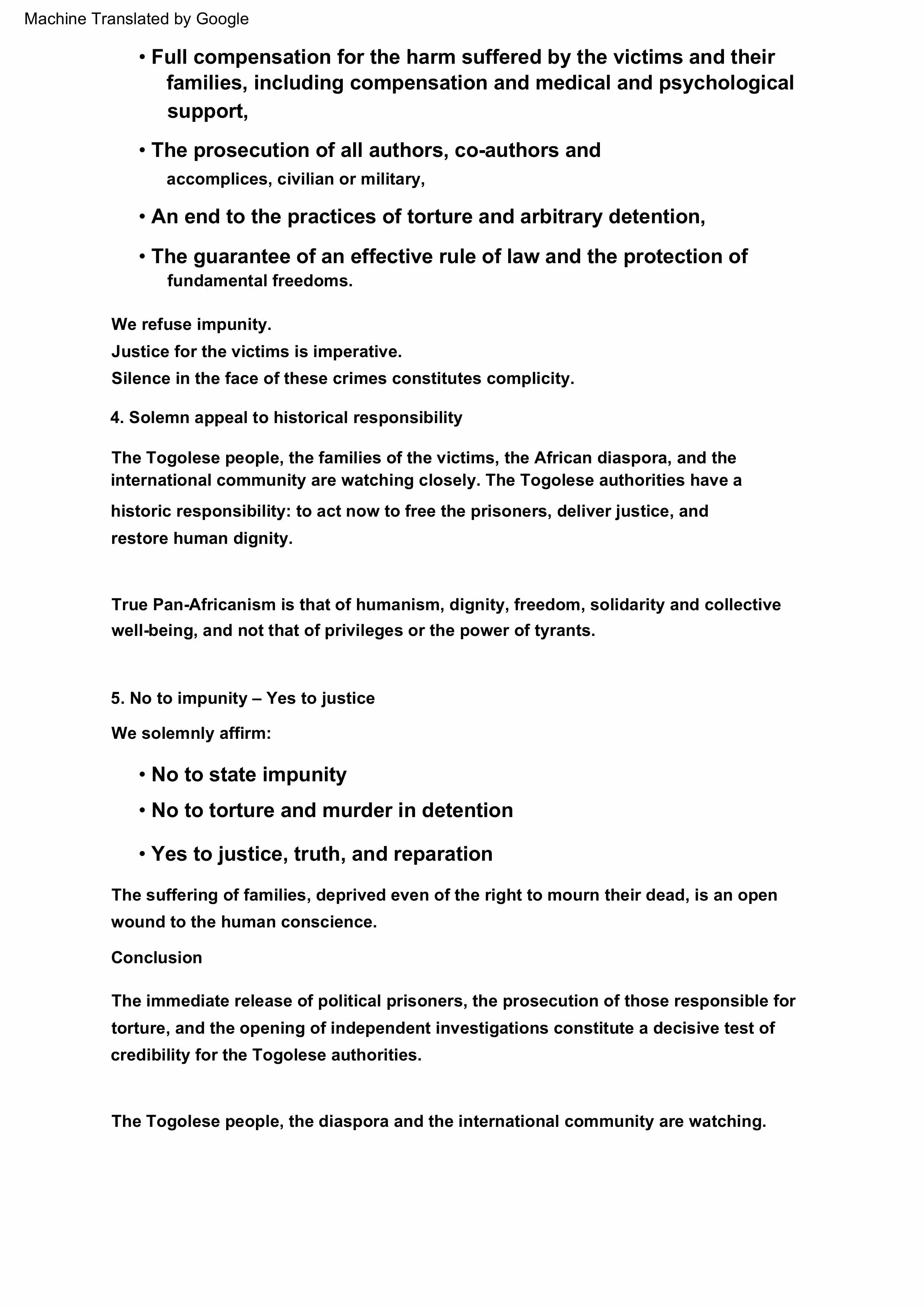




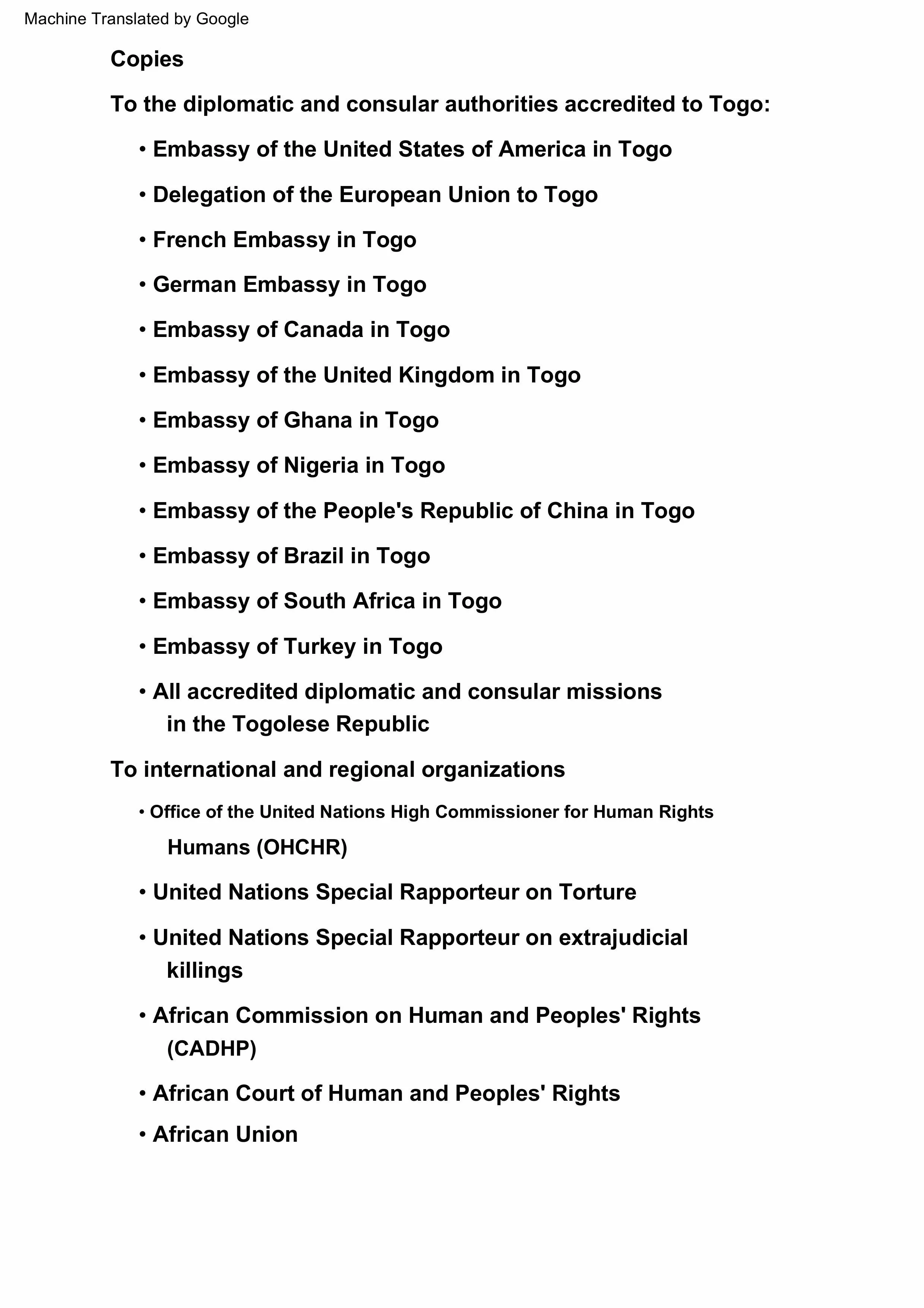





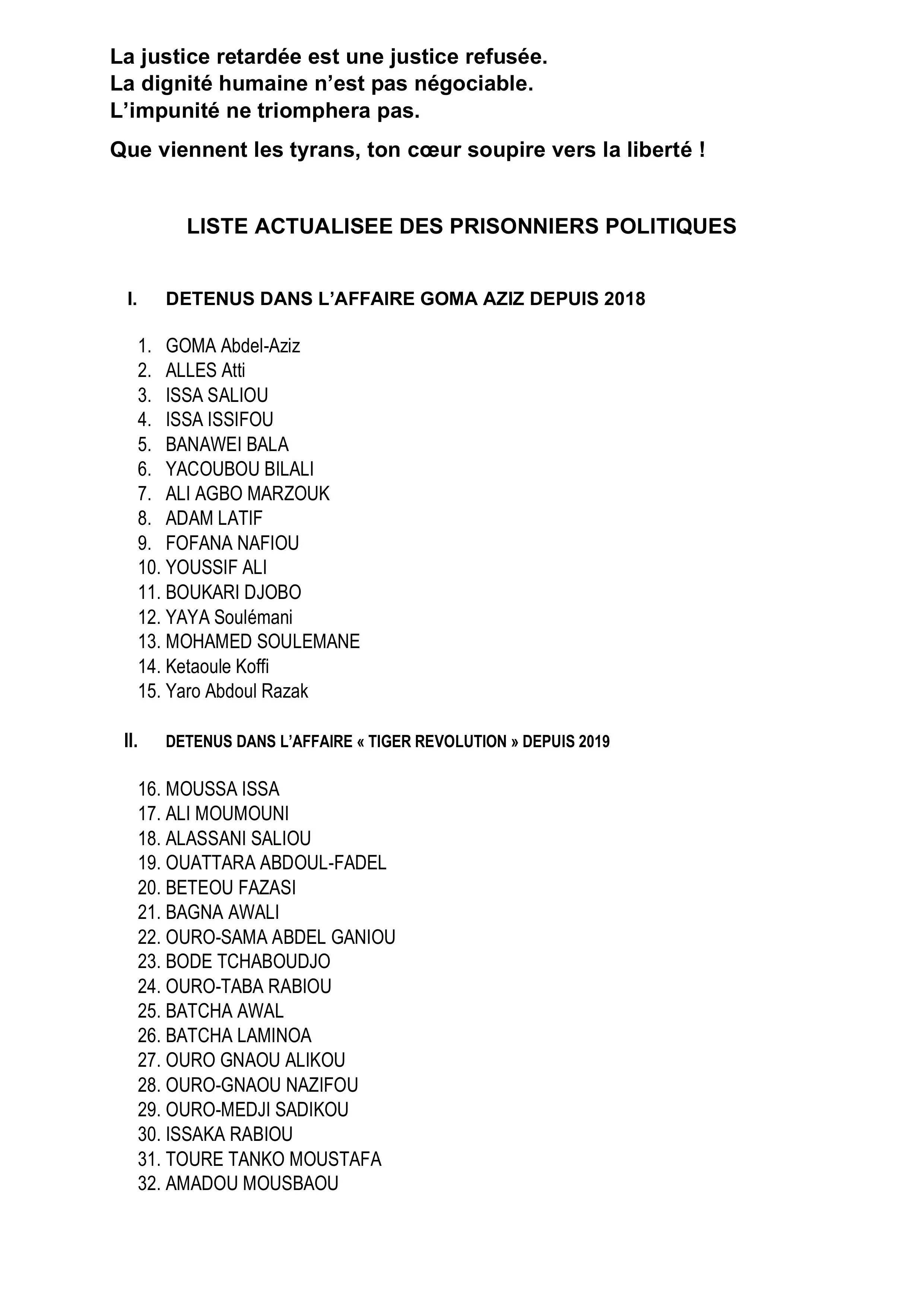






To: Mr. Sikiwe Siphiwe Baleka
Coordinator, New Afrikan Diplomatic and Civil Service Corps
Afrodescendant Theocratic Special Envoy & Reparations Expert
It is with deep respect and sincere admiration that I extend my warmest greetings to you at the beginning of this new year.
I wish to commend your courageous and principled intervention during the 9th Pan-African Congress, where you powerfully raised your voice in defense of political prisoners and firmly called for a general amnesty—a necessary step toward justice, reconciliation, and lasting peace.
Your commitment embodies the noble struggle for dignity, justice, and historical reparation for African and Afro-descendant peoples. Your leadership honors the legacy of our ancestors and inspires present and future generations.
As we enter this new year, I extend to you my heartfelt wishes for good health, strength, wisdom, and success in all your endeavors.
May the Almighty guide, protect, and sustain you as you continue your vital mission in service of truth, freedom, and justice.
With highest respect and fraternal regards.
Che Alphonse Hellu Lawson
Leader of PYRAMIDE
AFRICAN COMMISSION ON HUMAN AND PEOPLES' RIGHTS ADOPTS SIPHIWE BALEKA'S RECOMMENDATIONS IN RESOLUTION ON AFRICAN UNION THEME OF THE YEAR - REPARATIONS
December 18, African Commission on Human and Peoples’ Rights -
On Thursday, The African Commission on Human and Peoples’ Rights (ACHPR) published its RESOLUTION ON THE AFRICAN COMMISSION’S CONTRIBUTION TO IMPLEMENTING THE AFRICAN UNION THEME OF THE YEAR 2025: “JUSTICE FOR AFRICANS AND PEOPLE OF AFRICAN DESCENT THROUGH REPARATIONS” - ACHPR/Res 653.(EXT.OS/XXXIX) 2025 that
“4. Calls upon Member States to facilitate voluntary heritage and ancestry tracing for people of African descent with appropriate safeguards for privacy and data protection, and to consider pathways for residency, citizenship, and mobility in accordance with national laws.”
This resolution follows the recmmendations made by Afrodescendant Theocratic Special Envoy Extraordinary and Reparations Expert Siphiwe Baleka, who made the following recommendations at the ACHPR 85th Ordinary Session:
My first recommendation was that the Commission and the AU, following the model in the state of Illinois (which I helped develop with State Representative Carol Ammons), convene discussions with the Vatican along with the holders of the Catholic Church's Asiento monopoly war contracts about their obligation to provide a remedy for the war damage of ethnocide through African Ancestry dna testing which a study showed that 75% of the respondents would take if provided free of charge as a form of reparations. . . .
My second recommendation at the 83rd session of the ACHPR was that the Commission pass a resolution on the Afro Descendants Right to Return and the African Union develop a comprehensive Afrodescendant citizenship policy that would recognize their status as a unique class of immigrants never before contemplated in law.”
“I am overjoyed, “ said Siphiwe Baleka.
“Finally I feel like someone is listening and all my work is not in vain. At the 9th Pan African Congress in Lomé, Togo, I propose that all African governments should follow the example of Benin and pass a cityizenship law during 2026 to start the 2026-2036 Decade of Justice for Africans and People of African Descent Through Reparations. Alternatively, the African Union could issue a ‘6th Region’ passport, using the Benin model, that would function as a visa-free pass and permanent residence card in all of the continental five regions of the African Union. In one fell swoop, the African Union would have its holy grail: a Diaspora Database and the basis for Diaspora financial instruments!”
RESOLUTION ON THE AFRICAN COMMISSION’S CONTRIBUTION TO IMPLEMENTING THE AFRICAN UNION THEME OF THE YEAR 2025: “JUSTICE FOR AFRICANS AND PEOPLE OF AFRICAN DESCENT THROUGH REPARATIONS” - ACHPR/Res 653.(EXT.OS/XXXIX) 2025
The African Commission on Human and Peoples’ Rights (the Commission), meeting at its 39th Extra-Ordinary Session, held virtually from 8th to 13th December 2025;
Recalling its mandate under Article 45 of the African Charter on Human and Peoples’ Rights (the African Charter) to promote and protect human and peoples’ rights;
Further Recalling Decision Assembly/AU/Dec.884(XXXVII) of the Assembly of Heads of State and Government of the African Union (AU), held on 17–18 February 2024 in Addis Ababa, Ethiopia, adopting the Theme of the Year 2025: “Justice for Africans and People of African Descent through Reparations”;
Welcoming Executive Council Decision EX.CL/Dec. 1622 (XLVII) of the African Union declaring an AU Decade on Reparations spanning from 2026-2036, to run side by side with the UN Second International Decade for People of African Descent, to ensure synergy/complementarity and progress in pursuing the reparations agenda;
Noting that the AU Theme of the Year 2025 is complemented by the Second International Decade for People of African Descent, as proclaimed by the United Nations (UN), spanning from January 2025 to December 2034, aiming to address the ongoing challenges faced by people of African descent, particularly the legacies of slavery and colonialism;
Recalling, in particular, its Resolution on Africa’s Reparations Agenda and the Human Rights of Africans in the Diaspora and People of African Descent Worldwide – ACHPR/Res.543 (LXXIII) 2022; its Resolution on Reparations and the African Union’s Sixth Region – ACHPR/Res.616 (LXXXI) 2024;
Further Recalling its Resolution on Transitional Justice in Africa – ACHPR/Res.235 (LIII) 2013 and the African Commission’s Study on Transitional Justice and Human and Peoples’ Rights adopted in 2018 as well as the African Union’s Transitional Justice Policy adopted by the AU Assembly in February 2019;
Mindful of continental and international efforts, including the Abuja Proclamation on Reparations for African Enslavement, Colonization and Neo-Colonization, and the Accra Declaration on Reparations and Racial Healing.
Recognizing the lasting adverse impact of enslavement, deportation, colonialism, and related systems of oppression, whose legacies, including racial discrimination, continue to affect Africans and people of African descent;
Acknowledging the complexity of reparatory justice and the need for coherent standards, institutional architecture, policy guidance, and sustained implementation and follow-up;
The Commission:
1. Reaffirms its commitment to promote and protect human and peoples’ rights in Africa and to contribute to the implementation of the African Union Theme of the Year 2025, “Justice for Africans and People of African Descent through Reparations,” in accordance with its mandate under the African Charter;
2. Welcomes and reaffirms the decision of the AU Assembly Decision Assembly/AU/Dec.934(XXXVIII) on the classification of slavery, colonialism, and deportation as crimes against humanity and genocide against the peoples of Africa as part of the AU theme of the year;
3. Further encourages the adoption of relevant policy measures for advancing reparations for these historical injustices in their international engagements both individually and collectively as part of the effort to realise the objectives of regional and international human rights standards; and
4. Calls upon Member States to facilitate voluntary heritage and ancestry tracing for people of African descent with appropriate safeguards for privacy and data protection, and to consider pathways for residency, citizenship, and mobility in accordance with national laws.
Done during the 39th Extra-Ordinary Session, held from 8th to 13th December 2025, virtually.
The State Capture Of Pan Africanism Is A Fait Accompli: Shenanigans At The 9th PAC of Lomé - The Manner In Which It Was Organized Is Its Fundamental Flaw
December 13, Lomé - The African Union took control of the people’s Reparation Movement at the Accra Reparations Conference, November 14-17, 2023. Now, the people’s Pan African Movement has been seized. The state capture of Pan Africanism was accomplished at the 9th Pan African Congress in Lomé, Togo from December 8th to the 12th.
I have written extensively on the manner in which the 9th Pan African Congress in Lomé was organized.
See:
THE FUNCTIONAL ESTABLISHMENT OF THE AU 6TH REGION: HARMONIZING THE AU-AFRICAN DIASPORA SIXTH REGION (AU-ADS) HIGH COUNCIL, THE AFRICAN DIASPORA DEVELOPMENT INSTITUTE (ADDI) ADPAC AGENDA, AND THE "DECADE OF AFRICAN ROOTS AND DIASPORAS" PROPOSED BY THE REPUBLIC OF TOGO AND ADOPTED BY THE AU GENERAL ASSEMBLY EX.CL/1420(XLII). This is the last document embedded in the article WILL 2024 BE THE YEAR OF PAN AFRICAN ORGANIZATIONAL UNITY?: THE UNFINISHED BUSINESS OF THE PAN AFRICAN CONGRESS
THE TRUE STORY OF THE 9TH PAN AFRICAN CONGRESS - ALL THE BACKGROUND
Commentary – The Unfinished Business of the Pan African Congress
I now make the following report from the 9th Pan African Congress.
***************************************************************************************************
There is a problem.
The Final Resolutions of the Commissions (there were eight) and the 9th PAC Final Declaration were prepared beforehand by the Togo Ministry of Foreign Affairs. This means that resolutions of the 9th PAC, at least many of them if not the majority of them, are not the work of the 33 Commissioners or the delegates, but the agenda of the Togolese government, which may or may not be in alignment with the wisdom and will of the delegates. This is consistent with the manner in which the “itinerant” 9th PAC was organized - the outward appearance of “inclusion” provided by the preparatory conferences notwithstanding.
RESIGNATION OF GNAKA LAGOKE
The explosive surprise resignation of the brain behind the 9th Pan African Congress speaks volumes. Sambou Sissoko writes,
“CRISIS AT THE 9TH PAN AFRICAN CONGRESS: WHEN STATE POLITICS UNVEILS THE LIMITS OF OFFICIAL PAN AFRICANISM
As Africa seeks to rebuild a collective voice in the face of contemporary geopolitical challenges, the issue that shakes the 9th Pan-African Congress in Lomé exposes a profound discomfort: the abyssal gap between states’ pan-African discourse and their real practices.
The resignation of my dear elder Dr. Gnaka Lagoké, President of the Scientific Committee of the Congress, is not just an organizational episode. This is a strong political act, which exposes the drifts of a system where the personalization of power takes advantage of collective construction. His letter, precise, argued, documented, reveals a mechanism of methodical marginalization, carried out for two and a half years, in the silence of procedures and discretion of ministerial offices.
How can a state that claims to organize one of the greatest intellectual meetings of pan-Africanism, in the same movement, exclude the one with the scientific framework? How can a project supposed to embody unity and ethics UBUNTU tolerate jealousy, opacity and suspicion? Through this episode, all the ambivalence of African states in the face of authentic pan-Africanism is coming to light.
Dr. Lagoké recalls, evidence to support, that several major innovations of the Congress (thematic commissions, anchoring of the UBUNTU philosophy, integration of the issue of reparations, doctrinal orientations) come from his scientific work. He also recalls that he worked without budget, without salary, out of pure commitment to Africa. This contrast between intellectual investment and political exclusion needs to be questioned.
Because beyond a personal conflict, it is the credibility of institutional pan-Africanism that is at stake.
A Congress that wants itself to be the engine of the African revival cannot become an instrument of prestigious diplomacy. It has to be a space of intellectual sovereignty, where political truth is not suffocated by governmental communication.
The question posed by this resignation is beyond Lomé: are African states ready to allow pan-Africanism to become an emancipating project again, or do they want to make it a decorative role, useful only for the exterior image? The African people, them, are not mistaken. They demand actions, not shows. They demand consistency between proclaimed values and daily governance.
Dr. Lagoké concludes his resignation letter calling for the release of prisoners of opinion and a radical reform of African education. This final reminder brings the debate back to the core: Pan-Africanism is not a conference slogan. This is a transformational agenda that requires African leaders to assume historical responsibility.
So this crisis is an opportunity. She forces the continent to wonder if Pan-Africanism can be built on practices that betray its mind. She forces the elites to give intellectual debate its rightful place. It mainly forces Africans to demand that their leaders live up to the ambitions they display.
Pan-Africanism cannot be satisfied with symbols. It takes guts.”
READ DR. GNAKA LAGOKE’S RESIGNATION LETTER






Behind the resignation of Gnaka Lagoke was the issue raised by Togolese opposition who called attention to the contradiction of a Pan African Congress being convened by a state that is brutally oppressive to its own citizens! According to the communique issued by PYRAMID – Pan-African Citizens' Movement,
“The history of Togo is marked by a foundational crime: the assassination of the first Pan-African president, Sylvanus Olympio, whose body still rests in Benin today. In his place, a vassal regime of terror was installed, dehumanizing the Togolese people and perpetuating injustice, repression, and fear. . . . The Congress is being organized behind the backs of the Togolese people, both those inside the country and those in the diaspora. The Togolese people, deprived of the freedom, democracy, economic prosperity, well-being and dignity, are not consulted. This excursion constitutes a blatant betrayal of Pan-African principles.[In the past sixty years, there are] more than 20,000 deaths, 4 million Togolese forced into exile, hundreds of political prisoners tortured and subjected to cruel treatment, inhumane and degrading conditions, forcing thirty-five people currently on hunger strike while ten prisoners were murdered [for which] the ECOWAS Court of Justice has repeatedly condemned Togo for allegations of torture and ordered investigations and the release of prisoners. Faure Gnassingbe’s . . . . regime royally ignored the decisions of the regional court.”
When I called attention to this in my speach on the 2nd day of the 9th Pan African Congress, it changed the tone of the event.
Journal du Togo ran the following story:
“Pan-African Congress: Siphiwe Ka Baleka demands release of political prisoners
Lomé, December 10, 2025 — The 9th Pan-African Congress, supposed to embody the unity and rebirth of the continent, overturned on Tuesday...
The 9th Pan-African Congress, supposed to embody the unity and rebirth of the continent, flipped on Tuesday in an atmosphere of political tension rarely seen in this type of diplomatic mass. In Lomé, the voice of Guinean-Bissau activist Siphiwe Ka Baleka Bel El, a figure known in radical pan-African environments, has broken the consensual varnish, reminding that behind official speeches about Africa’s future lie painful political realities.
Under the jelly eyes of the audience, Siphiwe Ka Baleka, a well-known figure in radical Pan-African communities, took the microphone to launch a direct charge:
"How can we talk about African rebirth when our host country still holds dozens of political prisoners in its jails?" »
Without hesitation, he continued:
"This congress is organized on the backs of the Togolese people. Many of his sons and daughters are in exile, others are dying in prison for simply expressing a different opinion, and some are still suffering inhumane treatment. »
While denouncing the situation of political prisoners in Togo, the speaker has highlighted a fundamental contradiction. His charge was not only directed against Lomé, but also against a broader tendency: that of institutional pan-Africanism that is hard to confront persistent authoritarian practices on the continent.
Reminder of the "Original Crime": the shadow of Sylvanus Olympio
Siphiwe Ka Baleka put his speech in a historical perspective, recalling the assassination of the first Togolese president, Sylvanus Olympio, on January 13, 1963. Presented as one of the founding fathers of modern Pan-Africanism alongside Kwame Nkrumah and Patrice Lumumba, Olympio, according to him, embodies the "original crime" that would have diverted Togo from the path of dignity and justice.
By summoning this memory, he intended to write the current criticism in a historical continuity, that of a country that, in his opinion, has never found the path to dignity. Thus, the whole question of the legitimacy of the post-independence African states was questioned in watermark.
Siphiwe Ka Baleka interrogates Minister Dussey directly
Focusing on the Togolese Minister of Foreign Affairs, Robert Dussey, who presided over the session, the activist made a solemn request:
"I humbly ask, here, before all of you, that Togo take the initiative, during this very congress, of a strong resolution for a general and immediate amnesty for all political prisoners. That would be the greatest gift Lomé could offer to Africa and its own people. »
In an already electric climate, Siphiwe Ka Baleka added, not without worry:
"Honestly, I wonder if I'm going to be targeted after saying this." Is this the African renaissance we celebrate? Pan-Africanism where we still have to talk about fear in the stomach? »
The direct interpellation to the minister, with the request for a general amnesty, has indeed given a strong symbolic scope at that moment.
Uncomfortable and applause
The room reacted in dispersed order: applause nourished on one side, icy silence on the other. In an event usually locked by strict protocol, this speech broke the consensus.
Expanding his speech, Siphiwe Ka Baleka quoted Cameroon and its own Guinea-Bissau, where "dozens of opponents are being hunted, imprisoned or forced into exile." And to conclude :
"True pan-Africanism cannot be just a diplomatic showcase. It must begin with the liberation of all those who fight for the dignity of their people. »
In doing so, the episode turned into an act of global protest against African authoritarian regimes. Besides, the mixed reaction of the room reveals discomfort: the Pan-African Congress, often perceived as a diplomatic showcase, is confronted with its own fragility. Can it be a genuine debate space or does it remain an instrument of legitimacy for the powers in place? The activist's intervention exposed this tension.
Congress is already under tension
It is important to remember that Togo is going through a period of political crunch: constitutional reform contested in 2024 arrests of militants, exile of opposition figures. In this context, the organization of the Congress appears to many as an international communication operation. So the activist touched a sensitive nerve: the dissonance between the image that the regime wants to project on the outside and the reality experienced inside.
Exiting the room, some delegates of West African civil society cheered: "Finally, someone has dared to say out loud what many were thinking down low. "Others, more cautious, feared that this exit would serve as a pretext for toughening the regime.
An interpellation that will remain in the annals
At the moment, neither Minister Robert Dussey nor the Togolese presidency have reacted. A senior official of the organizing committee went down to recall that "all voices are welcome in the spirit of pan-Africanism," while emphasizing that "domestic policy matters are part of national sovereignty."
Whether Togo responds to this amnesty request or not, the episode will remain as a hinge moment of congress. He recalled that Pan-Africanism cannot be reduced to slogans or protocol ceremonies. On the contrary, he has to face political realities, prisons, exiles, imposed silences. In this sense, Siphiwe Ka Baleka has managed to transform an official tribune into a space of truth, at the risk of his own safety.
The work of the 9th Pan-African Congress continues until Friday, December 12. It remains to be known whether the call for general amnesty will echo in the final resolutions. One certainty remains: Siphiwe Ka Baleka Bey El has already made his mark on this continental mass.”
MANIPULATION AND OBSTRUCTION OF COMMISSION RESOLUTIONS
On June 16, 2025 Professor Robert Dussey, the Minister of Foreign Affairs of Togo invited me to “take part as a keynote speaker in the 9th Pan African Congress.” On November 16, I was notified that I would be participating in Commission 4: Mind decolonization and self-reinvention. So between that time, 153 days, no Congress Commission work was done!
On November 18, I made an attempt to give the Pan African World an opportunity to give their input into the eight Commissions by creating on online input form, something that I believe should have been done months before the start of the Congress.
On November 23, I was switched to be one of the four expert speakers for Commission 6: The struggle of African and Afro-descendant peoples against racism in the light of the Durban Declaration of 2001 and Programme of action. On Friday, December 5, I was informed that I was now to serve as rapporteur for Commission 6 to “take note of all contributions, draft a complete report and the related recommendations, work with commission members to validate the final version, and assist the Chair in preparing the final presentation.” On Sunday, December 7, Ms. Leontine Atayi of the 9th PAC organizers informed our Commission 6 WhatsApp group that, “A member of the organizing committee will serve as rapporteur.” This created some confusion, then, on December 9th, day 2 of the 9th PAC, when Commission 6 met.
Commission 6: The struggle of African and Afro-descendant peoples against racism in the light of the Durban Declaration of 2001 and Programme of action. Commissioners from left to right: Mrs. Catherine S. Namakula, Dr. Barryl Biekman, M. Doudou Diene, Dr. Naledi Pandor, Siphiwe Baleka, and Jan Lonn



At the start of the session I asked the Chair to clarify who was to serve as rapporteur. No one was identified and so it was decided that members of the organizing committee would take notes and I would also take notes and serve as the rapporteur. This was reaffirmed after the Commission 6 session by Ms. Atayi, he said “Good morning. During our meeting, it was agreed that you would be in charge of preparing the report. Could you please let me know whether this document has been sent to the team of the Ministry?”
Towards the end of the morning session, a single copy of the French and English draft resolution for Commission 6 was given to the Commission Chair, Dr. Naledi Pandor, Minister of International Relations and Cooperation, Republic of South Africa. It was only towards the end ofthe afternoon session that copies were made available to the Commissioners. It was the first time any of us had seen it. The Chairwoman informed me that it had been prepared by the Ministry of Foreign Affairs.




After lunch the Commission re-convened for the “restitution of the work”, but there was no time to discuss the contents of the resolution which needed to be completed for the plenary session scheduled at 4:15 pm. The Commissioners all felt that the draft resolutions did not reflect OUR work and we agreed that the Chair would request 48 hours so that we could review and edit the draft resolution. This is what our Chair reported in the plenary session to the Congress.
We agreed that we would send our edits to Ms. Ketlareng Sybil Mathako, Director African Union CISCO and the South African Department of International Relations and Cooperation, and member of the South African delegation to the 9th PAC with Dr. Pandor.
Much later that evening an electronic version of the draft resolution was circulated to us to edit and at 8:07 am I submitted the following edits to the draft resolution:
“Further, and more specifically, We
Emphasize that the Pan-Africanist Law of Return: Quintessential Reparations as stated by A. Bernard in Pan-Africanism and Nationality Rights For the Diaspora: A Contemporary Perspective, in Pan-Africanism, African Nationalism: Strengthening the Unity of Africa and its Diaspora clarifies that “At a very basic level, if reparation is to repair the wrongs committed against African peoples through slavery and its apprentices, colonization and imperialism, the first wrong committed was taking millions of peoples from their homeland. Those taken from Africa lost, among other things, their citizenship and this is the first thing that needs to be given back. It is morally and philosophically the first step in the journey of a thousand miles that needs to be undertaken if Africa and African peoples are to move forward in a forceful, positive and determined manner in the 21st Century. Concomitant with this position therefore is that the law of return can only be made possible by African governments/states, not the West. It is to be stated clearly nonetheless, that this is a right, not a concession or special privilege. Diasporan repatriates should not have to prove which part of Africa they are from. The loss of this specific identity is a part of the harm done by slavery, and cannot be used by African governments to reject Diasporans. Any African government which challenges the right to return to Africa for proof of specific identity is in breach of their own claim for compensation for slavery;” and
Recall that the working paper on desirable results of the 6th Pan African Congress held in 1974 encourages “African and Caribbean states to recognize the principle of dual citizenship for Africans from the west . . . and that special effort be made to facilitate their acquiring of African citizenship”; and
Recall the 1993 Abuja Proclamation that, “Exhorts all African states to grant entrance as of right to all persons of African descent and right to obtain residence in those African states, if there is no disqualifying element on the African claiming the "right to return" to his ancestral home, Africa;” and
Recall that the World Conference Against Racism held in 2001, in its Durban Declaration and Program of Action point 158, called for “facilitation of welcomed return and resettlement of the descendants of enslaved Africans” and point 168 “Urges States . . . to enact, with the highest priority, appropriate legislation, taking the measures required to give full effect to their obligations under international humanitarian law”; and
Recall, the African Union Agenda 2063: Aspiration #5: An Africa with a strong cultural identity, common heritage, values and ethics states, “Pan Africanism By 2063, the fruits of the values and ideals of Pan Africanism will be manifest everywhere on the continent and beyond. The goal of the unity of the African peoples and peoples of African descent will be attained (2025). An Agency for Diaspora Affairs will be established in all member states by 2020 with the Diaspora integrated into the democratic processes by 2030. Dual citizenship for the Diaspora will be the standard by 2025;” and
Further recall the decision of the Assembly adopted in July 2016 in Kigali, Rwanda (Assembly AU/Dec.607(XXVII) welcoming the launch of the African Passport and urging Member States to adopt the African Passport and to work closely with the African Union Commission to facilitate the processes towards its issuance at the citizen level based on international , continental and citizen policy provisions; and
Further recall the Resolution on Africa’s Reparations Agenda and The Human Rights of Africans In the Diaspora and People of African Descent Worldwide - ACHPR/Res.543 (LXXIII) 2022 that calls upon member states to “take measures to eliminate barriers to acquisition of citizenship and identity documentation by Africans in the diaspora” and
Highlight the Law 2024-31 on the recognition of Benin Nationality for people of African descent states that “any person aged eighteen (18) or over who, according to their genealogy, has a sub-Saharan African ancestor who was deported from the African continent as part of the slave trade and the triangular trade” is eligible. The cost is $100 and citizenship is granted after just three months from the date of notification of receipt of a completed file.
And Therefore We resolve:
All African governments should follow the example of Benin and pass such a law during 2026 to start the 2026-2036 Decade of Justice for Africans and People of African Descent Through Reparations. Alternatively, the African Union could issue a “6th Region” passport, using the Benin model, that would function as a visa-free pass and permanent residence card in all of the continental five regions of the African Union.”
I was expecting that Ms. Mathako would forward the updated draft of the Commission 6 Resolutions with all of the submitted inputs and edits late that night. But I received no such document.
At 9:15 am the next morning I returned to the Palais Des Congrès De Lomè and met with Chairwoman Pandor who informed me that at 11:00 am there was to be a meeting with all the Commissions to draft a consolidated 9th PAC Resolution but that meeting was canceled. I was then informed that an attempt was made to organize a similar meeting at 3:00 pm, but that didn’t happen either.
The next morning at 6:51 am I sent the following message to all concerned:
“Greetings everyone. I would like to express my concern over our Commission 6 report. According to the instructions we were given, the rapporteur is to ‘take note of all contributions, draft a complete report and the related recommendations, work with commission members to validate the final version, and assist the Chair in preparing the final presentation.’ This did not happen. What then is the status and legitimacy of our report if none of the Commissioners have validated it and it is essentially written by the Togo Ministry of Foreign Affairs and lacks essential recommendations - i.e. specific provision for Afrodescendant citizenship?"
Shortly thereafter at breakfast, I had a brief meeting with Luvuyo Ndimeni, Advisor to the Deputy Chairperson of the African Union. At lunch, I discussed the situation with Ms. Mathako who promised that Mr. Ndimeni would send the updated draft very shortly. Again, I did not receive the updated draft. At 5:25 pm, I messaged Ms. Mathako - “I have not received the documents we discussed,” to which she responded, “Mr Luvuyo will send it shortly.”
Finally, the following morning (Friday, December 12) I messaged Ms. Mathako, “Yes. I received the email at 10:30 pm and it did not include the annotated edits from each Commissioner as we agreed. I’m quite disappointed at how this was handled and will be submitting a detailed report nonetheless…..”
All of this is to make clear how the Commission 6 Report was . . . . obstructed.
Many of the other Commissioners told me that they had similar experience and were not pleased with the perceived manipulation of the resolutions that did not reflect the spirit of Ubuntu Pan Africanism and the ideal expected at a 9th Pan African Congress. Noël M. NDOBA, Chairman of Commission 3 sent this message:
To the esteemed organizers,
Ladies and gentlemen,
The meeting scheduled for Wednesday was cancelled, even though it was meant to bring together the Chairs of the 8 Commissions to draft the final report.
How was the final report ultimately drafted?
Assuming that a draft was prepared by the Ministry of Foreign Affairs,
it would be advisable for the Chairs or rapporteurs of the commissions to review it, make any necessary observations, and "approve" it before its presentation in plenary session.
Submitting a draft report directly to the plenary session carries certain risks.
The least of these foreseeable risks is undoubtedly the loss of time if several people wish to speak freely (which is their right).
The greatest risk concerns the legitimacy of the conclusions should a majority of participants express their disapproval, either on-site or in the coming days or months, elsewhere.
A more damaging consequence could be that some participants, dissatisfied with not having discussed a draft final report, might further tarnish the image of a Congress whose work was otherwise a success.
Sincerely,
Noël M. NDOBA, Chair of Commission 3
There was little to no space for specific resolutions such as that Afrodescendant citizenship or amnesty for political prisoners to be deliberated and incorporated. This was a major shortcoming of the 9th Pan African Congress in Lome.
Below is the Final Declaration of the 9th Pan African Congress and various submissions I received that were either not deliberated or included in any Resolutions…





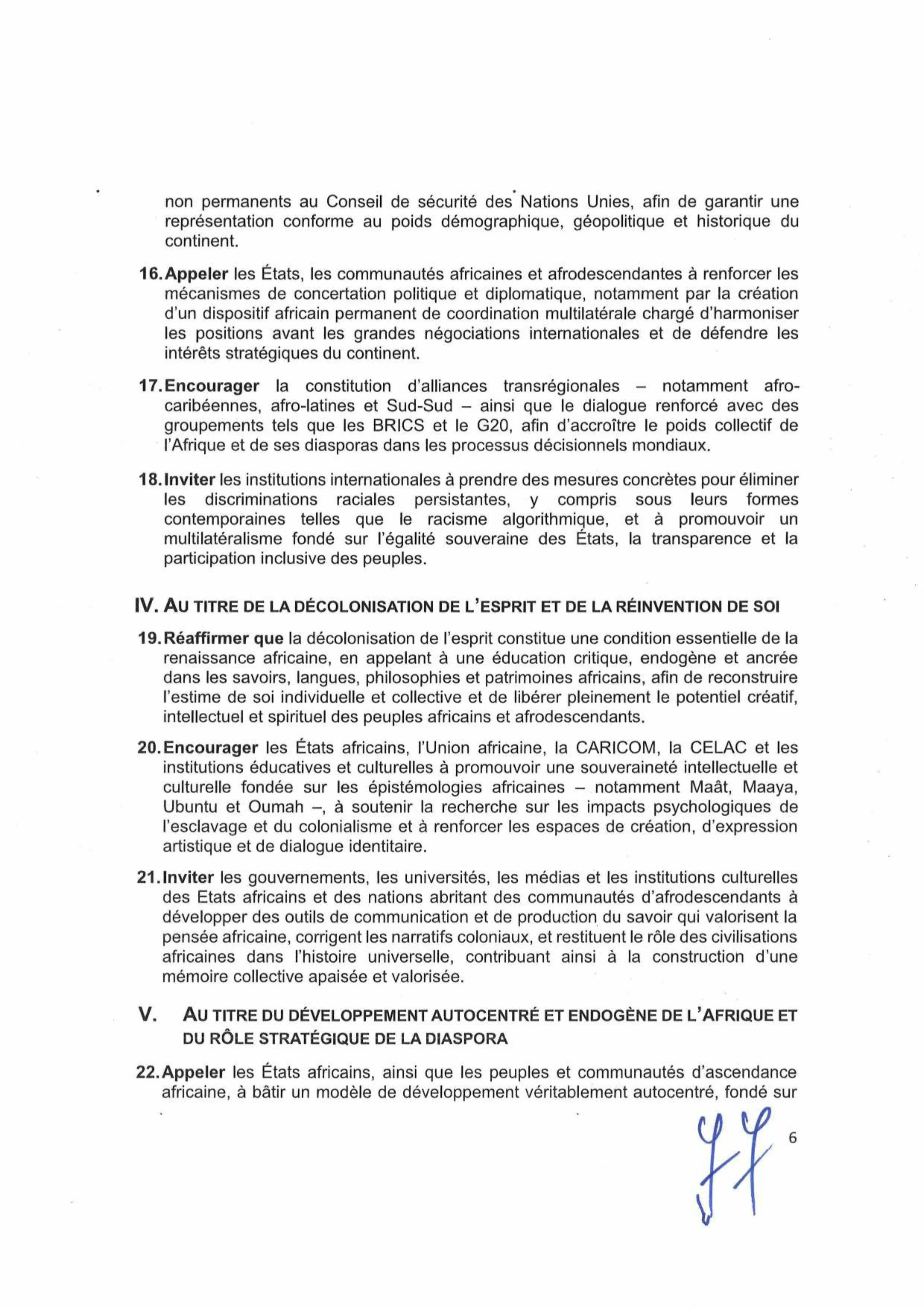



FREEDOM RESOLUTION ON POLITICAL PRISONERS
As part of the 25th anniversary of the African Charter on Human and Peoples' Rights and the 20th anniversary of the Durban Declaration, in memory of the centenaries of:
- Frantz Fanon, worthy son of global Africa, who highlighted the destructive consequences on the minds of Africans and their institutions of centuries of enslavement and colonisation,
- the immortal martyrs Patrice Emery Lumumba and Malcolm X, we solemnly call on all African States concerned to grant a general amnesty to political prisoners detained arbitrarily, in violation of African international law and the ancestral values of Maat and Ubuntu. The return of political exiles is also a prerequisite for lasting peace in Africa. We commit ourselves to pursuing this resolution with the African Union and its specialised bodies, as well as with the States and actors concerned throughout Africa. A pan-African ad hoc commission is being set up on the basis of Articles 5 to 9 of the Resolution against Colonialism and Imperialism adopted at the Pan-African People's Conference held in Accra in December 1958, as well as the African Charter on Human and Peoples' Rights and the African Charter on Democracy, Elections and Governance.
- Within one month, an INDEPENDENT group of experts reflecting the geographical and political diversity of global Africa will collaborate with the ACHPR in Banjul to present a follow-up note.
NB: first names, Halidou Ouédraogo (Burkina Faso), Professor Jean-François Akandji-Gombe (Centrafrique), CARICOM




































































































































































































































































































































































































































































































































































































































































































































HOW TO PROPERLY ORGANIZE A PAN AFRICAN CONGRESS IN THE 21st CENTURY
Here’s how the 9th PAN AFRICAN CONGRESS and any future Congress should be organized.
A Pan Africanist broadly respected should be named Chief Coordinator.
A dedicated, African owned platform like Abibitumi, should be used for broad discussion.
Themes and Draft Resolutions are to be published six months before the Congress
Online input forms for each draft resolution will be published and all inputs collected. Specific resolution language will be solicited and collected. (Use the following 9th PAC input forms as an example)
A Pre-Congress Report with all the draft resolutions and key inputs is published to all registered delegates two months before the congress (using the 7th PAC Resolutions as a template - see below). Discussion and debate of the draft resolutions will take place on the dedicated platform for two months prior to the Congress. The point is that we come to the Congress having already had as broad a discussion as possible on each resolution and we convene the Congress only to finalized the document.
After the opening of the Congress, the Congress Chief Coordinator will lead the entire Congress through each resolution. There will be 30 minutes of discussion with each person given a strict 3 minutes to speak directly to the resolution language. At the end of 30 minutes, a vote of the entire Congregation will be taken on the final resolution. A two-thirds acceptance will make the resolution final. In this manner we proceed until all draft resolutions have been approved or rejected.
7. Anyone can submit input, but only accredited delegates (selected by the Chief Coordinator or anyone who presents a petition to particpate as a delegate signed by at least 200 people) can vote. The latter requirment is to facilitate the development of networks, constitutencies and broad awarness of the Congress.
In this way, the Congress Final Resolution will be produced by the collected decision of the Congress Delegates and will thus carry the sufficient authority to serve as the Pan African Plan of Action for the next decade. This is the people-driven process that must govern the Congress.






















